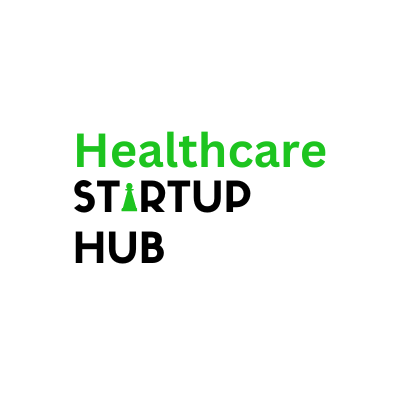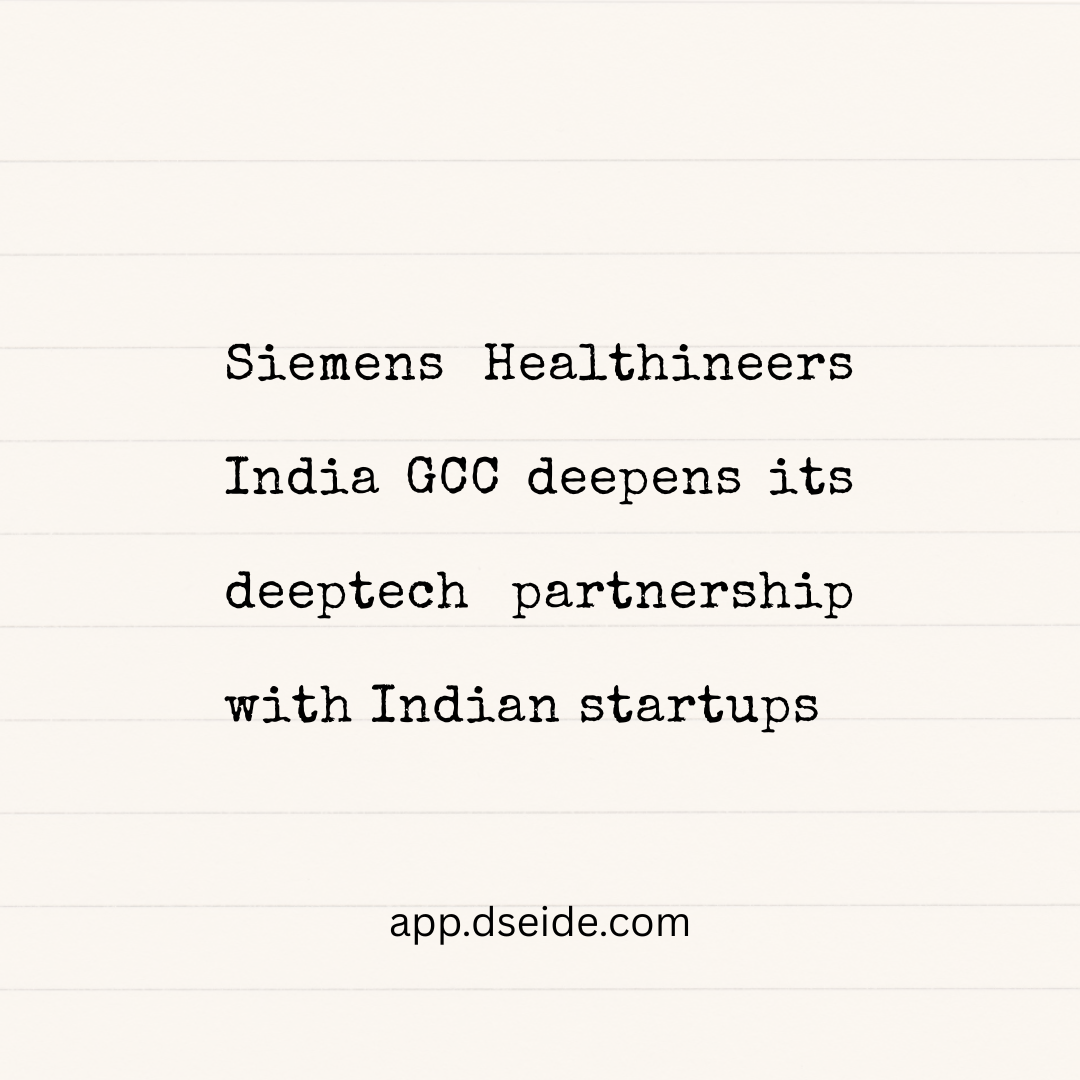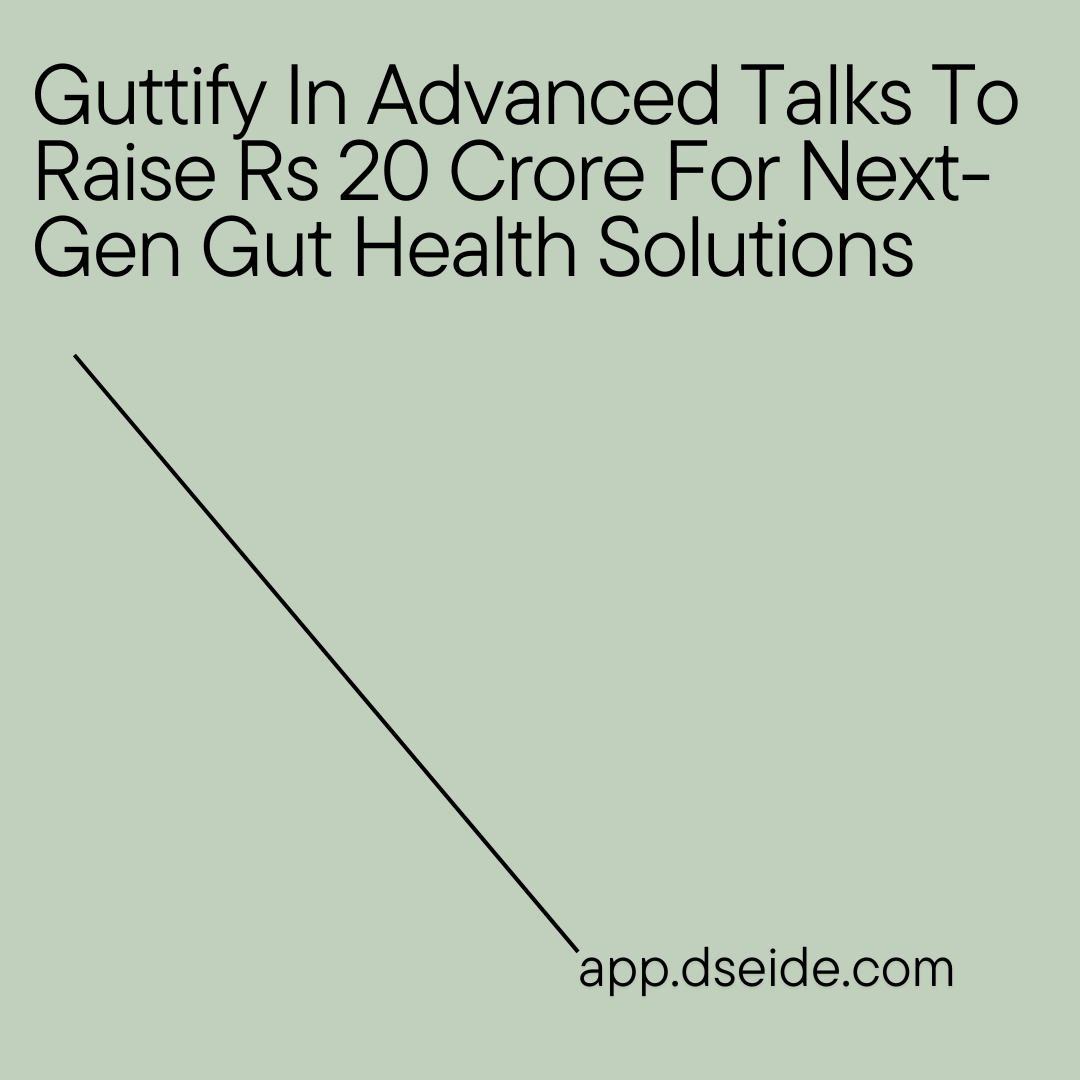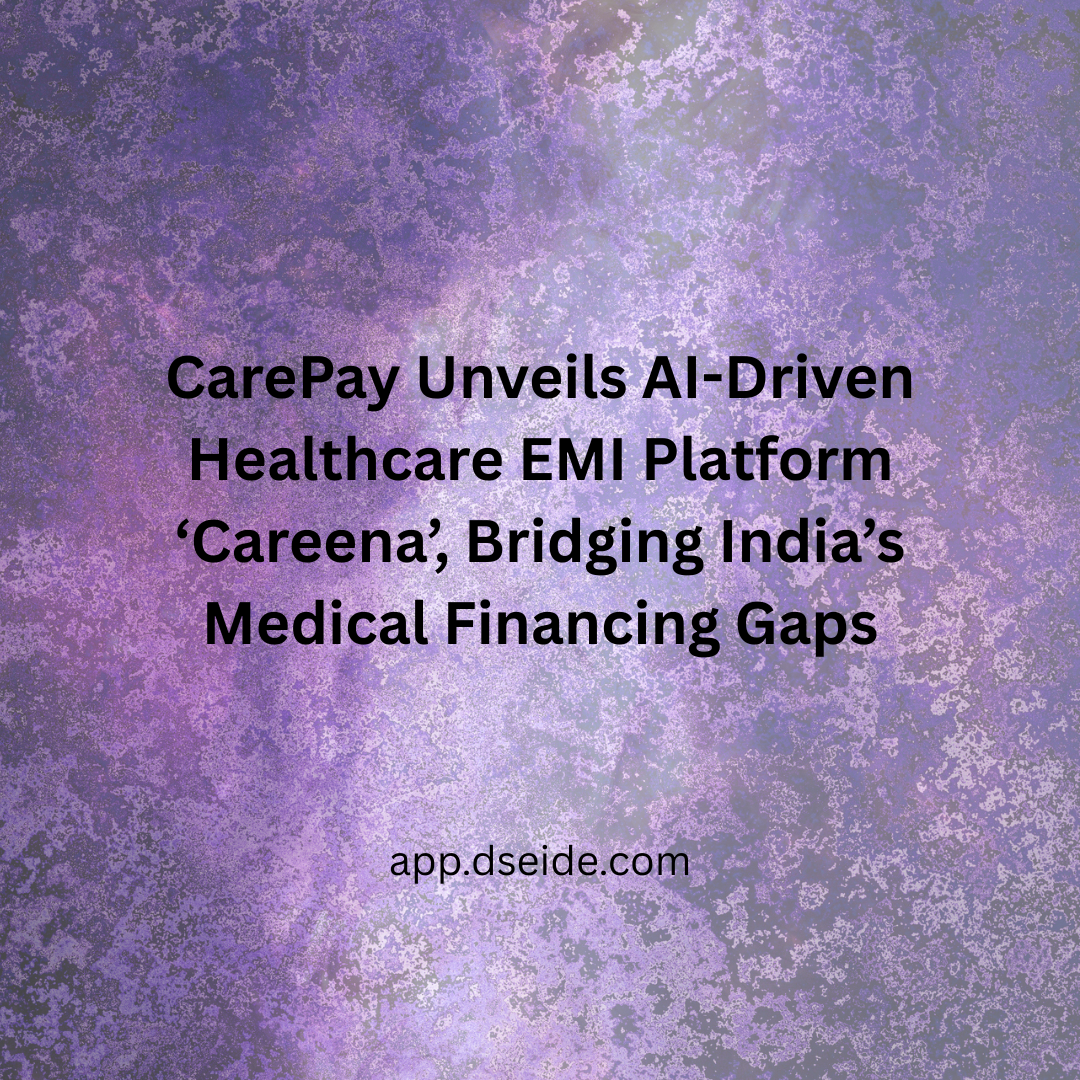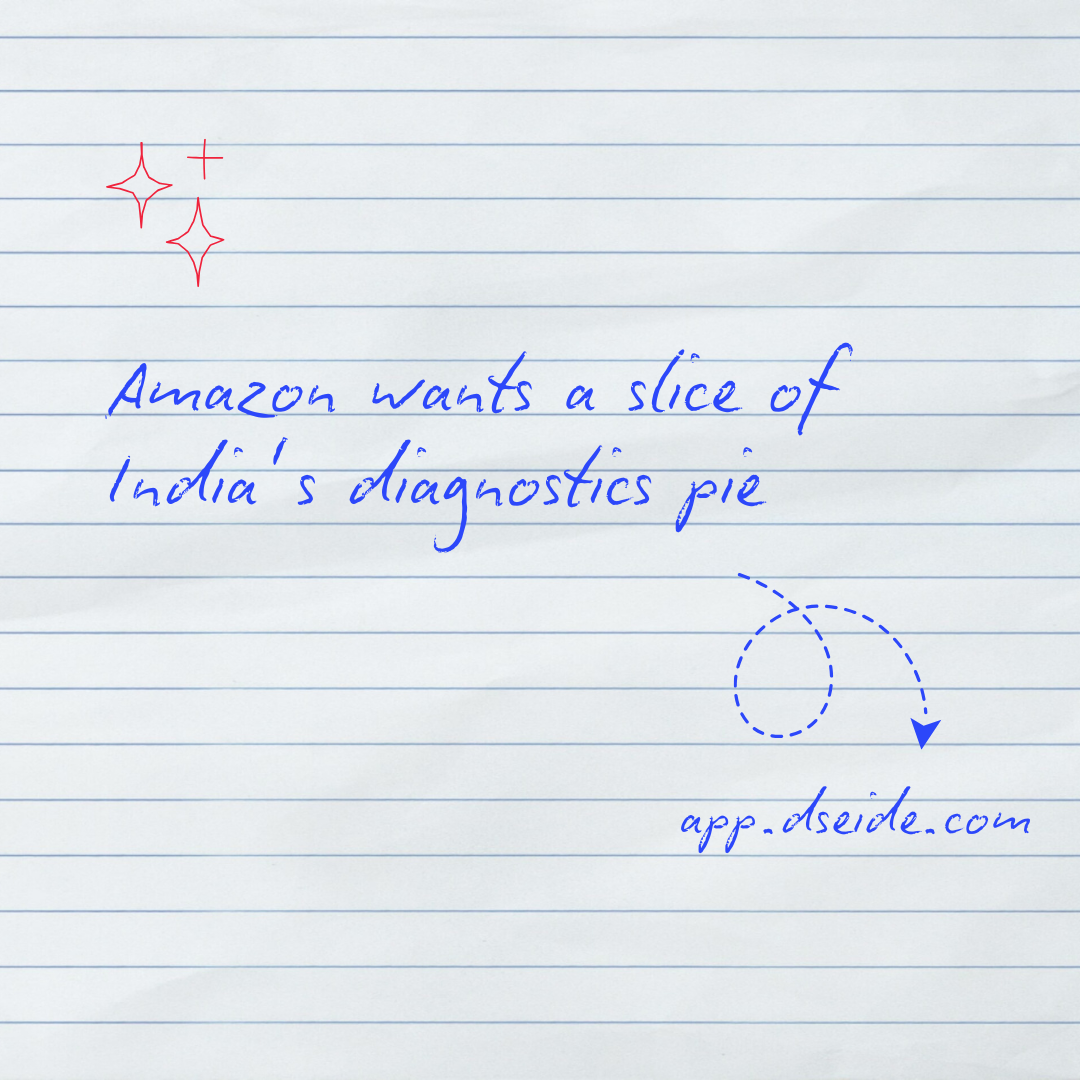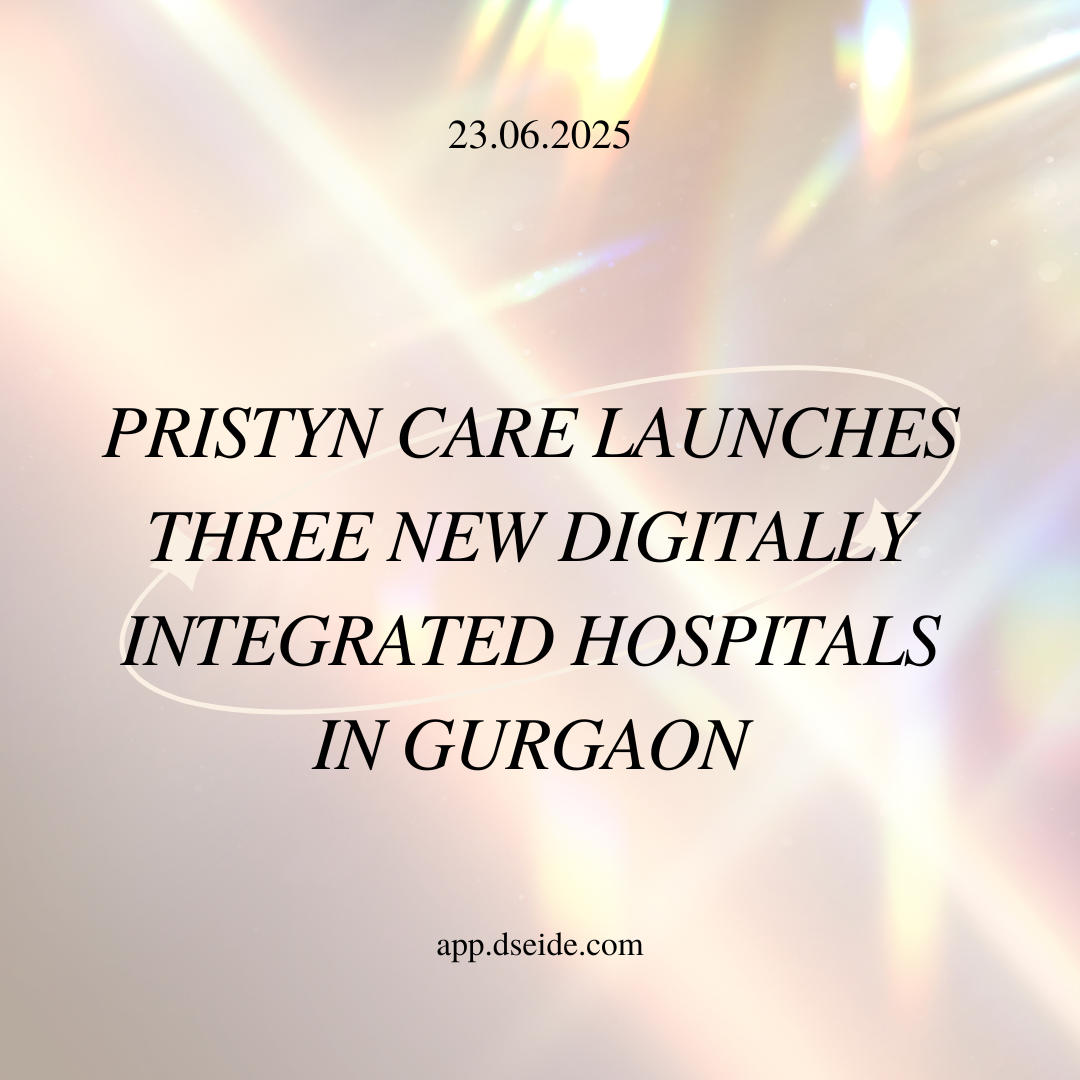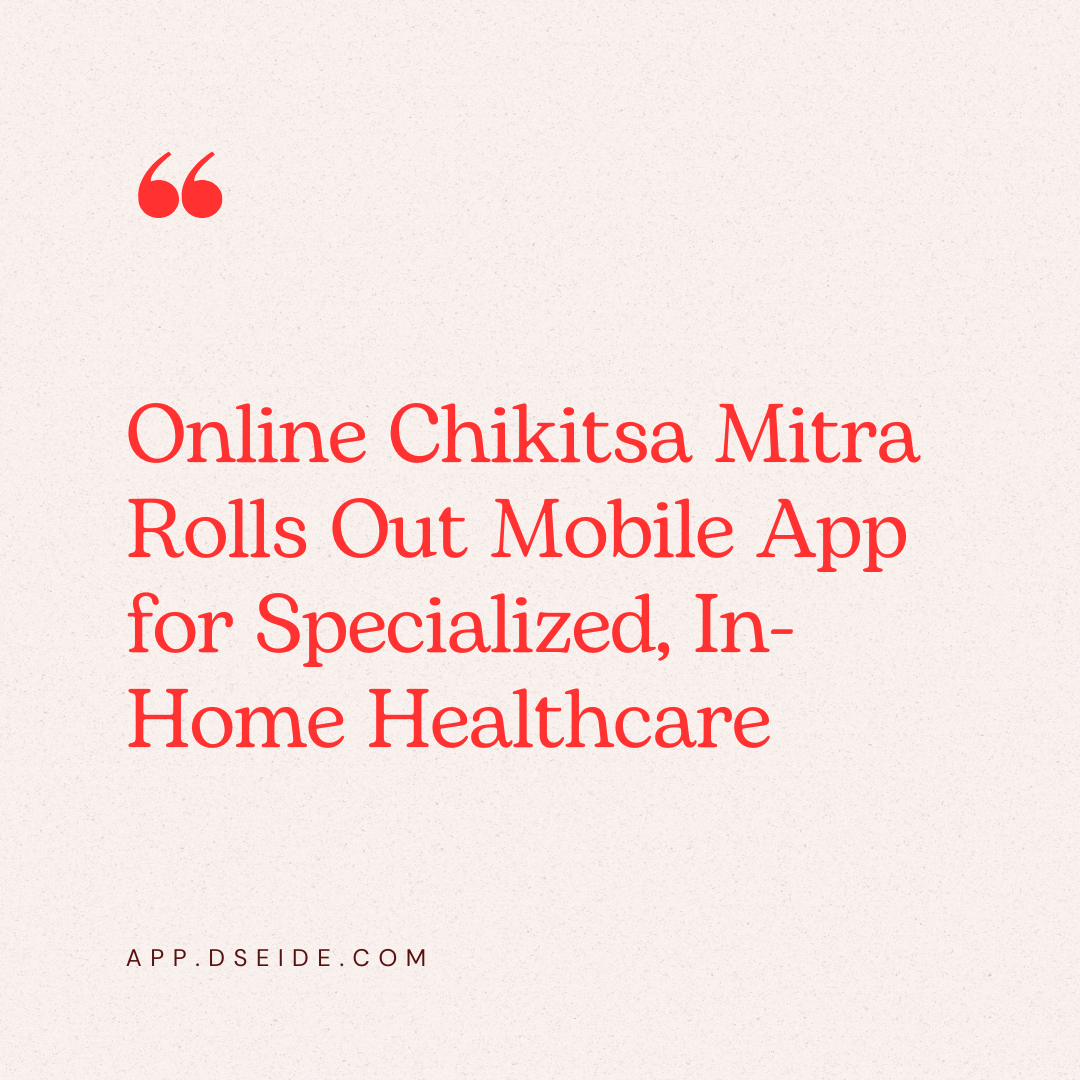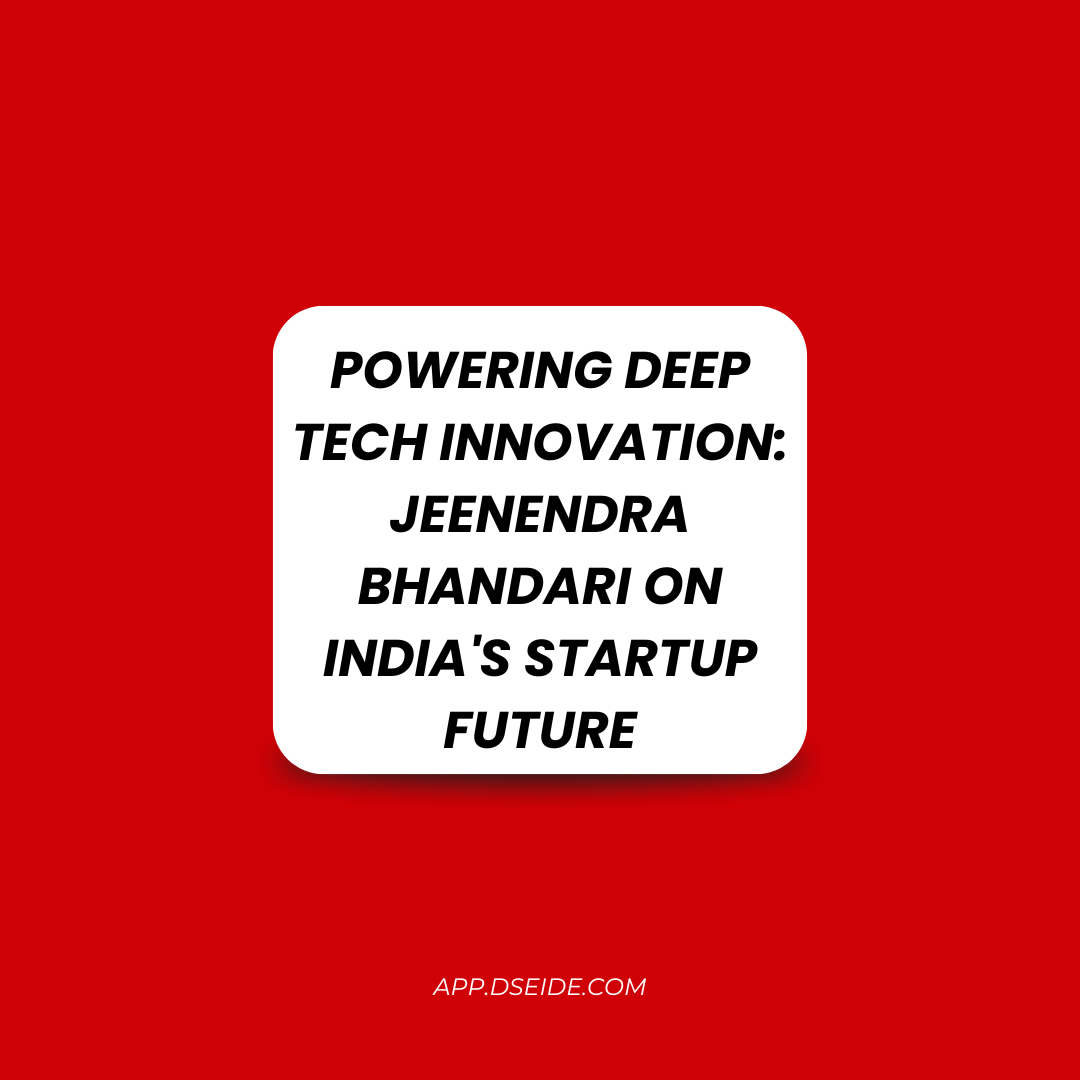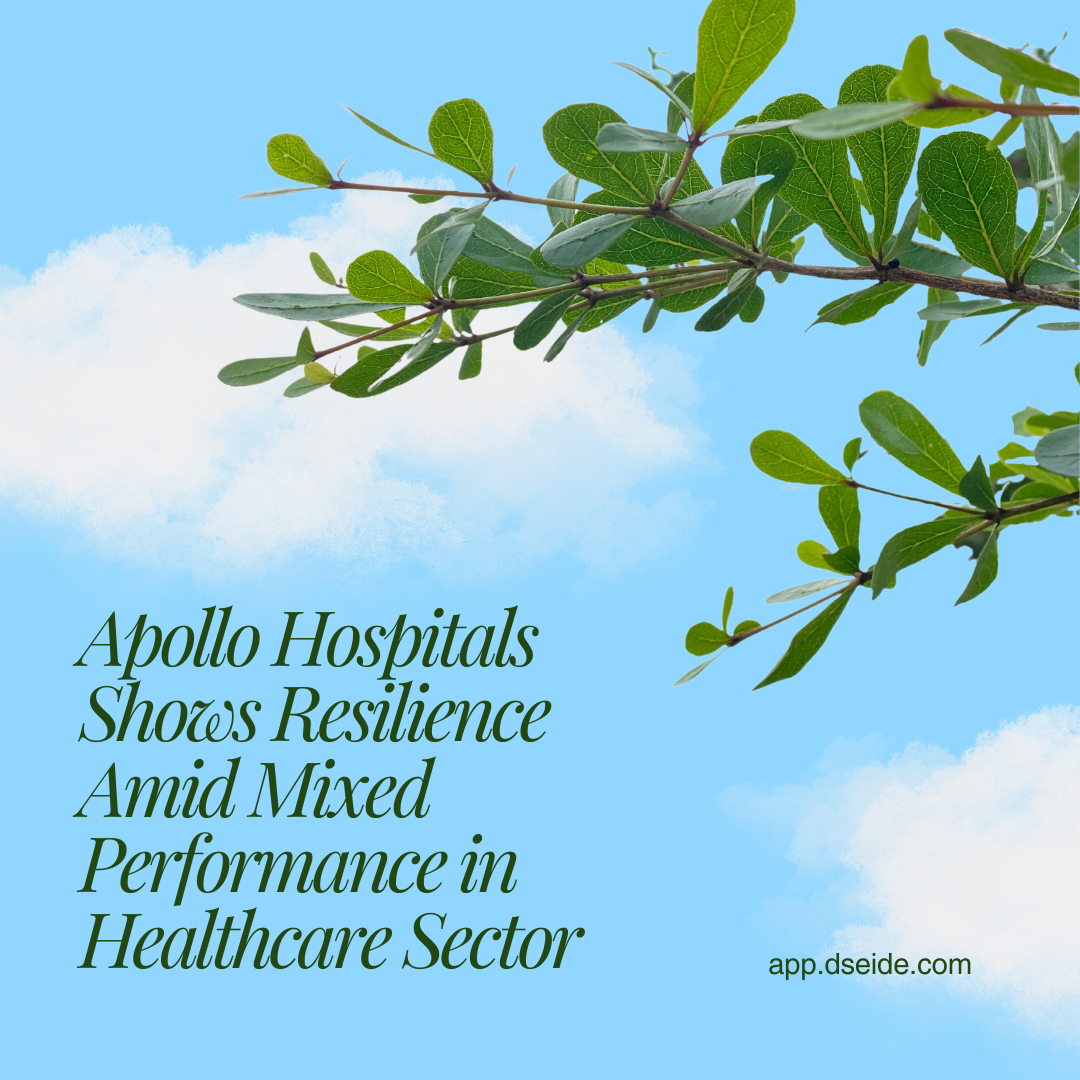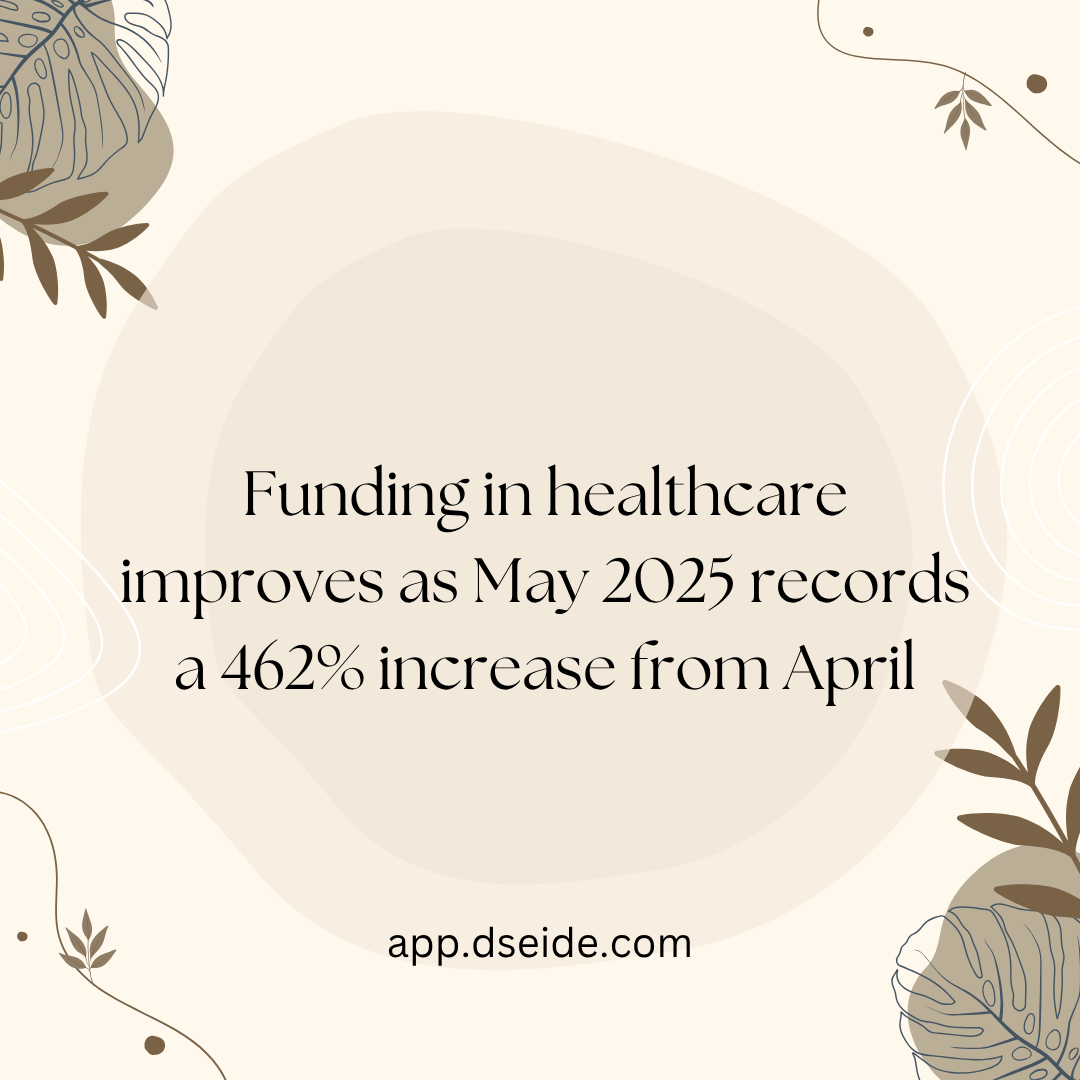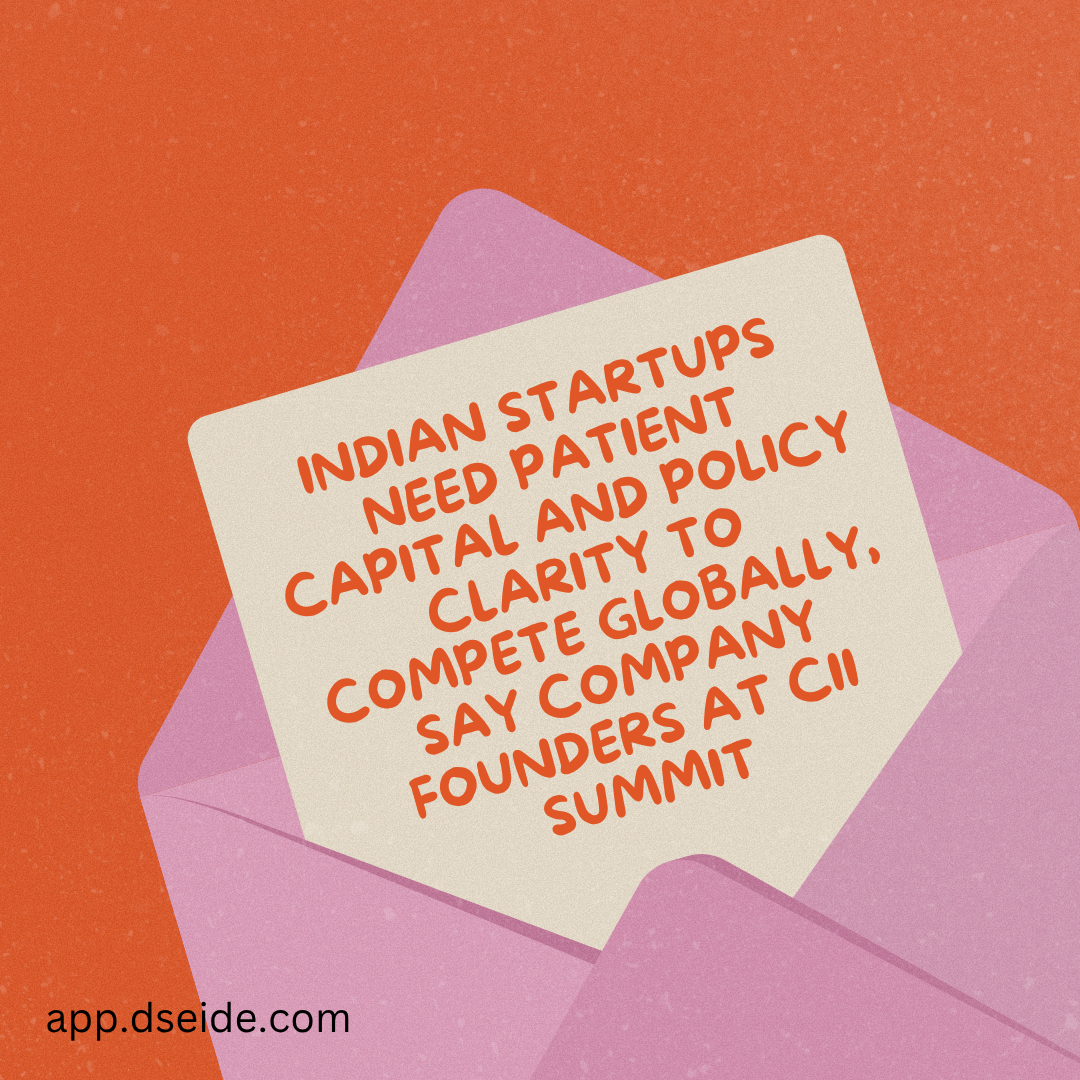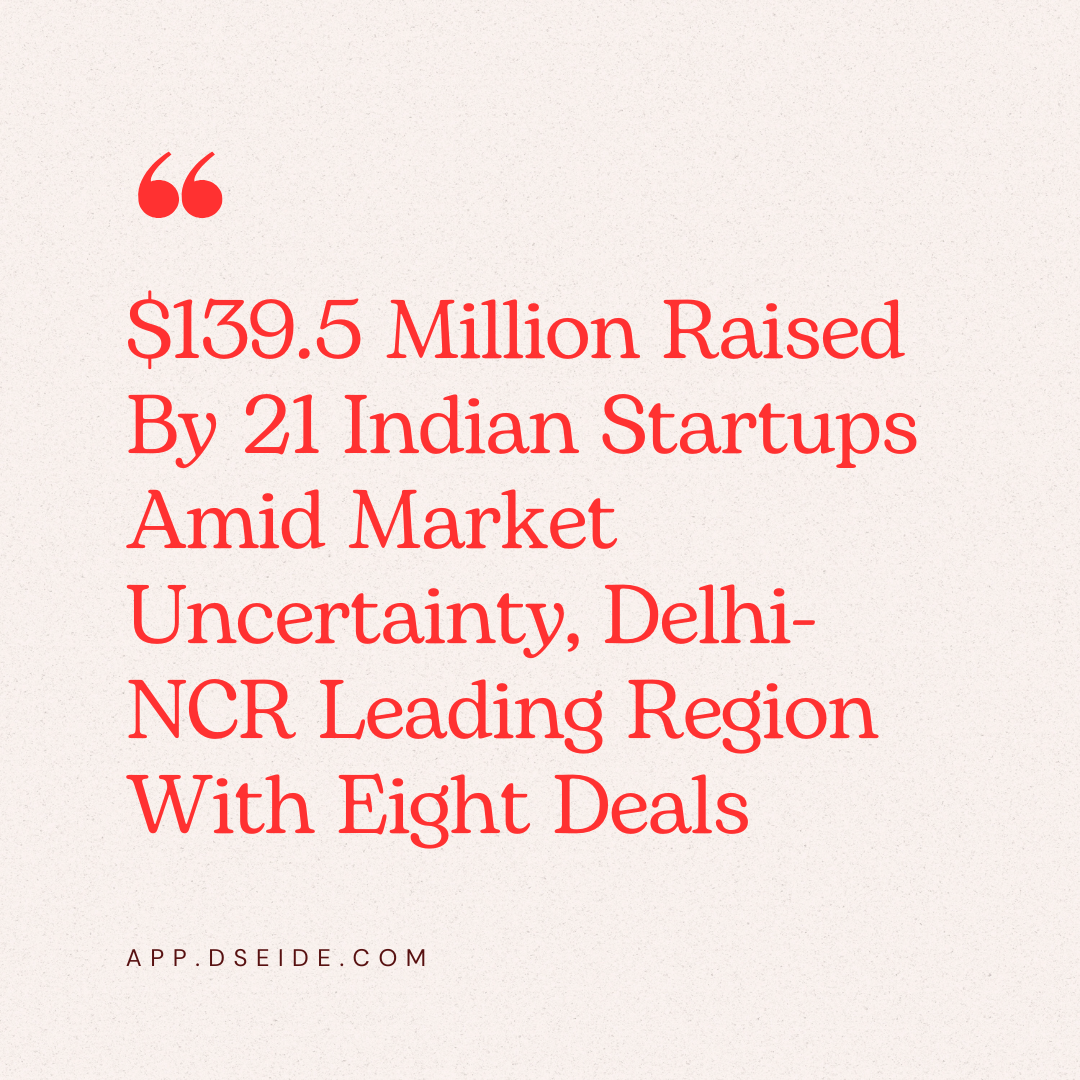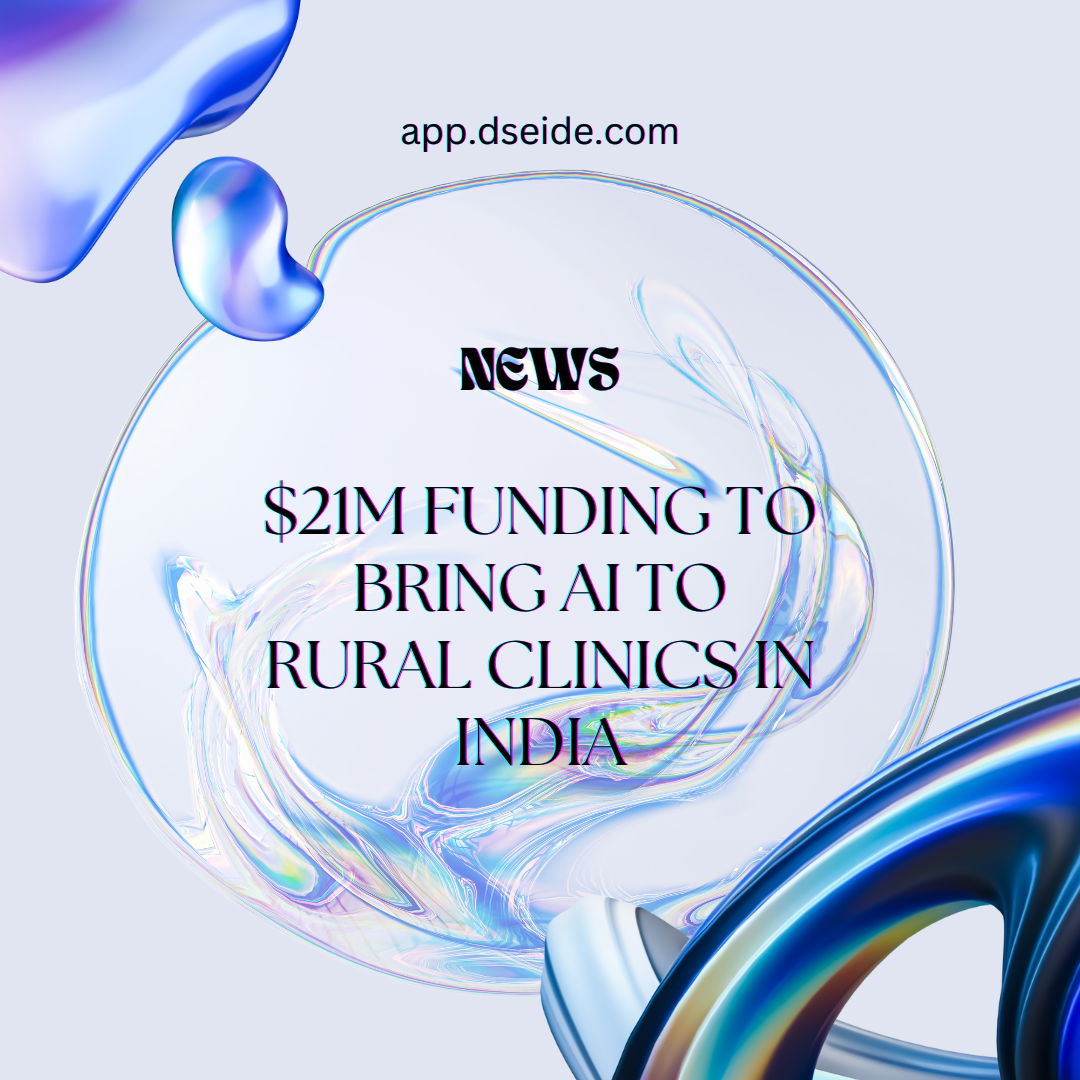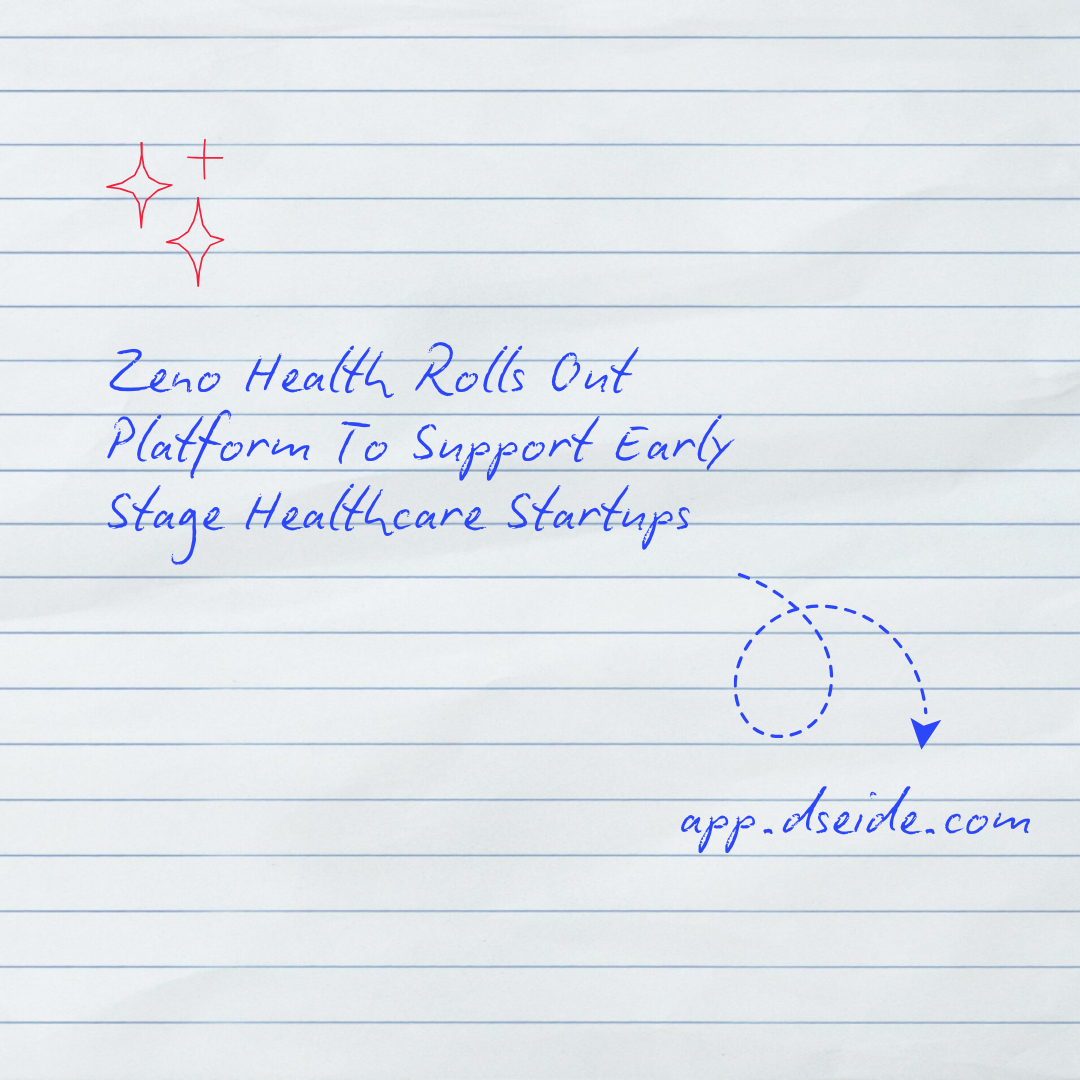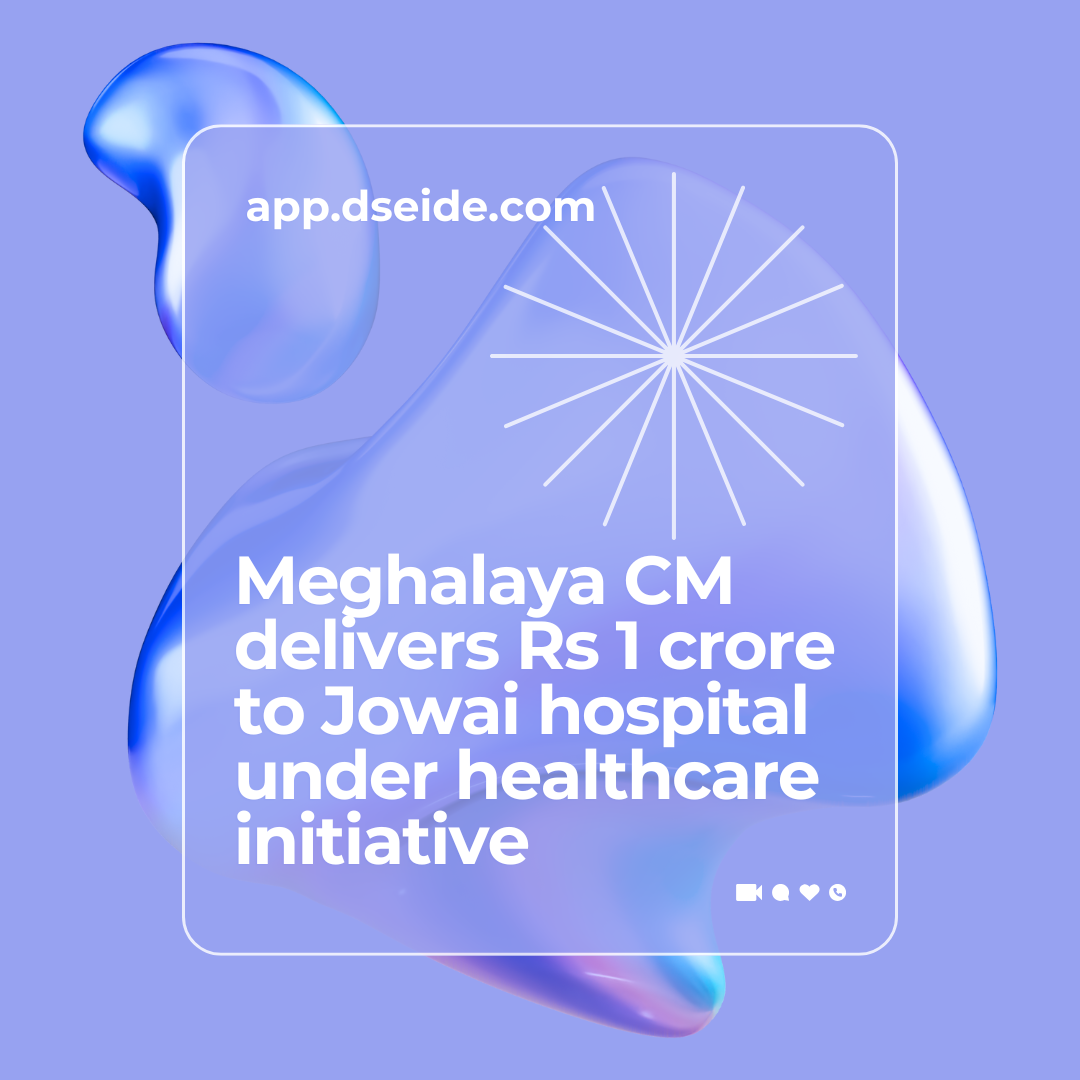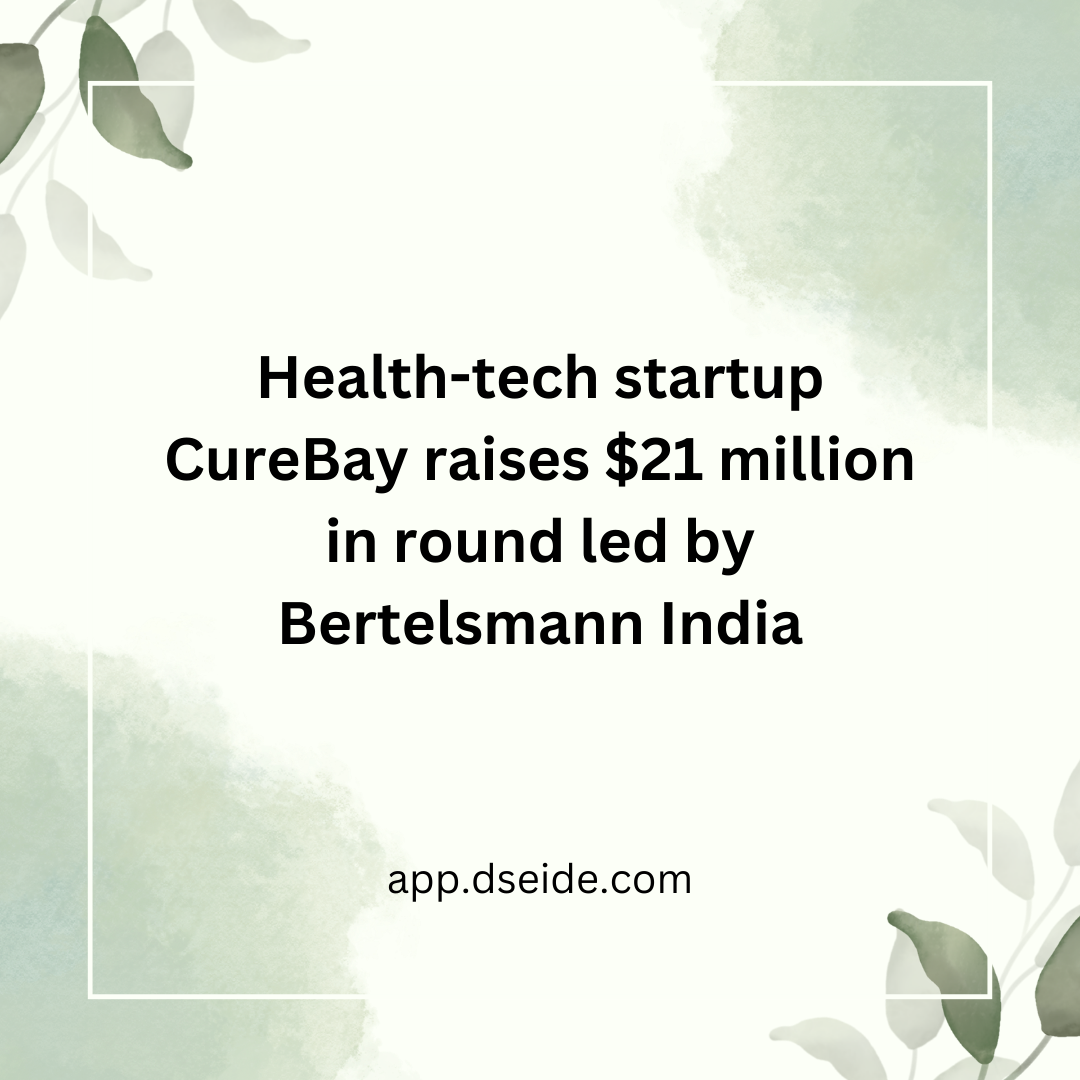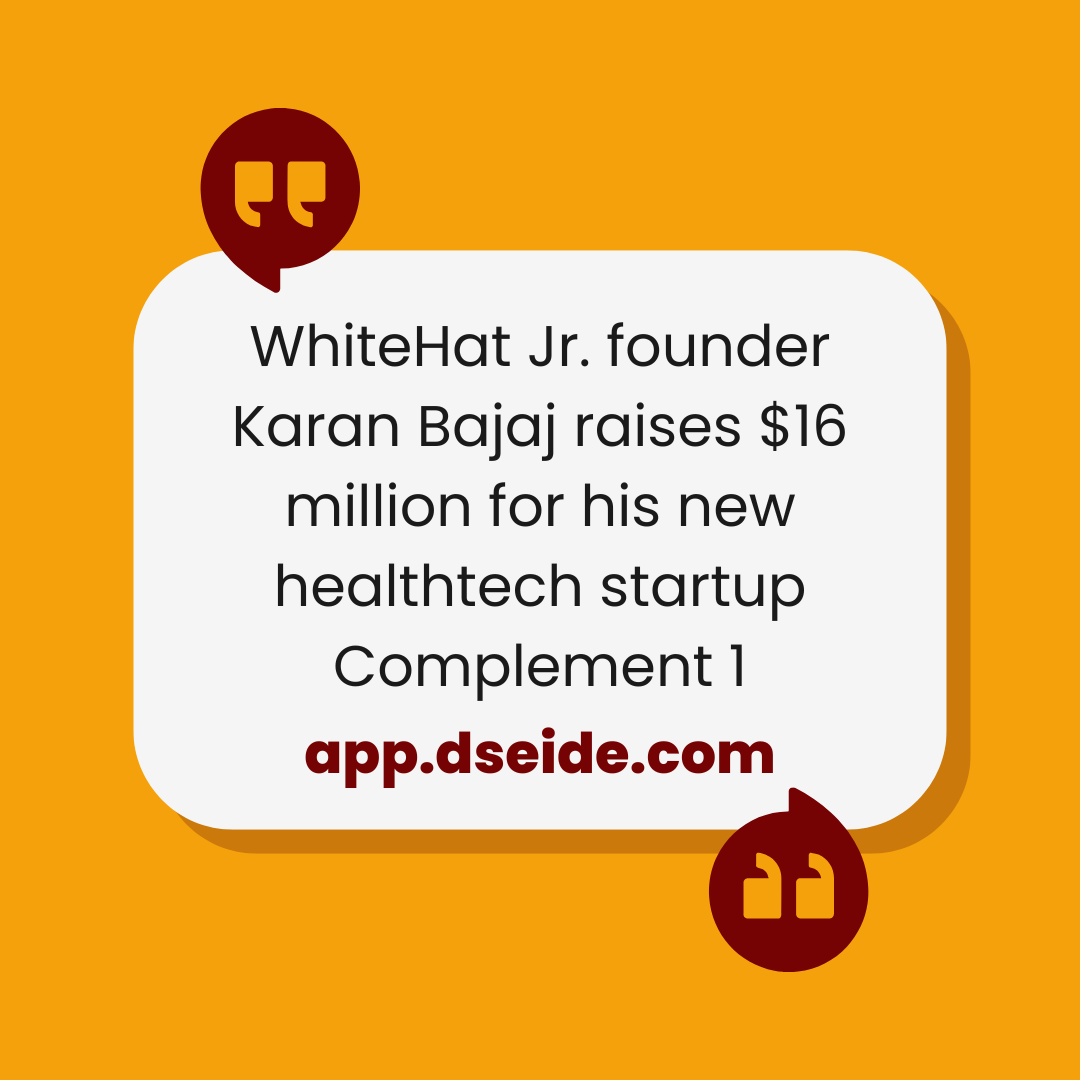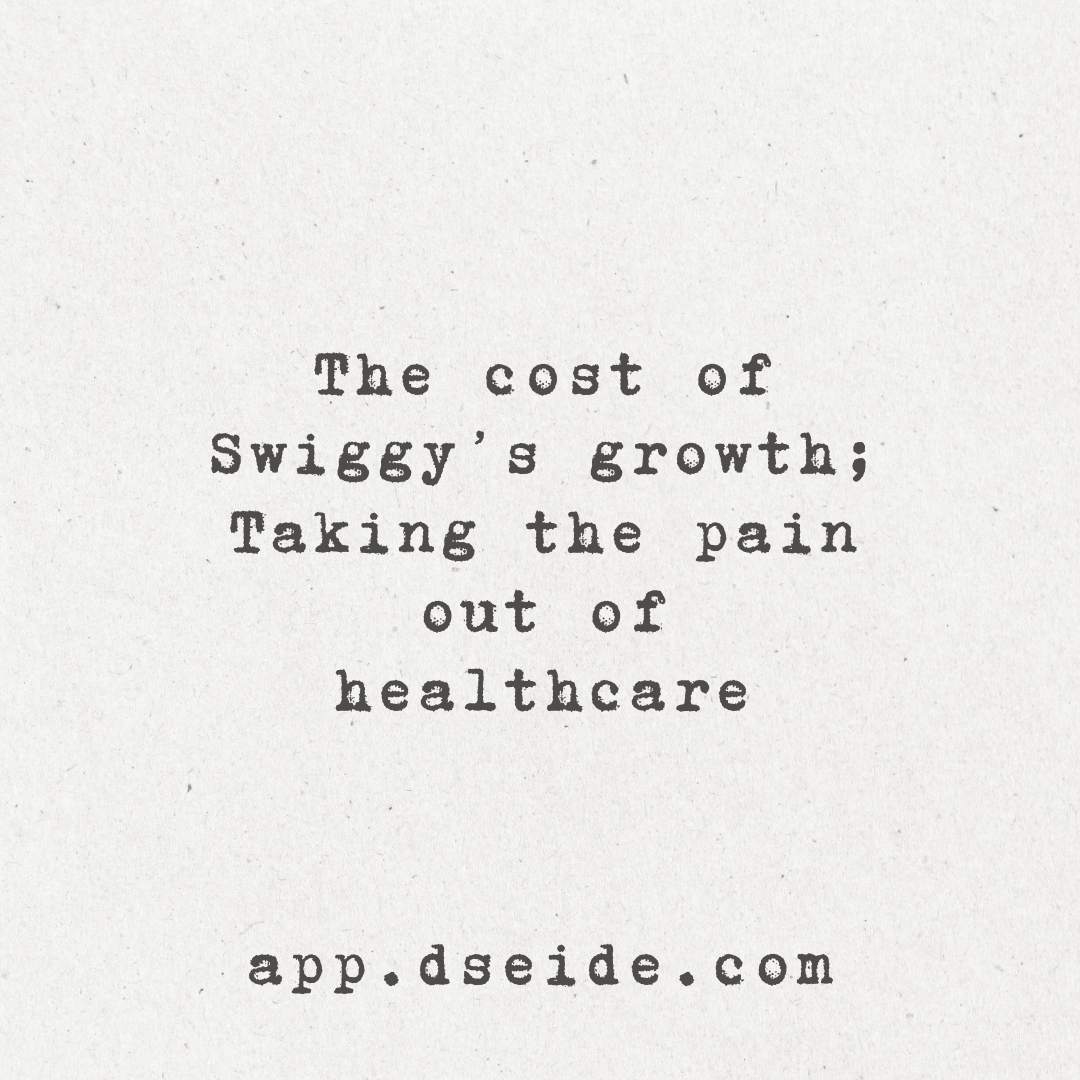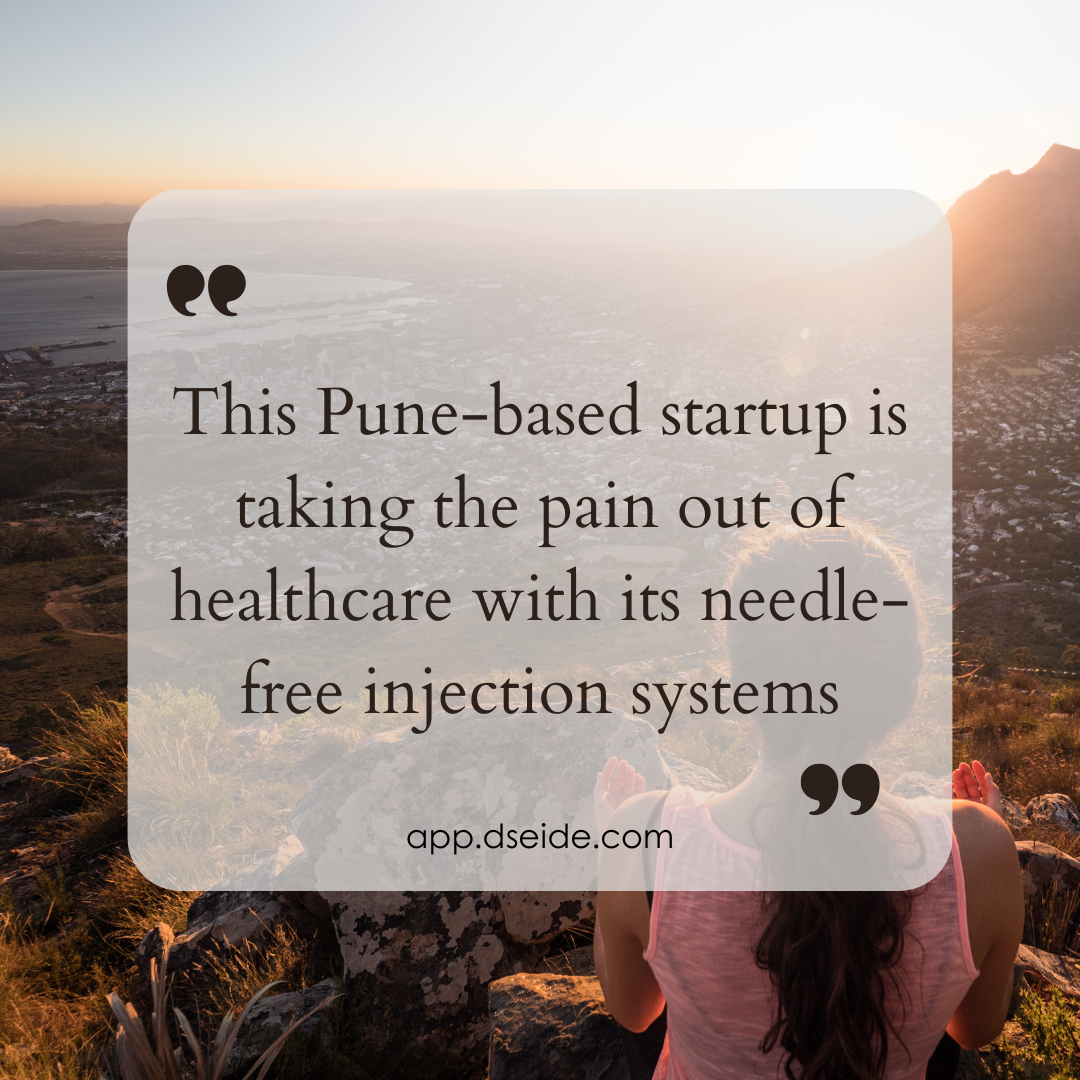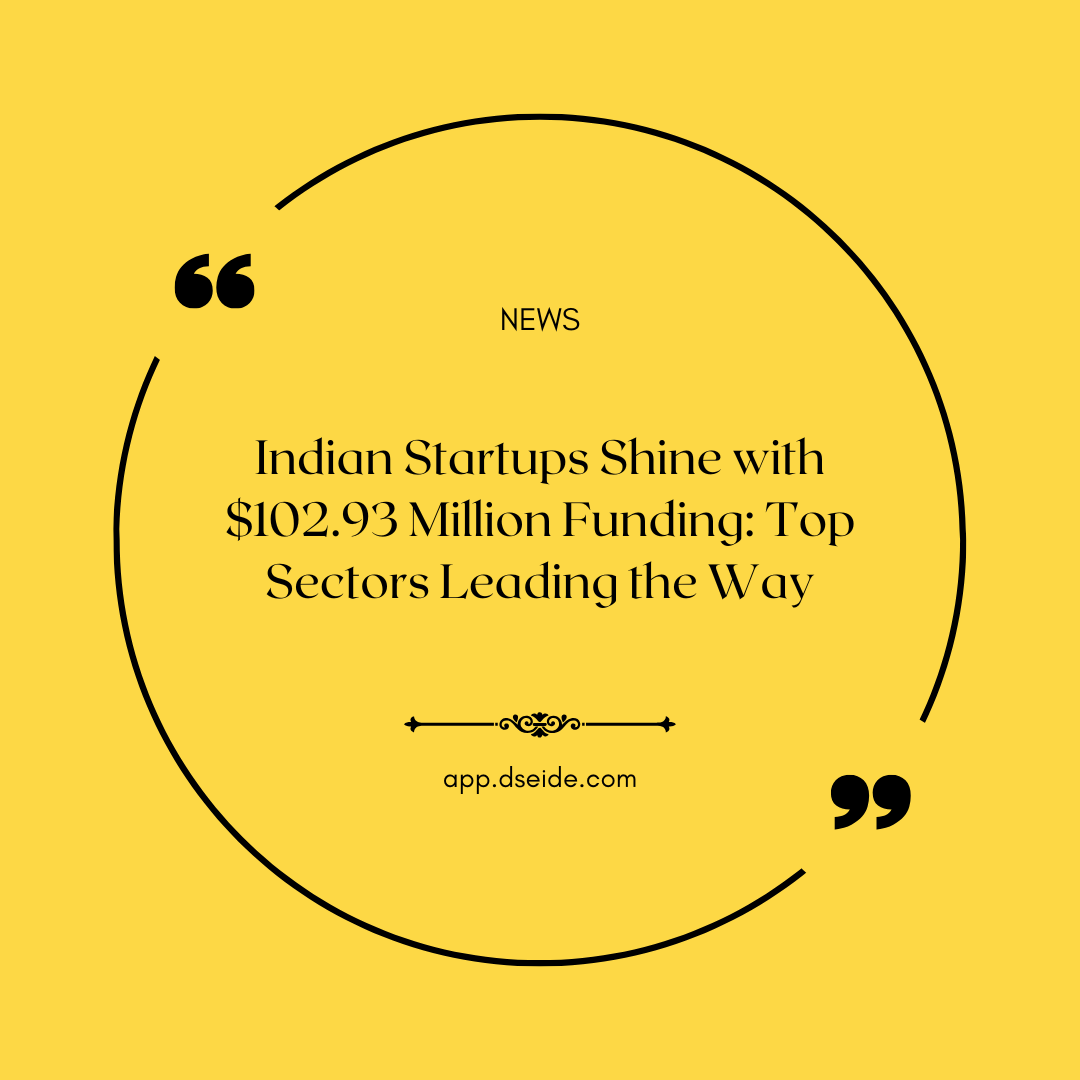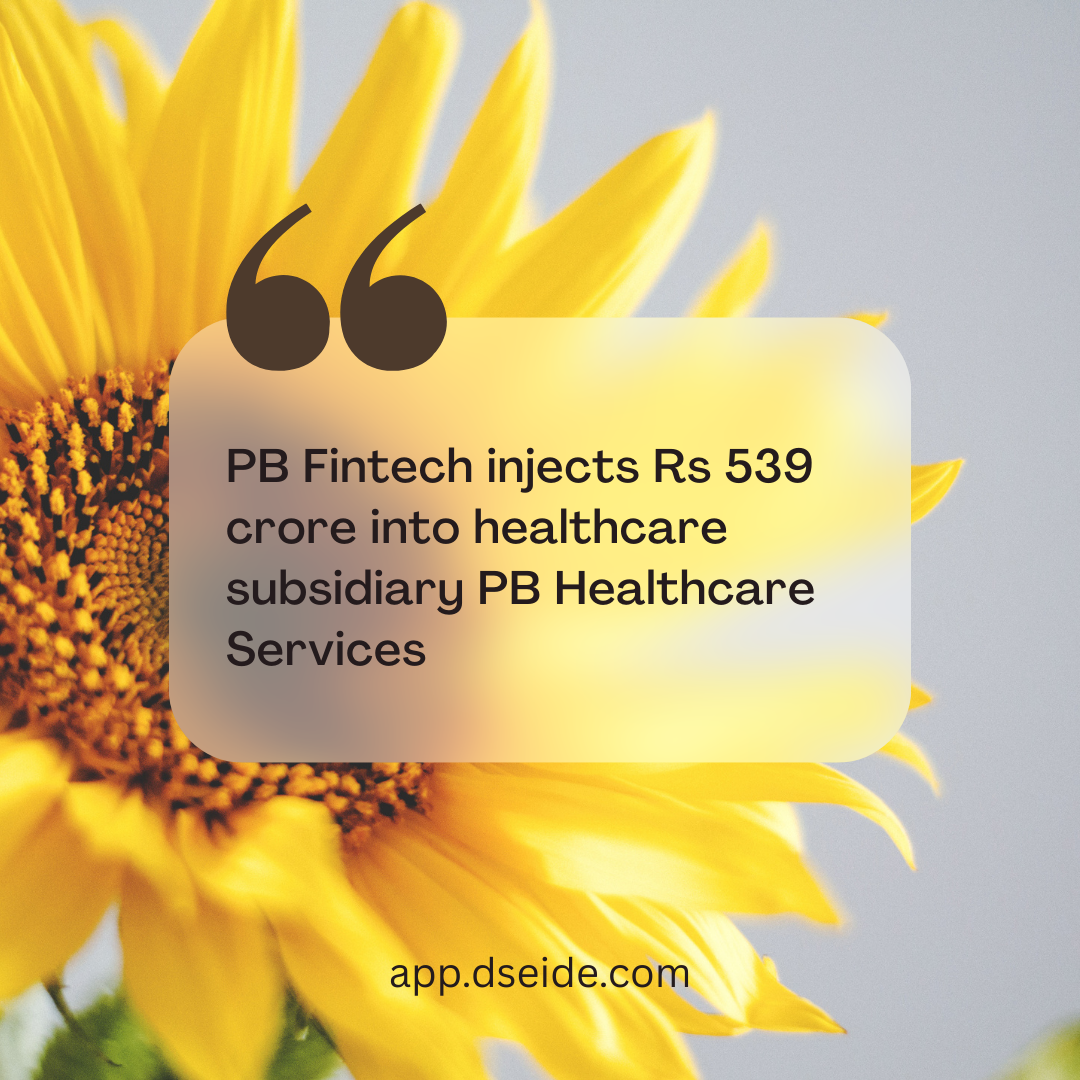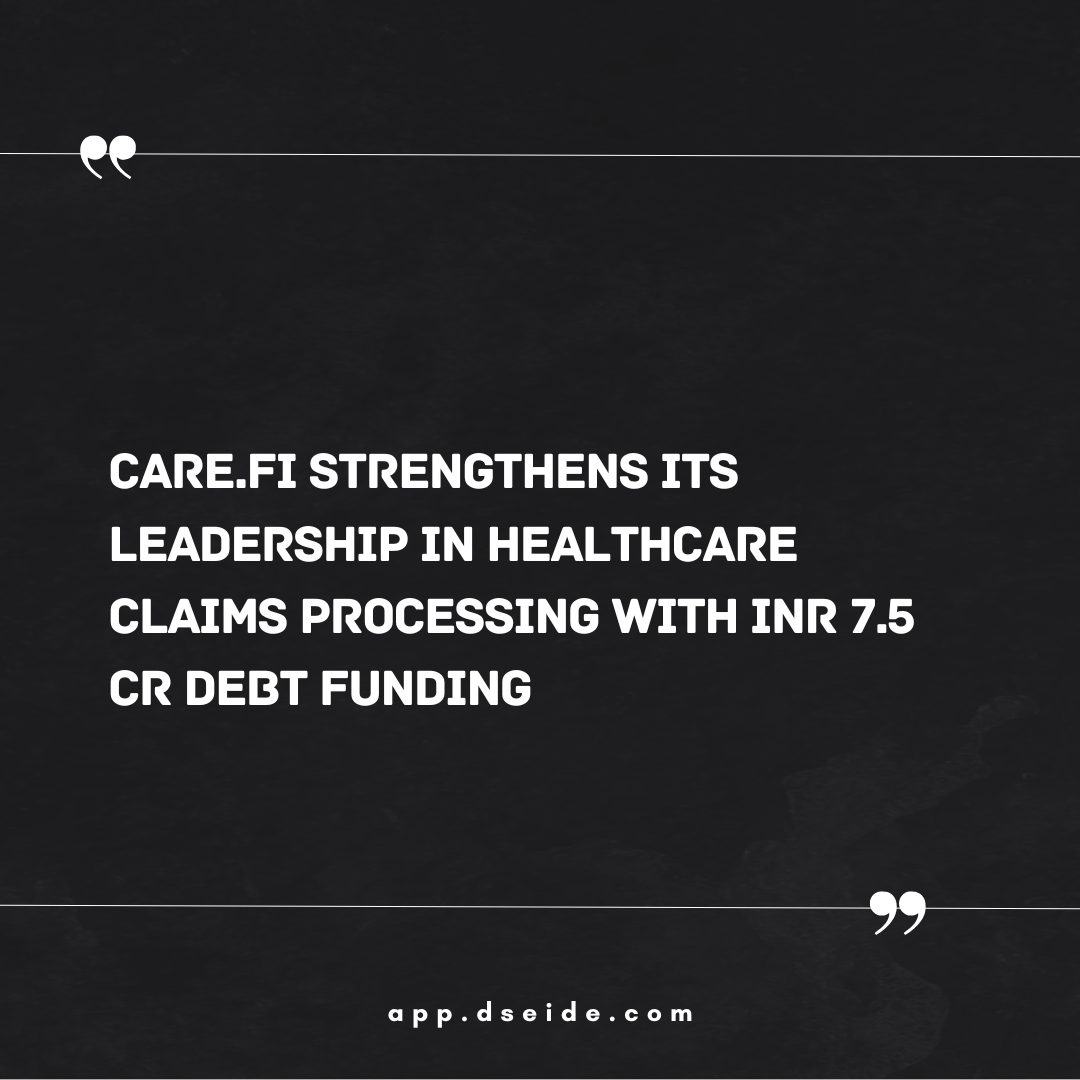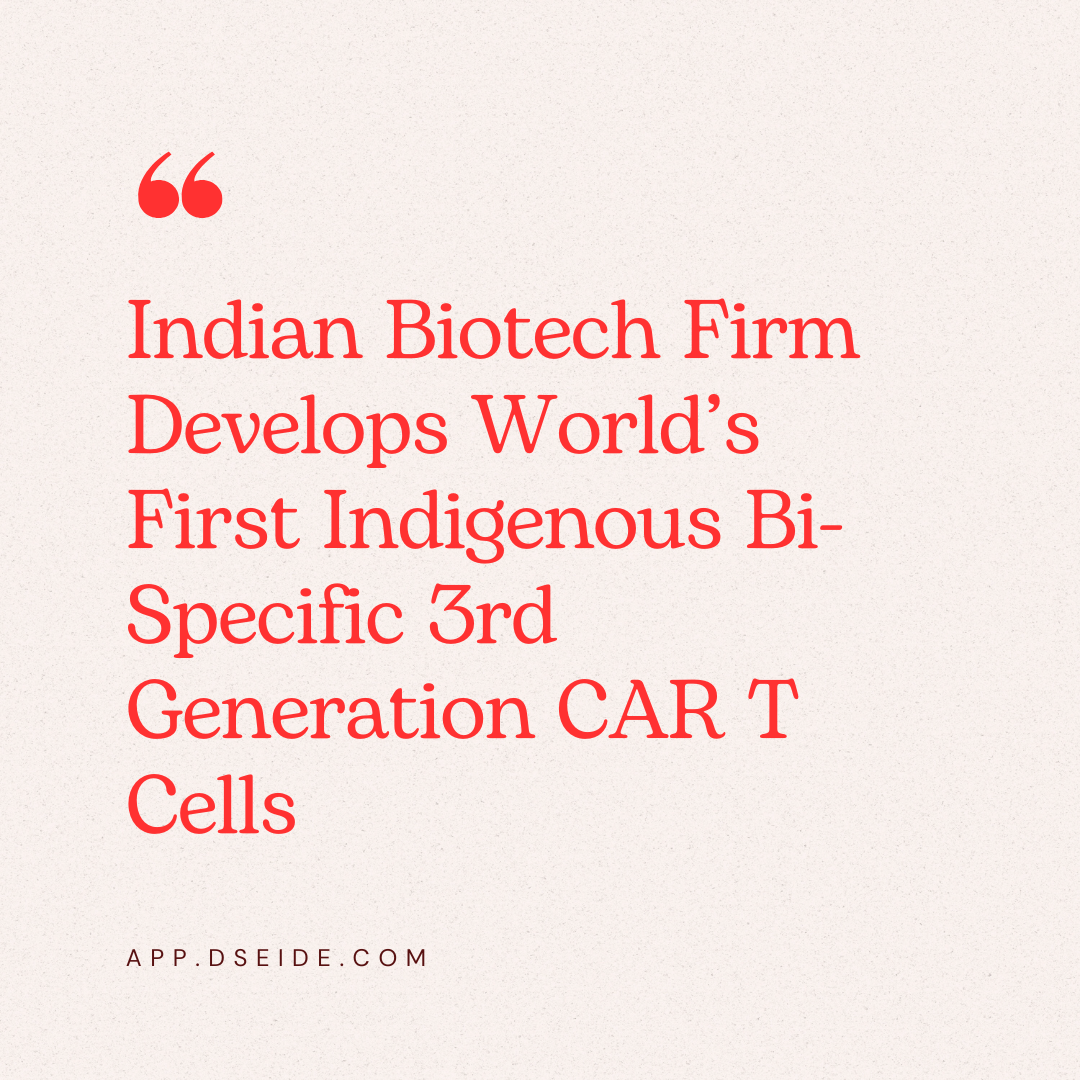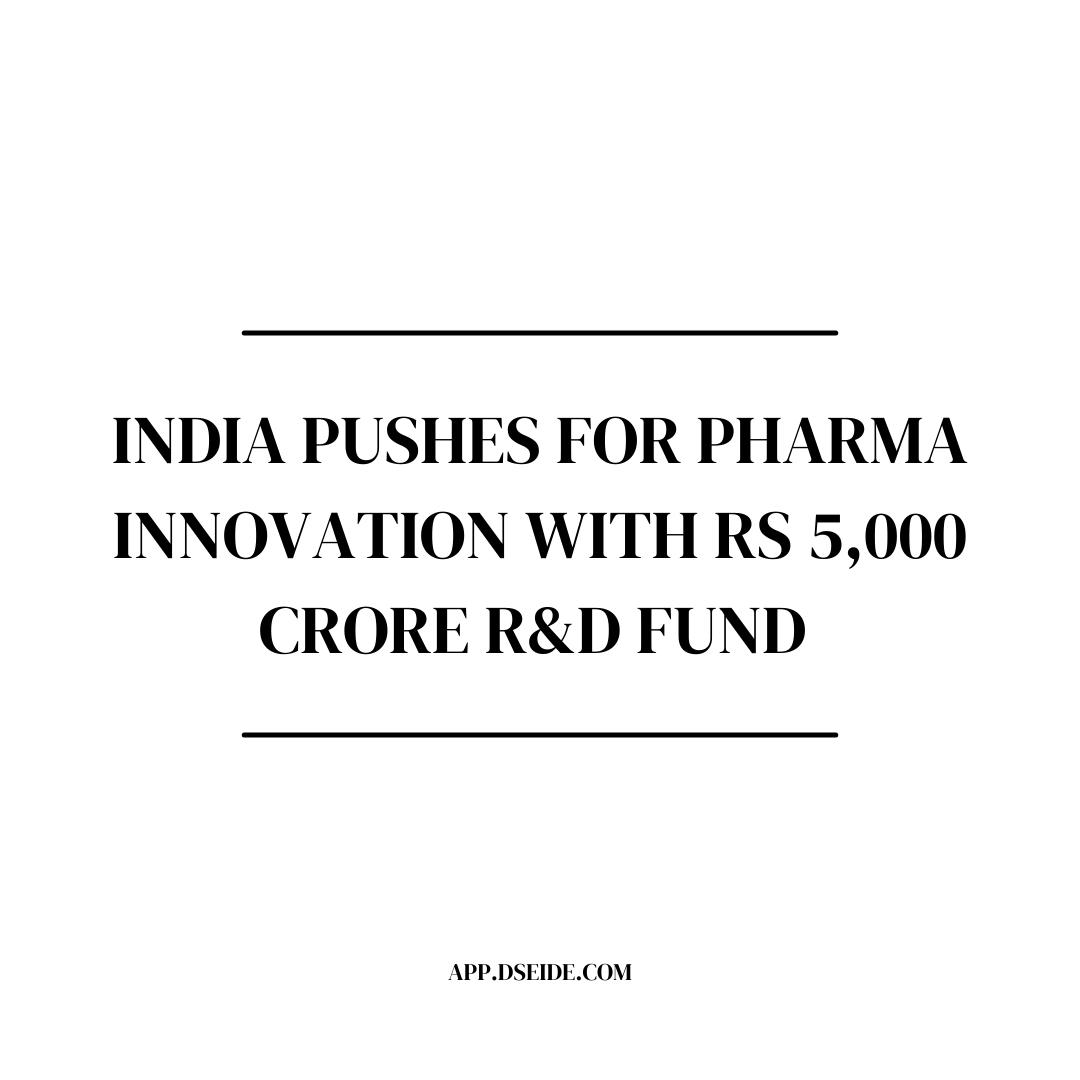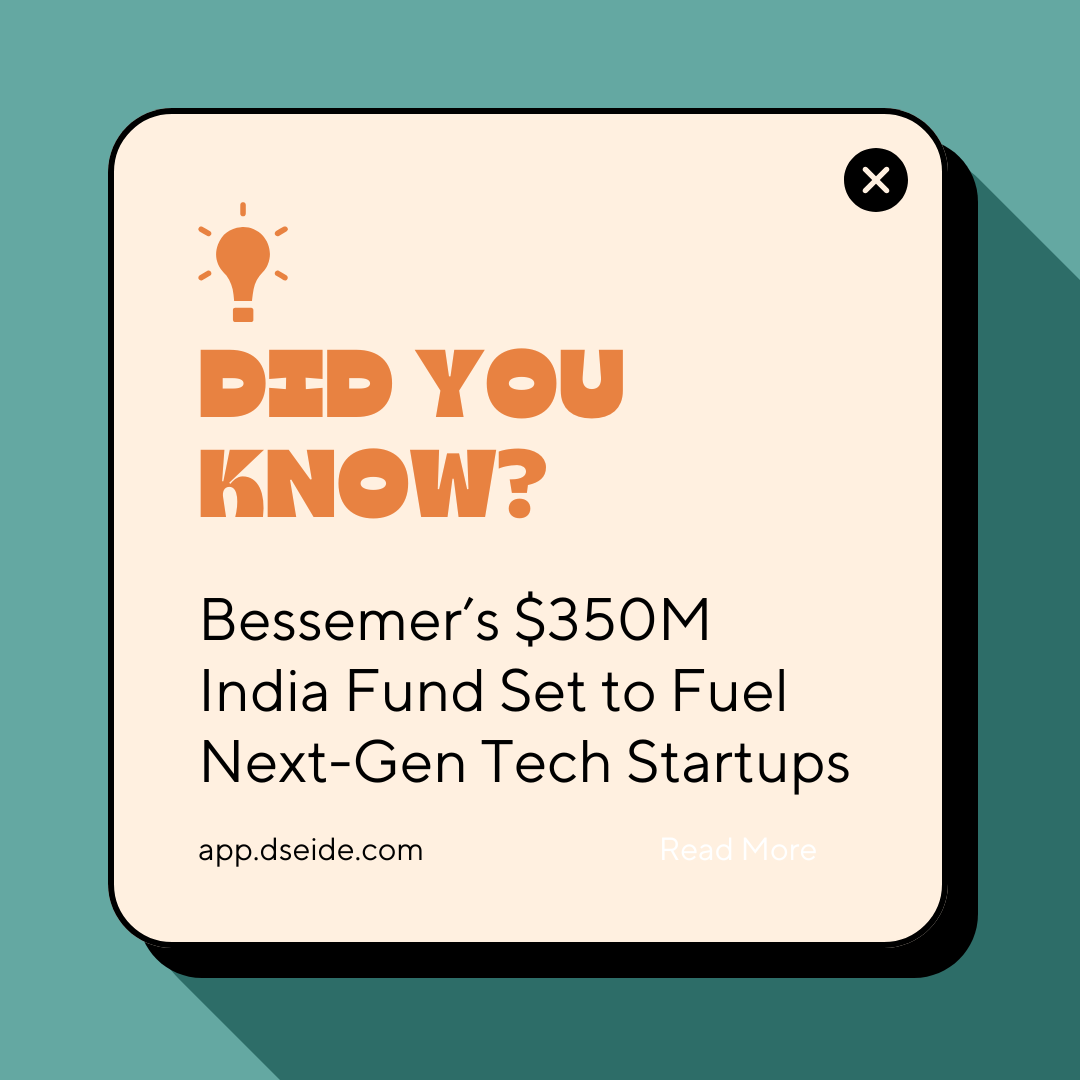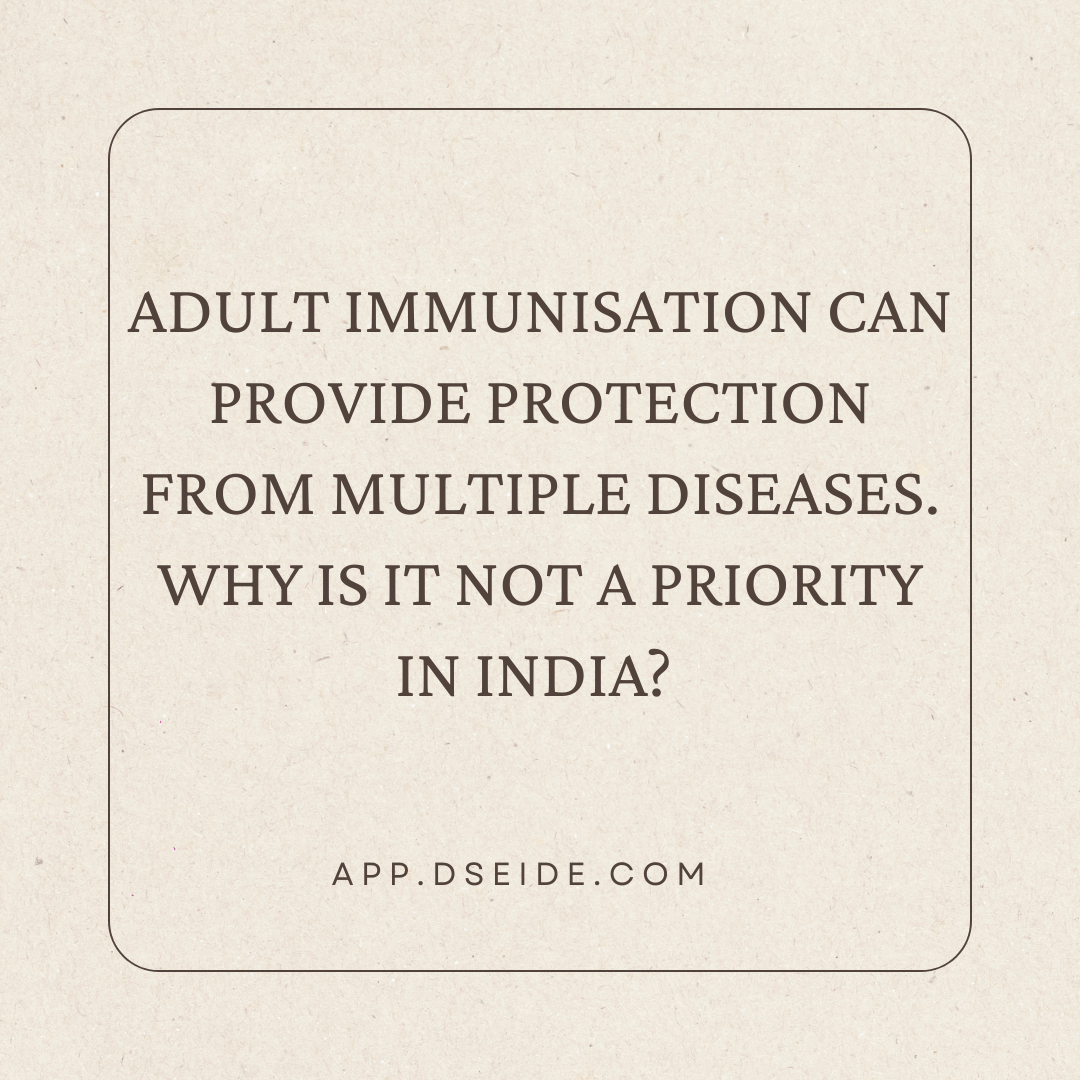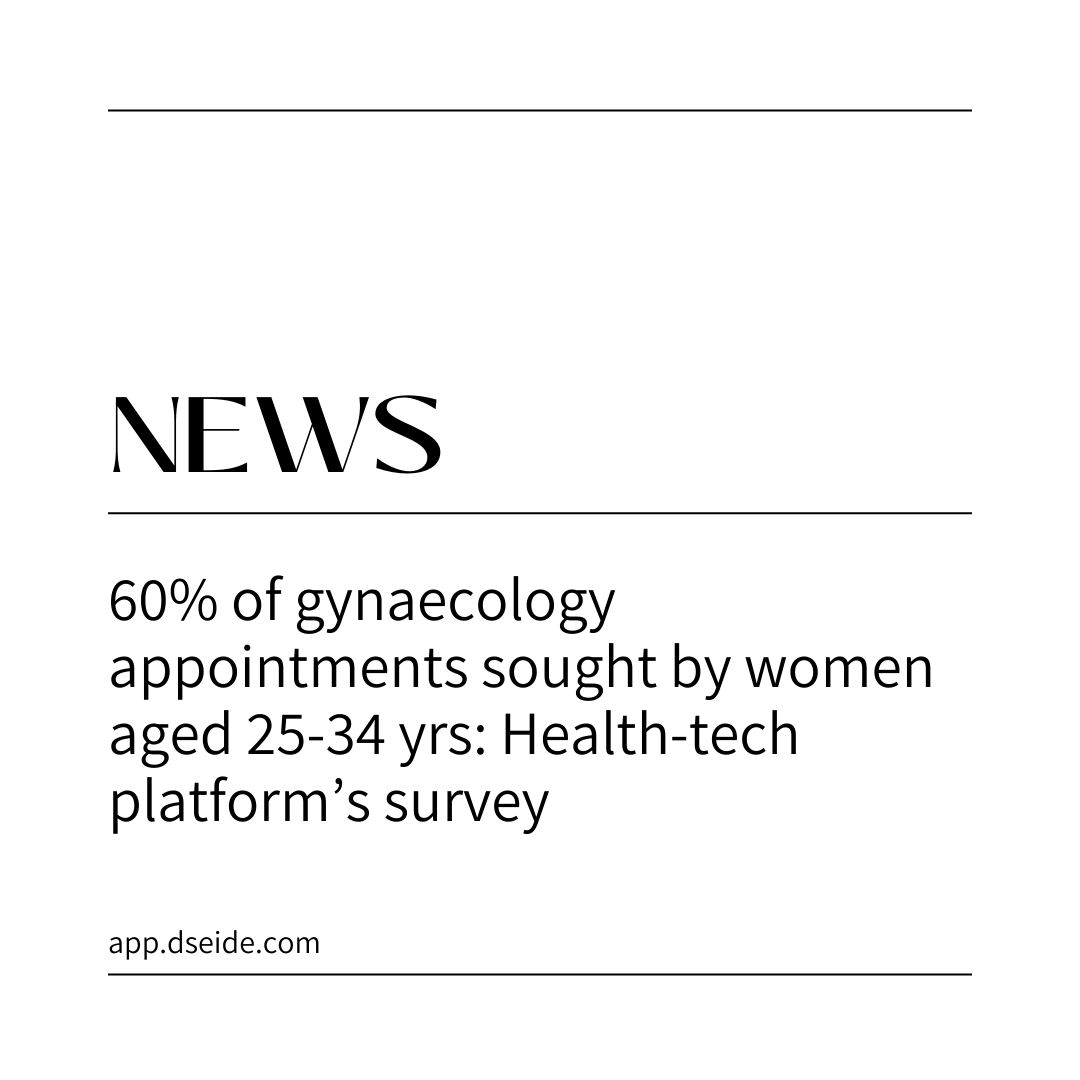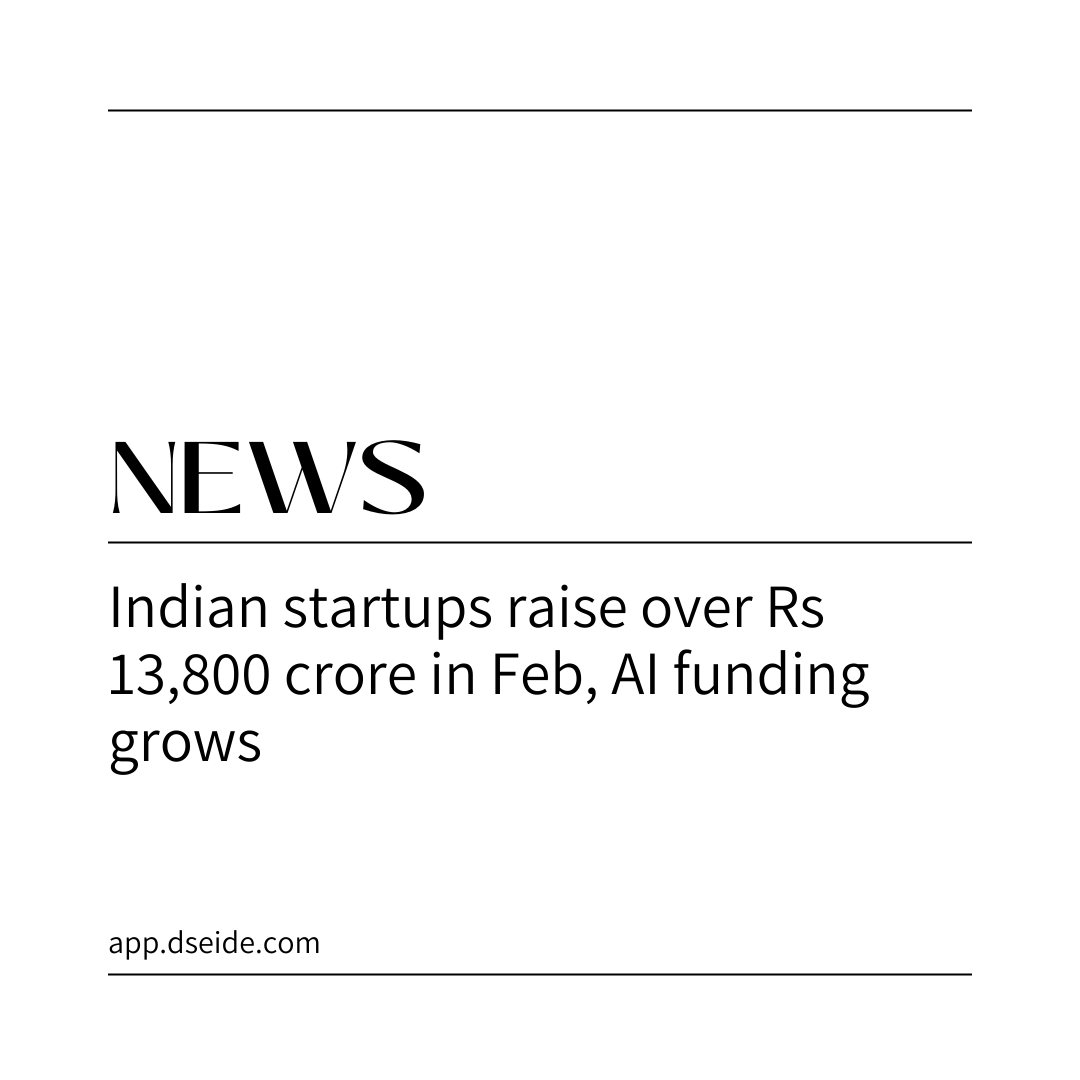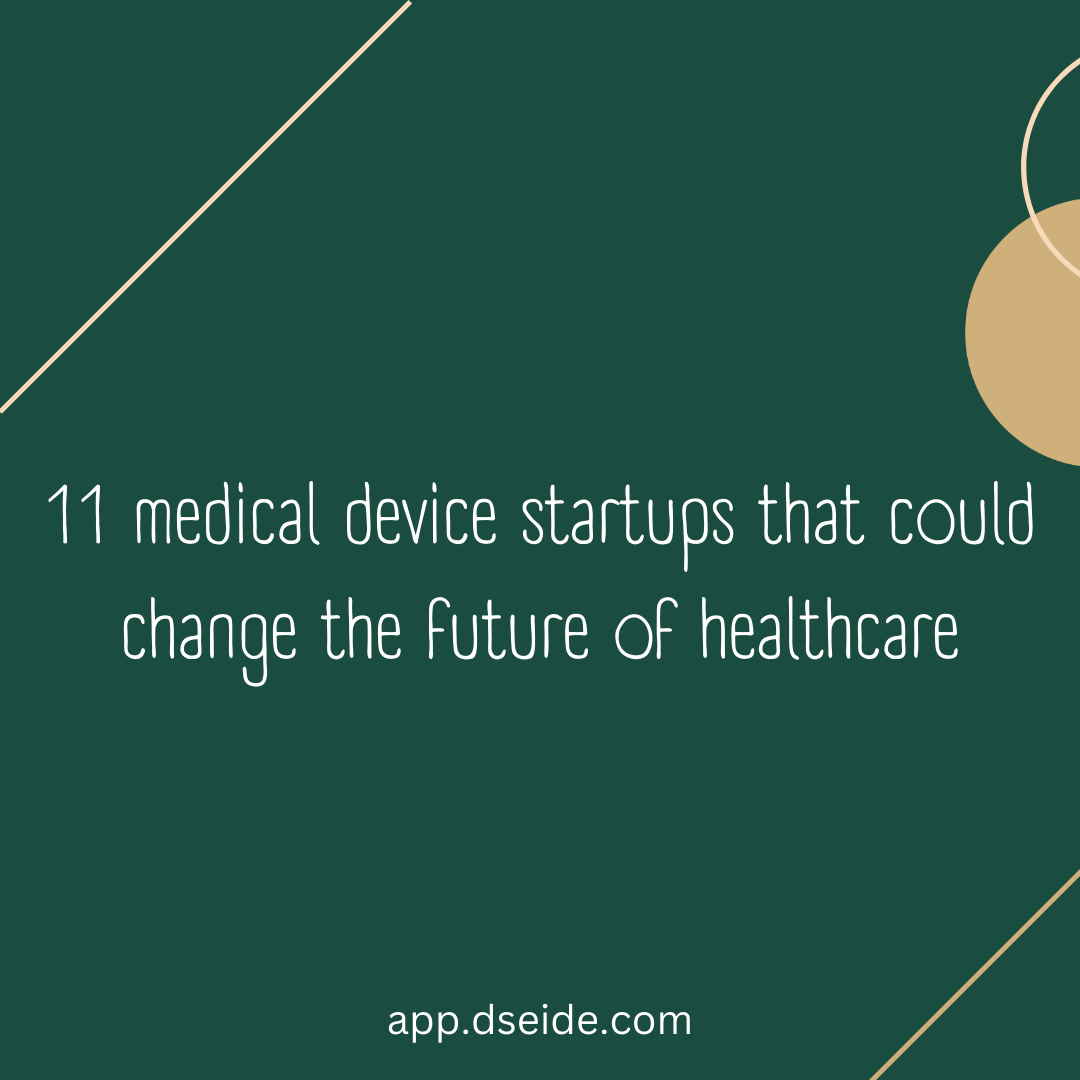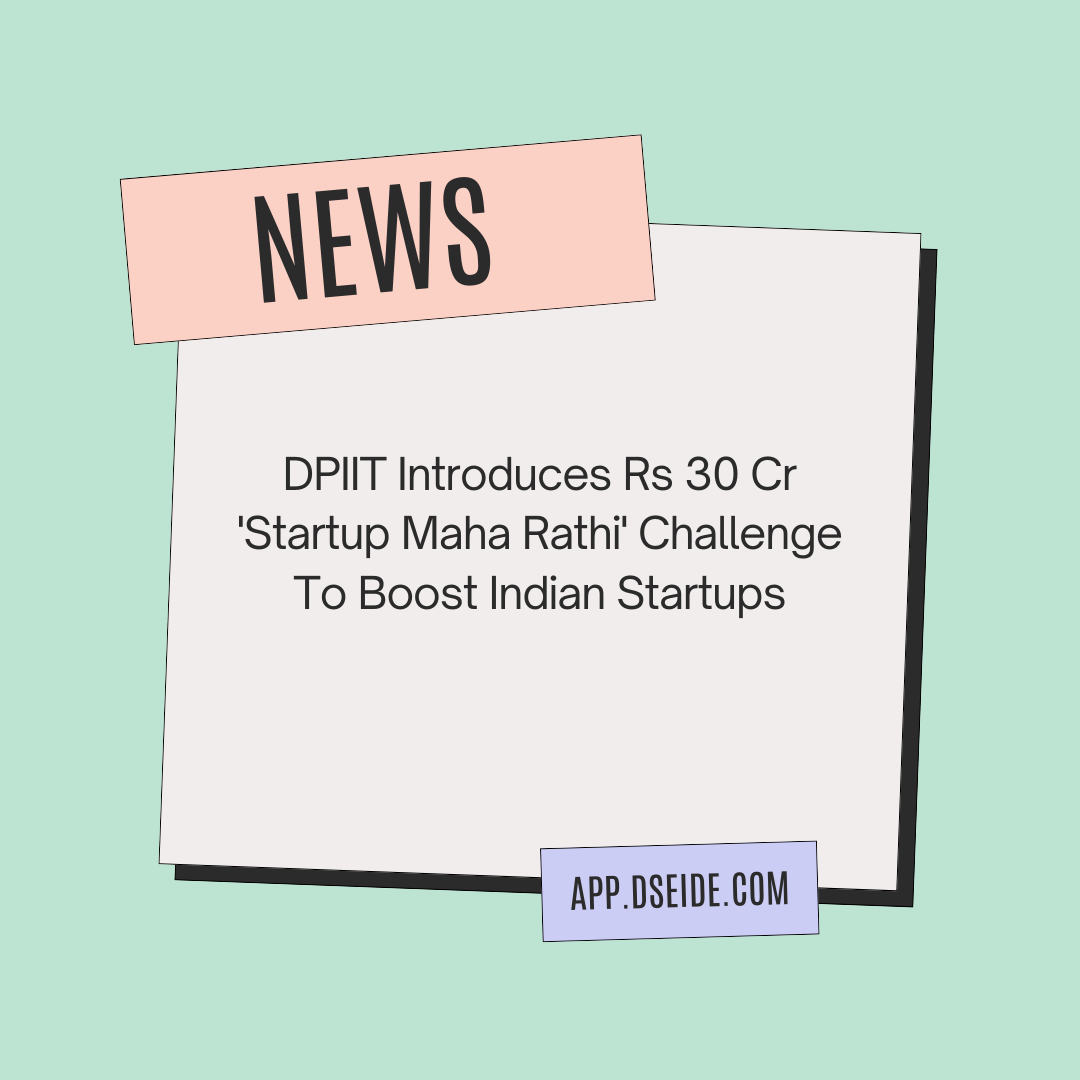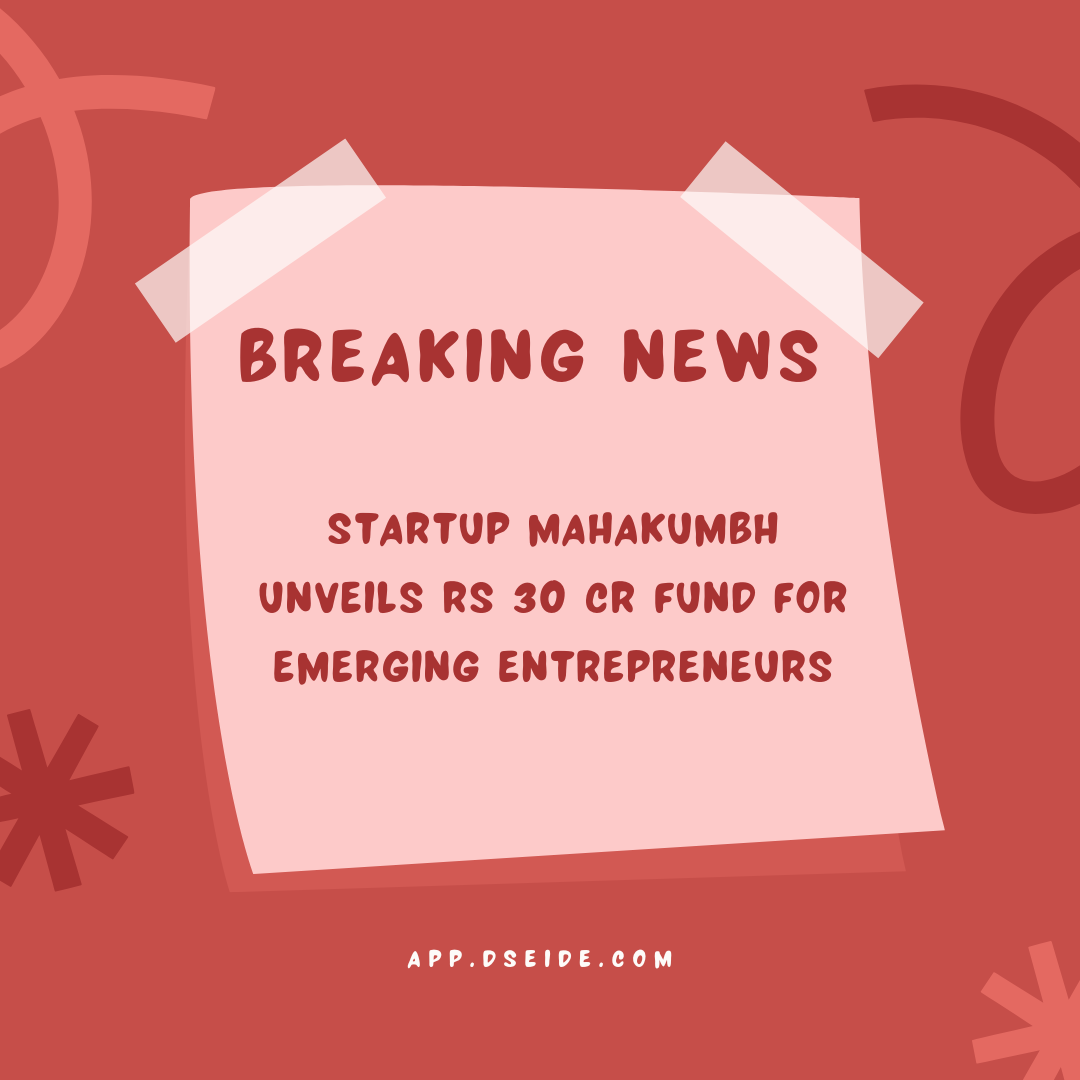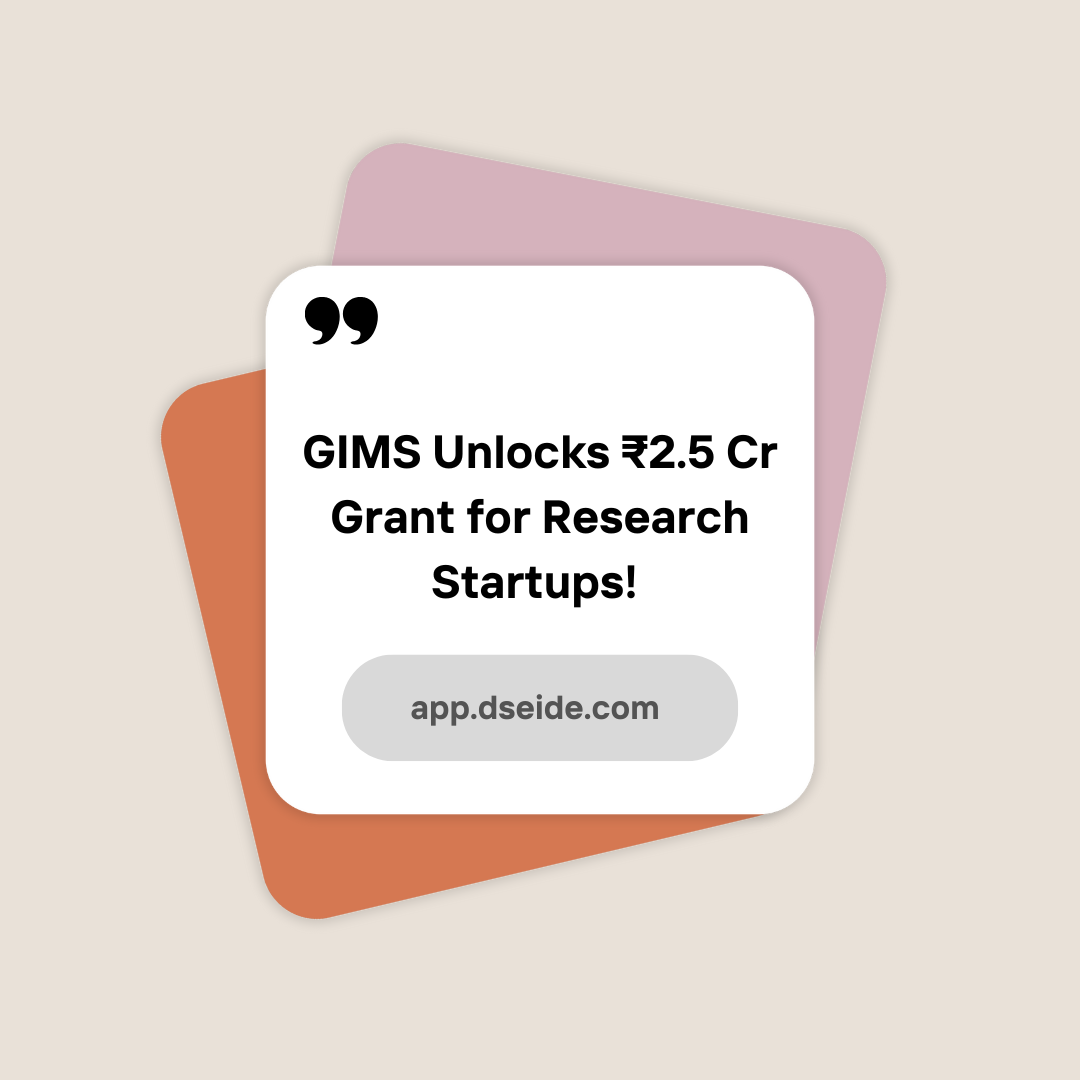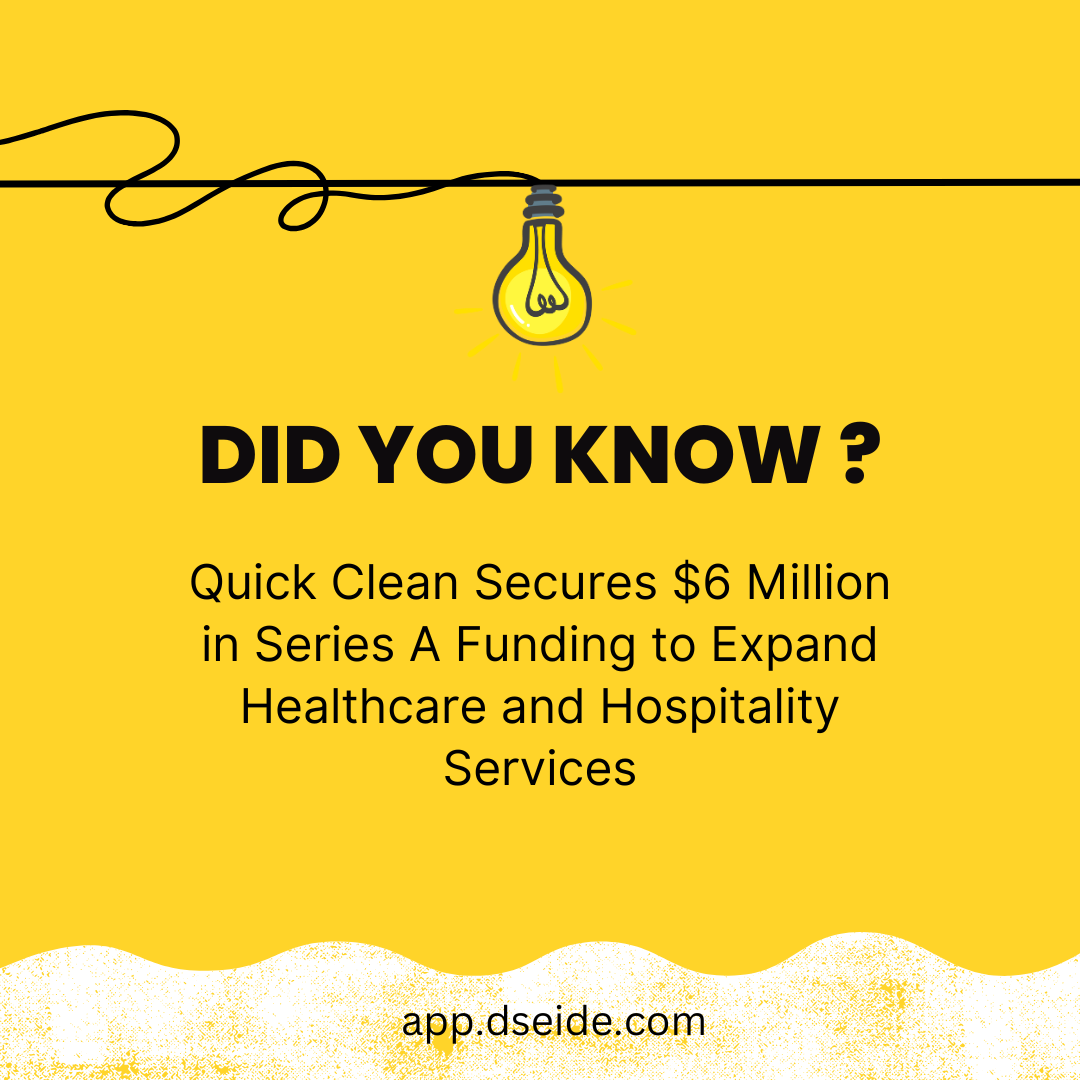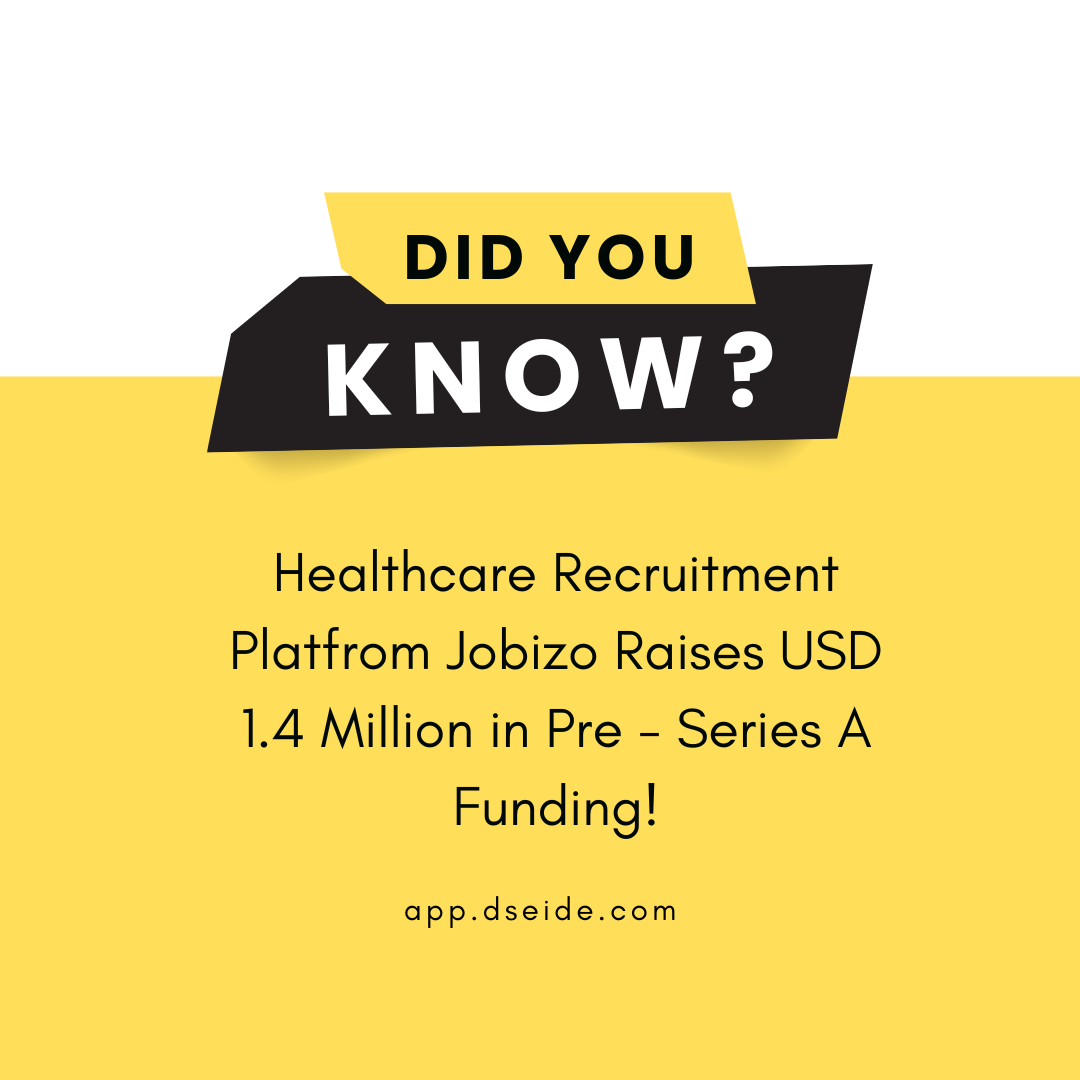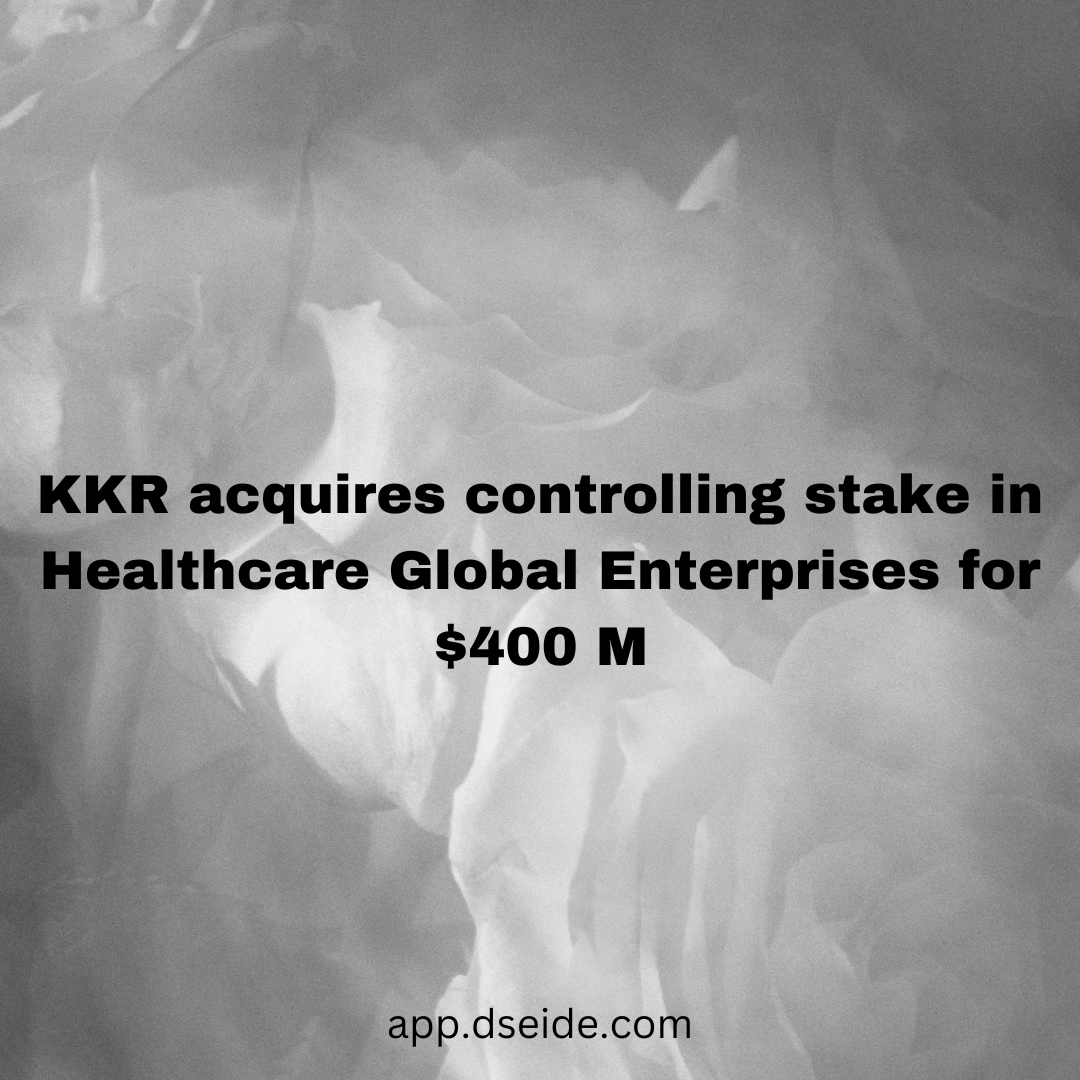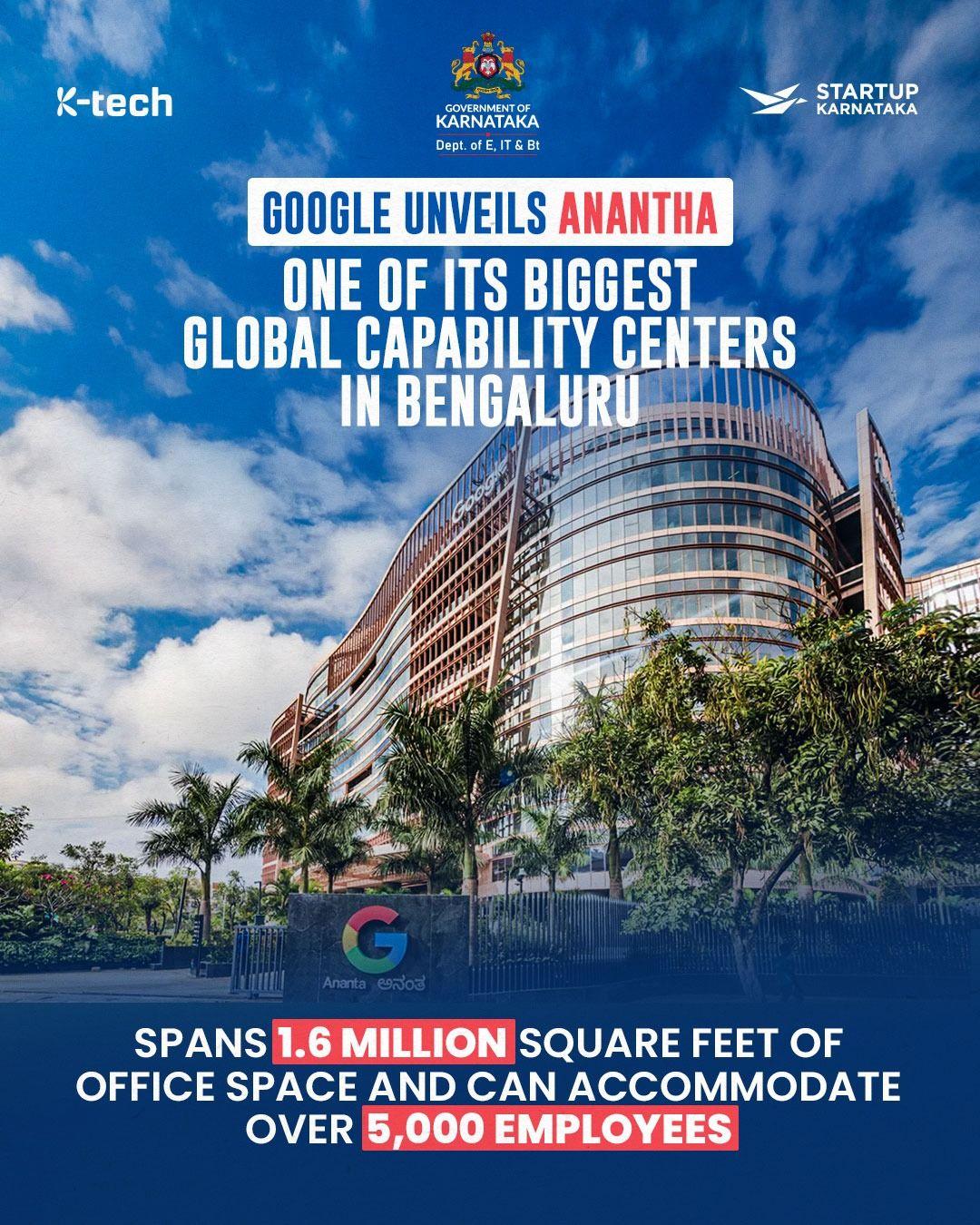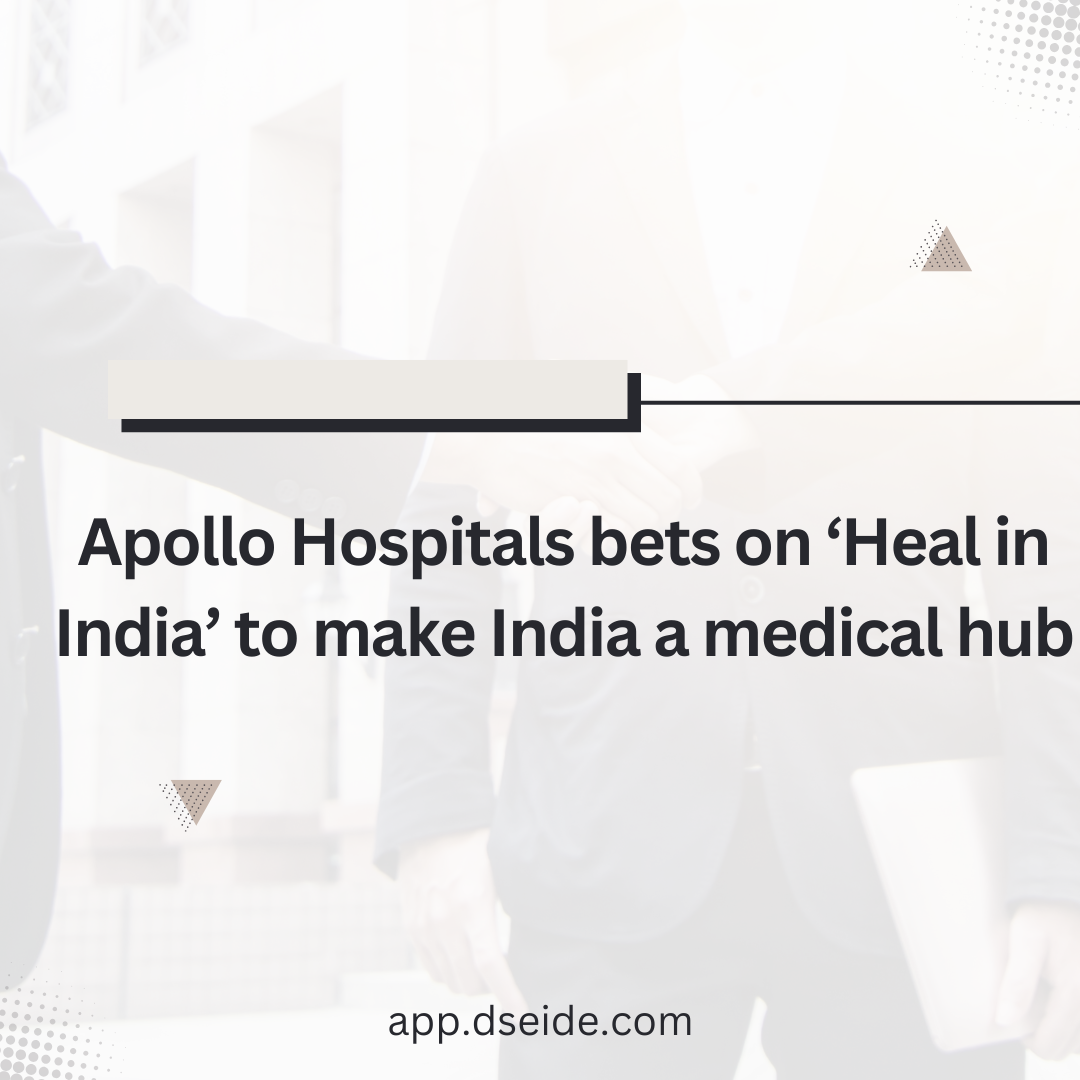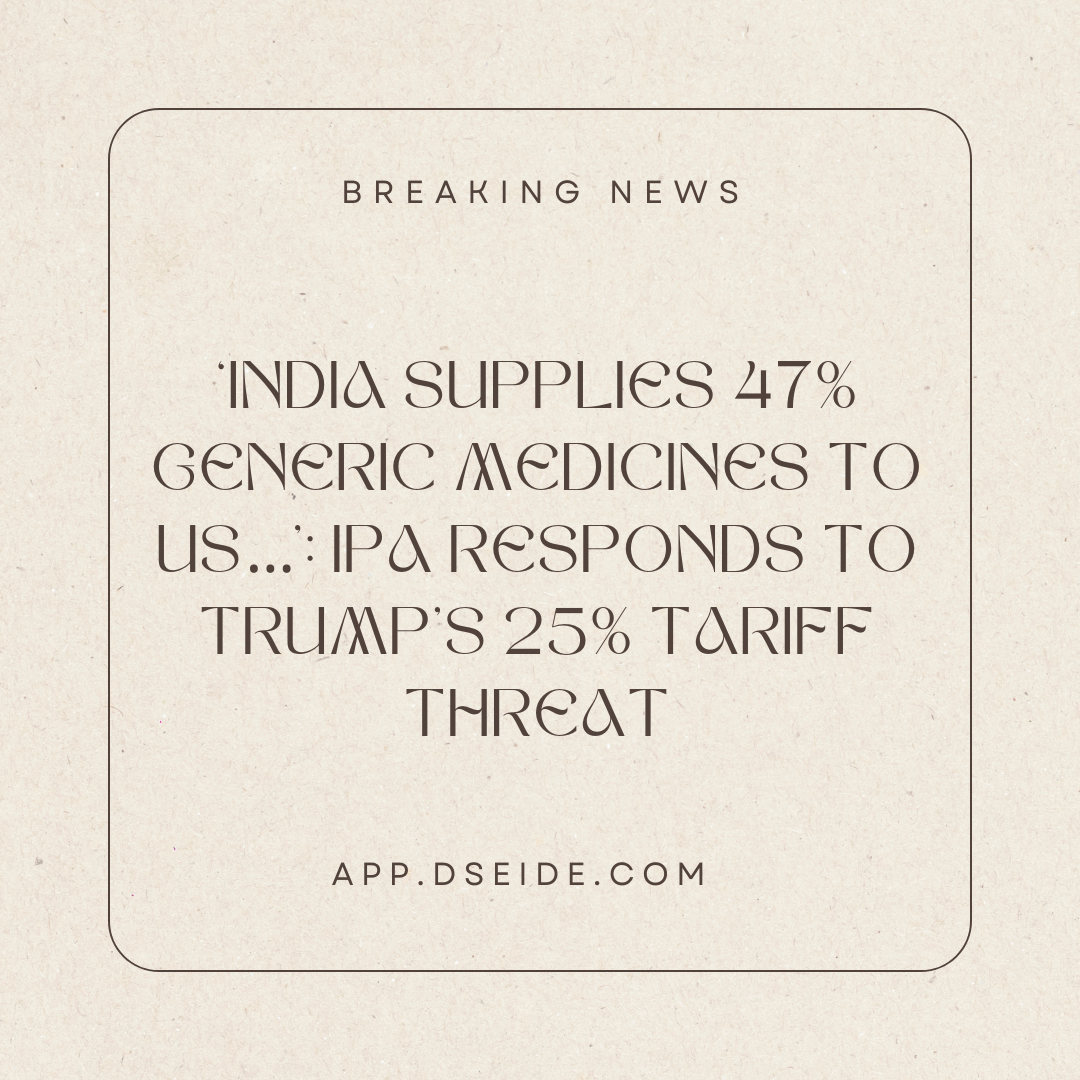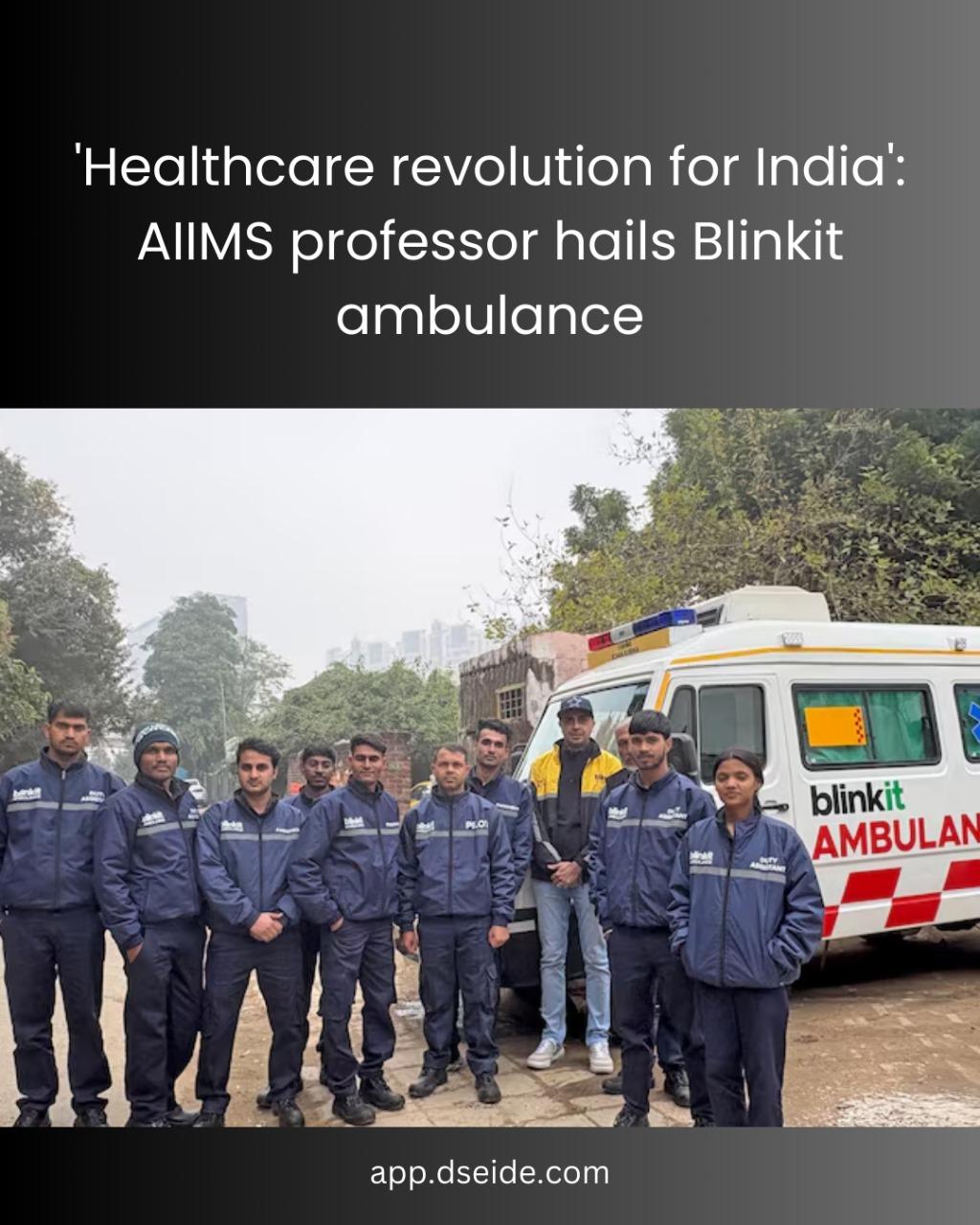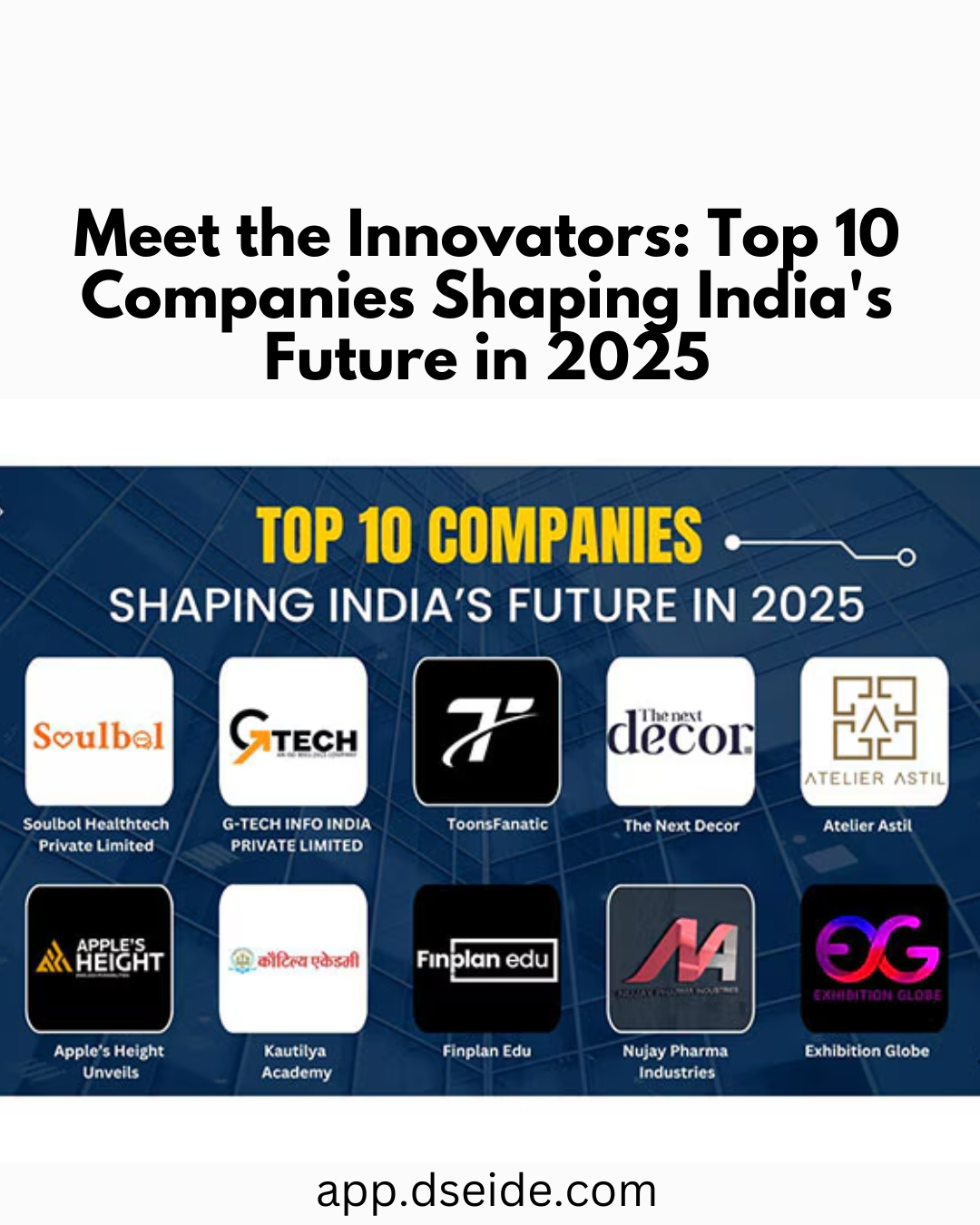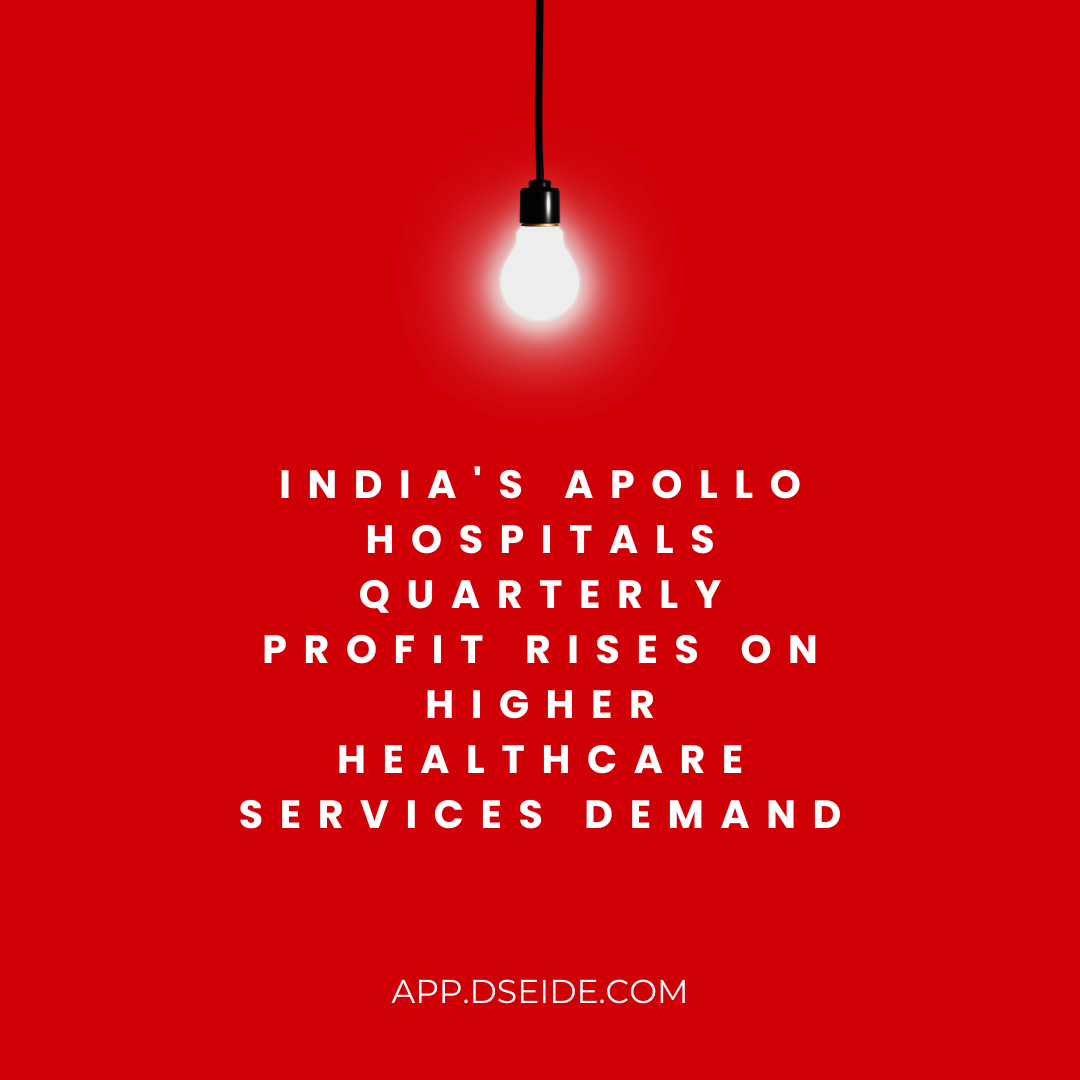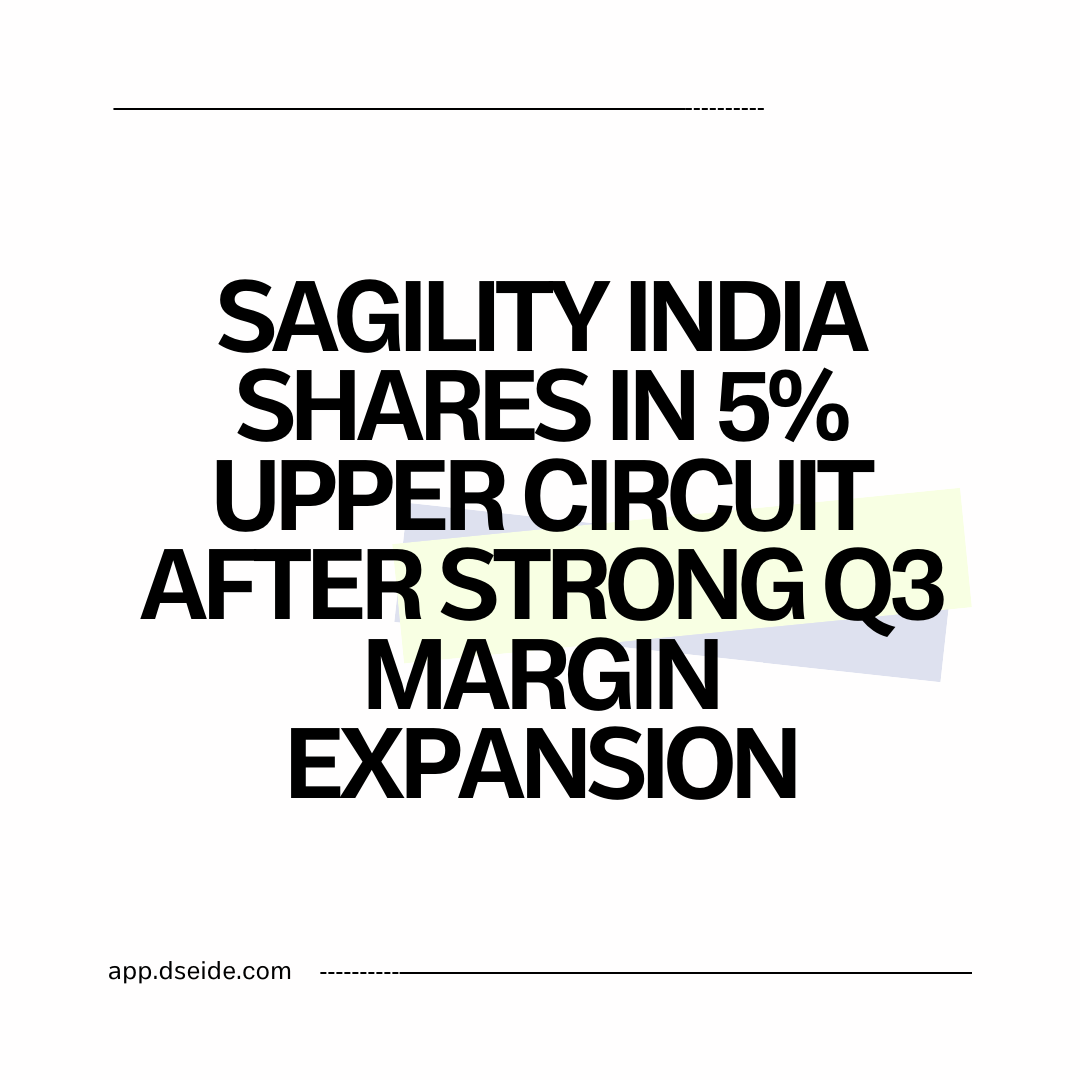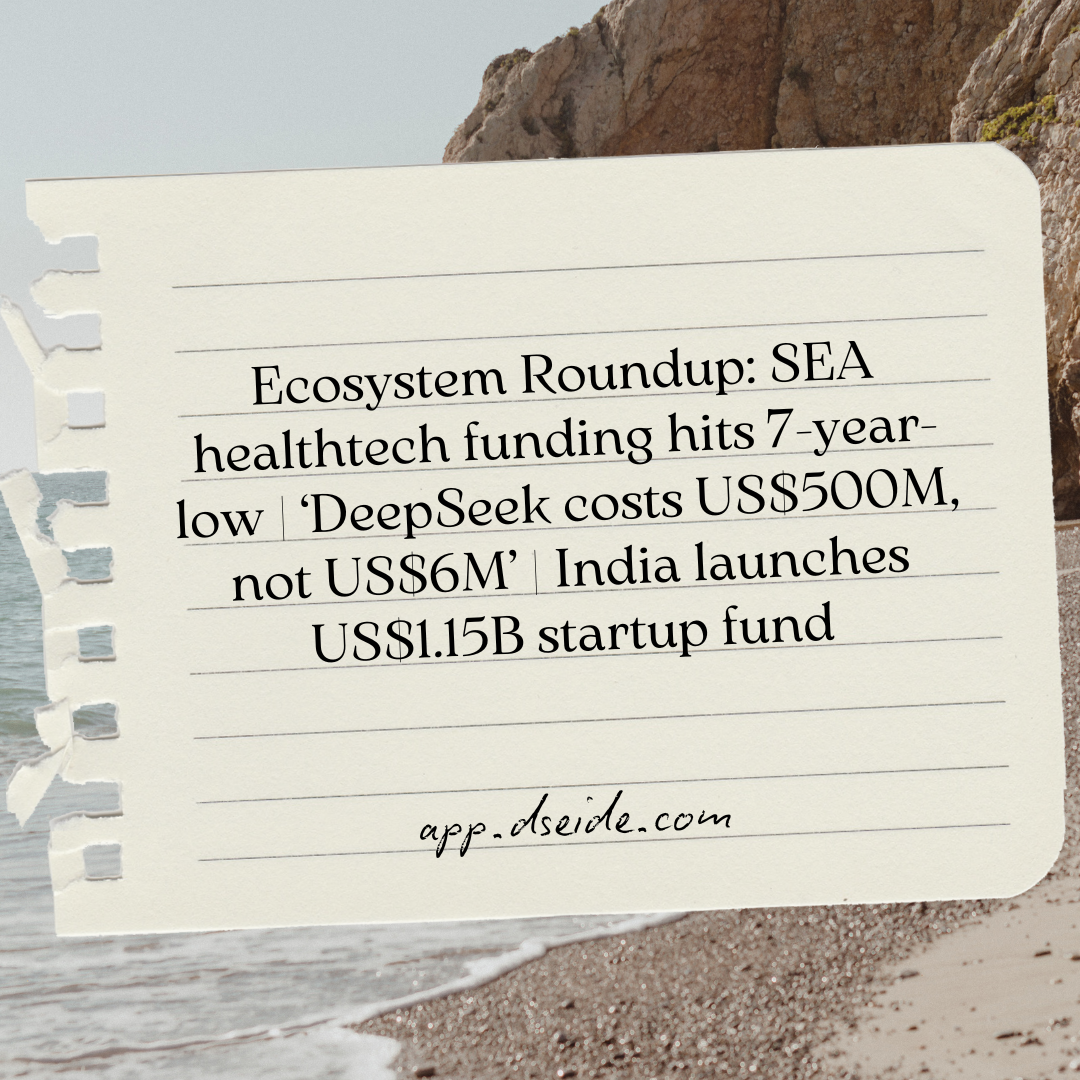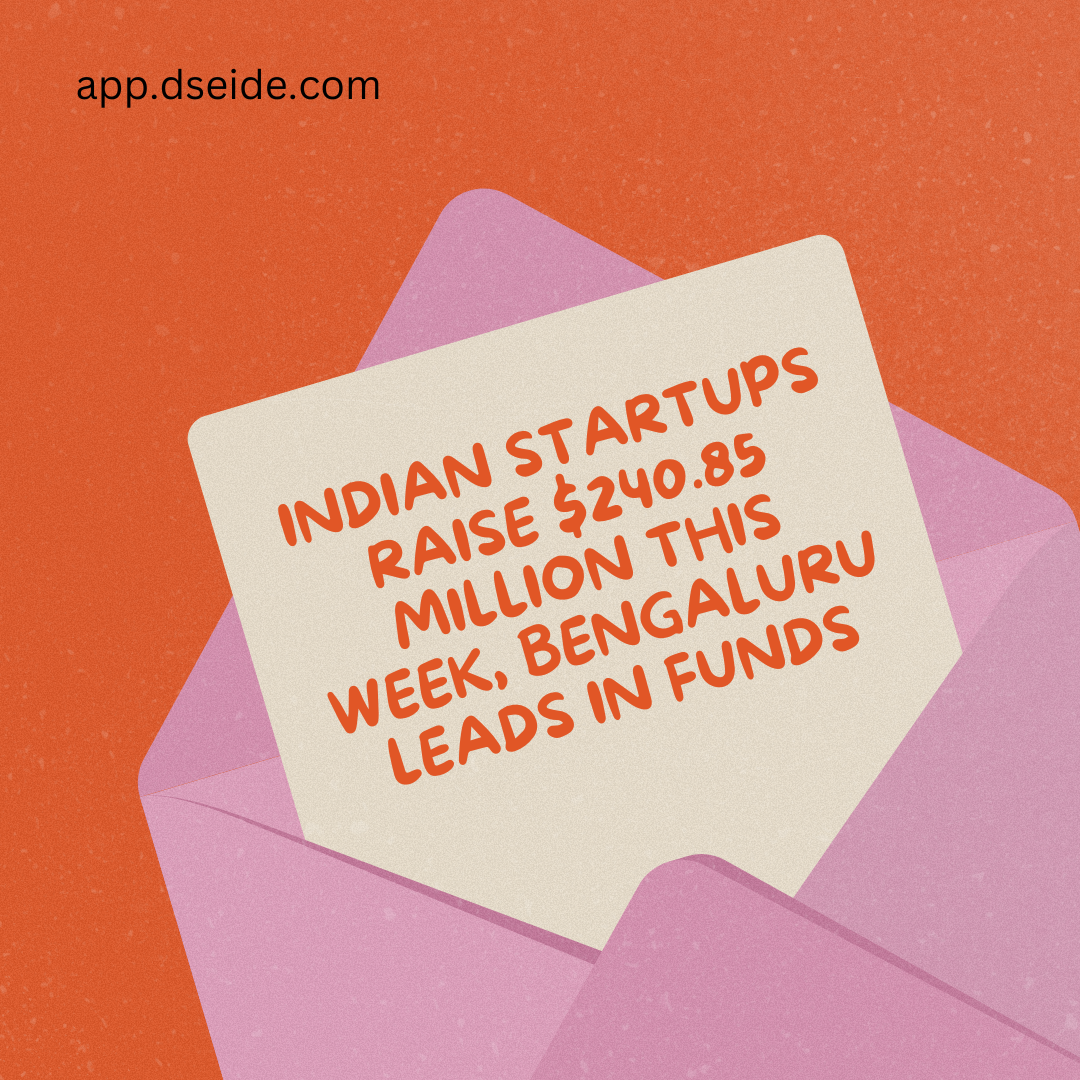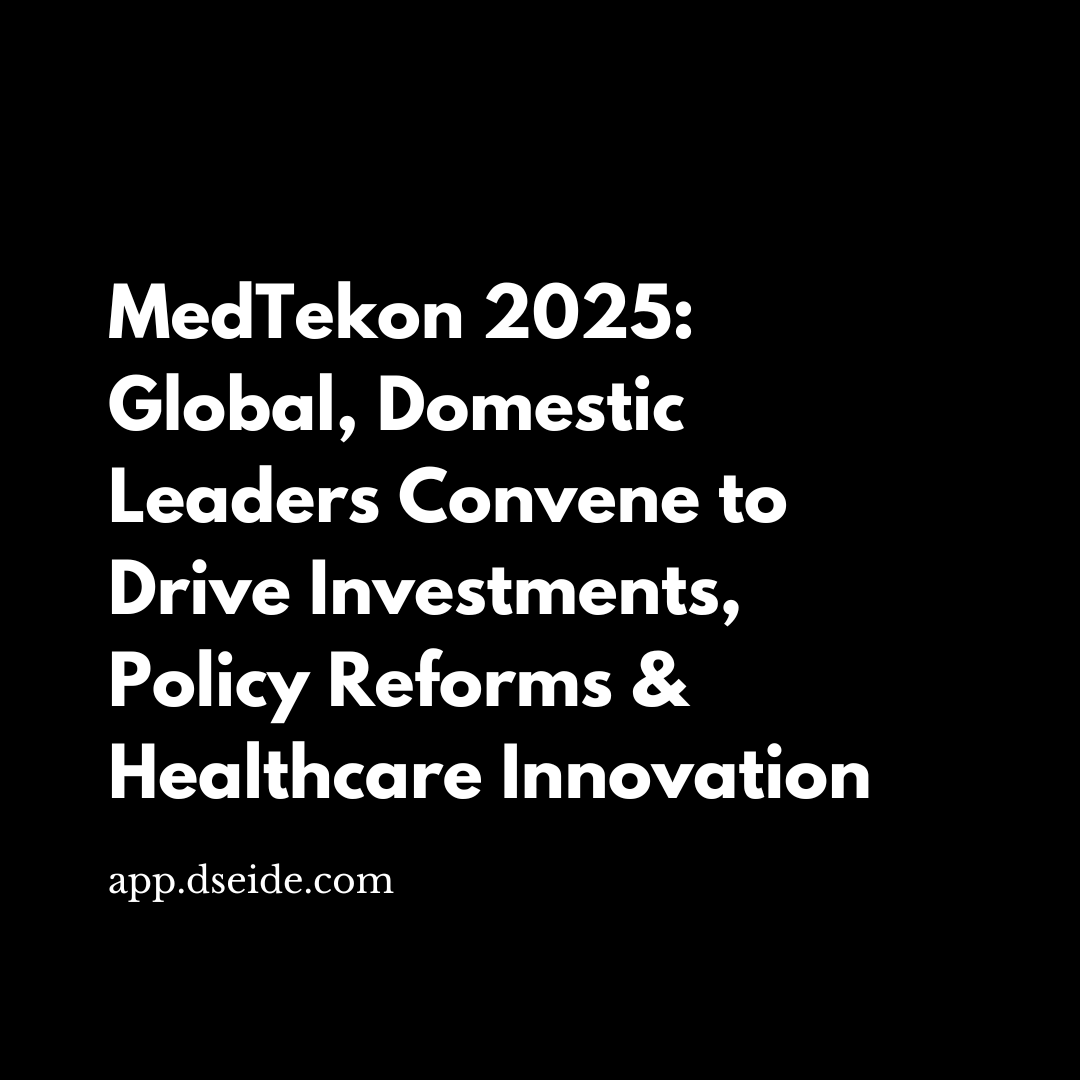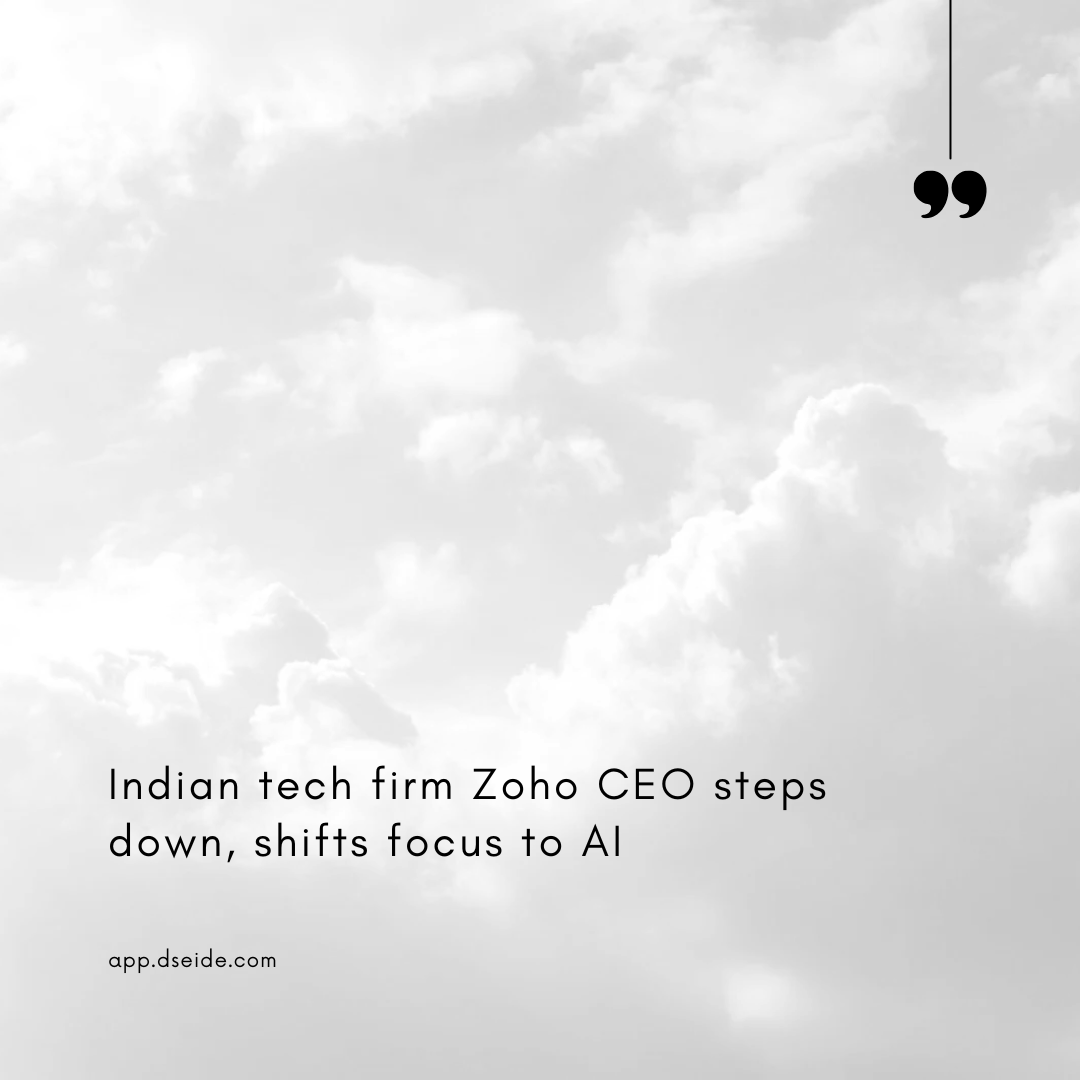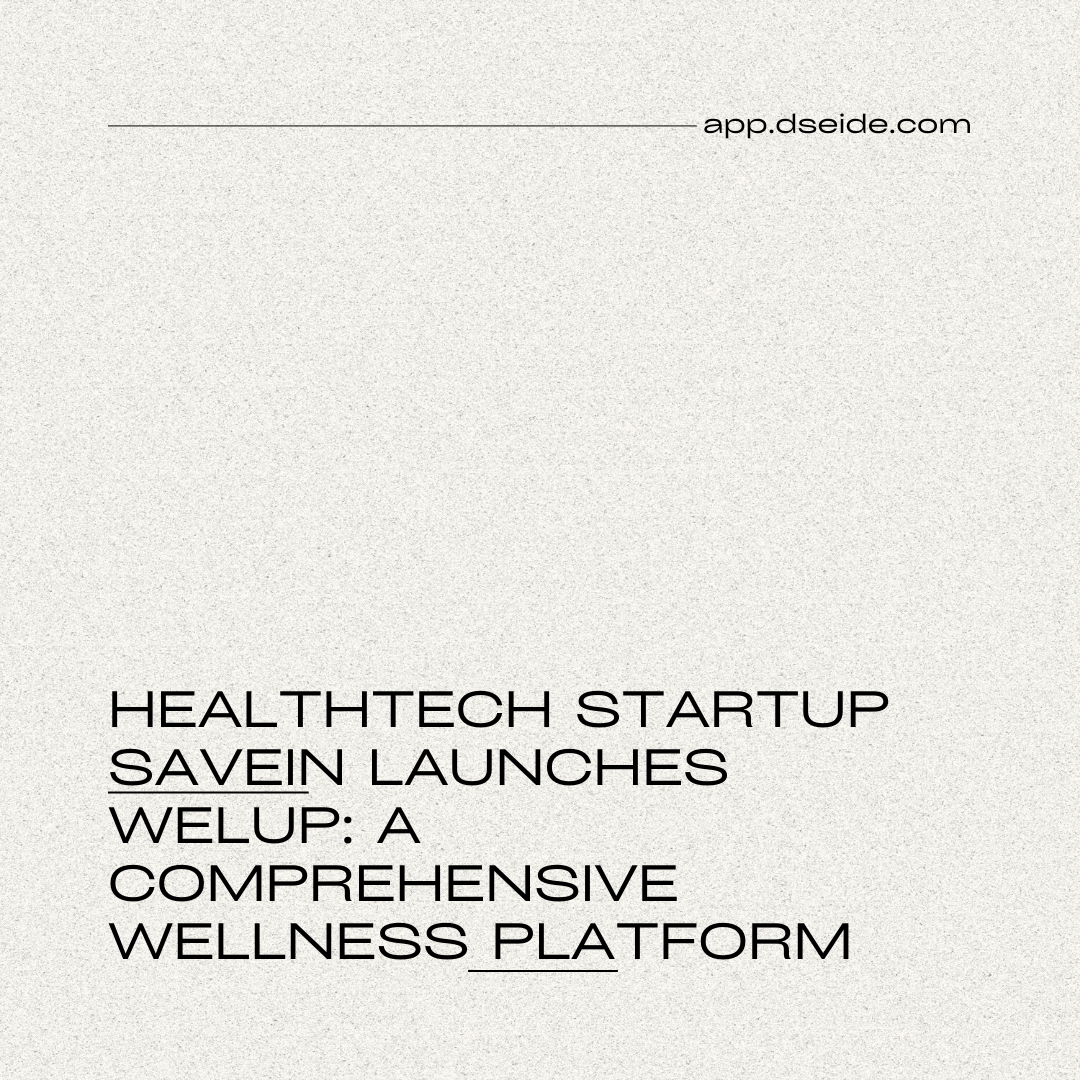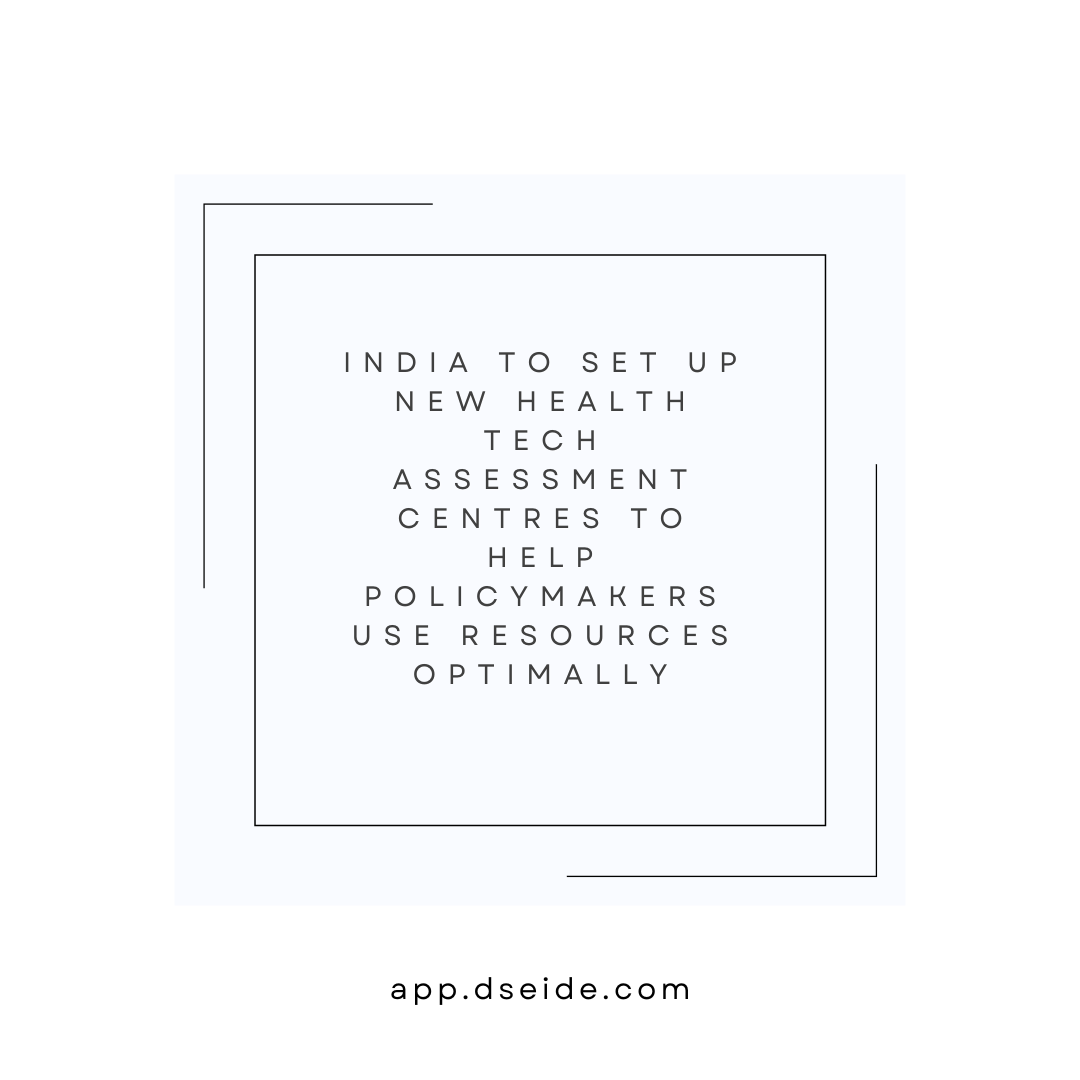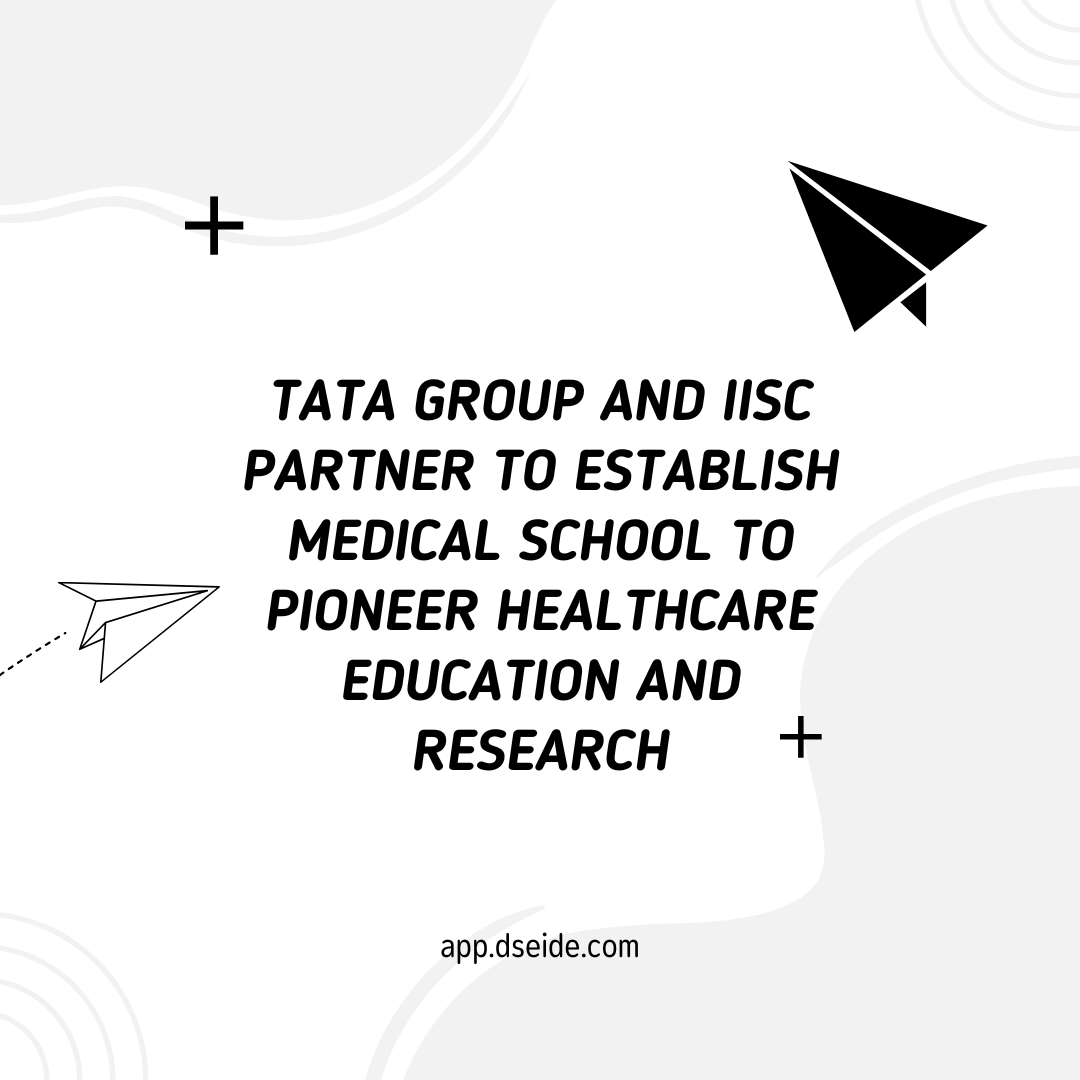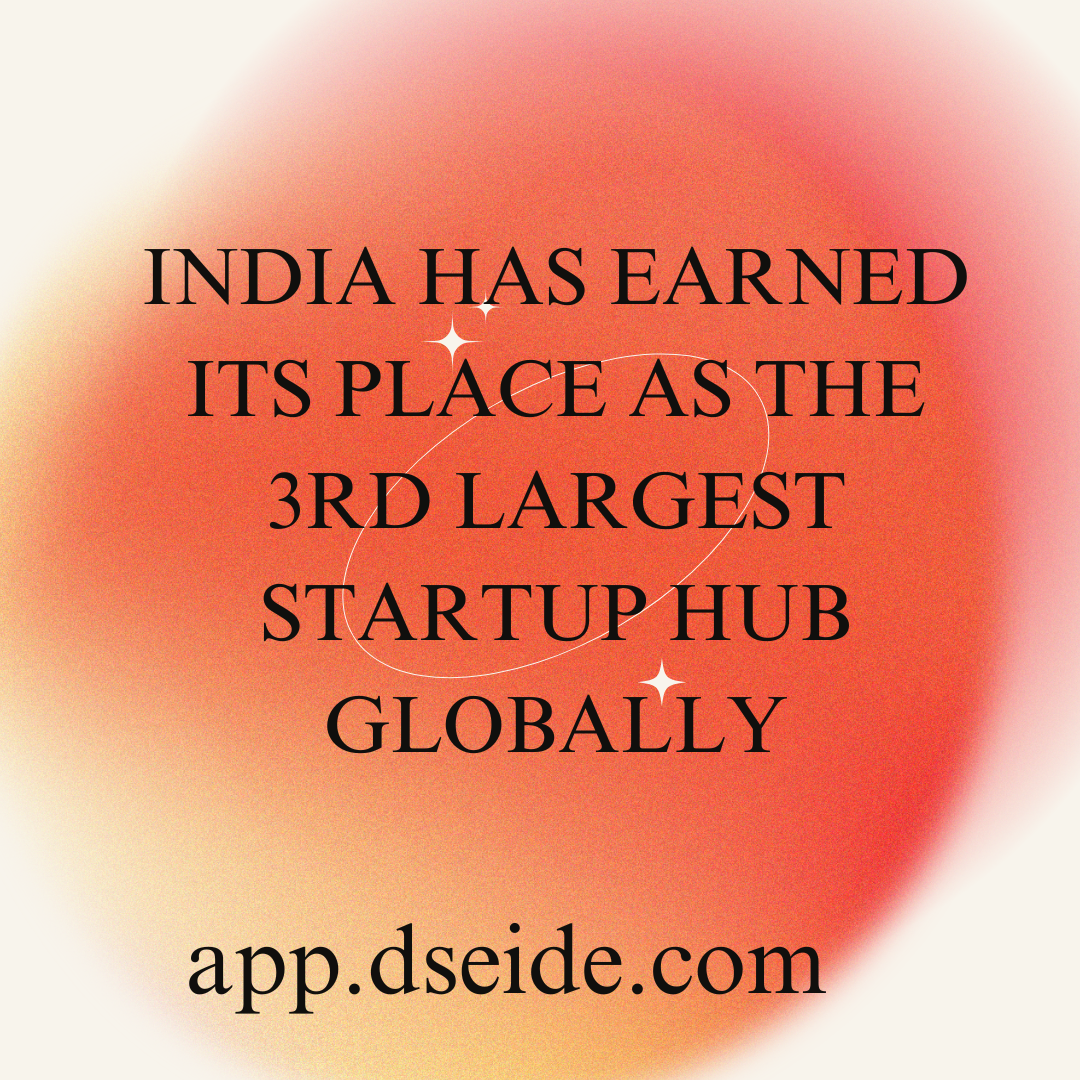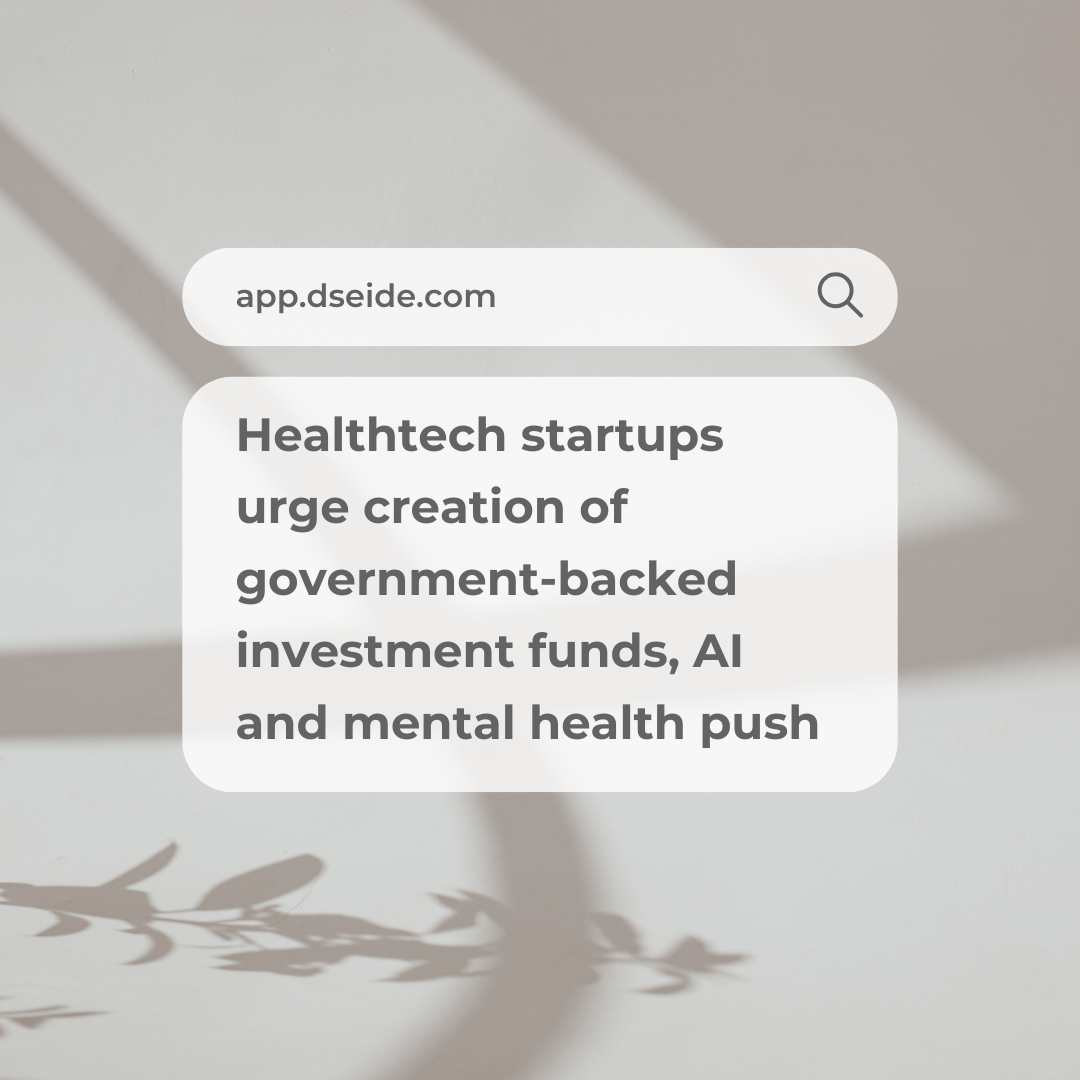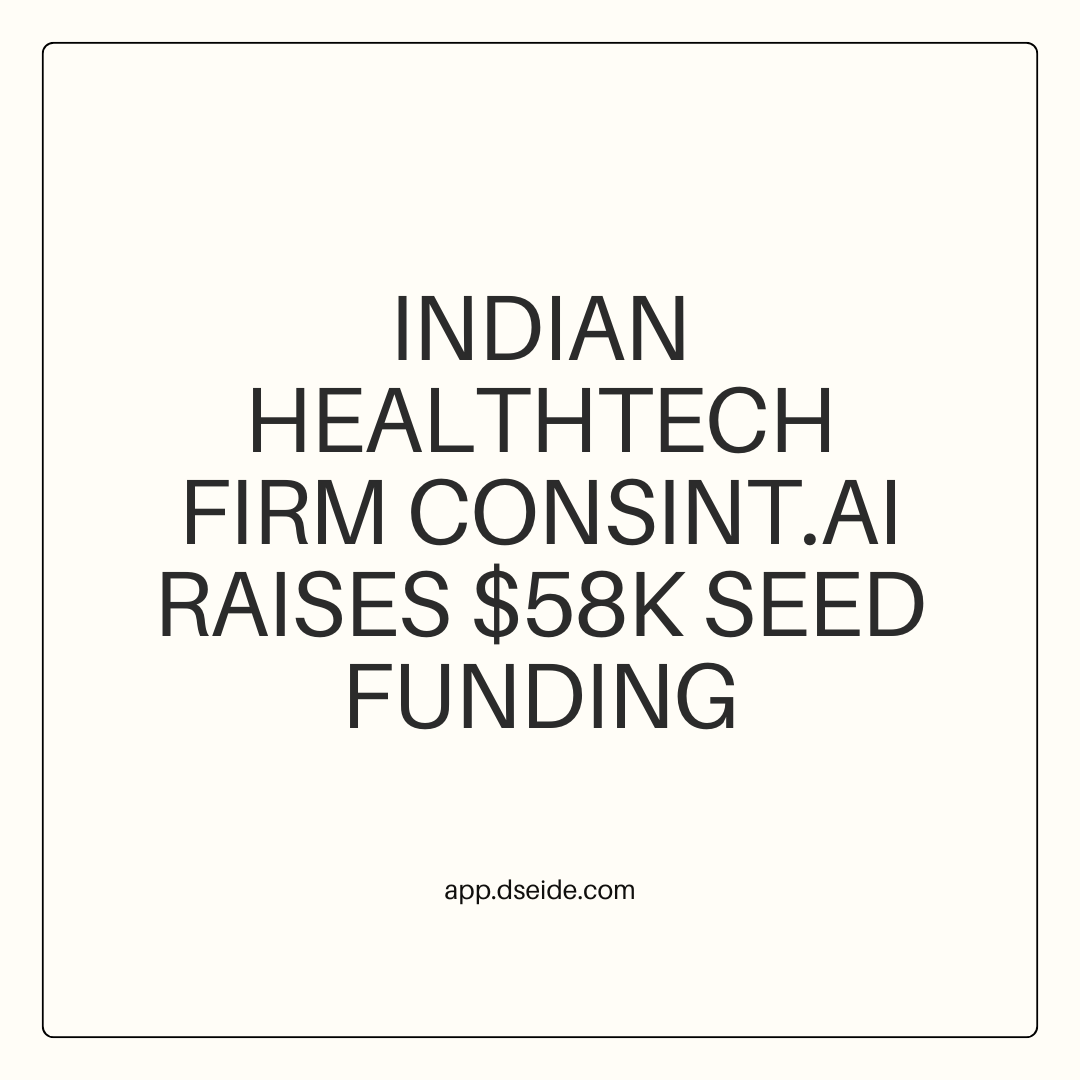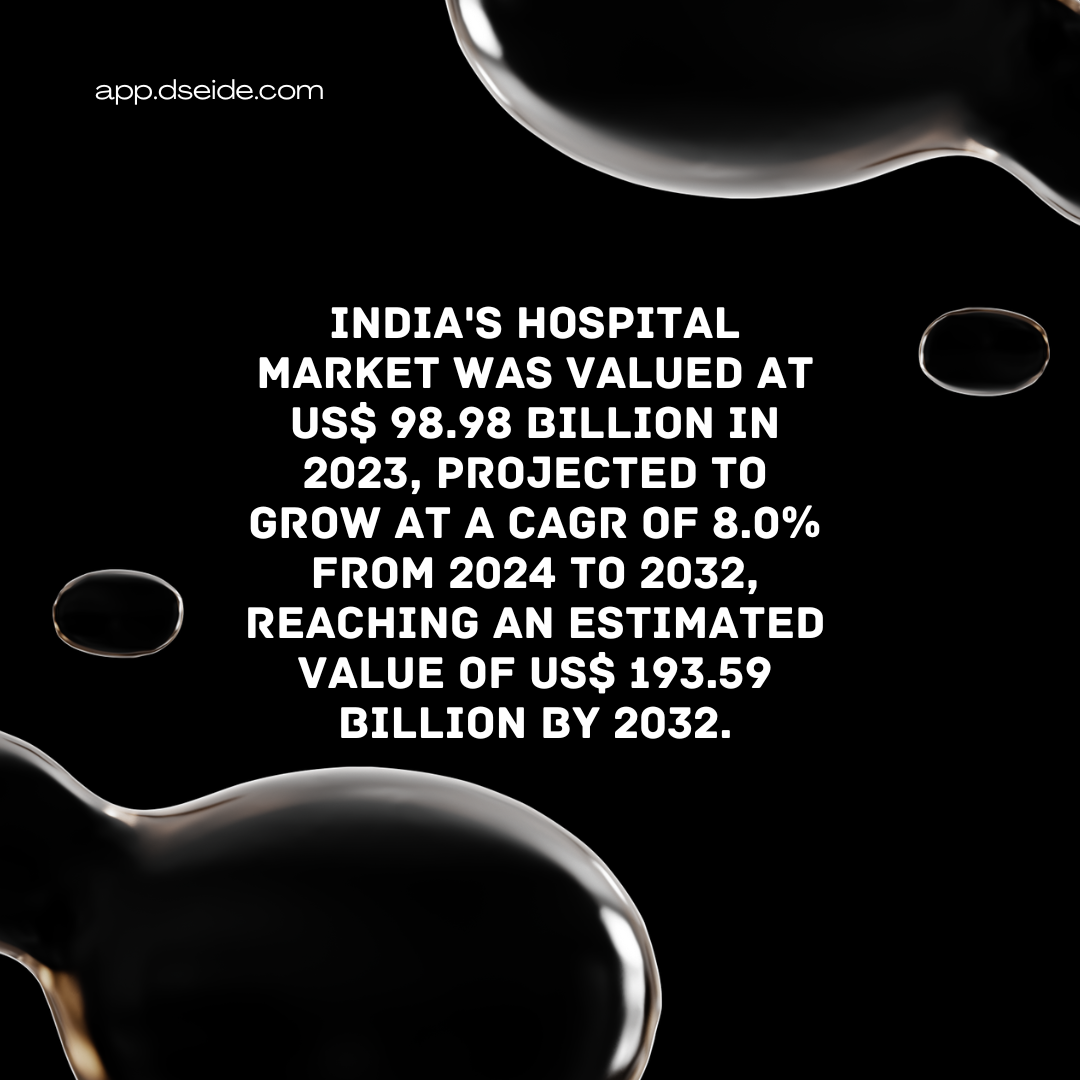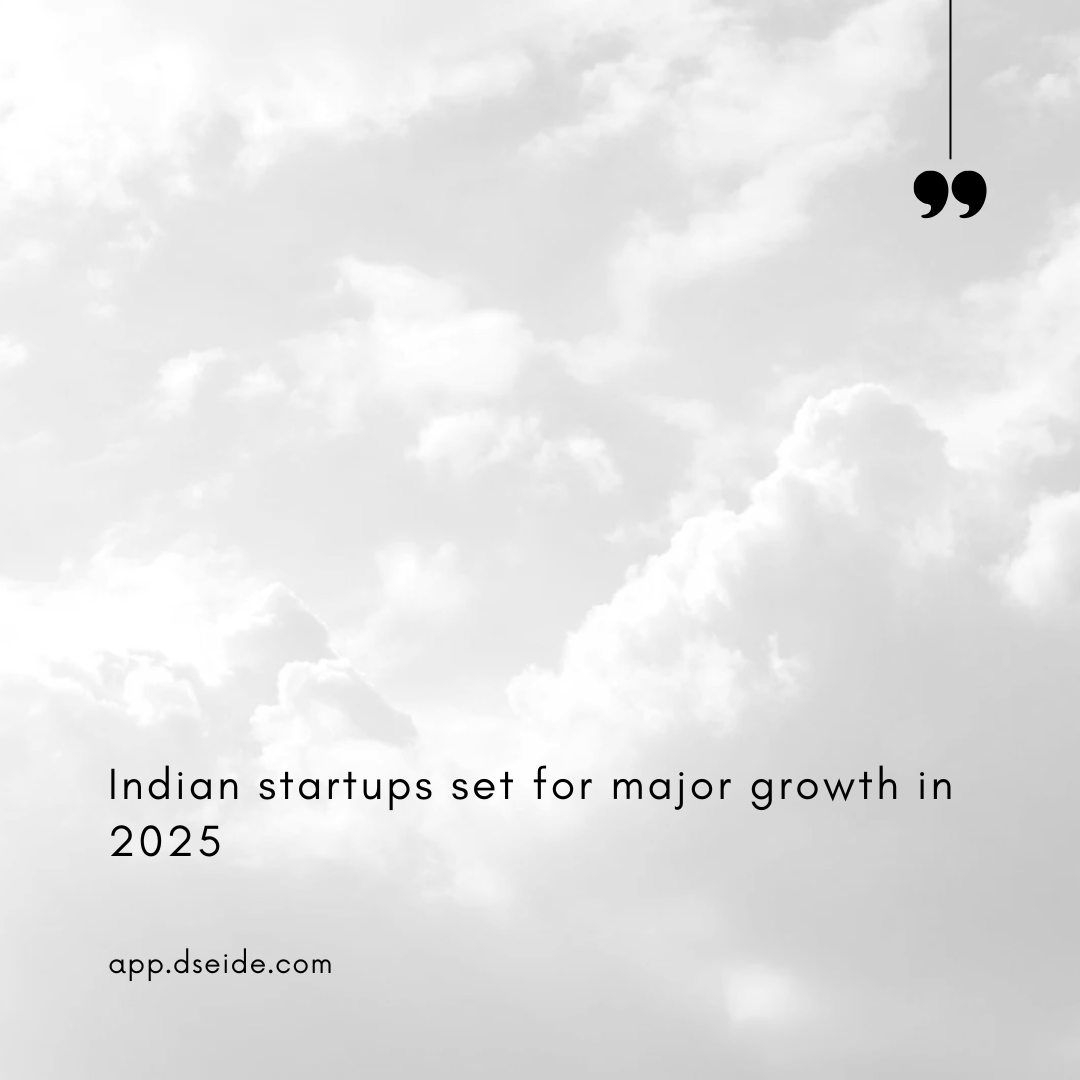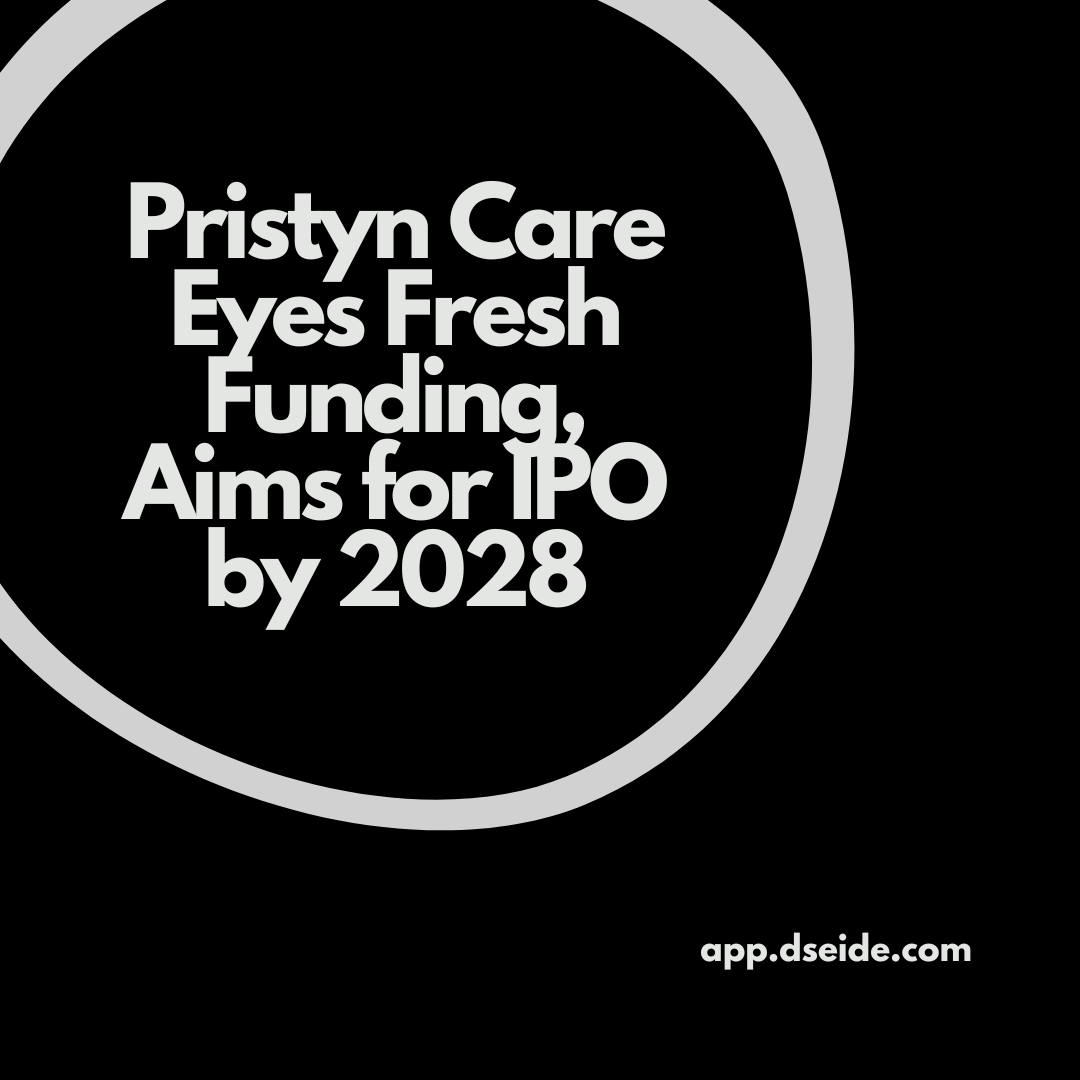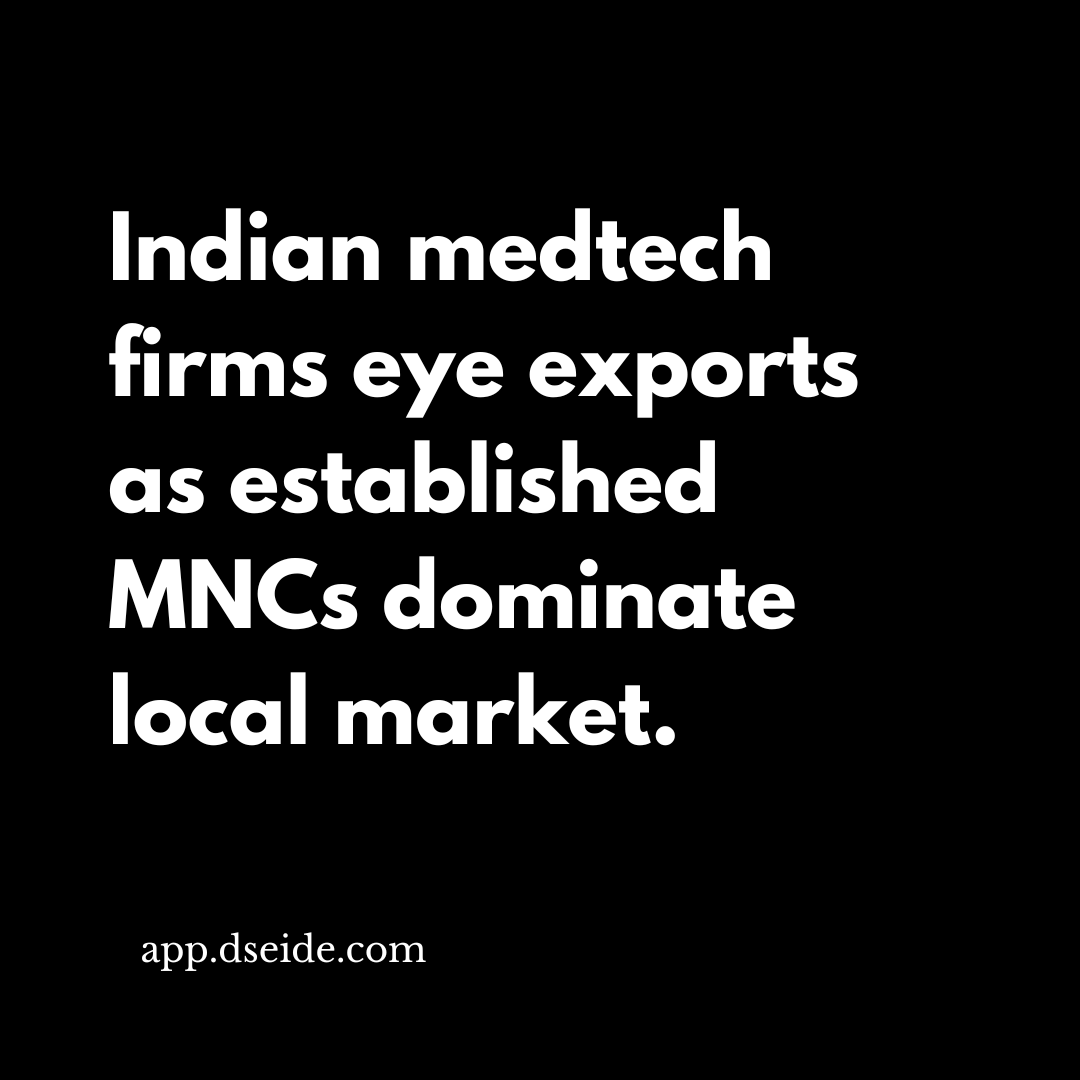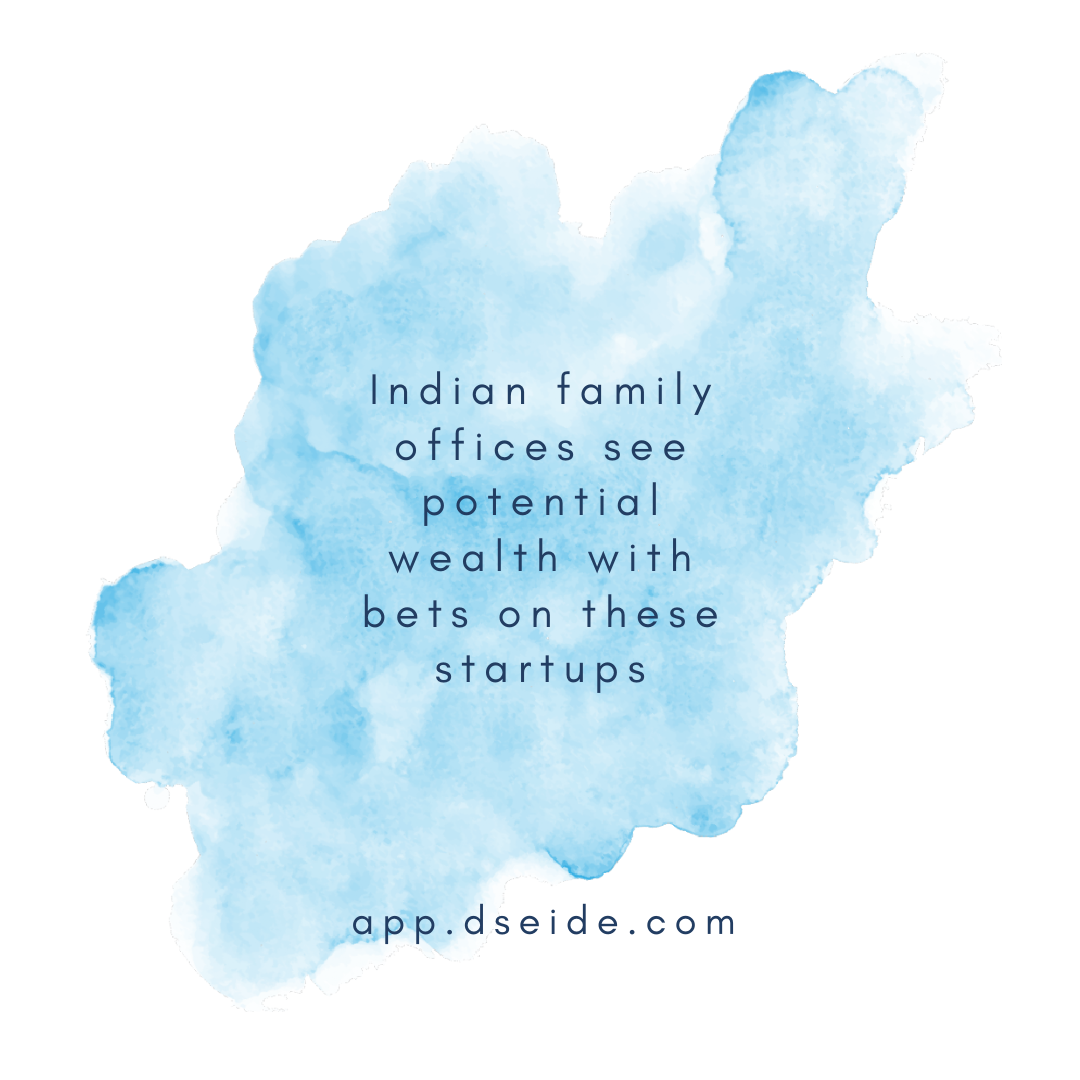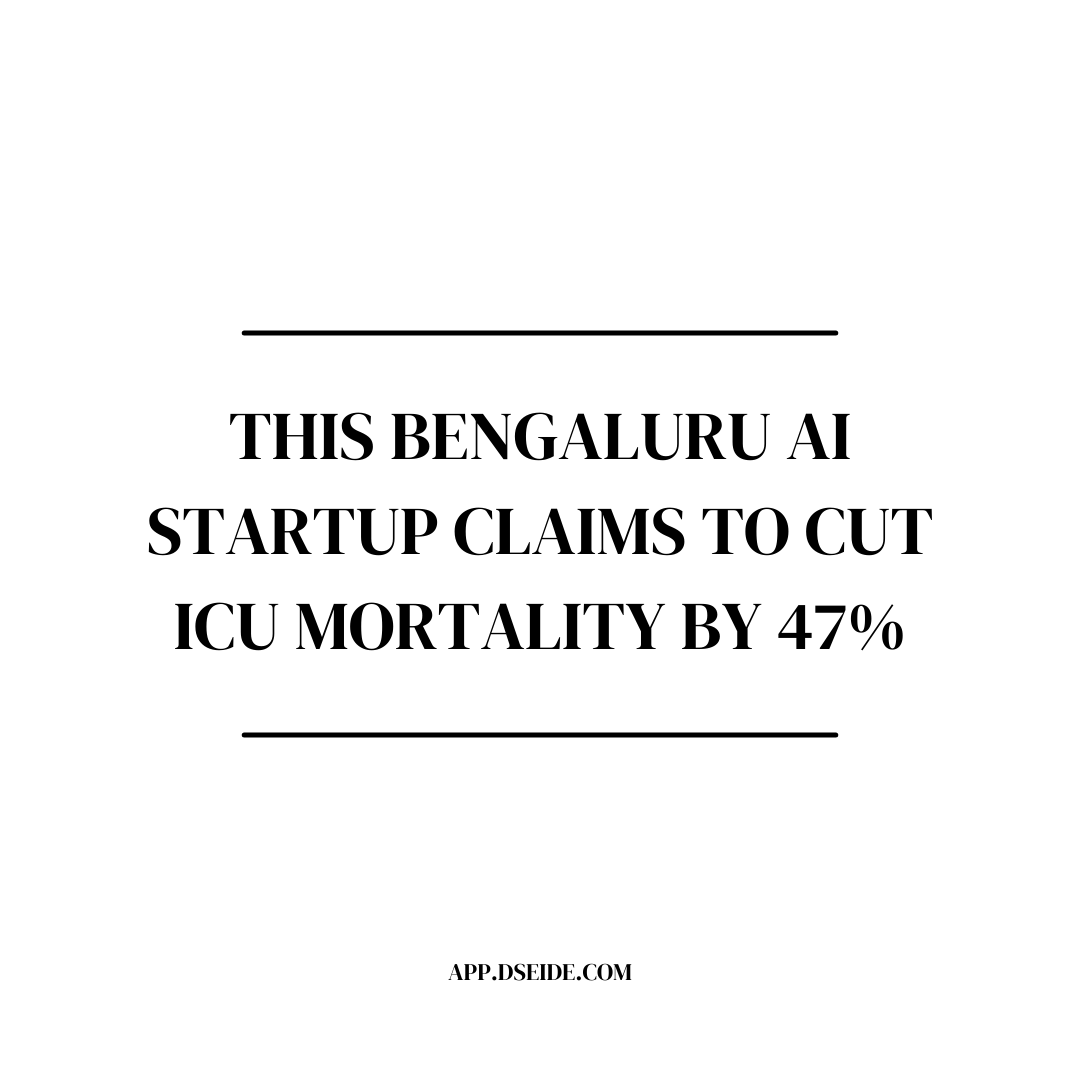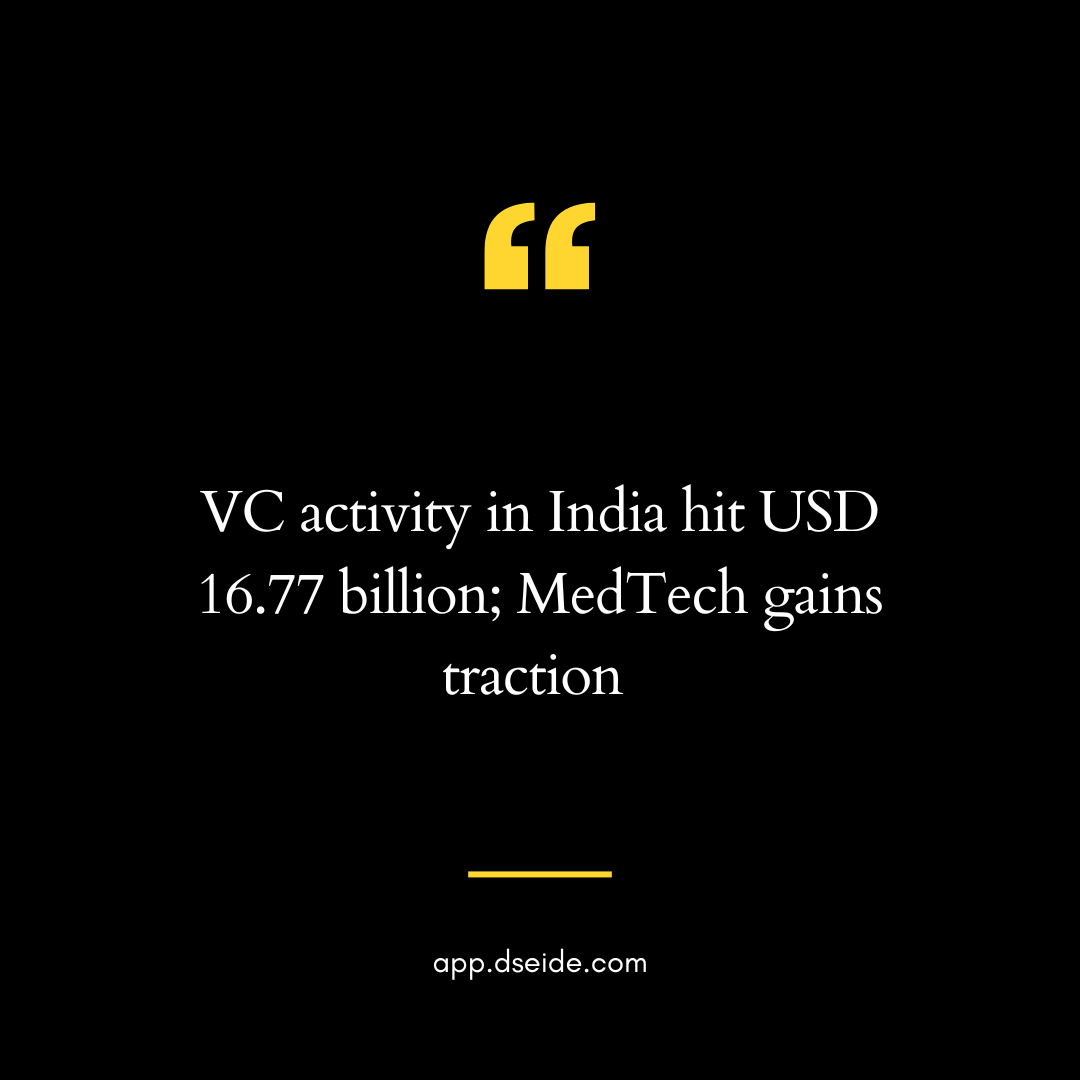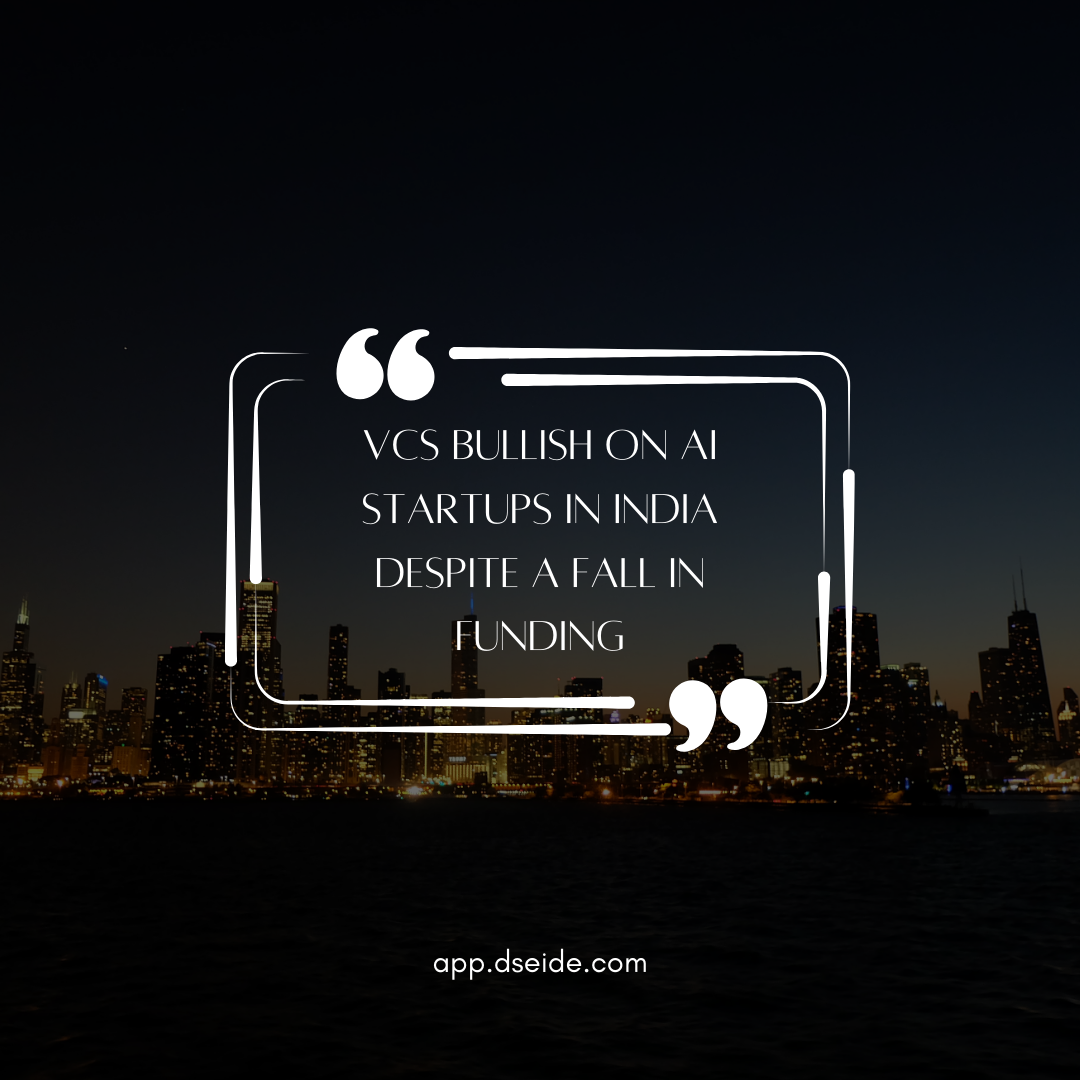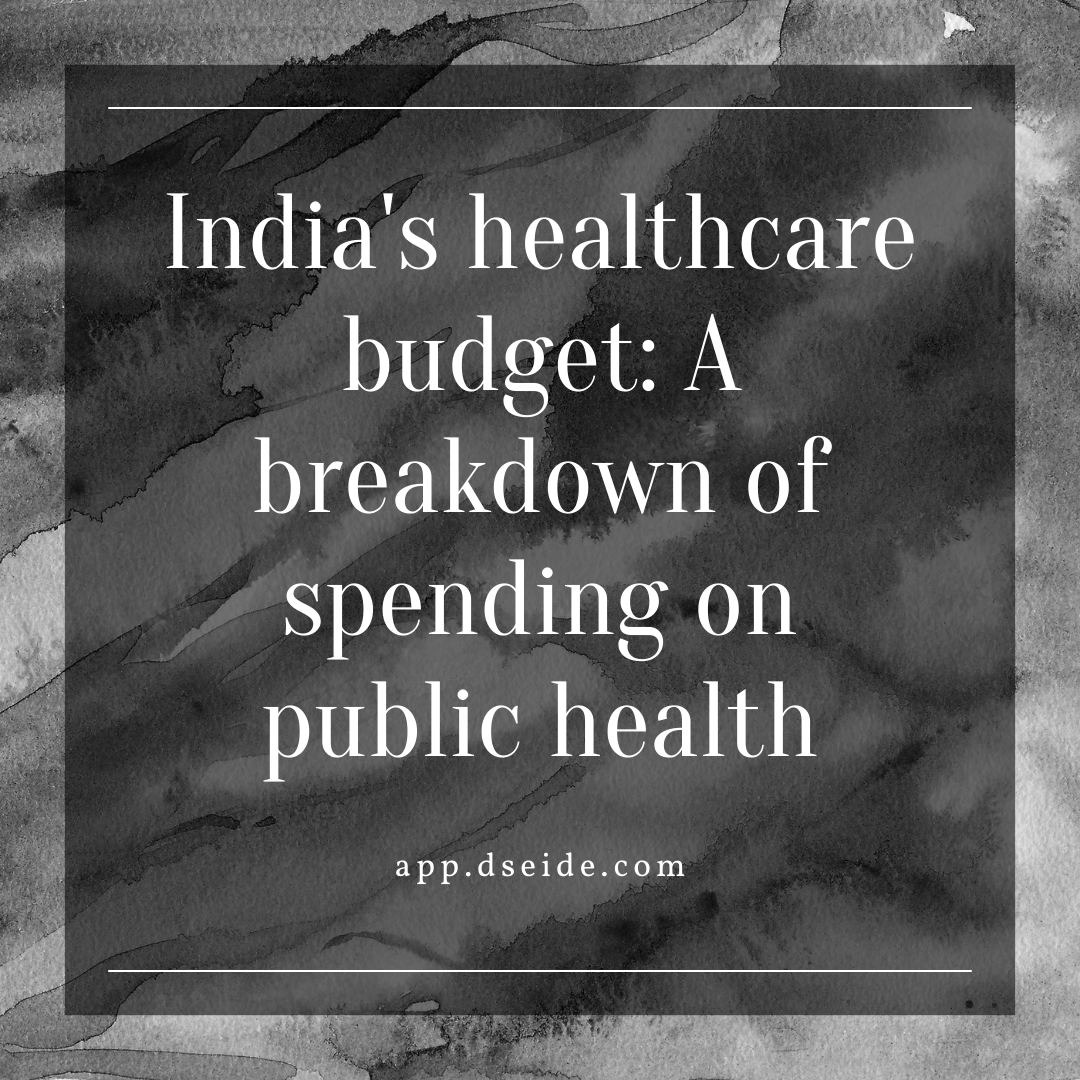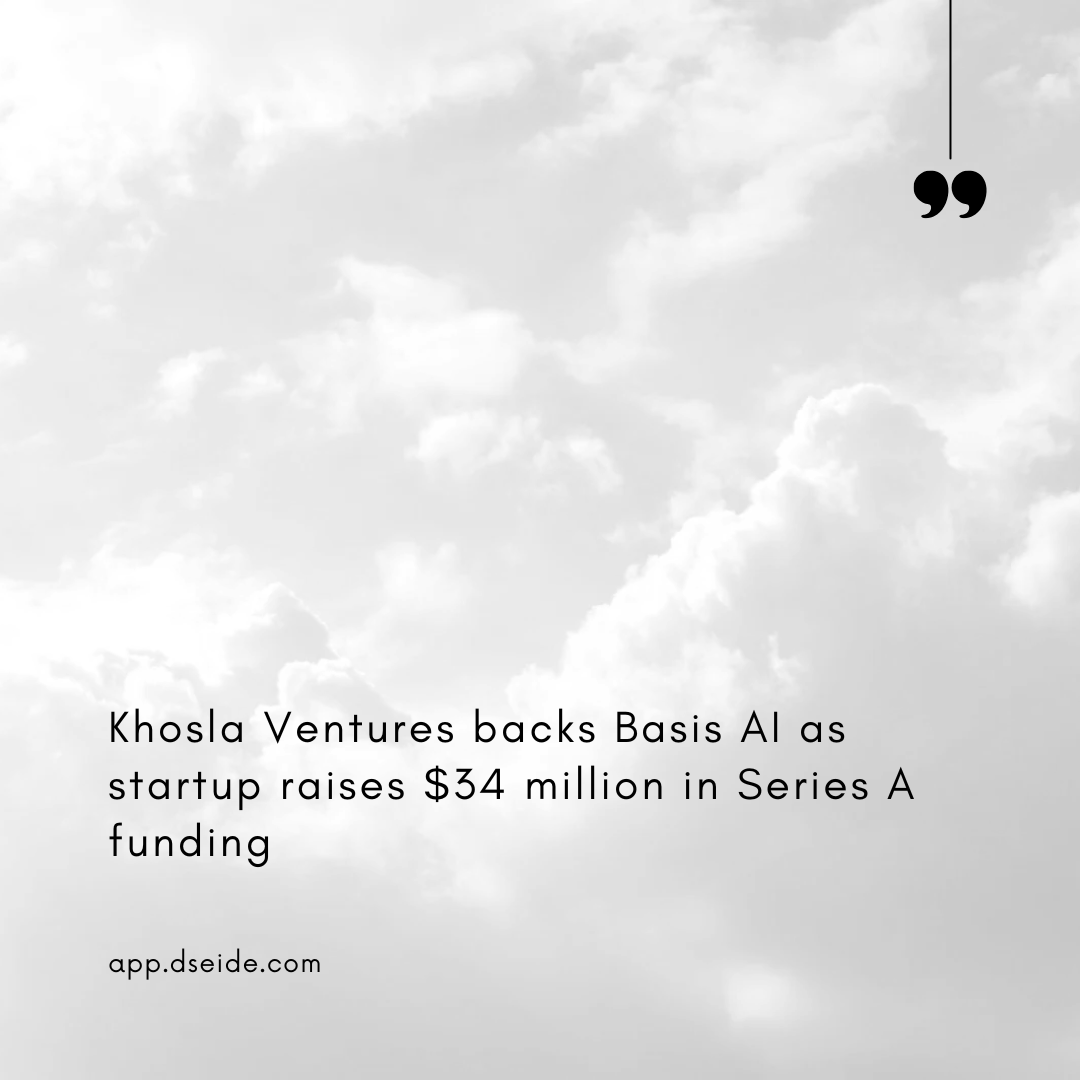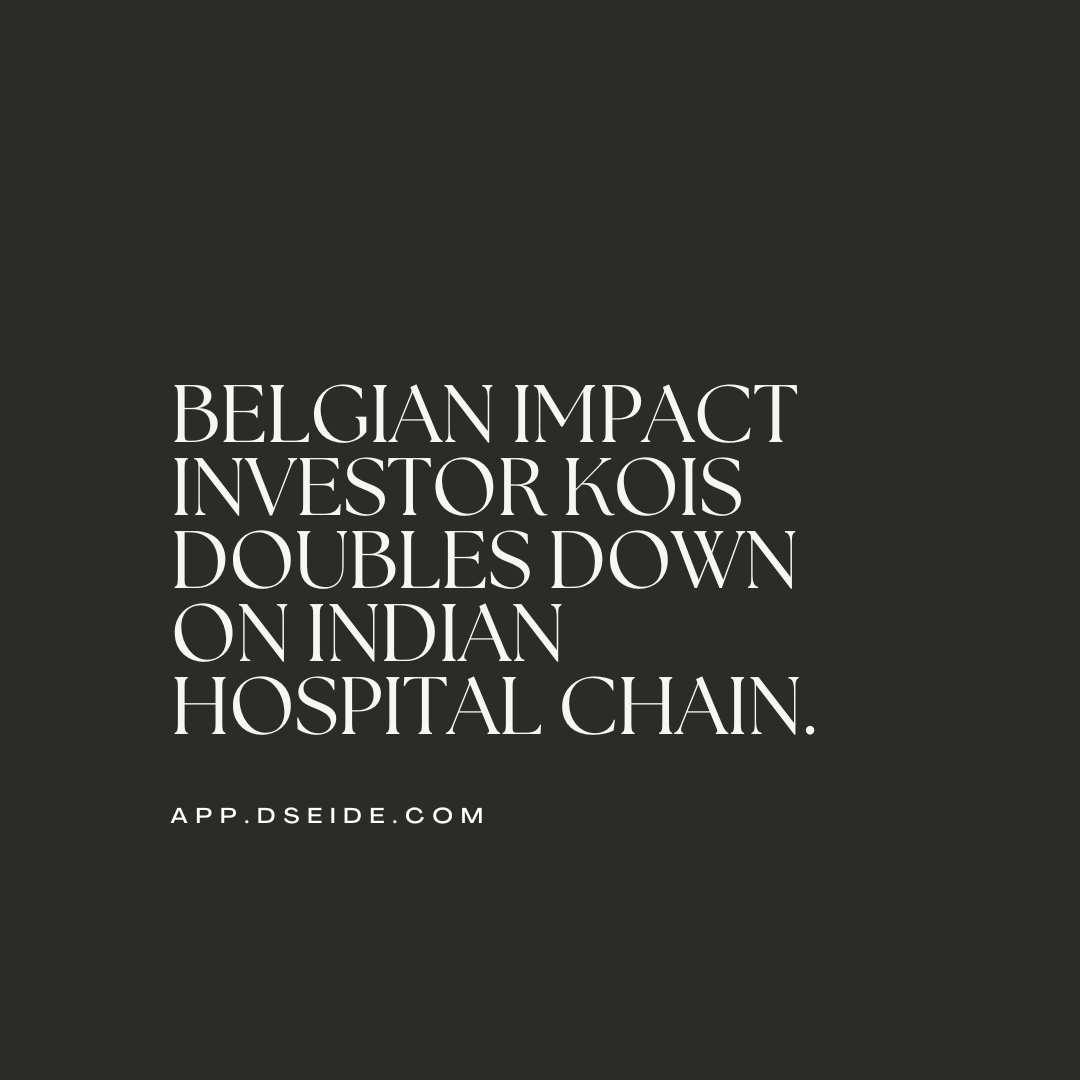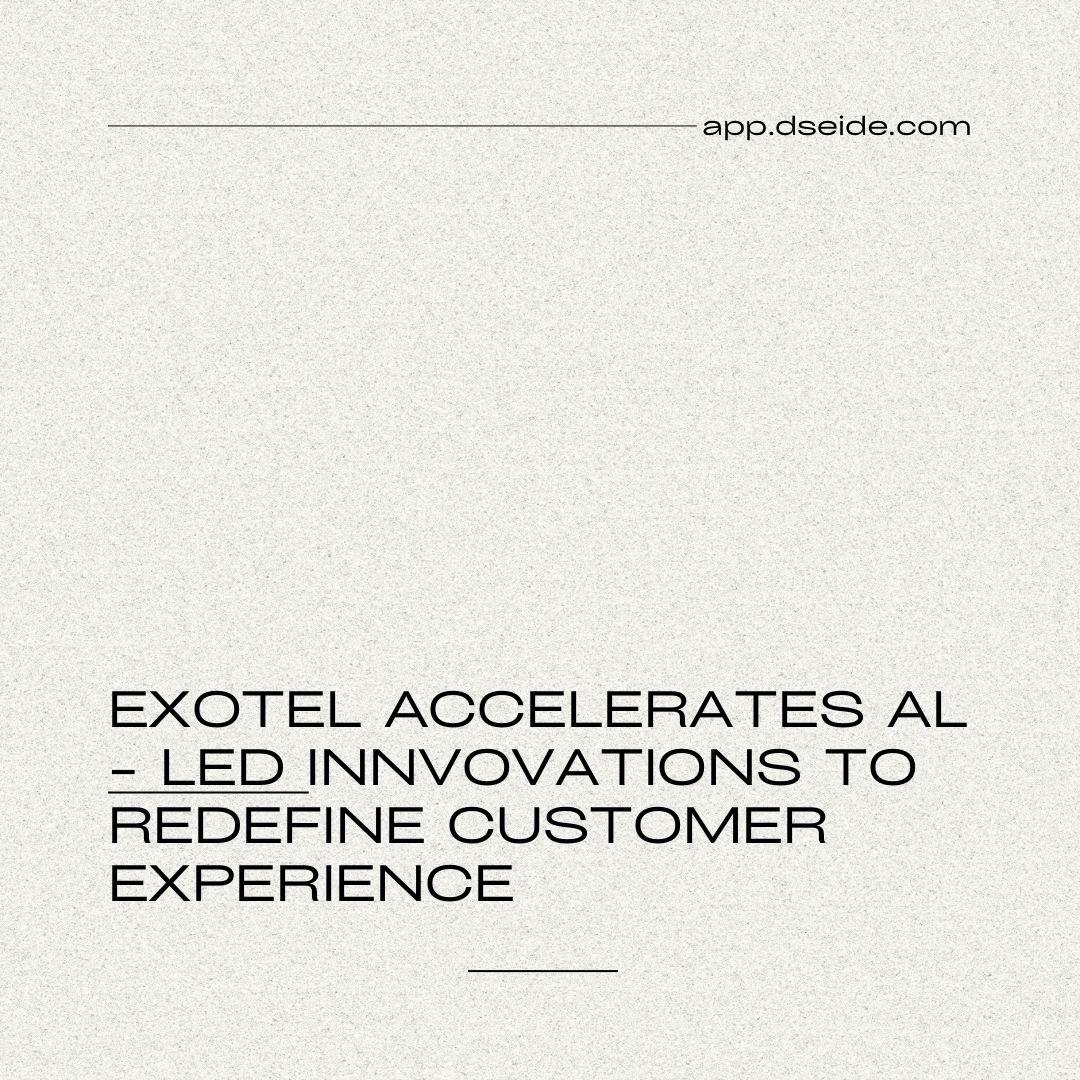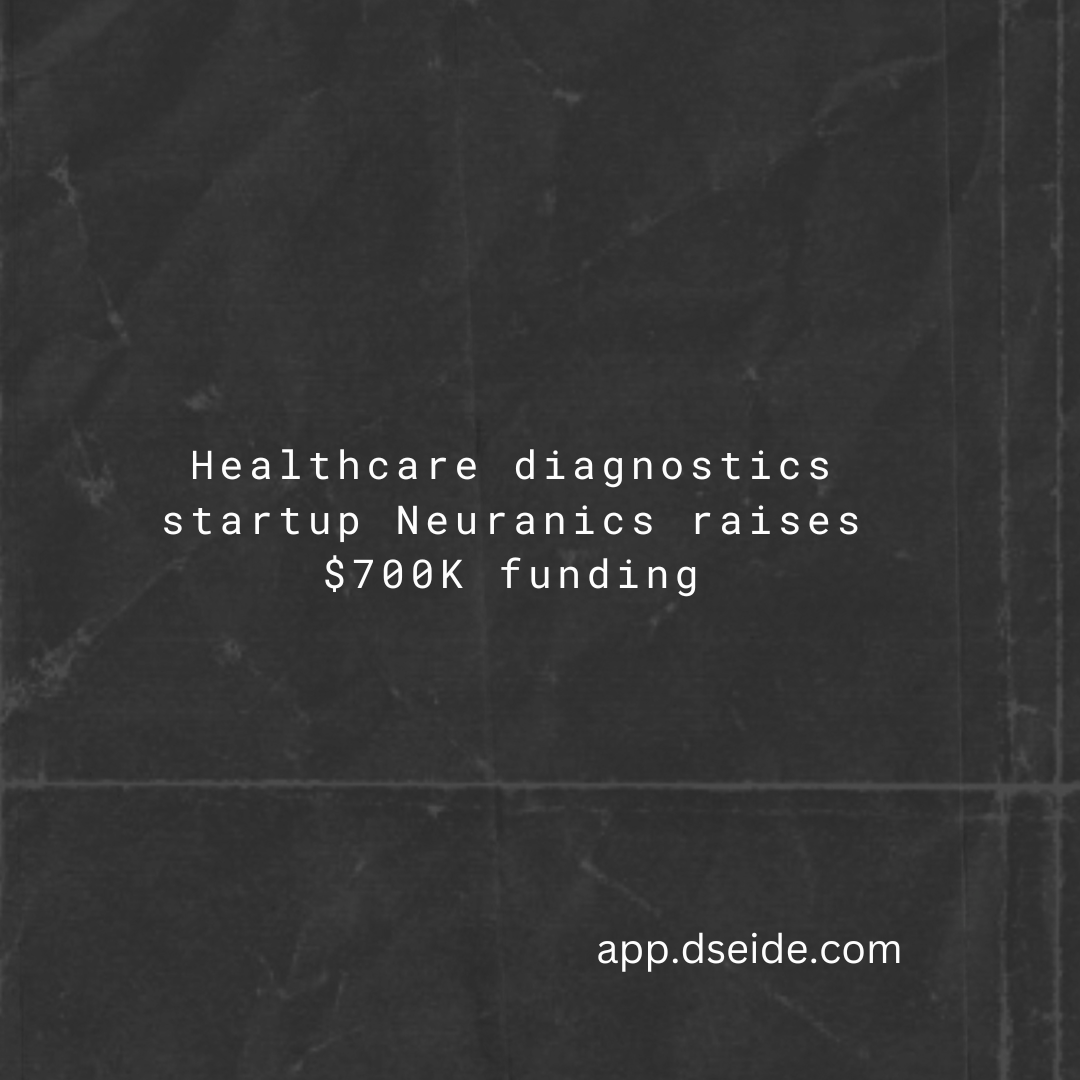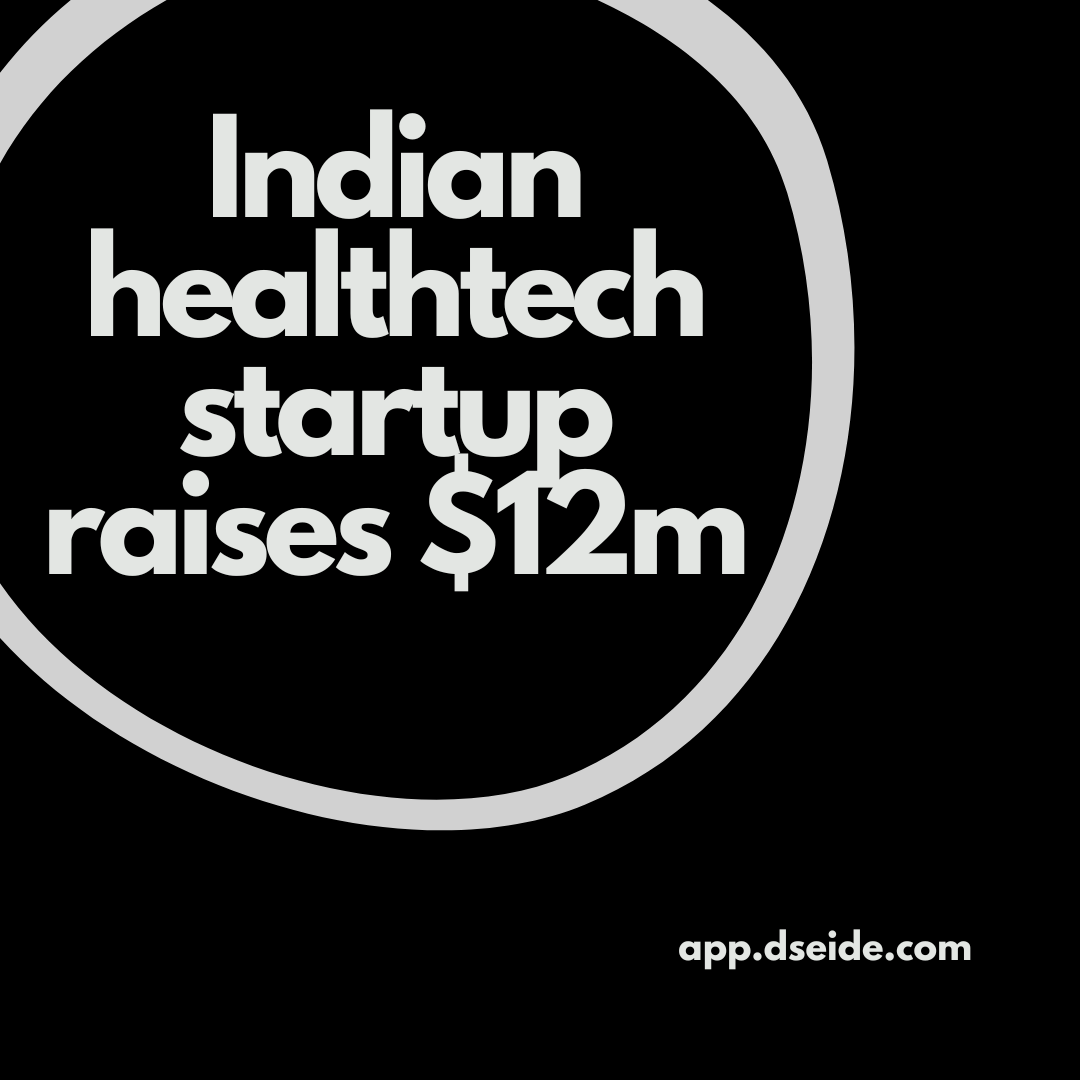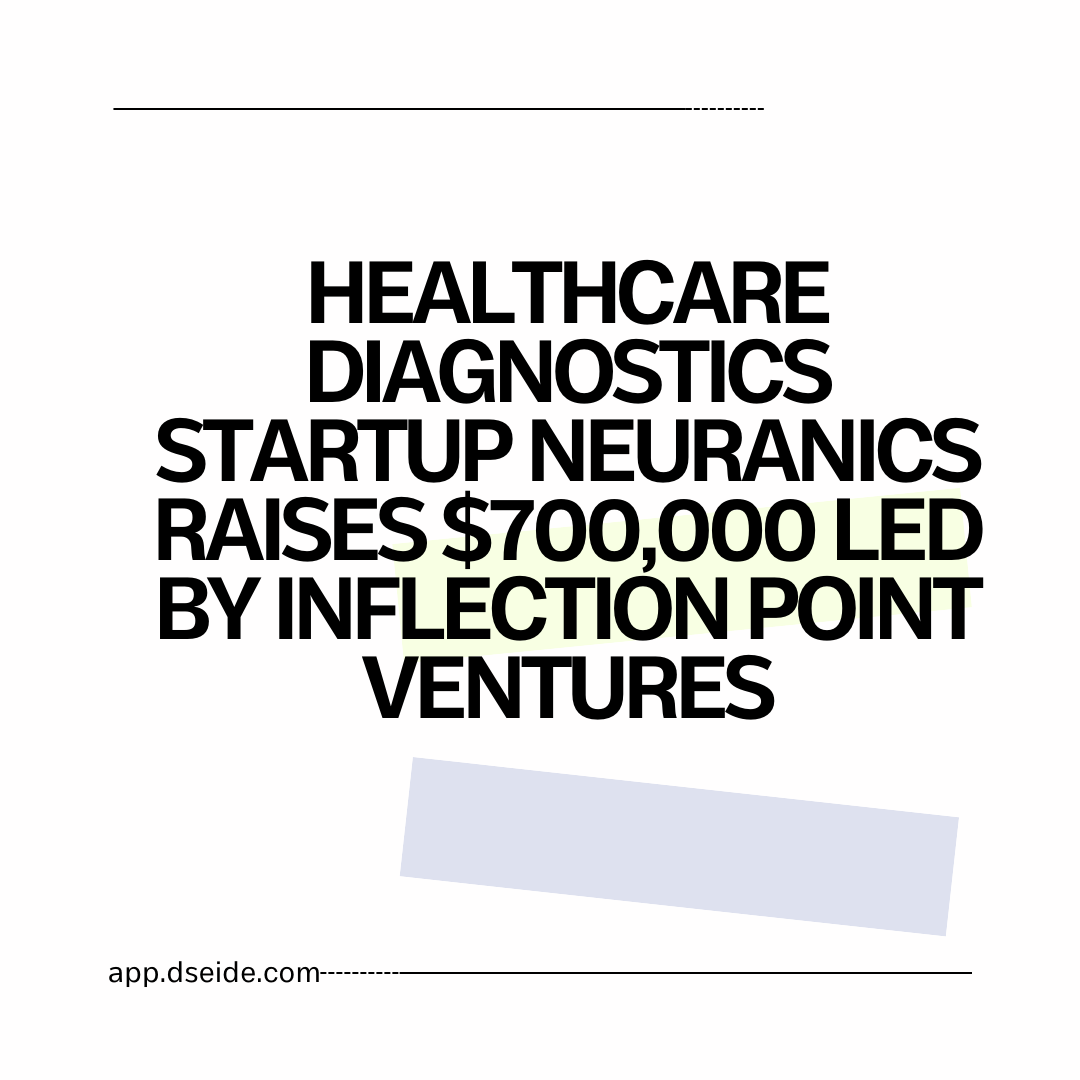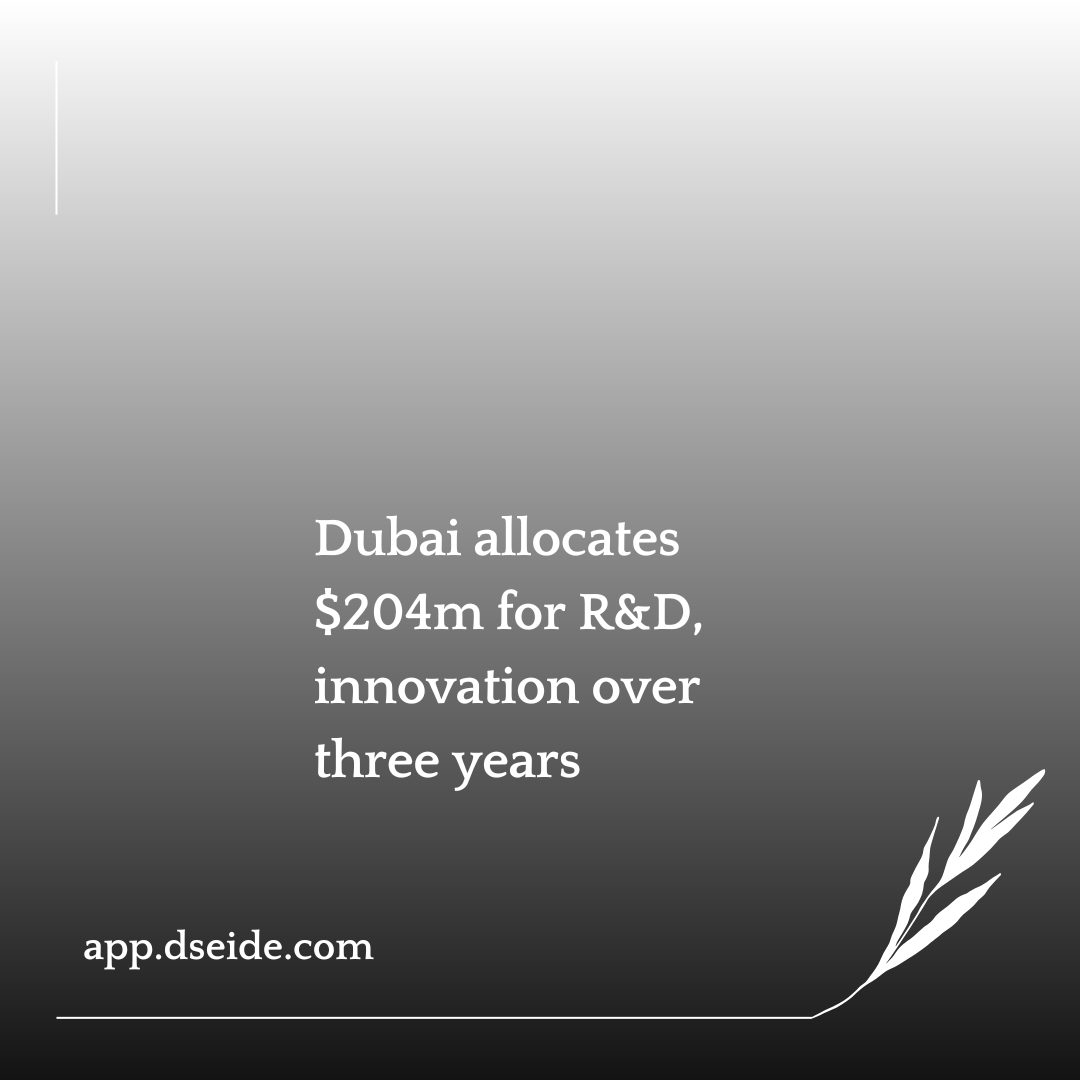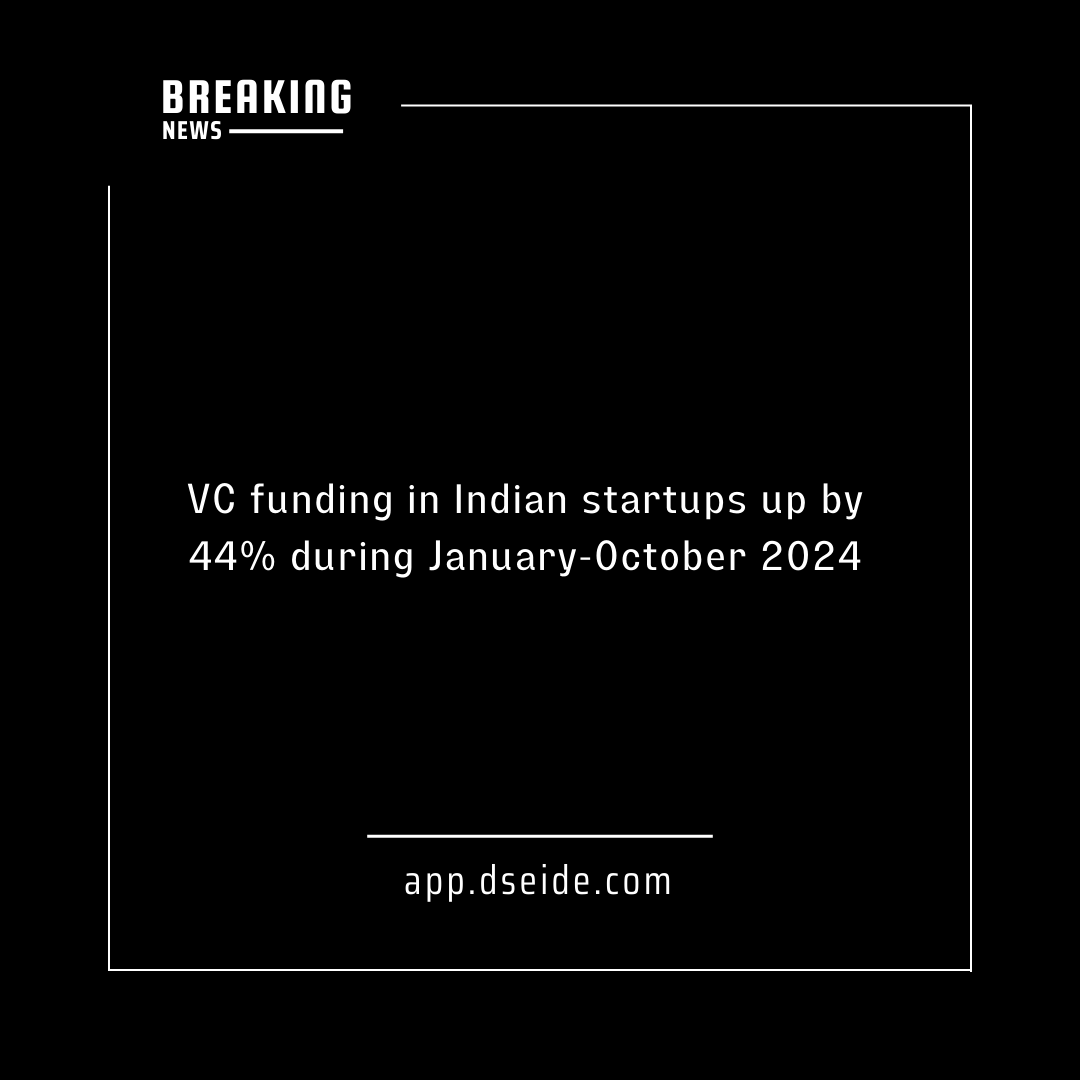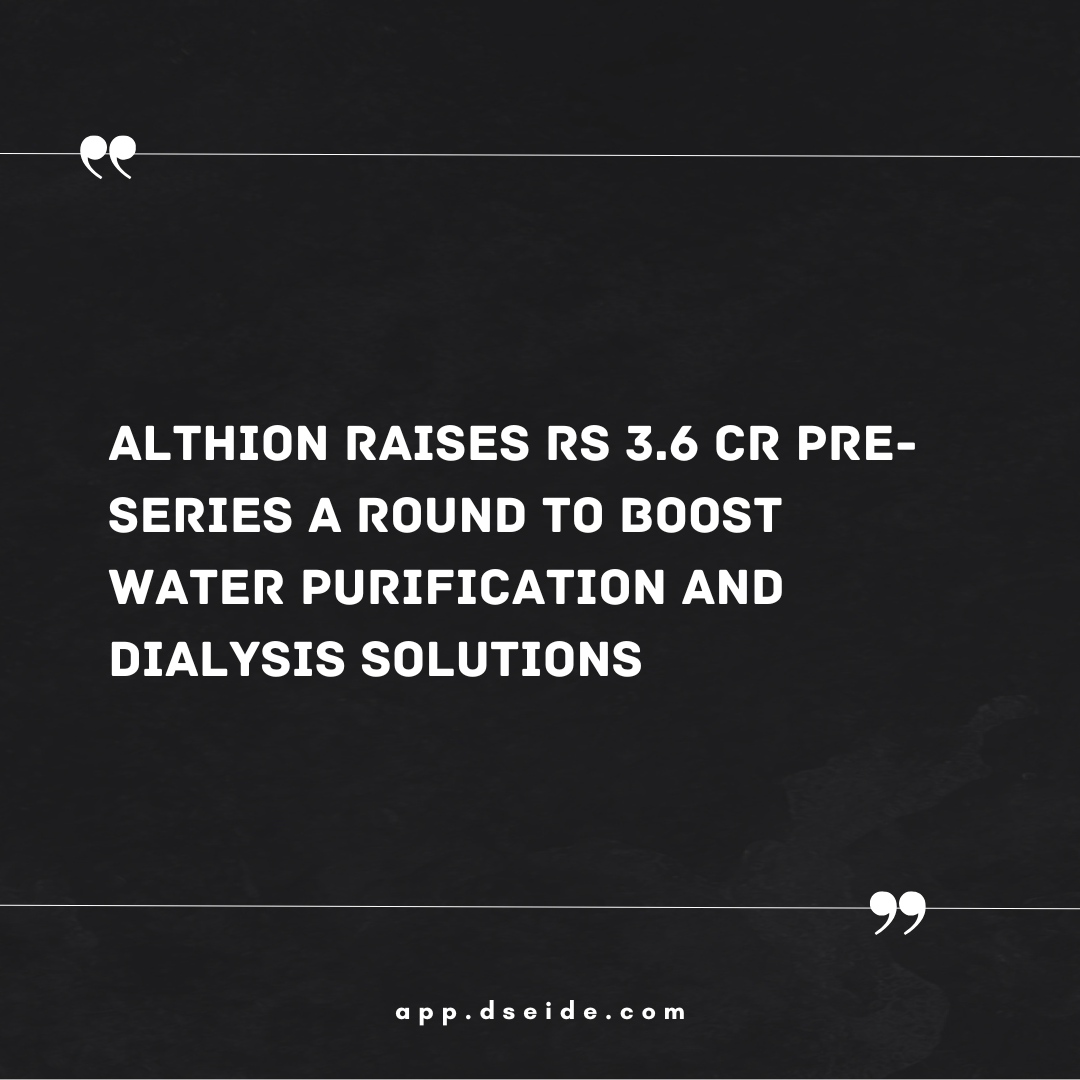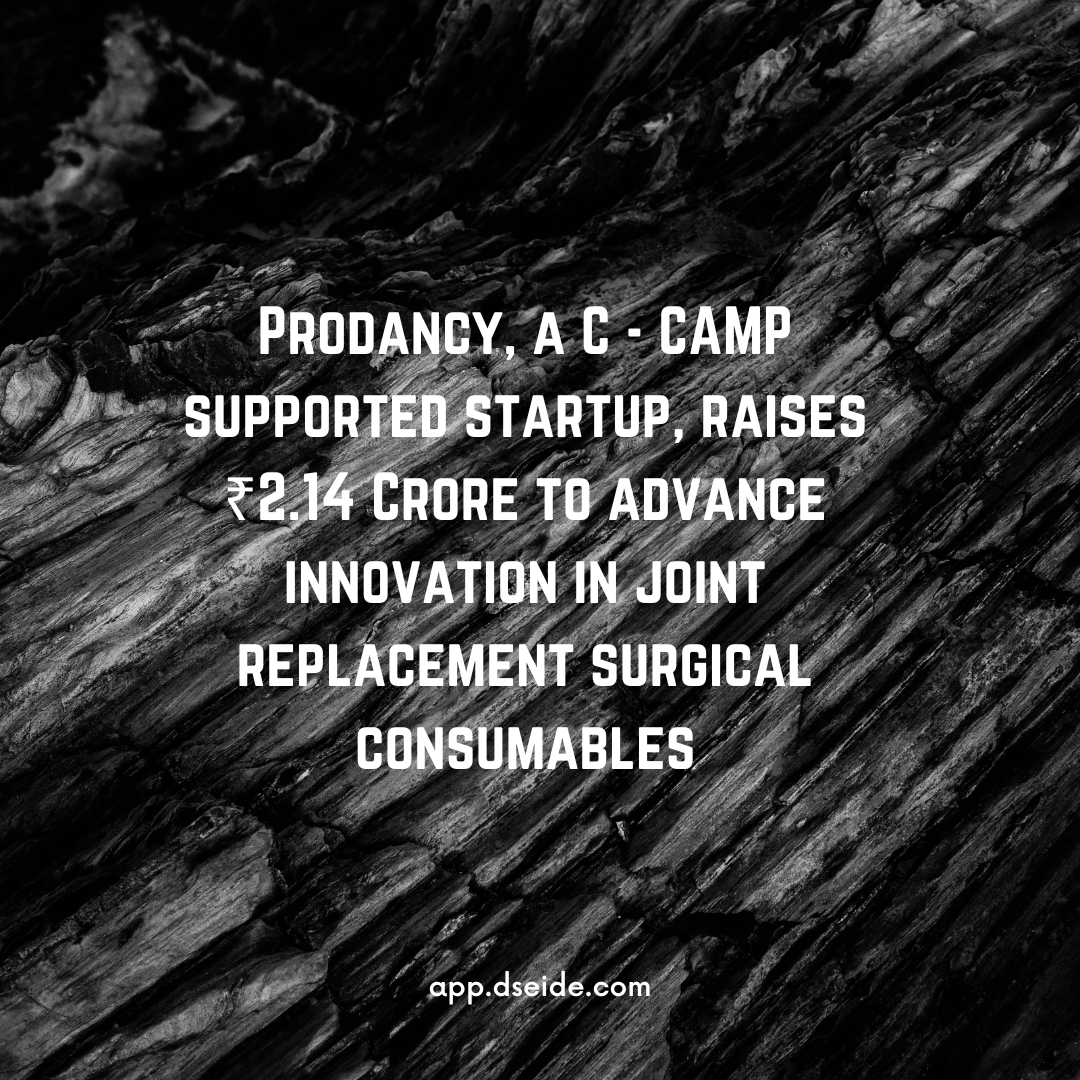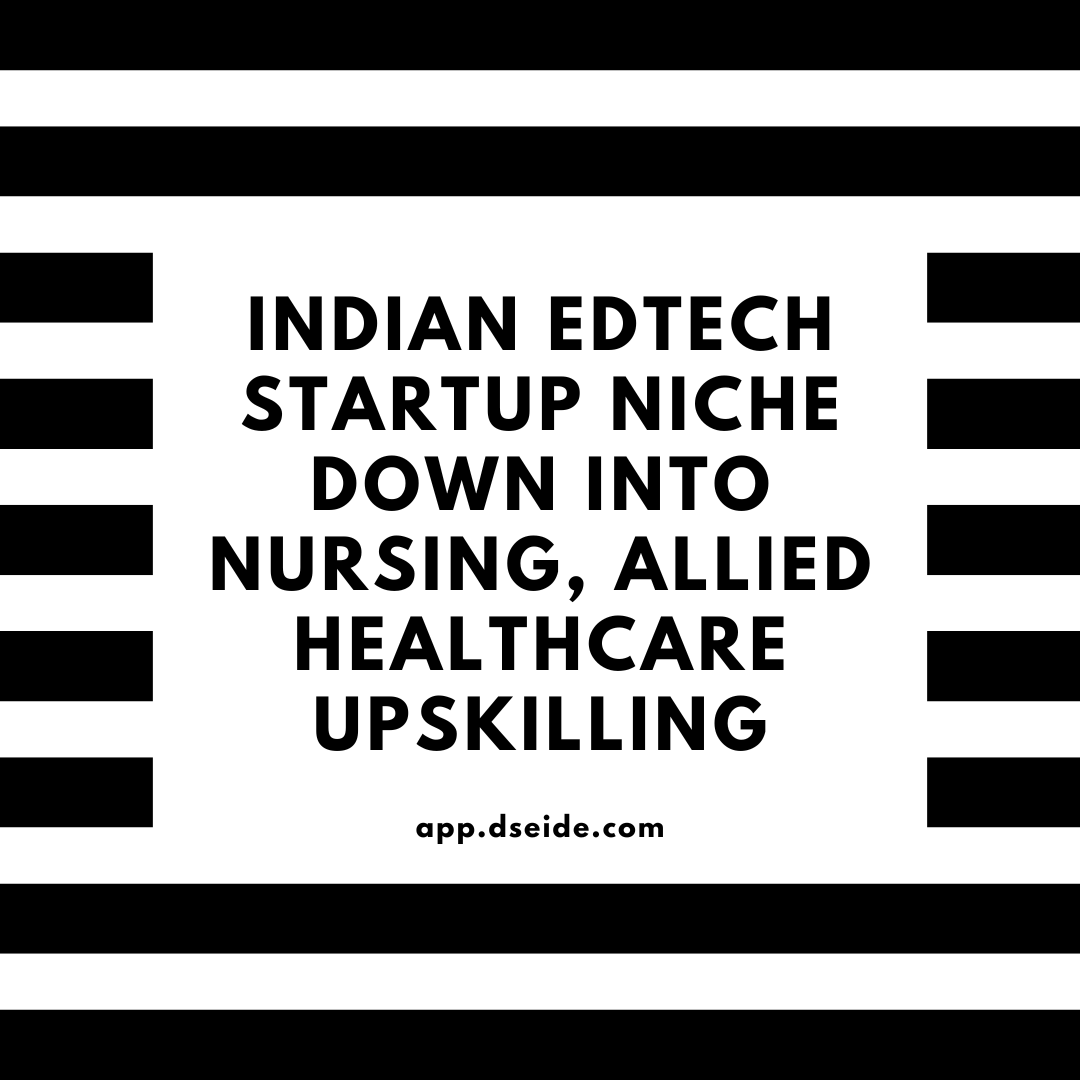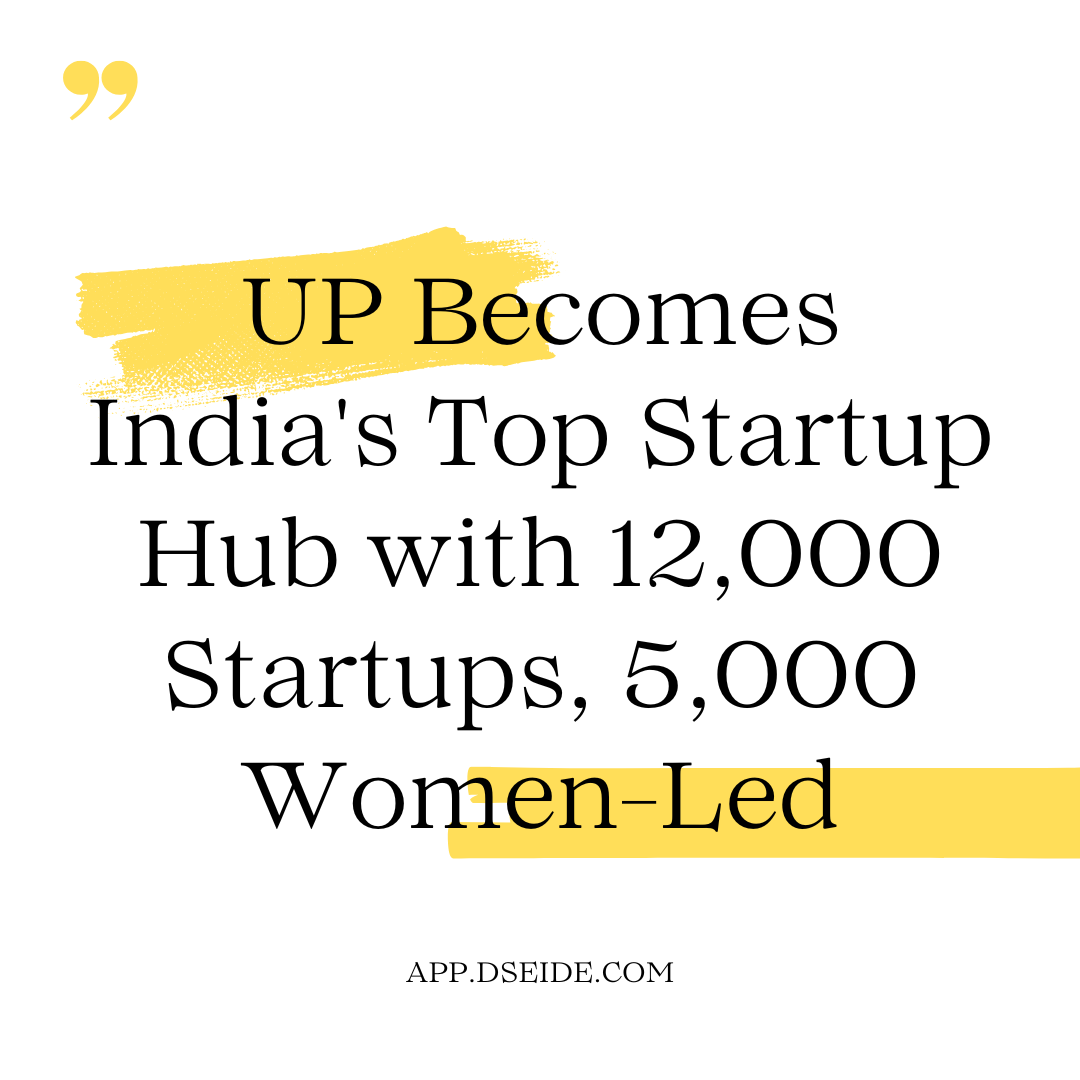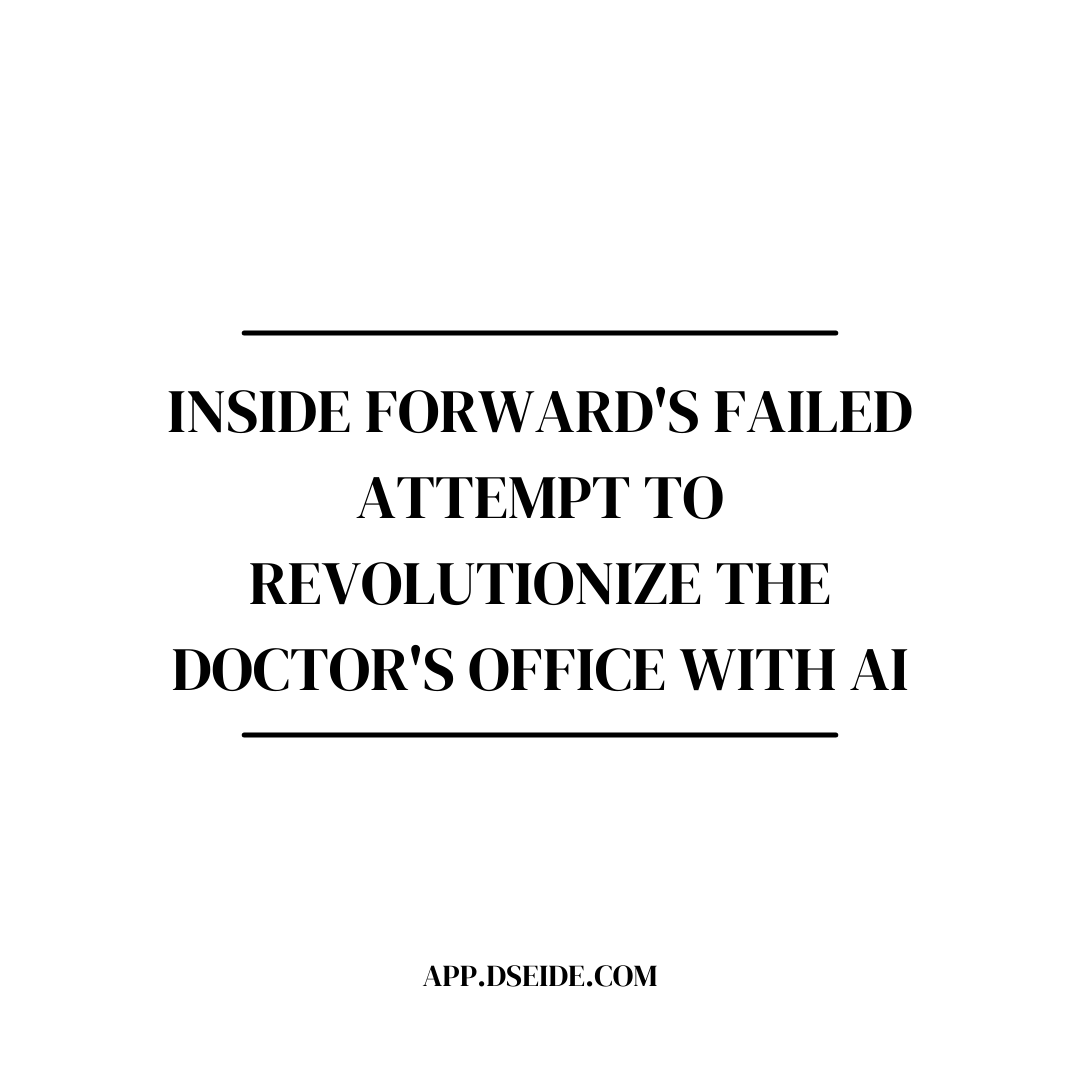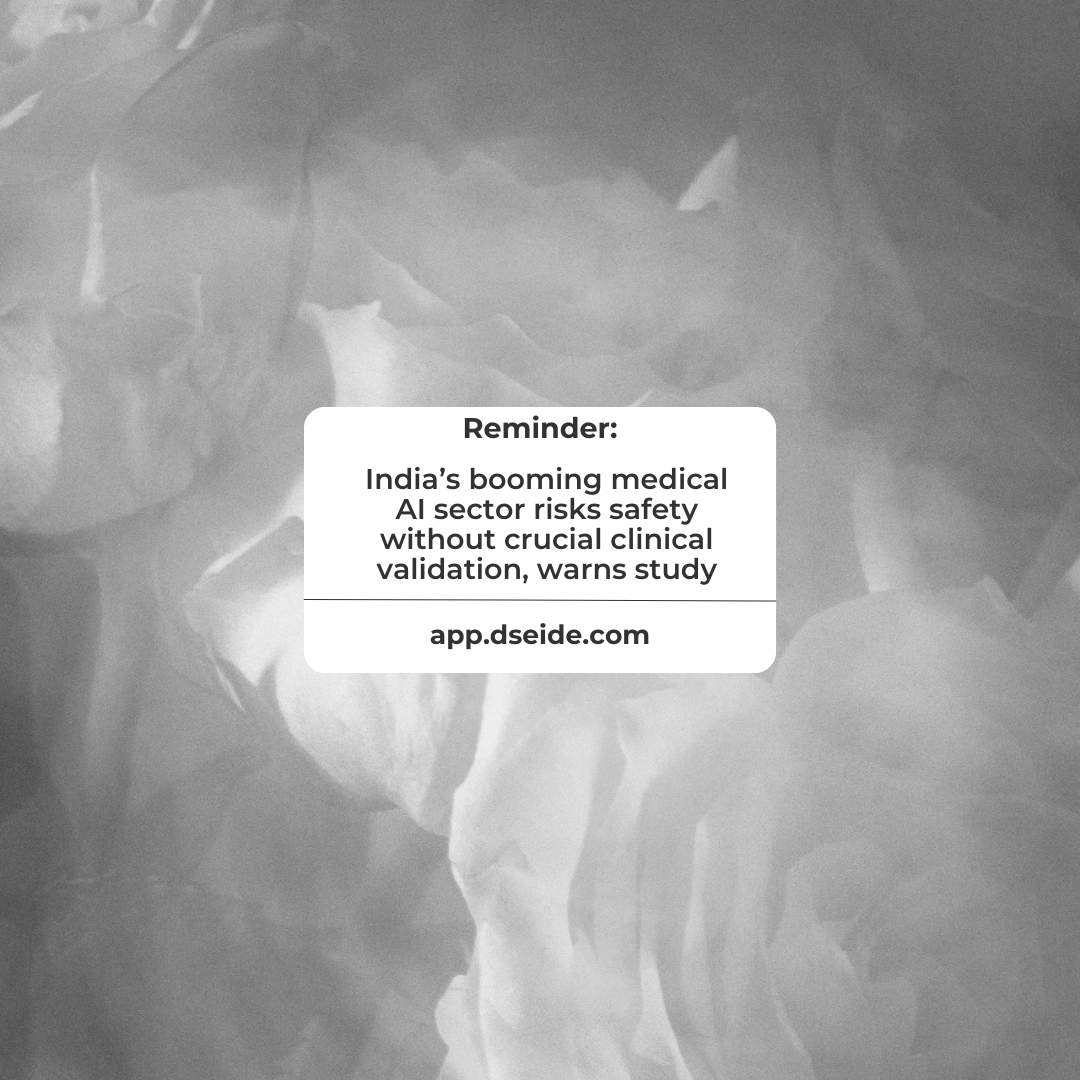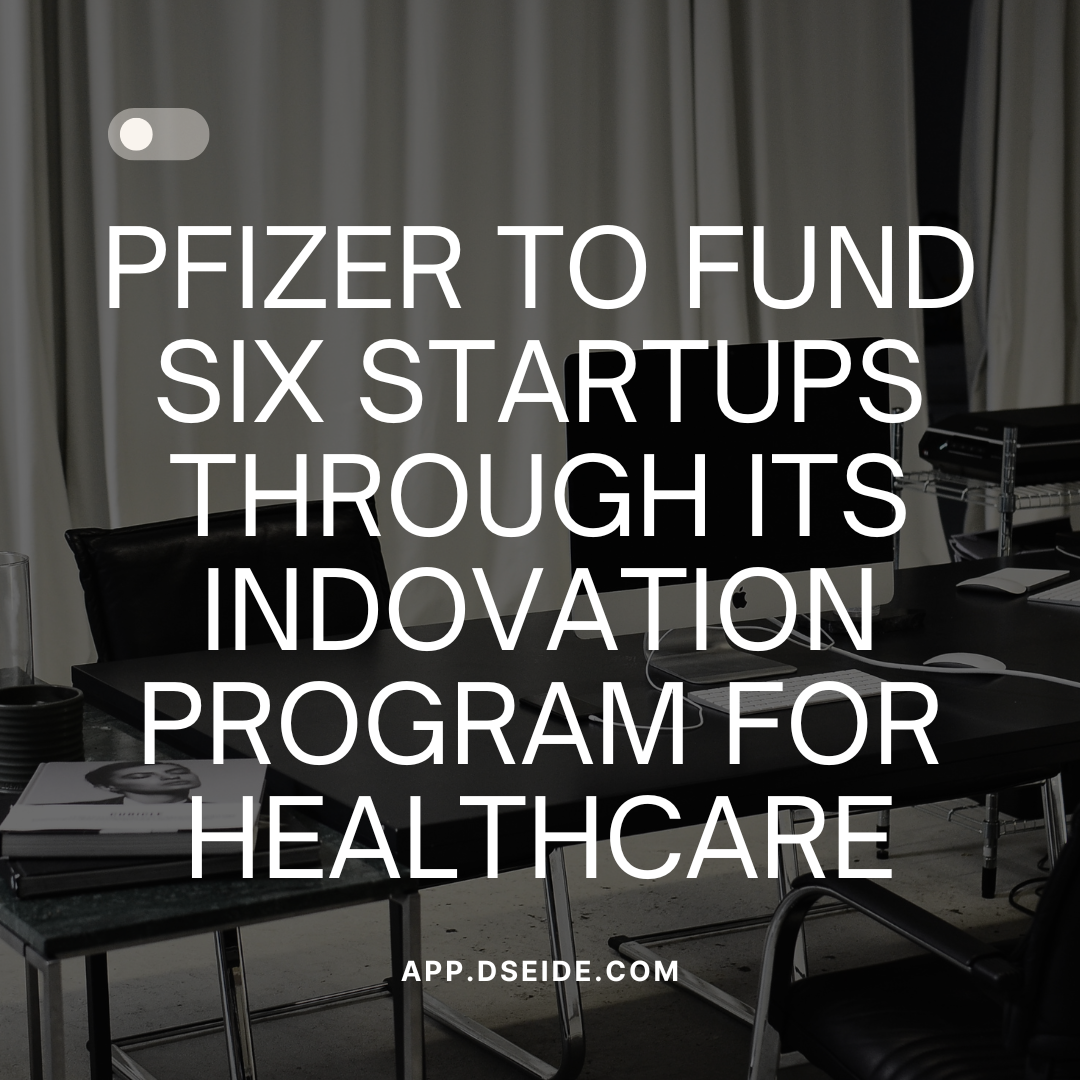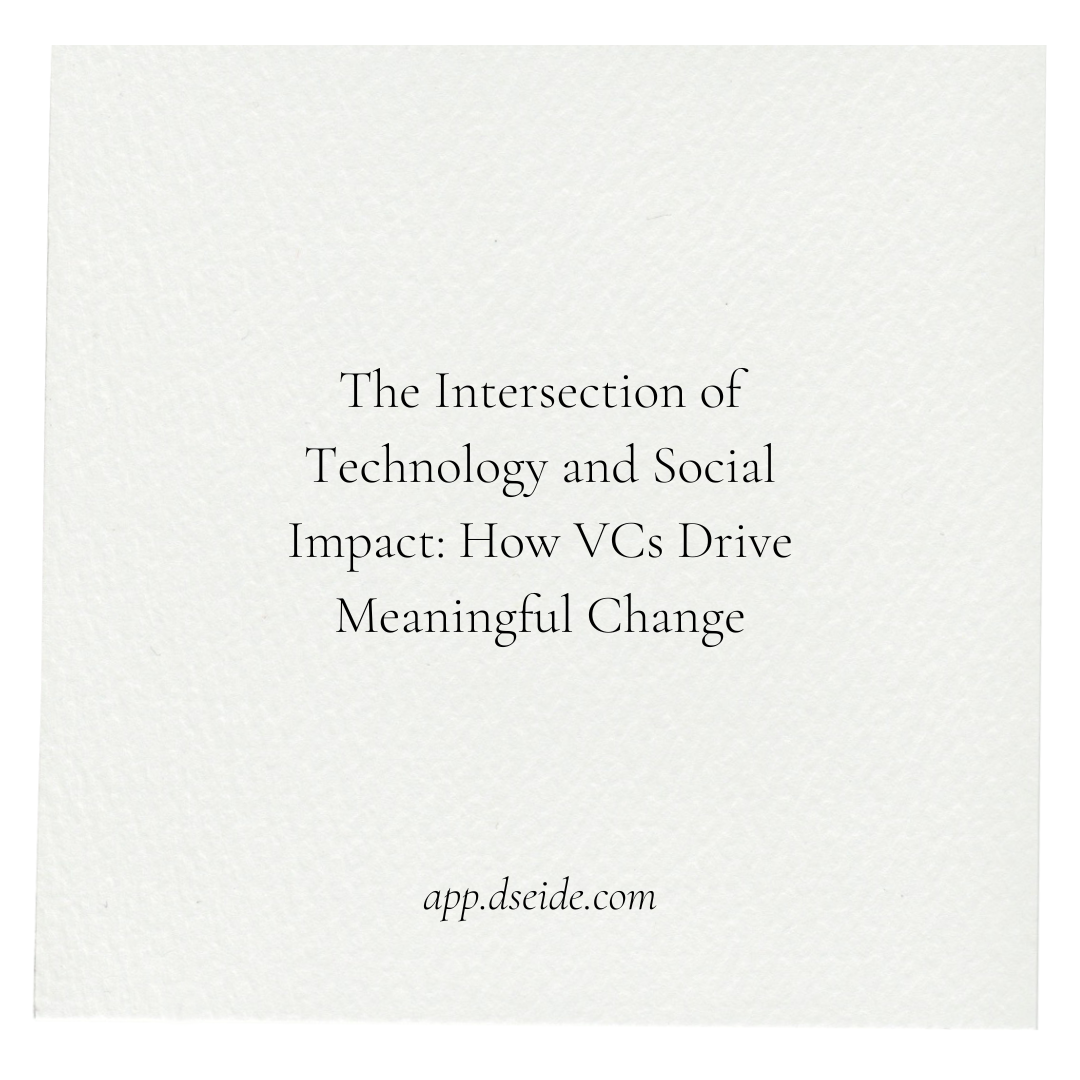Healthcare Startup Hub is a dynamic community for healthcare startups and innovators. Our group is dedicated to bringing together like-minded entrepreneurs, sharing the latest news, funding updates, discoveries, and innovations. Join us to stay informed, collaborate on groundbreaking projects, and expand your network in the healthcare startup ecosystem.
-
Public Group
-
301 Posts
-
253 Photos
-
4 Videos
-
startup
Recent Updates
-
India has mastered speed in everyday essentials—groceries arrive in 10 minutes, meals in under 30. Yet, when it comes to essential medicines, delays of two to three days are still the norm.
For patients, that wait isn’t just inconvenient, it can be risky too. For insurers, e‑pharmacies, and healthcare platforms, it means lost conversions and low utilisation of services that were meant to improve access.
This very inefficiency in India’s pharmacy delivery system led to the creation of DocPharma, a quick-commerce healthcare infrastructure startup offering 30-minute prescription medicine deliveries through a unique B2B2C model.
Founded in early 2023 by Shashank Rai and Saquib Ali, and joined by Sagar Chauhan in 2025, DocPharma is not just another e-pharmacy. It positions itself as the “AWS of medicine delivery,” serving as the invisible backend for e-pharmacies, healthcare platforms, insurers, and hospitals across India.
Operating in more than 12 cities—including Bengaluru, Delhi, Gurugram, Noida, Mumbai, Ghaziabad, Faridabad, Kolkata, Pune, Chennai, Hyderabad, and Patna—the startup enables its B2B partners to fulfil prescription medicine orders within 30-60 minutes, a turnaround that has significantly boosted online medicine purchases, increased insurance utilisation, and eliminated delays that historically plagued the system.
Recently, DocPharma further raised the bar by launching 30-minute medicine delivery services across Delhi, Mumbai, and Bengaluru, reinforcing its commitment to faster, more reliable healthcare access in India’s busiest metros.
Source: indian startup news
#healthcarestartupindia #dseidehealthcarenetworkIndia has mastered speed in everyday essentials—groceries arrive in 10 minutes, meals in under 30. Yet, when it comes to essential medicines, delays of two to three days are still the norm. For patients, that wait isn’t just inconvenient, it can be risky too. For insurers, e‑pharmacies, and healthcare platforms, it means lost conversions and low utilisation of services that were meant to improve access. This very inefficiency in India’s pharmacy delivery system led to the creation of DocPharma, a quick-commerce healthcare infrastructure startup offering 30-minute prescription medicine deliveries through a unique B2B2C model. Founded in early 2023 by Shashank Rai and Saquib Ali, and joined by Sagar Chauhan in 2025, DocPharma is not just another e-pharmacy. It positions itself as the “AWS of medicine delivery,” serving as the invisible backend for e-pharmacies, healthcare platforms, insurers, and hospitals across India. Operating in more than 12 cities—including Bengaluru, Delhi, Gurugram, Noida, Mumbai, Ghaziabad, Faridabad, Kolkata, Pune, Chennai, Hyderabad, and Patna—the startup enables its B2B partners to fulfil prescription medicine orders within 30-60 minutes, a turnaround that has significantly boosted online medicine purchases, increased insurance utilisation, and eliminated delays that historically plagued the system. Recently, DocPharma further raised the bar by launching 30-minute medicine delivery services across Delhi, Mumbai, and Bengaluru, reinforcing its commitment to faster, more reliable healthcare access in India’s busiest metros. Source: indian startup news #healthcarestartupindia #dseidehealthcarenetwork0 Comments 0 Shares 3K Views20 Please log in to like, share and comment!
Please log in to like, share and comment! -
For decades, public health in India and across the globe has largely been the domain of the state — driven by policies, programmes, and top-down interventions. While this approach has enabled major breakthroughs in disease control and population health, taking India’s life expectancy from just 35.21 years in 1950 to over 70 years in 2025, the causes of mortality and barriers to good health in New India are very different from those that our public health systems were designed to address.
As the domain of public health expands from addressing communicable diseases and infections through vaccination drives to tackling the problems of lifestyle disorders and taking healthcare services to the last mile, a new public health paradigm is emerging — one that is deeply rooted in innovation. This new public health ecosystem, anchored by startups, is bringing together Government bodies, NGOs, research institutions, and communities to co-create solutions that are context-specific and scalable.
In this new paradigm, public health challenges are increasingly being met with entrepreneurial energy and scalable tech-driven solutions, not just by trying to scale state capacity by increasing manpower at the grassroots level. Startups across India are stepping in to bridge gaps and make public health service delivery more efficient in key sectors like improving maternal health outcomes, enabling low-cost diagnostics, or deploying AI-powered screening tools for diseases like cancer and tuberculosis. This transformation is being actively supported by platforms like Startup India, India Accelerator, BIRAC, and other venture capital firms that are acting as ecosystem enablers that not only fund but also mentor and scale health innovations tailored to India’s unique needs. Technology is proving to be a powerful enabler for improving India’s health outcomes. Telemedicine and mobile health platforms are expanding access to care in underserved regions. AI and machine learning are revolutionising early detection and decision support. IoT and wearable devices are enhancing real-time community-level health monitoring. Drones, cold chain tech, and supply-chain innovations are improving last-mile medicine and vaccine delivery. This innovation-driven model doesn’t replace Government efforts — it complements and strengthens them to make sure the healthcare needs of over 140 crore citizens of India can be met.
In many facets of public health, India has made remarkable strides over the years. It has brought down maternal mortality from 560 in 1990 to 97 per 100,000 live births today. However, the population and geographical spread of India combined with the unique and transforming healthcare needs of individuals necessitates that technology and innovation form the core of India’s public health going forward if the rate of progress is to be maintained. Today, the leading causes of death are no longer communicable diseases, they’re instead disorders like obesity, diabetes, heart disease, cancers and Alzheimer’s. Technological innovations by startups are revolutionising treatments and preventative care in all these areas where disease burden now predominantly lies. A startup called Sunfox Technologies has developed Spandan, a portable ECG device that facilitates early detection of cardiac issues at home or in clinics - and it has already helped over 30,000 users and prevented more than 10,000 heart attacks. Another startup, Fitterfly, focuses on diabetes, obesity, and metabolic health, having managed over 50,000 patients with clinically proven HbA1c reduction of up to 1.8 per cent. BeatO, a digital diabetes management platform, boasts over 1 million users and has processed more than 6 million blood glucose readings, reducing hypoglycaemic events by 52 per cent. Twin Health works on diabetes reversal and metabolic disease management, claiming over 90 per cent success among enrolled users, with deployments in both India and the US. Wellthy Therapeutics addresses diabetes, hypertension, and cardiac health, supporting over 70,000 patients while improving medication adherence by 87 per cent and halving hospitalisation risk.
Aindra Systems offers point-of-care diagnostic devices for early detection of cardiac and cancer conditions, performing 5,000+ tests monthly and operating in 100+ healthcare centres in tier-2 and 3 cities.
As some startups work on developing technological solutions for these new health challenges of the 21st century, others are working to solve timely diagnostics and skilled care that still continues to be a major challenge in large parts of the country, especially in rural and underserved areas. Startups like Janitri Innovations are piloting AI-powered, wearable maternal and foetal monitoring devices in primary health centres (PHCs), enabling frontline workers to detect complications in real-time, reduce delays in care, and lower out-of-pocket costs for mothers. Another startup, SpotSense, offers ReaDx and ViewDx, compact diagnostic tools that deliver lab-quality results in minutes using just a drop of saliva or blood.
These tools screen for neonatal conditions like jaundice, sepsis, and congenital hypothyroidism, as well as maternal health issues such as anaemia, diabetes, and thyroid disorders. Such real-world deployments of technologies to address pressing public health issues demonstrate how innovation can enable informed, timely decisions at the last mile - where conventional systems often fall short.
While it is clear that a new paradigm for public health is already taking shape in the country, it isn’t without its challenges. The success of this new paradigm requires that startups go beyond innovation for its own sake and become ethical, embedded partners in systemic change.
This starts with startups understanding in depth where the challenges of public health delivery lie, and building solutions to address those challenges rather than trying to integrate technology into areas not in need of a solution. As technology becomes more critical for public health, startups would also require radical transparency in algorithms, ensuring AI tools are explainable and unbiased, particularly for vulnerable populations. Equity must also be built in from the start, with user interfaces designed for low-literacy populations, gender-sensitive features, and offline-first modes for low-resource settings.
Innovation in this sector would often mean forgoing the most technologically advanced solution in favour of a combination of low-tech tools with deep-tech backends to augment, not replace, frontline workers. Startups must also build contextual intelligence, recognising that health data means different things across regions and communities — something best achieved by co-designing with local health workers and social scientists. Participatory business models that empower ASHAs or enable community ownership can increase engagement and trust.
Innovations should align with existing public systems, integrating with Government processes and local community practices instead of aiming for radical disruptions that might never materialise. Finally, startups must also plan for ethical exit strategies, ensuring continuity of service and costs by integrations into existing systems once pilots end. This depth of integrity and alignment is what new public health truly needs from entrepreneurs.
Source: dailypioneer
#healthcarestartupindia #dseidehealthcarenetworkFor decades, public health in India and across the globe has largely been the domain of the state — driven by policies, programmes, and top-down interventions. While this approach has enabled major breakthroughs in disease control and population health, taking India’s life expectancy from just 35.21 years in 1950 to over 70 years in 2025, the causes of mortality and barriers to good health in New India are very different from those that our public health systems were designed to address. As the domain of public health expands from addressing communicable diseases and infections through vaccination drives to tackling the problems of lifestyle disorders and taking healthcare services to the last mile, a new public health paradigm is emerging — one that is deeply rooted in innovation. This new public health ecosystem, anchored by startups, is bringing together Government bodies, NGOs, research institutions, and communities to co-create solutions that are context-specific and scalable. In this new paradigm, public health challenges are increasingly being met with entrepreneurial energy and scalable tech-driven solutions, not just by trying to scale state capacity by increasing manpower at the grassroots level. Startups across India are stepping in to bridge gaps and make public health service delivery more efficient in key sectors like improving maternal health outcomes, enabling low-cost diagnostics, or deploying AI-powered screening tools for diseases like cancer and tuberculosis. This transformation is being actively supported by platforms like Startup India, India Accelerator, BIRAC, and other venture capital firms that are acting as ecosystem enablers that not only fund but also mentor and scale health innovations tailored to India’s unique needs. Technology is proving to be a powerful enabler for improving India’s health outcomes. Telemedicine and mobile health platforms are expanding access to care in underserved regions. AI and machine learning are revolutionising early detection and decision support. IoT and wearable devices are enhancing real-time community-level health monitoring. Drones, cold chain tech, and supply-chain innovations are improving last-mile medicine and vaccine delivery. This innovation-driven model doesn’t replace Government efforts — it complements and strengthens them to make sure the healthcare needs of over 140 crore citizens of India can be met. In many facets of public health, India has made remarkable strides over the years. It has brought down maternal mortality from 560 in 1990 to 97 per 100,000 live births today. However, the population and geographical spread of India combined with the unique and transforming healthcare needs of individuals necessitates that technology and innovation form the core of India’s public health going forward if the rate of progress is to be maintained. Today, the leading causes of death are no longer communicable diseases, they’re instead disorders like obesity, diabetes, heart disease, cancers and Alzheimer’s. Technological innovations by startups are revolutionising treatments and preventative care in all these areas where disease burden now predominantly lies. A startup called Sunfox Technologies has developed Spandan, a portable ECG device that facilitates early detection of cardiac issues at home or in clinics - and it has already helped over 30,000 users and prevented more than 10,000 heart attacks. Another startup, Fitterfly, focuses on diabetes, obesity, and metabolic health, having managed over 50,000 patients with clinically proven HbA1c reduction of up to 1.8 per cent. BeatO, a digital diabetes management platform, boasts over 1 million users and has processed more than 6 million blood glucose readings, reducing hypoglycaemic events by 52 per cent. Twin Health works on diabetes reversal and metabolic disease management, claiming over 90 per cent success among enrolled users, with deployments in both India and the US. Wellthy Therapeutics addresses diabetes, hypertension, and cardiac health, supporting over 70,000 patients while improving medication adherence by 87 per cent and halving hospitalisation risk. Aindra Systems offers point-of-care diagnostic devices for early detection of cardiac and cancer conditions, performing 5,000+ tests monthly and operating in 100+ healthcare centres in tier-2 and 3 cities. As some startups work on developing technological solutions for these new health challenges of the 21st century, others are working to solve timely diagnostics and skilled care that still continues to be a major challenge in large parts of the country, especially in rural and underserved areas. Startups like Janitri Innovations are piloting AI-powered, wearable maternal and foetal monitoring devices in primary health centres (PHCs), enabling frontline workers to detect complications in real-time, reduce delays in care, and lower out-of-pocket costs for mothers. Another startup, SpotSense, offers ReaDx and ViewDx, compact diagnostic tools that deliver lab-quality results in minutes using just a drop of saliva or blood. These tools screen for neonatal conditions like jaundice, sepsis, and congenital hypothyroidism, as well as maternal health issues such as anaemia, diabetes, and thyroid disorders. Such real-world deployments of technologies to address pressing public health issues demonstrate how innovation can enable informed, timely decisions at the last mile - where conventional systems often fall short. While it is clear that a new paradigm for public health is already taking shape in the country, it isn’t without its challenges. The success of this new paradigm requires that startups go beyond innovation for its own sake and become ethical, embedded partners in systemic change. This starts with startups understanding in depth where the challenges of public health delivery lie, and building solutions to address those challenges rather than trying to integrate technology into areas not in need of a solution. As technology becomes more critical for public health, startups would also require radical transparency in algorithms, ensuring AI tools are explainable and unbiased, particularly for vulnerable populations. Equity must also be built in from the start, with user interfaces designed for low-literacy populations, gender-sensitive features, and offline-first modes for low-resource settings. Innovation in this sector would often mean forgoing the most technologically advanced solution in favour of a combination of low-tech tools with deep-tech backends to augment, not replace, frontline workers. Startups must also build contextual intelligence, recognising that health data means different things across regions and communities — something best achieved by co-designing with local health workers and social scientists. Participatory business models that empower ASHAs or enable community ownership can increase engagement and trust. Innovations should align with existing public systems, integrating with Government processes and local community practices instead of aiming for radical disruptions that might never materialise. Finally, startups must also plan for ethical exit strategies, ensuring continuity of service and costs by integrations into existing systems once pilots end. This depth of integrity and alignment is what new public health truly needs from entrepreneurs. Source: dailypioneer #healthcarestartupindia #dseidehealthcarenetwork0 Comments 0 Shares 3K Views18
-
Gates Foundation India released a video on July 1, spotlighting the Aaroogya AI Foundation and its work in AI-driven wellness for underserved women. Part of the Women Changemakers series, the video has garnered over 8 million views, sparking widespread public engagement with more than 40,000 likes and over 1,000 shares across Instagram, YouTube, Facebook, and LinkedIn, according to a release.
The name Aaroogya comes from the Sanskrit word Arogya, which means holistic health – a state of complete well-being, free from illness in body, mind, and spirit. True to its name, Aaroogya’s model blends grassroots healthcare delivery with advanced AI, making preventive, personalised care accessible to women in low-resource settings.
The five-minute video captures the foundation’s impact since its inception in 2017: training over 4,000 community health workers, screening more than 135,000 women across India and Africa, and detecting 1,759+ early-stage cases of breast cancer, PCOS, diabetes, and anemia.
The Aaroogya AI Foundation was co-founded by Dr. Priyanjali Datta, a former medical student turned tech entrepreneur and product growth leader, and Dr. Dhruv Kacker, a former medical practitioner and Johns Hopkins alumnus. As the initiative grew, Shyanjali Datta, Priyanjali’s sister, joined the leadership and now serves as Co-founder and CEO. The timing of the video’s release also carried deep personal meaning: it premiered on July 1st, the birthday of co-founders Priyanjali and Shyanjali Datta’s father, Sanjit Datta, Aaroogya’s first believer and donor. The video also honours their mother Jhuma Datta’s ongoing journey with Essential Thrombocytosis, a rare blood disorder that revealed systemic gaps in early detection and access to care.
As Aaroogya’s Founding Partner and first CEO, Priyanjali led the creation of its AI-powered women’s health platform and helped scale the initiative across India and Africa. She now serves as an advisor to Aaroogya and is currently the Chief Growth Officer at Omnivations (formerly Virtual Sonics Inc.), an immersive media company, where she leads product marketing and strategic partnerships. With over nine years of experience across healthcare, technology, and media, her work has been recognized and funded by institutions including the Millennium Alliance (USAID, UK-DFID, Meta, FICCI, and India’s Department of Science & Technology), Johns Hopkins Technology Ventures, HDFC SmartUp, The/Nudge Institute, Cisco, PepsiCo India, One Young World with Novartis, and the Mulago Foundation, according to the release.
“Our journey with Aaroogya has always been personal,” Priyanjali shares. “My sister Shyanjali was born with a rare condition and went through some of the most complex surgeries. That experience shaped our urgency to build better systems – more compassionate, more connected. AI today isn’t just a tool, it’s a new form of intelligence. And we’re only beginning to grasp what that shift could mean for care.”
As CEO, Shyanjali Datta has led the development and rollout of MyHealthline, an AI-powered platform that enables community health workers to deliver proactive care and has demonstrated a 3X social return in cost-effective health outcomes. With a background in UX research, AI system design, and product strategy, she has held roles at Spinny and served as a senior product advisor at Travlo. Her work focuses on building emotionally aware systems that are simple, accessible, and grounded in real-world needs.
“Aaroogya was born from the urgency we felt during our mother’s battle with Essential Thrombocytosis – a glaring gap in research, diagnostics, and integrated care for women,” says Shyanjali Datta. “It wasn’t just about building technology, but about creating proactive, connected systems of care. In this next chapter, we’re designing AI that doesn’t just process data – it truly understands people, with ethics, empathy, privacy, and respect at its core.”
As Aaroogya enters its next chapter, it stands as both a tribute and a challenge: a tribute to the families, frontline workers, and women who shaped its journey and a challenge to the systems that have long failed them. From door-to-door screenings to designing scalable AI systems, Aaroogya continues to show that when empathy meets engineering, real impact follows.
The foundation is now led by the Datta sisters, with Dr. Dhruv Kacker continuing to serve as an advisor. They’ve joined forces with a cross-continental team of Indian-origin professionals based in California and India – all united by a shared mission to reimagine healthcare for women at scale. Together, they are bridging Silicon Valley innovation with India’s public health system, building solutions grounded in lived experience and reshaping how social infrastructure can serve the next billion:
Anirban Ghosh, who leads product and technology at Aaroogya, is a multidisciplinary technologist working at the intersection of design, engineering, and healthcare. He has developed impactful solutions ranging from self-serve clinics at Forward to infant care devices at GE Healthcare, all focused on expanding access to quality care. His ventures – including a chronic care platform launched at Harvard – reflect a strong commitment to health equity and last-mile innovation.
Medha Jaishankar, President of Omnivations (formerly Virtual Sonics Inc.), joins Aaroogya’s advisory board with a deep commitment to human-centered innovation, storytelling, and global impact. A former BBC camera operator and producer, she is an award-winning filmmaker and media technologist who has led large-scale partnerships with companies including Sony and Safran. A member of the Pacific Council on International Policy, Medha also brings personal insight as someone navigating endometriosis, PCOS, and Hashimoto’s.
Neha Goel, a former Senior AI Engineer at Microsoft, brings over 17 years of experience in responsible AI, enterprise healthcare systems, and global deployment. She has led OpenAI and LLM strategy for Fortune 500 clients, served on healthtech startup boards, and currently mentors early-stage ventures as an Expert Mentor for Microsoft for Startups.
Purva Pruthi Ghosh, a machine learning researcher and AI resident at Google Labs, holds a PhD from UMass Amherst. Her work in compositional reasoning, causal AI, and modular architectures adds deep research rigor and long-term vision to Aaroogya’s AI development roadmap.
Source: thenewsmill
#healthcarestartupindia #dseidehealthcarenetworkGates Foundation India released a video on July 1, spotlighting the Aaroogya AI Foundation and its work in AI-driven wellness for underserved women. Part of the Women Changemakers series, the video has garnered over 8 million views, sparking widespread public engagement with more than 40,000 likes and over 1,000 shares across Instagram, YouTube, Facebook, and LinkedIn, according to a release. The name Aaroogya comes from the Sanskrit word Arogya, which means holistic health – a state of complete well-being, free from illness in body, mind, and spirit. True to its name, Aaroogya’s model blends grassroots healthcare delivery with advanced AI, making preventive, personalised care accessible to women in low-resource settings. The five-minute video captures the foundation’s impact since its inception in 2017: training over 4,000 community health workers, screening more than 135,000 women across India and Africa, and detecting 1,759+ early-stage cases of breast cancer, PCOS, diabetes, and anemia. The Aaroogya AI Foundation was co-founded by Dr. Priyanjali Datta, a former medical student turned tech entrepreneur and product growth leader, and Dr. Dhruv Kacker, a former medical practitioner and Johns Hopkins alumnus. As the initiative grew, Shyanjali Datta, Priyanjali’s sister, joined the leadership and now serves as Co-founder and CEO. The timing of the video’s release also carried deep personal meaning: it premiered on July 1st, the birthday of co-founders Priyanjali and Shyanjali Datta’s father, Sanjit Datta, Aaroogya’s first believer and donor. The video also honours their mother Jhuma Datta’s ongoing journey with Essential Thrombocytosis, a rare blood disorder that revealed systemic gaps in early detection and access to care. As Aaroogya’s Founding Partner and first CEO, Priyanjali led the creation of its AI-powered women’s health platform and helped scale the initiative across India and Africa. She now serves as an advisor to Aaroogya and is currently the Chief Growth Officer at Omnivations (formerly Virtual Sonics Inc.), an immersive media company, where she leads product marketing and strategic partnerships. With over nine years of experience across healthcare, technology, and media, her work has been recognized and funded by institutions including the Millennium Alliance (USAID, UK-DFID, Meta, FICCI, and India’s Department of Science & Technology), Johns Hopkins Technology Ventures, HDFC SmartUp, The/Nudge Institute, Cisco, PepsiCo India, One Young World with Novartis, and the Mulago Foundation, according to the release. “Our journey with Aaroogya has always been personal,” Priyanjali shares. “My sister Shyanjali was born with a rare condition and went through some of the most complex surgeries. That experience shaped our urgency to build better systems – more compassionate, more connected. AI today isn’t just a tool, it’s a new form of intelligence. And we’re only beginning to grasp what that shift could mean for care.” As CEO, Shyanjali Datta has led the development and rollout of MyHealthline, an AI-powered platform that enables community health workers to deliver proactive care and has demonstrated a 3X social return in cost-effective health outcomes. With a background in UX research, AI system design, and product strategy, she has held roles at Spinny and served as a senior product advisor at Travlo. Her work focuses on building emotionally aware systems that are simple, accessible, and grounded in real-world needs. “Aaroogya was born from the urgency we felt during our mother’s battle with Essential Thrombocytosis – a glaring gap in research, diagnostics, and integrated care for women,” says Shyanjali Datta. “It wasn’t just about building technology, but about creating proactive, connected systems of care. In this next chapter, we’re designing AI that doesn’t just process data – it truly understands people, with ethics, empathy, privacy, and respect at its core.” As Aaroogya enters its next chapter, it stands as both a tribute and a challenge: a tribute to the families, frontline workers, and women who shaped its journey and a challenge to the systems that have long failed them. From door-to-door screenings to designing scalable AI systems, Aaroogya continues to show that when empathy meets engineering, real impact follows. The foundation is now led by the Datta sisters, with Dr. Dhruv Kacker continuing to serve as an advisor. They’ve joined forces with a cross-continental team of Indian-origin professionals based in California and India – all united by a shared mission to reimagine healthcare for women at scale. Together, they are bridging Silicon Valley innovation with India’s public health system, building solutions grounded in lived experience and reshaping how social infrastructure can serve the next billion: Anirban Ghosh, who leads product and technology at Aaroogya, is a multidisciplinary technologist working at the intersection of design, engineering, and healthcare. He has developed impactful solutions ranging from self-serve clinics at Forward to infant care devices at GE Healthcare, all focused on expanding access to quality care. His ventures – including a chronic care platform launched at Harvard – reflect a strong commitment to health equity and last-mile innovation. Medha Jaishankar, President of Omnivations (formerly Virtual Sonics Inc.), joins Aaroogya’s advisory board with a deep commitment to human-centered innovation, storytelling, and global impact. A former BBC camera operator and producer, she is an award-winning filmmaker and media technologist who has led large-scale partnerships with companies including Sony and Safran. A member of the Pacific Council on International Policy, Medha also brings personal insight as someone navigating endometriosis, PCOS, and Hashimoto’s. Neha Goel, a former Senior AI Engineer at Microsoft, brings over 17 years of experience in responsible AI, enterprise healthcare systems, and global deployment. She has led OpenAI and LLM strategy for Fortune 500 clients, served on healthtech startup boards, and currently mentors early-stage ventures as an Expert Mentor for Microsoft for Startups. Purva Pruthi Ghosh, a machine learning researcher and AI resident at Google Labs, holds a PhD from UMass Amherst. Her work in compositional reasoning, causal AI, and modular architectures adds deep research rigor and long-term vision to Aaroogya’s AI development roadmap. Source: thenewsmill #healthcarestartupindia #dseidehealthcarenetwork0 Comments 0 Shares 3K Views18
-
In a strategic move to fortify India's biomanufacturing landscape, Danaher India, part of the global science and technology giant Danaher Corporation, has entered into a partnership with the Translational Health Science and Technology Institute (THSTI). The collaboration, revealed during THSTI’s 16th Foundation Day celebrations and the 2nd Industry Business Meet, is aimed at accelerating innovation in life sciences, biotechnology, and healthcare.
The initiative focuses on capability building and infrastructure development, with the goal of supporting researchers, biotech startups, and manufacturers working on critical health challenges. The event witnessed participation from leading scientists, industry stakeholders, and policymakers.
“At Danaher, we are committed to advancing science and improving lives. Strengthening India’s biomanufacturing capabilities is a transformative goal that demands deep, collaborative partnerships across the entire innovation ecosystem,” said Sanjay Murdeshwar, Regional President, Danaher India.
Prof. Ganesan Karthikeyan, Executive Director of THSTI, welcomed the partnership, stating, “This collaboration with Danaher India is a significant step toward making India a global hub for affordable healthcare products. By leveraging Danaher’s technological leadership and THSTI’s translational research strengths, we aim to empower Indian innovators with the tools and infrastructure needed to bring breakthrough healthcare solutions to market faster.”
Key focus areas of the partnership include:
Joint training programmes for researchers and startups
Co-development opportunities in life sciences
Expanded access to cutting-edge technologies for biotherapeutics
This collaboration marks a pivotal step in enhancing India’s ability to respond to emerging health needs while positioning itself as a leader in the global biomanufacturing arena.
Source: bwdisrupt
#healthcarestartupindia #dseidehealthcareindiaIn a strategic move to fortify India's biomanufacturing landscape, Danaher India, part of the global science and technology giant Danaher Corporation, has entered into a partnership with the Translational Health Science and Technology Institute (THSTI). The collaboration, revealed during THSTI’s 16th Foundation Day celebrations and the 2nd Industry Business Meet, is aimed at accelerating innovation in life sciences, biotechnology, and healthcare. The initiative focuses on capability building and infrastructure development, with the goal of supporting researchers, biotech startups, and manufacturers working on critical health challenges. The event witnessed participation from leading scientists, industry stakeholders, and policymakers. “At Danaher, we are committed to advancing science and improving lives. Strengthening India’s biomanufacturing capabilities is a transformative goal that demands deep, collaborative partnerships across the entire innovation ecosystem,” said Sanjay Murdeshwar, Regional President, Danaher India. Prof. Ganesan Karthikeyan, Executive Director of THSTI, welcomed the partnership, stating, “This collaboration with Danaher India is a significant step toward making India a global hub for affordable healthcare products. By leveraging Danaher’s technological leadership and THSTI’s translational research strengths, we aim to empower Indian innovators with the tools and infrastructure needed to bring breakthrough healthcare solutions to market faster.” Key focus areas of the partnership include: Joint training programmes for researchers and startups Co-development opportunities in life sciences Expanded access to cutting-edge technologies for biotherapeutics This collaboration marks a pivotal step in enhancing India’s ability to respond to emerging health needs while positioning itself as a leader in the global biomanufacturing arena. Source: bwdisrupt #healthcarestartupindia #dseidehealthcareindia0 Comments 0 Shares 3K Views20
-
Insurance tech platform, Plum commits a Rs 200 crore (USD 25 million) investment to expand its healthcare vertical.
As part of this shift, the company has appointed Prayat Shah, former co-founder of Wellthy Therapeutics, as Head of Healthcare. The company also plans to increase its healthcare team fivefold.
Plum has launched ‘Plum Health Checkups’, an at-home screening service that includes over 200 biomarkers, AI-generated health reports, and teleconsultation follow-ups. The service is available across 4,000+ locations with home sample collection and real-time tracking.
The company reported over 1 lakh telehealth consultations in 2024, including 20 per cent related to mental health. Plum cited internal data showing limited adoption of preventive health measures, only 20 per cent of companies offer check-ups, and fewer than 40 per cent of employees use them.
The company stated that its aim is to move employee healthcare from reactive to preventive. It plans to integrate services such as consultations, diagnostics, and risk assessments into a single offering.
Plum currently serves more than 6,000 companies and 6 lakh employees across India.
Source: bwdisrupt
#healthcarestartupindia #dseidehealthcarenetworkInsurance tech platform, Plum commits a Rs 200 crore (USD 25 million) investment to expand its healthcare vertical. As part of this shift, the company has appointed Prayat Shah, former co-founder of Wellthy Therapeutics, as Head of Healthcare. The company also plans to increase its healthcare team fivefold. Plum has launched ‘Plum Health Checkups’, an at-home screening service that includes over 200 biomarkers, AI-generated health reports, and teleconsultation follow-ups. The service is available across 4,000+ locations with home sample collection and real-time tracking. The company reported over 1 lakh telehealth consultations in 2024, including 20 per cent related to mental health. Plum cited internal data showing limited adoption of preventive health measures, only 20 per cent of companies offer check-ups, and fewer than 40 per cent of employees use them. The company stated that its aim is to move employee healthcare from reactive to preventive. It plans to integrate services such as consultations, diagnostics, and risk assessments into a single offering. Plum currently serves more than 6,000 companies and 6 lakh employees across India. Source: bwdisrupt #healthcarestartupindia #dseidehealthcarenetwork0 Comments 0 Shares 3K Views22
-
Clinics on Cloud, a health tech company founded by Pune-based couple Abhay and Manashrri Agarwal, has announced the large-scale deployment of its AI-powered Health ATMs across underserved regions. A health ATM combines a physical kiosk with telemedicine and point-of-care devices designed to provide accessible and affordable healthcare.
Abhay Agarwal, founder and CEO of Clinics on Cloud, spoke about the urgent need to modernise rural healthcare. “India’s rural population often lacks access to timely diagnostic services, which delays treatment and increases health risks. Our Health ATM concept is designed to bridge this critical gap—bringing over 65 rapid diagnostic tests to the doorsteps of rural citizens,” he said. This comprehensive preventive health screening can be done in 10 minutes and can also help reduce medical costs, Agarwal added.
These AI-enabled Health ATMs can perform a wide array of health checks—from routine vitals and blood pressure to advanced screenings for diabetes, cardiac conditions, hemoglobin levels, and infectious diseases like dengue, malaria, Covid-19, and HIV. The tests include a general health check-up (body mass index, pulse, SPO2, body temperature, muscle mass, bone mass and so on), urine rapid test, ear and eye tests, pulmonary function tests among others. Reports are generated instantly, ensuring timely medical consultation through telemedicine, even in remote regions. Manashrri Agarwal, co-founder and Managing Director of Clinics on Cloud, added that the goal is to make preventive healthcare accessible, affordable, and accurate for every Indian—regardless of location.
“These Health ATMs have an accuracy rate of over 95% and operate at a fraction of the cost of traditional labs,” she said. In a unique collaboration with distribution partner DynaBlaze, Clinics on Cloud has engineered the Health ATMs to function without the need for electricity or internet, making them perfectly suited for deployment in electricity-deficient rural zones. The machines are available through EMI and rental options, also creating local employment opportunities by training health operators in villages.
Source: Indian Express
#healthcarestartupfunding #dseidehealthcarenetworkClinics on Cloud, a health tech company founded by Pune-based couple Abhay and Manashrri Agarwal, has announced the large-scale deployment of its AI-powered Health ATMs across underserved regions. A health ATM combines a physical kiosk with telemedicine and point-of-care devices designed to provide accessible and affordable healthcare. Abhay Agarwal, founder and CEO of Clinics on Cloud, spoke about the urgent need to modernise rural healthcare. “India’s rural population often lacks access to timely diagnostic services, which delays treatment and increases health risks. Our Health ATM concept is designed to bridge this critical gap—bringing over 65 rapid diagnostic tests to the doorsteps of rural citizens,” he said. This comprehensive preventive health screening can be done in 10 minutes and can also help reduce medical costs, Agarwal added. These AI-enabled Health ATMs can perform a wide array of health checks—from routine vitals and blood pressure to advanced screenings for diabetes, cardiac conditions, hemoglobin levels, and infectious diseases like dengue, malaria, Covid-19, and HIV. The tests include a general health check-up (body mass index, pulse, SPO2, body temperature, muscle mass, bone mass and so on), urine rapid test, ear and eye tests, pulmonary function tests among others. Reports are generated instantly, ensuring timely medical consultation through telemedicine, even in remote regions. Manashrri Agarwal, co-founder and Managing Director of Clinics on Cloud, added that the goal is to make preventive healthcare accessible, affordable, and accurate for every Indian—regardless of location. “These Health ATMs have an accuracy rate of over 95% and operate at a fraction of the cost of traditional labs,” she said. In a unique collaboration with distribution partner DynaBlaze, Clinics on Cloud has engineered the Health ATMs to function without the need for electricity or internet, making them perfectly suited for deployment in electricity-deficient rural zones. The machines are available through EMI and rental options, also creating local employment opportunities by training health operators in villages. Source: Indian Express #healthcarestartupfunding #dseidehealthcarenetwork0 Comments 0 Shares 3K Views23
-
AI-first startups in APAC are transforming core industries by redefining business models, boosting efficiency, and opening new market opportunities.
Across the Asia-Pacific region, a new wave of AI-first startups is altering how industries operate. Built with artificial intelligence at their core, these ventures are layering AI onto legacy systems and creating entirely new ways to deliver value.
Unlike traditional firms tied to high overheads and rigid models, AI-native companies operate with leaner structures, data-driven insights, and scalable platforms. These startups are transforming existing workflows and expanding access to previously underserved markets, from remote diagnostics to micro-lending.
In 2024, global AI startups attracted approximately US$131.5 billion in venture capital investments, a significant increase from previous years. While specific figures for the Asia-Pacific region are not readily available, the region has seen a notable uptick in AI startup funding, reflecting growing investor interest. This signals a regional realignment, where startup ecosystems in countries like Singapore, India, China, and South Korea are becoming drivers of business model reinvention.
AI in healthcare is accelerating diagnosis and democratising access
AI startups are transforming how healthcare diagnostics and treatments are developed and delivered. Their focus is on improving accuracy and increasing reach and speed in ways that traditional providers struggle to match.
For instance, India’s Qure.ai uses deep learning to analyse chest scans and detect conditions such as tuberculosis and lung nodules. Its AI can interpret medical images within seconds, enabling fast triage in hospitals and rural clinics alike. The company operates on a diagnostics-as-a-service model, charging healthcare providers per scan. With over 90 countries using its tools and a recent US$65 million Series D round, Qure.ai is expanding partnerships with global pharma firms such as AstraZeneca.
Source: Techedt
#healthcarestartupindia #dseidehealthcarenetworkAI-first startups in APAC are transforming core industries by redefining business models, boosting efficiency, and opening new market opportunities. Across the Asia-Pacific region, a new wave of AI-first startups is altering how industries operate. Built with artificial intelligence at their core, these ventures are layering AI onto legacy systems and creating entirely new ways to deliver value. Unlike traditional firms tied to high overheads and rigid models, AI-native companies operate with leaner structures, data-driven insights, and scalable platforms. These startups are transforming existing workflows and expanding access to previously underserved markets, from remote diagnostics to micro-lending. In 2024, global AI startups attracted approximately US$131.5 billion in venture capital investments, a significant increase from previous years. While specific figures for the Asia-Pacific region are not readily available, the region has seen a notable uptick in AI startup funding, reflecting growing investor interest. This signals a regional realignment, where startup ecosystems in countries like Singapore, India, China, and South Korea are becoming drivers of business model reinvention. AI in healthcare is accelerating diagnosis and democratising access AI startups are transforming how healthcare diagnostics and treatments are developed and delivered. Their focus is on improving accuracy and increasing reach and speed in ways that traditional providers struggle to match. For instance, India’s Qure.ai uses deep learning to analyse chest scans and detect conditions such as tuberculosis and lung nodules. Its AI can interpret medical images within seconds, enabling fast triage in hospitals and rural clinics alike. The company operates on a diagnostics-as-a-service model, charging healthcare providers per scan. With over 90 countries using its tools and a recent US$65 million Series D round, Qure.ai is expanding partnerships with global pharma firms such as AstraZeneca. Source: Techedt #healthcarestartupindia #dseidehealthcarenetwork0 Comments 0 Shares 3K Views22
-
Siemens Healthineers, a leading medtech company with a legacy of over 125 years, is always on the search for new technological breakthroughs in healthcare. In Bengaluru, it has found the perfect match for driving innovation. Bengaluru is one of the four global innovation hubs for Siemens Healthineers, with its Bengaluru global capability centre (GCC) equipped with competencies in areas such as data analytics, artificial intelligence, immersive technologies like augmented and virtual reality, user experience, and cybersecurity.
In addition, Siemens Healthineers is also actively partnering with deeptech startups in India, especially those from the healthcare sector. This collaboration is largely thriving on the growing convergence between medtech and emerging technologies like GenAI, digital twins, robotics, sensors, and immersive technologies.
The idea is to harness the relationship to the fullest. Indian deeptech startups have the specialised expertise in emerging technologies, and Siemens Healthineers brings the much-needed experience as well as reach, making such partnerships complementary. This collaboration has already brought in certain breakthrough ideas and fresh thinking to the ecosystem.
In an e-mail interview with Enterprise Story, Kalavathi GV, Executive Director and Head of Global Development Center, Siemens Healthineers, said, “Working closely with the startup ecosystem is a key part of how we envision advancing healthcare through new technologies and business models. “
Source: Your Story
#healthcarestartupindia #dseidehealthcarenetwork
Siemens Healthineers, a leading medtech company with a legacy of over 125 years, is always on the search for new technological breakthroughs in healthcare. In Bengaluru, it has found the perfect match for driving innovation. Bengaluru is one of the four global innovation hubs for Siemens Healthineers, with its Bengaluru global capability centre (GCC) equipped with competencies in areas such as data analytics, artificial intelligence, immersive technologies like augmented and virtual reality, user experience, and cybersecurity. In addition, Siemens Healthineers is also actively partnering with deeptech startups in India, especially those from the healthcare sector. This collaboration is largely thriving on the growing convergence between medtech and emerging technologies like GenAI, digital twins, robotics, sensors, and immersive technologies. The idea is to harness the relationship to the fullest. Indian deeptech startups have the specialised expertise in emerging technologies, and Siemens Healthineers brings the much-needed experience as well as reach, making such partnerships complementary. This collaboration has already brought in certain breakthrough ideas and fresh thinking to the ecosystem. In an e-mail interview with Enterprise Story, Kalavathi GV, Executive Director and Head of Global Development Center, Siemens Healthineers, said, “Working closely with the startup ecosystem is a key part of how we envision advancing healthcare through new technologies and business models. “ Source: Your Story #healthcarestartupindia #dseidehealthcarenetwork0 Comments 0 Shares 3K Views 22
22
-
The number of Indian startups selected by Silicon Valley’s famed accelerator Y Combinator (YC) has plummeted to just four in 2024 from 66 in 2021, marking a sharp decline in participation from one of its most active international markets in recent years, according to information sourced from YC’s website.
This comes at a time when Indian founders are increasingly opting to remain domiciled locally amid evolving regulatory dynamics and healthy prospects of listing on the domestic stock exchanges.
According to industry executives and founders from YC’s India portfolio, the decline is driven by multiple factors, including YC’s requirement for accepted startups to set up a parent entity in the US, Canada, Singapore, or the Cayman Islands, even if they are originally incorporated elsewhere.
There is also a growing trend of startups shifting their holding entities to India in preparation for domestic IPOs. This reverse flipping entails paying hefty taxes in the US. Among startups that were part of YC, IPO-bound stock broking platform Groww paid around $160 million in taxes as it flipped its parent entity from the US to India last year, while Razorpay is estimated to have incurred a tax outgo of around $200 million and Meesho is expected to pay around $280-300 million.
Another reason flagged by founders and investors is that YC is increasingly focusing on deeptech and AI-first startups, many of which require cutting-edge research and are often built around US-based technical talent. This evolving thesis has made it harder for early-stage Indian companies to gain admission, they said.
“YC has pulled back a little from India because they were not getting the quality they wanted at the volumes they were seeing in India. There are still a lot of Indian companies which go and apply, but they don’t have a separate India strategy now, which is why we are seeing a smaller number of companies selected,” an investor said on the condition of anonymity.
Under the leadership of OpenAI founder Sam Altman, during the 2014-19 period, YC began to double down on India intakes. This was the time when startups like Meesho, Groww, Razorpay became a part of the YC batches. Other high-profile companies like quick commerce platform Zepto came on board in 2021.
Source: Economic Times
#healthcarestartupindia #ycombinator #dseidehealthcarenetwork
The number of Indian startups selected by Silicon Valley’s famed accelerator Y Combinator (YC) has plummeted to just four in 2024 from 66 in 2021, marking a sharp decline in participation from one of its most active international markets in recent years, according to information sourced from YC’s website. This comes at a time when Indian founders are increasingly opting to remain domiciled locally amid evolving regulatory dynamics and healthy prospects of listing on the domestic stock exchanges. According to industry executives and founders from YC’s India portfolio, the decline is driven by multiple factors, including YC’s requirement for accepted startups to set up a parent entity in the US, Canada, Singapore, or the Cayman Islands, even if they are originally incorporated elsewhere. There is also a growing trend of startups shifting their holding entities to India in preparation for domestic IPOs. This reverse flipping entails paying hefty taxes in the US. Among startups that were part of YC, IPO-bound stock broking platform Groww paid around $160 million in taxes as it flipped its parent entity from the US to India last year, while Razorpay is estimated to have incurred a tax outgo of around $200 million and Meesho is expected to pay around $280-300 million. Another reason flagged by founders and investors is that YC is increasingly focusing on deeptech and AI-first startups, many of which require cutting-edge research and are often built around US-based technical talent. This evolving thesis has made it harder for early-stage Indian companies to gain admission, they said. “YC has pulled back a little from India because they were not getting the quality they wanted at the volumes they were seeing in India. There are still a lot of Indian companies which go and apply, but they don’t have a separate India strategy now, which is why we are seeing a smaller number of companies selected,” an investor said on the condition of anonymity. Under the leadership of OpenAI founder Sam Altman, during the 2014-19 period, YC began to double down on India intakes. This was the time when startups like Meesho, Groww, Razorpay became a part of the YC batches. Other high-profile companies like quick commerce platform Zepto came on board in 2021. Source: Economic Times #healthcarestartupindia #ycombinator #dseidehealthcarenetwork0 Comments 0 Shares 3K Views22
-
Guttify, the premium gut health startup by Lifechart, is in advanced negotiations with leading venture capital firms to secure Rs 20 crore in its upcoming funding round. The company, recognised for its “Diagnosis-First” approach to gut wellness, has rapidly gained traction in the consumer healthcare space.
Sources indicate that 60 per cent of the round is expected to close with a prominent VC specialising in healthcare and consumer investments. Guttify’s credibility is further bolstered by the recent addition of Prashant Pitti (Founder, EaseMyTrip & Optimio) as a strategic advisor and investor, along with support from UNICHEM Laboratories' family office and existing backers. In May 2025, the startup raised USD 360,000 in extended seed funding, bringing its total funding to over USD 1 million.
The fresh capital will fuel Guttify’s expansion of its diagnosis-first, at-home gut wellness solutions across urban and semi-urban India. "Our mission is to solve chronic gut health issues from the core using science and diagnostics. The new funding will help us scale product development, distribution, and research for personalised gut care," said Mukul Shah, co-founder at Guttify.
As part of its innovation pipeline, Guttify is set to launch India’s first RNA gene-based DIY gut testing kits, promising results within 24 hours. This affordable, at-home solution aims to democratise gut health testing, enabling individuals to better understand and manage their digestive health without invasive procedures or clinic visits.
Source: bwhealthcareworld
#healthcarestartupindia #dseidehealthcarenetworkGuttify, the premium gut health startup by Lifechart, is in advanced negotiations with leading venture capital firms to secure Rs 20 crore in its upcoming funding round. The company, recognised for its “Diagnosis-First” approach to gut wellness, has rapidly gained traction in the consumer healthcare space. Sources indicate that 60 per cent of the round is expected to close with a prominent VC specialising in healthcare and consumer investments. Guttify’s credibility is further bolstered by the recent addition of Prashant Pitti (Founder, EaseMyTrip & Optimio) as a strategic advisor and investor, along with support from UNICHEM Laboratories' family office and existing backers. In May 2025, the startup raised USD 360,000 in extended seed funding, bringing its total funding to over USD 1 million. The fresh capital will fuel Guttify’s expansion of its diagnosis-first, at-home gut wellness solutions across urban and semi-urban India. "Our mission is to solve chronic gut health issues from the core using science and diagnostics. The new funding will help us scale product development, distribution, and research for personalised gut care," said Mukul Shah, co-founder at Guttify. As part of its innovation pipeline, Guttify is set to launch India’s first RNA gene-based DIY gut testing kits, promising results within 24 hours. This affordable, at-home solution aims to democratise gut health testing, enabling individuals to better understand and manage their digestive health without invasive procedures or clinic visits. Source: bwhealthcareworld #healthcarestartupindia #dseidehealthcarenetwork0 Comments 0 Shares 3K Views21
-
Suraksha Diagnostic Limited (Suraksha Daignostic), one of the leading diagnostics chains in Eastern India has launched one of the largest and a state-of-the-art genomics labs in Eastern India. The launch was graced by Prof. Sukumar Mukherjee, a distinguished rheumatologist with more than 35 years of extensive experience in the field and a mentor at Suraksha Diagnostic.
The global genetic testing market is valued at USD 38.77 billion (2024) and is projected to reach US$ 186.64 billion by the year 2035 (CAGR: 22.5%). In a landmark move, Suraksha Diagnostic has invested ₹22 crores in establishing its Genomics Lab. An additional Rs. 46 crore investment is planned over the next 24 months to establish one of Asia's most advanced Genomics Laboratories. This initiative is a significant leap forward for West Bengal, Eastern & North-Eastern India, and India's future in precision diagnostics.
This Lab is equipped with Cytogenetics, Microarray Technology, Sanger Sequencing, Multiple Next-Generation Sequencers (NGS). Together, these technologies enable the full spectrum of advanced genetic testing, offering predictive, preventive, and personalized care.
Speaking on the launch of the genomics lab, Dr. Somnath Chatterjee, Chairman & Joint Managing Director, Suraksha Diagnostic, said: "A huge transformation is sweeping across medicine today. At the heart of this revolution lies Genomics - unlocking the secrets of the Human Genome, enabling early diagnosis, predictive analytics, and personalized treatments. From Fetal Medicine to Oncology and Rare Diseases, genomic science is rewriting the future of healthcare. Suraksha Diagnostic is proud to be at the forefront of this revolution."
Ritu Mittal, Joint Managing Director & CEO, Suraksha Diagnostic, also emphasized the lab's role in making genomic diagnostics a critical part of healthcare decision- making in Eastern India and shared: "We provide end-to-end solution for prenatal genetics, offering comprehensive testing facilities. We aim to be a premium, aspirational choice for clinicians and families seeking the highest standards in fetal, reproductive, paediatric and onco-genetics without the need to send samples out of the region or compromise on quality
Source: Indian Pharma Post
#healthcarstartupindia #dseidehealthcarenetworkSuraksha Diagnostic Limited (Suraksha Daignostic), one of the leading diagnostics chains in Eastern India has launched one of the largest and a state-of-the-art genomics labs in Eastern India. The launch was graced by Prof. Sukumar Mukherjee, a distinguished rheumatologist with more than 35 years of extensive experience in the field and a mentor at Suraksha Diagnostic. The global genetic testing market is valued at USD 38.77 billion (2024) and is projected to reach US$ 186.64 billion by the year 2035 (CAGR: 22.5%). In a landmark move, Suraksha Diagnostic has invested ₹22 crores in establishing its Genomics Lab. An additional Rs. 46 crore investment is planned over the next 24 months to establish one of Asia's most advanced Genomics Laboratories. This initiative is a significant leap forward for West Bengal, Eastern & North-Eastern India, and India's future in precision diagnostics. This Lab is equipped with Cytogenetics, Microarray Technology, Sanger Sequencing, Multiple Next-Generation Sequencers (NGS). Together, these technologies enable the full spectrum of advanced genetic testing, offering predictive, preventive, and personalized care. Speaking on the launch of the genomics lab, Dr. Somnath Chatterjee, Chairman & Joint Managing Director, Suraksha Diagnostic, said: "A huge transformation is sweeping across medicine today. At the heart of this revolution lies Genomics - unlocking the secrets of the Human Genome, enabling early diagnosis, predictive analytics, and personalized treatments. From Fetal Medicine to Oncology and Rare Diseases, genomic science is rewriting the future of healthcare. Suraksha Diagnostic is proud to be at the forefront of this revolution." Ritu Mittal, Joint Managing Director & CEO, Suraksha Diagnostic, also emphasized the lab's role in making genomic diagnostics a critical part of healthcare decision- making in Eastern India and shared: "We provide end-to-end solution for prenatal genetics, offering comprehensive testing facilities. We aim to be a premium, aspirational choice for clinicians and families seeking the highest standards in fetal, reproductive, paediatric and onco-genetics without the need to send samples out of the region or compromise on quality Source: Indian Pharma Post #healthcarstartupindia #dseidehealthcarenetwork0 Comments 0 Shares 4K Views21
-
Mumbai-based fertility health-tech startup Luma Fertility has raised $4 million in seed funding, led by Peak XV’s Surge, with participation from Ameera Shah (Metropolis Healthcare) and Vijay Taparia (B2V Ventures).
The funding will help Luma expand its footprint in Mumbai and later scale into subsequent cities over the next two years.
Ameera Shah, promoter and executive chairperson of Metropolis Healthcare, said, “Fertility care in India is at an inflection point. Demand is growing rapidly, but the system is deeply fragmented and outdated. Patients are forced to navigate a maze of clinics, labs, and specialists with little coordination or support.”
Founded by Neha K. Motwani, Luma Fertility’s 6,000-square-foot facility houses a lab and offers comprehensive in-house fertility procedures.
Its services include IVF, egg and embryo freezing, fertility assessments, and pre-conception consultations. Luma also offers at-home semen analysis, personalised reports, and a range of holistic services—such as nutrition guidance, acupuncture, IV drips, and one-on-one sessions—to support both physical and emotional well-being and improve overall outcomes.
Luma is the first IVF clinic to launch an integrated app, allowing patients to track their treatment, access reports, and stay informed. Its AI-enabled tool, LumaAI, offers 24/7, jargon-free support on everything from cycle timelines to medication guidance.
The global fertility services market is projected to reach $53 billion by 2030, driven by factors such as delayed parenthood, increasing age-related infertility, and declining global fertility rates. In India, the total fertility rate is at a historic low, declining from 2.1 to 1.9 births per woman.
Over 33 million couples in the country face fertility challenges, with IVF cycles expected to grow from 320,000 in 2024 to 550,000 by 2028. As India’s economy evolves and per capita income rises, there is significant latent demand for transparent, patient-centric, and tech-enabled fertility solutions, including egg and embryo freezing.
Source: Business Standard
#healthtechstartup #dseidehealthcarenetwork
Mumbai-based fertility health-tech startup Luma Fertility has raised $4 million in seed funding, led by Peak XV’s Surge, with participation from Ameera Shah (Metropolis Healthcare) and Vijay Taparia (B2V Ventures). The funding will help Luma expand its footprint in Mumbai and later scale into subsequent cities over the next two years. Ameera Shah, promoter and executive chairperson of Metropolis Healthcare, said, “Fertility care in India is at an inflection point. Demand is growing rapidly, but the system is deeply fragmented and outdated. Patients are forced to navigate a maze of clinics, labs, and specialists with little coordination or support.” Founded by Neha K. Motwani, Luma Fertility’s 6,000-square-foot facility houses a lab and offers comprehensive in-house fertility procedures. Its services include IVF, egg and embryo freezing, fertility assessments, and pre-conception consultations. Luma also offers at-home semen analysis, personalised reports, and a range of holistic services—such as nutrition guidance, acupuncture, IV drips, and one-on-one sessions—to support both physical and emotional well-being and improve overall outcomes. Luma is the first IVF clinic to launch an integrated app, allowing patients to track their treatment, access reports, and stay informed. Its AI-enabled tool, LumaAI, offers 24/7, jargon-free support on everything from cycle timelines to medication guidance. The global fertility services market is projected to reach $53 billion by 2030, driven by factors such as delayed parenthood, increasing age-related infertility, and declining global fertility rates. In India, the total fertility rate is at a historic low, declining from 2.1 to 1.9 births per woman. Over 33 million couples in the country face fertility challenges, with IVF cycles expected to grow from 320,000 in 2024 to 550,000 by 2028. As India’s economy evolves and per capita income rises, there is significant latent demand for transparent, patient-centric, and tech-enabled fertility solutions, including egg and embryo freezing. Source: Business Standard #healthtechstartup #dseidehealthcarenetwork0 Comments 0 Shares 4K Views 24
24
-
GTT Data Solutions has unveiled GAIN (GTT Data AI Accelerator Network)—a strategic initiative designed to accelerate India’s AI startup ecosystem by fostering innovation, collaboration, and funding support. The accelerator will provide mentorship, business advisory services, go‑to‑market assistance, and access to strategic partnerships across sectors such as healthcare, pharmaceuticals, engineering, retail, legal, and real estate
GAIN aims to support more than 100 AI startups over the next six months, with potential investments facilitated through Sangli Miraj Commercial Ventures
The launch event in Pune featured 22 AI companies and 45 founders showcasing innovations centered on intelligent automation, advanced healthcare AI (including medical imaging), and vision AI focused on visual data processing
GTT Data’s President, Srikumar Kumar, emphasized a philosophy of “dual intelligence”—where AI complements human expertise—and emphasized that AI must uplift humans, not replace them. He added, “GAIN is our commitment to making India a formidable, collaborative force in the global AI movement”
This initiative addresses critical challenges facing India's AI startup landscape, which now hosts over 4,500 ventures, nearly 40% of which were founded in the past three years. With a steep failure rate—90% don't survive, and 70% shut down within a decade—GAIN seeks to foster collaboration over competition and support startups in building scalable, sustainable business models
Why this matters:
Bridging the gap between early‑stage AI innovation and real‑world adoption.
Enhancing survival prospects for startups by offering funding access, mentorship, and market entry support.
Targeting critical AI verticals like healthcare imaging and cognitive automation—key growth drivers.
Backing from established players, ensuring credibility and expanded ecosystem connectivity.
With GAIN, GTT Data is taking a proactive step in nurturing India’s deep‑tech future, reinforcing its broader ambition to scale its Dual Intelligence strategy through acquisitions, talent development, and expanded operations across tier‑2 and tier‑3 cities
Source: Times of India
#healthcarestartupindia #dseidehealthcarenetworkGTT Data Solutions has unveiled GAIN (GTT Data AI Accelerator Network)—a strategic initiative designed to accelerate India’s AI startup ecosystem by fostering innovation, collaboration, and funding support. The accelerator will provide mentorship, business advisory services, go‑to‑market assistance, and access to strategic partnerships across sectors such as healthcare, pharmaceuticals, engineering, retail, legal, and real estate GAIN aims to support more than 100 AI startups over the next six months, with potential investments facilitated through Sangli Miraj Commercial Ventures The launch event in Pune featured 22 AI companies and 45 founders showcasing innovations centered on intelligent automation, advanced healthcare AI (including medical imaging), and vision AI focused on visual data processing GTT Data’s President, Srikumar Kumar, emphasized a philosophy of “dual intelligence”—where AI complements human expertise—and emphasized that AI must uplift humans, not replace them. He added, “GAIN is our commitment to making India a formidable, collaborative force in the global AI movement” This initiative addresses critical challenges facing India's AI startup landscape, which now hosts over 4,500 ventures, nearly 40% of which were founded in the past three years. With a steep failure rate—90% don't survive, and 70% shut down within a decade—GAIN seeks to foster collaboration over competition and support startups in building scalable, sustainable business models Why this matters: Bridging the gap between early‑stage AI innovation and real‑world adoption. Enhancing survival prospects for startups by offering funding access, mentorship, and market entry support. Targeting critical AI verticals like healthcare imaging and cognitive automation—key growth drivers. Backing from established players, ensuring credibility and expanded ecosystem connectivity. With GAIN, GTT Data is taking a proactive step in nurturing India’s deep‑tech future, reinforcing its broader ambition to scale its Dual Intelligence strategy through acquisitions, talent development, and expanded operations across tier‑2 and tier‑3 cities Source: Times of India #healthcarestartupindia #dseidehealthcarenetwork0 Comments 0 Shares 4K Views 22
22
-
As healthcare costs continue to rise and insurance penetration remains limited—currently covering only about 36% of the population—millions of Indians are left financially vulnerable during medical emergencies. Recognising this systemic gap, fintech innovator CarePay has launched Careena – an AI-powered healthcare EMI platform designed to make medical financing more seamless, accessible, and patient-centric across India.
CarePay’s newly launched platform offers instant, no-cost EMI approvals up to ₹10 lakhs for a wide spectrum of healthcare needs, including surgeries, diagnostics, chronic disease management, and preventive health services.
At the heart of this digital transformation is Careena (CARE Engagement Assistant), an intelligent AI-based assistant developed to guide patients through the financing process in real-time. Built with user-centricity in mind, Careena evaluates key data points such as employment status, educational background, and income levels to offer instant eligibility checks and approval decisions within minutes—a process that traditionally took days.
“Our goal is to dismantle the financial barriers preventing timely medical intervention. Careena is more than just a digital tool—it’s a healthcare financing companion that ensures timely access to quality care without the financial stress,” said Gaurav Gupta, CEO of CarePay.
Key features of the platform include:
0% EMI options, where partnering hospitals absorb the interest cost to enhance patient acquisition.
AI-based risk assessment that ensures accurate and swift loan approvals.
Mobile-first design for easy access across all devices and seamless integration with hospital management systems.
End-to-end encryption and regulatory compliance to uphold data privacy and security.
The company has already gained significant traction in the healthcare ecosystem, with strategic alliances across 550+ wellness centres, 1,500+ clinics, and over 30 leading hospitals. CarePay has also collaborated with five multinational healthcare firms and 25 chronic care facilities to broaden the reach of its innovative financial solutions.
Source: e.health
#healthcarestartupinindia #dseidehealthcarenetworkAs healthcare costs continue to rise and insurance penetration remains limited—currently covering only about 36% of the population—millions of Indians are left financially vulnerable during medical emergencies. Recognising this systemic gap, fintech innovator CarePay has launched Careena – an AI-powered healthcare EMI platform designed to make medical financing more seamless, accessible, and patient-centric across India. CarePay’s newly launched platform offers instant, no-cost EMI approvals up to ₹10 lakhs for a wide spectrum of healthcare needs, including surgeries, diagnostics, chronic disease management, and preventive health services. At the heart of this digital transformation is Careena (CARE Engagement Assistant), an intelligent AI-based assistant developed to guide patients through the financing process in real-time. Built with user-centricity in mind, Careena evaluates key data points such as employment status, educational background, and income levels to offer instant eligibility checks and approval decisions within minutes—a process that traditionally took days. “Our goal is to dismantle the financial barriers preventing timely medical intervention. Careena is more than just a digital tool—it’s a healthcare financing companion that ensures timely access to quality care without the financial stress,” said Gaurav Gupta, CEO of CarePay. Key features of the platform include: 0% EMI options, where partnering hospitals absorb the interest cost to enhance patient acquisition. AI-based risk assessment that ensures accurate and swift loan approvals. Mobile-first design for easy access across all devices and seamless integration with hospital management systems. End-to-end encryption and regulatory compliance to uphold data privacy and security. The company has already gained significant traction in the healthcare ecosystem, with strategic alliances across 550+ wellness centres, 1,500+ clinics, and over 30 leading hospitals. CarePay has also collaborated with five multinational healthcare firms and 25 chronic care facilities to broaden the reach of its innovative financial solutions. Source: e.health #healthcarestartupinindia #dseidehealthcarenetwork0 Comments 0 Shares 4K Views 20
20
-
Over the past week, you might’ve noticed something interesting. Shares of India’s diagnostic companies have taken a bit of a tumble. Stocks like Suraksha Diagnostic, Krsnaa Diagnostics, Thyrocare Technologies, Metropolis and Dr. Lal PathLabs slipped by up to 2%, even as the broader market moved in the opposite direction.
And you’ve probably guessed what’s spooked investors this time. But if you haven’t, well, Amazon just threw its hat into India’s diagnostics ring. It’s now offering at-home test collections, digital reports and bundled health services across six cities covering 450 pincodes. The buzz is that it could shake things up in a big way.
But here’s the thing. This isn’t Amazon’s first rodeo in Indian healthcare. It’s already dipped its toes into e-pharmacies and online consultations. Sure, those services are still around, but let’s be honest. They haven’t exactly set the world on fire. It’s more of a work-in-progress than a roaring success.
So why is Amazon doubling down and adding new pieces to its healthcare puzzle when it hasn’t really cracked the code yet?
Well, the simplest answer is that it already had e-pharmacies. But to figure out what to sell, it needed to know why people were buying medicines in the first place. That’s where online consultations came in handy. People could talk to doctors from home, get prescriptions and Amazon could plug into that system — supplying medicines and figuring out which pharmacy partners to work with in each region.
But what happens when a doctor suggests a blood test? People typically head to the nearest lab or get it done through a hospital. That’s a piece of the puzzle Amazon didn’t have. So diagnostics felt like a natural extension.
And when you zoom out, the diagnostics space in India does look like a ripe opportunity.
For context, right now, hospital labs control about 38% of the market. Standalone diagnostic centres take 37% and the big branded chains — the likes of Dr. Lal PathLabs and Thyrocare, hold the remaining 22%. But rewind to five years ago, and the picture looked different. Back then, standalone labs dominated nearly half the market, while big chains held just a measly 15%. Clearly, the winds have shifted.
Source: finshots.in
#healthcarestartup #dseidehealthcarenetworkOver the past week, you might’ve noticed something interesting. Shares of India’s diagnostic companies have taken a bit of a tumble. Stocks like Suraksha Diagnostic, Krsnaa Diagnostics, Thyrocare Technologies, Metropolis and Dr. Lal PathLabs slipped by up to 2%, even as the broader market moved in the opposite direction. And you’ve probably guessed what’s spooked investors this time. But if you haven’t, well, Amazon just threw its hat into India’s diagnostics ring. It’s now offering at-home test collections, digital reports and bundled health services across six cities covering 450 pincodes. The buzz is that it could shake things up in a big way. But here’s the thing. This isn’t Amazon’s first rodeo in Indian healthcare. It’s already dipped its toes into e-pharmacies and online consultations. Sure, those services are still around, but let’s be honest. They haven’t exactly set the world on fire. It’s more of a work-in-progress than a roaring success. So why is Amazon doubling down and adding new pieces to its healthcare puzzle when it hasn’t really cracked the code yet? Well, the simplest answer is that it already had e-pharmacies. But to figure out what to sell, it needed to know why people were buying medicines in the first place. That’s where online consultations came in handy. People could talk to doctors from home, get prescriptions and Amazon could plug into that system — supplying medicines and figuring out which pharmacy partners to work with in each region. But what happens when a doctor suggests a blood test? People typically head to the nearest lab or get it done through a hospital. That’s a piece of the puzzle Amazon didn’t have. So diagnostics felt like a natural extension. And when you zoom out, the diagnostics space in India does look like a ripe opportunity. For context, right now, hospital labs control about 38% of the market. Standalone diagnostic centres take 37% and the big branded chains — the likes of Dr. Lal PathLabs and Thyrocare, hold the remaining 22%. But rewind to five years ago, and the picture looked different. Back then, standalone labs dominated nearly half the market, while big chains held just a measly 15%. Clearly, the winds have shifted. Source: finshots.in #healthcarestartup #dseidehealthcarenetwork0 Comments 0 Shares 4K Views24
-
In his 123rd episode of “Mann Ki Baat” on June 29, 2025, Prime Minister Narendra Modi underscored the profound link between India’s heritage and public health. He emphasized the value of yoga for both physical and mental wellness, encouraging daily practice as a vital habit. He also noted that religious pilgrimages reinforce cultural well-being and foster social cohesion. A major announcement during the broadcast was that India has been declared Trachoma-free, marking a significant milestone in eradicating preventable diseases nationwide.
Further, PM Modi reiterated that Ayurveda goes beyond treating illness—it promotes a holistic way of life, rooted in the ancient Indian philosophy of Vasudhaiva Kutumbakam (“the world is one family”). He highlighted India’s leading role in traditional medicine through initiatives like the WHO Global Centre for Traditional Medicine and India’s global promotion of wellness systems.
He also emphasized the importance of technology in healthcare, noting the adoption of digital health IDs, telemedicine, and AI-driven monitoring of maternal and child health—citing over 340 million tele-consultations via India’s free telehealth services.
timesofindia.indiatimes.com
Key Takeaways:
Yoga & Ayurveda: Central tools in promoting physical, mental, and societal well-being, with global acceptance through International Yoga Day and traditional medicine summits.
Public Health Milestone: Declaration of India as Trachoma-free reflects national success in disease prevention.
Digital Healthcare Integration: Use of advanced technologies and telemedicine to improve healthcare access across India.
Source: ddnews.gov.in
#healthcarestartupnews #dseidehealthcarenetworkIn his 123rd episode of “Mann Ki Baat” on June 29, 2025, Prime Minister Narendra Modi underscored the profound link between India’s heritage and public health. He emphasized the value of yoga for both physical and mental wellness, encouraging daily practice as a vital habit. He also noted that religious pilgrimages reinforce cultural well-being and foster social cohesion. A major announcement during the broadcast was that India has been declared Trachoma-free, marking a significant milestone in eradicating preventable diseases nationwide. Further, PM Modi reiterated that Ayurveda goes beyond treating illness—it promotes a holistic way of life, rooted in the ancient Indian philosophy of Vasudhaiva Kutumbakam (“the world is one family”). He highlighted India’s leading role in traditional medicine through initiatives like the WHO Global Centre for Traditional Medicine and India’s global promotion of wellness systems. He also emphasized the importance of technology in healthcare, noting the adoption of digital health IDs, telemedicine, and AI-driven monitoring of maternal and child health—citing over 340 million tele-consultations via India’s free telehealth services. timesofindia.indiatimes.com ✅ Key Takeaways: Yoga & Ayurveda: Central tools in promoting physical, mental, and societal well-being, with global acceptance through International Yoga Day and traditional medicine summits. Public Health Milestone: Declaration of India as Trachoma-free reflects national success in disease prevention. Digital Healthcare Integration: Use of advanced technologies and telemedicine to improve healthcare access across India. Source: ddnews.gov.in #healthcarestartupnews #dseidehealthcarenetwork0 Comments 0 Shares 4K Views24
-
Star Health and Allied Insurance Company Ltd. (Star Health) India's largest retail health insurer, has entered into a strategic partnership with Medi Assist Healthcare Services Limited (Medi Assist), to adopt MAtrix platform, an advanced AI-powered claims platform. This collaboration is a significant step in Star Health's ongoing claims transformation journey, focused on delivering faster settlements, better customer engagement, and technology-led service excellence. The partnership will help in identification and elimination of fraud and reduction in waste and abuse through AI tools.
Through the partnership Star Health Insurance is modernising its claims ecosystem to be future-ready. The platform will help the Company strengthen its ability to manage rising claim volumes while maintaining speed, consistency, and transparency in its operations. As part of this transformation, Star Health Insurance is scaling up its digital capabilities to meet growing service expectations from hospitals, policyholders and regulators. The use of the platform introduces intelligent automation, reduces manual steps, and streamlines workflows, enabling stronger turnaround performance across the network.
Anand Roy, MD & CEO, Star Health and Allied Insurance said, "This marks a major step forward in strengthening our in-house claim management capabilities. This partnership is a key milestone in our journey to build a more agile and technology-driven claims ecosystem. Claims are at the heart of the insurance experience, and with Medi Assist's platform, we are enhancing speed, accuracy, and consistency, while keeping a keen eye on fraud, waste and abuse. By reducing manual interventions and standardising processes, we aim to strengthen efficiency and reinforce trust with our policyholders. This along with other initiatives being undertaken at Star Health Insurance will ensure our focus remains on delivering transparent, reliable, and customer-first claims service that meets the evolving needs of the health insurance and healthcare landscape."
Echoing this sentiment, Satish Gidugu, CEO, Medi Assist said, "We are excited to collaborate on this transformative journey. This partnership is set to redefine industry standards in technology-driven insurance operations, ensuring an exceptional Policyholder experience."
This integration represents a critical advancement in India's digital health insurance landscape combining innovation, operational readiness, and a sharper focus on policyholder outcomes.
Source: indianpharmapost
#healthcarestartup #starthealthinsurance #dseidehealthcarenetworkStar Health and Allied Insurance Company Ltd. (Star Health) India's largest retail health insurer, has entered into a strategic partnership with Medi Assist Healthcare Services Limited (Medi Assist), to adopt MAtrix platform, an advanced AI-powered claims platform. This collaboration is a significant step in Star Health's ongoing claims transformation journey, focused on delivering faster settlements, better customer engagement, and technology-led service excellence. The partnership will help in identification and elimination of fraud and reduction in waste and abuse through AI tools. Through the partnership Star Health Insurance is modernising its claims ecosystem to be future-ready. The platform will help the Company strengthen its ability to manage rising claim volumes while maintaining speed, consistency, and transparency in its operations. As part of this transformation, Star Health Insurance is scaling up its digital capabilities to meet growing service expectations from hospitals, policyholders and regulators. The use of the platform introduces intelligent automation, reduces manual steps, and streamlines workflows, enabling stronger turnaround performance across the network. Anand Roy, MD & CEO, Star Health and Allied Insurance said, "This marks a major step forward in strengthening our in-house claim management capabilities. This partnership is a key milestone in our journey to build a more agile and technology-driven claims ecosystem. Claims are at the heart of the insurance experience, and with Medi Assist's platform, we are enhancing speed, accuracy, and consistency, while keeping a keen eye on fraud, waste and abuse. By reducing manual interventions and standardising processes, we aim to strengthen efficiency and reinforce trust with our policyholders. This along with other initiatives being undertaken at Star Health Insurance will ensure our focus remains on delivering transparent, reliable, and customer-first claims service that meets the evolving needs of the health insurance and healthcare landscape." Echoing this sentiment, Satish Gidugu, CEO, Medi Assist said, "We are excited to collaborate on this transformative journey. This partnership is set to redefine industry standards in technology-driven insurance operations, ensuring an exceptional Policyholder experience." This integration represents a critical advancement in India's digital health insurance landscape combining innovation, operational readiness, and a sharper focus on policyholder outcomes. Source: indianpharmapost #healthcarestartup #starthealthinsurance #dseidehealthcarenetwork0 Comments 0 Shares 4K Views24
-
Healthtech HR platform Jobizo has raised Rs 12 crore in a pre-Series A funding round led by Inflection Point Ventures, a Gurugram-based angel investment firm, along with Alkemi Ventures.
The startup will use the raised funds to accelerate product innovation, scale marketing efforts, bolster team strength, and support working capital needs.
Founded in December 2021 by Naveen Trehan and Avishek Agarwal, Jobizo said it is focused on addressing critical gaps in healthcare staffing from urgent short-term hiring and undertrained professionals to system-wide inefficiencies. Its online platform leverages smart technology to connect healthcare institutions with pre-verified professionals for both temporary and permanent roles.
According to the startup, Jobizo has facilitated more than 18,500 temporary job placements and over 875 permanent hires across India. It has also supported over 1,000 international placements and maintains a verified pool of more than 60,000 healthcare professionals.
"This round gives us the fuel to deepen our technology stack and expand across both domestic and international markets," says Avishek Agarwal, who is also the CEO of the company. "We are laser-focused on bridging the global healthcare skills gap while offering flexible, meaningful job opportunities. Strengthening our core team and launching in more cities will be a key part of our growth roadmap."
Jobizo differentiates itself through its AI-enabled, real-time job-matching technology, which it claims enables faster and more precise placement of healthcare professionals. The platform currently offers coverage across India, including locum roles in Delhi NCR and Bengaluru, as well as permanent positions in multiple cities. Internationally, Jobizo operates a recruitment network spanning more than 41 countries, including the United Arab Emirates, South Africa, Kenya, and Nepal.
The Indian healthcare hiring market is projected to reach $6.38–$12.76 billion by 2030, driven by rising demand, government reforms, and private investments. Globally, the market is poised to hit $62–$65 billion, fueled by aging populations, chronic disease burdens, and structural healthcare reforms.
Vinay Bansal, Founder, Inflection Point Ventures, said, “Healthcare is an extremely important segment, and at the heart of it are people. Hence, it goes without saying, how crucial it is that the right people are hired for the job. However, the hiring process tends to be long, arduous and unreliable. Currently, healthcare is facing a major manpower crunch. It is reflected in the shortage and mismatch of healthcare talent. Jobizo is bridging the gap between healthcare and qualified professionals by making hiring faster, more flexible and digital thus solving multiple pain points across the healthcare employment ecosystem.”
Source: indian startup news
#healthcarestartupinindia #dseidehealthcarenetworkHealthtech HR platform Jobizo has raised Rs 12 crore in a pre-Series A funding round led by Inflection Point Ventures, a Gurugram-based angel investment firm, along with Alkemi Ventures. The startup will use the raised funds to accelerate product innovation, scale marketing efforts, bolster team strength, and support working capital needs. Founded in December 2021 by Naveen Trehan and Avishek Agarwal, Jobizo said it is focused on addressing critical gaps in healthcare staffing from urgent short-term hiring and undertrained professionals to system-wide inefficiencies. Its online platform leverages smart technology to connect healthcare institutions with pre-verified professionals for both temporary and permanent roles. According to the startup, Jobizo has facilitated more than 18,500 temporary job placements and over 875 permanent hires across India. It has also supported over 1,000 international placements and maintains a verified pool of more than 60,000 healthcare professionals. "This round gives us the fuel to deepen our technology stack and expand across both domestic and international markets," says Avishek Agarwal, who is also the CEO of the company. "We are laser-focused on bridging the global healthcare skills gap while offering flexible, meaningful job opportunities. Strengthening our core team and launching in more cities will be a key part of our growth roadmap." Jobizo differentiates itself through its AI-enabled, real-time job-matching technology, which it claims enables faster and more precise placement of healthcare professionals. The platform currently offers coverage across India, including locum roles in Delhi NCR and Bengaluru, as well as permanent positions in multiple cities. Internationally, Jobizo operates a recruitment network spanning more than 41 countries, including the United Arab Emirates, South Africa, Kenya, and Nepal. The Indian healthcare hiring market is projected to reach $6.38–$12.76 billion by 2030, driven by rising demand, government reforms, and private investments. Globally, the market is poised to hit $62–$65 billion, fueled by aging populations, chronic disease burdens, and structural healthcare reforms. Vinay Bansal, Founder, Inflection Point Ventures, said, “Healthcare is an extremely important segment, and at the heart of it are people. Hence, it goes without saying, how crucial it is that the right people are hired for the job. However, the hiring process tends to be long, arduous and unreliable. Currently, healthcare is facing a major manpower crunch. It is reflected in the shortage and mismatch of healthcare talent. Jobizo is bridging the gap between healthcare and qualified professionals by making hiring faster, more flexible and digital thus solving multiple pain points across the healthcare employment ecosystem.” Source: indian startup news #healthcarestartupinindia #dseidehealthcarenetwork0 Comments 0 Shares 4K Views25
-
Harpreet Singh Rai, who led Oura Ring from under $1 million to a $200 million revenue run‑rate, has been appointed President of Healthcare at Y Combinator‑backed Loop Health .
This move marks Rai's return to full‑time startup leadership after leaving Oura in late 2021. Based between the US and India, he will oversee Loop's entire healthcare stack—including product, telehealth, diagnostics, and clinical services—and spend about half his time in India .
Rai described India’s healthcare sector as undergoing a “UPI moment,” indicating a pivotal point in scaling digital-first, employer-led care innovations .
His appointment aligns with Loop Health’s ambition to evolve from a B2B insurance provider into a comprehensive preventive healthcare platform. The startup, founded in 2018 and backed by investors like Elevation Capital and General Catalyst, has raised approximately $41 million to date .
Source: moneycontrol.com
#healthtechstartupindia #dseidehealthcarenetwork
Harpreet Singh Rai, who led Oura Ring from under $1 million to a $200 million revenue run‑rate, has been appointed President of Healthcare at Y Combinator‑backed Loop Health . This move marks Rai's return to full‑time startup leadership after leaving Oura in late 2021. Based between the US and India, he will oversee Loop's entire healthcare stack—including product, telehealth, diagnostics, and clinical services—and spend about half his time in India . Rai described India’s healthcare sector as undergoing a “UPI moment,” indicating a pivotal point in scaling digital-first, employer-led care innovations . His appointment aligns with Loop Health’s ambition to evolve from a B2B insurance provider into a comprehensive preventive healthcare platform. The startup, founded in 2018 and backed by investors like Elevation Capital and General Catalyst, has raised approximately $41 million to date . Source: moneycontrol.com #healthtechstartupindia #dseidehealthcarenetwork0 Comments 0 Shares 4K Views24
-
Indian medical tourism platform Vaidam Health has acquired MediJourney, a digital-first international patient facilitation startup incubated by Ferns N Petals (FNP) in 2024. The deal, an all-cash transaction, marks a significant consolidation in India’s burgeoning cross-border healthcare ecosystem.
MediJourney, launched last year, enables international patients to connect with verified hospitals and treatment providers using a tech-enabled matchmaking interface. The acquisition will allow Vaidam Health to integrate MediJourney’s proprietary digital infrastructure into its platform, advancing its capabilities in patient onboarding, AI-assisted navigation, and multilingual case coordination.
“We welcome MediJourney to Vaidam Health,” said Pankaj Chandna, Co-Founder of Vaidam Health. “MediJourney’s platform complements our infrastructure and broadens our ability to connect international patients with trusted healthcare options in India. This acquisition reflects our commitment to simplifying access to quality treatment for patients worldwide.”
Founded in 2016 by Chandna and Manish Chandra, Vaidam Health facilitates over 25,000 monthly patient interactions and has an operational footprint spanning seven countries. The company provides a suite of services for medical travelers—including treatment discovery, visa facilitation, interpreter support, and post-care engagement—with a strong network of partner hospitals across India.
MediJourney will continue to operate independently under Vaidam’s ownership, with its core team focusing on new strategic opportunities.
Rishabh Jalan, Co-Founder of MediJourney, said, “This acquisition represents a powerful synergy between two companies that share a common vision for innovation and customer-centric solutions. By joining forces with Vaidam Health, we are ensuring that our technology and expertise reach new heights, benefiting a wider audience while allowing us to focus on new strategic opportunities.”
The acquisition is projected to result in a 40 to 50% increase in active patient engagements over the next year, supported by Vaidam’s existing presence in international markets. The company plans to double down on its in-country teams and information centers in Africa and Southeast Asia to meet rising demand.
Source : indian startup news
#healthcarestartupindia #dseidehealthcarenetworkIndian medical tourism platform Vaidam Health has acquired MediJourney, a digital-first international patient facilitation startup incubated by Ferns N Petals (FNP) in 2024. The deal, an all-cash transaction, marks a significant consolidation in India’s burgeoning cross-border healthcare ecosystem. MediJourney, launched last year, enables international patients to connect with verified hospitals and treatment providers using a tech-enabled matchmaking interface. The acquisition will allow Vaidam Health to integrate MediJourney’s proprietary digital infrastructure into its platform, advancing its capabilities in patient onboarding, AI-assisted navigation, and multilingual case coordination. “We welcome MediJourney to Vaidam Health,” said Pankaj Chandna, Co-Founder of Vaidam Health. “MediJourney’s platform complements our infrastructure and broadens our ability to connect international patients with trusted healthcare options in India. This acquisition reflects our commitment to simplifying access to quality treatment for patients worldwide.” Founded in 2016 by Chandna and Manish Chandra, Vaidam Health facilitates over 25,000 monthly patient interactions and has an operational footprint spanning seven countries. The company provides a suite of services for medical travelers—including treatment discovery, visa facilitation, interpreter support, and post-care engagement—with a strong network of partner hospitals across India. MediJourney will continue to operate independently under Vaidam’s ownership, with its core team focusing on new strategic opportunities. Rishabh Jalan, Co-Founder of MediJourney, said, “This acquisition represents a powerful synergy between two companies that share a common vision for innovation and customer-centric solutions. By joining forces with Vaidam Health, we are ensuring that our technology and expertise reach new heights, benefiting a wider audience while allowing us to focus on new strategic opportunities.” The acquisition is projected to result in a 40 to 50% increase in active patient engagements over the next year, supported by Vaidam’s existing presence in international markets. The company plans to double down on its in-country teams and information centers in Africa and Southeast Asia to meet rising demand. Source : indian startup news #healthcarestartupindia #dseidehealthcarenetwork0 Comments 0 Shares 4K Views21
-
Pristyn Care has ramped up its hospital expansion strategy with the launch of three new digitally integrated hospitals in Gurgaon, Hyderabad, and Kochi, bringing its total number of owned facilities to eight, just four months after opening its first.
This move also marks the startup’s entry into South India. Pristyn Care now operates a clinical footprint of 200,000 sq ft, comprising 400 beds, more than 20 modular operating theatres, over 50 ICU beds, and a team of over 550 medical professionals.
The latest launch follows the company’s earlier announcement in February 2025, when it unveiled its first five hospitals within a span of just 75 days. That rapid rollout, focused around Delhi-NCR, was a significant pivot from Pristyn’s earlier asset-light model of partnering with hospitals to offering in-house surgical care.
Now, with the addition of 90,000 sq ft across three cities, Pristyn is doubling down on its promise of accessible, seamless healthcare. Each new facility is being integrated with the company’s proprietary digital platform, which includes real-time clinical alerts, EMRs, express discharge tooling, and one-tap insurance approvals.
“We are not starting from scratch; the technology is built and live. Our next task is to stitch it into each new hospital so patients experience shorter waits, clearer communication, and truly joined-up care, said Dr Vaibhav Kapoor, Co-founder of Pristyn Care.
Pristyn Care’s new hospitals bring tailored services to each city, Gurgaon boosts neonatal and women’s health, marking its sixth facility in NCR; Hyderabad offers 24×7 trauma care and tech-led joint replacements; and Kochi adds emergency care with a riverside rehab wing for Kerala patients.
Notably, Pristyn Care’s first hospital in Delhi hit double-digit profitability within eight weeks. With the strong performance metrics, the company is now targeting 50 hospitals by FY28, with upcoming launches in Mumbai, Bengaluru, and Pune.
Source: Medical Buyer
#healthcarestartupindia #dseidehealthcarenetwork
Pristyn Care has ramped up its hospital expansion strategy with the launch of three new digitally integrated hospitals in Gurgaon, Hyderabad, and Kochi, bringing its total number of owned facilities to eight, just four months after opening its first. This move also marks the startup’s entry into South India. Pristyn Care now operates a clinical footprint of 200,000 sq ft, comprising 400 beds, more than 20 modular operating theatres, over 50 ICU beds, and a team of over 550 medical professionals. The latest launch follows the company’s earlier announcement in February 2025, when it unveiled its first five hospitals within a span of just 75 days. That rapid rollout, focused around Delhi-NCR, was a significant pivot from Pristyn’s earlier asset-light model of partnering with hospitals to offering in-house surgical care. Now, with the addition of 90,000 sq ft across three cities, Pristyn is doubling down on its promise of accessible, seamless healthcare. Each new facility is being integrated with the company’s proprietary digital platform, which includes real-time clinical alerts, EMRs, express discharge tooling, and one-tap insurance approvals. “We are not starting from scratch; the technology is built and live. Our next task is to stitch it into each new hospital so patients experience shorter waits, clearer communication, and truly joined-up care, said Dr Vaibhav Kapoor, Co-founder of Pristyn Care. Pristyn Care’s new hospitals bring tailored services to each city, Gurgaon boosts neonatal and women’s health, marking its sixth facility in NCR; Hyderabad offers 24×7 trauma care and tech-led joint replacements; and Kochi adds emergency care with a riverside rehab wing for Kerala patients. Notably, Pristyn Care’s first hospital in Delhi hit double-digit profitability within eight weeks. With the strong performance metrics, the company is now targeting 50 hospitals by FY28, with upcoming launches in Mumbai, Bengaluru, and Pune. Source: Medical Buyer #healthcarestartupindia #dseidehealthcarenetwork0 Comments 0 Shares 4K Views19
-
Often, many of us don’t get a doctor consultation for minor medical issues as doctors often don’t do home visits. Gurugram-based Kyno Health is solving for that. Founded in 2023 by Aditya Gupta, who previously worked at Pristyn Care, Kyno Health is a hyperlocal healthtech startup that offers quick general physician home visits for acute, non-emergency cases. The startup enables patients to book a home visit from a certified physician who can arrive in around 20 minutes.
Over the past two years, the company says it has completed over 23,000 consultations, maintained an average travel time of 25 minutes, and achieved a 91% patient satisfaction rate. “We’re focused on creating a new category in primary care. While others serve chronic care or post-hospitalisation needs, we’re targeting real-time acute use cases—things like high-grade fever, sudden BP fluctuations, or gastric issues—that need attention within the hour but don’t warrant an ER visit,” the founder tells YourStory. How does it work? Kyno Health’s doctors—all with MBBS degrees and at least five years of experience—arrive at the patient’s home with a nurse, diagnostic support (if needed), and basic medicines in hand. Each consultation lasts 25-30 minutes, notably higher than India’s average of 4-5 minutes per consultation.
“We’re trying to fix the foundation. The quality of diagnosis and medical outcomes improves when time is invested in the consultation. A rushed diagnosis often leads to overprescription or misuse of antibiotics,” he adds. Currently accessible via a web app, the startup has kept its service flow simple: users enter three basic details (name/age, symptoms, location), get an estimated time of arrival, make the payment, and are then assigned a doctor whom they can track live via the platform.
Doctors, meanwhile, get alerts on their app and have cabs that are ready for dispatch. The startup partners with multiple vendors, including ZiT, Carzonrent, and WTI, for hiring cabs. Post-consultation, for medicines or nursing procedures, Kyno Health has an in-house nursing team of 38 doctors and 20 nursing staff who provide essential services. Medicines and diagnostics are offered through third-party vendors, including Portea and Health Care at Home. It also has a dedicated corporate team of 7-8 members who ensure seamless coordination for the patient. While the startup doesn’t yet provide medicine-only delivery, doctors carry all basic and emergency medicines during home visits.
The system also maintains patient records securely on the backend. Doctors can view past prescriptions and visit notes through the internal app. Patients receive their handwritten prescriptions for now. A digital Electronic Medical Record (EMR) feature is in development, with the goal of building a voice-led EMR too.
Source: Your story
#healthcarestartupstory #dseidehealthcarenetwork
Often, many of us don’t get a doctor consultation for minor medical issues as doctors often don’t do home visits. Gurugram-based Kyno Health is solving for that. Founded in 2023 by Aditya Gupta, who previously worked at Pristyn Care, Kyno Health is a hyperlocal healthtech startup that offers quick general physician home visits for acute, non-emergency cases. The startup enables patients to book a home visit from a certified physician who can arrive in around 20 minutes. Over the past two years, the company says it has completed over 23,000 consultations, maintained an average travel time of 25 minutes, and achieved a 91% patient satisfaction rate. “We’re focused on creating a new category in primary care. While others serve chronic care or post-hospitalisation needs, we’re targeting real-time acute use cases—things like high-grade fever, sudden BP fluctuations, or gastric issues—that need attention within the hour but don’t warrant an ER visit,” the founder tells YourStory. How does it work? Kyno Health’s doctors—all with MBBS degrees and at least five years of experience—arrive at the patient’s home with a nurse, diagnostic support (if needed), and basic medicines in hand. Each consultation lasts 25-30 minutes, notably higher than India’s average of 4-5 minutes per consultation. “We’re trying to fix the foundation. The quality of diagnosis and medical outcomes improves when time is invested in the consultation. A rushed diagnosis often leads to overprescription or misuse of antibiotics,” he adds. Currently accessible via a web app, the startup has kept its service flow simple: users enter three basic details (name/age, symptoms, location), get an estimated time of arrival, make the payment, and are then assigned a doctor whom they can track live via the platform. Doctors, meanwhile, get alerts on their app and have cabs that are ready for dispatch. The startup partners with multiple vendors, including ZiT, Carzonrent, and WTI, for hiring cabs. Post-consultation, for medicines or nursing procedures, Kyno Health has an in-house nursing team of 38 doctors and 20 nursing staff who provide essential services. Medicines and diagnostics are offered through third-party vendors, including Portea and Health Care at Home. It also has a dedicated corporate team of 7-8 members who ensure seamless coordination for the patient. While the startup doesn’t yet provide medicine-only delivery, doctors carry all basic and emergency medicines during home visits. The system also maintains patient records securely on the backend. Doctors can view past prescriptions and visit notes through the internal app. Patients receive their handwritten prescriptions for now. A digital Electronic Medical Record (EMR) feature is in development, with the goal of building a voice-led EMR too. Source: Your story #healthcarestartupstory #dseidehealthcarenetwork0 Comments 0 Shares 5K Views21
-
Miltenyi Biotec India Pvt. Ltd. and the Biotechnology Industry Research Assistance Council (BIRAC) have entered into a strategic Letter of Intent (LoI). The collaboration, formalised during the ongoing BIO International Convention 2025 in Boston, reflects a shared vision to enhance indigenous capabilities in next-generation therapeutics.
The agreement outlines a multifaceted roadmap to advance India’s CGT capabilities, ranging from workforce training and translational research to point-of-care (PoC) CAR-T manufacturing and startup mentorship. This partnership is expected to play a pivotal role in transforming India into a global centre of excellence in advanced therapies.
As part of the ceremonial occasion, Miltenyi Biotec India had the distinction of inaugurating the India Pavilion alongside senior dignitaries from BIRAC and the Department of Biotechnology (DBT). The ribbon-cutting ceremony symbolised India’s growing influence in the global biotech innovation space.
The core pillars of the collaboration include:
Capacity Building: Launching comprehensive training programs to upskill clinicians, scientists, and technicians in CGT manufacturing, analytics, and quality control.
Research Collaboration: Driving academic and multi-centre clinical studies that address pressing medical needs, especially in the fields of oncology, autoimmune disorders, and rare diseases.
Localised Manufacturing: Establishing PoC CAR-T centres across the country using Miltenyi’s CliniMACS Prodigy system, a move aimed at making cell therapies more accessible and cost-effective.
Startup Ecosystem Support: Encouraging innovation by identifying and nurturing Indian biotech startups, aligned with the ‘Make in India’ initiative, and enabling local production of critical components.
Commenting on the development, Priya Kapoor-Hingorani, Managing Director of Miltenyi Biotec India, said, “The potential of India draws us. Our partnership with BIRAC focuses on updating and upskilling scientists to strengthen the country’s scientific capabilities and infrastructure. Together, we’re exploring how to address current unmet needs in medical science, particularly in areas like autoimmune and rare diseases by enhancing access through innovative mechanisms such as point-of-care CAR-T and graft engineering.”
Dr. Jitendra Kumar, Managing Director, BIRAC, also emphasised the strategic significance of the collaboration, stating, “The government is signing this Letter of Intent with a multinational company renowned for its expertise in cell and gene therapy. India aspires to become a global leader in this space, and achieving that goal requires a strong foundation of skilled manpower. Miltenyi has committed to supporting this vision by contributing to training and capacity building.”
Source: eHealth
#healthcarestartupindia #dseidehealthcarenetworkMiltenyi Biotec India Pvt. Ltd. and the Biotechnology Industry Research Assistance Council (BIRAC) have entered into a strategic Letter of Intent (LoI). The collaboration, formalised during the ongoing BIO International Convention 2025 in Boston, reflects a shared vision to enhance indigenous capabilities in next-generation therapeutics. The agreement outlines a multifaceted roadmap to advance India’s CGT capabilities, ranging from workforce training and translational research to point-of-care (PoC) CAR-T manufacturing and startup mentorship. This partnership is expected to play a pivotal role in transforming India into a global centre of excellence in advanced therapies. As part of the ceremonial occasion, Miltenyi Biotec India had the distinction of inaugurating the India Pavilion alongside senior dignitaries from BIRAC and the Department of Biotechnology (DBT). The ribbon-cutting ceremony symbolised India’s growing influence in the global biotech innovation space. The core pillars of the collaboration include: Capacity Building: Launching comprehensive training programs to upskill clinicians, scientists, and technicians in CGT manufacturing, analytics, and quality control. Research Collaboration: Driving academic and multi-centre clinical studies that address pressing medical needs, especially in the fields of oncology, autoimmune disorders, and rare diseases. Localised Manufacturing: Establishing PoC CAR-T centres across the country using Miltenyi’s CliniMACS Prodigy system, a move aimed at making cell therapies more accessible and cost-effective. Startup Ecosystem Support: Encouraging innovation by identifying and nurturing Indian biotech startups, aligned with the ‘Make in India’ initiative, and enabling local production of critical components. Commenting on the development, Priya Kapoor-Hingorani, Managing Director of Miltenyi Biotec India, said, “The potential of India draws us. Our partnership with BIRAC focuses on updating and upskilling scientists to strengthen the country’s scientific capabilities and infrastructure. Together, we’re exploring how to address current unmet needs in medical science, particularly in areas like autoimmune and rare diseases by enhancing access through innovative mechanisms such as point-of-care CAR-T and graft engineering.” Dr. Jitendra Kumar, Managing Director, BIRAC, also emphasised the strategic significance of the collaboration, stating, “The government is signing this Letter of Intent with a multinational company renowned for its expertise in cell and gene therapy. India aspires to become a global leader in this space, and achieving that goal requires a strong foundation of skilled manpower. Miltenyi has committed to supporting this vision by contributing to training and capacity building.” Source: eHealth #healthcarestartupindia #dseidehealthcarenetwork0 Comments 0 Shares 5K Views20
-
Quadria Group, one of Asia’s most prominent healthcare-focused private equity firms, has unveiled the third edition of its HealthQuad fund, targeting a raise of up to $300 million, comprising a $200 million target corpus and a $100 million greenshoe option.
HealthQuad Fund III builds upon the success of its predecessors, Funds I and II, which backed more than 18 tech-enabled healthcare ventures across diagnostics, mental health, e-pharmacy, and data analytics. Qure.ai, Medikabazaar, Ekincare, Wysa, and Redcliffe Labs are some of its portfolio companies.
Launched in 2016 as a specialized vehicle distinct from Quadria’s flagship fund, HealthQuad has focused on identifying early-growth opportunities that improve access, affordability, and outcomes in India’s fragmented healthcare landscape. The new fund, according to the firm, will continue to back ventures across South Asia, Southeast Asia, and the GCC, with a focus on scaling impact across the primary, diagnostic, and chronic care spectrum.
In a significant structural move, Quadria’s co-founders Dr. Amit Varma, Abrar Mir, and Sunil Thakur will now assume full ownership and operational control of HealthQuad following its separation from KOIS.
A major portion of the existing investment and committee members will remain involved in managing current portfolio investments. The team is also set to expand, with additional hires expected across investing, operations, and clinical domains.
"India presents one of the world's most compelling healthcare investment opportunities—driven by growing demand, digital acceleration, and underserved segments across primary, diagnostic, and chronic care," said Dr Amit Varma, Co-founder and Investment Committee Member, HealthQuad. "With expanded leadership, we are better positioned than ever to deliver cross-regional value across South Asia, Southeast Asia, and the GCC."
HealthQuad’s next phase comes on the heels of Quadria’s recent closure of its flagship Quadria Capital Fund III at $1.07 billion. The firm currently manages more than $4 billion in assets across 27 portfolio companies, with exposure in India, Vietnam, Indonesia, Malaysia, and Singapore.
"HealthQuad is not just a fund—it's Quadria's conviction in motion," said Abrar Mir, Co-founder and Investment Committee Member. "We've built a unique platform supporting diverse healthcare models, accelerating their growth with our powerful ecosystem."
Source: Indian Startup News
#healthcarestartupindia #dseidehealthcarenetworkQuadria Group, one of Asia’s most prominent healthcare-focused private equity firms, has unveiled the third edition of its HealthQuad fund, targeting a raise of up to $300 million, comprising a $200 million target corpus and a $100 million greenshoe option. HealthQuad Fund III builds upon the success of its predecessors, Funds I and II, which backed more than 18 tech-enabled healthcare ventures across diagnostics, mental health, e-pharmacy, and data analytics. Qure.ai, Medikabazaar, Ekincare, Wysa, and Redcliffe Labs are some of its portfolio companies. Launched in 2016 as a specialized vehicle distinct from Quadria’s flagship fund, HealthQuad has focused on identifying early-growth opportunities that improve access, affordability, and outcomes in India’s fragmented healthcare landscape. The new fund, according to the firm, will continue to back ventures across South Asia, Southeast Asia, and the GCC, with a focus on scaling impact across the primary, diagnostic, and chronic care spectrum. In a significant structural move, Quadria’s co-founders Dr. Amit Varma, Abrar Mir, and Sunil Thakur will now assume full ownership and operational control of HealthQuad following its separation from KOIS. A major portion of the existing investment and committee members will remain involved in managing current portfolio investments. The team is also set to expand, with additional hires expected across investing, operations, and clinical domains. "India presents one of the world's most compelling healthcare investment opportunities—driven by growing demand, digital acceleration, and underserved segments across primary, diagnostic, and chronic care," said Dr Amit Varma, Co-founder and Investment Committee Member, HealthQuad. "With expanded leadership, we are better positioned than ever to deliver cross-regional value across South Asia, Southeast Asia, and the GCC." HealthQuad’s next phase comes on the heels of Quadria’s recent closure of its flagship Quadria Capital Fund III at $1.07 billion. The firm currently manages more than $4 billion in assets across 27 portfolio companies, with exposure in India, Vietnam, Indonesia, Malaysia, and Singapore. "HealthQuad is not just a fund—it's Quadria's conviction in motion," said Abrar Mir, Co-founder and Investment Committee Member. "We've built a unique platform supporting diverse healthcare models, accelerating their growth with our powerful ecosystem." Source: Indian Startup News #healthcarestartupindia #dseidehealthcarenetwork0 Comments 0 Shares 5K Views 20
20
-
New Delhi, 17th June 2025: Online Chikitsa Mitra (OCM), India’s leading health-tech start-up, is proud to announce the launch of its mobile app, a groundbreaking step toward expanding healthcare access across India by enabling direct, in-home consultations. This first-of-its-kind app offers consultations with specialized doctors in both Hindi & English.
Founded in 2016, OCM started off in rural India by setting up e-clinics through local medical stores. Having connected thousands of rural residents to quality healthcare, facilitating over 120,000 consultations across 15+ states through its 550+ e-clinic network, OCM will now offer digital consultation pan-India through its newly launched app. This will give direct accessibility to the end users, thereby removing geographical barriers and enabling timely consultations with qualified specialists, general practitioners and wellness advisors, from anywhere in the country.
In a nation of 1.44 billion people, only 12% regularly speak English. However, it has the world’s second-largest internet population at over 1.2 billion mobile users. Recognizing this disparity, the OCM app provides an intuitive, bilingual interface that bridges the gap, empowering patients to engage with healthcare professionals more readily than ever before.
According to the Health Dynamics of India 2022-23 report from the Union Health Ministry, nearly 80% of rural community health centers (CHCs) face a shortage of specialized doctors. OCM’s app addresses this critical gap by providing an array of specialists in fields like cardiology, orthopedics, gynecology, pediatrics, and more, expanding healthcare options for underserved regions.
“Our ultimate goal is to make healthcare a right, not a privilege, for all by scaling technology-driven solutions that meet evolving healthcare needs. With our mobile app, we are embracing the digital transformation sweeping across India to bring healthcare to the fingertips of people in even the remotest of locations,” said Smriti Tandon, Co-founder of OCM.
Adding to this, Shubhang Tandon, Co-founder of OCM shared, “The shortage of specialists in semi-urban and rural healthcare facilities is a reality that affects millions. Through our app, we’re utilizing technology to connect these patients with top-tier specialists, empowering communities with a lifeline that’s convenient, effective, and life-changing.”
Patients can easily schedule appointments, engage in secure video consultations, and receive digital prescriptions through the app. It is available for download on both Android and iOS platforms.
Looking ahead, OCM aims to onboard more doctors across various specialties and achieve 1,000 consultations per day by the end of 2025-26.
Source: passionate in marketing
#healthtechstartup #dseidehealthcarenetwork
New Delhi, 17th June 2025: Online Chikitsa Mitra (OCM), India’s leading health-tech start-up, is proud to announce the launch of its mobile app, a groundbreaking step toward expanding healthcare access across India by enabling direct, in-home consultations. This first-of-its-kind app offers consultations with specialized doctors in both Hindi & English. Founded in 2016, OCM started off in rural India by setting up e-clinics through local medical stores. Having connected thousands of rural residents to quality healthcare, facilitating over 120,000 consultations across 15+ states through its 550+ e-clinic network, OCM will now offer digital consultation pan-India through its newly launched app. This will give direct accessibility to the end users, thereby removing geographical barriers and enabling timely consultations with qualified specialists, general practitioners and wellness advisors, from anywhere in the country. In a nation of 1.44 billion people, only 12% regularly speak English. However, it has the world’s second-largest internet population at over 1.2 billion mobile users. Recognizing this disparity, the OCM app provides an intuitive, bilingual interface that bridges the gap, empowering patients to engage with healthcare professionals more readily than ever before. According to the Health Dynamics of India 2022-23 report from the Union Health Ministry, nearly 80% of rural community health centers (CHCs) face a shortage of specialized doctors. OCM’s app addresses this critical gap by providing an array of specialists in fields like cardiology, orthopedics, gynecology, pediatrics, and more, expanding healthcare options for underserved regions. “Our ultimate goal is to make healthcare a right, not a privilege, for all by scaling technology-driven solutions that meet evolving healthcare needs. With our mobile app, we are embracing the digital transformation sweeping across India to bring healthcare to the fingertips of people in even the remotest of locations,” said Smriti Tandon, Co-founder of OCM. Adding to this, Shubhang Tandon, Co-founder of OCM shared, “The shortage of specialists in semi-urban and rural healthcare facilities is a reality that affects millions. Through our app, we’re utilizing technology to connect these patients with top-tier specialists, empowering communities with a lifeline that’s convenient, effective, and life-changing.” Patients can easily schedule appointments, engage in secure video consultations, and receive digital prescriptions through the app. It is available for download on both Android and iOS platforms. Looking ahead, OCM aims to onboard more doctors across various specialties and achieve 1,000 consultations per day by the end of 2025-26. Source: passionate in marketing #healthtechstartup #dseidehealthcarenetwork0 Comments 0 Shares 5K Views18
-
The Chief Minister emphasized that improving healthcare and medical education is a top priority for his government, not only to ensure better patient care but also to raise Telangana’s reputation in the national medical education landscape. He instructed health officials to coordinate closely with the Union Health Ministry to expedite pending approvals for new colleges and secure additional central funding where needed. The reforms will also include upgrading hospital infrastructure, streamlining administrative systems, and implementing real-time digital dashboards to monitor performance indicators across all government medical colleges and hospitals. Revanth Reddy also underscored the importance of timely execution, directing that funds be released without delay and responsibilities clearly assigned to senior officers.
Additionally, the government aims to make Telangana a hub for skilled nursing professionals by integrating language training—starting with Japanese—into nursing curricula, in collaboration with the Japanese government. This move is intended to increase overseas employment opportunities for nursing graduates. The Chief Minister’s overhaul plan is being viewed as a proactive response to institutional challenges that have persisted for years, and as a foundational step toward building a more accountable, efficient, and globally relevant public healthcare system in Telangana.
Source: The economic times
#healthcarefunding #dseidehealthcarenetworkThe Chief Minister emphasized that improving healthcare and medical education is a top priority for his government, not only to ensure better patient care but also to raise Telangana’s reputation in the national medical education landscape. He instructed health officials to coordinate closely with the Union Health Ministry to expedite pending approvals for new colleges and secure additional central funding where needed. The reforms will also include upgrading hospital infrastructure, streamlining administrative systems, and implementing real-time digital dashboards to monitor performance indicators across all government medical colleges and hospitals. Revanth Reddy also underscored the importance of timely execution, directing that funds be released without delay and responsibilities clearly assigned to senior officers. Additionally, the government aims to make Telangana a hub for skilled nursing professionals by integrating language training—starting with Japanese—into nursing curricula, in collaboration with the Japanese government. This move is intended to increase overseas employment opportunities for nursing graduates. The Chief Minister’s overhaul plan is being viewed as a proactive response to institutional challenges that have persisted for years, and as a foundational step toward building a more accountable, efficient, and globally relevant public healthcare system in Telangana. Source: The economic times #healthcarefunding #dseidehealthcarenetwork0 Comments 0 Shares 5K Views17
-
India has been one of the top recipients of remittances in the world for more than a decade. Inward remittances jumped from $55.6 billion in 2010-11 to $118.7 billion in 2023-24, according to data from the country’s central bank. The bank projects that figure will reach $160 billion in 2029.
This means there is an increasing market for digitalized banking experiences for non-resident Indians(NRIs), ranging from remittances to investing in different assets back home.
Aspora (formerly Vance) is trying to build a verticalized financial experience for the Indian diaspora by keeping convenience at the center. While a lot of financial products are in its future roadmap, the company currently focuses largely on remittances.
“While multiple financial products for non-resident Indians exist, they don’t know about them because there is no digital journey for them. They possibly use the same banking app as residents, which makes it harder for them to discover products catered towards them,” Garg said.
In the last year, the company has grown the volume of remittances by 6x — from $400 million to $2 billion in yearly volume processed.
With this growth, the company has attracted a lot of investor interest. It raised $35 million in Series A funding last December — which was previously unreported — led by Sequoia with participation from Greylock, Y Combinator, Hummingbird Ventures, and Global Founders Capital. The round pegged the company’s valuation at $150 million. In the four months following, the company tripled its transaction volume, prompting investors to put in more money.
The company announced today it has raised $50 million in Series B funding, co-led by Sequoia and Greylock, with Hummingbird, Quantum Light Ventures, and Y Combinator also contributing to the round. The startup said this round values the company at $500 million. The startup has raised over $99 million in funding to date.
After pivoting from being Pipe.com for India, the company started by offering remittance for NRIs in the U.K. in 2023 and has expanded its presence in other markets, including Europe and the United Arab Emirates. It charges a flat fee for money transfer and offers a competitive rate. Now it also allows customers to invest in mutual funds in India. The startup markets its exchange rates as “Google rate” as customers often search for currency conversion rates, even though they may not reflect live rates.
The startup is also set to launch in the U.S., one of the biggest remittance corridors to India, next month. Plus, it plans to open up shop in Canada, Singapore, and Australia by the fourth quarter of this year.
Source: yahoo finance
#healthcarestartupindia #dseidehealthcarenetwork
India has been one of the top recipients of remittances in the world for more than a decade. Inward remittances jumped from $55.6 billion in 2010-11 to $118.7 billion in 2023-24, according to data from the country’s central bank. The bank projects that figure will reach $160 billion in 2029. This means there is an increasing market for digitalized banking experiences for non-resident Indians(NRIs), ranging from remittances to investing in different assets back home. Aspora (formerly Vance) is trying to build a verticalized financial experience for the Indian diaspora by keeping convenience at the center. While a lot of financial products are in its future roadmap, the company currently focuses largely on remittances. “While multiple financial products for non-resident Indians exist, they don’t know about them because there is no digital journey for them. They possibly use the same banking app as residents, which makes it harder for them to discover products catered towards them,” Garg said. In the last year, the company has grown the volume of remittances by 6x — from $400 million to $2 billion in yearly volume processed. With this growth, the company has attracted a lot of investor interest. It raised $35 million in Series A funding last December — which was previously unreported — led by Sequoia with participation from Greylock, Y Combinator, Hummingbird Ventures, and Global Founders Capital. The round pegged the company’s valuation at $150 million. In the four months following, the company tripled its transaction volume, prompting investors to put in more money. The company announced today it has raised $50 million in Series B funding, co-led by Sequoia and Greylock, with Hummingbird, Quantum Light Ventures, and Y Combinator also contributing to the round. The startup said this round values the company at $500 million. The startup has raised over $99 million in funding to date. After pivoting from being Pipe.com for India, the company started by offering remittance for NRIs in the U.K. in 2023 and has expanded its presence in other markets, including Europe and the United Arab Emirates. It charges a flat fee for money transfer and offers a competitive rate. Now it also allows customers to invest in mutual funds in India. The startup markets its exchange rates as “Google rate” as customers often search for currency conversion rates, even though they may not reflect live rates. The startup is also set to launch in the U.S., one of the biggest remittance corridors to India, next month. Plus, it plans to open up shop in Canada, Singapore, and Australia by the fourth quarter of this year. Source: yahoo finance #healthcarestartupindia #dseidehealthcarenetwork0 Comments 0 Shares 5K Views 16
16
-
Here are the latest reports on this tragic incident:
A Boeing 787‑8 Dreamliner, Air India Flight AI 171, bound from Ahmedabad to London, crashed just 30 seconds after takeoff on June 12, 2025. The aircraft struck the dining hall of the doctors’ hostel at B.J. Medical College around lunchtime, causing a devastating fireball
Tragically, 241 of 242 people on board were killed, with only one survivor
On the ground, initial reports confirm 24 fatalities, including four MBBS students, a doctor’s wife, and other residents; two more students are still missing
Key victim data:
The four MBBS students were from B.J. Medical College—two first-year and two second-year undergraduates
Two students remain unaccounted for .
The flight data recorder (black box) has been recovered from the debris atop the hostel mess building and is being analyzed for clues on factors like engine thrust, flap settings, and landing gear
Preliminary investigations focus on possible mechanical or procedural issues during takeoff
In response, India’s aviation regulator has ordered additional safety inspections on all Boeing 787‑8/9 aircraft in Air India’s fleet
International agencies, along with Boeing and GE Aerospace, are collaborating in the investigation
This remains India’s deadliest aviation tragedy in over 30 years, and families of the victims—including medical students—are receiving support. DNA testing is underway to confirm identities
Source: onmanorama
#AirIndiaCrash #BJMedicalCollege #MedicalStudents #AhmedabadCrash #dseidehealthcarenetworkHere are the latest reports on this tragic incident: A Boeing 787‑8 Dreamliner, Air India Flight AI 171, bound from Ahmedabad to London, crashed just 30 seconds after takeoff on June 12, 2025. The aircraft struck the dining hall of the doctors’ hostel at B.J. Medical College around lunchtime, causing a devastating fireball Tragically, 241 of 242 people on board were killed, with only one survivor On the ground, initial reports confirm 24 fatalities, including four MBBS students, a doctor’s wife, and other residents; two more students are still missing Key victim data: The four MBBS students were from B.J. Medical College—two first-year and two second-year undergraduates Two students remain unaccounted for . The flight data recorder (black box) has been recovered from the debris atop the hostel mess building and is being analyzed for clues on factors like engine thrust, flap settings, and landing gear Preliminary investigations focus on possible mechanical or procedural issues during takeoff In response, India’s aviation regulator has ordered additional safety inspections on all Boeing 787‑8/9 aircraft in Air India’s fleet International agencies, along with Boeing and GE Aerospace, are collaborating in the investigation ⚠️ This remains India’s deadliest aviation tragedy in over 30 years, and families of the victims—including medical students—are receiving support. DNA testing is underway to confirm identities Source: onmanorama #AirIndiaCrash #BJMedicalCollege #MedicalStudents #AhmedabadCrash #dseidehealthcarenetwork0 Comments 0 Shares 5K Views19
-
In India, the first 1,000 days of a child’s life are rightly viewed as critical to nutrition, brain development, and immunity. But one equally essential area often goes overlooked: skin health.
For millions of Indian parents, the daily routine of massaging, bathing, and moisturising newborns has remained unchanged for generations. Yet, the products they use are often poorly suited for Indian skin, water, and climate.
Dr. Sonali Kohli, ( a board-certified dermatologist with over a decade of experience with handling skin ), first encountered this gap not just in her clinic, but in her own home.
This frustration became the founding insight behind EDA Baby & Child, a dermatology-led skincare startup that wants to revolutionise how Indian parents think about baby skincare. What began as a personal need has now grown into a science-first consumer brand with a clear mission: to build India’s first clinically validated, complete child wellness ecosystem.
Solving the cracks in the international formula
There’s no doubt the global baby skincare market is booming—expected to reach $20.3 billion by 2031, according to Transparency Market Research—but Indian parents are beginning to question the dominance of international brands.
The underlying issue? Indian babies are fundamentally different ( in their genetics and environmental exposure). Baby skin barrier is 40% thinner than adults and far more permeable to pollutants, allergens, and pH imbalance from hard water or harsh soaps. And beyond biology, the everyday environmental stressors in Indian cities—dust, heat, varying humidity—require tailored skincare solutions.
Through her clinical practice, Dr. Kohli observed that global formulations, though well-researched for Western environments, were inadequate in India.
“International brands can many a times overlook the differences in Indian skin genetic predisposition, melanin levels, and our water’s mineral composition,” she explains.
To build EDA, she spent two years studying baby skin reactions and rashes across India’s micro-climates—from the humid coastlines of Kerala to the dry winters of North India. The result is a line of ceramide-rich, barrier enhancing, pH-balanced formulations engineered for Indian skin.
Source: Indian startup news
#healthcarestartup #dseidehealthcarenetworkIn India, the first 1,000 days of a child’s life are rightly viewed as critical to nutrition, brain development, and immunity. But one equally essential area often goes overlooked: skin health. For millions of Indian parents, the daily routine of massaging, bathing, and moisturising newborns has remained unchanged for generations. Yet, the products they use are often poorly suited for Indian skin, water, and climate. Dr. Sonali Kohli, ( a board-certified dermatologist with over a decade of experience with handling skin ), first encountered this gap not just in her clinic, but in her own home. This frustration became the founding insight behind EDA Baby & Child, a dermatology-led skincare startup that wants to revolutionise how Indian parents think about baby skincare. What began as a personal need has now grown into a science-first consumer brand with a clear mission: to build India’s first clinically validated, complete child wellness ecosystem. Solving the cracks in the international formula There’s no doubt the global baby skincare market is booming—expected to reach $20.3 billion by 2031, according to Transparency Market Research—but Indian parents are beginning to question the dominance of international brands. The underlying issue? Indian babies are fundamentally different ( in their genetics and environmental exposure). Baby skin barrier is 40% thinner than adults and far more permeable to pollutants, allergens, and pH imbalance from hard water or harsh soaps. And beyond biology, the everyday environmental stressors in Indian cities—dust, heat, varying humidity—require tailored skincare solutions. Through her clinical practice, Dr. Kohli observed that global formulations, though well-researched for Western environments, were inadequate in India. “International brands can many a times overlook the differences in Indian skin genetic predisposition, melanin levels, and our water’s mineral composition,” she explains. To build EDA, she spent two years studying baby skin reactions and rashes across India’s micro-climates—from the humid coastlines of Kerala to the dry winters of North India. The result is a line of ceramide-rich, barrier enhancing, pH-balanced formulations engineered for Indian skin. Source: Indian startup news #healthcarestartup #dseidehealthcarenetwork0 Comments 0 Shares 6K Views 18
18
-
Deep‑Tech Revolution in India
1. Government-Fueled Momentum
Major funding boosts: Initiatives like the India AI Mission (₹10,372 crore over five years) and proposed deep-tech fund (₹20,000 crore) are propelling innovation
Policy frameworks taking shape: Policies such as the National Deep Tech Startup Policy aim to streamline ecosystem growth from R&D to scaling
2. Startup Ecosystem Gains Ground
Robust startup numbers: Over 3,600 deep‑tech startups exist in India today, including nearly 500 launched in 2023 alone
Global competitiveness: Ranked 6th globally for deep-tech startups—AI dominates, showing 74% of new ventures and 86% of funded ones tied to AI
3. Sector Focus & R&D Intensity
Core verticals targeted: AI, ML, robotics, quantum, biotech, advanced materials, drones, and blockchain are at the forefront
drishtiias.com
Long R&D cycles, far-reaching impact: Deep-tech requires intensive investment and patience but holds the promise of disruptive breakthroughs
4. Funding & Investment Trends
Rising capital inflows: Globally, deep-tech is garnering 20% of annual VC funds (~$40 billion in 2023)—mirrored by India’s.
India-specific investments: Deep‑tech startups like Observe.AI have logged major funding (e.g. $214 M), while national policy funds are being calibrated to match demand
drishtiias.com
.
5. Opportunities & Challenges
Strengths:
Deep talent pool—~1.5 million engineering grads annually—fuels innovation
DPI backbone (UPI, Aadhaar, ONDC) supports scalable digital solutions .
Challenges:
Regulatory hurdles, commercialization lag, talent shortages, and infrastructure limitations persist
Execution gaps are noted—policy intent doesn't always translate into action without public-private collaboration .
6. The Role of Thought Leaders
Influencers like Jeenendra Bhandari (often leading deep-tech councils and VC platforms) typically emphasize:
Aligning policy with operational execution.
Encouraging patient, long‑term capital for high‑risk deep-tech ventures.
Strengthening academia-industry synergies for commercializing R&D.
Building market access pathways through anchor customers and public procurement.
Source: Economic times
#healthcarestartupindia #dseidehealthcarenetworkDeep‑Tech Revolution in India 1. Government-Fueled Momentum Major funding boosts: Initiatives like the India AI Mission (₹10,372 crore over five years) and proposed deep-tech fund (₹20,000 crore) are propelling innovation Policy frameworks taking shape: Policies such as the National Deep Tech Startup Policy aim to streamline ecosystem growth from R&D to scaling 2. Startup Ecosystem Gains Ground Robust startup numbers: Over 3,600 deep‑tech startups exist in India today, including nearly 500 launched in 2023 alone Global competitiveness: Ranked 6th globally for deep-tech startups—AI dominates, showing 74% of new ventures and 86% of funded ones tied to AI 3. Sector Focus & R&D Intensity Core verticals targeted: AI, ML, robotics, quantum, biotech, advanced materials, drones, and blockchain are at the forefront drishtiias.com Long R&D cycles, far-reaching impact: Deep-tech requires intensive investment and patience but holds the promise of disruptive breakthroughs 4. Funding & Investment Trends Rising capital inflows: Globally, deep-tech is garnering 20% of annual VC funds (~$40 billion in 2023)—mirrored by India’s. India-specific investments: Deep‑tech startups like Observe.AI have logged major funding (e.g. $214 M), while national policy funds are being calibrated to match demand drishtiias.com . 5. Opportunities & Challenges 👉 Strengths: Deep talent pool—~1.5 million engineering grads annually—fuels innovation DPI backbone (UPI, Aadhaar, ONDC) supports scalable digital solutions . ⚠️ Challenges: Regulatory hurdles, commercialization lag, talent shortages, and infrastructure limitations persist Execution gaps are noted—policy intent doesn't always translate into action without public-private collaboration . 6. The Role of Thought Leaders Influencers like Jeenendra Bhandari (often leading deep-tech councils and VC platforms) typically emphasize: Aligning policy with operational execution. Encouraging patient, long‑term capital for high‑risk deep-tech ventures. Strengthening academia-industry synergies for commercializing R&D. Building market access pathways through anchor customers and public procurement. Source: Economic times #healthcarestartupindia #dseidehealthcarenetwork0 Comments 0 Shares 6K Views 18
18
-
Apollo Hospitals Enterprise Ltd. has shown significant market activity, maintaining its opening price throughout the trading session. The company has outperformed the Sensex over the past year, with a market capitalization of Rs 98,775.75 crore and a P/E ratio above the industry average, reflecting strong earnings potential.
Apollo Hospitals Enterprise Ltd., a prominent player in the hospital and healthcare services sector, has shown notable activity today, reflecting a complex market environment. The stock opened at Rs 6,842.45 and has maintained this price throughout the trading session. Despite a slight decline of 0.07% today, Apollo Hospitals has outperformed the Sensex over the past year, achieving a return of 15.34% compared to the Sensex's 8.29%.
The company's market capitalization stands at Rs 98,775.75 crore, categorizing it as a large-cap entity. With a price-to-earnings (P/E) ratio of 68.36, Apollo Hospitals is positioned above the industry average P/E of 54.05, indicating strong earnings potential relative to its peers.
In terms of moving averages, the stock is currently higher than its 100-day moving average but lower than its 5-day, 20-day, 50-day, and 200-day averages, suggesting a mixed short-term performance. The broader hospital and healthcare services sector has seen 41 stocks declare results, with 13 reporting positive outcomes, indicating a competitive landscape. Overall, Apollo Hospitals continues to demonstrate resilience in a fluctuating market.
Source: marketsmojo
#healthcarenews #dseidehealthcarenetworkApollo Hospitals Enterprise Ltd. has shown significant market activity, maintaining its opening price throughout the trading session. The company has outperformed the Sensex over the past year, with a market capitalization of Rs 98,775.75 crore and a P/E ratio above the industry average, reflecting strong earnings potential. Apollo Hospitals Enterprise Ltd., a prominent player in the hospital and healthcare services sector, has shown notable activity today, reflecting a complex market environment. The stock opened at Rs 6,842.45 and has maintained this price throughout the trading session. Despite a slight decline of 0.07% today, Apollo Hospitals has outperformed the Sensex over the past year, achieving a return of 15.34% compared to the Sensex's 8.29%. The company's market capitalization stands at Rs 98,775.75 crore, categorizing it as a large-cap entity. With a price-to-earnings (P/E) ratio of 68.36, Apollo Hospitals is positioned above the industry average P/E of 54.05, indicating strong earnings potential relative to its peers. In terms of moving averages, the stock is currently higher than its 100-day moving average but lower than its 5-day, 20-day, 50-day, and 200-day averages, suggesting a mixed short-term performance. The broader hospital and healthcare services sector has seen 41 stocks declare results, with 13 reporting positive outcomes, indicating a competitive landscape. Overall, Apollo Hospitals continues to demonstrate resilience in a fluctuating market. Source: marketsmojo #healthcarenews #dseidehealthcarenetwork0 Comments 0 Shares 6K Views 17
17
-
Tracxn’s India Pharma and Healthcare Funding Tracker for May 2025 reveals a major recovery in funding activity. Total funding reached $254.7 million across 10 rounds, representing a 462.36 per cent increase from April 2025 and a 44.20 per cent rise from the same month last year.
Seed-stage funding dominated with 61.9 per cent of total funding. Early-stage funding contributed 18.0 per cent, while late-stage funding comprised 20.1 per cent of the total.
PB Healthcare secured funding of $156 million followed by Vetic ($26.2 million), Pharmazz: ($25.0 million), CureBay ($21.0 million), The Good Bug ($11.9 million), and DentCare ($10.6 million).
In May 2025, several prominent venture capital firms made notable investments in the startup ecosystem. Bessemer Venture Partners participated in a funding round for Vetic, while Bertelsmann India Investments backed CureBay, and SIG Venture Capital invested in The Good Bug. Each of these firms was involved in one funding round, highlighting selective but strategic investment activity during the month.
Key Takeaways:
1. Massive recovery in funding: Funding surged more than 5 times compared to April 2025.
2. Seed-stage rounds lead: Seed investments made up the largest share at over 60 per cent.
3. The top deal alone ($156 million) drove the majority of funding.
This surge suggests renewed investor confidence and growing momentum in India’s pharma and healthcare startup ecosystem.
Source: Express Healthcare
#healthcarestartupfunding #dseidehealthcarenetwork
Tracxn’s India Pharma and Healthcare Funding Tracker for May 2025 reveals a major recovery in funding activity. Total funding reached $254.7 million across 10 rounds, representing a 462.36 per cent increase from April 2025 and a 44.20 per cent rise from the same month last year. Seed-stage funding dominated with 61.9 per cent of total funding. Early-stage funding contributed 18.0 per cent, while late-stage funding comprised 20.1 per cent of the total. PB Healthcare secured funding of $156 million followed by Vetic ($26.2 million), Pharmazz: ($25.0 million), CureBay ($21.0 million), The Good Bug ($11.9 million), and DentCare ($10.6 million). In May 2025, several prominent venture capital firms made notable investments in the startup ecosystem. Bessemer Venture Partners participated in a funding round for Vetic, while Bertelsmann India Investments backed CureBay, and SIG Venture Capital invested in The Good Bug. Each of these firms was involved in one funding round, highlighting selective but strategic investment activity during the month. Key Takeaways: 1. Massive recovery in funding: Funding surged more than 5 times compared to April 2025. 2. Seed-stage rounds lead: Seed investments made up the largest share at over 60 per cent. 3. The top deal alone ($156 million) drove the majority of funding. This surge suggests renewed investor confidence and growing momentum in India’s pharma and healthcare startup ecosystem. Source: Express Healthcare #healthcarestartupfunding #dseidehealthcarenetwork0 Comments 0 Shares 6K Views 17
17
-
At the CII Annual General Meeting, startup founders and investors called for the need for policy stability, more patient capital, and global competitiveness, even as India emerges as a hub for innovation and entrepreneurship.
Rajat Verma, founder and CEO of battery recycling startup Lohum, pointed out the mismatch between India’s global ambitions and the depth of its private capital markets. “There’s no dearth of engineering talent or market opportunity,” he said, “but a lot of promising deep-tech entrepreneurs are unable to scale simply because long-gestation sectors lack the capital support they need.”
Drawing on InMobi’s journey from a scrappy startup in 2007 to one of the world’s largest independent ad tech firms, Dr Subi Chaturvedi, global senior VP at InMobi emphasised that the current startup generation doesn’t seek subsidies or hand-holding—just clarity. “Policy cannot be an afterthought,” she said. “What we need is consistency, not volatility. Without that, global investors will hesitate to back Indian innovation.”
On the other hand, Paavan Nanda, CEO and co-founder of WinZo Games thinks that what every entrepreneur in India needs is “exposure”. “Exposure is the single most important unlock that any entrepreneur can get, especially if they're looking to expand globally. We're talking about Indian games to hold top 3 ranking across all countries.”
The discussion also turned to the broader issue of narrative—how Indian startups are viewed, both at home and abroad. Suhel Seth, who joined the panel to provide an outside-in view, didn’t hold back. “Today, the startup ecosystem is largely measured by valuations and unicorn status,” he said, “but that’s not the right yardstick. The real question is—are we solving unique, replicable problems that change how people live, behave, and consume?”
He added that Indian startups must lead not just with scale, but with pride and values. “Why haven’t we built a Google or Facebook? It's because we often celebrate exits more than endurance,” Seth said, urging founders to spotlight impact over investor returns.
Healthcare, gaming, deep tech and financial inclusion were all cited as sectors where Indian companies could lead globally—but only if backed by the right ecosystem.
Siddhartha Nihalani, CEO and co-founder of Practo, noted that India is well-placed to become a hub for medical tourism, but needs to resolve challenges around global credentialing and remote care. “We’ve got the doctors, the hospitals and the tech. But there are regulatory challenges around education, around privileging these doctors in their respective countries, which is something that governments of countries can work together and figure out – and which country recognises which medical degree across countries.”
Throughout the discussion, the emphasis remained on thinking big—but thinking Indian.
60% of the cost of any military equipment today is made up of electronics – 35% of that is semiconductors. China's penetration of that market has increased 600%, including U.S. defence supply chains in the last couple of years from 2004 to 2022. And what’s more, by 2030, China will have 65% of global capacity on semiconductors and electronics for defence.
“That's the piece that we're up against. Now, why India? India is the only country with enough skilled manpower to be able to compete with China. Why? Because since the 70s, American companies have come to India, European companies have come to India and set up huge tech centres over here. So, our GCCs are finally paying off,” explains Vrinda Kapoor of 3rdiTech.
20% of the world's entire semiconductor design talent sits out of three Indian cities – Bangalore, Hyderabad and Mumbai. Qualcomm's 5G chip was 100% designed in India.
Source: fortuneindia
#healthcarestartup #dseidehealthcarenetworkAt the CII Annual General Meeting, startup founders and investors called for the need for policy stability, more patient capital, and global competitiveness, even as India emerges as a hub for innovation and entrepreneurship. Rajat Verma, founder and CEO of battery recycling startup Lohum, pointed out the mismatch between India’s global ambitions and the depth of its private capital markets. “There’s no dearth of engineering talent or market opportunity,” he said, “but a lot of promising deep-tech entrepreneurs are unable to scale simply because long-gestation sectors lack the capital support they need.” Drawing on InMobi’s journey from a scrappy startup in 2007 to one of the world’s largest independent ad tech firms, Dr Subi Chaturvedi, global senior VP at InMobi emphasised that the current startup generation doesn’t seek subsidies or hand-holding—just clarity. “Policy cannot be an afterthought,” she said. “What we need is consistency, not volatility. Without that, global investors will hesitate to back Indian innovation.” On the other hand, Paavan Nanda, CEO and co-founder of WinZo Games thinks that what every entrepreneur in India needs is “exposure”. “Exposure is the single most important unlock that any entrepreneur can get, especially if they're looking to expand globally. We're talking about Indian games to hold top 3 ranking across all countries.” The discussion also turned to the broader issue of narrative—how Indian startups are viewed, both at home and abroad. Suhel Seth, who joined the panel to provide an outside-in view, didn’t hold back. “Today, the startup ecosystem is largely measured by valuations and unicorn status,” he said, “but that’s not the right yardstick. The real question is—are we solving unique, replicable problems that change how people live, behave, and consume?” He added that Indian startups must lead not just with scale, but with pride and values. “Why haven’t we built a Google or Facebook? It's because we often celebrate exits more than endurance,” Seth said, urging founders to spotlight impact over investor returns. Healthcare, gaming, deep tech and financial inclusion were all cited as sectors where Indian companies could lead globally—but only if backed by the right ecosystem. Siddhartha Nihalani, CEO and co-founder of Practo, noted that India is well-placed to become a hub for medical tourism, but needs to resolve challenges around global credentialing and remote care. “We’ve got the doctors, the hospitals and the tech. But there are regulatory challenges around education, around privileging these doctors in their respective countries, which is something that governments of countries can work together and figure out – and which country recognises which medical degree across countries.” Throughout the discussion, the emphasis remained on thinking big—but thinking Indian. 60% of the cost of any military equipment today is made up of electronics – 35% of that is semiconductors. China's penetration of that market has increased 600%, including U.S. defence supply chains in the last couple of years from 2004 to 2022. And what’s more, by 2030, China will have 65% of global capacity on semiconductors and electronics for defence. “That's the piece that we're up against. Now, why India? India is the only country with enough skilled manpower to be able to compete with China. Why? Because since the 70s, American companies have come to India, European companies have come to India and set up huge tech centres over here. So, our GCCs are finally paying off,” explains Vrinda Kapoor of 3rdiTech. 20% of the world's entire semiconductor design talent sits out of three Indian cities – Bangalore, Hyderabad and Mumbai. Qualcomm's 5G chip was 100% designed in India. Source: fortuneindia #healthcarestartup #dseidehealthcarenetwork1 Comments 0 Shares 6K Views18
-
Qure.ai, the fast growing Indian health-tech startup that offers artificial intelligence (AI) solutions for medical diagnostics, is planning to go public in next two years, says its co-founder and CEO Prashant Warier.
Founded in 2016 and headquartered in Mumbai, Qure.ai has developed advanced AI algorithms that help healthcare providers detect critical conditions like tuberculosis, lung cancer and stroke risks. These tools that analyse medical images to give fast and accurate diagnosis are being increasingly used in regions with shortage of trained radiologists.
Warier stated in media, “We look to break even and be profitable next financial year. As we sort of get to that break-even, we can start planning. And maybe in two-and-a-half years or two years is the earliest we can do an IPO.”
The company has already got significant backing from global investors. Qure.ai has raised USD 125 million (~INR 1,063 crore) so far with Fractal Analytics, Peak XV Partners and Novo Holdings—the investment arm of Danish pharma giant Novo Nordisk—as its top backers.
Global Expansion with US as Key Market
Qure.ai’s solutions have got traction with major global healthcare players. Its client list includes AstraZeneca, Medtronic and Johnson & Johnson MedTech with whom it is partnering in India to detect early lung cancer.
Currently, US accounts for around 25% of the company’s revenue, making it Qure.ai’s largest market. The company is now looking to go deeper in US through new partnerships. At the same time, it is also focusing on expansion in low and middle income regions in Latin America and Africa to bridge diagnostic gaps in underserved healthcare systems. Interestingly, India is a minor market contributing less than 5% of overall revenue.
Growth Trajectory in a Booming Industry
Qure.ai has seen 60–70% annual revenue growth and Warier expects this to continue for next five years. The company currently sees around 15 million patients globally each year and this number will go up as AI driven diagnostic tools become more mainstream.
The optimism around Qure.ai is in line with industry trends. The global AI in healthcare market which is estimated to be USD 14.92 billion (~INR 1.26 lakh crore) in 2024 is expected to reach USD 110 billion (~INR 9.36 lakh crore) by 2030 as AI tools for early disease detection, workflow automation and reducing the burden on overworked healthcare professionals gain traction.
Strategic Outlook
While profitability is the goal for next financial year, an IPO is clearly on the cards. Warier said achieving financial sustainability will be a key milestone before public listing.
With its pioneering AI technologies, international clientele, and expanding footprint across developed and emerging markets, Qure.ai is positioning itself as a formidable player in the global health-tech landscape. If current growth trends continue, the company could well be one of India’s most prominent AI-based healthcare success stories to enter the public markets in the near future. For more details related to IPO GMP, SEBI IPO Approval, and Live Subscription stay tuned to IPO Central.
Source: ipocentral.in
#healthcarestartup #dseidehealthcarenetworkQure.ai, the fast growing Indian health-tech startup that offers artificial intelligence (AI) solutions for medical diagnostics, is planning to go public in next two years, says its co-founder and CEO Prashant Warier. Founded in 2016 and headquartered in Mumbai, Qure.ai has developed advanced AI algorithms that help healthcare providers detect critical conditions like tuberculosis, lung cancer and stroke risks. These tools that analyse medical images to give fast and accurate diagnosis are being increasingly used in regions with shortage of trained radiologists. Warier stated in media, “We look to break even and be profitable next financial year. As we sort of get to that break-even, we can start planning. And maybe in two-and-a-half years or two years is the earliest we can do an IPO.” The company has already got significant backing from global investors. Qure.ai has raised USD 125 million (~INR 1,063 crore) so far with Fractal Analytics, Peak XV Partners and Novo Holdings—the investment arm of Danish pharma giant Novo Nordisk—as its top backers. Global Expansion with US as Key Market Qure.ai’s solutions have got traction with major global healthcare players. Its client list includes AstraZeneca, Medtronic and Johnson & Johnson MedTech with whom it is partnering in India to detect early lung cancer. Currently, US accounts for around 25% of the company’s revenue, making it Qure.ai’s largest market. The company is now looking to go deeper in US through new partnerships. At the same time, it is also focusing on expansion in low and middle income regions in Latin America and Africa to bridge diagnostic gaps in underserved healthcare systems. Interestingly, India is a minor market contributing less than 5% of overall revenue. Growth Trajectory in a Booming Industry Qure.ai has seen 60–70% annual revenue growth and Warier expects this to continue for next five years. The company currently sees around 15 million patients globally each year and this number will go up as AI driven diagnostic tools become more mainstream. The optimism around Qure.ai is in line with industry trends. The global AI in healthcare market which is estimated to be USD 14.92 billion (~INR 1.26 lakh crore) in 2024 is expected to reach USD 110 billion (~INR 9.36 lakh crore) by 2030 as AI tools for early disease detection, workflow automation and reducing the burden on overworked healthcare professionals gain traction. Strategic Outlook While profitability is the goal for next financial year, an IPO is clearly on the cards. Warier said achieving financial sustainability will be a key milestone before public listing. With its pioneering AI technologies, international clientele, and expanding footprint across developed and emerging markets, Qure.ai is positioning itself as a formidable player in the global health-tech landscape. If current growth trends continue, the company could well be one of India’s most prominent AI-based healthcare success stories to enter the public markets in the near future. For more details related to IPO GMP, SEBI IPO Approval, and Live Subscription stay tuned to IPO Central. Source: ipocentral.in #healthcarestartup #dseidehealthcarenetwork0 Comments 0 Shares 7K Views 15
15
-
Fintech dominated the sector-wise distribution with three deals, followed by strong performances from e-commerce and media and entertainment. This week’s funding activity featured five growth-stage and 13 early-stage deals, with three startups choosing to keep their funding amounts private.
Mumbai: Indian startups raised $139.5 million this week across 21 deals -- reflecting continued investor confidence despite broader market uncertainties.
This week’s funding activity featured five growth-stage and 13 early-stage deals, with three startups choosing to keep their funding amounts private.
Delhi-NCR emerged as the leading region with eight deals, followed by Bengaluru with four.
Startups from Mumbai, Chennai, Bhubaneswar, and Ahmedabad also featured in this week’s funding round-up.
Source: freepressjournal
#healthtechstartup #dseidehealthcarenetworkFintech dominated the sector-wise distribution with three deals, followed by strong performances from e-commerce and media and entertainment. This week’s funding activity featured five growth-stage and 13 early-stage deals, with three startups choosing to keep their funding amounts private. Mumbai: Indian startups raised $139.5 million this week across 21 deals -- reflecting continued investor confidence despite broader market uncertainties. This week’s funding activity featured five growth-stage and 13 early-stage deals, with three startups choosing to keep their funding amounts private. Delhi-NCR emerged as the leading region with eight deals, followed by Bengaluru with four. Startups from Mumbai, Chennai, Bhubaneswar, and Ahmedabad also featured in this week’s funding round-up. Source: freepressjournal #healthtechstartup #dseidehealthcarenetwork0 Comments 0 Shares 6K Views 18
18
-
E-clinic startup CureBay in India has bagged $21 million in a Series B funding round led by Bertelsmann India Investment. Elevar Equity and British International Investment also joined the fundraising event.
Since launching in 2021, the company now has a chain of over 150 rural e-clinics across the states of Odisha and Chhattisgarh, employing over 1,000 community health workers, or Swasthya Mitras, who are trained to facilitate teleconsultations, diagnostic tests, medicine order and delivery, and hospital admission and concierge services. CureBay offers a preventive health service package to which around 90,000 are actively subscribed.
WHAT IT'S FOR
With its fresh funds, CureBay plans to deploy proprietary AI-powered algorithms to enable workflow automation and enhance the predictive capabilities of its rural e-clinic network. The startup has already integrated machine learning, generative AI, and Internet of Things diagnostics into its technology platform.
"The capital will help us scale technology, talent, and reach to bring dignified, affordable healthcare to the last mile," added founder and CEO Priyadarshi Mohapatra.
CureBay raised more than $13 million in Series A funding in two rounds over the past three years to build its network. It targets to set up 200 e-clinics in rural India.
MARKET SNAPSHOT
Indian health tech startups developing or integrating AI into their technology stack have attracted the most investments in recent years. For example, medical imaging startup Qure.ai raised $65 million in Series D funding in September, while dermatology startup Cureskin raked in $20 million in Series B funding in March last year.
Dozee, which offers an AI-powered contactless vital signs monitoring and alert system, seeks to enter more international markets with its latest $8 million investment.
Kauvery Hospital, through its investing arm, Healthcare Capital, provided undisclosed funding to remote patient monitoring system developer Lifesigns to help augment its AI and predictive algorithm capabilities.
Early this year, BrainSight AI, which develops an AI-powered brain mapping platform, scored $5 million in pre-Series A funding, while Consint.AI, which offers generative AI-driven insurance technology solutions, raised $500,000 in seed funding.
Source: mobihealthnews
#healthcarestartup #fundingindia #dseidehealthcarenetworkE-clinic startup CureBay in India has bagged $21 million in a Series B funding round led by Bertelsmann India Investment. Elevar Equity and British International Investment also joined the fundraising event. Since launching in 2021, the company now has a chain of over 150 rural e-clinics across the states of Odisha and Chhattisgarh, employing over 1,000 community health workers, or Swasthya Mitras, who are trained to facilitate teleconsultations, diagnostic tests, medicine order and delivery, and hospital admission and concierge services. CureBay offers a preventive health service package to which around 90,000 are actively subscribed. WHAT IT'S FOR With its fresh funds, CureBay plans to deploy proprietary AI-powered algorithms to enable workflow automation and enhance the predictive capabilities of its rural e-clinic network. The startup has already integrated machine learning, generative AI, and Internet of Things diagnostics into its technology platform. "The capital will help us scale technology, talent, and reach to bring dignified, affordable healthcare to the last mile," added founder and CEO Priyadarshi Mohapatra. CureBay raised more than $13 million in Series A funding in two rounds over the past three years to build its network. It targets to set up 200 e-clinics in rural India. MARKET SNAPSHOT Indian health tech startups developing or integrating AI into their technology stack have attracted the most investments in recent years. For example, medical imaging startup Qure.ai raised $65 million in Series D funding in September, while dermatology startup Cureskin raked in $20 million in Series B funding in March last year. Dozee, which offers an AI-powered contactless vital signs monitoring and alert system, seeks to enter more international markets with its latest $8 million investment. Kauvery Hospital, through its investing arm, Healthcare Capital, provided undisclosed funding to remote patient monitoring system developer Lifesigns to help augment its AI and predictive algorithm capabilities. Early this year, BrainSight AI, which develops an AI-powered brain mapping platform, scored $5 million in pre-Series A funding, while Consint.AI, which offers generative AI-driven insurance technology solutions, raised $500,000 in seed funding. Source: mobihealthnews #healthcarestartup #fundingindia #dseidehealthcarenetwork0 Comments 0 Shares 6K Views 20
20
-
Lightbox-backed Zeno Health (erstwhile Generico) has launched a platform to incubate and support early stage healthcare startups.
The platform, Pay It Forward, aims at nurturing healthcare and wellness startups operating in medicines, diagnostics, insurance, hygiene and nutrition categories.
“Early stage healthcare and wellness startups working in medicines, diagnostics, insurance, hygiene, nutrition, preventive care, derma, OTC, or any other product or service that makes healthcare better and more accessible are invited to apply…,” Zeno Health said in a statement.
With the initiative, the company looks to help startups by providing them retail shelf space and visibility in nearly 180 pharmacies and stores across Mumbai and Pune.
The Mumbai-based startup claims to offer access to its consumer base and mentorship from its founders and leadership team.
As per its statement, the programme will help startups that are providing quality healthcare at affordable costs.
Founded by IIT Bombay alumni Girish Agarwal and Siddharth Gadia in 2017, Zeno Health is an omnichannel pharmacy network which sells generic medicines. It claims to offer medicines at 60% lower cost by sourcing them directly from manufacturers.
Besides retail pharmacy stores, it has 200 micro-franchises across Maharashtra and West Bengal. Zeno Health also has a private label brand GoodAid which sells generic medicines.
“Through ‘Pay It Forward’, we want to create a founder-first platform that helps startups bring impactful solutions to the people who need them most. We’re not taking equity. We’re not doing this for credit. We’re doing it because India needs more healthcare disruptors…,” said Agarwal.
The development comes nearly over two months after the healthcare startup launched a 50-minute medicine delivery service in Mumbai.
Prior to that, Zeno Health raised $25 Mn in its Series C funding round led by South Korean private equity firm STIC Investments and existing investor Lightbox.
Back then, it said that the capital would be used to expand footprint, spruce up tech infrastructure, branding and building innovative solutions for diverse markets.
Source: inc42
#healthcarestartupindia #dseidehealthcarenetworkLightbox-backed Zeno Health (erstwhile Generico) has launched a platform to incubate and support early stage healthcare startups. The platform, Pay It Forward, aims at nurturing healthcare and wellness startups operating in medicines, diagnostics, insurance, hygiene and nutrition categories. “Early stage healthcare and wellness startups working in medicines, diagnostics, insurance, hygiene, nutrition, preventive care, derma, OTC, or any other product or service that makes healthcare better and more accessible are invited to apply…,” Zeno Health said in a statement. With the initiative, the company looks to help startups by providing them retail shelf space and visibility in nearly 180 pharmacies and stores across Mumbai and Pune. The Mumbai-based startup claims to offer access to its consumer base and mentorship from its founders and leadership team. As per its statement, the programme will help startups that are providing quality healthcare at affordable costs. Founded by IIT Bombay alumni Girish Agarwal and Siddharth Gadia in 2017, Zeno Health is an omnichannel pharmacy network which sells generic medicines. It claims to offer medicines at 60% lower cost by sourcing them directly from manufacturers. Besides retail pharmacy stores, it has 200 micro-franchises across Maharashtra and West Bengal. Zeno Health also has a private label brand GoodAid which sells generic medicines. “Through ‘Pay It Forward’, we want to create a founder-first platform that helps startups bring impactful solutions to the people who need them most. We’re not taking equity. We’re not doing this for credit. We’re doing it because India needs more healthcare disruptors…,” said Agarwal. The development comes nearly over two months after the healthcare startup launched a 50-minute medicine delivery service in Mumbai. Prior to that, Zeno Health raised $25 Mn in its Series C funding round led by South Korean private equity firm STIC Investments and existing investor Lightbox. Back then, it said that the capital would be used to expand footprint, spruce up tech infrastructure, branding and building innovative solutions for diverse markets. Source: inc42 #healthcarestartupindia #dseidehealthcarenetwork0 Comments 0 Shares 6K Views20
-
Meghalaya Chief Minister Conrad K Sangma presented a Rs 1 crore check to Dr Norman Tunnel Hospital in Jowai today as part of the state's ongoing healthcare improvement efforts.
The funding represents the first installment of a larger Rs 2 crore commitment to the hospital under the Meghalaya Health Advancement Policy, which aims to strengthen non-profit healthcare institutions throughout the state.
"Dr Norman Tunnel Hospital is the fifth private hospital to benefit from this support, empowering it to continue its vital service to the community," Sangma noted in his social media announcement.
This latest disbursement follows a similar Rs 1 crore allocation to Holy Cross Hospital in Tura earlier this month in May, highlighting the government's systematic approach to enhancing medical infrastructure across different regions of Meghalaya.
The Chief Minister expressed gratitude to the KJP Assembly and acknowledged the dedication of healthcare professionals at Norman Tunnel Hospital, recognising their contributions to public health in the region.
The Meghalaya Health Advancement Policy represents a targeted investment in the state's healthcare delivery system, with particular focus on supporting non-profit institutions that serve communities at the grassroots level.
Source: India Today
#healthcarestartupindia #dseidehealthcarenetworkMeghalaya Chief Minister Conrad K Sangma presented a Rs 1 crore check to Dr Norman Tunnel Hospital in Jowai today as part of the state's ongoing healthcare improvement efforts. The funding represents the first installment of a larger Rs 2 crore commitment to the hospital under the Meghalaya Health Advancement Policy, which aims to strengthen non-profit healthcare institutions throughout the state. "Dr Norman Tunnel Hospital is the fifth private hospital to benefit from this support, empowering it to continue its vital service to the community," Sangma noted in his social media announcement. This latest disbursement follows a similar Rs 1 crore allocation to Holy Cross Hospital in Tura earlier this month in May, highlighting the government's systematic approach to enhancing medical infrastructure across different regions of Meghalaya. The Chief Minister expressed gratitude to the KJP Assembly and acknowledged the dedication of healthcare professionals at Norman Tunnel Hospital, recognising their contributions to public health in the region. The Meghalaya Health Advancement Policy represents a targeted investment in the state's healthcare delivery system, with particular focus on supporting non-profit institutions that serve communities at the grassroots level. Source: India Today #healthcarestartupindia #dseidehealthcarenetwork0 Comments 0 Shares 5K Views 20
20
-
Rajasthan, May 20, 2025: In an inspiring achievement for India’s startup and healthcare landscape, Khet Singh Rajpurohit, co-founder of the fast-rising health-tech platform ClaimBuddy, has been named to the prestigious Forbes 30 Under 30 Asia 2025 list.
Featured in the Health & Technology category, Khet is one of only four Indians to be recognized this year—making his inclusion not only a personal milestone, but a symbolic breakthrough for India’s underrepresented health-tech sector on the global stage.
ClaimBuddy is transforming how patients and hospitals navigate health insurance, a space long plagued by complexity and delay. The platform leverages technology to streamline the claims process at the point of care—offering patients speed, clarity, and confidence during moments of medical stress.
To date, the platform has facilitated over ₹500 crore in insurance claims across 250+ partner hospitals in more than 10 cities.
It has also raised $8 million in venture capital funding, including a $5 million Series A round in April 2024 led by Bharat Innovation Fund, with participation from CAC Capital, Chiratae Ventures, and Rebright Partners.
Khet’s story is one of perseverance and purpose. Born in the small village of Ghevra in Rajasthan and raised in Ludhiana, Punjab, he worked his way through academic excellence—scoring above 95% in Class 12—and went on to complete his MBA from the Indian Institute of Management (IIM) Bangalore.
Forgoing campus placements, he chose the path of entrepreneurship and co-founded ClaimBuddy to tackle the chaos of India’s insurance system at a time when patients need support the most.
“This recognition is not just personal—it belongs to every small-town dreamer, every underdog who chooses to solve a real problem with grit, empathy, and technology,” said Khet Singh Rajpurohit.
His selection to the Forbes 30 Under 30 list shines a spotlight on the urgent need for innovation in healthcare infrastructure and reinforces the potential for Indian startups to lead globally in digital health transformation.
About ClaimBuddy:
ClaimBuddy acts as a one-stop solution for health insurance claim assistance for patients and hospitals. The company is building a robust ecosystem to ensure hassle-free insurance claims by leveraging technology and a set of simple yet powerful processes.
Source: SugarMint
#healthtechstartupindia #dseidehealthcarenetwork
Rajasthan, May 20, 2025: In an inspiring achievement for India’s startup and healthcare landscape, Khet Singh Rajpurohit, co-founder of the fast-rising health-tech platform ClaimBuddy, has been named to the prestigious Forbes 30 Under 30 Asia 2025 list. Featured in the Health & Technology category, Khet is one of only four Indians to be recognized this year—making his inclusion not only a personal milestone, but a symbolic breakthrough for India’s underrepresented health-tech sector on the global stage. ClaimBuddy is transforming how patients and hospitals navigate health insurance, a space long plagued by complexity and delay. The platform leverages technology to streamline the claims process at the point of care—offering patients speed, clarity, and confidence during moments of medical stress. To date, the platform has facilitated over ₹500 crore in insurance claims across 250+ partner hospitals in more than 10 cities. It has also raised $8 million in venture capital funding, including a $5 million Series A round in April 2024 led by Bharat Innovation Fund, with participation from CAC Capital, Chiratae Ventures, and Rebright Partners. Khet’s story is one of perseverance and purpose. Born in the small village of Ghevra in Rajasthan and raised in Ludhiana, Punjab, he worked his way through academic excellence—scoring above 95% in Class 12—and went on to complete his MBA from the Indian Institute of Management (IIM) Bangalore. Forgoing campus placements, he chose the path of entrepreneurship and co-founded ClaimBuddy to tackle the chaos of India’s insurance system at a time when patients need support the most. “This recognition is not just personal—it belongs to every small-town dreamer, every underdog who chooses to solve a real problem with grit, empathy, and technology,” said Khet Singh Rajpurohit. His selection to the Forbes 30 Under 30 list shines a spotlight on the urgent need for innovation in healthcare infrastructure and reinforces the potential for Indian startups to lead globally in digital health transformation. About ClaimBuddy: ClaimBuddy acts as a one-stop solution for health insurance claim assistance for patients and hospitals. The company is building a robust ecosystem to ensure hassle-free insurance claims by leveraging technology and a set of simple yet powerful processes. Source: SugarMint #healthtechstartupindia #dseidehealthcarenetwork0 Comments 0 Shares 5K Views 20
20
-
CureBay, a health-tech startup focused on enhancing rural healthcare access in India, has secured $21 million in a funding round led by Bertelsmann India Investments. This investment underscores the growing interest in innovative health-tech solutions that bridge digital and physical healthcare services.
Strategic Expansion and Impact
Founded in 2021, CureBay operates a hybrid healthcare model combining technology with a network of eClinics and trained local health workers, known as Swasthya Mitras. This approach has enabled the company to serve approximately 55,000 patients each quarter and enroll 18,000 members in its subscription-based healthcare plans.
Currently, CureBay reaches over 18 million people across Odisha and Chhattisgarh, with plans to expand its services to 100 million rural residents across 16 regions in six states, including Jharkhand, Bihar, Uttar Pradesh, and Madhya Pradesh.
Technological Advancements
The company is developing one of India's largest rural health databases, leveraging AI and data monetization strategies. Through its AI-powered healthcare ecosystem, CureBay Quantum, the platform analyzes rural health trends, enabling targeted outreach and personalized care.
Financial Performance
CureBay has recorded an eightfold increase in Gross Merchandise Value (GMV) during the first half of FY25 compared to the same period in FY24. The company has reached an Annual Recurring Revenue (ARR) of ₹1,284 million and aims to achieve ₹2,000 million by March 2025.
This funding round follows a previous investment of ₹62 crore in January 2024, led by Elevar Equity, which supported CureBay's expansion and technological enhancements.
With the new capital infusion, CureBay plans to further expand its network of eClinics, enhance its technological capabilities, and deepen its penetration into underserved markets, reinforcing its commitment to delivering affordable and high-quality healthcare to rural India
Source: The Economic Times
#healthcarestartupfundingindia #dseidehealthcarenetworkCureBay, a health-tech startup focused on enhancing rural healthcare access in India, has secured $21 million in a funding round led by Bertelsmann India Investments. This investment underscores the growing interest in innovative health-tech solutions that bridge digital and physical healthcare services. Strategic Expansion and Impact Founded in 2021, CureBay operates a hybrid healthcare model combining technology with a network of eClinics and trained local health workers, known as Swasthya Mitras. This approach has enabled the company to serve approximately 55,000 patients each quarter and enroll 18,000 members in its subscription-based healthcare plans. Currently, CureBay reaches over 18 million people across Odisha and Chhattisgarh, with plans to expand its services to 100 million rural residents across 16 regions in six states, including Jharkhand, Bihar, Uttar Pradesh, and Madhya Pradesh. Technological Advancements The company is developing one of India's largest rural health databases, leveraging AI and data monetization strategies. Through its AI-powered healthcare ecosystem, CureBay Quantum, the platform analyzes rural health trends, enabling targeted outreach and personalized care. Financial Performance CureBay has recorded an eightfold increase in Gross Merchandise Value (GMV) during the first half of FY25 compared to the same period in FY24. The company has reached an Annual Recurring Revenue (ARR) of ₹1,284 million and aims to achieve ₹2,000 million by March 2025. This funding round follows a previous investment of ₹62 crore in January 2024, led by Elevar Equity, which supported CureBay's expansion and technological enhancements. With the new capital infusion, CureBay plans to further expand its network of eClinics, enhance its technological capabilities, and deepen its penetration into underserved markets, reinforcing its commitment to delivering affordable and high-quality healthcare to rural India Source: The Economic Times #healthcarestartupfundingindia #dseidehealthcarenetwork0 Comments 0 Shares 5K Views 18
18
-
MedVital, a MedTech startup focused on advanced wound healing and minimally invasive aesthetics, has raised Rs 8.4 crore in a pre-seed funding round led by Nihar Parikh’s 4point0 Health Ventures. The round also saw participation from prominent healthcare and logistics entrepreneurs, including the founders of Tata 1mg, NephroPlus, SafeExpress, Eye Q Hospital, Hexa Health, and AstroTalk.
Amid rising cases of chronic wounds due to diabetes, obesity, trauma, and an increasing demand for non-invasive cosmetic treatments, MedVital is addressing a critical gap in accessible, outcome-driven skin repair and restoration technologies. Its flagship product, NoWound, is a compact, digitally enabled, and Made-in-India Negative Pressure Wound Therapy (NPWT) device designed for use in hospitals, clinics, and home-care settings, even in low-resource environments.
"MedVital was founded on the belief that skin repair and restoration deserve the same level of innovation as any other medical field,” said Dr. Varun Gupta, Co-Founder and CEO. “We’re building a platform that combines clinically validated devices, intelligent monitoring, and biomaterials to treat complex wounds and restore patient confidence.”
The funding will help MedVital expand its product portfolio, strengthen its supply chain, and extend distribution to tertiary hospitals, rural health centres, and home-based care. The company plans to launch liquid chitosan-based wound dressings and enter dermal and hair regeneration segments in the coming months.
Co-Founder and COO Tarun Bansal stated, “Our goal is to position India as a global leader in advanced wound care. This funding fuels our mission to deliver practical solutions that work not just in ICUs, but across the entire healthcare ecosystem.”
Investor Nihar Parikh added, “MedVital’s integrated approach to chronic wound care and aesthetics aligns with our vision of backing companies solving India’s healthcare challenges through innovation and impact. Their model combines clinical rigour with accessibility—a rare and powerful combination.”
Source: bwhealthcareworld
#healthcarestartupfundingindia #dseidehealthcarenetworkMedVital, a MedTech startup focused on advanced wound healing and minimally invasive aesthetics, has raised Rs 8.4 crore in a pre-seed funding round led by Nihar Parikh’s 4point0 Health Ventures. The round also saw participation from prominent healthcare and logistics entrepreneurs, including the founders of Tata 1mg, NephroPlus, SafeExpress, Eye Q Hospital, Hexa Health, and AstroTalk. Amid rising cases of chronic wounds due to diabetes, obesity, trauma, and an increasing demand for non-invasive cosmetic treatments, MedVital is addressing a critical gap in accessible, outcome-driven skin repair and restoration technologies. Its flagship product, NoWound, is a compact, digitally enabled, and Made-in-India Negative Pressure Wound Therapy (NPWT) device designed for use in hospitals, clinics, and home-care settings, even in low-resource environments. "MedVital was founded on the belief that skin repair and restoration deserve the same level of innovation as any other medical field,” said Dr. Varun Gupta, Co-Founder and CEO. “We’re building a platform that combines clinically validated devices, intelligent monitoring, and biomaterials to treat complex wounds and restore patient confidence.” The funding will help MedVital expand its product portfolio, strengthen its supply chain, and extend distribution to tertiary hospitals, rural health centres, and home-based care. The company plans to launch liquid chitosan-based wound dressings and enter dermal and hair regeneration segments in the coming months. Co-Founder and COO Tarun Bansal stated, “Our goal is to position India as a global leader in advanced wound care. This funding fuels our mission to deliver practical solutions that work not just in ICUs, but across the entire healthcare ecosystem.” Investor Nihar Parikh added, “MedVital’s integrated approach to chronic wound care and aesthetics aligns with our vision of backing companies solving India’s healthcare challenges through innovation and impact. Their model combines clinical rigour with accessibility—a rare and powerful combination.” Source: bwhealthcareworld #healthcarestartupfundingindia #dseidehealthcarenetwork0 Comments 0 Shares 5K Views 15
15
-
Karan Bajaj, the founder of the edtech platform WhiteHat Jr., is back in the startup arena with a fresh venture—this time in healthcare. His new U.S.-based startup, Complement 1, has raised $16 million in a seed funding round to build a personalised, tech-enabled lifestyle coaching platform for cancer patients and individuals at high risk of developing the disease.
The round, which was led by Owl Ventures and Blume Ventures, will help the startup scale its coaching infrastructure, enhance its AI-driven personalisation engine, and expand partnerships with cancer centres, health plans, and employers across the United States.
It aims to integrate evidence-based interventions—ranging from nutrition and sleep to stress management and physical activity—into the cancer care pathway
"Every oncologist will tell you patients need more support incorporating clinically recommended physical activity, nutrition and mind-body practices. We've cracked the code on daily engagement with personalised, compassionate coaching—helping patients make meaningful, lasting improvements during and beyond treatment."
Offering one-on-one support
Complement1, which is emerging from stealth mode, offers daily one-on-one support through "CoActive Coaches" who deliver customised guidance rooted in clinical research. According to the company, early trial data show that members report 37% fewer treatment side effects, 18% less pain, and 27% better sleep, with adherence rates exceeding 90%.
The startup claims that its platform can reduce healthcare costs by up to 30% for cancer patients and high-risk individuals.
"Most coaching models rely on a weekly check-in. We meet patients every single day,” said Trupti Mukker, Co-founder and COO of Complement 1.
"That daily presence—powered by our CoActive Coaching method—is what creates the trust, accountability, and behaviour change that drive our clinical results. This funding allows us to scale that impact by investing further in our AI systems to ensure consistency, personalisation, and quality at scale. It’s a hybrid approach: high-tech infrastructure matched with high-touch delivery—designed specifically for the complexity of cancer care."
"I've seen targeted lifestyle changes transform outcomes—from better energy to reducing recurrence risk," said Dr. Neil M. Iyengar, MD, a leading exercise-oncology researcher and board member of Complement 1.
"The challenge has always been getting patients to implement those changes and stick with them. Complement 1's platform provides the intensive support patients need to make sustainable lifestyle shifts, with adherence rates I've never seen before in this field."
Source: Indian Startup
#healthcarestartupfundingindia #dseidehealthcarenetworkKaran Bajaj, the founder of the edtech platform WhiteHat Jr., is back in the startup arena with a fresh venture—this time in healthcare. His new U.S.-based startup, Complement 1, has raised $16 million in a seed funding round to build a personalised, tech-enabled lifestyle coaching platform for cancer patients and individuals at high risk of developing the disease. The round, which was led by Owl Ventures and Blume Ventures, will help the startup scale its coaching infrastructure, enhance its AI-driven personalisation engine, and expand partnerships with cancer centres, health plans, and employers across the United States. It aims to integrate evidence-based interventions—ranging from nutrition and sleep to stress management and physical activity—into the cancer care pathway "Every oncologist will tell you patients need more support incorporating clinically recommended physical activity, nutrition and mind-body practices. We've cracked the code on daily engagement with personalised, compassionate coaching—helping patients make meaningful, lasting improvements during and beyond treatment." Offering one-on-one support Complement1, which is emerging from stealth mode, offers daily one-on-one support through "CoActive Coaches" who deliver customised guidance rooted in clinical research. According to the company, early trial data show that members report 37% fewer treatment side effects, 18% less pain, and 27% better sleep, with adherence rates exceeding 90%. The startup claims that its platform can reduce healthcare costs by up to 30% for cancer patients and high-risk individuals. "Most coaching models rely on a weekly check-in. We meet patients every single day,” said Trupti Mukker, Co-founder and COO of Complement 1. "That daily presence—powered by our CoActive Coaching method—is what creates the trust, accountability, and behaviour change that drive our clinical results. This funding allows us to scale that impact by investing further in our AI systems to ensure consistency, personalisation, and quality at scale. It’s a hybrid approach: high-tech infrastructure matched with high-touch delivery—designed specifically for the complexity of cancer care." "I've seen targeted lifestyle changes transform outcomes—from better energy to reducing recurrence risk," said Dr. Neil M. Iyengar, MD, a leading exercise-oncology researcher and board member of Complement 1. "The challenge has always been getting patients to implement those changes and stick with them. Complement 1's platform provides the intensive support patients need to make sustainable lifestyle shifts, with adherence rates I've never seen before in this field." Source: Indian Startup #healthcarestartupfundingindia #dseidehealthcarenetwork0 Comments 0 Shares 5K Views 15
15
-
Navneet Kaur is a prominent Indian entrepreneur and a leading advocate for women's health and empowerment. As the co-founder and CEO of FemTech India, she has been instrumental in transforming the landscape of women's healthcare in the country.
Pioneering FemTech in India
Under Kaur's leadership, FemTech India has emerged as the nation's first online repository dedicated to female health technology. The platform serves as a hub for founders, experts, and investors committed to revolutionizing women's health innovation in India. Kaur's vision is to make the femtech market, projected to surpass $100 million by 2025 and serve over 600 million women, both accessible and empowering .
Advocacy and Policy Engagement
Kaur's influence extends beyond entrepreneurship into policy and global advocacy. In 2023, she represented India at the MedFemTech Congress in Paris, discussing the burgeoning femtech landscape in the country. She also served as a Task Force Member during India's G20 presidency, participating in the G20-DIA Summit in Bengaluru, which focused on driving digital innovation for world economies .
Her advisory role with the Department of Women and Child Development in Madhya Pradesh led to contributions to the Ladli Behna Yojana, a government initiative providing monthly sustenance to young women from underserved communities .
Media and Community Engagement
To foster dialogue and awareness around women's health, Kaur hosts "The FemTech India Podcast," featuring conversations with founders, doctors, public health professionals, policymakers, investors, and researchers. The podcast aims to provide clear, trustworthy information and challenge taboos surrounding women's health issues .
Additionally, she launched "The FemTech Coffee Table Book," a first-of-its-kind project highlighting transformative endeavors in the femtech sector, market trends, and groundbreaking solutions. Her weekly newsletter, "FemTech Fridays," keeps subscribers informed about the latest developments in the FemTech ecosystem .
Recognition and Impact
Kaur's contributions have been recognized internationally. She received the "First in Femtech" award from the U.S.-based platform FemTech Focus, honoring individuals who demonstrate significant contributions to women's health innovation. FemTech India, under her leadership, was voted the best organization for women by an initiative launched by the Economic Times and Femina .
Through her multifaceted efforts, Navneet Kaur continues to champion women's upliftment and advocate for affordable, accessible healthcare solutions, making a profound impact on the lives of women across India.
Source: Startup News
#healthcarestartup #dseidehealthcarenetworkNavneet Kaur is a prominent Indian entrepreneur and a leading advocate for women's health and empowerment. As the co-founder and CEO of FemTech India, she has been instrumental in transforming the landscape of women's healthcare in the country. Pioneering FemTech in India Under Kaur's leadership, FemTech India has emerged as the nation's first online repository dedicated to female health technology. The platform serves as a hub for founders, experts, and investors committed to revolutionizing women's health innovation in India. Kaur's vision is to make the femtech market, projected to surpass $100 million by 2025 and serve over 600 million women, both accessible and empowering . Advocacy and Policy Engagement Kaur's influence extends beyond entrepreneurship into policy and global advocacy. In 2023, she represented India at the MedFemTech Congress in Paris, discussing the burgeoning femtech landscape in the country. She also served as a Task Force Member during India's G20 presidency, participating in the G20-DIA Summit in Bengaluru, which focused on driving digital innovation for world economies . Her advisory role with the Department of Women and Child Development in Madhya Pradesh led to contributions to the Ladli Behna Yojana, a government initiative providing monthly sustenance to young women from underserved communities . Media and Community Engagement To foster dialogue and awareness around women's health, Kaur hosts "The FemTech India Podcast," featuring conversations with founders, doctors, public health professionals, policymakers, investors, and researchers. The podcast aims to provide clear, trustworthy information and challenge taboos surrounding women's health issues . Additionally, she launched "The FemTech Coffee Table Book," a first-of-its-kind project highlighting transformative endeavors in the femtech sector, market trends, and groundbreaking solutions. Her weekly newsletter, "FemTech Fridays," keeps subscribers informed about the latest developments in the FemTech ecosystem . Recognition and Impact Kaur's contributions have been recognized internationally. She received the "First in Femtech" award from the U.S.-based platform FemTech Focus, honoring individuals who demonstrate significant contributions to women's health innovation. FemTech India, under her leadership, was voted the best organization for women by an initiative launched by the Economic Times and Femina . Through her multifaceted efforts, Navneet Kaur continues to champion women's upliftment and advocate for affordable, accessible healthcare solutions, making a profound impact on the lives of women across India. Source: Startup News #healthcarestartup #dseidehealthcarenetwork0 Comments 0 Shares 5K Views 13
13
-
Miraqules, a medtech startup from Burdwan, is reengineering emergency bleeding control with StopBleed—a novel, fast-acting nano-biopolymer hemostat designed for hospitals, ambulances, and public use.
In a country where road accidents claim nearly 700 lives a day—and excessive blood loss is often the cause—an emergency hemostat could mean the difference between life and death. Miraqules, a medtech startup, has developed StopBleed, a novel nano-biopolymer solution designed to control bleeding rapidly and effectively. The product, first conceptualized as a master’s thesis, is now the centerpiece of a mission to bring critical care closer to where trauma strikes—whether it’s a roadside crash, a battlefield, or a remote clinic.
The Founder’s Journey: From Personal Crisis to Public Health Solution
The story behind Miraqules is deeply personal. Founder Sabir Hossain grew up in a middle-class family in Burdwan, West Bengal. A traumatic childhood experience—watching his father bleed from an accident without access to proper first aid—left a lasting impression. Years later, while pursuing his master’s in Biomedical Engineering at NIT Rourkela, Sabir began working on biomaterials under Professor Devendra Verma. This academic pursuit soon evolved into a practical mission, culminating in the development of StopBleed. In 2018, Sabir co-founded Miraqules with Dr. Verma and his father. Dr. Mubeen Midda, a junior doctor in Delhi at the time, was drawn into the mission after seeing the product's potential firsthand. By March 2019, he joined full-time, bringing a clinical perspective that grounded the startup’s development in real-world needs.
Addressing a Global Health Crisis
Uncontrolled bleeding is a leading cause of preventable deaths globally, surpassing diseases like HIV and malaria. In India, roughly 30% of road accident deaths result from blood loss. Existing solutions like tourniquets and pressure dressings are often inadequate or situational. Miraqules(Miracle + Molecules) aims to bridge this gap with StopBleed, a first-response hemostat that is easy to use and effective across a range of settings—from ERs and ambulances to home first-aid kits.
Inside the Technology: What Sets StopBleed Apart
Unlike conventional hemostats, StopBleed mimics the body’s natural clotting process using a nano-biopolymer that forms fibrin-like threads. It features a 30x higher absorption rate, charge-based clotting acceleration, and atraumatic removal—crucial in emergency care. Designed in multiple formats (powder, gauze, pellets, and patches), the product is adaptable to various types of bleeding injuries, offering frontline responders and clinicians a powerful new tool in trauma management.
Market Reach: From Battlefields to Backpacks
Currently, Miraqules operates on a B2B and B2G model, planning to sell StopBleed in different formats priced between ₹300 and ₹5000. The long-term goal is to make StopBleed as common in first-aid kits as bandages, enabling bystanders to act before medical help arrives. The potential market is massive. Globally, over 700 million injuries occur annually, with more than 6 million deaths from blood loss. In India alone, 1500 road accidents happen daily. Yet hemostatic products remain scarce at the point of injury. Miraqules is looking to change that by offering a scalable, affordable solution.
Achievements, Recognition, and Funding
Over the past seven years, Miraqules has raised around $800,000 and secured patents in India, the U.S., and China. A pilot-scale manufacturing facility is in place, and the company is currently conducting human studies at St. John’s Hospital in Bangalore. Miraqules has received support from the Indian Council of Medical Research and won accolades such as the Startup MahaRathi Award and MassChallenge Israel Platinum Winner title. Their recent partnership with the Maharashtra Government will see StopBleed deployed in trauma centers and ambulances, reaching 800 patients as part of a paid pilot.
Challenges and the Road Ahead
Manufacturing scale-up remains the company’s biggest challenge. Regulatory hurdles and limitations in current bio-incubation facilities mean Miraqules will need to either raise capital to build its own facility or find strategic manufacturing partners. The immediate focus is on completing clinical trials and securing regulatory approvals from India’s CDSCO and the U.S. FDA. By 2026, the startup aims to ship 10,000 units, gain major public health adoption, and begin sales in the U.S. and Indian markets. Long-term goals include serving over 5 million patients and introducing 3–4 new wound care products to transform trauma and surgical care.
A Mission Beyond Medicine
Beyond saving lives, StopBleed promises to reduce hospital stays, lower transfusion rates, and ease healthcare costs—especially in resource-constrained settings. For Sabir and his team, the product isn’t just about science—it’s about giving people a fighting chance when every second counts.
“Startups are consuming,” says Sabir. “Resilience will be more important than hard work. Be obsessed with the problem.” For him, Miraqules is more than a company—it’s a purpose forged from pain and shaped by persistence.
Source: YourStory
#healthcarestartupindia #dseidehealthcarenetwork
Miraqules, a medtech startup from Burdwan, is reengineering emergency bleeding control with StopBleed—a novel, fast-acting nano-biopolymer hemostat designed for hospitals, ambulances, and public use. In a country where road accidents claim nearly 700 lives a day—and excessive blood loss is often the cause—an emergency hemostat could mean the difference between life and death. Miraqules, a medtech startup, has developed StopBleed, a novel nano-biopolymer solution designed to control bleeding rapidly and effectively. The product, first conceptualized as a master’s thesis, is now the centerpiece of a mission to bring critical care closer to where trauma strikes—whether it’s a roadside crash, a battlefield, or a remote clinic. The Founder’s Journey: From Personal Crisis to Public Health Solution The story behind Miraqules is deeply personal. Founder Sabir Hossain grew up in a middle-class family in Burdwan, West Bengal. A traumatic childhood experience—watching his father bleed from an accident without access to proper first aid—left a lasting impression. Years later, while pursuing his master’s in Biomedical Engineering at NIT Rourkela, Sabir began working on biomaterials under Professor Devendra Verma. This academic pursuit soon evolved into a practical mission, culminating in the development of StopBleed. In 2018, Sabir co-founded Miraqules with Dr. Verma and his father. Dr. Mubeen Midda, a junior doctor in Delhi at the time, was drawn into the mission after seeing the product's potential firsthand. By March 2019, he joined full-time, bringing a clinical perspective that grounded the startup’s development in real-world needs. Addressing a Global Health Crisis Uncontrolled bleeding is a leading cause of preventable deaths globally, surpassing diseases like HIV and malaria. In India, roughly 30% of road accident deaths result from blood loss. Existing solutions like tourniquets and pressure dressings are often inadequate or situational. Miraqules(Miracle + Molecules) aims to bridge this gap with StopBleed, a first-response hemostat that is easy to use and effective across a range of settings—from ERs and ambulances to home first-aid kits. Inside the Technology: What Sets StopBleed Apart Unlike conventional hemostats, StopBleed mimics the body’s natural clotting process using a nano-biopolymer that forms fibrin-like threads. It features a 30x higher absorption rate, charge-based clotting acceleration, and atraumatic removal—crucial in emergency care. Designed in multiple formats (powder, gauze, pellets, and patches), the product is adaptable to various types of bleeding injuries, offering frontline responders and clinicians a powerful new tool in trauma management. Market Reach: From Battlefields to Backpacks Currently, Miraqules operates on a B2B and B2G model, planning to sell StopBleed in different formats priced between ₹300 and ₹5000. The long-term goal is to make StopBleed as common in first-aid kits as bandages, enabling bystanders to act before medical help arrives. The potential market is massive. Globally, over 700 million injuries occur annually, with more than 6 million deaths from blood loss. In India alone, 1500 road accidents happen daily. Yet hemostatic products remain scarce at the point of injury. Miraqules is looking to change that by offering a scalable, affordable solution. Achievements, Recognition, and Funding Over the past seven years, Miraqules has raised around $800,000 and secured patents in India, the U.S., and China. A pilot-scale manufacturing facility is in place, and the company is currently conducting human studies at St. John’s Hospital in Bangalore. Miraqules has received support from the Indian Council of Medical Research and won accolades such as the Startup MahaRathi Award and MassChallenge Israel Platinum Winner title. Their recent partnership with the Maharashtra Government will see StopBleed deployed in trauma centers and ambulances, reaching 800 patients as part of a paid pilot. Challenges and the Road Ahead Manufacturing scale-up remains the company’s biggest challenge. Regulatory hurdles and limitations in current bio-incubation facilities mean Miraqules will need to either raise capital to build its own facility or find strategic manufacturing partners. The immediate focus is on completing clinical trials and securing regulatory approvals from India’s CDSCO and the U.S. FDA. By 2026, the startup aims to ship 10,000 units, gain major public health adoption, and begin sales in the U.S. and Indian markets. Long-term goals include serving over 5 million patients and introducing 3–4 new wound care products to transform trauma and surgical care. A Mission Beyond Medicine Beyond saving lives, StopBleed promises to reduce hospital stays, lower transfusion rates, and ease healthcare costs—especially in resource-constrained settings. For Sabir and his team, the product isn’t just about science—it’s about giving people a fighting chance when every second counts. “Startups are consuming,” says Sabir. “Resilience will be more important than hard work. Be obsessed with the problem.” For him, Miraqules is more than a company—it’s a purpose forged from pain and shaped by persistence. Source: YourStory #healthcarestartupindia #dseidehealthcarenetwork0 Comments 0 Shares 5K Views12
-
In a significant surge, Indian startups collectively raised approximately $585.71 million this week, marking a substantial increase from the $102.93 million secured the previous week.
New Delhi: In a significant surge, Indian startups collectively raised approximately USD 585.71 million this week, marking a substantial increase from the USD 102.93 million secured the previous week.
This uptick reflects a growing investor confidence and interest in India's burgeoning startup ecosystem.
The majority of this funding was directed towards growth-stage companies, with notable investments including Porter, an on-demand goods transport agency, which secured USD 200 million in its Series F funding round.
This round was led by Kedaara Capital and Wellington Management, propelling Porter into the unicorn club.
Other significant growth-stage investments encompassed automotive company Routemotic, which raised USD 40 million in its Series C round, and interior design startup Flipspaces, which secured USD 35 million led by Iron Pillar.
Additionally, logistics firm Celcius Logistics, foodtech company The Good Bug, and e-commerce startup Blissclub also attracted substantial investments this week.
On the early-stage front, 20 startups collectively raised USD 263.41 million. Healthcare company PB Healthcare led this segment with an impressive USD 218 million seed round, backed by General Catalyst.
Other early-stage startups that garnered funding include robotics company Posha, edtech firm Footprints, spacetech startup InspeCity, commercial vehicle platform 91Trucks, and proptech company Alt DRX.
Geographically, Delhi-NCR-based startups led the funding race with 11 deals, closely followed by Bengaluru with 10 deals.
Startups from Mumbai and Chennai also secured investments, indicating a diverse and widespread entrepreneurial activity across the country.
Sector-wise, healthtech startups emerged as the most attractive to investors, securing four deals.
Logistics and foodtech sectors followed with three deals each, while artificial intelligence, automotive, decor, and robotics sectors also saw investor interest.
Meanwhile, in the previous week, the Indian startups had raised approximately USD 102.93 million across 25 deals, with strong contributions from early-stage and growth-stage companies.
Bengaluru and Delhi-NCR-based startups led the funding race last week, with seven deals each, followed by Mumbai and Chennai.
Source: Economic TimesIn a significant surge, Indian startups collectively raised approximately $585.71 million this week, marking a substantial increase from the $102.93 million secured the previous week. New Delhi: In a significant surge, Indian startups collectively raised approximately USD 585.71 million this week, marking a substantial increase from the USD 102.93 million secured the previous week. This uptick reflects a growing investor confidence and interest in India's burgeoning startup ecosystem. The majority of this funding was directed towards growth-stage companies, with notable investments including Porter, an on-demand goods transport agency, which secured USD 200 million in its Series F funding round. This round was led by Kedaara Capital and Wellington Management, propelling Porter into the unicorn club. Other significant growth-stage investments encompassed automotive company Routemotic, which raised USD 40 million in its Series C round, and interior design startup Flipspaces, which secured USD 35 million led by Iron Pillar. Additionally, logistics firm Celcius Logistics, foodtech company The Good Bug, and e-commerce startup Blissclub also attracted substantial investments this week. On the early-stage front, 20 startups collectively raised USD 263.41 million. Healthcare company PB Healthcare led this segment with an impressive USD 218 million seed round, backed by General Catalyst. Other early-stage startups that garnered funding include robotics company Posha, edtech firm Footprints, spacetech startup InspeCity, commercial vehicle platform 91Trucks, and proptech company Alt DRX. Geographically, Delhi-NCR-based startups led the funding race with 11 deals, closely followed by Bengaluru with 10 deals. Startups from Mumbai and Chennai also secured investments, indicating a diverse and widespread entrepreneurial activity across the country. Sector-wise, healthtech startups emerged as the most attractive to investors, securing four deals. Logistics and foodtech sectors followed with three deals each, while artificial intelligence, automotive, decor, and robotics sectors also saw investor interest. Meanwhile, in the previous week, the Indian startups had raised approximately USD 102.93 million across 25 deals, with strong contributions from early-stage and growth-stage companies. Bengaluru and Delhi-NCR-based startups led the funding race last week, with seven deals each, followed by Mumbai and Chennai. Source: Economic Times0 Comments 0 Shares 5K Views 11
11
-
Swiggy saw its losses almost double in Q4, dragged down by heavy spending on quick commerce. IntegriMedical is eliminating risks associated with traditional injections with its N-FIS technology. Saleswomentoring aims to help women to advance and thrive in sales.
Business, it is said, is war without bullets. Amid the tense India-Pakistan conflict, investors are betting big on India’s military prowess, with some defence stocks seeing a double-digit surge on the bourses. Drone maker Ideaforge Technology’s shares hit the upper 20% circuit on Friday. Meanwhile, the shares of Bharat Dynamics, the manufacturer of ammunition and missile systems, rose 5.79% on the NSE as it ramps up production. The Indian financial ecosystem is erring on the side of caution.
The Department of Financial Services has asked banks to strengthen their internal systems to deal with any cybersecurity threats, ensure uninterrupted services, and maintain enough cash in ATMs. Also, the Department for Promotion of Industry and Internal Trade has expanded the Credit Guarantee Scheme for Startups, doubling the guarantee cover limit to Rs 20 crore per borrower and increasing the guarantee coverage. From India’s financial landscape to the Vatican’s.
The newly elected Pope Leo XIV has a big task ahead of cleaning up the Holy See’s finances, and he may as well use his degree in mathematics. ICYMI: When Pope Leo XIV visited India. Elsewhere, asset management firm Vanguard has pegged Ola parent’s valuation between $1.4-1.5 billion, trimming down the value of its holdings amid rising competition. In today’s newsletter, we will talk about.
The cost of Swiggy’s growth Taking the pain out of healthcare Breaking glass ceilings in sales Here’s your trivia for today: Which movie holds the record for featuring the most number of extras? Quick Commerce The cost of Swiggy’s growth Food delivery and quick commerce platform Swiggy saw its losses almost double in the fourth quarter as heavy spending on quick commerce further dragged down the company’s bottom line.
Swiggy Instamart, which competes with quick commerce unicorn Zepto and market leader Blinkit, more than doubled its operating revenue to Rs 689 crore, rising for the third consecutive quarter. However, the growth came at a cost, with the segment’s losses widening to Rs 770 crore from Rs 272 crore in the last year and Rs 527 in the previous quarter. Widening losses: Sriharsha Majety-led Swiggy saw its losses widen to Rs 1,081 crore from Rs 553.6 crore in the previous year.
On a quarter-over-quarter basis, the company’s losses grew by 35% from Rs 799 crore. During the quarter, Swiggy’s Dineout business turned profitable with earnings of Rs 23 crore, an improvement from a loss of Rs 8 crore in the previous quarter. Additionally, the company is evaluating a potential shift to an inventory-led model for its quick commerce arm but is unlikely to make an inorganic move in the near term, according to group CFO Rahul Bothra.
Source: YourStory
#healthcarestartupindia #dseidehealthcarenetwork
Swiggy saw its losses almost double in Q4, dragged down by heavy spending on quick commerce. IntegriMedical is eliminating risks associated with traditional injections with its N-FIS technology. Saleswomentoring aims to help women to advance and thrive in sales. Business, it is said, is war without bullets. Amid the tense India-Pakistan conflict, investors are betting big on India’s military prowess, with some defence stocks seeing a double-digit surge on the bourses. Drone maker Ideaforge Technology’s shares hit the upper 20% circuit on Friday. Meanwhile, the shares of Bharat Dynamics, the manufacturer of ammunition and missile systems, rose 5.79% on the NSE as it ramps up production. The Indian financial ecosystem is erring on the side of caution. The Department of Financial Services has asked banks to strengthen their internal systems to deal with any cybersecurity threats, ensure uninterrupted services, and maintain enough cash in ATMs. Also, the Department for Promotion of Industry and Internal Trade has expanded the Credit Guarantee Scheme for Startups, doubling the guarantee cover limit to Rs 20 crore per borrower and increasing the guarantee coverage. From India’s financial landscape to the Vatican’s. The newly elected Pope Leo XIV has a big task ahead of cleaning up the Holy See’s finances, and he may as well use his degree in mathematics. ICYMI: When Pope Leo XIV visited India. Elsewhere, asset management firm Vanguard has pegged Ola parent’s valuation between $1.4-1.5 billion, trimming down the value of its holdings amid rising competition. In today’s newsletter, we will talk about. The cost of Swiggy’s growth Taking the pain out of healthcare Breaking glass ceilings in sales Here’s your trivia for today: Which movie holds the record for featuring the most number of extras? Quick Commerce The cost of Swiggy’s growth Food delivery and quick commerce platform Swiggy saw its losses almost double in the fourth quarter as heavy spending on quick commerce further dragged down the company’s bottom line. Swiggy Instamart, which competes with quick commerce unicorn Zepto and market leader Blinkit, more than doubled its operating revenue to Rs 689 crore, rising for the third consecutive quarter. However, the growth came at a cost, with the segment’s losses widening to Rs 770 crore from Rs 272 crore in the last year and Rs 527 in the previous quarter. Widening losses: Sriharsha Majety-led Swiggy saw its losses widen to Rs 1,081 crore from Rs 553.6 crore in the previous year. On a quarter-over-quarter basis, the company’s losses grew by 35% from Rs 799 crore. During the quarter, Swiggy’s Dineout business turned profitable with earnings of Rs 23 crore, an improvement from a loss of Rs 8 crore in the previous quarter. Additionally, the company is evaluating a potential shift to an inventory-led model for its quick commerce arm but is unlikely to make an inorganic move in the near term, according to group CFO Rahul Bothra. Source: YourStory #healthcarestartupindia #dseidehealthcarenetwork0 Comments 0 Shares 4K Views 11
11
-
Founded in 2020, IntegriMedical is a healthcare technology company on a mission to revolutionize drug delivery by eliminating the fear, discomfort, and safety risks associated with conventional needle-based injections.
For millions across the globe, the sight of a needle is enough to induce anxiety, especially in children. Yet, needle-based injections remain the dominant method of drug delivery—even as safer, more comfortable alternatives have begun to emerge. But one Pune-based med-tech startup is working to take the dread out of necessary injections. Founded in 2020 by Sarvesh Mutha, Ankur Naik, Scott McFarland, and Mark Timm, IntegriMedical is on a mission to reimagine how medications are delivered.
Their answer: a needle-free, spring-driven device that administers drugs through the skin using a high-pressure jet, minimizing trauma and eliminating the risks associated with traditional injections. Born from firsthand experience The idea for IntegriMedical was rooted in founder Sarvesh Mutha’s experience in the healthcare and medical device industries. “Needle phobia is more than just fear—it can cause patients to skip life-saving treatments,” says Mutha, now the company’s Managing Director.
The issue also extends to healthcare workers, who are routinely exposed to needle-stick injuries and the risks of cross-contamination. Determined to develop a safer alternative, Mutha joined forces with co-founders Ankur Naik—an expert in device design and regulatory compliance; Scott McFarland—a healthcare veteran with deep experience in finance and delivery; and Mark Timm—a seasoned entrepreneur in global supply chain operations.
“Together, we envisioned a future where drug delivery would be painless, sustainable, and more accessible,” says Mutha . Painless injection process The Needle-Free Injection System (N-FIS) is built around a stainless-steel piston mechanism that delivers medications intramuscularly or subcutaneously in under a tenth of a second.
“Instead of a needle, the device uses a disposable cartridge with an orifice finer than a strand of human hair to create a precise jet stream. The result is a nearly painless experience that also reduces the risk of cross-contamination, tissue damage, and hazardous medical waste,” explains Mutha.
The Pune-based startup received CDSCO approval for N-FIS in December 2022 and launched it commercially in April 2024 after pilot testing. The device is backed by regulatory approvals including CE, ISO 13485, and MDSAP, and is protected by a US patent.
Source: YourStory
#healthcarestartup #dseidehealthcarenetwork
Founded in 2020, IntegriMedical is a healthcare technology company on a mission to revolutionize drug delivery by eliminating the fear, discomfort, and safety risks associated with conventional needle-based injections. For millions across the globe, the sight of a needle is enough to induce anxiety, especially in children. Yet, needle-based injections remain the dominant method of drug delivery—even as safer, more comfortable alternatives have begun to emerge. But one Pune-based med-tech startup is working to take the dread out of necessary injections. Founded in 2020 by Sarvesh Mutha, Ankur Naik, Scott McFarland, and Mark Timm, IntegriMedical is on a mission to reimagine how medications are delivered. Their answer: a needle-free, spring-driven device that administers drugs through the skin using a high-pressure jet, minimizing trauma and eliminating the risks associated with traditional injections. Born from firsthand experience The idea for IntegriMedical was rooted in founder Sarvesh Mutha’s experience in the healthcare and medical device industries. “Needle phobia is more than just fear—it can cause patients to skip life-saving treatments,” says Mutha, now the company’s Managing Director. The issue also extends to healthcare workers, who are routinely exposed to needle-stick injuries and the risks of cross-contamination. Determined to develop a safer alternative, Mutha joined forces with co-founders Ankur Naik—an expert in device design and regulatory compliance; Scott McFarland—a healthcare veteran with deep experience in finance and delivery; and Mark Timm—a seasoned entrepreneur in global supply chain operations. “Together, we envisioned a future where drug delivery would be painless, sustainable, and more accessible,” says Mutha . Painless injection process The Needle-Free Injection System (N-FIS) is built around a stainless-steel piston mechanism that delivers medications intramuscularly or subcutaneously in under a tenth of a second. “Instead of a needle, the device uses a disposable cartridge with an orifice finer than a strand of human hair to create a precise jet stream. The result is a nearly painless experience that also reduces the risk of cross-contamination, tissue damage, and hazardous medical waste,” explains Mutha. The Pune-based startup received CDSCO approval for N-FIS in December 2022 and launched it commercially in April 2024 after pilot testing. The device is backed by regulatory approvals including CE, ISO 13485, and MDSAP, and is protected by a US patent. Source: YourStory #healthcarestartup #dseidehealthcarenetwork0 Comments 0 Shares 5K Views 11
11
-
A digital revolution is sweeping through the pharmaceutical industry, and it’s powered by artificial intelligence (AI). From automating drug discovery to making clinical trials more efficient and driving breakthroughs in biotechnology, AI is reshaping the healthcare landscape. And India, long known as the ‘pharmacy of the world, is positioning itself to ride this wave of innovation, as it should! India’s pharmaceutical sector has always been a global heavyweight. As the world’s third-largest producer of drugs by volume, it has historically focused on affordable generics. But now, with the infusion of AI-driven capabilities, the industry is shifting gears—becoming a hub of R&D, innovation, and precision medicine.
As per a EY-Pantheon and Microsoft report that tracked the sector, AI market in pharmaceuticals is projected to hit USD16.49 billion by 2034 and AI-driven medical devices are set to grow to USD97.07 billion globally by 2028. India must move quickly and decisively to gain the necessary advantage and leverage.
Major Indian pharmaceutical firms such as Sun Pharma, Dr Reddy’s Laboratories, and Cipla are investing heavily in AI technologies. Their goal: reduce the spiralling costs and timeframes associated with developing new drugs, and leapfrog into the realm of novel therapeutics. Meanwhile, India’s homegrown AI startups are gaining momentum by offering specialised solutions across the pharma value chain. Companies like Qure.ai, Indegene, and AIRA Matrix are helping digitise diagnostics, streamline clinical trial processes, and ensure regulatory compliance through advanced analytics and automation.
Qure.ai, for example, has developed deep learning algorithms capable of interpreting complex medical images like X-rays and CT scans. These tools are not only helping doctors make faster and more accurate diagnoses but are also being integrated into clinical trial pipelines to identify suitable patient cohorts. Indegene, on the other hand, supports pharma companies in managing large datasets and enhancing patient engagement using AI-powered systems—bringing a new level of precision to the business side of medicine.
Source: millenniumpost
#healthcarestartup #india #dseidehealthcarenetwork
A digital revolution is sweeping through the pharmaceutical industry, and it’s powered by artificial intelligence (AI). From automating drug discovery to making clinical trials more efficient and driving breakthroughs in biotechnology, AI is reshaping the healthcare landscape. And India, long known as the ‘pharmacy of the world, is positioning itself to ride this wave of innovation, as it should! India’s pharmaceutical sector has always been a global heavyweight. As the world’s third-largest producer of drugs by volume, it has historically focused on affordable generics. But now, with the infusion of AI-driven capabilities, the industry is shifting gears—becoming a hub of R&D, innovation, and precision medicine. As per a EY-Pantheon and Microsoft report that tracked the sector, AI market in pharmaceuticals is projected to hit USD16.49 billion by 2034 and AI-driven medical devices are set to grow to USD97.07 billion globally by 2028. India must move quickly and decisively to gain the necessary advantage and leverage. Major Indian pharmaceutical firms such as Sun Pharma, Dr Reddy’s Laboratories, and Cipla are investing heavily in AI technologies. Their goal: reduce the spiralling costs and timeframes associated with developing new drugs, and leapfrog into the realm of novel therapeutics. Meanwhile, India’s homegrown AI startups are gaining momentum by offering specialised solutions across the pharma value chain. Companies like Qure.ai, Indegene, and AIRA Matrix are helping digitise diagnostics, streamline clinical trial processes, and ensure regulatory compliance through advanced analytics and automation. Qure.ai, for example, has developed deep learning algorithms capable of interpreting complex medical images like X-rays and CT scans. These tools are not only helping doctors make faster and more accurate diagnoses but are also being integrated into clinical trial pipelines to identify suitable patient cohorts. Indegene, on the other hand, supports pharma companies in managing large datasets and enhancing patient engagement using AI-powered systems—bringing a new level of precision to the business side of medicine. Source: millenniumpost #healthcarestartup #india #dseidehealthcarenetwork0 Comments 0 Shares 5K Views 13
13
-
With policy backing and shifting global supply chains, India’s medtech industry is poised to emerge as a global manufacturing and innovation hub.
India’s medtech industry is undergoing a dramatic transformation, propelled by shifting global trade dynamics, rising income levels, breakthrough innovations, and a renewed push for localisation. Once seen merely as a sales destination for global medtech giants, India is now positioning itself as a serious contender to become a global hub for innovation, manufacturing, and healthcare research.
Driving this transformation is a confluence of factors: the cost competitiveness of Indian healthcare, a burgeoning middle class with growing health consciousness, the government’s production-linked incentive (PLI) scheme, and a policy push to develop a robust domestic medtech ecosystem. With rising domestic demand and a favourable business environment, India is attracting multinational players eager to tap into both its market and talent pool.
India has become an increasingly attractive destination for global healthcare consumers, offering high-quality medical care at a fraction of the cost in developed countries. This cost arbitrage, along with a deep pool of skilled professionals and robust tertiary care infrastructure, has made India a magnet for medical tourism.
Multinational corporations such as Siemens Healthineers and Philips are taking note. Siemens is investing Rs 91.9 crore in local manufacturing of advanced diagnostic imaging systems such as CT and MRI machines at its Bengaluru facility. Additionally, the company is building an integrated campus with a projected investment of Rs 1,910 crore. Philips, too, is doubling down on its ‘Make in India’ initiative, having invested around Rs 750 crore over recent years.
Source: policy circle
#healthcarestartupfunding #dseidehealthcarenetworkWith policy backing and shifting global supply chains, India’s medtech industry is poised to emerge as a global manufacturing and innovation hub. India’s medtech industry is undergoing a dramatic transformation, propelled by shifting global trade dynamics, rising income levels, breakthrough innovations, and a renewed push for localisation. Once seen merely as a sales destination for global medtech giants, India is now positioning itself as a serious contender to become a global hub for innovation, manufacturing, and healthcare research. Driving this transformation is a confluence of factors: the cost competitiveness of Indian healthcare, a burgeoning middle class with growing health consciousness, the government’s production-linked incentive (PLI) scheme, and a policy push to develop a robust domestic medtech ecosystem. With rising domestic demand and a favourable business environment, India is attracting multinational players eager to tap into both its market and talent pool. India has become an increasingly attractive destination for global healthcare consumers, offering high-quality medical care at a fraction of the cost in developed countries. This cost arbitrage, along with a deep pool of skilled professionals and robust tertiary care infrastructure, has made India a magnet for medical tourism. Multinational corporations such as Siemens Healthineers and Philips are taking note. Siemens is investing Rs 91.9 crore in local manufacturing of advanced diagnostic imaging systems such as CT and MRI machines at its Bengaluru facility. Additionally, the company is building an integrated campus with a projected investment of Rs 1,910 crore. Philips, too, is doubling down on its ‘Make in India’ initiative, having invested around Rs 750 crore over recent years. Source: policy circle #healthcarestartupfunding #dseidehealthcarenetwork0 Comments 0 Shares 4K Views 15
15
-
InvAscent, a healthcare-focused private equity firm, has announced the final close of its fourth fund, India Life Sciences Fund IV (ILSF IV), at $305 million. Although this falls short of its initial target, the fund continues InvAscent's commitment to investing in India's life sciences sector.
Strategic Investments from ILSF IV
Since its inception, ILSF IV has been actively deploying capital across various segments of the healthcare industry:
Maiva Pharma: In May 2024, InvAscent, in partnership with Morgan Stanley Private Equity Asia, invested INR 1,000 crore (~$120 million) in Maiva Pharma, India's second-largest pure-play injectables Contract Development and Manufacturing Organization (CDMO). The funds are earmarked for establishing a new manufacturing facility near Hosur, enhancing Maiva's capabilities in sterile dosage forms, including pre-filled syringes and oncology injectables.
Geri Care Health Services: In January 2025, InvAscent led a ₹110 crore (~$13 million) funding round in Geri Care, India's pioneer in integrated geriatric care. The investment aims to expand Geri Care's services across key Southern Indian cities, including Bengaluru, Hyderabad, Kochi, and Coimbatore.
ABI Health Technologies: In December 2023, InvAscent invested $10 million in ABI Health Technologies, a Bangalore-based health-tech SaaS company. ABI's flagship product, ClaimBook, automates hospitals' health insurance claims management processes and has been implemented in over 300 hospitals across India.
InvAscent's Track Record
Founded in 2005, InvAscent has established itself as a leading investor in India's life sciences sector. With assets under management exceeding $800 million, the firm has invested in over 35 companies across pharmaceuticals, healthcare delivery, medical devices, animal health, nutraceuticals, and healthtech industries.
The successful close of ILSF IV, despite falling short of its target, underscores InvAscent's sustained commitment to fostering growth and innovation in India's healthcare landscape.
Source: dealstreetasia
#healthtechstartup #dseidehealthcarenetworkInvAscent, a healthcare-focused private equity firm, has announced the final close of its fourth fund, India Life Sciences Fund IV (ILSF IV), at $305 million. Although this falls short of its initial target, the fund continues InvAscent's commitment to investing in India's life sciences sector. Strategic Investments from ILSF IV Since its inception, ILSF IV has been actively deploying capital across various segments of the healthcare industry: Maiva Pharma: In May 2024, InvAscent, in partnership with Morgan Stanley Private Equity Asia, invested INR 1,000 crore (~$120 million) in Maiva Pharma, India's second-largest pure-play injectables Contract Development and Manufacturing Organization (CDMO). The funds are earmarked for establishing a new manufacturing facility near Hosur, enhancing Maiva's capabilities in sterile dosage forms, including pre-filled syringes and oncology injectables. Geri Care Health Services: In January 2025, InvAscent led a ₹110 crore (~$13 million) funding round in Geri Care, India's pioneer in integrated geriatric care. The investment aims to expand Geri Care's services across key Southern Indian cities, including Bengaluru, Hyderabad, Kochi, and Coimbatore. ABI Health Technologies: In December 2023, InvAscent invested $10 million in ABI Health Technologies, a Bangalore-based health-tech SaaS company. ABI's flagship product, ClaimBook, automates hospitals' health insurance claims management processes and has been implemented in over 300 hospitals across India. InvAscent's Track Record Founded in 2005, InvAscent has established itself as a leading investor in India's life sciences sector. With assets under management exceeding $800 million, the firm has invested in over 35 companies across pharmaceuticals, healthcare delivery, medical devices, animal health, nutraceuticals, and healthtech industries. The successful close of ILSF IV, despite falling short of its target, underscores InvAscent's sustained commitment to fostering growth and innovation in India's healthcare landscape. Source: dealstreetasia #healthtechstartup #dseidehealthcarenetwork0 Comments 0 Shares 5K Views 16
16
-
Indian startups have recently secured approximately $103.2 million in funding, highlighting a robust interest from investors across various sectors. This influx of capital underscores the resilience and adaptability of India's startup ecosystem, even amidst global economic uncertainties.
Key Funding Highlights
Artificial Intelligence & Robotics: Pune-based AI and robotics startup Haber raised $38 million in a round led by Creaegis, with participation from Accel India and BeeNext Capital. This investment aims to advance AI-driven automation solutions, particularly in industrial automation—a sector ripe for disruption as companies seek efficiency and productivity gains.
SaaS & Digital Health: Spry Therapeutics, a Pune-based SaaS company, secured $15 million in a round led by Flourish Ventures, with participation from existing investors Together Fund, Fidelity’s Eight Road Ventures, and F Prime Capital. The funding will accelerate Spry's growth in offering digital healthcare solutions, reflecting growing investor interest in tech solutions for healthcare.
Biotech & Agritech: BioPrime, a biotech startup, raised $6 million in a round led by Belgium-based Edaphon. The funding, supported by existing investors Omnivore and Inflexor Ventures, will enable BioPrime to further develop its biotechnological solutions, particularly in agriculture and food security—two areas critical to addressing global sustainability challenges.
Sectoral Trends
The recent funding activities indicate a strategic shift towards sectors with long-term growth potential:
Fintech: Continues to be a dominant sector, with significant investments reflecting the ongoing digital transformation in financial services.
Enterprise Tech: Startups focusing on B2B solutions are attracting substantial funding, emphasizing the demand for innovative enterprise technologies.
E-commerce: Despite a general slowdown, the sector remains active, with startups securing funds to enhance their platforms and customer reach.
Outlook
The infusion of $103.2 million into Indian startups signifies a positive trajectory for the country's innovation landscape. With investors showing confidence in sectors like AI, SaaS, biotech, and agritech, Indian startups are well-positioned to drive technological advancements and contribute significantly to the global market.
Source: Munsif news
#healthcarestartupfunding #dseidehealthcarenetworkIndian startups have recently secured approximately $103.2 million in funding, highlighting a robust interest from investors across various sectors. This influx of capital underscores the resilience and adaptability of India's startup ecosystem, even amidst global economic uncertainties. Key Funding Highlights Artificial Intelligence & Robotics: Pune-based AI and robotics startup Haber raised $38 million in a round led by Creaegis, with participation from Accel India and BeeNext Capital. This investment aims to advance AI-driven automation solutions, particularly in industrial automation—a sector ripe for disruption as companies seek efficiency and productivity gains. SaaS & Digital Health: Spry Therapeutics, a Pune-based SaaS company, secured $15 million in a round led by Flourish Ventures, with participation from existing investors Together Fund, Fidelity’s Eight Road Ventures, and F Prime Capital. The funding will accelerate Spry's growth in offering digital healthcare solutions, reflecting growing investor interest in tech solutions for healthcare. Biotech & Agritech: BioPrime, a biotech startup, raised $6 million in a round led by Belgium-based Edaphon. The funding, supported by existing investors Omnivore and Inflexor Ventures, will enable BioPrime to further develop its biotechnological solutions, particularly in agriculture and food security—two areas critical to addressing global sustainability challenges. Sectoral Trends The recent funding activities indicate a strategic shift towards sectors with long-term growth potential: Fintech: Continues to be a dominant sector, with significant investments reflecting the ongoing digital transformation in financial services. Enterprise Tech: Startups focusing on B2B solutions are attracting substantial funding, emphasizing the demand for innovative enterprise technologies. E-commerce: Despite a general slowdown, the sector remains active, with startups securing funds to enhance their platforms and customer reach. Outlook The infusion of $103.2 million into Indian startups signifies a positive trajectory for the country's innovation landscape. With investors showing confidence in sectors like AI, SaaS, biotech, and agritech, Indian startups are well-positioned to drive technological advancements and contribute significantly to the global market. Source: Munsif news #healthcarestartupfunding #dseidehealthcarenetwork0 Comments 0 Shares 4K Views 15
15
-
In an ecosystem where venture-backed direct-to-consumer (D2C) startups frequently chase scale at the expense of sustainability, Powerhouse91 has quietly emerged as a high-efficiency outlier. The roll-up e-commerce brand aggregator has crossed a major milestone: achieving INR 100 crore in annual recurring revenue (ARR) and turning EBITDA profitable as of April 2025, all with a modest USD 2.5 million (~INR 21.15 crore) in total funding.
Founded in early 2022 by Aqib Mohammed and Shashwat Diesh, Powerhouse91 exemplifies a new wave of digital-first consumer brand builders focused on operational rigor, financial discipline, and category depth rather than blitzscaling. The company runs two core brands:
Azah: A feminine hygiene and wellness brand.
Slovic: Focused on fitness and lifestyle products.
According to some reports, the startup processed approximately 2.4 lakh orders in March 2025 alone, predominantly via online channels including Blinkit, Zepto, and Amazon. Monthly order volumes continue to grow at a healthy double-digit rate, signaling robust consumer traction.
EBITDA Breakthrough with Frugality at Core
Powerhouse91’s path to profitability is particularly noteworthy in a funding environment where burn-heavy D2C models have faced increased investor scrutiny. While many roll-up startups raised large venture rounds in their early stages, Powerhouse91 has managed to scale sustainably with just USD 2.5 million from investors including Titan Capital, FJ Labs, Crossbeam Venture Partners, and Mamaearth’s co-founder Varun Alagh. The company has not raised funds in nearly four years.
The company achieves EBITDA profitability by April 2025, despite posting a INR 4 crore EBITDA-level loss in FY25 and INR 5.97 crore in losses on INR 40 crore revenue in FY24. The turnaround demonstrates the startup’s strong margin improvement and cost-control efforts over the past year.
Source: ipocentral
#healthcarestartupfunding #dseidehealthcarenetworkIn an ecosystem where venture-backed direct-to-consumer (D2C) startups frequently chase scale at the expense of sustainability, Powerhouse91 has quietly emerged as a high-efficiency outlier. The roll-up e-commerce brand aggregator has crossed a major milestone: achieving INR 100 crore in annual recurring revenue (ARR) and turning EBITDA profitable as of April 2025, all with a modest USD 2.5 million (~INR 21.15 crore) in total funding. Founded in early 2022 by Aqib Mohammed and Shashwat Diesh, Powerhouse91 exemplifies a new wave of digital-first consumer brand builders focused on operational rigor, financial discipline, and category depth rather than blitzscaling. The company runs two core brands: Azah: A feminine hygiene and wellness brand. Slovic: Focused on fitness and lifestyle products. According to some reports, the startup processed approximately 2.4 lakh orders in March 2025 alone, predominantly via online channels including Blinkit, Zepto, and Amazon. Monthly order volumes continue to grow at a healthy double-digit rate, signaling robust consumer traction. EBITDA Breakthrough with Frugality at Core Powerhouse91’s path to profitability is particularly noteworthy in a funding environment where burn-heavy D2C models have faced increased investor scrutiny. While many roll-up startups raised large venture rounds in their early stages, Powerhouse91 has managed to scale sustainably with just USD 2.5 million from investors including Titan Capital, FJ Labs, Crossbeam Venture Partners, and Mamaearth’s co-founder Varun Alagh. The company has not raised funds in nearly four years. The company achieves EBITDA profitability by April 2025, despite posting a INR 4 crore EBITDA-level loss in FY25 and INR 5.97 crore in losses on INR 40 crore revenue in FY24. The turnaround demonstrates the startup’s strong margin improvement and cost-control efforts over the past year. Source: ipocentral #healthcarestartupfunding #dseidehealthcarenetwork0 Comments 0 Shares 4K Views 14
14
-
IIIT Bhopal Gets Govt Funding For AI Healthcare, Research
Bhopal (Madhya Pradesh): Indian Institute of Information Technology (IIIT) Bhopal has secured four prestigious research projects under central government’s Partnerships for Accelerated Innovation and Research programme, administered by the Anusandhan National Research Foundation (ANRF).
Working in association with IIT Indore as hub institution, IIIT Bhopal will contribute to national research initiatives in the critical domains of Healthcare and Medical Technology and Advanced Materials.
The institute’s proposals were selected through a rigorous, multi-stage national evaluation conducted by ANRF at Indian Academy of Sciences, Bengaluru, on March 7-8, 2025.
Source: Free Press Journal
#healthcarefunding #dseidehealthcarenetworkIIIT Bhopal Gets Govt Funding For AI Healthcare, Research Bhopal (Madhya Pradesh): Indian Institute of Information Technology (IIIT) Bhopal has secured four prestigious research projects under central government’s Partnerships for Accelerated Innovation and Research programme, administered by the Anusandhan National Research Foundation (ANRF). Working in association with IIT Indore as hub institution, IIIT Bhopal will contribute to national research initiatives in the critical domains of Healthcare and Medical Technology and Advanced Materials. The institute’s proposals were selected through a rigorous, multi-stage national evaluation conducted by ANRF at Indian Academy of Sciences, Bengaluru, on March 7-8, 2025. Source: Free Press Journal #healthcarefunding #dseidehealthcarenetwork0 Comments 0 Shares 5K Views
 15
15
-
Care.fi, a healthcare-focused fintech startup, has raised Rs 6 crore in debt funding from RevX to deepen its involvement in the Ayushman Bharat scheme. The Gurugram-based startup plans to deploy the capital to strengthen its platform's ability to support hospitals participating in the rapidly expanding national health scheme.
The funding comes as the Ayushman Bharat Pradhan Mantri Jan Arogya Yojana (AB-PMJAY) broadens its reach. As of June 2024, the programme covers over 550 million beneficiaries and counts more than 29,000 empanelled hospitals, making it the world's largest health assurance initiative.
Founded in 2021 by Sidak Singh and Vikrant Agrawal, Care.fi offers tech-enabled financial solutions to healthcare providers, including hospitals, doctors, and allied suppliers. The startup claims to have disbursed over Rs 800 crore to more than 100 healthcare institutions and has secured a Non-Banking Financial Company (NBFC) licence within just two years of operations.
“Our focus has always been to ease the burden of operational and financial processes for healthcare providers," said Sidak Singh, Co-founder of Care.fi. "With the Ayushman Bharat scheme becoming more centralised and 60% of hospital revenue now coming from insurance schemes, our solutions can seamlessly plug into this evolving framework and help hospitals manage claims and cash flows more effectively.”
Vikrant Agrawal, Co-founder of Care.fi, added, “This infusion from RevX will not only allow us to scale our operations but also enable better support for hospitals onboarded under the Ayushman Bharat initiative. We see this as a powerful step toward building a resilient and inclusive healthcare financing ecosystem in India.”
Source: Indian startup news
#healthcarestartup #startupnews #dseidehealthcarenetworkCare.fi, a healthcare-focused fintech startup, has raised Rs 6 crore in debt funding from RevX to deepen its involvement in the Ayushman Bharat scheme. The Gurugram-based startup plans to deploy the capital to strengthen its platform's ability to support hospitals participating in the rapidly expanding national health scheme. The funding comes as the Ayushman Bharat Pradhan Mantri Jan Arogya Yojana (AB-PMJAY) broadens its reach. As of June 2024, the programme covers over 550 million beneficiaries and counts more than 29,000 empanelled hospitals, making it the world's largest health assurance initiative. Founded in 2021 by Sidak Singh and Vikrant Agrawal, Care.fi offers tech-enabled financial solutions to healthcare providers, including hospitals, doctors, and allied suppliers. The startup claims to have disbursed over Rs 800 crore to more than 100 healthcare institutions and has secured a Non-Banking Financial Company (NBFC) licence within just two years of operations. “Our focus has always been to ease the burden of operational and financial processes for healthcare providers," said Sidak Singh, Co-founder of Care.fi. "With the Ayushman Bharat scheme becoming more centralised and 60% of hospital revenue now coming from insurance schemes, our solutions can seamlessly plug into this evolving framework and help hospitals manage claims and cash flows more effectively.” Vikrant Agrawal, Co-founder of Care.fi, added, “This infusion from RevX will not only allow us to scale our operations but also enable better support for hospitals onboarded under the Ayushman Bharat initiative. We see this as a powerful step toward building a resilient and inclusive healthcare financing ecosystem in India.” Source: Indian startup news #healthcarestartup #startupnews #dseidehealthcarenetwork0 Comments 0 Shares 5K Views 14
14
-
Technology is reshaping healthcare in India, creating new opportunities for those interested in careers at the intersection of medicine, data, and innovation. From AI specialists to clinical analysts, a new wave of roles is e
merging.
The convergence of technology and healthcare is affecting how medicine is delivered in India. Healthcare is undergoing a major transformation, opening up diverse career opportunities for students and professionals interested in medicine, technology, and management.
As healthcare systems evolve, new roles emerge at the intersection of clinical practice, research, data management, and technology, offering a wide range of options beyond traditional medical professions.
1. HEALTH INFORMATICS SPECIALIST
Health informatics can be defined as the application of science and the art of data assessment and management concerning health information using digital tools. Health informatics specialists work with EHRs, patient information repositories, and analytics platforms to optimise care effectiveness. Hospitals, insurance companies, and health-tech startups need health informatics specialists to help integrate services and make sense of healthcare data.
2. BIOMEDICAL ENGINEER
Biomedical engineering is primarily concerned with the design, manufacture, and maintenance of medical devices, and biomedical engineers in India are in high demand as the demand for low-cost, locally-made medical devices increases along with innovation in prosthetics, diagnostic devices, and complementary devices that detect human digital health.
3. CLINICAL DATA ANALYST
Healthcare's digital transformation has produced massive amounts of health data. Clinical data analysts help organisations make sense of data to improve treatment for patients and workflow efficiency to enhance patient experience. They analyse trends, assess treatment performance, and support clinical trials.
4. DIGITAL HEALTH ENTREPRENEURSHIP
Many professionals are forging their careers and embarking on entrepreneurial journeys by launching startups in the area of fitness applications, mental health platforms, or remote monitoring. India is making progress towards creating an ecosystem that supports digital health innovation through government policies like the National Digital Health Mission (NDHM).
5. AI AND MACHINE LEARNING SPECIALIST/HEALTHCARE
Artificial intelligence is changing how we think about disease prediction, diagnosis and even drug discovery. AI and machine learning specialists are working in this niche to create algorithms to read X-rays, pathologists' slides, or predict risk in healthy individuals.
Source: India Today
#healthcarestartupfunding #startup #dseidehealthcarenetworkTechnology is reshaping healthcare in India, creating new opportunities for those interested in careers at the intersection of medicine, data, and innovation. From AI specialists to clinical analysts, a new wave of roles is e merging. The convergence of technology and healthcare is affecting how medicine is delivered in India. Healthcare is undergoing a major transformation, opening up diverse career opportunities for students and professionals interested in medicine, technology, and management. As healthcare systems evolve, new roles emerge at the intersection of clinical practice, research, data management, and technology, offering a wide range of options beyond traditional medical professions. 1. HEALTH INFORMATICS SPECIALIST Health informatics can be defined as the application of science and the art of data assessment and management concerning health information using digital tools. Health informatics specialists work with EHRs, patient information repositories, and analytics platforms to optimise care effectiveness. Hospitals, insurance companies, and health-tech startups need health informatics specialists to help integrate services and make sense of healthcare data. 2. BIOMEDICAL ENGINEER Biomedical engineering is primarily concerned with the design, manufacture, and maintenance of medical devices, and biomedical engineers in India are in high demand as the demand for low-cost, locally-made medical devices increases along with innovation in prosthetics, diagnostic devices, and complementary devices that detect human digital health. 3. CLINICAL DATA ANALYST Healthcare's digital transformation has produced massive amounts of health data. Clinical data analysts help organisations make sense of data to improve treatment for patients and workflow efficiency to enhance patient experience. They analyse trends, assess treatment performance, and support clinical trials. 4. DIGITAL HEALTH ENTREPRENEURSHIP Many professionals are forging their careers and embarking on entrepreneurial journeys by launching startups in the area of fitness applications, mental health platforms, or remote monitoring. India is making progress towards creating an ecosystem that supports digital health innovation through government policies like the National Digital Health Mission (NDHM). 5. AI AND MACHINE LEARNING SPECIALIST/HEALTHCARE Artificial intelligence is changing how we think about disease prediction, diagnosis and even drug discovery. AI and machine learning specialists are working in this niche to create algorithms to read X-rays, pathologists' slides, or predict risk in healthy individuals. Source: India Today #healthcarestartupfunding #startup #dseidehealthcarenetwork0 Comments 0 Shares 5K Views 14
14
-
PB Fintech, the parent company of Policybazaar and Paisabazaar, has made a significant investment of Rs 539.4 crore in its newly formed healthcare subsidiary, PB Healthcare Services Private Limited. The investment marks the first tranche of a larger seed funding round worth Rs 1,461.6 crore, which includes contributions from both PB Fintech and external investors.
The funding was approved earlier through a shareholder postal ballot.
The investment was completed on April 24 through the subscription of 5.39 crore Compulsory Convertible Preference Shares at Rs 100 per share. With this infusion, PB Fintech’s stake in the healthcare subsidiary will drop from 100% to 32.14% on a fully diluted basis.
The strategic dilution is intended to attract external capital and includes the creation of an Employee Stock Option Plan to attract and retain top talent in the healthcare space.
In a statement, PB Fintech emphasised that the investment is designed to strengthen PB Healthcare's financial foundation and support its ambitious growth goals.
Establishing hospitals
The subsidiary, incorporated in January 2025, plans to establish hospitals with a capacity of up to 1,000 beds in its first year, offering managed healthcare services tailored to Policybazaar's customer base.
The move represents a significant diversification for PB Fintech, whose primary businesses have been in digital insurance and lending. The company sees healthcare as a natural extension of its services and a growing opportunity in India's underserved medical infrastructure landscape.
PB Healthcare was established to operate in the healthcare and allied services space and is headquartered in Gurugram. It currently has an authorised capital of Rs 2,500 crore but has yet to report turnover, given its recent incorporation.
Financial performance
PB Fintech reported strong financial results in the December quarter of FY25, with revenue growing 48% year-on-year to Rs 1,292 crore and net profit rising to Rs 72 crore from Rs 37 crore a year ago. The healthcare investment is expected to build on this momentum and broaden the company's service ecosystem in the Indian market.
Source: indianstartupnews
#healthcarestartup #startupfunding #dseidehealthcarenetworkPB Fintech, the parent company of Policybazaar and Paisabazaar, has made a significant investment of Rs 539.4 crore in its newly formed healthcare subsidiary, PB Healthcare Services Private Limited. The investment marks the first tranche of a larger seed funding round worth Rs 1,461.6 crore, which includes contributions from both PB Fintech and external investors. The funding was approved earlier through a shareholder postal ballot. The investment was completed on April 24 through the subscription of 5.39 crore Compulsory Convertible Preference Shares at Rs 100 per share. With this infusion, PB Fintech’s stake in the healthcare subsidiary will drop from 100% to 32.14% on a fully diluted basis. The strategic dilution is intended to attract external capital and includes the creation of an Employee Stock Option Plan to attract and retain top talent in the healthcare space. In a statement, PB Fintech emphasised that the investment is designed to strengthen PB Healthcare's financial foundation and support its ambitious growth goals. Establishing hospitals The subsidiary, incorporated in January 2025, plans to establish hospitals with a capacity of up to 1,000 beds in its first year, offering managed healthcare services tailored to Policybazaar's customer base. The move represents a significant diversification for PB Fintech, whose primary businesses have been in digital insurance and lending. The company sees healthcare as a natural extension of its services and a growing opportunity in India's underserved medical infrastructure landscape. PB Healthcare was established to operate in the healthcare and allied services space and is headquartered in Gurugram. It currently has an authorised capital of Rs 2,500 crore but has yet to report turnover, given its recent incorporation. Financial performance PB Fintech reported strong financial results in the December quarter of FY25, with revenue growing 48% year-on-year to Rs 1,292 crore and net profit rising to Rs 72 crore from Rs 37 crore a year ago. The healthcare investment is expected to build on this momentum and broaden the company's service ecosystem in the Indian market. Source: indianstartupnews #healthcarestartup #startupfunding #dseidehealthcarenetwork0 Comments 0 Shares 5K Views
 14
14
-
The Dubai Chamber of Commerce has inaugurated a new office in Bengaluru, underscoring its commitment to strengthening ties with India's technology and artificial intelligence (AI) sectors. This strategic expansion reflects Dubai's broader initiative to diversify its economy and establish itself as a global digital hub.
Bengaluru: A Strategic Choice
Bengaluru, often referred to as the "Silicon Valley of India," boasts a robust tech ecosystem. The city is home to over 2,000 IT companies and contributes more than one-third of India's total IT exports . Furthermore, it houses over 40% of India's Global Capability Centers (GCCs), making it a pivotal location for multinational corporations seeking innovation and technological advancement .
Dubai's Vision for Digital Collaboration
Dubai is actively transitioning from its traditional oil-based economy to a diversified digital economy. The emirate aims to double the digital economy's contribution to its GDP from 9.7% in 2022 to over 20% by 2031 . Initiatives like the Dubai AI Campus, the largest AI cluster in the Middle East and North Africa, exemplify this commitment .
The UAE-India Comprehensive Economic Partnership Agreement (CEPA), effective since May 2022, further facilitates collaboration in emerging sectors such as AI, blockchain, and fintech . The new Bengaluru office is poised to serve as a conduit for Indian tech startups and enterprises aiming to tap into Dubai's burgeoning digital landscape.
The establishment of the Dubai Chamber's office in Bengaluru offers Indian tech companies enhanced access to Dubai's resources, including funding opportunities and a supportive regulatory environment. This move is anticipated to foster increased collaboration, innovation, and growth for Indian enterprises in the global digital arena.
For Indian tech entrepreneurs and startups, this development presents a significant opportunity to engage with Dubai's dynamic digital economy and expand their global footprint.
Source: Deccan Herald
#healthcarestartupnews #dseidehealthcarenetworkThe Dubai Chamber of Commerce has inaugurated a new office in Bengaluru, underscoring its commitment to strengthening ties with India's technology and artificial intelligence (AI) sectors. This strategic expansion reflects Dubai's broader initiative to diversify its economy and establish itself as a global digital hub. Bengaluru: A Strategic Choice Bengaluru, often referred to as the "Silicon Valley of India," boasts a robust tech ecosystem. The city is home to over 2,000 IT companies and contributes more than one-third of India's total IT exports . Furthermore, it houses over 40% of India's Global Capability Centers (GCCs), making it a pivotal location for multinational corporations seeking innovation and technological advancement . Dubai's Vision for Digital Collaboration Dubai is actively transitioning from its traditional oil-based economy to a diversified digital economy. The emirate aims to double the digital economy's contribution to its GDP from 9.7% in 2022 to over 20% by 2031 . Initiatives like the Dubai AI Campus, the largest AI cluster in the Middle East and North Africa, exemplify this commitment . The UAE-India Comprehensive Economic Partnership Agreement (CEPA), effective since May 2022, further facilitates collaboration in emerging sectors such as AI, blockchain, and fintech . The new Bengaluru office is poised to serve as a conduit for Indian tech startups and enterprises aiming to tap into Dubai's burgeoning digital landscape. The establishment of the Dubai Chamber's office in Bengaluru offers Indian tech companies enhanced access to Dubai's resources, including funding opportunities and a supportive regulatory environment. This move is anticipated to foster increased collaboration, innovation, and growth for Indian enterprises in the global digital arena. For Indian tech entrepreneurs and startups, this development presents a significant opportunity to engage with Dubai's dynamic digital economy and expand their global footprint. Source: Deccan Herald #healthcarestartupnews #dseidehealthcarenetwork0 Comments 0 Shares 5K Views14
-
Tulu Health, a pioneering healthtech and fintech startup founded by experts from AIIMS, IIT, and Stanford, has launched India’s first AI Agent Platform aimed at transforming patient experiences and streamlining hospital operations. Officially unveiled on April 12 at Pullman Aerocity, Delhi, the platform integrates modular AI agents with WhatsApp and hospital websites—making digital health services more accessible, personalised, and user-friendly.
“Tailored for Hospitals, Built for Patients,” the platform is designed to eliminate friction in the healthcare journey. With support for multiple languages and mobile optimisation, it ensures that even users with low digital literacy can access AI-powered assistance without needing to download new apps.
Dr. Adil, Founder of Tulu Health, said, “We built Tulu to meet patients where they are—on WhatsApp, in their language, with zero friction. This isn’t just a tool; it’s a transformation in how India experiences healthcare.”
A former AIIMS doctor and Stanford India Biodesign fellow, Dr. Adil emphasised how Tulu addresses challenges like lack of care continuity, high out-of-pocket costs, and post-discharge gaps. This is his second healthtech venture, following a BIRAC-funded startup incubated at IIT Delhi.
Tulu’s platform supports hospitals by expanding patient reach, enhancing care flow, and automating workflows through white-labeled AI agents that plug into systems like EHR, CRM, ERP, and WhatsApp.
Patients benefit from AI-assisted decision-making, cashless support for pre- and post-hospitalisation (up to 180 days), and real-time access to financial options. Advanced tech—such as generative AI, NLP, and deep learning—powers the solution, developed in-house with support from global partners like OpenAI and Anthropic.
Dr. Vijay Agarwal, President of the Consortium of Accredited Healthcare Organisations, praised Tulu’s AI-driven pre-surgery consent and education tools, saying, “Tulu represents a great hope for the future of healthcare: collaborative, compassionate, and innovative.”
Akif, Advisor to Tulu Health and ex-Innovaccer leader, added, “Tulu’s AI agents offer human-centered design at scale. The monetisation model through hospital-linked marketplaces is a breakthrough.”
Tulu Health is onboarding hospital networks, state governments, and NBFCs for pilot projects. It’s also in discussions with leading public health bodies like AIIMS, GTB Hospital, and LNJP for broader rollout.
With a B2B2C model, SaaS subscriptions, and transaction-linked revenue streams, Tulu aims to become a global AI agent marketplace. The startup is well-positioned to lead India’s push into Agentic AI, with Deloitte reporting that 80 per cent of businesses are exploring autonomous agent solutions.
Source: bwhealthcareworld
#healthcarestartup #AITulu Health, a pioneering healthtech and fintech startup founded by experts from AIIMS, IIT, and Stanford, has launched India’s first AI Agent Platform aimed at transforming patient experiences and streamlining hospital operations. Officially unveiled on April 12 at Pullman Aerocity, Delhi, the platform integrates modular AI agents with WhatsApp and hospital websites—making digital health services more accessible, personalised, and user-friendly. “Tailored for Hospitals, Built for Patients,” the platform is designed to eliminate friction in the healthcare journey. With support for multiple languages and mobile optimisation, it ensures that even users with low digital literacy can access AI-powered assistance without needing to download new apps. Dr. Adil, Founder of Tulu Health, said, “We built Tulu to meet patients where they are—on WhatsApp, in their language, with zero friction. This isn’t just a tool; it’s a transformation in how India experiences healthcare.” A former AIIMS doctor and Stanford India Biodesign fellow, Dr. Adil emphasised how Tulu addresses challenges like lack of care continuity, high out-of-pocket costs, and post-discharge gaps. This is his second healthtech venture, following a BIRAC-funded startup incubated at IIT Delhi. Tulu’s platform supports hospitals by expanding patient reach, enhancing care flow, and automating workflows through white-labeled AI agents that plug into systems like EHR, CRM, ERP, and WhatsApp. Patients benefit from AI-assisted decision-making, cashless support for pre- and post-hospitalisation (up to 180 days), and real-time access to financial options. Advanced tech—such as generative AI, NLP, and deep learning—powers the solution, developed in-house with support from global partners like OpenAI and Anthropic. Dr. Vijay Agarwal, President of the Consortium of Accredited Healthcare Organisations, praised Tulu’s AI-driven pre-surgery consent and education tools, saying, “Tulu represents a great hope for the future of healthcare: collaborative, compassionate, and innovative.” Akif, Advisor to Tulu Health and ex-Innovaccer leader, added, “Tulu’s AI agents offer human-centered design at scale. The monetisation model through hospital-linked marketplaces is a breakthrough.” Tulu Health is onboarding hospital networks, state governments, and NBFCs for pilot projects. It’s also in discussions with leading public health bodies like AIIMS, GTB Hospital, and LNJP for broader rollout. With a B2B2C model, SaaS subscriptions, and transaction-linked revenue streams, Tulu aims to become a global AI agent marketplace. The startup is well-positioned to lead India’s push into Agentic AI, with Deloitte reporting that 80 per cent of businesses are exploring autonomous agent solutions. Source: bwhealthcareworld #healthcarestartup #AI0 Comments 0 Shares 5K Views 15
15
-
The India Artificial Intelligence market has experienced tremendous growth in recent years, positioning itself as a global leader in artificial intelligence (AI) innovation and adoption. With advancements in smart technology solutions, AI is now reshaping industries such as healthcare, finance, education, and more. This transformative shift is driven by the increasing availability of big data, improvements in computational power, and a growing ecosystem of startups and tech companies pushing the boundaries of AI capabilities.
India is quickly emerging as a hub for AI development due to its unique combination of technological prowess, a large talent pool, and a booming startup ecosystem. The AI market in India is expected to witness significant expansion, providing vast opportunities for businesses to enhance operations, improve efficiency, and drive innovation.
Artificial intelligence has brought about notable changes in India's healthcare sector, enhancing patient care and improving the efficiency of medical services. AI-powered systems are helping medical professionals in diagnosing diseases more accurately, recommending treatment plans, and predicting patient outcomes with advanced data analytics. These AI solutions in healthcare are enabling faster decision-making, reducing errors, and optimizing hospital management.
A prime example of AI's role in healthcare is its application in medical imaging and diagnostics. AI algorithms analyze medical images, such as X-rays, CT scans, and MRIs, to detect signs of diseases like cancer or neurological disorders. This can lead to earlier detection, which is crucial for improving patient outcomes.
Moreover, AI is playing a pivotal role in personalized medicine. By analyzing a patient's genetic data, AI can recommend personalized treatment options, ensuring better results. In a country like India, where there is a large population with diverse medical needs, AI's role in healthcare transformation is undeniable.
The financial sector in India is also experiencing significant changes due to the integration of AI technologies. Financial institutions are leveraging AI to streamline operations, enhance customer experience, and improve decision-making processes. AI-powered tools enable banks and insurance companies to automate repetitive tasks, reduce human error, and make more accurate predictions regarding credit risk and investment strategies.
Source: tech.einnews
#healthcarestartup #AI #healthtechThe India Artificial Intelligence market has experienced tremendous growth in recent years, positioning itself as a global leader in artificial intelligence (AI) innovation and adoption. With advancements in smart technology solutions, AI is now reshaping industries such as healthcare, finance, education, and more. This transformative shift is driven by the increasing availability of big data, improvements in computational power, and a growing ecosystem of startups and tech companies pushing the boundaries of AI capabilities. India is quickly emerging as a hub for AI development due to its unique combination of technological prowess, a large talent pool, and a booming startup ecosystem. The AI market in India is expected to witness significant expansion, providing vast opportunities for businesses to enhance operations, improve efficiency, and drive innovation. Artificial intelligence has brought about notable changes in India's healthcare sector, enhancing patient care and improving the efficiency of medical services. AI-powered systems are helping medical professionals in diagnosing diseases more accurately, recommending treatment plans, and predicting patient outcomes with advanced data analytics. These AI solutions in healthcare are enabling faster decision-making, reducing errors, and optimizing hospital management. A prime example of AI's role in healthcare is its application in medical imaging and diagnostics. AI algorithms analyze medical images, such as X-rays, CT scans, and MRIs, to detect signs of diseases like cancer or neurological disorders. This can lead to earlier detection, which is crucial for improving patient outcomes. Moreover, AI is playing a pivotal role in personalized medicine. By analyzing a patient's genetic data, AI can recommend personalized treatment options, ensuring better results. In a country like India, where there is a large population with diverse medical needs, AI's role in healthcare transformation is undeniable. The financial sector in India is also experiencing significant changes due to the integration of AI technologies. Financial institutions are leveraging AI to streamline operations, enhance customer experience, and improve decision-making processes. AI-powered tools enable banks and insurance companies to automate repetitive tasks, reduce human error, and make more accurate predictions regarding credit risk and investment strategies. Source: tech.einnews #healthcarestartup #AI #healthtech0 Comments 0 Shares 5K Views 15
15
-
AI-driven innovations in health are poised to become more significant in healthcare and fields such as cell and gene therapy, affordable care, and maternal, newborn, and child health (MNCH) are to see significant improvements, according to Taslimarif Saiyed, Director and CEO, Centre for Cellular and Molecular Platforms (C-CAMP).
According to the Ministry of Ayush, GOI, 2025, the Indian healthcare sector is expected to reach USD 638 billion from USD 110 billion in 2016 due to rising income levels, greater health awareness, increased precedence of lifestyle diseases, and improved access to insurance, which would be the key contributors to growth.
C-CAMP has received tremendous support from the government to spur innovations over the years, said Saiyed, and he added that bodies such as the Department of Biotechnology, Niti Ayog, BioBank, the Karnataka Government, and the Centre have been backers of the project.
"The support is largely allowing us to build and take, I would say, take risk with such ideas. There's a lot of risk involved because there are new ideas. So we take the role of practitioners on the ground and get resources from the government to identify the talent, attract them, and then hand-hold them for many years till they become successful like that. So that's why the support from the government is very important because when a market doesn't take risk, the government has to take the risk. That's the role of government, and it has been able to to do it," Saiyed told Entrepreneur India.
Startup innovations, especially in the healthcare sector has seen significant growth, with healthtech startups reportedly raking in USD 7.25 billion in funding between 2014 and 2024 according to an Inc42 Funding Report.
C-CAMP today hosted and mediated a bilateral discussion between the Karnataka Government represented by Dinesh Gundu Rao, Minister of Health and Family Welfare, and Barbara Goezinne, Dutch Vice Minister of Health, Curative Care. Discussions took place around a possible Indo-Dutch partnership to focus on digital health and AI-powered healthtech from the state.
"Innovation should be translated into real-world applications and C-CAMP has been playing a crucial role. Several innovations from C-CAMP have already been implemented, such as solutions for eye care and retinopathy treatment. Another example is technology to measure fetal heart rate in the womb. It is great to have visitors from the Netherlands here today—we can learn from experiences and explore potential collaborations in the future," said Gundu Rao.
During the meeting, the Dutch delegation expressed interest in finding paths to develop selected advanced Karnataka-based healthcare technology in the Netherlands around scopes such as labor-saving technologies in healthcare, innovations in pharmaceuticals with AI in drug development and discovery, and remote monitoring and telehealth-related solutions as a screening method.
Barbara Goezinne said, "The philosophy to make innovative technologies, like stem cell therapy, more accessible and affordable is really inspiring. We are committed to working together in the field of medical technology, particularly in the development of innovative, labour-saving medical solutions to support all health care professionals."
C-CAMP's existing portfolio includes more than 80 deeptech startups covering areas such as Artificial Intelligence (AI) and Machine Learning (ML), genomic data analysis, healthcare analytics/big data, computer-assisted diagnosis, Internet of Things (IoT), Virtual & Augmented Reality, wearables, and other similar technologies
"We have a strong cohort of AI-based health tech startups that have impact potential not only for resource-poor settings but also the Global North where resources are aplenty but healthcare challenges and economic burden of health persist," added Saiyed.
Source: Entrepreneur India
#healthcarestartup #dseidehealthcarenetworkAI-driven innovations in health are poised to become more significant in healthcare and fields such as cell and gene therapy, affordable care, and maternal, newborn, and child health (MNCH) are to see significant improvements, according to Taslimarif Saiyed, Director and CEO, Centre for Cellular and Molecular Platforms (C-CAMP). According to the Ministry of Ayush, GOI, 2025, the Indian healthcare sector is expected to reach USD 638 billion from USD 110 billion in 2016 due to rising income levels, greater health awareness, increased precedence of lifestyle diseases, and improved access to insurance, which would be the key contributors to growth. C-CAMP has received tremendous support from the government to spur innovations over the years, said Saiyed, and he added that bodies such as the Department of Biotechnology, Niti Ayog, BioBank, the Karnataka Government, and the Centre have been backers of the project. "The support is largely allowing us to build and take, I would say, take risk with such ideas. There's a lot of risk involved because there are new ideas. So we take the role of practitioners on the ground and get resources from the government to identify the talent, attract them, and then hand-hold them for many years till they become successful like that. So that's why the support from the government is very important because when a market doesn't take risk, the government has to take the risk. That's the role of government, and it has been able to to do it," Saiyed told Entrepreneur India. Startup innovations, especially in the healthcare sector has seen significant growth, with healthtech startups reportedly raking in USD 7.25 billion in funding between 2014 and 2024 according to an Inc42 Funding Report. C-CAMP today hosted and mediated a bilateral discussion between the Karnataka Government represented by Dinesh Gundu Rao, Minister of Health and Family Welfare, and Barbara Goezinne, Dutch Vice Minister of Health, Curative Care. Discussions took place around a possible Indo-Dutch partnership to focus on digital health and AI-powered healthtech from the state. "Innovation should be translated into real-world applications and C-CAMP has been playing a crucial role. Several innovations from C-CAMP have already been implemented, such as solutions for eye care and retinopathy treatment. Another example is technology to measure fetal heart rate in the womb. It is great to have visitors from the Netherlands here today—we can learn from experiences and explore potential collaborations in the future," said Gundu Rao. During the meeting, the Dutch delegation expressed interest in finding paths to develop selected advanced Karnataka-based healthcare technology in the Netherlands around scopes such as labor-saving technologies in healthcare, innovations in pharmaceuticals with AI in drug development and discovery, and remote monitoring and telehealth-related solutions as a screening method. Barbara Goezinne said, "The philosophy to make innovative technologies, like stem cell therapy, more accessible and affordable is really inspiring. We are committed to working together in the field of medical technology, particularly in the development of innovative, labour-saving medical solutions to support all health care professionals." C-CAMP's existing portfolio includes more than 80 deeptech startups covering areas such as Artificial Intelligence (AI) and Machine Learning (ML), genomic data analysis, healthcare analytics/big data, computer-assisted diagnosis, Internet of Things (IoT), Virtual & Augmented Reality, wearables, and other similar technologies "We have a strong cohort of AI-based health tech startups that have impact potential not only for resource-poor settings but also the Global North where resources are aplenty but healthcare challenges and economic burden of health persist," added Saiyed. Source: Entrepreneur India #healthcarestartup #dseidehealthcarenetwork0 Comments 0 Shares 6K Views 14
14
-
New Delhi: Care.fi, a pioneering healthcare-focused fintech startup, has secured INR 7.5 Cr in debt capital from Vivriti Capital to accelerate its mission of revolutionizing Revenue Cycle Management (RCM) for hospitals. With a strong emphasis on claims processing and financial automation, this funding will further expand the reach of RevNow by Care.fi, India’s most advanced AI-powered RCM platform designed to optimize hospital insurance claims and streamline revenue realization.
This latest investment follows Care.fi’s previous funding rounds, which included INR 8 Cr in debt capital raised from Wint Wealth (Ambium Finserve) and Caspian, along with $2.5 Mn (around INR 21 Cr) in debt from Trifecta Capital and UC Inclusive Credit. In total, the group has raised approximately INR 29 Cr to date.
In India’s evolving healthcare ecosystem, managing insurance claims remains a complex challenge for hospitals, often leading to delayed discharges, revenue leakages, and operational inefficiencies. Care.fi has revolutionized hospital claims processing, handling over INR 800 Cr in claims across 300+ hospitals and auditing more than 50,000 claims. Its AI-driven RCM platform, RevNow, is making a significant impact by expediting claim settlements and ensuring hospitals receive payments within 3-5 days post-discharge. It enables 30-minute patient discharges by automating final billing and approvals, drastically reducing wait times. RevNow optimizes hospital workflows with real-time query notifications, automated responses, and integrated mailing services. It also enhances financial transparency by providing real-time reconciliation of cash flows at the entity, unit, and claim levels, offering hospitals unparalleled visibility.
Sidak Singh, co-founder of Care.fi, shared, “Since our inception, we have focused on solving critical operational pain points in hospital revenue management. With RevNow, we are setting new benchmarks in claims processing efficiency. This latest funding will enable us to scale further, helping hospitals optimize financial workflows while ensuring better patient experiences. As the healthcare ecosystem grows, we aim to continue innovating and improving revenue realization for providers.”
With its latest funding round, Care.fi aims to expand RevNow’s capabilities and integrate further with hospital information systems (HIS), electronic health records (EHR), and billing platforms. The company is also focused on talent acquisition to strengthen its team and further drive innovation in RCM.
“Our primary focus is to enhance the reach and effectiveness of our claims processing solutions,” said Vikrant Agrawal, co-founder of Care.fi. “We have already facilitated insurance claims for over 50,000 patients, and this funding will enable us to further expand our presence in the healthcare sector, bringing more hospitals into the fold and improving financial efficiency across the industry.”
With an ambitious vision to become a 10 Billion Dollar enterprise by 2030, Care.fi is redefining healthcare finance by bridging gaps in insurance claims processing, ensuring financial stability for hospitals, and enhancing the overall patient experience.
Source: APN NEWS
#healthcarestartupindia #dseidehealthcarenetwork
New Delhi: Care.fi, a pioneering healthcare-focused fintech startup, has secured INR 7.5 Cr in debt capital from Vivriti Capital to accelerate its mission of revolutionizing Revenue Cycle Management (RCM) for hospitals. With a strong emphasis on claims processing and financial automation, this funding will further expand the reach of RevNow by Care.fi, India’s most advanced AI-powered RCM platform designed to optimize hospital insurance claims and streamline revenue realization. This latest investment follows Care.fi’s previous funding rounds, which included INR 8 Cr in debt capital raised from Wint Wealth (Ambium Finserve) and Caspian, along with $2.5 Mn (around INR 21 Cr) in debt from Trifecta Capital and UC Inclusive Credit. In total, the group has raised approximately INR 29 Cr to date. In India’s evolving healthcare ecosystem, managing insurance claims remains a complex challenge for hospitals, often leading to delayed discharges, revenue leakages, and operational inefficiencies. Care.fi has revolutionized hospital claims processing, handling over INR 800 Cr in claims across 300+ hospitals and auditing more than 50,000 claims. Its AI-driven RCM platform, RevNow, is making a significant impact by expediting claim settlements and ensuring hospitals receive payments within 3-5 days post-discharge. It enables 30-minute patient discharges by automating final billing and approvals, drastically reducing wait times. RevNow optimizes hospital workflows with real-time query notifications, automated responses, and integrated mailing services. It also enhances financial transparency by providing real-time reconciliation of cash flows at the entity, unit, and claim levels, offering hospitals unparalleled visibility. Sidak Singh, co-founder of Care.fi, shared, “Since our inception, we have focused on solving critical operational pain points in hospital revenue management. With RevNow, we are setting new benchmarks in claims processing efficiency. This latest funding will enable us to scale further, helping hospitals optimize financial workflows while ensuring better patient experiences. As the healthcare ecosystem grows, we aim to continue innovating and improving revenue realization for providers.” With its latest funding round, Care.fi aims to expand RevNow’s capabilities and integrate further with hospital information systems (HIS), electronic health records (EHR), and billing platforms. The company is also focused on talent acquisition to strengthen its team and further drive innovation in RCM. “Our primary focus is to enhance the reach and effectiveness of our claims processing solutions,” said Vikrant Agrawal, co-founder of Care.fi. “We have already facilitated insurance claims for over 50,000 patients, and this funding will enable us to further expand our presence in the healthcare sector, bringing more hospitals into the fold and improving financial efficiency across the industry.” With an ambitious vision to become a 10 Billion Dollar enterprise by 2030, Care.fi is redefining healthcare finance by bridging gaps in insurance claims processing, ensuring financial stability for hospitals, and enhancing the overall patient experience. Source: APN NEWS #healthcarestartupindia #dseidehealthcarenetwork0 Comments 0 Shares 5K Views
 14
14
-
Navina, an AI-powered clinical intelligence platform, has successfully secured $55 million in a Series C funding round led by Growth Equity at Goldman Sachs Alternatives, with participation from existing investors Vertex Ventures Israel, Grove Ventures, and ALIVE. This latest investment brings Navina's total funding to $100 million.
Founded in 2018, Navina integrates artificial intelligence with electronic health record (EHR) systems to provide clinical insights, flag potential diagnoses, identify risk factors, and detect medication conflicts. The platform is currently utilized by over 1,300 clinics in the United States, aiming to enhance care quality and patient outcomes by efficiently managing and analyzing patient data.
The newly acquired funds will be used to accelerate Navina's expansion across the U.S. healthcare market, enhance its proprietary AI technology, and further drive improvements in patient outcomes by bringing proactive clinical intelligence to every outpatient interaction.
Navina plans to use the new funding to enhance its offerings, including developing ambient scribing capabilities for full documentation support. While not yet profitable, CEO Ronen Lavi aims for profitability within the next two to three years.
Navina's competitive edge lies in its alignment with clinics' financial needs and a strong provider experience, setting it apart in a competitive market of AI in healthcare data analysis.
Source: TechinAsia
#healthcarestartupindia #dseidehealthcarenetworkNavina, an AI-powered clinical intelligence platform, has successfully secured $55 million in a Series C funding round led by Growth Equity at Goldman Sachs Alternatives, with participation from existing investors Vertex Ventures Israel, Grove Ventures, and ALIVE. This latest investment brings Navina's total funding to $100 million. Founded in 2018, Navina integrates artificial intelligence with electronic health record (EHR) systems to provide clinical insights, flag potential diagnoses, identify risk factors, and detect medication conflicts. The platform is currently utilized by over 1,300 clinics in the United States, aiming to enhance care quality and patient outcomes by efficiently managing and analyzing patient data. The newly acquired funds will be used to accelerate Navina's expansion across the U.S. healthcare market, enhance its proprietary AI technology, and further drive improvements in patient outcomes by bringing proactive clinical intelligence to every outpatient interaction. Navina plans to use the new funding to enhance its offerings, including developing ambient scribing capabilities for full documentation support. While not yet profitable, CEO Ronen Lavi aims for profitability within the next two to three years. Navina's competitive edge lies in its alignment with clinics' financial needs and a strong provider experience, setting it apart in a competitive market of AI in healthcare data analysis. Source: TechinAsia #healthcarestartupindia #dseidehealthcarenetwork0 Comments 0 Shares 6K Views
 14
14
-
Since its emergence on the life sciences stage, some of the best use cases of artificial intelligence (AI) have been the creation of indispensable tools for drug discovery, patient engagement, and healthcare operations. However, the biggest opportunity for AI right now is to develop treatments for rare diseases that still have no effective therapies.
Shikha Singhal, principal of data science at Axtria, discussed the AI-driven future of the life sciences industry with AIM. “With less than 5% of 7,000 known genetic diseases having treatments, pharma companies will prioritise niche therapies, supported by AI-enabled patient analytics and real-world data,” she said.
In 2024, Demis Hassabis and John M. Jumper were awarded the Nobel Prize in Chemistry for their contributions to AI-assisted protein structure prediction. Shikha believes these advancements set the stage for 2025, which promises even greater strides in efficiency and effectiveness, patient engagement, and innovative therapies.
As the industry builds on this momentum, Shikha outlined several key trends that will enhance drug lifecycle management. “AI is centre stage right now and pharma is figuring out the ideal human-AI combination, reinventing their business functions with new ways of working,” shikha said. She added that AI and advanced analytics are key to developing tailored medicine, AI-powered cloud solutions enable instant data-driven decisions, and how highly personalised treatments are a reality thanks to the use of digital twins. Shikha says Axtria is leading the charge with AI-based products and services that make digital transformations successful, paving the way for these exciting treatment innovations.
Source: analyticsindiamag
#healthcarestartupindia #dseidehealthcarenetworkSince its emergence on the life sciences stage, some of the best use cases of artificial intelligence (AI) have been the creation of indispensable tools for drug discovery, patient engagement, and healthcare operations. However, the biggest opportunity for AI right now is to develop treatments for rare diseases that still have no effective therapies. Shikha Singhal, principal of data science at Axtria, discussed the AI-driven future of the life sciences industry with AIM. “With less than 5% of 7,000 known genetic diseases having treatments, pharma companies will prioritise niche therapies, supported by AI-enabled patient analytics and real-world data,” she said. In 2024, Demis Hassabis and John M. Jumper were awarded the Nobel Prize in Chemistry for their contributions to AI-assisted protein structure prediction. Shikha believes these advancements set the stage for 2025, which promises even greater strides in efficiency and effectiveness, patient engagement, and innovative therapies. As the industry builds on this momentum, Shikha outlined several key trends that will enhance drug lifecycle management. “AI is centre stage right now and pharma is figuring out the ideal human-AI combination, reinventing their business functions with new ways of working,” shikha said. She added that AI and advanced analytics are key to developing tailored medicine, AI-powered cloud solutions enable instant data-driven decisions, and how highly personalised treatments are a reality thanks to the use of digital twins. Shikha says Axtria is leading the charge with AI-based products and services that make digital transformations successful, paving the way for these exciting treatment innovations. Source: analyticsindiamag #healthcarestartupindia #dseidehealthcarenetwork0 Comments 0 Shares 6K Views 15
15
-
After decades of persistent advocacy and struggle, Mumbai's Mankhurd area is set to receive a 410-bed multi-speciality hospital in Lallubhai Compound, a significant development for a community that has long been deprived of adequate healthcare facilities.
Lallubhai Compound houses over 45,000 residents, many of whom were relocated from various parts of Mumbai in the early 2000s due to infrastructure projects. Despite this substantial population, the area has historically lacked essential amenities, particularly in healthcare. A 2018 study by Doctors for You revealed that 8-10% of households in the vicinity had at least one member suffering from tuberculosis, underscoring the pressing need for medical services.
The new hospital, constructed by the Mumbai Metropolitan Region Development Authority (MMRDA), comprises two ground-plus-nine-floor buildings and an eight-story staff quarters. The facility is slated to be handed over to the Brihanmumbai Municipal Corporation (BMC) in September, nearly a decade after its initial proposal. Currently, the buildings remain unoccupied as the BMC has recently floated a tender inviting bids to operate the hospital under a public-private partnership model. The deadline for bid submission is March 27, after which it will take a few months to commence outpatient services and approximately a year to begin surgical operations.
Residents have long faced challenges due to the absence of nearby quality healthcare facilities. The closest option, Shatabdi Hospital in Shivaji Nagar, is often bypassed in favor of Rajawadi Hospital, located 5 kilometers away, or other city hospitals perceived to offer better care. This situation has led to delays in treatment and additional hardships for patients and their families.
The establishment of this hospital is the culmination of years of persistent efforts by the community, who engaged with local corporators, Members of the Legislative Assembly (MLAs), and Members of Parliament (MPs) to advocate for improved civic amenities, with healthcare being a primary focus. The realization of this project marks a significant milestone in addressing the healthcare needs of Mankhurd's residents and exemplifies the impact of sustained community activism.
Source: The Times of India
#healthcarestartup #dseidehealthcarenetworkAfter decades of persistent advocacy and struggle, Mumbai's Mankhurd area is set to receive a 410-bed multi-speciality hospital in Lallubhai Compound, a significant development for a community that has long been deprived of adequate healthcare facilities. Lallubhai Compound houses over 45,000 residents, many of whom were relocated from various parts of Mumbai in the early 2000s due to infrastructure projects. Despite this substantial population, the area has historically lacked essential amenities, particularly in healthcare. A 2018 study by Doctors for You revealed that 8-10% of households in the vicinity had at least one member suffering from tuberculosis, underscoring the pressing need for medical services. The new hospital, constructed by the Mumbai Metropolitan Region Development Authority (MMRDA), comprises two ground-plus-nine-floor buildings and an eight-story staff quarters. The facility is slated to be handed over to the Brihanmumbai Municipal Corporation (BMC) in September, nearly a decade after its initial proposal. Currently, the buildings remain unoccupied as the BMC has recently floated a tender inviting bids to operate the hospital under a public-private partnership model. The deadline for bid submission is March 27, after which it will take a few months to commence outpatient services and approximately a year to begin surgical operations. Residents have long faced challenges due to the absence of nearby quality healthcare facilities. The closest option, Shatabdi Hospital in Shivaji Nagar, is often bypassed in favor of Rajawadi Hospital, located 5 kilometers away, or other city hospitals perceived to offer better care. This situation has led to delays in treatment and additional hardships for patients and their families. The establishment of this hospital is the culmination of years of persistent efforts by the community, who engaged with local corporators, Members of the Legislative Assembly (MLAs), and Members of Parliament (MPs) to advocate for improved civic amenities, with healthcare being a primary focus. The realization of this project marks a significant milestone in addressing the healthcare needs of Mankhurd's residents and exemplifies the impact of sustained community activism. Source: The Times of India #healthcarestartup #dseidehealthcarenetwork0 Comments 0 Shares 6K Views 15
15
-
In a landmark achievement for India's biotech sector and cancer treatment, Delhi-based startup Cellogen Therapeutics has received regulatory approval for the world’s first indigenous Bi-Specific 3rd Generation Chimeric Antigen Receptor T (CAR T) cells. This breakthrough places India at the forefront of advanced cell and gene therapies, offering new hope for patients battling blood cancers.
India ranks third globally in cancer incidence, after the United States and China, with blood cancers accounting for 8 per cent of all newly diagnosed cases. According to the GLOBOCAN report, leukaemia, lymphoma, and multiple myeloma affect thousands of patients in India, including around 30,000 children annually.
Cellogen Therapeutics’ bi-specific CAR T platform represents a transformative advancement in cancer immunotherapy. Unlike conventional CAR T therapies that target a single antigen, this innovation engages two tumour-specific antigens simultaneously, improving treatment precision while reducing side effects such as cytokine release syndrome and neurotoxicity.
"This approval is a testament to India’s growing expertise in cutting-edge biotechnology and precision medicine," said Dr. Gaurav Kharya, founder of Cellogen Therapeutics. “Developing this CAR T product required three years of relentless research. Our goal has always been to create world-class therapies that are both accessible and affordable, and this innovation brings us closer to that vision.”
This development aligns with the Atmanirbhar Bharat (self-reliant India) initiative, reinforcing India’s ability to drive medical innovation. CAR T therapy has traditionally been dominated by Western countries, with treatment costs exceeding USD 400,000. However, Cellogen’s technology is expected to reduce these costs by over 90 per cent, making life-saving therapies more accessible, especially in low- and middle-income countries.
Cellogen Therapeutics has received $2 million in funding from NATCO Pharma, which has acquired a 5.38 per cent stake in the company. The startup is set to begin clinical trials in collaboration with Christian Medical College (CMC), Vellore, evaluating the safety and efficacy of the therapy.
Dr. Tanveer Ahmad, lead researcher and CAR T cell therapy expert emphasised the impact of this innovation, “Our Bi-Specific 3rd Generation CAR T platform is the result of years of rigorous research and state-of-the-art cell engineering. This therapy offers a highly targeted and durable treatment option, significantly improving patient outcomes.”
The research is backed by leading institutions, including the Council of Scientific & Industrial Research (CSIR), the Regional Centre for Biotechnology, the Institute of Genomics and Integrative Biology, and NATCO Pharma.
With this approval, Cellogen Therapeutics is set to redefine cancer treatment, making CAR T therapy more effective, affordable, and accessible for Indian and global patients.
Source: Healthcare World
#healthcarestartupindia #dseidehealthcarenetworkIn a landmark achievement for India's biotech sector and cancer treatment, Delhi-based startup Cellogen Therapeutics has received regulatory approval for the world’s first indigenous Bi-Specific 3rd Generation Chimeric Antigen Receptor T (CAR T) cells. This breakthrough places India at the forefront of advanced cell and gene therapies, offering new hope for patients battling blood cancers. India ranks third globally in cancer incidence, after the United States and China, with blood cancers accounting for 8 per cent of all newly diagnosed cases. According to the GLOBOCAN report, leukaemia, lymphoma, and multiple myeloma affect thousands of patients in India, including around 30,000 children annually. Cellogen Therapeutics’ bi-specific CAR T platform represents a transformative advancement in cancer immunotherapy. Unlike conventional CAR T therapies that target a single antigen, this innovation engages two tumour-specific antigens simultaneously, improving treatment precision while reducing side effects such as cytokine release syndrome and neurotoxicity. "This approval is a testament to India’s growing expertise in cutting-edge biotechnology and precision medicine," said Dr. Gaurav Kharya, founder of Cellogen Therapeutics. “Developing this CAR T product required three years of relentless research. Our goal has always been to create world-class therapies that are both accessible and affordable, and this innovation brings us closer to that vision.” This development aligns with the Atmanirbhar Bharat (self-reliant India) initiative, reinforcing India’s ability to drive medical innovation. CAR T therapy has traditionally been dominated by Western countries, with treatment costs exceeding USD 400,000. However, Cellogen’s technology is expected to reduce these costs by over 90 per cent, making life-saving therapies more accessible, especially in low- and middle-income countries. Cellogen Therapeutics has received $2 million in funding from NATCO Pharma, which has acquired a 5.38 per cent stake in the company. The startup is set to begin clinical trials in collaboration with Christian Medical College (CMC), Vellore, evaluating the safety and efficacy of the therapy. Dr. Tanveer Ahmad, lead researcher and CAR T cell therapy expert emphasised the impact of this innovation, “Our Bi-Specific 3rd Generation CAR T platform is the result of years of rigorous research and state-of-the-art cell engineering. This therapy offers a highly targeted and durable treatment option, significantly improving patient outcomes.” The research is backed by leading institutions, including the Council of Scientific & Industrial Research (CSIR), the Regional Centre for Biotechnology, the Institute of Genomics and Integrative Biology, and NATCO Pharma. With this approval, Cellogen Therapeutics is set to redefine cancer treatment, making CAR T therapy more effective, affordable, and accessible for Indian and global patients. Source: Healthcare World #healthcarestartupindia #dseidehealthcarenetwork0 Comments 0 Shares 6K Views 14
14
-
Zeno Health has launched a 50-minute medicine delivery service in India after raising US$25 million in its series C funding round.
The healthtech startup operates over 180 retail pharmacy stores across Maharashtra, India, integrated with a tech-enabled logistics network. Customers can order medicines via its mobile app, in-store, or by phone, with no minimum order or delivery fee.
Founded in 2017, Zeno Health focuses on affordable generic medicines by sourcing directly from manufacturers. It also runs 200 micro-franchises in Maharashtra and West Bengal, serving over 1.5 million customers.
The company has raised over US$56 million from investors like STIC Investments and Lightbox, aiming to expand operations and enhance its technology.
The 50-minute delivery service taps into the growing demand for rapid healthcare delivery. Competitors like Tata 1mg, Netmeds, PharmEasy, and Flipkart Health+ are active in this space.
New players such as Plazza and quick commerce platforms like Flipkart Minutes and Swiggy Instamart are also exploring opportunities.
Source: TechInAsia
#healthcarestartupindia #dseidehealthcarenetwork
Zeno Health has launched a 50-minute medicine delivery service in India after raising US$25 million in its series C funding round. The healthtech startup operates over 180 retail pharmacy stores across Maharashtra, India, integrated with a tech-enabled logistics network. Customers can order medicines via its mobile app, in-store, or by phone, with no minimum order or delivery fee. Founded in 2017, Zeno Health focuses on affordable generic medicines by sourcing directly from manufacturers. It also runs 200 micro-franchises in Maharashtra and West Bengal, serving over 1.5 million customers. The company has raised over US$56 million from investors like STIC Investments and Lightbox, aiming to expand operations and enhance its technology. The 50-minute delivery service taps into the growing demand for rapid healthcare delivery. Competitors like Tata 1mg, Netmeds, PharmEasy, and Flipkart Health+ are active in this space. New players such as Plazza and quick commerce platforms like Flipkart Minutes and Swiggy Instamart are also exploring opportunities. Source: TechInAsia #healthcarestartupindia #dseidehealthcarenetwork0 Comments 0 Shares 6K Views 14
14
-
Sarvam AI, founded in 2023 by Dr. Vivek Raghavan and Dr. Pratyush Kumar, is a Bengaluru-based startup pioneering India's first homegrown generative AI tailored for the country's diverse linguistic landscape. The company focuses on developing large language models (LLMs) that support multiple Indian languages, aiming to make AI accessible and practical for all.
In December 2023, Sarvam AI secured a $41 million Series A funding round led by Lightspeed, with participation from Peak XV Partners and Khosla Ventures. This investment underscores the company's potential to create AI applications at a population scale, specifically designed for India's multilingual environment.
By October 2024, Sarvam AI launched Sarvam-1, a homegrown LLM with approximately two billion parameters, supporting 10 major Indian languages, including Bengali, Marathi, Tamil, and Telugu. Built using NVIDIA's H100 Tensor Core GPUs, Sarvam-1 claims to outperform standard benchmarks while achieving high accuracy in both knowledge and reasoning tasks, particularly in Indic languages.
In February 2024, Sarvam AI collaborated with Microsoft to make its Indic voice LLM available on Azure. This partnership leverages Azure's AI infrastructure to build and deploy voice-enabled generative AI applications, aiming to empower enterprises to adopt AI solutions quickly and responsibly.
Sarvam AI's commitment to advancing AI adoption in India is further demonstrated by its development of Sarvam 1, a 2-billion-parameter multilingual LLM supporting 11 languages: Bengali, Gujarati, Hindi, Marathi, Malayalam, Kannada, Oriya, Tamil, Telugu, Punjabi, and English. Built entirely on NVIDIA technology, Sarvam 1 is designed to power a range of applications, including voice and messaging agents, and is available as an open-source model for developers to build their own generative AI applications for Indic language speakers.
Through these initiatives, Sarvam AI is positioning itself as a leader in developing AI solutions that cater to India's unique linguistic and cultural diversity, contributing significantly to the country's AI ecosystem.
India Is Emerging as a Key Player in the Global AI Race
Source: Business Today
#healthcarestartup #AI #dseidehealthcarenetwork
Sarvam AI, founded in 2023 by Dr. Vivek Raghavan and Dr. Pratyush Kumar, is a Bengaluru-based startup pioneering India's first homegrown generative AI tailored for the country's diverse linguistic landscape. The company focuses on developing large language models (LLMs) that support multiple Indian languages, aiming to make AI accessible and practical for all. In December 2023, Sarvam AI secured a $41 million Series A funding round led by Lightspeed, with participation from Peak XV Partners and Khosla Ventures. This investment underscores the company's potential to create AI applications at a population scale, specifically designed for India's multilingual environment. By October 2024, Sarvam AI launched Sarvam-1, a homegrown LLM with approximately two billion parameters, supporting 10 major Indian languages, including Bengali, Marathi, Tamil, and Telugu. Built using NVIDIA's H100 Tensor Core GPUs, Sarvam-1 claims to outperform standard benchmarks while achieving high accuracy in both knowledge and reasoning tasks, particularly in Indic languages. In February 2024, Sarvam AI collaborated with Microsoft to make its Indic voice LLM available on Azure. This partnership leverages Azure's AI infrastructure to build and deploy voice-enabled generative AI applications, aiming to empower enterprises to adopt AI solutions quickly and responsibly. Sarvam AI's commitment to advancing AI adoption in India is further demonstrated by its development of Sarvam 1, a 2-billion-parameter multilingual LLM supporting 11 languages: Bengali, Gujarati, Hindi, Marathi, Malayalam, Kannada, Oriya, Tamil, Telugu, Punjabi, and English. Built entirely on NVIDIA technology, Sarvam 1 is designed to power a range of applications, including voice and messaging agents, and is available as an open-source model for developers to build their own generative AI applications for Indic language speakers. Through these initiatives, Sarvam AI is positioning itself as a leader in developing AI solutions that cater to India's unique linguistic and cultural diversity, contributing significantly to the country's AI ecosystem. India Is Emerging as a Key Player in the Global AI Race Source: Business Today #healthcarestartup #AI #dseidehealthcarenetwork0 Comments 0 Shares 6K Views 14
14
-
Founded in 2024 by Harshit Kukreja and Akash Kumar, Raaz offers personalised, evidence-based male reproductive treatment for conditions like erectile dysfunction and premature ejaculation.
Men’s reproductive health remains a largely taboo subject in India, with millions suffering in silence from conditions such as erectile dysfunction, premature ejaculation, testosterone deficiency, and sperm count issues.
While conversations around women’s health have gained momentum, male reproductive health continues to be overlooked, leaving many without access to proper diagnosis or treatment.
According to the Indian Society for Assisted Reproduction, nearly 15% of Indian couples face infertility issues, with male factors contributing to almost 50% of cases.
A study by the Indian Journal of Urology further reveals that nearly one in four men experience sexual dysfunction, yet only a small fraction seek professional help due to stigma and misinformation. Addressing this gap, Raaz, a Delhi-based startup, offers discreet, accessible, and medically backed solutions for male reproductive health.
Source: Your Story
#healthcarestartupindia #startupfunding #dseidehealthcarenetwork
Founded in 2024 by Harshit Kukreja and Akash Kumar, Raaz offers personalised, evidence-based male reproductive treatment for conditions like erectile dysfunction and premature ejaculation. Men’s reproductive health remains a largely taboo subject in India, with millions suffering in silence from conditions such as erectile dysfunction, premature ejaculation, testosterone deficiency, and sperm count issues. While conversations around women’s health have gained momentum, male reproductive health continues to be overlooked, leaving many without access to proper diagnosis or treatment. According to the Indian Society for Assisted Reproduction, nearly 15% of Indian couples face infertility issues, with male factors contributing to almost 50% of cases. A study by the Indian Journal of Urology further reveals that nearly one in four men experience sexual dysfunction, yet only a small fraction seek professional help due to stigma and misinformation. Addressing this gap, Raaz, a Delhi-based startup, offers discreet, accessible, and medically backed solutions for male reproductive health. Source: Your Story #healthcarestartupindia #startupfunding #dseidehealthcarenetwork0 Comments 0 Shares 6K Views 13
13
-
The International Finance Corporation (IFC), a member of the World Bank Group, has proposed an equity investment of up to $35 million, with an additional co-investment envelope of up to $30 million, into A91 Partners' third fund.
This new fund aims to raise $675 million in total commitments, marking A91's largest fund to date.
A91 Partners, established in 2018, focuses on providing capital to small and mid-market companies across sectors such as consumer, financial services, healthcare, manufacturing, and technology. The third fund is expected to invest between $10 million to $50 million in approximately 15 companies.
The firm has shown significant growth in its fundraising efforts:
First fund (2018): $350 million
Second fund: $550 million
Third fund (current target): $675 million
A91's investment portfolio includes companies like Akshayakalpa (dairy products), Blue Tokai (specialty coffee), and Sugar (beauty and personal care). Additionally, their portfolio company, Go Digit General Insurance, went public last year.
This proposed investment by IFC reflects a growing interest in Indian venture capital firms, with others like Accel and Bessemer Venture Partners also raising substantial India-focused funds recently.
Source: Your Story
#healthcarefundingindia #dseidehealthcarenetworkThe International Finance Corporation (IFC), a member of the World Bank Group, has proposed an equity investment of up to $35 million, with an additional co-investment envelope of up to $30 million, into A91 Partners' third fund. This new fund aims to raise $675 million in total commitments, marking A91's largest fund to date. A91 Partners, established in 2018, focuses on providing capital to small and mid-market companies across sectors such as consumer, financial services, healthcare, manufacturing, and technology. The third fund is expected to invest between $10 million to $50 million in approximately 15 companies. The firm has shown significant growth in its fundraising efforts: First fund (2018): $350 million Second fund: $550 million Third fund (current target): $675 million A91's investment portfolio includes companies like Akshayakalpa (dairy products), Blue Tokai (specialty coffee), and Sugar (beauty and personal care). Additionally, their portfolio company, Go Digit General Insurance, went public last year. This proposed investment by IFC reflects a growing interest in Indian venture capital firms, with others like Accel and Bessemer Venture Partners also raising substantial India-focused funds recently. Source: Your Story #healthcarefundingindia #dseidehealthcarenetwork0 Comments 0 Shares 6K Views 13
13
-
India is taking a major step towards pharmaceutical innovation by launching a ₹5,000 crore Research & Development (R&D) fund to boost drug discovery and medical research. The initiative aims to position India as a global leader in pharmaceuticals by encouraging research in novel drug formulations, biologics, and cutting-edge healthcare technologies.
The fund will provide financial support to pharmaceutical companies, startups, and research institutions, fostering innovation in critical areas such as oncology, rare diseases, and precision medicine. This move aligns with the government's vision of strengthening the "Make in India" and "Atmanirbhar Bharat" initiatives, reducing dependency on imports and enhancing self-sufficiency in life-saving drugs.
With India's pharma sector projected to reach $130 billion by 2030, this investment in R&D is expected to drive groundbreaking advancements, attract global collaborations, and create new job opportunities. Experts believe that with increased funding, India can bridge the gap between generic drug production and high-end pharmaceutical innovation, further solidifying its position as the "Pharmacy of the World."
This strategic push for innovation marks a transformative era for India's pharmaceutical and healthcare ecosystem.
#PharmaInnovation #MakeInIndia #AtmanirbharBharat #HealthcareResearch #BiotechIndia #MedTech #PharmaR&D #DrugDiscovery #HealthcareInnovation #Dseidehealthcarenetwork
Source: IndiaMed TodayIndia is taking a major step towards pharmaceutical innovation by launching a ₹5,000 crore Research & Development (R&D) fund to boost drug discovery and medical research. The initiative aims to position India as a global leader in pharmaceuticals by encouraging research in novel drug formulations, biologics, and cutting-edge healthcare technologies. The fund will provide financial support to pharmaceutical companies, startups, and research institutions, fostering innovation in critical areas such as oncology, rare diseases, and precision medicine. This move aligns with the government's vision of strengthening the "Make in India" and "Atmanirbhar Bharat" initiatives, reducing dependency on imports and enhancing self-sufficiency in life-saving drugs. With India's pharma sector projected to reach $130 billion by 2030, this investment in R&D is expected to drive groundbreaking advancements, attract global collaborations, and create new job opportunities. Experts believe that with increased funding, India can bridge the gap between generic drug production and high-end pharmaceutical innovation, further solidifying its position as the "Pharmacy of the World." This strategic push for innovation marks a transformative era for India's pharmaceutical and healthcare ecosystem. #PharmaInnovation #MakeInIndia #AtmanirbharBharat #HealthcareResearch #BiotechIndia #MedTech #PharmaR&D #DrugDiscovery #HealthcareInnovation #Dseidehealthcarenetwork Source: IndiaMed Today0 Comments 0 Shares 6K Views 15
15
-
Bessemer Venture Partners has raised $350 million for its second dedicated India fund, reaffirming its commitment to supporting India's thriving startup ecosystem. Here's a breakdown of what the new fund means for entrepreneurs:
Key Focus Areas of the New Fund
AI, SaaS, Fintech, and More: The fund will target early-stage investments across industries like AI-enabled services, SaaS, fintech, digital health, consumer products, and cybersecurity.
Supporting Growth: While focused on early-stage startups, Bessemer will also back companies through subsequent growth stages to scale effectively.
A Long-Term Commitment to India
Bessemer’s presence in India dates back nearly 20 years, during which time the firm has invested in over 80 startups. With this new fund, the firm reaffirms its dedication to partnering with founders early and supporting them long-term.
Insights from Bessemer Leadership
Vishal Gupta, Partner and Managing Director of Bessemer's Bangalore office emphasized the firm's ongoing focus: “This fund deepens our commitment to India’s startup ecosystem as we continue backing the next generation of entrepreneurs building technology-led businesses.”
He added, “We remain focused on identifying and investing in founders who are driving innovation, solving complex challenges, and building market-defining companies. Beyond providing capital, we bring deep sector expertise, a global network, and hands-on support to help founders navigate their growth journeys and scale sustainably.”
Anant Vidur Puri, Bessemer Partner, highlighted India's role in the AI revolution: "India is at the forefront of the AI-driven transformation, with founders building domestic as well as globally competitive businesses across enterprise software, fintech, and consumer technology."
Bessemer has consistently invested early in key market shifts, including the mobile revolution, India’s digital infrastructure, and the healthcare revolution. Notable investments include Urban Company, Perfios, and Medi Assist. The first India fund also backed successful startups like Boldfit, MoveInSync, and Pepper Content.
With a globally integrated team, Bessemer is committed to supporting innovation and fostering the next generation of leaders in India’s digital economy. The new fund positions them well to continue nurturing the future of tech in India.
Source: Ciol
#healthcarestartupfunding #startupfunding #dseidehealthcarenetwork
Bessemer Venture Partners has raised $350 million for its second dedicated India fund, reaffirming its commitment to supporting India's thriving startup ecosystem. Here's a breakdown of what the new fund means for entrepreneurs: Key Focus Areas of the New Fund AI, SaaS, Fintech, and More: The fund will target early-stage investments across industries like AI-enabled services, SaaS, fintech, digital health, consumer products, and cybersecurity. Supporting Growth: While focused on early-stage startups, Bessemer will also back companies through subsequent growth stages to scale effectively. A Long-Term Commitment to India Bessemer’s presence in India dates back nearly 20 years, during which time the firm has invested in over 80 startups. With this new fund, the firm reaffirms its dedication to partnering with founders early and supporting them long-term. Insights from Bessemer Leadership Vishal Gupta, Partner and Managing Director of Bessemer's Bangalore office emphasized the firm's ongoing focus: “This fund deepens our commitment to India’s startup ecosystem as we continue backing the next generation of entrepreneurs building technology-led businesses.” He added, “We remain focused on identifying and investing in founders who are driving innovation, solving complex challenges, and building market-defining companies. Beyond providing capital, we bring deep sector expertise, a global network, and hands-on support to help founders navigate their growth journeys and scale sustainably.” Anant Vidur Puri, Bessemer Partner, highlighted India's role in the AI revolution: "India is at the forefront of the AI-driven transformation, with founders building domestic as well as globally competitive businesses across enterprise software, fintech, and consumer technology." Bessemer has consistently invested early in key market shifts, including the mobile revolution, India’s digital infrastructure, and the healthcare revolution. Notable investments include Urban Company, Perfios, and Medi Assist. The first India fund also backed successful startups like Boldfit, MoveInSync, and Pepper Content. With a globally integrated team, Bessemer is committed to supporting innovation and fostering the next generation of leaders in India’s digital economy. The new fund positions them well to continue nurturing the future of tech in India. Source: Ciol #healthcarestartupfunding #startupfunding #dseidehealthcarenetwork0 Comments 0 Shares 6K Views 14
14
-
Allo Health, a pioneering sexual wellness startup, has secured ₹16 crore in a pre-Series A funding round led by Zerodha's Rainmatter, with participation from existing investors. This investment marks a significant milestone in Allo's mission to revolutionize India's sexual health landscape by expanding its clinic network, enhancing AI-driven treatment protocols, and improving patient engagement.
Founded by Pranay Jivrajka, Allo Health operates over 35 clinics across major cities like Bangalore, Mumbai, and Hyderabad, treating over 200,000 patients with an impressive 85% improvement in outcomes. The startup's hybrid model combines physical clinics with AI-powered treatments and expert-led care, addressing the long-standing stigma and accessibility issues in sexual health.
Beyond sexual health, Allo plans to expand into mental health, leveraging its structured and patient-first approach. The company aims to invest in diagnostics, digital therapy, and private-label solutions to strengthen its healthcare ecosystem.
This funding validates Allo's vision to transform healthcare in India by focusing on patient outcomes and evidence-based care. As Allo continues to grow, it is poised to redefine how sexual and mental health services are delivered across the country.
#AlloHealth #SexualHealth #MentalHealth #HealthcareInnovation #Rainmatter #Zerodha #HealthTech #IndiaHealthcare #PatientFirstApproach #HealthcareEcosystem #Dseidehealthcarenetwork
Source: APN NewsAllo Health, a pioneering sexual wellness startup, has secured ₹16 crore in a pre-Series A funding round led by Zerodha's Rainmatter, with participation from existing investors. This investment marks a significant milestone in Allo's mission to revolutionize India's sexual health landscape by expanding its clinic network, enhancing AI-driven treatment protocols, and improving patient engagement. Founded by Pranay Jivrajka, Allo Health operates over 35 clinics across major cities like Bangalore, Mumbai, and Hyderabad, treating over 200,000 patients with an impressive 85% improvement in outcomes. The startup's hybrid model combines physical clinics with AI-powered treatments and expert-led care, addressing the long-standing stigma and accessibility issues in sexual health. Beyond sexual health, Allo plans to expand into mental health, leveraging its structured and patient-first approach. The company aims to invest in diagnostics, digital therapy, and private-label solutions to strengthen its healthcare ecosystem. This funding validates Allo's vision to transform healthcare in India by focusing on patient outcomes and evidence-based care. As Allo continues to grow, it is poised to redefine how sexual and mental health services are delivered across the country. #AlloHealth #SexualHealth #MentalHealth #HealthcareInnovation #Rainmatter #Zerodha #HealthTech #IndiaHealthcare #PatientFirstApproach #HealthcareEcosystem #Dseidehealthcarenetwork Source: APN News0 Comments 0 Shares 6K Views 14
14
-
Adult immunization is essential in preventing infectious diseases such as influenza, hepatitis B, pneumococcal infections, and cervical cancer. However, in India, it remains largely neglected due to several factors, including low awareness, lack of structured policies, and the misconception that vaccines are only for children. Unlike childhood immunization, which is well-integrated into public health programs, adult vaccination is not widely promoted. Many healthcare providers do not actively recommend vaccines for adults, leading to a lack of motivation among the general population.
Another major barrier is cost. Since most adult vaccines are not covered under government-funded programs, individuals must pay out-of-pocket, making them less accessible. Additionally, cultural beliefs and misinformation contribute to vaccine hesitancy.
With an aging population and increasing prevalence of lifestyle diseases, prioritizing adult immunization can significantly reduce healthcare costs, hospitalizations, and mortality rates. Strengthening policies, integrating vaccinations into routine health check-ups, and launching public awareness campaigns can help improve immunization rates among adults in India.
#AdultImmunization #VaccinationAwareness #PreventiveHealthcare #PublicHealthIndia #StayProtected #ImmunizationMatters #HealthyIndia #DiseasePrevention #Dseidehealthcarenetwork
Source: The HinduAdult immunization is essential in preventing infectious diseases such as influenza, hepatitis B, pneumococcal infections, and cervical cancer. However, in India, it remains largely neglected due to several factors, including low awareness, lack of structured policies, and the misconception that vaccines are only for children. Unlike childhood immunization, which is well-integrated into public health programs, adult vaccination is not widely promoted. Many healthcare providers do not actively recommend vaccines for adults, leading to a lack of motivation among the general population. Another major barrier is cost. Since most adult vaccines are not covered under government-funded programs, individuals must pay out-of-pocket, making them less accessible. Additionally, cultural beliefs and misinformation contribute to vaccine hesitancy. With an aging population and increasing prevalence of lifestyle diseases, prioritizing adult immunization can significantly reduce healthcare costs, hospitalizations, and mortality rates. Strengthening policies, integrating vaccinations into routine health check-ups, and launching public awareness campaigns can help improve immunization rates among adults in India. #AdultImmunization #VaccinationAwareness #PreventiveHealthcare #PublicHealthIndia #StayProtected #ImmunizationMatters #HealthyIndia #DiseasePrevention #Dseidehealthcarenetwork Source: The Hindu0 Comments 0 Shares 6K Views14
-
Bengaluru-based health startup Allo Health has raised 16 crore rupee (US$1.83 million) in a pre-series A funding round led by Rainmatter, with participation from existing investors.
The funds will be used to expand its clinic network, enhance AI-driven treatment frameworks, and develop patient-focused innovations.
Allo Health operates over 35 clinics across India, including in Bangalore, Mumbai, Hyderabad, and Pune. Since its launch, the company has treated more than 200,000 patients.
This funding follows a US$4.4 million seed round led by Nexus Venture Partners, with investments from Flipkart co-founder Binny Bansal and Zomato founder Deepinder Goyal.
The startup continues to pursue a hybrid healthcare model, combining physical clinics with technology-driven treatment approaches.
Source: Tech in Asia
#healthtechstartup #startupfunding #dseidehealthcarenetworkBengaluru-based health startup Allo Health has raised 16 crore rupee (US$1.83 million) in a pre-series A funding round led by Rainmatter, with participation from existing investors. The funds will be used to expand its clinic network, enhance AI-driven treatment frameworks, and develop patient-focused innovations. Allo Health operates over 35 clinics across India, including in Bangalore, Mumbai, Hyderabad, and Pune. Since its launch, the company has treated more than 200,000 patients. This funding follows a US$4.4 million seed round led by Nexus Venture Partners, with investments from Flipkart co-founder Binny Bansal and Zomato founder Deepinder Goyal. The startup continues to pursue a hybrid healthcare model, combining physical clinics with technology-driven treatment approaches. Source: Tech in Asia #healthtechstartup #startupfunding #dseidehealthcarenetwork0 Comments 0 Shares 6K Views 17
17
-
What makes AstraAI Special?
Checkout the products released in the market place !What makes AstraAI Special? Checkout the products released in the market place !AstraAI Digital New599₹In stockIndiaAstraAI is the world's most effective medical knowledge powered clinical decision support assistant specifically built for doctors. Trained on validated evidence backed information on 20000+ diseases by a team of doctors across 16+ specialities, AstraAI offers instant, validated medical knowledge that aids in patient specific decision making
What makes AstraAI Special?
• Your own personal junior assistant: AstraAI can discuss with you about any clinical case & assist you in the decision making process.
• 150+ calculators & 500+ Clinical guidelines across specialities
• Drug Database of 1400+ molecules & 1 Lakh+ brands/combinations
• Quick tools for Lab Report, Radiology images, dermatology images summarization & analysis
Why can you trust AstraAI?
Trained on validated data built by doctors
• Get citations for every information shared by AstraAI
• Handpicked guidelines from reputed speciality & disease specific bodies from across the world
• Get frequent updates on peer-reviewed evidence from across the world
• Your usage data & clinical case data is completely confidential & secure
Who is it for?
• Physicians / Doctors just getting into practice and are seeking rapid yet reliable clinical decision support
• Specialists & Super-Specialists who are keen on keeping themselves updated on latest evidence across medicine
• Medical students who are willing to practice clinical reasoning before hands-on practice with patients
***Disclaimer : AstraAI is strictly meant for use by Physicians, Medical Doctors only.***
Download at:
Playstore: https://play.google.com/store/apps/details?id=com.augsidius.astraai&hl=en
Appstore: https://apps.apple.com/in/app/astraai/id6741106152
Willing to be part of the AstraAI Co-creation program? Reach us at:
• Website: https://astra.doctor
• Mail: contact@augsidius.com
• LinkedIn: https://www.linkedin.com/company/augsidius
Terms & Conditions: https://www.augsidius.com/terms-and-conditions
Privacy Policy: https://www.astra.doctor/privacy-policy0 Comments 1 Shares 6K Views 18
18
-
Zydus Lifesciences is set to acquire a significant stake in French medtech company Amplitude for ₹2,446 crore, marking a strategic expansion into the global orthopedic implant market. Amplitude, known for its innovative solutions in joint reconstruction and orthopedic surgery, aligns with Zydus’ vision to strengthen its medical technology portfolio.
This acquisition will enhance Zydus’ presence in the European market while leveraging Amplitude’s expertise in high-performance orthopedic devices. The move signifies Zydus’ commitment to advancing healthcare solutions and broadening its footprint beyond pharmaceuticals.
With the global orthopedic market growing rapidly, this deal positions Zydus as a key player in medtech innovation. The acquisition is expected to drive synergies between both companies, fostering research and development in next-gen orthopedic solutions.
#Zydus #Amplitude #MedTech #HealthcareInnovation #Orthopedics #MedicalDevices #HealthcareExpansion #GlobalHealthcare #ZydusLifesciences #HealthcareTech
#Dseidehealthcarenetwork
Source: The Economic TimesZydus Lifesciences is set to acquire a significant stake in French medtech company Amplitude for ₹2,446 crore, marking a strategic expansion into the global orthopedic implant market. Amplitude, known for its innovative solutions in joint reconstruction and orthopedic surgery, aligns with Zydus’ vision to strengthen its medical technology portfolio. This acquisition will enhance Zydus’ presence in the European market while leveraging Amplitude’s expertise in high-performance orthopedic devices. The move signifies Zydus’ commitment to advancing healthcare solutions and broadening its footprint beyond pharmaceuticals. With the global orthopedic market growing rapidly, this deal positions Zydus as a key player in medtech innovation. The acquisition is expected to drive synergies between both companies, fostering research and development in next-gen orthopedic solutions. #Zydus #Amplitude #MedTech #HealthcareInnovation #Orthopedics #MedicalDevices #HealthcareExpansion #GlobalHealthcare #ZydusLifesciences #HealthcareTech #Dseidehealthcarenetwork Source: The Economic Times0 Comments 0 Shares 6K Views 16
16
-
Founded in 2019 by Chris George and Gagan Kapur, Mumbai-headquartered QubeHealth ensures employees have immediate access to medical funds. It serves over 300 companies, covering about 1.5 lakh employees and their families.
How much are you paying for health insurance premiums? A lot in recent years. In fact, many costs, including diagnostics and consultations, remain uncovered for those availing of employer-provided health insurance; not to mention the extra hospital expenses one pays out of their pocket. According to the Acko India Health Insurance Index 2024, healthcare costs in India are rising at an annual rate of 14%, with 62% of hospital expenses paid out of pocket and 23% covered through borrowings. Further, increased demand for advanced treatments and a higher incidence of chronic diseases among Indians have shot up medical inflation and insurance premiums in the country.
A study by Policybazaar.com found that while most customers saw renewal premium hikes of under 10%, nearly 5% experienced increases of over 30%, with some premiums rising to 200% over the last decade—forcing many to liquidate their savings or assets to afford medical care.
“While corporate insurance penetration is high, employees still struggle with everyday c that are either uncovered or require cumbersome reimbursements,” Chris George, Co-founder and CEO of QubeHealth, tells ,
Recognising this challenge, George and Gagan Kapur launched QubeHealth in 2019 to ensure employees have immediate access to medical funds by integrating UPI-based payments, no-cost financing, and embedded insurance into employee benefits.
“Our goal was to create a platform that provides instant access to funds for seamless medical payments,” he says, adding the Mumbai-based B2B healthcare payments startup has a team of about 12 employees.
George, an MBA from NYU-Stern, had earlier launched an ecommerce venture EasyBuyMusic/EasyBuyStore, backed by ICICI Ventures, and later EBS Worldwide, a tech-driven marketing services group, before starting QubeHealth. Kapur, his acquaintance of 25 years, served as the Country Head for Argonaut Private Equity and spent over a decade at EY.
Source: Your story
#healthcarestartupfunding #fundingindia #dseidehealthcarenetwork
Founded in 2019 by Chris George and Gagan Kapur, Mumbai-headquartered QubeHealth ensures employees have immediate access to medical funds. It serves over 300 companies, covering about 1.5 lakh employees and their families. How much are you paying for health insurance premiums? A lot in recent years. In fact, many costs, including diagnostics and consultations, remain uncovered for those availing of employer-provided health insurance; not to mention the extra hospital expenses one pays out of their pocket. According to the Acko India Health Insurance Index 2024, healthcare costs in India are rising at an annual rate of 14%, with 62% of hospital expenses paid out of pocket and 23% covered through borrowings. Further, increased demand for advanced treatments and a higher incidence of chronic diseases among Indians have shot up medical inflation and insurance premiums in the country. A study by Policybazaar.com found that while most customers saw renewal premium hikes of under 10%, nearly 5% experienced increases of over 30%, with some premiums rising to 200% over the last decade—forcing many to liquidate their savings or assets to afford medical care. “While corporate insurance penetration is high, employees still struggle with everyday c that are either uncovered or require cumbersome reimbursements,” Chris George, Co-founder and CEO of QubeHealth, tells , Recognising this challenge, George and Gagan Kapur launched QubeHealth in 2019 to ensure employees have immediate access to medical funds by integrating UPI-based payments, no-cost financing, and embedded insurance into employee benefits. “Our goal was to create a platform that provides instant access to funds for seamless medical payments,” he says, adding the Mumbai-based B2B healthcare payments startup has a team of about 12 employees. George, an MBA from NYU-Stern, had earlier launched an ecommerce venture EasyBuyMusic/EasyBuyStore, backed by ICICI Ventures, and later EBS Worldwide, a tech-driven marketing services group, before starting QubeHealth. Kapur, his acquaintance of 25 years, served as the Country Head for Argonaut Private Equity and spent over a decade at EY. Source: Your story #healthcarestartupfunding #fundingindia #dseidehealthcarenetwork0 Comments 0 Shares 6K Views 15
15
-
A recent survey by a health-tech platform reveals that 60% of gynecology appointments in 2024 were sought by women aged 25-34, indicating a rising focus on reproductive and hormonal health. Gynecology accounted for 19% of all consultations by women, surpassing general physician visits, highlighting a growing awareness of women's healthcare needs.
The report shows that young women are increasingly seeking medical advice for conditions like PCOS/PCOD, irregular menstrual cycles, fertility concerns, breast health, and abortion-related queries. Mental health is also emerging as a priority, with increased consultations for marriage counseling and individual therapy.
Geographically, tier-1 cities dominated the gynecology consultation trends, accounting for 76% of total appointments. Delhi NCR led the way with 33%, followed by Bengaluru at 28% and Mumbai at 12%. This suggests that urban women are more proactive about seeking medical guidance, aided by digital health platforms that offer accessibility and convenience.
With increasing health awareness and digital healthcare adoption, women are taking charge of their well-being like never before. Early diagnosis and timely intervention are crucial in addressing reproductive health challenges, and digital health solutions are playing a vital role in bridging the gap between patients and specialists.
#WomensHealth #Gynecology #ReproductiveHealth #PCOS #FertilityCare #HealthcareTrends #DigitalHealth #WomenWellness #Dseidehealthcarenetwork
Source: ET HealthWorld.comA recent survey by a health-tech platform reveals that 60% of gynecology appointments in 2024 were sought by women aged 25-34, indicating a rising focus on reproductive and hormonal health. Gynecology accounted for 19% of all consultations by women, surpassing general physician visits, highlighting a growing awareness of women's healthcare needs. The report shows that young women are increasingly seeking medical advice for conditions like PCOS/PCOD, irregular menstrual cycles, fertility concerns, breast health, and abortion-related queries. Mental health is also emerging as a priority, with increased consultations for marriage counseling and individual therapy. Geographically, tier-1 cities dominated the gynecology consultation trends, accounting for 76% of total appointments. Delhi NCR led the way with 33%, followed by Bengaluru at 28% and Mumbai at 12%. This suggests that urban women are more proactive about seeking medical guidance, aided by digital health platforms that offer accessibility and convenience. With increasing health awareness and digital healthcare adoption, women are taking charge of their well-being like never before. Early diagnosis and timely intervention are crucial in addressing reproductive health challenges, and digital health solutions are playing a vital role in bridging the gap between patients and specialists. #WomensHealth #Gynecology #ReproductiveHealth #PCOS #FertilityCare #HealthcareTrends #DigitalHealth #WomenWellness #Dseidehealthcarenetwork Source: ET HealthWorld.com0 Comments 0 Shares 6K Views15
-
At least 30 startups secured more than $355 million this week, which included three growth-stage and 20 early-stage deals.
This is stupendous growth of at least 355 per cent from the previous week, when the domestic startup ecosystem witnessed $105.87 million in fund-raising by 21 startups.
HR tech platform DarwinBox topped the chart with $140 million in Series D round led by Partners Group and KKR. The round also saw participation from Gravity Holdings.
Edtech platform Leap Finance secured $100 million debt facility from London headquartered-HSBC Bank under its ASEAN Growth Fund. This follows Leap’s $65 million Series E equity round led by Apis Partners last month, taking it total fundraise to over $400 million.
Insurtech startup InsuranceDekho secured $70 million, which was co-led by private equity fund Beams Fintech Fund, Japan’s Mitsubishi UFJ Financial Group (MUFG) and insurer BNP Paribas Cardif, via its insurtech fund managed by European investment major Eurazeo.
Meanwhile, 20 early-stage startups secured funding worth $45.02 million, led by revenue AI platform MaxIQ and enterprise tech startup Beacon.li, among others.
Bengaluru-based startups led with 12 deals followed by Delhi-NCR, Mumbai and others.
Domestic startups raised a total of nearly Rs 13,800 crore ($1.65 billion) in February this year, a 19.5 per cent increase from nearly Rs 11,460 crore ($1.38 billion) in January. The median valuation of these startups in February 2025 stood at Rs 61,216 crore ($83.2 billion).
Over the course of the 2024-25 financial year, Indian startups collectively raised Rs 21,062 crore ($25.4 billion) across 2,200 funding rounds.
Meanwhile, the Indian tech startup ecosystem now ranks second, after the US, in terms of all-time funding raised by companies with women founders, with a total of $26 billion in this space to date. India is home to over 7,000 active women-led startups, accounting for 7.5 per cent of all active startups in the country.
Source: thestatesman
#healthcarestartup #funding #startupindia #dseidehealthcarenetworkAt least 30 startups secured more than $355 million this week, which included three growth-stage and 20 early-stage deals. This is stupendous growth of at least 355 per cent from the previous week, when the domestic startup ecosystem witnessed $105.87 million in fund-raising by 21 startups. HR tech platform DarwinBox topped the chart with $140 million in Series D round led by Partners Group and KKR. The round also saw participation from Gravity Holdings. Edtech platform Leap Finance secured $100 million debt facility from London headquartered-HSBC Bank under its ASEAN Growth Fund. This follows Leap’s $65 million Series E equity round led by Apis Partners last month, taking it total fundraise to over $400 million. Insurtech startup InsuranceDekho secured $70 million, which was co-led by private equity fund Beams Fintech Fund, Japan’s Mitsubishi UFJ Financial Group (MUFG) and insurer BNP Paribas Cardif, via its insurtech fund managed by European investment major Eurazeo. Meanwhile, 20 early-stage startups secured funding worth $45.02 million, led by revenue AI platform MaxIQ and enterprise tech startup Beacon.li, among others. Bengaluru-based startups led with 12 deals followed by Delhi-NCR, Mumbai and others. Domestic startups raised a total of nearly Rs 13,800 crore ($1.65 billion) in February this year, a 19.5 per cent increase from nearly Rs 11,460 crore ($1.38 billion) in January. The median valuation of these startups in February 2025 stood at Rs 61,216 crore ($83.2 billion). Over the course of the 2024-25 financial year, Indian startups collectively raised Rs 21,062 crore ($25.4 billion) across 2,200 funding rounds. Meanwhile, the Indian tech startup ecosystem now ranks second, after the US, in terms of all-time funding raised by companies with women founders, with a total of $26 billion in this space to date. India is home to over 7,000 active women-led startups, accounting for 7.5 per cent of all active startups in the country. Source: thestatesman #healthcarestartup #funding #startupindia #dseidehealthcarenetwork0 Comments 0 Shares 6K Views 14
14
-
In 2025, healthtech startups are revolutionizing healthcare by integrating advanced technologies to enhance patient outcomes and streamline medical processes. Here are five leading innovators making significant strides:
1. Tricog Health: Leveraging artificial intelligence, Tricog Health offers real-time ECG analysis, enabling rapid and accurate cardiac diagnostics. Their cloud-based platform facilitates early detection of heart conditions, improving patient survival rates.
2. Qure.ai: Specializing in AI-driven radiology solutions, Qure.ai automates the interpretation of medical images, expediting diagnosis and treatment plans. Their technology has been pivotal in detecting conditions like tuberculosis and COVID-19, especially in regions with limited access to radiologists.
3. BioBeat: BioBeat's wearable devices provide continuous monitoring of vital signs such as heart rate, blood pressure, and oxygen saturation. Utilizing AI, their platform alerts healthcare providers to potential health issues in real-time, facilitating proactive patient management.
4. Lucira Health: Pioneering rapid at-home diagnostics, Lucira Health offers single-use test kits for infectious diseases like COVID-19 and influenza. Their FDA-approved molecular tests deliver lab-quality results within minutes, empowering individuals with timely health information.
5. 52 North Health: Focused on personalized medicine, 52 North Health utilizes AI and data analytics to create tailored treatment plans for chronic diseases such as cancer and diabetes. Their approach enhances patient outcomes by considering individual genetic and lifestyle factors.
These startups exemplify the transformative potential of technology in healthcare, making medical services more accessible, efficient, and personalized.
#Healthtech #AIinHealthcare #DigitalHealth #MedTechInnovations #HealthcareStartups #Dseidehealthcarenetwork
Source: CIOLIn 2025, healthtech startups are revolutionizing healthcare by integrating advanced technologies to enhance patient outcomes and streamline medical processes. Here are five leading innovators making significant strides: 1. Tricog Health: Leveraging artificial intelligence, Tricog Health offers real-time ECG analysis, enabling rapid and accurate cardiac diagnostics. Their cloud-based platform facilitates early detection of heart conditions, improving patient survival rates. 2. Qure.ai: Specializing in AI-driven radiology solutions, Qure.ai automates the interpretation of medical images, expediting diagnosis and treatment plans. Their technology has been pivotal in detecting conditions like tuberculosis and COVID-19, especially in regions with limited access to radiologists. 3. BioBeat: BioBeat's wearable devices provide continuous monitoring of vital signs such as heart rate, blood pressure, and oxygen saturation. Utilizing AI, their platform alerts healthcare providers to potential health issues in real-time, facilitating proactive patient management. 4. Lucira Health: Pioneering rapid at-home diagnostics, Lucira Health offers single-use test kits for infectious diseases like COVID-19 and influenza. Their FDA-approved molecular tests deliver lab-quality results within minutes, empowering individuals with timely health information. 5. 52 North Health: Focused on personalized medicine, 52 North Health utilizes AI and data analytics to create tailored treatment plans for chronic diseases such as cancer and diabetes. Their approach enhances patient outcomes by considering individual genetic and lifestyle factors. These startups exemplify the transformative potential of technology in healthcare, making medical services more accessible, efficient, and personalized. #Healthtech #AIinHealthcare #DigitalHealth #MedTechInnovations #HealthcareStartups #Dseidehealthcarenetwork Source: CIOL0 Comments 0 Shares 6K Views16
-
In the short term, TakeMe2Space’s go-to-market strategy will prioritize the adoption of satellite subsystems developed by the company across India, Australia, and Europe.
The startup has already made significant strides in its space missions, having completed two successful missions in collaboration with ISRO’s POEM (Payloads and Orbital Experiments Module) platform
TakeMe2Space, a SpaceTech startup, has successfully raised Rs 5.5 crore in a pre-seed funding round led by Seafund. The round also saw participation from Blume Ventures, Artha Venture Fund, AC Ventures, and several prominent angel investors.
Founded in 2024 by Ronak Kumar Samantray, TakeMe2Space aims to address data processing challenges in space through innovative satellite applications. The company plans to use the funds raised to develop and launch MOI-1, India’s first AI laboratory in space, which will provide satellite research opportunities for early customers.
The startup has already made significant strides in its space missions, having completed two successful missions in collaboration with ISRO’s POEM (Payloads and Orbital Experiments Module) platform. During these missions, TakeMe2Space demonstrated a novel radiation shielding coat. TakeMe2Space’s focus is on enhancing domestic capabilities in areas such as radiation shielding, propulsion systems, and inter-satellite communications. The company plans to further develop these technologies to empower the space sector and provide accessible space research opportunities.
In the short term, TakeMe2Space’s go-to-market strategy will prioritize the adoption of satellite subsystems developed by the company across India, Australia, and Europe. These efforts will focus on ensuring a smooth experience for over 15 early customers running orbital applications on the MOI-1 AI lab. The company has expanded rapidly in the past year, growing its team to over 17 members. The engineering staff has been involved in the development of more than 15 satellite sensors and subsystems.
TakeMe2Space’s key achievements include the MOI-TD mission, which demonstrated the ability to uplink large AI models from a ground station, execute external code on the satellite, and securely downlink encrypted results. Additionally, the mission successfully validated critical subsystems such as sensors (Sun Sensor, Horizon Sensor, Solar Cell, IMUs), actuators (MagnetoTorquers, AirTorquers, Reaction Wheel), and computing infrastructure (Zero Cube AI Accelerator, POEM Adapter Board).
Source: Financial Express
#healthcarestartupfundingindia #startupfunding #dseidehealthcarenetwork
In the short term, TakeMe2Space’s go-to-market strategy will prioritize the adoption of satellite subsystems developed by the company across India, Australia, and Europe. The startup has already made significant strides in its space missions, having completed two successful missions in collaboration with ISRO’s POEM (Payloads and Orbital Experiments Module) platform TakeMe2Space, a SpaceTech startup, has successfully raised Rs 5.5 crore in a pre-seed funding round led by Seafund. The round also saw participation from Blume Ventures, Artha Venture Fund, AC Ventures, and several prominent angel investors. Founded in 2024 by Ronak Kumar Samantray, TakeMe2Space aims to address data processing challenges in space through innovative satellite applications. The company plans to use the funds raised to develop and launch MOI-1, India’s first AI laboratory in space, which will provide satellite research opportunities for early customers. The startup has already made significant strides in its space missions, having completed two successful missions in collaboration with ISRO’s POEM (Payloads and Orbital Experiments Module) platform. During these missions, TakeMe2Space demonstrated a novel radiation shielding coat. TakeMe2Space’s focus is on enhancing domestic capabilities in areas such as radiation shielding, propulsion systems, and inter-satellite communications. The company plans to further develop these technologies to empower the space sector and provide accessible space research opportunities. In the short term, TakeMe2Space’s go-to-market strategy will prioritize the adoption of satellite subsystems developed by the company across India, Australia, and Europe. These efforts will focus on ensuring a smooth experience for over 15 early customers running orbital applications on the MOI-1 AI lab. The company has expanded rapidly in the past year, growing its team to over 17 members. The engineering staff has been involved in the development of more than 15 satellite sensors and subsystems. TakeMe2Space’s key achievements include the MOI-TD mission, which demonstrated the ability to uplink large AI models from a ground station, execute external code on the satellite, and securely downlink encrypted results. Additionally, the mission successfully validated critical subsystems such as sensors (Sun Sensor, Horizon Sensor, Solar Cell, IMUs), actuators (MagnetoTorquers, AirTorquers, Reaction Wheel), and computing infrastructure (Zero Cube AI Accelerator, POEM Adapter Board). Source: Financial Express #healthcarestartupfundingindia #startupfunding #dseidehealthcarenetwork0 Comments 0 Shares 6K Views 14
14
-
India’s health tech startups have been battling a prolonged funding winter, with investors exercising caution amid global economic uncertainties. However, the government’s ₹10,000 crore Fund of Funds for Startups (FFS) could be a game-changer, offering much-needed financial support to early-stage and growth-stage ventures.
Managed by SIDBI, the FFS aims to infuse capital into startups through Alternative Investment Funds (AIFs). While the corpus is sector-agnostic, health tech startups could benefit significantly, given their critical role in India’s healthcare transformation. With the increasing adoption of AI-driven diagnostics, telemedicine, and digital health solutions, access to capital is crucial for scaling innovation.
However, challenges remain. Bureaucratic hurdles, lengthy approval processes, and limited direct funding could slow down impact realization. Additionally, many health tech startups require sector-specific funds catering to regulatory complexities and long product development cycles.
To maximize benefits, a targeted health tech fund under the FFS umbrella could be a strategic move, ensuring that India’s rapidly evolving med-tech landscape doesn’t lose momentum. The initiative signals positive intent, but sustained investor confidence and policy support will determine its real impact.
#HealthTech #StartupFunding #DigitalHealth #MedTech #IndianStartups #FundingWinter #Dseidehealthcarenetwork
Source: IndiaMed Today
India’s health tech startups have been battling a prolonged funding winter, with investors exercising caution amid global economic uncertainties. However, the government’s ₹10,000 crore Fund of Funds for Startups (FFS) could be a game-changer, offering much-needed financial support to early-stage and growth-stage ventures. Managed by SIDBI, the FFS aims to infuse capital into startups through Alternative Investment Funds (AIFs). While the corpus is sector-agnostic, health tech startups could benefit significantly, given their critical role in India’s healthcare transformation. With the increasing adoption of AI-driven diagnostics, telemedicine, and digital health solutions, access to capital is crucial for scaling innovation. However, challenges remain. Bureaucratic hurdles, lengthy approval processes, and limited direct funding could slow down impact realization. Additionally, many health tech startups require sector-specific funds catering to regulatory complexities and long product development cycles. To maximize benefits, a targeted health tech fund under the FFS umbrella could be a strategic move, ensuring that India’s rapidly evolving med-tech landscape doesn’t lose momentum. The initiative signals positive intent, but sustained investor confidence and policy support will determine its real impact. #HealthTech #StartupFunding #DigitalHealth #MedTech #IndianStartups #FundingWinter #Dseidehealthcarenetwork Source: IndiaMed Today0 Comments 0 Shares 6K Views15
-
Indian startups raised a total of nearly Rs 13,800 crore ($1.65 billion) in February this year, a 19.5 per cent increase from nearly Rs 11,460 crore ($1.38 billion) in January, according to a new report. The median valuation of these startups in February 2025 stood at Rs 61,216 crore ($83.2 billion). Over the course of the 2024-25 financial year, Indian startups collectively raised Rs 21,062 crore ($25.4 billion) across 2,200 funding rounds.
Bengaluru, known as India's startup hub, secured the highest funding in February 2025, raising $353 million, according to data by Traxcn. The median round size in Bengaluru was $2 million. Mumbai entrepreneurs also saw significant funding, with $102 million raised, but with a higher median round size of $5 million.
In terms of AI startup investments, India has seen a steady rise in funding over the years. The total funding for AI startups in India during 2024 reached $164.9 million, over 50 per cent up from $108.3 million in 2023.
From 2019 to 2025, AI-focused startups in India have continued to secure crucial investments, showcasing India's increasing importance in the global AI ecosystem, according to Traxcn data. With more than 1.59 lakh startups recognised by the Department for Promotion of Industry and Internal Trade (DPIIT), India has firmly established itself as the third-largest startup ecosystem in the world.
About 21 Indian startups collectively raised approximately $105.87 million last week, with securing funding across different stages. Among them, three startups raised funds at the growth stage, while 16 early-stage startups attracted investments. In the previous week, nearly 22 startups raised around $184.4 million. On average, in the last eight weeks, startup funding has stood at approximately $317.35 million per week, with around 28 deals taking place weekly.
Source: The Hans India
#healthcarestartupfundingindia #AIinhealthcare #dseidehealthcarenetworkIndian startups raised a total of nearly Rs 13,800 crore ($1.65 billion) in February this year, a 19.5 per cent increase from nearly Rs 11,460 crore ($1.38 billion) in January, according to a new report. The median valuation of these startups in February 2025 stood at Rs 61,216 crore ($83.2 billion). Over the course of the 2024-25 financial year, Indian startups collectively raised Rs 21,062 crore ($25.4 billion) across 2,200 funding rounds. Bengaluru, known as India's startup hub, secured the highest funding in February 2025, raising $353 million, according to data by Traxcn. The median round size in Bengaluru was $2 million. Mumbai entrepreneurs also saw significant funding, with $102 million raised, but with a higher median round size of $5 million. In terms of AI startup investments, India has seen a steady rise in funding over the years. The total funding for AI startups in India during 2024 reached $164.9 million, over 50 per cent up from $108.3 million in 2023. From 2019 to 2025, AI-focused startups in India have continued to secure crucial investments, showcasing India's increasing importance in the global AI ecosystem, according to Traxcn data. With more than 1.59 lakh startups recognised by the Department for Promotion of Industry and Internal Trade (DPIIT), India has firmly established itself as the third-largest startup ecosystem in the world. About 21 Indian startups collectively raised approximately $105.87 million last week, with securing funding across different stages. Among them, three startups raised funds at the growth stage, while 16 early-stage startups attracted investments. In the previous week, nearly 22 startups raised around $184.4 million. On average, in the last eight weeks, startup funding has stood at approximately $317.35 million per week, with around 28 deals taking place weekly. Source: The Hans India #healthcarestartupfundingindia #AIinhealthcare #dseidehealthcarenetwork0 Comments 0 Shares 6K Views
 15
15
-
The future of healthcare is being shaped by groundbreaking medical device startups. Companies like Eko Health (AI-powered stethoscopes) and Neurescue (AI-guided cardiac arrest solutions) are enhancing diagnostics and emergency care. Cala Health is tackling neurological disorders with wearable bioelectronic therapies, while Synchron is developing brain-computer interfaces for patients with paralysis. Tivic Health focuses on bioelectronic medicine for sinus relief.
Startups like Butterfly Network (portable ultrasound) and Exo (AI-driven imaging) are making advanced diagnostics more accessible. Nutromics is innovating real-time biomarker monitoring, and Xsensio is bringing wearable sensing technology to the next level. Endiatx is redefining endoscopy with pill-sized robots, while BiVACOR is working on the world’s first total artificial heart.
These companies are set to transform patient care, making healthcare smarter, faster, and more effective.
#MedTech #HealthcareInnovation #MedicalDevices #DigitalHealth #FutureOfHealthcare #AIinHealthcare #Dseidehealthcarenetwork
Source: Global Corporate VenturingThe future of healthcare is being shaped by groundbreaking medical device startups. Companies like Eko Health (AI-powered stethoscopes) and Neurescue (AI-guided cardiac arrest solutions) are enhancing diagnostics and emergency care. Cala Health is tackling neurological disorders with wearable bioelectronic therapies, while Synchron is developing brain-computer interfaces for patients with paralysis. Tivic Health focuses on bioelectronic medicine for sinus relief. Startups like Butterfly Network (portable ultrasound) and Exo (AI-driven imaging) are making advanced diagnostics more accessible. Nutromics is innovating real-time biomarker monitoring, and Xsensio is bringing wearable sensing technology to the next level. Endiatx is redefining endoscopy with pill-sized robots, while BiVACOR is working on the world’s first total artificial heart. These companies are set to transform patient care, making healthcare smarter, faster, and more effective. #MedTech #HealthcareInnovation #MedicalDevices #DigitalHealth #FutureOfHealthcare #AIinHealthcare #Dseidehealthcarenetwork Source: Global Corporate Venturing0 Comments 0 Shares 6K Views15
-
Arva Health, a cutting-edge fertility care startup, has raised $1 million in a pre-seed funding round to enhance accessibility and innovation in reproductive healthcare. The investment will fuel the development of AI-driven fertility solutions, personalized treatment plans, and advanced diagnostics, empowering individuals and couples on their parenthood journey.
With a mission to bridge gaps in fertility care, Arva Health aims to integrate digital health solutions with expert medical guidance, ensuring a seamless experience for patients. The funding round saw participation from prominent angel investors and venture capital firms, underscoring the growing demand for tech-driven fertility solutions.
This milestone marks a significant step toward transforming reproductive health through technology, making fertility treatments more efficient, affordable, and patient-centric.
#ArvaHealth #FertilityTech #HealthcareInnovation #StartupFunding #DigitalHealth #ReproductiveHealth #AIinHealthcare #Dseidehealthcarenetwork
Source: Outlook Business
Arva Health, a cutting-edge fertility care startup, has raised $1 million in a pre-seed funding round to enhance accessibility and innovation in reproductive healthcare. The investment will fuel the development of AI-driven fertility solutions, personalized treatment plans, and advanced diagnostics, empowering individuals and couples on their parenthood journey. With a mission to bridge gaps in fertility care, Arva Health aims to integrate digital health solutions with expert medical guidance, ensuring a seamless experience for patients. The funding round saw participation from prominent angel investors and venture capital firms, underscoring the growing demand for tech-driven fertility solutions. This milestone marks a significant step toward transforming reproductive health through technology, making fertility treatments more efficient, affordable, and patient-centric. #ArvaHealth #FertilityTech #HealthcareInnovation #StartupFunding #DigitalHealth #ReproductiveHealth #AIinHealthcare #Dseidehealthcarenetwork Source: Outlook Business0 Comments 0 Shares 6K Views16
-
The Department for Promotion of Industry and Internal Trade (DPIIT) has introduced the Startup Maha Rathi challenge as part of the second edition of Startup Mahakumbh, aiming to provide startups across India with Rs 30 crore in funding, mentorship from industry experts, and networking opportunities with global investors. The initiative also includes special awards for innovative startups.
Covering 11 key sectors such as AI & DeepTech, biotechnology & healthcare, gaming & sports, fintech, mobility, agritech, precision manufacturing, D2C, climate tech, and Defence & SpaceTech, the competition will conclude with a live pitching finale from April 3-5, 2025, at Bharat Mandapam, New Delhi. Union Commerce and Industry Minister Piyush Goyal will present the awards.
The multi-phase selection process began with applications opening on February 26, 2025. Shortlisted startups for the grand jury round will receive Rs 1 lakh, while the top two from each sector will be awarded Rs 10 lakh each. The next five will secure Rs 5 lakh, and an additional five will get Rs 3 lakh each. Beyond financial support, participants will gain expert guidance and investor access from a jury comprising 100+ VCs, angel investors, and industry specialists.
The Startup Maha Rathi challenge is backed by Avaana Capital, LetsVenture, Karnataka Digital Economy Mission (KDEM), IVCA, and HDFC, reinforcing its commitment to fostering India's entrepreneurial ecosystem.
Startup Mahakumbh, a premier event uniting startups, investors, incubators, accelerators, and industry leaders, is making a grand return in 2025 after a successful inaugural edition. The previous edition attracted over 48,581 business visitors, 1,306 exhibitors, and leading names from 26 states and 14 countries, establishing itself as a key platform for India's startup growth.
Source: bwdisrupt
#healthcarestartupfundingindia #funding #maharathichallenge #dseidehealthcarenetworkThe Department for Promotion of Industry and Internal Trade (DPIIT) has introduced the Startup Maha Rathi challenge as part of the second edition of Startup Mahakumbh, aiming to provide startups across India with Rs 30 crore in funding, mentorship from industry experts, and networking opportunities with global investors. The initiative also includes special awards for innovative startups. Covering 11 key sectors such as AI & DeepTech, biotechnology & healthcare, gaming & sports, fintech, mobility, agritech, precision manufacturing, D2C, climate tech, and Defence & SpaceTech, the competition will conclude with a live pitching finale from April 3-5, 2025, at Bharat Mandapam, New Delhi. Union Commerce and Industry Minister Piyush Goyal will present the awards. The multi-phase selection process began with applications opening on February 26, 2025. Shortlisted startups for the grand jury round will receive Rs 1 lakh, while the top two from each sector will be awarded Rs 10 lakh each. The next five will secure Rs 5 lakh, and an additional five will get Rs 3 lakh each. Beyond financial support, participants will gain expert guidance and investor access from a jury comprising 100+ VCs, angel investors, and industry specialists. The Startup Maha Rathi challenge is backed by Avaana Capital, LetsVenture, Karnataka Digital Economy Mission (KDEM), IVCA, and HDFC, reinforcing its commitment to fostering India's entrepreneurial ecosystem. Startup Mahakumbh, a premier event uniting startups, investors, incubators, accelerators, and industry leaders, is making a grand return in 2025 after a successful inaugural edition. The previous edition attracted over 48,581 business visitors, 1,306 exhibitors, and leading names from 26 states and 14 countries, establishing itself as a key platform for India's startup growth. Source: bwdisrupt #healthcarestartupfundingindia #funding #maharathichallenge #dseidehealthcarenetwork0 Comments 0 Shares 6K Views 16
16
-
Srinagar, Feb 28: The Department for Promotion of Industry and Internal Trade (DPIIT), in collaboration with Avaana Capital, LetsVenture, Karnataka Digital Economy Mission (KDEM), IVCA, HDFC, and others, has announced the launch of the Startup Maha Rathi challenge as part of the second edition of Startup Mahakumbh.
A statement said that this flagship initiative aims to empower Indian startups nationwide with funding, mentorship, and strategic guidance, aligning with India’s long-term vision of becoming a developed economy (Viksit Bharat) by 2047. The challenge will provide access to a fund pool of up to Rs 30 crore, mentorship from industry experts, and networking opportunities with global investors. Additionally, special awards will be given to innovative startups from emerging states and union territories through a dedicated program.
“Startup Maha Rathi – Rising towards Viksit Bharat” is designed for entrepreneurs across 11 key sectors: AI & DeepTech, BioTech & Healthtech, Gaming & Sports, Fintech, Incubators & Accelerators, Mobility, Agritech, B2B & Precision Manufacturing, D2C, ClimateTech, and Defence & SpaceTech. Awards will be presented in the presence of the Honorable Minister of Commerce and Industry.
Selected startups will gain exposure to global markets through Startup India, access to mentorship from industry veterans, investor networking opportunities, and national-level recognition by DPIIT.
The competition follows a structured, multi-phase selection process, beginning with applications launching on February 26, 2025, and culminating in a live pitching finale from April 3-5, 2025, at Bharat Mandapam, New Delhi. Each startup shortlisted for the grand jury round will receive a guaranteed Rs 1 lakh. The top two startups from each sector will be awarded Rs 10 lakh each, while the next five will receive Rs 5 lakh each. The following five startups in each track will receive Rs 3 lakh each.
Beyond financial grants, participating startups will receive expert guidance and investor access through a jury comprising over 100 leading VCs, angel investors, and domain specialists from Startup India and organizations including Avaana Capital, LetsVenture, KDEM, IVCA, and HDFC.
Piyush Goyal, Union Minister for Commerce and Industry, said, “The Startup Maha Rathi initiative marks a pivotal stride toward achieving India’s vision of ‘Viksit Bharat 2047.’ By offering strategic financial support and expert mentorship, this initiative will empower the nation’s most promising startups to scale, innovate, and drive transformative change, strengthening India’s position as a global leader in entrepreneurship and innovation.”
Amardeep Singh Bhatia, Secretary, DPIIT, added, “India’s startup ecosystem is at an inflection point, and initiatives like this are crucial in ensuring that high-potential ventures receive the right support to thrive. By enabling a strong innovation-driven culture, the initiative will play a pivotal role in shaping the next generation of disruptive entrepreneurs.”
Applications for Startup Maha Rathi 2025 will open on February 26, 2025, with a deadline of March 7, 2025. Shortlisted startups will present virtually to a jury panel between March 15-25. Eligible startups must be DPIIT-recognized entities in their early or growth stages, operating in India as a Private Limited Company, LLP, or Partnership Firm.
Source: Greater Kashmir
#healthcarestartupfunding #funding #dseidehealthcarenetworkSrinagar, Feb 28: The Department for Promotion of Industry and Internal Trade (DPIIT), in collaboration with Avaana Capital, LetsVenture, Karnataka Digital Economy Mission (KDEM), IVCA, HDFC, and others, has announced the launch of the Startup Maha Rathi challenge as part of the second edition of Startup Mahakumbh. A statement said that this flagship initiative aims to empower Indian startups nationwide with funding, mentorship, and strategic guidance, aligning with India’s long-term vision of becoming a developed economy (Viksit Bharat) by 2047. The challenge will provide access to a fund pool of up to Rs 30 crore, mentorship from industry experts, and networking opportunities with global investors. Additionally, special awards will be given to innovative startups from emerging states and union territories through a dedicated program. “Startup Maha Rathi – Rising towards Viksit Bharat” is designed for entrepreneurs across 11 key sectors: AI & DeepTech, BioTech & Healthtech, Gaming & Sports, Fintech, Incubators & Accelerators, Mobility, Agritech, B2B & Precision Manufacturing, D2C, ClimateTech, and Defence & SpaceTech. Awards will be presented in the presence of the Honorable Minister of Commerce and Industry. Selected startups will gain exposure to global markets through Startup India, access to mentorship from industry veterans, investor networking opportunities, and national-level recognition by DPIIT. The competition follows a structured, multi-phase selection process, beginning with applications launching on February 26, 2025, and culminating in a live pitching finale from April 3-5, 2025, at Bharat Mandapam, New Delhi. Each startup shortlisted for the grand jury round will receive a guaranteed Rs 1 lakh. The top two startups from each sector will be awarded Rs 10 lakh each, while the next five will receive Rs 5 lakh each. The following five startups in each track will receive Rs 3 lakh each. Beyond financial grants, participating startups will receive expert guidance and investor access through a jury comprising over 100 leading VCs, angel investors, and domain specialists from Startup India and organizations including Avaana Capital, LetsVenture, KDEM, IVCA, and HDFC. Piyush Goyal, Union Minister for Commerce and Industry, said, “The Startup Maha Rathi initiative marks a pivotal stride toward achieving India’s vision of ‘Viksit Bharat 2047.’ By offering strategic financial support and expert mentorship, this initiative will empower the nation’s most promising startups to scale, innovate, and drive transformative change, strengthening India’s position as a global leader in entrepreneurship and innovation.” Amardeep Singh Bhatia, Secretary, DPIIT, added, “India’s startup ecosystem is at an inflection point, and initiatives like this are crucial in ensuring that high-potential ventures receive the right support to thrive. By enabling a strong innovation-driven culture, the initiative will play a pivotal role in shaping the next generation of disruptive entrepreneurs.” Applications for Startup Maha Rathi 2025 will open on February 26, 2025, with a deadline of March 7, 2025. Shortlisted startups will present virtually to a jury panel between March 15-25. Eligible startups must be DPIIT-recognized entities in their early or growth stages, operating in India as a Private Limited Company, LLP, or Partnership Firm. Source: Greater Kashmir #healthcarestartupfunding #funding #dseidehealthcarenetwork0 Comments 0 Shares 6K Views 16
16
-
The Government Institute of Medical Sciences (GIMS) has announced a ₹2.5 crore grant to support innovative research startups in the healthcare sector. This initiative aims to empower early-stage med-tech, biotech, and digital health ventures by providing them with the necessary funding and infrastructure to accelerate their breakthroughs.
With a strong focus on cutting-edge medical research, AI in healthcare, and advanced diagnostics, GIMS is fostering a thriving ecosystem for startups to develop game-changing solutions. Entrepreneurs and researchers can now leverage this opportunity to bring impactful innovations to life and contribute to the future of healthcare.
Stay ahead in the health-tech revolution—apply now and be part of this transformative journey!
#GIMS #HealthcareInnovation #MedTech #HealthTechStartups #AIinHealthcare #Biotech #ResearchFunding #StartupGrants #MedicalBreakthroughs #DigitalHealth #Dseidehealthcarenetwork
Source: The Times Of IndiaThe Government Institute of Medical Sciences (GIMS) has announced a ₹2.5 crore grant to support innovative research startups in the healthcare sector. This initiative aims to empower early-stage med-tech, biotech, and digital health ventures by providing them with the necessary funding and infrastructure to accelerate their breakthroughs. With a strong focus on cutting-edge medical research, AI in healthcare, and advanced diagnostics, GIMS is fostering a thriving ecosystem for startups to develop game-changing solutions. Entrepreneurs and researchers can now leverage this opportunity to bring impactful innovations to life and contribute to the future of healthcare. Stay ahead in the health-tech revolution—apply now and be part of this transformative journey! #GIMS #HealthcareInnovation #MedTech #HealthTechStartups #AIinHealthcare #Biotech #ResearchFunding #StartupGrants #MedicalBreakthroughs #DigitalHealth #Dseidehealthcarenetwork Source: The Times Of India0 Comments 0 Shares 6K Views
 15
15
-
Earthful, a Shark Tank India-featured nutrition brand, has raised ₹5 crore in its latest funding round, marking a significant milestone in its mission to redefine health and wellness. Known for its science-backed, plant-based nutrition solutions, Earthful has quickly gained traction among health-conscious consumers seeking natural, clean, and effective supplements.
The fresh capital will be utilized to scale production, expand product offerings, strengthen distribution channels, and enhance brand presence across India. With a strong focus on innovation and sustainability, Earthful is set to disrupt the Indian nutrition market by providing high-quality, research-driven products tailored for modern lifestyles.
Founded with the vision of making nutrition accessible and transparent, Earthful has been a game-changer in the health tech space, offering a range of superfoods, protein blends, and wellness supplements free from artificial additives. The brand’s commitment to quality and efficacy has won over investors and customers alike.
With this funding boost, Earthful aims to further its reach and impact, empowering individuals to lead healthier lives through informed nutrition choices.
#Earthful #SharkTankIndia #FundingNews #NutritionRevolution #HealthTech #Wellness #PlantBased #StartupSuccess #HealthyLiving #Dseidehealthcarenetwork
Source: Indian Startup NewsEarthful, a Shark Tank India-featured nutrition brand, has raised ₹5 crore in its latest funding round, marking a significant milestone in its mission to redefine health and wellness. Known for its science-backed, plant-based nutrition solutions, Earthful has quickly gained traction among health-conscious consumers seeking natural, clean, and effective supplements. The fresh capital will be utilized to scale production, expand product offerings, strengthen distribution channels, and enhance brand presence across India. With a strong focus on innovation and sustainability, Earthful is set to disrupt the Indian nutrition market by providing high-quality, research-driven products tailored for modern lifestyles. Founded with the vision of making nutrition accessible and transparent, Earthful has been a game-changer in the health tech space, offering a range of superfoods, protein blends, and wellness supplements free from artificial additives. The brand’s commitment to quality and efficacy has won over investors and customers alike. With this funding boost, Earthful aims to further its reach and impact, empowering individuals to lead healthier lives through informed nutrition choices. #Earthful #SharkTankIndia #FundingNews #NutritionRevolution #HealthTech #Wellness #PlantBased #StartupSuccess #HealthyLiving #Dseidehealthcarenetwork Source: Indian Startup News0 Comments 0 Shares 7K Views

 15
15
-
Quick Clean, a leading professional linen management solutions provider, has successfully raised Rs 50 crore ($5.7 million) in its Series A funding round. The investment was led by Alkemi Growth Capital and Blue Ashva Capital, with an additional Rs 10 crore ($1.15 million) debt investment from Venture Debt Cos., the company announced.
Quick Clean plans to utilise the fresh capital to expand its footprint in the healthcare and hospitality sectors, reinforcing its leadership in India’s $36 billion commercial laundry industry. The company emphasises innovation-driven hygiene solutions, leveraging advanced chemistry and cutting-edge technology.
“When it comes to a customer or patient, there’s no room for compromise. Linen quality and hygiene must unnegotiably be ensured through researched processes, novel chemistry, and cutting-edge technology, not age-old human practices,” said CA Anshul Gupta, Founder and CEO of Quick Clean.
Alka Goel, Founder of Alkemi Growth Capital, highlighted the critical need for advanced, hygienic laundry solutions in the healthcare sector, especially in reducing hospital-acquired infections. “With rising healthcare demands and an increasing emphasis on safety protocols, our focus on this sector is driven by the urgent need for solutions that enhance infection prevention,” she noted.
Since its founding in 2010 by brothers Anshul and Ankur Gupta, Quick Clean has grown into a major player in the industry. The company operates in 36 cities across India, with over 3,000 installed machines servicing more than 120 five-star hotels and healthcare institutions, including Taj, Marriott, Fairmont, ITC, Radisson, AIIMS, and PMCH. To date, Quick Clean has processed over 600 million kg of linen, saved 210 million litres of water, and reduced carbon emissions by 60 million kilograms.
Recognised for its sustainability efforts, Quick Clean is the first registered energy-saving corporation in the laundry industry with the Bureau of Energy Efficiency. The company has also received two prestigious global awards from CINET Global: the Best Practice Award for Sustainability and the Overall Best Practice Award in the Commercial Laundry segment in 2020.
Source: Startup Story Media
#healthcarestartupfunding #funding #dseidehealthcarenetworkQuick Clean, a leading professional linen management solutions provider, has successfully raised Rs 50 crore ($5.7 million) in its Series A funding round. The investment was led by Alkemi Growth Capital and Blue Ashva Capital, with an additional Rs 10 crore ($1.15 million) debt investment from Venture Debt Cos., the company announced. Quick Clean plans to utilise the fresh capital to expand its footprint in the healthcare and hospitality sectors, reinforcing its leadership in India’s $36 billion commercial laundry industry. The company emphasises innovation-driven hygiene solutions, leveraging advanced chemistry and cutting-edge technology. “When it comes to a customer or patient, there’s no room for compromise. Linen quality and hygiene must unnegotiably be ensured through researched processes, novel chemistry, and cutting-edge technology, not age-old human practices,” said CA Anshul Gupta, Founder and CEO of Quick Clean. Alka Goel, Founder of Alkemi Growth Capital, highlighted the critical need for advanced, hygienic laundry solutions in the healthcare sector, especially in reducing hospital-acquired infections. “With rising healthcare demands and an increasing emphasis on safety protocols, our focus on this sector is driven by the urgent need for solutions that enhance infection prevention,” she noted. Since its founding in 2010 by brothers Anshul and Ankur Gupta, Quick Clean has grown into a major player in the industry. The company operates in 36 cities across India, with over 3,000 installed machines servicing more than 120 five-star hotels and healthcare institutions, including Taj, Marriott, Fairmont, ITC, Radisson, AIIMS, and PMCH. To date, Quick Clean has processed over 600 million kg of linen, saved 210 million litres of water, and reduced carbon emissions by 60 million kilograms. Recognised for its sustainability efforts, Quick Clean is the first registered energy-saving corporation in the laundry industry with the Bureau of Energy Efficiency. The company has also received two prestigious global awards from CINET Global: the Best Practice Award for Sustainability and the Overall Best Practice Award in the Commercial Laundry segment in 2020. Source: Startup Story Media #healthcarestartupfunding #funding #dseidehealthcarenetwork0 Comments 0 Shares 7K Views
 14
14
-
Jobizo, an AI-driven healthcare HRtech platform, has successfully raised $1.4 million in a pre-Series A funding round led by Alkemi Growth Capital. This investment follows a $500,000 seed funding round led by AROA Ventures in 2022, which propelled the company's growth by over 500%.
Co-founded by Naveen Trehan and Avishek Agarwal, Jobizo connects employers with skilled healthcare professionals. The platform has facilitated over 20,000 jobs both in India and internationally, contributing to more than 10 million additional patient care hours.
With the new funding, Jobizo aims to create 100,000 healthcare jobs in India and 3,000 jobs abroad within the next 18 months, targeting the completion of 10 million job hours over time. Leveraging its expanding investor network and market expertise, the company seeks to address skill gaps and foster a supportive environment for the healthcare workforce.
This strategic investment underscores the growing confidence in technology-driven solutions to meet the evolving demands of the healthcare sector.
Source: Medical Dialogues
#Jobizo #HealthcareRecruitment #HRTech #FundingNews #StartupFunding #PreSeriesA #HealthcareJobs #AIinHealthcare #JobPlacement #HealthcareInnovation #MedTech #InvestorNews #AlkemiGrowthCapital #TechForGood #dseidehealthcarenetworkJobizo, an AI-driven healthcare HRtech platform, has successfully raised $1.4 million in a pre-Series A funding round led by Alkemi Growth Capital. This investment follows a $500,000 seed funding round led by AROA Ventures in 2022, which propelled the company's growth by over 500%. Co-founded by Naveen Trehan and Avishek Agarwal, Jobizo connects employers with skilled healthcare professionals. The platform has facilitated over 20,000 jobs both in India and internationally, contributing to more than 10 million additional patient care hours. With the new funding, Jobizo aims to create 100,000 healthcare jobs in India and 3,000 jobs abroad within the next 18 months, targeting the completion of 10 million job hours over time. Leveraging its expanding investor network and market expertise, the company seeks to address skill gaps and foster a supportive environment for the healthcare workforce. This strategic investment underscores the growing confidence in technology-driven solutions to meet the evolving demands of the healthcare sector. Source: Medical Dialogues #Jobizo #HealthcareRecruitment #HRTech #FundingNews #StartupFunding #PreSeriesA #HealthcareJobs #AIinHealthcare #JobPlacement #HealthcareInnovation #MedTech #InvestorNews #AlkemiGrowthCapital #TechForGood #dseidehealthcarenetwork0 Comments 0 Shares 6K Views 16
16
-
India is making a bold move to solidify its position as a global pharmaceutical powerhouse with a ₹5,000 crore revitalization plan. This initiative focuses on boosting domestic manufacturing, fostering innovation, and reducing dependency on imports. By enhancing R&D capabilities and streamlining regulatory processes, India aims to strengthen its leadership in generics, biosimilars, and high-value drug production.
A key component of this plan is the expansion of pharmaceutical clusters and the promotion of bulk drug parks, ensuring self-reliance in active pharmaceutical ingredients (APIs). Additionally, the government is encouraging partnerships between industry and academia to drive breakthroughs in biotechnology and precision medicine.
With the global pharma market projected to exceed $1.5 trillion, India is positioning itself as a key supplier of affordable and high-quality medicines. This initiative will not only boost exports but also create thousands of jobs, strengthening the country’s healthcare ecosystem. By investing in innovation and infrastructure, India is set to redefine its role in global healthcare.
#IndiaPharma #PharmaDominance #HealthcareInnovation #MakeInIndia #BiotechRevolution #PharmaExports #APIManufacturing #DrugDiscovery #MedTech #GlobalHealthcare #DseidehealthcarenetworkIndia is making a bold move to solidify its position as a global pharmaceutical powerhouse with a ₹5,000 crore revitalization plan. This initiative focuses on boosting domestic manufacturing, fostering innovation, and reducing dependency on imports. By enhancing R&D capabilities and streamlining regulatory processes, India aims to strengthen its leadership in generics, biosimilars, and high-value drug production. A key component of this plan is the expansion of pharmaceutical clusters and the promotion of bulk drug parks, ensuring self-reliance in active pharmaceutical ingredients (APIs). Additionally, the government is encouraging partnerships between industry and academia to drive breakthroughs in biotechnology and precision medicine. With the global pharma market projected to exceed $1.5 trillion, India is positioning itself as a key supplier of affordable and high-quality medicines. This initiative will not only boost exports but also create thousands of jobs, strengthening the country’s healthcare ecosystem. By investing in innovation and infrastructure, India is set to redefine its role in global healthcare. #IndiaPharma #PharmaDominance #HealthcareInnovation #MakeInIndia #BiotechRevolution #PharmaExports #APIManufacturing #DrugDiscovery #MedTech #GlobalHealthcare #Dseidehealthcarenetwork0 Comments 0 Shares 6K Views 16
16
-
India’s software-as-a-service (SaaS) sector experiences a significant investment surge in 2025. Artificial intelligence (AI) is the primary driver. Funding sources shift towards AI-powered SaaS solutions. This change reflects investor confidence in the sector’s future.
Data from industry analysis firms indicate a 30% increase in venture capital funding for Indian SaaS companies in the first half of 2025. A large portion of this capital targets firms that integrate AI into their products. This trend marks a shift from previous years. Earlier investments focused on general SaaS platforms. Now, investors prioritize AI capabilities.
Companies focused on AI-driven analytics, automation, and customer service receive the most attention. Startups that offer AI-powered solutions for specific industries, such as healthcare and finance, gain traction. For example, a Bengaluru-based startup, “DataLens AI,” secured $15 million in Series A funding. DataLens AI provides AI-driven data analytics for the retail sector. Their platform helps retailers predict customer behavior and optimize inventory.
The Indian government’s support for AI also plays a role. National AI initiatives and policies promote AI development. This creates a favorable environment for AI-focused SaaS companies. The government’s “AI for All” program encourages AI adoption across various sectors. This program provides funding and resources for AI research and development.
Investors cite the growing demand for AI-powered solutions as a key factor. Businesses seek tools to improve operations and reduce costs. AI helps companies automate tasks and gain insights from data. This need drives the demand for AI-based SaaS products.
Market analysts report that the Indian SaaS market is set to expand rapidly. The growth of digital infrastructure and the increasing adoption of cloud computing support this expansion. Companies of all sizes move to cloud-based solutions. This transition creates opportunities for SaaS providers.
A report published by “Tech Insights India” shows that the SaaS market will reach $50 billion by 2030. This growth is attributed to the increasing demand for cloud-based applications and the rise of AI. The report indicates that AI-powered SaaS solutions will constitute a significant portion of this market.
Industry experts point to the competitive advantage of Indian SaaS companies. These companies offer cost-effective solutions. Many Indian SaaS firms develop products with global markets in mind. This strategy helps them attract international customers.
The rise of remote work also contributes to the increased demand for SaaS tools. Companies need tools to manage remote teams and workflows. SaaS solutions provide the necessary tools for collaboration and communication. AI further enhances these tools by automating tasks and providing insights.
Challenges remain for the Indian SaaS sector. Access to skilled talent is a major concern. The demand for AI engineers and data scientists exceeds the supply. Companies invest in training programs to address this gap. Regulatory hurdles also present challenges. Companies must navigate complex data privacy and security regulations.
Despite the challenges, the Indian SaaS sector shows strong growth potential. AI provides a new wave of opportunities. Investors are optimistic about the sector’s future. The focus on AI-powered solutions is expected to continue. The sector will see increased competition and further investment.
Source: pc-tablet
#healthcarestartup #startupcompaniesindia #dseidehealthcarenetworkIndia’s software-as-a-service (SaaS) sector experiences a significant investment surge in 2025. Artificial intelligence (AI) is the primary driver. Funding sources shift towards AI-powered SaaS solutions. This change reflects investor confidence in the sector’s future. Data from industry analysis firms indicate a 30% increase in venture capital funding for Indian SaaS companies in the first half of 2025. A large portion of this capital targets firms that integrate AI into their products. This trend marks a shift from previous years. Earlier investments focused on general SaaS platforms. Now, investors prioritize AI capabilities. Companies focused on AI-driven analytics, automation, and customer service receive the most attention. Startups that offer AI-powered solutions for specific industries, such as healthcare and finance, gain traction. For example, a Bengaluru-based startup, “DataLens AI,” secured $15 million in Series A funding. DataLens AI provides AI-driven data analytics for the retail sector. Their platform helps retailers predict customer behavior and optimize inventory. The Indian government’s support for AI also plays a role. National AI initiatives and policies promote AI development. This creates a favorable environment for AI-focused SaaS companies. The government’s “AI for All” program encourages AI adoption across various sectors. This program provides funding and resources for AI research and development. Investors cite the growing demand for AI-powered solutions as a key factor. Businesses seek tools to improve operations and reduce costs. AI helps companies automate tasks and gain insights from data. This need drives the demand for AI-based SaaS products. Market analysts report that the Indian SaaS market is set to expand rapidly. The growth of digital infrastructure and the increasing adoption of cloud computing support this expansion. Companies of all sizes move to cloud-based solutions. This transition creates opportunities for SaaS providers. A report published by “Tech Insights India” shows that the SaaS market will reach $50 billion by 2030. This growth is attributed to the increasing demand for cloud-based applications and the rise of AI. The report indicates that AI-powered SaaS solutions will constitute a significant portion of this market. Industry experts point to the competitive advantage of Indian SaaS companies. These companies offer cost-effective solutions. Many Indian SaaS firms develop products with global markets in mind. This strategy helps them attract international customers. The rise of remote work also contributes to the increased demand for SaaS tools. Companies need tools to manage remote teams and workflows. SaaS solutions provide the necessary tools for collaboration and communication. AI further enhances these tools by automating tasks and providing insights. Challenges remain for the Indian SaaS sector. Access to skilled talent is a major concern. The demand for AI engineers and data scientists exceeds the supply. Companies invest in training programs to address this gap. Regulatory hurdles also present challenges. Companies must navigate complex data privacy and security regulations. Despite the challenges, the Indian SaaS sector shows strong growth potential. AI provides a new wave of opportunities. Investors are optimistic about the sector’s future. The focus on AI-powered solutions is expected to continue. The sector will see increased competition and further investment. Source: pc-tablet #healthcarestartup #startupcompaniesindia #dseidehealthcarenetwork0 Comments 0 Shares 7K Views 15
15
-
Global investment firm KKR has acquired a controlling stake in Healthcare Global Enterprises (HCG) for $400 million, further expanding its footprint in India's healthcare sector. HCG, a leading provider of cancer care, operates a network of comprehensive oncology centers, multispecialty hospitals, and fertility clinics across India.
With this strategic acquisition, KKR aims to enhance cancer care services, drive innovation, and expand HCG’s network to meet the growing demand for specialized oncology treatments. The investment underscores the increasing interest of global private equity players in India's fast-growing healthcare industry, driven by rising healthcare needs and technological advancements.
HCG’s expertise in precision oncology, advanced diagnostics, and cutting-edge treatment protocols makes it a valuable addition to KKR’s healthcare portfolio. The partnership is expected to accelerate technological adoption, patient-centric care, and infrastructure development, reinforcing HCG’s position as a leader in oncology care in India.
This acquisition aligns with KKR’s long-term vision of supporting high-quality healthcare providers and fostering innovation in critical care services. The deal marks a significant milestone in India's healthcare investment landscape, promising better access to world-class cancer treatment.
#KKR #HealthcareInvestment #HCG #OncologyCare #PrivateEquity #HealthcareInnovation #CancerTreatment #HealthTech #MedicalAdvancements #Dseidehealthcarenetwork
Source: Bio SpectrumGlobal investment firm KKR has acquired a controlling stake in Healthcare Global Enterprises (HCG) for $400 million, further expanding its footprint in India's healthcare sector. HCG, a leading provider of cancer care, operates a network of comprehensive oncology centers, multispecialty hospitals, and fertility clinics across India. With this strategic acquisition, KKR aims to enhance cancer care services, drive innovation, and expand HCG’s network to meet the growing demand for specialized oncology treatments. The investment underscores the increasing interest of global private equity players in India's fast-growing healthcare industry, driven by rising healthcare needs and technological advancements. HCG’s expertise in precision oncology, advanced diagnostics, and cutting-edge treatment protocols makes it a valuable addition to KKR’s healthcare portfolio. The partnership is expected to accelerate technological adoption, patient-centric care, and infrastructure development, reinforcing HCG’s position as a leader in oncology care in India. This acquisition aligns with KKR’s long-term vision of supporting high-quality healthcare providers and fostering innovation in critical care services. The deal marks a significant milestone in India's healthcare investment landscape, promising better access to world-class cancer treatment. #KKR #HealthcareInvestment #HCG #OncologyCare #PrivateEquity #HealthcareInnovation #CancerTreatment #HealthTech #MedicalAdvancements #Dseidehealthcarenetwork Source: Bio Spectrum0 Comments 0 Shares 6K Views16
-
Deadline Extended for Investor connect session at GAFX 2025!
IT BT Department, Karnataka is hosting the Investor Connect Session at Bengaluru GAFX 2025, offering Karnataka's innovative AVGC-XR startups a golden opportunity to pitch directly to leading angel investors and VCs. Our mission is to transform Karnataka into a global AVGC hub, and through this initiative, we're connecting visionary startups with investors who understand the immense potential of our state’s ecosystem.
We're looking for pioneering startups in AVGC-XR, AI in AVGC, and related domains to join this exclusive closed-room pitching session. Here is your opportunity to secure funding, mentorship and strategic partnerships!
Register now: https://lnkd.in/g7D2scE8
(Last date: 23rd FEB, 5PM)
For queries: +91 9493478660Deadline Extended for Investor connect session at GAFX 2025! IT BT Department, Karnataka is hosting the Investor Connect Session at Bengaluru GAFX 2025, offering Karnataka's innovative AVGC-XR startups a golden opportunity to pitch directly to leading angel investors and VCs. Our mission is to transform Karnataka into a global AVGC hub, and through this initiative, we're connecting visionary startups with investors who understand the immense potential of our state’s ecosystem. We're looking for pioneering startups in AVGC-XR, AI in AVGC, and related domains to join this exclusive closed-room pitching session. Here is your opportunity to secure funding, mentorship and strategic partnerships! Register now: https://lnkd.in/g7D2scE8 (Last date: 23rd FEB, 5PM) For queries: +91 94934786600 Comments 0 Shares 6K Views15
-
In a significant policy shift, President Donald Trump has signed an executive order initiating the United States' withdrawal from the World Health Organization (WHO) for the second time in less than five years. This decision, announced on January 20, 2025, has profound implications for global health initiatives and India's healthcare industry.
Global Health Implications
The U.S. has been a major contributor to the WHO, providing nearly $1.3 billion over two years until 2023, accounting for about 15% of the organization's total funding. The withdrawal entails a 12-month notice period during which the U.S. will cease funding and reassign federal personnel involved with the WHO. This move raises concerns about the WHO's capacity to manage international health crises, including pandemics and diseases like AIDS, malaria, and tuberculosis. Experts warn that the absence of U.S. support could undermine vital health programs, disrupt international collaborations, and hinder responses to global health emergencies.
The WHO has expressed regret over the U.S. decision, emphasizing the longstanding partnership that has led to significant health milestones worldwide. The organization highlighted its crucial role in combating diseases such as Ebola and polio, particularly in underprivileged regions.
Implications for India's Healthcare Industry
India, as a significant player in global healthcare, could experience both direct and indirect effects from the U.S. withdrawal. The WHO collaborates closely with Indian health authorities on various programs, including immunization drives, disease eradication efforts, and health system strengthening. Reduced funding and support may lead to scaling back of these initiatives, potentially impacting public health outcomes.
Moreover, India's pharmaceutical industry, known for its substantial generic drug production, benefits from WHO prequalification programs that facilitate global distribution. Changes in WHO operations could affect the approval and export processes, influencing market dynamics and access to affordable medications worldwide.
Additionally, the U.S. withdrawal may alter global health governance structures, prompting India to reassess its role and contributions within the international health community. This situation presents an opportunity for India to take on a more prominent leadership position in advocating for and supporting global health initiatives.
In summary, the U.S. exit from the WHO introduces uncertainties in global health efforts and poses challenges for India's healthcare industry. It underscores the need for sustained international collaboration and support to address health challenges effectively.
Source: eHealth
#USWHOWithdrawal #GlobalHealthCrisis #WHO #HealthcarePolicy #PublicHealth #IndiaHealthcare #HealthDiplomacy #TrumpPolicy #MedicalImpact #HealthSecurity #PandemicPreparedness #PharmaIndustry #GlobalHealth #dseidehealthcarenetworkIn a significant policy shift, President Donald Trump has signed an executive order initiating the United States' withdrawal from the World Health Organization (WHO) for the second time in less than five years. This decision, announced on January 20, 2025, has profound implications for global health initiatives and India's healthcare industry. Global Health Implications The U.S. has been a major contributor to the WHO, providing nearly $1.3 billion over two years until 2023, accounting for about 15% of the organization's total funding. The withdrawal entails a 12-month notice period during which the U.S. will cease funding and reassign federal personnel involved with the WHO. This move raises concerns about the WHO's capacity to manage international health crises, including pandemics and diseases like AIDS, malaria, and tuberculosis. Experts warn that the absence of U.S. support could undermine vital health programs, disrupt international collaborations, and hinder responses to global health emergencies. The WHO has expressed regret over the U.S. decision, emphasizing the longstanding partnership that has led to significant health milestones worldwide. The organization highlighted its crucial role in combating diseases such as Ebola and polio, particularly in underprivileged regions. Implications for India's Healthcare Industry India, as a significant player in global healthcare, could experience both direct and indirect effects from the U.S. withdrawal. The WHO collaborates closely with Indian health authorities on various programs, including immunization drives, disease eradication efforts, and health system strengthening. Reduced funding and support may lead to scaling back of these initiatives, potentially impacting public health outcomes. Moreover, India's pharmaceutical industry, known for its substantial generic drug production, benefits from WHO prequalification programs that facilitate global distribution. Changes in WHO operations could affect the approval and export processes, influencing market dynamics and access to affordable medications worldwide. Additionally, the U.S. withdrawal may alter global health governance structures, prompting India to reassess its role and contributions within the international health community. This situation presents an opportunity for India to take on a more prominent leadership position in advocating for and supporting global health initiatives. In summary, the U.S. exit from the WHO introduces uncertainties in global health efforts and poses challenges for India's healthcare industry. It underscores the need for sustained international collaboration and support to address health challenges effectively. Source: eHealth #USWHOWithdrawal #GlobalHealthCrisis #WHO #HealthcarePolicy #PublicHealth #IndiaHealthcare #HealthDiplomacy #TrumpPolicy #MedicalImpact #HealthSecurity #PandemicPreparedness #PharmaIndustry #GlobalHealth #dseidehealthcarenetwork0 Comments 0 Shares 6K Views 17
17
-
Between February 17 and February 22, 2025, Indian startups collectively raised over $177 million across 16 funding rounds, showcasing the country's dynamic entrepreneurial landscape. Leading the pack, B2B e-commerce platform Udaan secured $75 million in its Series G funding round, underscoring its significant role in streamlining business-to-business transactions.
ENTRACKR.COM
In the wealth management sector, Waterfield Advisory attracted $18 million in a round led by Jungle Ventures, aiming to enhance its advisory services. SaaS company Spyne raised $16 million to advance its AI-driven solutions for businesses.
ENTRACKR.COM
The early-stage funding scene was equally vibrant, with 12 startups amassing a total of $33.4 million. Notably, enterprise AI startup Singulr AI led this segment by securing $10 million in seed funding, reflecting growing investor confidence in artificial intelligence ventures.
ENTRACKR.COM
Bengaluru emerged as the frontrunner, hosting 12 of the total deals, highlighting its status as India's startup hub. Sector-wise, AI startups dominated with five deals, followed by foodtech with three, indicating robust growth in these industries.
ENTRACKR.COM
This funding surge underscores the resilience and diversity of India's startup ecosystem, attracting substantial investments across various sectors and stages.
#IndianStartups #FundingNews #Udaan #Spyne #SingulrAI #BengaluruStartups #AIFunding #StartupEcosystem #dseidehealthcarenetwork
Source: Indian Startup NewsBetween February 17 and February 22, 2025, Indian startups collectively raised over $177 million across 16 funding rounds, showcasing the country's dynamic entrepreneurial landscape. Leading the pack, B2B e-commerce platform Udaan secured $75 million in its Series G funding round, underscoring its significant role in streamlining business-to-business transactions. ENTRACKR.COM In the wealth management sector, Waterfield Advisory attracted $18 million in a round led by Jungle Ventures, aiming to enhance its advisory services. SaaS company Spyne raised $16 million to advance its AI-driven solutions for businesses. ENTRACKR.COM The early-stage funding scene was equally vibrant, with 12 startups amassing a total of $33.4 million. Notably, enterprise AI startup Singulr AI led this segment by securing $10 million in seed funding, reflecting growing investor confidence in artificial intelligence ventures. ENTRACKR.COM Bengaluru emerged as the frontrunner, hosting 12 of the total deals, highlighting its status as India's startup hub. Sector-wise, AI startups dominated with five deals, followed by foodtech with three, indicating robust growth in these industries. ENTRACKR.COM This funding surge underscores the resilience and diversity of India's startup ecosystem, attracting substantial investments across various sectors and stages. #IndianStartups #FundingNews #Udaan #Spyne #SingulrAI #BengaluruStartups #AIFunding #StartupEcosystem #dseidehealthcarenetwork Source: Indian Startup News0 Comments 0 Shares 6K Views 16
16
-
IT BT Department, Karnataka extends its warm congratulations to Google on the inauguration of 'Ananta', their state-of-the-art Global Capability Center in Bengaluru.
This landmark facility, designed to host 5,000 technology professionals, exemplifies Bengaluru's position as India's preferred destination for Global Capability Centers. We commend Google's thoughtful approach to sustainable development, incorporating advanced environmental features and locally sourced materials.
The establishment of this center aligns perfectly with our vision of strengthening Karnataka's technology leadership.
We are confident that Ananta will drive significant innovations in artificial intelligence and digital technologies, benefiting both India and global markets.
We look forward to supporting Google's growth journey in Karnataka.
IT BT Department, Karnataka extends its warm congratulations to Google on the inauguration of 'Ananta', their state-of-the-art Global Capability Center in Bengaluru. This landmark facility, designed to host 5,000 technology professionals, exemplifies Bengaluru's position as India's preferred destination for Global Capability Centers. We commend Google's thoughtful approach to sustainable development, incorporating advanced environmental features and locally sourced materials. The establishment of this center aligns perfectly with our vision of strengthening Karnataka's technology leadership. We are confident that Ananta will drive significant innovations in artificial intelligence and digital technologies, benefiting both India and global markets. We look forward to supporting Google's growth journey in Karnataka.0 Comments 0 Shares 7K Views16
-
The Karnataka State Cabinet has approved funding allocations of over ₹350+ Crores for technology and innovation development across the state.
₹75 Crores has been allocated for Seed Funds to support startups in Tier II and III cities including Mysuru, Mangaluru, and Hubballi, extending the Startup/Innovation ecosystem beyond Bengaluru.
The approval of SFAL 2.0 (Semiconductor Future Accelerator Lab) will advance semiconductor design IP creation, support fabless startups and electronics MSMEs, and develop specialized workforce skills, positioning it to become India's premier semiconductor design accelerator.
The Cabinet has also sanctioned ₹285 Crores for International Institute of Information Technology Bangalore IIIT-B development as part of a ₹817 Crore development project, with the remaining ₹532 Crores to be funded through CSR and the institute's resources.
These initiatives aim to strengthen Karnataka's technology infrastructure and promote balanced regional growth beyond Bengaluru!The Karnataka State Cabinet has approved funding allocations of over ₹350+ Crores for technology and innovation development across the state. ₹75 Crores has been allocated for Seed Funds to support startups in Tier II and III cities including Mysuru, Mangaluru, and Hubballi, extending the Startup/Innovation ecosystem beyond Bengaluru. The approval of SFAL 2.0 (Semiconductor Future Accelerator Lab) will advance semiconductor design IP creation, support fabless startups and electronics MSMEs, and develop specialized workforce skills, positioning it to become India's premier semiconductor design accelerator. The Cabinet has also sanctioned ₹285 Crores for International Institute of Information Technology Bangalore IIIT-B development as part of a ₹817 Crore development project, with the remaining ₹532 Crores to be funded through CSR and the institute's resources. These initiatives aim to strengthen Karnataka's technology infrastructure and promote balanced regional growth beyond Bengaluru!0 Comments 0 Shares 7K Views 15
15
-
Acute Myeloid Leukemia (AML) is a rapidly progressing blood cancer that requires urgent and specialized treatment. In India, access to timely diagnosis and advanced therapies remains a challenge due to high treatment costs, lack of awareness, limited bone marrow transplant facilities, and late-stage diagnosis. Many patients face delays due to financial constraints, inadequate insurance coverage, and insufficient access to specialized oncology centers, especially in rural areas.
Despite these challenges, innovative solutions are emerging. Expanding government initiatives like Ayushman Bharat, strengthening public-private partnerships, and increasing funding for cancer research can enhance accessibility. Digital health solutions, including AI-driven diagnostics and telemedicine, are bridging the gap for remote patients. More awareness campaigns and early screening programs are also essential to improve survival rates.
India needs a multi-pronged approach to combat AML—better affordability, improved healthcare infrastructure, and advancements in precision medicine. Strengthening bone marrow donor registries and fostering global collaborations can further aid treatment outcomes. With the right interventions, India can transform AML care and offer hope to thousands of patients.
Source: THE HINDU
#AcuteMyeloidLeukemia #AMLIndia #CancerCare #Oncology #HealthcareInnovation #LeukemiaAwareness #DigitalHealth #BoneMarrowTransplant #AffordableHealthcare #MedicalResearch #dseidehealthcarenetworkAcute Myeloid Leukemia (AML) is a rapidly progressing blood cancer that requires urgent and specialized treatment. In India, access to timely diagnosis and advanced therapies remains a challenge due to high treatment costs, lack of awareness, limited bone marrow transplant facilities, and late-stage diagnosis. Many patients face delays due to financial constraints, inadequate insurance coverage, and insufficient access to specialized oncology centers, especially in rural areas. Despite these challenges, innovative solutions are emerging. Expanding government initiatives like Ayushman Bharat, strengthening public-private partnerships, and increasing funding for cancer research can enhance accessibility. Digital health solutions, including AI-driven diagnostics and telemedicine, are bridging the gap for remote patients. More awareness campaigns and early screening programs are also essential to improve survival rates. India needs a multi-pronged approach to combat AML—better affordability, improved healthcare infrastructure, and advancements in precision medicine. Strengthening bone marrow donor registries and fostering global collaborations can further aid treatment outcomes. With the right interventions, India can transform AML care and offer hope to thousands of patients. Source: THE HINDU #AcuteMyeloidLeukemia #AMLIndia #CancerCare #Oncology #HealthcareInnovation #LeukemiaAwareness #DigitalHealth #BoneMarrowTransplant #AffordableHealthcare #MedicalResearch #dseidehealthcarenetwork0 Comments 0 Shares 7K Views 16
16
-
Apollo Hospitals is championing the ‘Heal in India’ initiative, positioning India as a premier destination for medical tourism. With world-class infrastructure, cutting-edge technology, and highly skilled healthcare professionals, Apollo aims to attract international patients seeking high-quality, cost-effective treatments.
The group is expanding its international patient care services, offering seamless experiences from consultation to recovery. With a focus on specialized treatments like organ transplants, robotic surgeries, and advanced cancer care, Apollo is set to enhance India’s reputation as a global healthcare leader.
To support this mission, Apollo is leveraging AI-driven healthcare solutions, telemedicine, and multilingual support systems to ensure ease of access for patients worldwide. Additionally, collaborations with government bodies and medical facilitators are strengthening India’s position in the global healthcare ecosystem.
As healthcare demand rises, Apollo’s commitment to innovation, patient-centric care, and digital health solutions will play a key role in driving medical tourism. The ‘Heal in India’ initiative is not just about treatment—it’s about transforming India into the healthcare capital of the world.
#HealInIndia #MedicalTourism #ApolloHospitals #HealthcareInnovation #MedTech #GlobalHealth #DigitalHealth #AffordableHealthcare #IndiaHealthcare #AIinHealthcare #DseidehealthcarenetworkApollo Hospitals is championing the ‘Heal in India’ initiative, positioning India as a premier destination for medical tourism. With world-class infrastructure, cutting-edge technology, and highly skilled healthcare professionals, Apollo aims to attract international patients seeking high-quality, cost-effective treatments. The group is expanding its international patient care services, offering seamless experiences from consultation to recovery. With a focus on specialized treatments like organ transplants, robotic surgeries, and advanced cancer care, Apollo is set to enhance India’s reputation as a global healthcare leader. To support this mission, Apollo is leveraging AI-driven healthcare solutions, telemedicine, and multilingual support systems to ensure ease of access for patients worldwide. Additionally, collaborations with government bodies and medical facilitators are strengthening India’s position in the global healthcare ecosystem. As healthcare demand rises, Apollo’s commitment to innovation, patient-centric care, and digital health solutions will play a key role in driving medical tourism. The ‘Heal in India’ initiative is not just about treatment—it’s about transforming India into the healthcare capital of the world. #HealInIndia #MedicalTourism #ApolloHospitals #HealthcareInnovation #MedTech #GlobalHealth #DigitalHealth #AffordableHealthcare #IndiaHealthcare #AIinHealthcare #Dseidehealthcarenetwork0 Comments 0 Shares 7K Views14
-
The Whole Truth (TWT), a Mumbai-based clean-label health food brand, has successfully raised $15 million in a Series C funding round led by Belgian investment firm Sofina. This round also saw continued support from existing investors, including Z47 (formerly Matrix Partners India), Peak XV Partners, and Sauce.VC. Notable angel investors such as Nithin Kamath of Zerodha, Sriharsha Majety of Swiggy, and Jaydeep Barman of Rebel Foods have previously backed the company.
Founded in 2019 by ex-Unilever marketer Shashank Mehta, TWT was born out of Mehta's personal journey to combat obesity and his realization of the misleading claims prevalent in the packaged food industry. The brand is committed to offering products free from hidden sugars and harmful additives, aiming to restore transparency and trust in the food sector. Its diverse product lineup includes protein bars, peanut butter, dark chocolates, energy bars, immunity balls, muesli, and recently introduced 100% clean, super-light protein powders. These offerings cater to a broad audience, extending beyond traditional fitness enthusiasts to include women, teenagers, and older adults.
The newly acquired funds are earmarked for expanding TWT's in-house manufacturing capabilities, talent acquisition, and driving growth across various product categories. This strategic investment aligns with TWT's mission to challenge long-standing norms in India's $40 billion packaged food industry. The company has experienced significant growth, with revenues increasing to ₹65.3 crore in FY24 from ₹35.96 crore in FY23, marking an 81% year-on-year surge. Simultaneously, TWT has managed to reduce its losses by 33% during the same period.
Vikram Vaidyanathan, Managing Director at Z47, expressed confidence in TWT's trajectory, stating, "Shashank and the team at The Whole Truth are not just building a brand—they're leading a movement to restore trust in food; and making food real again." Yana Kachurina, Principal at Sofina, echoed this sentiment, highlighting the alignment of TWT's mission with Sofina's vision to build a healthier food ecosystem.
Operating primarily through its website, TWT claims that 80-85% of its sales are direct-to-consumer, with the remainder generated through partnerships. The brand competes with other health-focused companies such as Yoga Bar, Slurrp Farm, True Elements, Open Secret, and Monsoon Harvest. With the fresh infusion of capital, TWT is poised to further its mission of redefining clean-label nutrition and expanding its footprint in the health food market.
Source : StartupNews
#TheWholeTruth #HealthFood #CleanLabel #FundingNews #StartupFunding #FoodTech #HealthyEating #Nutrition #Sofina #Investment #SeriesCFunding #DTCBrand #ProteinBars #HealthySnacking #FoodInnovation #IndianStartups #ConsumerBrands #Wellness #TransparencyInFood #dseidehealthcarenetwork
The Whole Truth (TWT), a Mumbai-based clean-label health food brand, has successfully raised $15 million in a Series C funding round led by Belgian investment firm Sofina. This round also saw continued support from existing investors, including Z47 (formerly Matrix Partners India), Peak XV Partners, and Sauce.VC. Notable angel investors such as Nithin Kamath of Zerodha, Sriharsha Majety of Swiggy, and Jaydeep Barman of Rebel Foods have previously backed the company. Founded in 2019 by ex-Unilever marketer Shashank Mehta, TWT was born out of Mehta's personal journey to combat obesity and his realization of the misleading claims prevalent in the packaged food industry. The brand is committed to offering products free from hidden sugars and harmful additives, aiming to restore transparency and trust in the food sector. Its diverse product lineup includes protein bars, peanut butter, dark chocolates, energy bars, immunity balls, muesli, and recently introduced 100% clean, super-light protein powders. These offerings cater to a broad audience, extending beyond traditional fitness enthusiasts to include women, teenagers, and older adults. The newly acquired funds are earmarked for expanding TWT's in-house manufacturing capabilities, talent acquisition, and driving growth across various product categories. This strategic investment aligns with TWT's mission to challenge long-standing norms in India's $40 billion packaged food industry. The company has experienced significant growth, with revenues increasing to ₹65.3 crore in FY24 from ₹35.96 crore in FY23, marking an 81% year-on-year surge. Simultaneously, TWT has managed to reduce its losses by 33% during the same period. Vikram Vaidyanathan, Managing Director at Z47, expressed confidence in TWT's trajectory, stating, "Shashank and the team at The Whole Truth are not just building a brand—they're leading a movement to restore trust in food; and making food real again." Yana Kachurina, Principal at Sofina, echoed this sentiment, highlighting the alignment of TWT's mission with Sofina's vision to build a healthier food ecosystem. Operating primarily through its website, TWT claims that 80-85% of its sales are direct-to-consumer, with the remainder generated through partnerships. The brand competes with other health-focused companies such as Yoga Bar, Slurrp Farm, True Elements, Open Secret, and Monsoon Harvest. With the fresh infusion of capital, TWT is poised to further its mission of redefining clean-label nutrition and expanding its footprint in the health food market. Source : StartupNews #TheWholeTruth #HealthFood #CleanLabel #FundingNews #StartupFunding #FoodTech #HealthyEating #Nutrition #Sofina #Investment #SeriesCFunding #DTCBrand #ProteinBars #HealthySnacking #FoodInnovation #IndianStartups #ConsumerBrands #Wellness #TransparencyInFood #dseidehealthcarenetwork0 Comments 0 Shares 7K Views
 13
13
-
United States President Donald Trump has said that he will impose tariffs on automobile, semiconductor and pharmaceutical imports of around 25 percent and the announcement is set to come as soon as April 2.
The new duties, if implemented, would widen the president’s trade war. Earlier, the US President has announced 25 per cent tariffs on steel and aluminum that are set to take effect in March. On Tuesday, he shared specifics details on which other sectors would be hit with fresh barriers.
“I probably will tell you that on April 2, but it’ll be in the neighbourhood of 25 per cent,” Trump told reporters at his Mar-a-Lago club when asked about his plan for auto tariffs.
Asked about similar levies on pharmaceutical drugs and semiconductor chips, the president said: “It’ll be 25 per cent and higher, and it’ll go very substantially higher over a course of a year.” Trump said he wanted to give companies “time to come in” before announcing new import taxes.
“When they come into the United States and they have their plant or factory here there is no tariff, so we want to give them a little bit of a chance,” he said, as quoted by Financial Post.
According to Financial Post report, many economists say they would raise consumer prices for Americans and hinder the fight against inflation. Trump also announced that he would apply “reciprocal” levies on a country-by-country basis as soon as April. However, specific details are yet to be determined. He has also threatened duties on some of the U.S.’s biggest trading partners, such as a 10 per cent rate already applied to China and 25 per cent tariffs on Canada and Mexico that have been deferred until at least March 4.
Source: Financial Express
#healthtechstartupinindia #healthtech #dseidehealthcarenetworkUnited States President Donald Trump has said that he will impose tariffs on automobile, semiconductor and pharmaceutical imports of around 25 percent and the announcement is set to come as soon as April 2. The new duties, if implemented, would widen the president’s trade war. Earlier, the US President has announced 25 per cent tariffs on steel and aluminum that are set to take effect in March. On Tuesday, he shared specifics details on which other sectors would be hit with fresh barriers. “I probably will tell you that on April 2, but it’ll be in the neighbourhood of 25 per cent,” Trump told reporters at his Mar-a-Lago club when asked about his plan for auto tariffs. Asked about similar levies on pharmaceutical drugs and semiconductor chips, the president said: “It’ll be 25 per cent and higher, and it’ll go very substantially higher over a course of a year.” Trump said he wanted to give companies “time to come in” before announcing new import taxes. “When they come into the United States and they have their plant or factory here there is no tariff, so we want to give them a little bit of a chance,” he said, as quoted by Financial Post. According to Financial Post report, many economists say they would raise consumer prices for Americans and hinder the fight against inflation. Trump also announced that he would apply “reciprocal” levies on a country-by-country basis as soon as April. However, specific details are yet to be determined. He has also threatened duties on some of the U.S.’s biggest trading partners, such as a 10 per cent rate already applied to China and 25 per cent tariffs on Canada and Mexico that have been deferred until at least March 4. Source: Financial Express #healthtechstartupinindia #healthtech #dseidehealthcarenetwork0 Comments 0 Shares 7K Views 14
14
-
The Indian Institute of Technology Guwahati (IIT-G) has signed a Memorandum of Understanding (MoU) to promote its cutting-edge C-Phycocyanin (C-PC) production technology, aiming to revolutionize the health and pharmaceutical industries. C-Phycocyanin, a natural blue pigment derived from Spirulina, is known for its potent antioxidant, anti-inflammatory, and neuroprotective properties, making it highly valuable for pharmaceutical, nutraceutical, and cosmetic applications.
The collaboration focuses on scaling up the production of high-purity C-PC using IIT-G’s advanced biotechnological innovations. This sustainable, cost-effective production method enhances the commercial viability of C-PC, paving the way for its widespread use in therapeutic formulations, immune-boosting supplements, and anti-cancer treatments.
Researchers at IIT-G highlight the growing global demand for natural, plant-based bioactive compounds, positioning C-PC as a promising alternative to synthetic dyes and pharmaceutical additives. The MoU aims to facilitate industry partnerships, enabling mass production and commercialization of this high-value biomolecule.
Through this initiative, IIT-G reinforces its commitment to bridging scientific research with industry applications, fostering innovation in biopharma and healthcare. The technology’s adoption is expected to drive advancements in drug development, functional foods, and wellness products, contributing to a more sustainable and health-conscious future.
Source: Bio Spectrum
The Indian Institute of Technology Guwahati (IIT-G) has signed a Memorandum of Understanding (MoU) to promote its cutting-edge C-Phycocyanin (C-PC) production technology, aiming to revolutionize the health and pharmaceutical industries. C-Phycocyanin, a natural blue pigment derived from Spirulina, is known for its potent antioxidant, anti-inflammatory, and neuroprotective properties, making it highly valuable for pharmaceutical, nutraceutical, and cosmetic applications. The collaboration focuses on scaling up the production of high-purity C-PC using IIT-G’s advanced biotechnological innovations. This sustainable, cost-effective production method enhances the commercial viability of C-PC, paving the way for its widespread use in therapeutic formulations, immune-boosting supplements, and anti-cancer treatments. Researchers at IIT-G highlight the growing global demand for natural, plant-based bioactive compounds, positioning C-PC as a promising alternative to synthetic dyes and pharmaceutical additives. The MoU aims to facilitate industry partnerships, enabling mass production and commercialization of this high-value biomolecule. Through this initiative, IIT-G reinforces its commitment to bridging scientific research with industry applications, fostering innovation in biopharma and healthcare. The technology’s adoption is expected to drive advancements in drug development, functional foods, and wellness products, contributing to a more sustainable and health-conscious future. Source: Bio Spectrum0 Comments 0 Shares 7K Views
 16
16
-
NeuraSim, a leader in AI-driven healthcare simulations, has partnered with QWR to introduce an innovative AI-powered immersive VR therapy designed to transform mental health treatment. This cutting-edge solution leverages advanced artificial intelligence and virtual reality to create personalized, interactive therapy sessions tailored to individual patient needs.
The AI-powered VR therapy provides a fully immersive experience, allowing patients to engage in real-time therapeutic simulations guided by AI-driven behavioral analysis. By adapting dynamically to a user’s emotional responses, the system enhances cognitive behavioral therapy (CBT), exposure therapy, and mindfulness training with high precision.
Clinicians can customize therapy programs based on patient progress, making mental health treatment more engaging, accessible, and effective. The solution is particularly beneficial for individuals dealing with anxiety, PTSD, and stress-related disorders, offering a safe and controlled environment for gradual exposure and emotional regulation.
With this collaboration, NeuraSim and QWR aim to bridge the gap between traditional therapy and digital innovation, making high-quality mental health care more scalable and patient-centric. The AI-powered immersive VR therapy marks a significant step forward in integrating AI, neuroscience, and immersive technologies to revolutionize mental health care worldwide.
#AI #VR #MentalHealthTech #DigitalTherapy #HealthcareInnovation #AIinHealthcare #VirtualReality #MedTech #ImmersiveTherapy #MentalHealthAwareness #HealthTech #CBT #VRTherapy #Neuroscience #FutureOfHealthcare #dseidehealthcarenetwork
Source: India Med Today
NeuraSim, a leader in AI-driven healthcare simulations, has partnered with QWR to introduce an innovative AI-powered immersive VR therapy designed to transform mental health treatment. This cutting-edge solution leverages advanced artificial intelligence and virtual reality to create personalized, interactive therapy sessions tailored to individual patient needs. The AI-powered VR therapy provides a fully immersive experience, allowing patients to engage in real-time therapeutic simulations guided by AI-driven behavioral analysis. By adapting dynamically to a user’s emotional responses, the system enhances cognitive behavioral therapy (CBT), exposure therapy, and mindfulness training with high precision. Clinicians can customize therapy programs based on patient progress, making mental health treatment more engaging, accessible, and effective. The solution is particularly beneficial for individuals dealing with anxiety, PTSD, and stress-related disorders, offering a safe and controlled environment for gradual exposure and emotional regulation. With this collaboration, NeuraSim and QWR aim to bridge the gap between traditional therapy and digital innovation, making high-quality mental health care more scalable and patient-centric. The AI-powered immersive VR therapy marks a significant step forward in integrating AI, neuroscience, and immersive technologies to revolutionize mental health care worldwide. #AI #VR #MentalHealthTech #DigitalTherapy #HealthcareInnovation #AIinHealthcare #VirtualReality #MedTech #ImmersiveTherapy #MentalHealthAwareness #HealthTech #CBT #VRTherapy #Neuroscience #FutureOfHealthcare #dseidehealthcarenetwork Source: India Med Today0 Comments 0 Shares 7K Views 16
16
-
A group of childhood friends from Hyderabad is set to disrupt the global glove manufacturing industry, challenging the dominance of Malaysia and China. With a vision to establish India as a key player in the medical and industrial glove sector, these entrepreneurs have launched a state-of-the-art facility that focuses on innovation, sustainability, and self-reliance.
For decades, Malaysia and China have controlled a significant share of the global glove market, supplying hospitals, laboratories, and industries worldwide. However, the COVID-19 pandemic exposed the risks of supply chain dependence on a few countries. Recognizing this gap, the Hyderabad-based team has leveraged advanced automation, AI-driven quality control, and eco-friendly production techniques to manufacture high-quality gloves at competitive prices.
Their venture aligns with India’s “Make in India” initiative, aiming to reduce import dependency and position India as a global supplier. By integrating cutting-edge technology and sustainable materials, the startup seeks to cater to growing demand while ensuring superior safety standards.
With a commitment to excellence and a clear strategy, these childhood friends are on a mission to make India a formidable contender in the global glove industry, offering a reliable alternative to Malaysia and China’s long-standing monopoly.
#MakeInIndia #GloveManufacturing #HealthcareInnovation #MedTech #StartupIndia #IndianManufacturing #SupplyChain #DigitalHealth #AIinHealthcare #SustainableManufacturing #HealthcareStartups #HyderabadStartups #MedicalGloves #IndustrialGloves #TechDriven #dseidehealthcarenetwork
Source: Deccan Herald
A group of childhood friends from Hyderabad is set to disrupt the global glove manufacturing industry, challenging the dominance of Malaysia and China. With a vision to establish India as a key player in the medical and industrial glove sector, these entrepreneurs have launched a state-of-the-art facility that focuses on innovation, sustainability, and self-reliance. For decades, Malaysia and China have controlled a significant share of the global glove market, supplying hospitals, laboratories, and industries worldwide. However, the COVID-19 pandemic exposed the risks of supply chain dependence on a few countries. Recognizing this gap, the Hyderabad-based team has leveraged advanced automation, AI-driven quality control, and eco-friendly production techniques to manufacture high-quality gloves at competitive prices. Their venture aligns with India’s “Make in India” initiative, aiming to reduce import dependency and position India as a global supplier. By integrating cutting-edge technology and sustainable materials, the startup seeks to cater to growing demand while ensuring superior safety standards. With a commitment to excellence and a clear strategy, these childhood friends are on a mission to make India a formidable contender in the global glove industry, offering a reliable alternative to Malaysia and China’s long-standing monopoly. #MakeInIndia #GloveManufacturing #HealthcareInnovation #MedTech #StartupIndia #IndianManufacturing #SupplyChain #DigitalHealth #AIinHealthcare #SustainableManufacturing #HealthcareStartups #HyderabadStartups #MedicalGloves #IndustrialGloves #TechDriven #dseidehealthcarenetwork Source: Deccan Herald0 Comments 0 Shares 6K Views 16
16
-
Between February 10 and February 15, 2025, Indian startups experienced a significant surge in investments, collectively raising over $357 million across 21 deals. This influx of capital was predominantly driven by the fintech and artificial intelligence (AI) sectors, reflecting the growing confidence of investors in India's technological advancements and market potential.
Fintech Sector Highlights
The fintech landscape in India continues to attract substantial investments, underscoring the country's shift towards digital financial solutions. Notable among the recent funding rounds is the $1 million pre-seed investment secured by Rupeeflo, a fintech startup aiming to revolutionize financial services for underserved populations. Additionally, ArthAlpha, another emerging fintech company, raised $2 million in a seed round, focusing on providing innovative financial products tailored to the needs of small and medium-sized enterprises. These investments highlight the ongoing efforts to enhance financial inclusion and the delivery of tailored financial solutions in the Indian market.
AI Sector Developments
The artificial intelligence sector in India is witnessing rapid growth, with startups leveraging AI to address diverse challenges across industries. Lucidity, an AI-driven analytics firm, garnered $21 million in Series A funding. The company specializes in providing advanced data analytics solutions to enterprises, enabling them to make informed decisions and optimize operations. This investment signifies a strong belief in the potential of AI to transform traditional business processes and drive efficiency.
Diverse Sector Investments
Beyond fintech and AI, other sectors also attracted significant investments:
Footwear Industry: JQR, a footwear startup, attracted $25 million, indicating investor confidence in the brand's potential to disrupt the traditional footwear market with innovative designs and sustainable practices.
Wellness Sector: Bold Care, focusing on men's wellness products and services, received $5 million in Series A funding. This investment will aid the company in expanding its product line and reaching a broader audience, addressing a growing demand for specialized wellness solutions.
Sports Industry: GoRally, a startup dedicated to promoting pickleball—a sport gaining popularity in urban areas—secured $750,000 in a pre-seed round. The funds are earmarked for establishing dedicated pickleball facilities and organizing events to foster community engagement.
Government Initiatives and Market Outlook
The Indian government's proactive stance on fostering innovation and entrepreneurship has created a conducive environment for startups. Initiatives such as the "IndiaAI Mission," with a budget allocation of $1.25 billion, aim to bolster AI infrastructure and public sector applications, further enhancing investor confidence in the country's tech ecosystem.
The recent funding surge across various sectors not only underscores the robustness of India's startup ecosystem but also highlights the diverse opportunities that attract both domestic and international investors. As fintech and AI continue to lead the charge, other industries are also making significant strides, contributing to a dynamic and evolving market landscape.
Source: Analyticsinsight
#IndianStartups #StartupFunding #Fintech #AI #ArtificialIntelligence #TechInnovation #InvestmentNews #IndianEconomy #VentureCapital #StartupGrowth #Entrepreneurship #FundingNews #TechStartups #DigitalIndia #AIRevolution #dseidehealthcarenetworkBetween February 10 and February 15, 2025, Indian startups experienced a significant surge in investments, collectively raising over $357 million across 21 deals. This influx of capital was predominantly driven by the fintech and artificial intelligence (AI) sectors, reflecting the growing confidence of investors in India's technological advancements and market potential. Fintech Sector Highlights The fintech landscape in India continues to attract substantial investments, underscoring the country's shift towards digital financial solutions. Notable among the recent funding rounds is the $1 million pre-seed investment secured by Rupeeflo, a fintech startup aiming to revolutionize financial services for underserved populations. Additionally, ArthAlpha, another emerging fintech company, raised $2 million in a seed round, focusing on providing innovative financial products tailored to the needs of small and medium-sized enterprises. These investments highlight the ongoing efforts to enhance financial inclusion and the delivery of tailored financial solutions in the Indian market. AI Sector Developments The artificial intelligence sector in India is witnessing rapid growth, with startups leveraging AI to address diverse challenges across industries. Lucidity, an AI-driven analytics firm, garnered $21 million in Series A funding. The company specializes in providing advanced data analytics solutions to enterprises, enabling them to make informed decisions and optimize operations. This investment signifies a strong belief in the potential of AI to transform traditional business processes and drive efficiency. Diverse Sector Investments Beyond fintech and AI, other sectors also attracted significant investments: Footwear Industry: JQR, a footwear startup, attracted $25 million, indicating investor confidence in the brand's potential to disrupt the traditional footwear market with innovative designs and sustainable practices. Wellness Sector: Bold Care, focusing on men's wellness products and services, received $5 million in Series A funding. This investment will aid the company in expanding its product line and reaching a broader audience, addressing a growing demand for specialized wellness solutions. Sports Industry: GoRally, a startup dedicated to promoting pickleball—a sport gaining popularity in urban areas—secured $750,000 in a pre-seed round. The funds are earmarked for establishing dedicated pickleball facilities and organizing events to foster community engagement. Government Initiatives and Market Outlook The Indian government's proactive stance on fostering innovation and entrepreneurship has created a conducive environment for startups. Initiatives such as the "IndiaAI Mission," with a budget allocation of $1.25 billion, aim to bolster AI infrastructure and public sector applications, further enhancing investor confidence in the country's tech ecosystem. The recent funding surge across various sectors not only underscores the robustness of India's startup ecosystem but also highlights the diverse opportunities that attract both domestic and international investors. As fintech and AI continue to lead the charge, other industries are also making significant strides, contributing to a dynamic and evolving market landscape. Source: Analyticsinsight #IndianStartups #StartupFunding #Fintech #AI #ArtificialIntelligence #TechInnovation #InvestmentNews #IndianEconomy #VentureCapital #StartupGrowth #Entrepreneurship #FundingNews #TechStartups #DigitalIndia #AIRevolution #dseidehealthcarenetwork0 Comments 0 Shares 6K Views 15
15
-
Towards improving emergency medical services in India, an AIIMS professor has praised Blinkit Ambulance, a new initiative set to transform healthcare delivery. Blinkit Ambulance leverages technology to ensure quick, efficient, and reliable emergency care, particularly for those living in underserved or remote areas. The service is designed to respond faster than traditional ambulances, bridging the gap between emergency situations and timely medical interventions.
According to the AIIMS professor, Blinkit Ambulance represents a significant step forward in India’s healthcare revolution. The ambulance service uses an AI-powered system that optimizes response times by utilizing real-time traffic data, GPS, and predictive analytics. This allows Blinkit ambulances to avoid congested routes, ensuring faster access to critical care. Additionally, the ambulances are equipped with state-of-the-art medical equipment, offering life-saving support while en route to hospitals.
The professor further emphasized that this initiative is a game-changer for India’s public health landscape. With the ability to reach even the most rural regions, Blinkit Ambulance can ensure that medical help is not delayed, potentially saving countless lives. By harnessing the power of artificial intelligence, Blinkit is not only improving emergency medical response but also setting a precedent for the future of healthcare in India.
With the country facing significant healthcare challenges, innovations like Blinkit Ambulance offer a glimpse of a healthier future where technology plays a key role in delivering timely, life-saving care.
source: business standard
#HealthcareRevolution #BlinkitAmbulance #EmergencyCare #AIInHealthcare #HealthTech #AIForGood #MedicalInnovation #IndiaHealthcare #FasterResponse #SavingLives #TechnologyInMedicine #RuralHealthcare #HealthcareInnovation #SmartAmbulance #HealthcareTransformation #AIForEmergency #FutureOfHealthcare #MedicalTech #AIInIndia #HealthTechSolutions #TimelyCare #dseidehealthcarenetworkTowards improving emergency medical services in India, an AIIMS professor has praised Blinkit Ambulance, a new initiative set to transform healthcare delivery. Blinkit Ambulance leverages technology to ensure quick, efficient, and reliable emergency care, particularly for those living in underserved or remote areas. The service is designed to respond faster than traditional ambulances, bridging the gap between emergency situations and timely medical interventions. According to the AIIMS professor, Blinkit Ambulance represents a significant step forward in India’s healthcare revolution. The ambulance service uses an AI-powered system that optimizes response times by utilizing real-time traffic data, GPS, and predictive analytics. This allows Blinkit ambulances to avoid congested routes, ensuring faster access to critical care. Additionally, the ambulances are equipped with state-of-the-art medical equipment, offering life-saving support while en route to hospitals. The professor further emphasized that this initiative is a game-changer for India’s public health landscape. With the ability to reach even the most rural regions, Blinkit Ambulance can ensure that medical help is not delayed, potentially saving countless lives. By harnessing the power of artificial intelligence, Blinkit is not only improving emergency medical response but also setting a precedent for the future of healthcare in India. With the country facing significant healthcare challenges, innovations like Blinkit Ambulance offer a glimpse of a healthier future where technology plays a key role in delivering timely, life-saving care. source: business standard #HealthcareRevolution #BlinkitAmbulance #EmergencyCare #AIInHealthcare #HealthTech #AIForGood #MedicalInnovation #IndiaHealthcare #FasterResponse #SavingLives #TechnologyInMedicine #RuralHealthcare #HealthcareInnovation #SmartAmbulance #HealthcareTransformation #AIForEmergency #FutureOfHealthcare #MedicalTech #AIInIndia #HealthTechSolutions #TimelyCare #dseidehealthcarenetwork0 Comments 0 Shares 6K Views 14
14
-
A groundbreaking medical tech startup, Breath of Life, is making strides in neonatal care by developing an innovative cooling device aimed at healing newborns suffering from asphyxia. Asphyxia in newborns is a serious condition caused by a lack of oxygen during birth, potentially leading to brain damage or even death. Traditional methods of treatment have been limited, but Breath of Life is pioneering a new approach by using controlled therapeutic hypothermia.
The cooling device works by lowering the body temperature of the newborn in a precise, controlled manner. This cooling process slows down the metabolic activity in the brain, offering critical protection against brain injury caused by lack of oxygen. Studies have shown that therapeutic hypothermia can significantly reduce the risk of severe neurological impairments when administered in the first hours after birth.
What sets Breath of Life apart is its portable, easy-to-use design, which allows healthcare professionals in both well-resourced and low-resource settings to administer the treatment. The device is non-invasive, reducing the risk of complications that could arise from other methods.
By providing timely and efficient intervention for newborns with asphyxia, Breath of Life aims to dramatically improve survival rates and quality of life for infants around the world. Their mission is to ensure that more babies have the chance to grow up healthy and strong, making a lasting impact on neonatal care globally.
Source: YOURSTORY
#BreathOfLife #NeonatalCare #NewbornHealth #AsphyxiaTreatment #TherapeuticHypothermia #InnovationInHealthcare #MedicalTechnology #NewbornCareRevolution #CoolingDevice #SavingLives #StartupsForGood #InfantCare #HealthTech #NeonatalInnovation #FutureOfHealthcare #BrainProtection #InfantSurvival #HealingNewborns #MedicalInnovation #TechForGood #HealthcareSolutions #dseidehealthcarenetworkA groundbreaking medical tech startup, Breath of Life, is making strides in neonatal care by developing an innovative cooling device aimed at healing newborns suffering from asphyxia. Asphyxia in newborns is a serious condition caused by a lack of oxygen during birth, potentially leading to brain damage or even death. Traditional methods of treatment have been limited, but Breath of Life is pioneering a new approach by using controlled therapeutic hypothermia. The cooling device works by lowering the body temperature of the newborn in a precise, controlled manner. This cooling process slows down the metabolic activity in the brain, offering critical protection against brain injury caused by lack of oxygen. Studies have shown that therapeutic hypothermia can significantly reduce the risk of severe neurological impairments when administered in the first hours after birth. What sets Breath of Life apart is its portable, easy-to-use design, which allows healthcare professionals in both well-resourced and low-resource settings to administer the treatment. The device is non-invasive, reducing the risk of complications that could arise from other methods. By providing timely and efficient intervention for newborns with asphyxia, Breath of Life aims to dramatically improve survival rates and quality of life for infants around the world. Their mission is to ensure that more babies have the chance to grow up healthy and strong, making a lasting impact on neonatal care globally. Source: YOURSTORY #BreathOfLife #NeonatalCare #NewbornHealth #AsphyxiaTreatment #TherapeuticHypothermia #InnovationInHealthcare #MedicalTechnology #NewbornCareRevolution #CoolingDevice #SavingLives #StartupsForGood #InfantCare #HealthTech #NeonatalInnovation #FutureOfHealthcare #BrainProtection #InfantSurvival #HealingNewborns #MedicalInnovation #TechForGood #HealthcareSolutions #dseidehealthcarenetwork0 Comments 0 Shares 6K Views 16
16
-
The BW Healthcare Excellence Awards & Summit 2025 is a distinguished event dedicated to honoring outstanding contributions in the healthcare sector. Scheduled for February 8, 2025, in New Delhi, this summit serves as a platform to recognize and celebrate the exceptional work of healthcare institutions and professionals across India.
In recent years, India has witnessed significant advancements in healthcare, driven by both public and private sector initiatives aimed at strengthening the nation's healthcare infrastructure. The BW Healthcare Excellence Awards aim to honor institutions that have demonstrated resilience and adaptability, excelling in innovation, research and development, public health initiatives, sustainability, and efforts to make healthcare accessible to the masses.
The awards ceremony is preceded by a day-long summit featuring discussions on the most recent and relevant healthcare topics. Esteemed speakers, including senior doctors and industry leaders, will share insights on advancements, challenges, and the future of healthcare in India. The summit provides a valuable opportunity for networking, knowledge exchange, and fostering collaborations among healthcare professionals, organizations, and experts.
The BW Healthcare Excellence Awards & Summit 2025 not only acknowledges the achievements of healthcare institutions but also inspires continued innovation and leadership in the sector. By highlighting exemplary work and facilitating discussions on pressing healthcare issues, the event contributes to the ongoing development and improvement of healthcare services in India.
Source: BW Healthcare
#BWHealthcareExcellence2025 #HealthcareInnovation #MedicalLeadership #FutureOfHealthcare #HealthcareSummit #HealthcareAwards #HealthcareExcellence #HealthcareLeadership #HealthcareInnovation #HealthcareFutureThe BW Healthcare Excellence Awards & Summit 2025 is a distinguished event dedicated to honoring outstanding contributions in the healthcare sector. Scheduled for February 8, 2025, in New Delhi, this summit serves as a platform to recognize and celebrate the exceptional work of healthcare institutions and professionals across India. In recent years, India has witnessed significant advancements in healthcare, driven by both public and private sector initiatives aimed at strengthening the nation's healthcare infrastructure. The BW Healthcare Excellence Awards aim to honor institutions that have demonstrated resilience and adaptability, excelling in innovation, research and development, public health initiatives, sustainability, and efforts to make healthcare accessible to the masses. The awards ceremony is preceded by a day-long summit featuring discussions on the most recent and relevant healthcare topics. Esteemed speakers, including senior doctors and industry leaders, will share insights on advancements, challenges, and the future of healthcare in India. The summit provides a valuable opportunity for networking, knowledge exchange, and fostering collaborations among healthcare professionals, organizations, and experts. The BW Healthcare Excellence Awards & Summit 2025 not only acknowledges the achievements of healthcare institutions but also inspires continued innovation and leadership in the sector. By highlighting exemplary work and facilitating discussions on pressing healthcare issues, the event contributes to the ongoing development and improvement of healthcare services in India. Source: BW Healthcare #BWHealthcareExcellence2025 #HealthcareInnovation #MedicalLeadership #FutureOfHealthcare #HealthcareSummit #HealthcareAwards #HealthcareExcellence #HealthcareLeadership #HealthcareInnovation #HealthcareFuture0 Comments 0 Shares 6K Views 13
13
-
Johnson & Johnson has recently introduced the TECNIS PureSee intraocular lens (IOL) in India, aiming to enhance vision correction for individuals with presbyopia. This purely refractive IOL is designed to provide uninterrupted, high-quality vision with superior contrast and low-light performance, comparable to that of a monofocal IOL.
The TECNIS PureSee IOL addresses common visual disturbances such as halos, glare, and starbursts, ensuring a clearer visual experience for patients. Its design also enhances surgical ease, offering high tolerance to refractive errors and ensuring precise visual outcomes.
Cataract surgery is among the most frequently performed procedures globally, with approximately 28 million surgeries conducted annually. However, only 10-15% of patients currently receive advanced optical IOLs specifically designed to address conditions like astigmatism and presbyopia. The introduction of the TECNIS PureSee IOL in India provides surgeons and patients with a premium option that combines clarity of vision with reduced visual symptoms.
This launch reflects Johnson & Johnson's commitment to advancing eye health and offering innovative solutions to meet the evolving needs of patients and healthcare professionals in India.
Source: INDIAMED TODAY
#JohnsonAndJohnson #IntraocularLens #TECNISPureSee #EyeCare #VisionCorrection #CataractSurgery #Presbyopia #MedicalTechnology #HealthcareInnovation #DigitalHealth #MedTech #Ophthalmology #EyeHealth #SurgicalAdvancements #HealthTech #dseidehealthcarenetworkJohnson & Johnson has recently introduced the TECNIS PureSee intraocular lens (IOL) in India, aiming to enhance vision correction for individuals with presbyopia. This purely refractive IOL is designed to provide uninterrupted, high-quality vision with superior contrast and low-light performance, comparable to that of a monofocal IOL. The TECNIS PureSee IOL addresses common visual disturbances such as halos, glare, and starbursts, ensuring a clearer visual experience for patients. Its design also enhances surgical ease, offering high tolerance to refractive errors and ensuring precise visual outcomes. Cataract surgery is among the most frequently performed procedures globally, with approximately 28 million surgeries conducted annually. However, only 10-15% of patients currently receive advanced optical IOLs specifically designed to address conditions like astigmatism and presbyopia. The introduction of the TECNIS PureSee IOL in India provides surgeons and patients with a premium option that combines clarity of vision with reduced visual symptoms. This launch reflects Johnson & Johnson's commitment to advancing eye health and offering innovative solutions to meet the evolving needs of patients and healthcare professionals in India. Source: INDIAMED TODAY #JohnsonAndJohnson #IntraocularLens #TECNISPureSee #EyeCare #VisionCorrection #CataractSurgery #Presbyopia #MedicalTechnology #HealthcareInnovation #DigitalHealth #MedTech #Ophthalmology #EyeHealth #SurgicalAdvancements #HealthTech #dseidehealthcarenetwork0 Comments 0 Shares 6K Views 15
15
-
Lung cancer remains one of the leading causes of cancer-related deaths worldwide, primarily due to late diagnosis. However, artificial intelligence (AI) is revolutionizing lung cancer detection by enabling faster, more accurate, and early identification of malignant nodules in lung scans.
AI-powered systems use deep learning and machine learning algorithms to analyze medical imaging, such as computed tomography (CT) scans, with remarkable precision. These AI models are trained on vast datasets, allowing them to detect abnormalities that might be missed by human radiologists. Studies have shown that AI-assisted diagnosis can improve detection rates, reduce false positives, and minimize the workload on healthcare professionals.
One of the biggest advantages of AI in lung cancer detection is its ability to recognize patterns in imaging data much faster than traditional methods. AI can differentiate between benign and malignant nodules, helping doctors make more informed decisions. Additionally, AI can assist in risk assessment, predicting the likelihood of cancer progression based on a patient’s medical history and imaging results.
Moreover, AI integration with cloud-based platforms allows real-time analysis and collaboration among specialists worldwide, ensuring faster diagnosis and treatment planning. AI-driven lung cancer detection tools also help in screening high-risk populations, such as smokers and individuals with a family history of lung cancer, improving early detection rates and survival outcomes.
Despite these advancements, AI is not meant to replace radiologists but rather to enhance their efficiency and accuracy. As AI technology continues to evolve, it holds great promise for transforming lung cancer diagnosis, reducing mortality rates, and ultimately saving lives. By integrating AI into healthcare, we move one step closer to a future where lung cancer can be detected at its earliest stages, leading to timely and effective treatment.
Source: The financial express
#LungCancer #AIinHealthcare #EarlyDetection #CancerDiagnosis #MedicalAI #LungCancerAwareness #ArtificialIntelligence #HealthTech #AIforGood #Radiology #CancerResearch #CTScan #HealthcareInnovation #PrecisionMedicine #SaveLives #dseidehealthcarenetwork
Lung cancer remains one of the leading causes of cancer-related deaths worldwide, primarily due to late diagnosis. However, artificial intelligence (AI) is revolutionizing lung cancer detection by enabling faster, more accurate, and early identification of malignant nodules in lung scans. AI-powered systems use deep learning and machine learning algorithms to analyze medical imaging, such as computed tomography (CT) scans, with remarkable precision. These AI models are trained on vast datasets, allowing them to detect abnormalities that might be missed by human radiologists. Studies have shown that AI-assisted diagnosis can improve detection rates, reduce false positives, and minimize the workload on healthcare professionals. One of the biggest advantages of AI in lung cancer detection is its ability to recognize patterns in imaging data much faster than traditional methods. AI can differentiate between benign and malignant nodules, helping doctors make more informed decisions. Additionally, AI can assist in risk assessment, predicting the likelihood of cancer progression based on a patient’s medical history and imaging results. Moreover, AI integration with cloud-based platforms allows real-time analysis and collaboration among specialists worldwide, ensuring faster diagnosis and treatment planning. AI-driven lung cancer detection tools also help in screening high-risk populations, such as smokers and individuals with a family history of lung cancer, improving early detection rates and survival outcomes. Despite these advancements, AI is not meant to replace radiologists but rather to enhance their efficiency and accuracy. As AI technology continues to evolve, it holds great promise for transforming lung cancer diagnosis, reducing mortality rates, and ultimately saving lives. By integrating AI into healthcare, we move one step closer to a future where lung cancer can be detected at its earliest stages, leading to timely and effective treatment. Source: The financial express #LungCancer #AIinHealthcare #EarlyDetection #CancerDiagnosis #MedicalAI #LungCancerAwareness #ArtificialIntelligence #HealthTech #AIforGood #Radiology #CancerResearch #CTScan #HealthcareInnovation #PrecisionMedicine #SaveLives #dseidehealthcarenetwork0 Comments 0 Shares 6K Views 16
16
-
New Delhi [India], February 12: India's future is being shaped by a new wave of innovative companies revolutionizing industries through technology, creativity, and purpose-driven leadership. From mental healthcare to digital marketing, sustainable fashion, luxury architecture, and finance education, these visionary businesses are setting new benchmarks for excellence. They are not only disrupting traditional markets but also redefining accessibility, sustainability, and consumer engagement. As 2025 unfolds, these companies are driving economic growth, empowering individuals, and bringing cutting-edge solutions to real-world challenges. Their groundbreaking work is a testament to India's entrepreneurial spirit and its position as a global leader in innovation and industry transformation.
1. Soulbol Healthtech Private Limited
2. G-TECH INFO INDIA PRIVATE LIMITED
3. ToonsFanatic
4. The Next Decor
5. ATELIER ASTIL BY Arpita Sharma
6. Apple's Height
7 Kautilya Academy
8. Finplan Edu
9. Nujay Pharma Industries
10. Exhibition Globe
Source: Business Standard
#IndiaInnovation #TechRevolution #StartupIndia #Entrepreneurs #FutureOfIndia #GameChangers #BusinessLeaders #IndustryDisruptors #EconomicGrowth #AI #HealthTech #DigitalMarketing #SustainableLiving #LuxuryDesign #EdTech #FinTech #MedTech #Branding #ECommerce #Manufacturing #GlobalLeadership #VisionaryStartups #IndianEntrepreneurs #SmartSolutions #GrowthMindset #dseidehealthcarenetwork
New Delhi [India], February 12: India's future is being shaped by a new wave of innovative companies revolutionizing industries through technology, creativity, and purpose-driven leadership. From mental healthcare to digital marketing, sustainable fashion, luxury architecture, and finance education, these visionary businesses are setting new benchmarks for excellence. They are not only disrupting traditional markets but also redefining accessibility, sustainability, and consumer engagement. As 2025 unfolds, these companies are driving economic growth, empowering individuals, and bringing cutting-edge solutions to real-world challenges. Their groundbreaking work is a testament to India's entrepreneurial spirit and its position as a global leader in innovation and industry transformation. 1. Soulbol Healthtech Private Limited 2. G-TECH INFO INDIA PRIVATE LIMITED 3. ToonsFanatic 4. The Next Decor 5. ATELIER ASTIL BY Arpita Sharma 6. Apple's Height 7 Kautilya Academy 8. Finplan Edu 9. Nujay Pharma Industries 10. Exhibition Globe Source: Business Standard #IndiaInnovation #TechRevolution #StartupIndia #Entrepreneurs #FutureOfIndia #GameChangers #BusinessLeaders #IndustryDisruptors #EconomicGrowth #AI #HealthTech #DigitalMarketing #SustainableLiving #LuxuryDesign #EdTech #FinTech #MedTech #Branding #ECommerce #Manufacturing #GlobalLeadership #VisionaryStartups #IndianEntrepreneurs #SmartSolutions #GrowthMindset #dseidehealthcarenetwork0 Comments 0 Shares 6K Views15
-
The Indian medical technology (medtech) industry has expressed significant disappointment following the Union Budget 2025, citing the government's failure to address critical sectoral demands. Despite the industry's anticipation for supportive measures, the budget did not introduce a dedicated fund for research and development (R&D) in medical technology, a longstanding request from industry associations.
Rajiv Nath, Forum Coordinator of the Association of Indian Medical Device Industry (AiMeD), acknowledged the budget's positive macro-economic and policy directions aimed at strengthening the economy. However, he expressed disappointment over the absence of investment promotion measures for the medtech sector. Nath highlighted the industry's expectation for the government to address the sector's 70% import dependence, exacerbated by inadequate tariff protection with duties ranging from zero to 7.5% in most cases. He noted that the import bill is projected to exceed ₹75,000 crore this year.
Pavan Choudary, Chairman of the Medical Technology Association of India (MTaI), lauded initiatives such as the establishment of daycare cancer centres and human resource development. However, he emphasized the industry's hope for reductions in customs duties on medical devices that are not substitutable in the near term.
The medtech sector had also anticipated the introduction of a dedicated fund for R&D to foster innovation and reduce import dependence. The absence of such a fund in the budget has been a significant letdown for industry stakeholders.
In summary, while the Union Budget 2025 includes measures aimed at economic growth and healthcare infrastructure development, it has notably overlooked the specific needs of the medtech industry. The lack of targeted support for reducing import dependence and promoting domestic manufacturing has left industry leaders concerned about the future competitiveness and self-reliance of India's medtech sector.
Source: Insights Citeline
#medtechstartup #medtechinindia #dseidehealthcarenetworkThe Indian medical technology (medtech) industry has expressed significant disappointment following the Union Budget 2025, citing the government's failure to address critical sectoral demands. Despite the industry's anticipation for supportive measures, the budget did not introduce a dedicated fund for research and development (R&D) in medical technology, a longstanding request from industry associations. Rajiv Nath, Forum Coordinator of the Association of Indian Medical Device Industry (AiMeD), acknowledged the budget's positive macro-economic and policy directions aimed at strengthening the economy. However, he expressed disappointment over the absence of investment promotion measures for the medtech sector. Nath highlighted the industry's expectation for the government to address the sector's 70% import dependence, exacerbated by inadequate tariff protection with duties ranging from zero to 7.5% in most cases. He noted that the import bill is projected to exceed ₹75,000 crore this year. Pavan Choudary, Chairman of the Medical Technology Association of India (MTaI), lauded initiatives such as the establishment of daycare cancer centres and human resource development. However, he emphasized the industry's hope for reductions in customs duties on medical devices that are not substitutable in the near term. The medtech sector had also anticipated the introduction of a dedicated fund for R&D to foster innovation and reduce import dependence. The absence of such a fund in the budget has been a significant letdown for industry stakeholders. In summary, while the Union Budget 2025 includes measures aimed at economic growth and healthcare infrastructure development, it has notably overlooked the specific needs of the medtech industry. The lack of targeted support for reducing import dependence and promoting domestic manufacturing has left industry leaders concerned about the future competitiveness and self-reliance of India's medtech sector. Source: Insights Citeline #medtechstartup #medtechinindia #dseidehealthcarenetwork0 Comments 0 Shares 6K Views 14
14
-
The Future of Innovation Expo at Invest Karnataka 2025 is poised to be a landmark event, showcasing groundbreaking technologies that are set to redefine various industries. Supported by the Government of Karnataka and spearheaded by M.B. Patil, Minister for Large & Medium Industries and Infrastructure Development, the expo aims to serve as a premier platform for industry leaders, startups, and innovators to display advancements and foster global collaborations.
Scheduled to be inaugurated by Rajnath Singh, Union Minister of Defence, the event will also feature a keynote address by Rahul Gandhi, Leader of the Opposition in the Lok Sabha. Dignitaries such as Governor Thaawar Chand Gehlot, Chief Minister Siddaramaiah, Deputy Chief Minister D.K. Shivakumar, and Minister M.B. Patil are expected to grace the occasion.
The expo will highlight cutting-edge solutions across diverse sectors, including drone technology, space tech, agri-tech, health tech, semiconductors, electric mobility, and sustainable manufacturing. Attendees will witness autonomous solutions for manufacturing, aerospace, and defense, reinforcing Karnataka’s status as India’s innovation powerhouse. The event will bring together global industry leaders, high-growth startups, and research-driven enterprises, providing a dynamic networking space for investors, policymakers, and tech pioneers.
Prominent exhibitors such as GE Healthcare, Hero Future Energies, River Mobility, Sarla Aviation, GalaxEye Space, and LAM Research will showcase next-generation innovations poised to redefine industries. The Karnataka Pavilion will spotlight the state’s thriving startup ecosystem, featuring homegrown ventures like Flying Wedge, Bellatrix, Skyserve, and Flux Auto, further cementing Karnataka’s leadership in technology and research-driven enterprise development.
With a strong focus on cross-sector collaborations, investments, and knowledge-sharing, the expo will offer insights into sustainability, industrial transformation, emerging business models, and future-ready technologies. As Karnataka continues to position itself as a global hub for investment and technology-driven industries, the Future of Innovation Expo at Invest Karnataka 2025 is a must-visit platform for businesses and investors looking to engage with cutting-edge innovations and forge strategic partnerships.
Source: Manufacturing today
#FutureOfInnovationExpo #InvestKarnataka2025 #TechInnovation #BreakthroughTech #StartupEcosystem #NextGenTechnology #SmartManufacturing #Drones #AI #SpaceTech #SustainableTech #ElectricMobility #DeepTech #IndustrialRevolution #TechCollaboration #GlobalInnovation #dseidehealthcarenetworkThe Future of Innovation Expo at Invest Karnataka 2025 is poised to be a landmark event, showcasing groundbreaking technologies that are set to redefine various industries. Supported by the Government of Karnataka and spearheaded by M.B. Patil, Minister for Large & Medium Industries and Infrastructure Development, the expo aims to serve as a premier platform for industry leaders, startups, and innovators to display advancements and foster global collaborations. Scheduled to be inaugurated by Rajnath Singh, Union Minister of Defence, the event will also feature a keynote address by Rahul Gandhi, Leader of the Opposition in the Lok Sabha. Dignitaries such as Governor Thaawar Chand Gehlot, Chief Minister Siddaramaiah, Deputy Chief Minister D.K. Shivakumar, and Minister M.B. Patil are expected to grace the occasion. The expo will highlight cutting-edge solutions across diverse sectors, including drone technology, space tech, agri-tech, health tech, semiconductors, electric mobility, and sustainable manufacturing. Attendees will witness autonomous solutions for manufacturing, aerospace, and defense, reinforcing Karnataka’s status as India’s innovation powerhouse. The event will bring together global industry leaders, high-growth startups, and research-driven enterprises, providing a dynamic networking space for investors, policymakers, and tech pioneers. Prominent exhibitors such as GE Healthcare, Hero Future Energies, River Mobility, Sarla Aviation, GalaxEye Space, and LAM Research will showcase next-generation innovations poised to redefine industries. The Karnataka Pavilion will spotlight the state’s thriving startup ecosystem, featuring homegrown ventures like Flying Wedge, Bellatrix, Skyserve, and Flux Auto, further cementing Karnataka’s leadership in technology and research-driven enterprise development. With a strong focus on cross-sector collaborations, investments, and knowledge-sharing, the expo will offer insights into sustainability, industrial transformation, emerging business models, and future-ready technologies. As Karnataka continues to position itself as a global hub for investment and technology-driven industries, the Future of Innovation Expo at Invest Karnataka 2025 is a must-visit platform for businesses and investors looking to engage with cutting-edge innovations and forge strategic partnerships. Source: Manufacturing today #FutureOfInnovationExpo #InvestKarnataka2025 #TechInnovation #BreakthroughTech #StartupEcosystem #NextGenTechnology #SmartManufacturing #Drones #AI #SpaceTech #SustainableTech #ElectricMobility #DeepTech #IndustrialRevolution #TechCollaboration #GlobalInnovation #dseidehealthcarenetwork0 Comments 0 Shares 7K Views
 15
15
-
As India navigates the ever-evolving landscape of healthcare, one area of transformation stands out: the rise of e-pharmacies. E-pharmacies have become an essential part of the healthcare delivery system, especially highlighted during the COVID-19 pandemic. With the sector growing rapidly, Anant Kharad, Director at TH Healthcare and Life Sciences (a specialist healthcare division of TH Global Capital, formerly known as Technology Holdings), shares his insights during a panel discussion at the VCCircle Healthcare Summit 2025 on the growth and future of e-pharmacies in India.
The pandemic served as a catalyst for the e-pharmacy sector. According to Kharad, while India is known for adopting technology at a rapid pace, COVID-19 made the country realize the need for a more accessible, affordable, and authentic way to obtain medicines. E-pharmacies filled that gap, offering convenience for customers across different demographics— from senior citizens ordering their medications online to young professionals seeking time-saving solutions for themselves and their families.
Kharad emphasized three key pillars that e-pharmacies have successfully addressed: accessibility, affordability, and authenticity. E-pharmacies have transformed accessibility by bringing medications to the doorstep, regardless of the customer's location or time constraints. The sector has also enhanced affordability by eliminating traditional markups, providing better pricing to consumers. In terms of authenticity, e-pharmacies have taken steps to ensure that the medicines they provide are legitimate, reducing the risk of counterfeit drugs in the market.
Source: VCCircle
#healthcarestartup #gealthcarefunding #dseidehealthcarenetworkAs India navigates the ever-evolving landscape of healthcare, one area of transformation stands out: the rise of e-pharmacies. E-pharmacies have become an essential part of the healthcare delivery system, especially highlighted during the COVID-19 pandemic. With the sector growing rapidly, Anant Kharad, Director at TH Healthcare and Life Sciences (a specialist healthcare division of TH Global Capital, formerly known as Technology Holdings), shares his insights during a panel discussion at the VCCircle Healthcare Summit 2025 on the growth and future of e-pharmacies in India. The pandemic served as a catalyst for the e-pharmacy sector. According to Kharad, while India is known for adopting technology at a rapid pace, COVID-19 made the country realize the need for a more accessible, affordable, and authentic way to obtain medicines. E-pharmacies filled that gap, offering convenience for customers across different demographics— from senior citizens ordering their medications online to young professionals seeking time-saving solutions for themselves and their families. Kharad emphasized three key pillars that e-pharmacies have successfully addressed: accessibility, affordability, and authenticity. E-pharmacies have transformed accessibility by bringing medications to the doorstep, regardless of the customer's location or time constraints. The sector has also enhanced affordability by eliminating traditional markups, providing better pricing to consumers. In terms of authenticity, e-pharmacies have taken steps to ensure that the medicines they provide are legitimate, reducing the risk of counterfeit drugs in the market. Source: VCCircle #healthcarestartup #gealthcarefunding #dseidehealthcarenetwork0 Comments 0 Shares 6K Views
 15
15
-
Apollo Hospitals Enterprise Ltd., a leading healthcare provider in India, has reported a significant increase in its financial performance for the third quarter ending December 31, 2024. The company's consolidated net profit surged by 51.8% year-on-year, reaching ₹3.72 billion (approximately $42.5 million), surpassing analysts' expectations of ₹3.51 billion.
This impressive growth is primarily attributed to higher occupancy rates across Apollo's network of hospitals. The overall occupancy rate rose to 68% from 66% in the same period the previous year, driven by a substantial increase in patient inflows. Additionally, there was a notable rise in surgery volumes, further contributing to the company's robust performance.
The healthcare services segment, which accounts for more than half of Apollo's total revenue, experienced a 12.9% increase, propelling the overall revenue up by 14% to ₹55.27 billion. This figure slightly exceeded analysts' projections of ₹55.23 billion.
Apollo's digital health and pharmacy vertical, encompassing the Apollo 24/7 platform, also demonstrated strong performance with a 14.8% year-on-year revenue growth. This segment offers online consultations and pharmacy services, reflecting the company's successful integration of digital solutions to meet evolving patient needs.
Looking ahead, Apollo Hospitals is on track to expand its capacity by adding 3,512 new beds over the next three to four years, starting from the fiscal year 2026. This strategic expansion aims to meet the growing demand for healthcare services across India.
In terms of regional performance, the Andhra Pradesh and Telangana region led with a 24% revenue growth, a 15% increase in inpatient volume, and a 9% rise in Average Revenue Per Occupied Bed (ARPOB) to ₹63,013. Occupancy in this region also saw a significant jump to 66%. The Karnataka region reported a 17% revenue growth with a 71% occupancy rate, while the Eastern region's revenue increased by 8% with stable occupancy levels.
The company's board has declared an interim dividend of ₹9 per share, with February 15 set as the record date. The dividend is scheduled to be paid by February 28.
Apollo Hospitals' strong financial results underscore its commitment to providing quality healthcare services and its strategic focus on expanding capacity to meet increasing patient demand. The company's integrated approach, combining traditional healthcare services with digital innovations, positions it well for sustained growth in the evolving healthcare landscape.
Source: marketscreener
#ApolloHospitals #HealthcareGrowth #HospitalIndustry #HealthcareDemand #MedicalExcellence #IndiaHealthcare #PatientCare #HealthcareInnovation #DigitalHealth #HealthcareExpansion #MedicalServices #HealthcareNews #HealthcareMarket #Apollo24x7 #HospitalRevenue #MedicalTechnology #HealthTech #HealthcareInvestment #QualityHealthcare #HealthcareUpdates #dseidehealthcarenetworkApollo Hospitals Enterprise Ltd., a leading healthcare provider in India, has reported a significant increase in its financial performance for the third quarter ending December 31, 2024. The company's consolidated net profit surged by 51.8% year-on-year, reaching ₹3.72 billion (approximately $42.5 million), surpassing analysts' expectations of ₹3.51 billion. This impressive growth is primarily attributed to higher occupancy rates across Apollo's network of hospitals. The overall occupancy rate rose to 68% from 66% in the same period the previous year, driven by a substantial increase in patient inflows. Additionally, there was a notable rise in surgery volumes, further contributing to the company's robust performance. The healthcare services segment, which accounts for more than half of Apollo's total revenue, experienced a 12.9% increase, propelling the overall revenue up by 14% to ₹55.27 billion. This figure slightly exceeded analysts' projections of ₹55.23 billion. Apollo's digital health and pharmacy vertical, encompassing the Apollo 24/7 platform, also demonstrated strong performance with a 14.8% year-on-year revenue growth. This segment offers online consultations and pharmacy services, reflecting the company's successful integration of digital solutions to meet evolving patient needs. Looking ahead, Apollo Hospitals is on track to expand its capacity by adding 3,512 new beds over the next three to four years, starting from the fiscal year 2026. This strategic expansion aims to meet the growing demand for healthcare services across India. In terms of regional performance, the Andhra Pradesh and Telangana region led with a 24% revenue growth, a 15% increase in inpatient volume, and a 9% rise in Average Revenue Per Occupied Bed (ARPOB) to ₹63,013. Occupancy in this region also saw a significant jump to 66%. The Karnataka region reported a 17% revenue growth with a 71% occupancy rate, while the Eastern region's revenue increased by 8% with stable occupancy levels. The company's board has declared an interim dividend of ₹9 per share, with February 15 set as the record date. The dividend is scheduled to be paid by February 28. Apollo Hospitals' strong financial results underscore its commitment to providing quality healthcare services and its strategic focus on expanding capacity to meet increasing patient demand. The company's integrated approach, combining traditional healthcare services with digital innovations, positions it well for sustained growth in the evolving healthcare landscape. Source: marketscreener #ApolloHospitals #HealthcareGrowth #HospitalIndustry #HealthcareDemand #MedicalExcellence #IndiaHealthcare #PatientCare #HealthcareInnovation #DigitalHealth #HealthcareExpansion #MedicalServices #HealthcareNews #HealthcareMarket #Apollo24x7 #HospitalRevenue #MedicalTechnology #HealthTech #HealthcareInvestment #QualityHealthcare #HealthcareUpdates #dseidehealthcarenetwork0 Comments 0 Shares 6K Views 14
14
-
India's Contract Development and Manufacturing Organization (CDMO) market is poised for exponential growth, expected to expand from USD 7 billion to USD 14 billion by 2028, capturing 4-5 per cent of the global market, according to BCG report.
This surge is driven by India's strong position in Active Pharmaceutical ingredients (API) and generic drug manufacturing, along with cost advantages over China.
Some Indian CDMOs have witnessed a 50 per cent year-on-year increase in Requests for Proposals (RFPs) in 2024, as global pharmaceutical companies look to diversify supply chains beyond China. Indian pharma services are priced 20 per cent lower than their Chinese counterparts, making them a competitive alternative.
With the global CDMO market for new drug modalities expected to reach USD 20 billion by 2028, Asian CDMOs are emerging as key players, offering scalable, cost-effective solutions for global pharmaceutical companies.
Source: msn
#medtechinindia #medtechstartup #dseidehealthcarenetworkIndia's Contract Development and Manufacturing Organization (CDMO) market is poised for exponential growth, expected to expand from USD 7 billion to USD 14 billion by 2028, capturing 4-5 per cent of the global market, according to BCG report. This surge is driven by India's strong position in Active Pharmaceutical ingredients (API) and generic drug manufacturing, along with cost advantages over China. Some Indian CDMOs have witnessed a 50 per cent year-on-year increase in Requests for Proposals (RFPs) in 2024, as global pharmaceutical companies look to diversify supply chains beyond China. Indian pharma services are priced 20 per cent lower than their Chinese counterparts, making them a competitive alternative. With the global CDMO market for new drug modalities expected to reach USD 20 billion by 2028, Asian CDMOs are emerging as key players, offering scalable, cost-effective solutions for global pharmaceutical companies. Source: msn #medtechinindia #medtechstartup #dseidehealthcarenetwork0 Comments 0 Shares 6K Views 15
15
-
If India is a private equity investment, expecting to double in GDP value over the next five years, then The Honourable Finance Minister’s Budget speech mirrored the life of an entrepreneur.
At the outset, the noise levels were incredible and in start-up entrepreneur fashion she demonstrated resilience and focus to stay on track.
During the middle section (akin to the scale up phase of a business) the short and long term investments were laid out that will shape our growth. And in true entrepreneur fashion, always finish with a bang and a memorable value and no one will forget “12 Lakhs” as the Government sought to balance significantly reducing the tax burden on the middle class, while encouraging private investment and aiming to boost rural and industrial growth
As a tech entrepreneur who has chosen to build our business in India, I was most interested in the announcements in that scale-up phase. The devil is always in the detail, but the intent is clear. The extension of loan programs for micro enterprises and the agri and marine measures are welcomed, but the real game changers for the tech sectors are around the Centre of Excellence in AI, increasing the skill base with IIT capacity extensions and the fund of funds boosts including a focus on deeptech research.
I was especially delighted to hear about the enhancing the “spirit of curiosity and innovation” with IIT expansions of capacity and centres of excellence for AI education – talent availability is a necessary part of continuing our growth.
What is even more interesting is the very deliberate shift in tone from providing subsidies and tax breaks to creating an environment and supporting the ecosystem to manage the growth. The various measures are all part of a shift by Government to being an enabler rather than a subsidiser. Signalling this directional shift is arguably more important than the actual allocation of funding. However, in a globally competitive market the level of funding should be viewed to other large economies.
Source: BWDisrupt
#healthtechstartup #healthtechstartup #dseidehealthcarenetworkIf India is a private equity investment, expecting to double in GDP value over the next five years, then The Honourable Finance Minister’s Budget speech mirrored the life of an entrepreneur. At the outset, the noise levels were incredible and in start-up entrepreneur fashion she demonstrated resilience and focus to stay on track. During the middle section (akin to the scale up phase of a business) the short and long term investments were laid out that will shape our growth. And in true entrepreneur fashion, always finish with a bang and a memorable value and no one will forget “12 Lakhs” as the Government sought to balance significantly reducing the tax burden on the middle class, while encouraging private investment and aiming to boost rural and industrial growth As a tech entrepreneur who has chosen to build our business in India, I was most interested in the announcements in that scale-up phase. The devil is always in the detail, but the intent is clear. The extension of loan programs for micro enterprises and the agri and marine measures are welcomed, but the real game changers for the tech sectors are around the Centre of Excellence in AI, increasing the skill base with IIT capacity extensions and the fund of funds boosts including a focus on deeptech research. I was especially delighted to hear about the enhancing the “spirit of curiosity and innovation” with IIT expansions of capacity and centres of excellence for AI education – talent availability is a necessary part of continuing our growth. What is even more interesting is the very deliberate shift in tone from providing subsidies and tax breaks to creating an environment and supporting the ecosystem to manage the growth. The various measures are all part of a shift by Government to being an enabler rather than a subsidiser. Signalling this directional shift is arguably more important than the actual allocation of funding. However, in a globally competitive market the level of funding should be viewed to other large economies. Source: BWDisrupt #healthtechstartup #healthtechstartup #dseidehealthcarenetwork0 Comments 0 Shares 6K Views 5915
-
Sagility also closed the acquisition of BroadPath Healthcare Solutions on January 29, 2025, gaining access to a large national payor and over 30 new mid-market payor clients.
Healthtech services provider Sagility India Ltd. are locked in a 5% upper circuit on Thursday, February 6, post its December quarter results.
The company's revenue in US Dollar terms grew by 8.9% from the September quarter to $172 million, while its revenue in rupee terms rose by 9.7% sequentially to ₹1,453 crore.
Sagility's growth in constant currency terms was at 9% sequentially and 14% from the same quarter last year.
Net profit for the quarter also increased by 85% from the July-September period to ₹217 crore, while margins expanded by over 400 basis points to 27% from 22.7%.
Also Read: Kansai Nerolac Q3 Results | Net profit zooms over 4x on land sale gains, revenue flat
The company achieved basic earnings per share (EPS) of ₹0.46, reflecting a YoY growth of 181.4%. Adjusted basic EPS stood at ₹0.56, marking a YoY growth of 53.5%.
Sagility also closed the acquisition of BroadPath Healthcare Solutions on January 29, 2025, gaining access to a large national payor and over 30 new mid-market payor clients. As of the end of Q3, the company had 39,595 employees, with an improved attrition rate of 21.8%.
Source: CNBC TV 18
#healthtechstartup #healthtechinindia #dseidehealthcarenetworkSagility also closed the acquisition of BroadPath Healthcare Solutions on January 29, 2025, gaining access to a large national payor and over 30 new mid-market payor clients. Healthtech services provider Sagility India Ltd. are locked in a 5% upper circuit on Thursday, February 6, post its December quarter results. The company's revenue in US Dollar terms grew by 8.9% from the September quarter to $172 million, while its revenue in rupee terms rose by 9.7% sequentially to ₹1,453 crore. Sagility's growth in constant currency terms was at 9% sequentially and 14% from the same quarter last year. Net profit for the quarter also increased by 85% from the July-September period to ₹217 crore, while margins expanded by over 400 basis points to 27% from 22.7%. Also Read: Kansai Nerolac Q3 Results | Net profit zooms over 4x on land sale gains, revenue flat The company achieved basic earnings per share (EPS) of ₹0.46, reflecting a YoY growth of 181.4%. Adjusted basic EPS stood at ₹0.56, marking a YoY growth of 53.5%. Sagility also closed the acquisition of BroadPath Healthcare Solutions on January 29, 2025, gaining access to a large national payor and over 30 new mid-market payor clients. As of the end of Q3, the company had 39,595 employees, with an improved attrition rate of 21.8%. Source: CNBC TV 18 #healthtechstartup #healthtechinindia #dseidehealthcarenetwork0 Comments 0 Shares 6K Views
 16
16
-
Cocoon Capital announced a series of updates in response to a challenging year for the Southeast Asian venture capital landscape in 2024.
Cocoon Capital announced it has commenced fundraising for Fund III, aiming to continue its focus on pre-seed and seed investments in B2B deeptech startups in Southeast Asia. Each investment will have an initial size of up to US$1.5 million, with plans for around five investments annually.
The Singapore-based early-stage investor reviewed over 3,000 deals, made three new investments, and expanded its regional coverage to include Australia, India, and Bangladesh.
The firm highlighted milestones achieved by its portfolio companies. Bangladeshi startup Shomvob reached over a million users within six months after receiving pre-seed investment. Meanwhile, Singapore-based Aleph Technologies is employing AI to enhance operational efficiency in industrial settings. ArrowBiome explores bacteria-targeting biotech for applications in skincare and gut health.
Several of Cocoon’s portfolio companies secured new funding rounds in 2024. Logistics tech firm Transtrack raised US$12 million in its series A round. Aprisium obtained US$7 million to develop its real-time contaminant detection technology.
Cocoon Capital plans to continue supporting early-stage startups while hosting various events and initiatives throughout 2025.
Source:TechinAsia
#medtechstartup #medtechstartupinindia #dseidehealthcarenetworkCocoon Capital announced a series of updates in response to a challenging year for the Southeast Asian venture capital landscape in 2024. Cocoon Capital announced it has commenced fundraising for Fund III, aiming to continue its focus on pre-seed and seed investments in B2B deeptech startups in Southeast Asia. Each investment will have an initial size of up to US$1.5 million, with plans for around five investments annually. The Singapore-based early-stage investor reviewed over 3,000 deals, made three new investments, and expanded its regional coverage to include Australia, India, and Bangladesh. The firm highlighted milestones achieved by its portfolio companies. Bangladeshi startup Shomvob reached over a million users within six months after receiving pre-seed investment. Meanwhile, Singapore-based Aleph Technologies is employing AI to enhance operational efficiency in industrial settings. ArrowBiome explores bacteria-targeting biotech for applications in skincare and gut health. Several of Cocoon’s portfolio companies secured new funding rounds in 2024. Logistics tech firm Transtrack raised US$12 million in its series A round. Aprisium obtained US$7 million to develop its real-time contaminant detection technology. Cocoon Capital plans to continue supporting early-stage startups while hosting various events and initiatives throughout 2025. Source:TechinAsia #medtechstartup #medtechstartupinindia #dseidehealthcarenetwork0 Comments 0 Shares 6K Views 16
16
-
In 2024, Southeast Asia's healthtech sector experienced a significant decline in funding, reaching a seven-year low. According to a report by Tracxn, total investments in healthtech and life sciences startups in the region plummeted to US$123 million, marking a 79% decrease from the US$599 million raised in 2023.
Singapore led the region in funding, accounting for US$92 million, or 75% of the total raised.
This downturn reflects broader challenges in the global investment landscape, where economic uncertainties and shifting investor priorities have led to more cautious funding approaches. The decline in healthtech funding is particularly concerning given the sector's critical role in driving healthcare innovation and accessibility in Southeast Asia.
In a separate development, the artificial intelligence landscape witnessed a significant clarification regarding the valuation of DeepSeek, an emerging AI company. Contrary to earlier reports suggesting a valuation of US$6 million, it has been revealed that DeepSeek's actual valuation stands at US$500 million. This substantial difference underscores the rapid growth and high valuations within the AI sector, highlighting the dynamic nature of technology investments.
Meanwhile, in a move to bolster its startup ecosystem, India has announced the launch of a US$1.15 billion fund aimed at supporting emerging companies across various sectors. This initiative reflects India's commitment to fostering innovation and entrepreneurship, providing much-needed capital to startups navigating the challenges of scaling and market entry. The fund is expected to play a pivotal role in driving economic growth and technological advancement in the country.
These developments paint a complex picture of the current investment climate in Asia. While certain sectors like healthtech in Southeast Asia are experiencing funding challenges, other areas such as artificial intelligence and the broader startup ecosystem in countries like India are witnessing significant investments and growth initiatives. Stakeholders will need to navigate these varied landscapes carefully, balancing caution with strategic investment to capitalize on emerging opportunities.
Source: TechinAsia
#healthtechstartup #healthtechindia #dseidehealthcarenetworkIn 2024, Southeast Asia's healthtech sector experienced a significant decline in funding, reaching a seven-year low. According to a report by Tracxn, total investments in healthtech and life sciences startups in the region plummeted to US$123 million, marking a 79% decrease from the US$599 million raised in 2023. Singapore led the region in funding, accounting for US$92 million, or 75% of the total raised. This downturn reflects broader challenges in the global investment landscape, where economic uncertainties and shifting investor priorities have led to more cautious funding approaches. The decline in healthtech funding is particularly concerning given the sector's critical role in driving healthcare innovation and accessibility in Southeast Asia. In a separate development, the artificial intelligence landscape witnessed a significant clarification regarding the valuation of DeepSeek, an emerging AI company. Contrary to earlier reports suggesting a valuation of US$6 million, it has been revealed that DeepSeek's actual valuation stands at US$500 million. This substantial difference underscores the rapid growth and high valuations within the AI sector, highlighting the dynamic nature of technology investments. Meanwhile, in a move to bolster its startup ecosystem, India has announced the launch of a US$1.15 billion fund aimed at supporting emerging companies across various sectors. This initiative reflects India's commitment to fostering innovation and entrepreneurship, providing much-needed capital to startups navigating the challenges of scaling and market entry. The fund is expected to play a pivotal role in driving economic growth and technological advancement in the country. These developments paint a complex picture of the current investment climate in Asia. While certain sectors like healthtech in Southeast Asia are experiencing funding challenges, other areas such as artificial intelligence and the broader startup ecosystem in countries like India are witnessing significant investments and growth initiatives. Stakeholders will need to navigate these varied landscapes carefully, balancing caution with strategic investment to capitalize on emerging opportunities. Source: TechinAsia #healthtechstartup #healthtechindia #dseidehealthcarenetwork0 Comments 0 Shares 6K Views 16
16
-
The Union Budget 2025 has introduced significant measures to strengthen India’s healthcare and nutraceutical industries, focusing on expanding medical education, improving nutrition programs, and fostering innovation in health tech and clean manufacturing.
Welcoming these initiatives, Karthik Kondepudi, Partner at Herbochem, stated: “The government’s plan to grow medical education and establish Day Care Cancer Centres is a big step towards strengthening the healthcare system. Also, better nutrition support under the Saksham Anganwadi and Poshan 2.0 plan will help fight malnutrition and boost preventive healthcare.”
The budget also places strong emphasis on the nutraceutical industry, supporting local production, research, and innovation in functional foods and dietary supplements. This move aligns with the increasing consumer demand for health-boosting products.
Kondepudi highlighted the sector’s potential, adding:
“The focus on boosting local production, research, and new ideas is good news, especially as more people seek functional foods and dietary supplements. Policy support for clean-tech manufacturing and value addition will create new opportunities for Indian nutraceutical and health-tech companies.”
With these reforms, experts believe the budget lays the groundwork for a more self-reliant healthcare ecosystem, reinforcing India’s vision of becoming a global leader in preventive and integrative healthcare.
Source: nuffoodsspectrum
#healthtechstartup #healthtechstartupindia #dseidehealthcarenetwork #unionbudgetThe Union Budget 2025 has introduced significant measures to strengthen India’s healthcare and nutraceutical industries, focusing on expanding medical education, improving nutrition programs, and fostering innovation in health tech and clean manufacturing. Welcoming these initiatives, Karthik Kondepudi, Partner at Herbochem, stated: “The government’s plan to grow medical education and establish Day Care Cancer Centres is a big step towards strengthening the healthcare system. Also, better nutrition support under the Saksham Anganwadi and Poshan 2.0 plan will help fight malnutrition and boost preventive healthcare.” The budget also places strong emphasis on the nutraceutical industry, supporting local production, research, and innovation in functional foods and dietary supplements. This move aligns with the increasing consumer demand for health-boosting products. Kondepudi highlighted the sector’s potential, adding: “The focus on boosting local production, research, and new ideas is good news, especially as more people seek functional foods and dietary supplements. Policy support for clean-tech manufacturing and value addition will create new opportunities for Indian nutraceutical and health-tech companies.” With these reforms, experts believe the budget lays the groundwork for a more self-reliant healthcare ecosystem, reinforcing India’s vision of becoming a global leader in preventive and integrative healthcare. Source: nuffoodsspectrum #healthtechstartup #healthtechstartupindia #dseidehealthcarenetwork #unionbudget0 Comments 0 Shares 6K Views

 16
16
-
In a significant boost to India's startup ecosystem, companies across the nation secured a total of $240.85 million in funding during the week ending February 2, 2025. Bengaluru, often dubbed the "Silicon Valley of India," emerged as the frontrunner, leading in the number of funding deals.
This influx of capital underscores the growing confidence of investors in India's innovative ventures. The diversity of sectors attracting investment highlights the country's expanding entrepreneurial landscape.
Bengaluru's prominence in this week's funding activities reaffirms its status as a central hub for startups. The city's robust infrastructure, availability of skilled talent, and a supportive ecosystem have consistently made it an attractive destination for both entrepreneurs and investors.
This week's funding achievements are part of a broader trend of increasing investments in Indian startups. In the previous week, from January 20 to January 25, 2025, Indian startups raised over $329 million across 24 deals, with Infra.Market topping the list.
The momentum is expected to continue, with several Indian startups gearing up for significant initial public offerings (IPOs) in 2025. Notably, fintech firms like Pine Labs, Aye Finance, PayU, Avanse Financial Services, and Innoviti are among the prominent companies planning to go public, collectively aiming to raise over Rs 55,000 crore.
However, the funding landscape has its challenges. For instance, in the first week of January 2025, Indian startups raised a modest $14 million across five deals, marking a 46% decrease from the previous week. This decline was attributed to various factors, including market uncertainties and cautious investor sentiment.
Despite occasional downturns, the overall outlook for India's startup ecosystem remains optimistic. The government's supportive policies, coupled with a surge in entrepreneurial activities, have positioned India as a burgeoning hub for innovation and investment.
In conclusion, the $240.85 million raised by Indian startups this week, with Bengaluru leading the charge, signifies a robust and dynamic entrepreneurial environment. As the ecosystem continues to mature, it is poised to attract even more substantial investments, driving economic growth and technological advancement in the country.
Source: madhyamamonline
#healthtechstartup #healthtechindia #dseidehealthcarenetworkIn a significant boost to India's startup ecosystem, companies across the nation secured a total of $240.85 million in funding during the week ending February 2, 2025. Bengaluru, often dubbed the "Silicon Valley of India," emerged as the frontrunner, leading in the number of funding deals. This influx of capital underscores the growing confidence of investors in India's innovative ventures. The diversity of sectors attracting investment highlights the country's expanding entrepreneurial landscape. Bengaluru's prominence in this week's funding activities reaffirms its status as a central hub for startups. The city's robust infrastructure, availability of skilled talent, and a supportive ecosystem have consistently made it an attractive destination for both entrepreneurs and investors. This week's funding achievements are part of a broader trend of increasing investments in Indian startups. In the previous week, from January 20 to January 25, 2025, Indian startups raised over $329 million across 24 deals, with Infra.Market topping the list. The momentum is expected to continue, with several Indian startups gearing up for significant initial public offerings (IPOs) in 2025. Notably, fintech firms like Pine Labs, Aye Finance, PayU, Avanse Financial Services, and Innoviti are among the prominent companies planning to go public, collectively aiming to raise over Rs 55,000 crore. However, the funding landscape has its challenges. For instance, in the first week of January 2025, Indian startups raised a modest $14 million across five deals, marking a 46% decrease from the previous week. This decline was attributed to various factors, including market uncertainties and cautious investor sentiment. Despite occasional downturns, the overall outlook for India's startup ecosystem remains optimistic. The government's supportive policies, coupled with a surge in entrepreneurial activities, have positioned India as a burgeoning hub for innovation and investment. In conclusion, the $240.85 million raised by Indian startups this week, with Bengaluru leading the charge, signifies a robust and dynamic entrepreneurial environment. As the ecosystem continues to mature, it is poised to attract even more substantial investments, driving economic growth and technological advancement in the country. Source: madhyamamonline #healthtechstartup #healthtechindia #dseidehealthcarenetwork0 Comments 0 Shares 7K Views 15
15
-
New Delhi – MedTekon 2025, the flagship event of the Medical Technology Association of India (MTaI), convened policymakers, global dignitaries, investors, and healthcare leaders at Taj Palace. Focused on Investments, Reforms, and Synergies, the event set the agenda for policy acceleration, investment growth, and technological advancements in India’s MedTech sector.
The event was graced by Chief Guest Hon’ble Minister Smt. Anupriya Patel, Union Minister of State for Health & Family Welfare and Chemicals & Fertilizers, and Guest of Honour Dr. V. K. Paul, Member, NITI Aayog, who underscored the critical role of medical technology in shaping India’s healthcare future.
While addressing the gathering, Hon’ble Minister Smt. Anupriya Patel, Union Minister of State for Health & Family Welfare and Chemicals & Fertilizers said, “It is an honour to inaugurate MedTekon 2025, a key platform uniting industry leaders, policymakers, and healthcare stakeholders to shape the future of India’s MedTech sector.
With the industry poised to double its market size to $30 billion by 2030 and expand its global share from 1.65% to 10-12%, India is rapidly emerging as a MedTech powerhouse. Our exports reached $3.8 billion last year, reflecting the sector’s growing manufacturing strength and global competitiveness. As we drive this momentum forward, collaborative efforts in innovation, investment, and policy reforms will be crucial to positioning India as a leader in affordable, high-quality medical technology.”
Source: Asian Community News
#healthtechstartup #healthtechfunding #dseidehealthcarenetworkNew Delhi – MedTekon 2025, the flagship event of the Medical Technology Association of India (MTaI), convened policymakers, global dignitaries, investors, and healthcare leaders at Taj Palace. Focused on Investments, Reforms, and Synergies, the event set the agenda for policy acceleration, investment growth, and technological advancements in India’s MedTech sector. The event was graced by Chief Guest Hon’ble Minister Smt. Anupriya Patel, Union Minister of State for Health & Family Welfare and Chemicals & Fertilizers, and Guest of Honour Dr. V. K. Paul, Member, NITI Aayog, who underscored the critical role of medical technology in shaping India’s healthcare future. While addressing the gathering, Hon’ble Minister Smt. Anupriya Patel, Union Minister of State for Health & Family Welfare and Chemicals & Fertilizers said, “It is an honour to inaugurate MedTekon 2025, a key platform uniting industry leaders, policymakers, and healthcare stakeholders to shape the future of India’s MedTech sector. With the industry poised to double its market size to $30 billion by 2030 and expand its global share from 1.65% to 10-12%, India is rapidly emerging as a MedTech powerhouse. Our exports reached $3.8 billion last year, reflecting the sector’s growing manufacturing strength and global competitiveness. As we drive this momentum forward, collaborative efforts in innovation, investment, and policy reforms will be crucial to positioning India as a leader in affordable, high-quality medical technology.” Source: Asian Community News #healthtechstartup #healthtechfunding #dseidehealthcarenetwork0 Comments 0 Shares 7K Views
 16
16
-
Lytus Technologies, a NASDAQ-listed platform services company, is making significant strides in the healthcare sector by introducing technology-based telemedicine solutions. Recognizing the transformative potential of advancements in telemedicine, wearable devices, and AI-driven diagnostics, Lytus aims to revolutionize healthcare delivery and management.
In a strategic move to bolster its healthcare initiatives, Lytus appointed Sai Guna Ranjan Puranam as Chief Operating Officer of Lytus Healthcare and Group Chief Technology Officer of Lytus Technologies in December 2024. Puranam's extensive experience in integrating complex enterprise systems and pioneering AI/ML-driven platforms positions him to lead Lytus's operational and technological transformation in healthcare. His leadership is expected to set new benchmarks in healthcare delivery and technology integration.
Lytus's foray into healthcare is part of its broader strategy to leverage technology in addressing procedural bottlenecks and meeting the increasing demand for accessible healthcare solutions. By investing in health technology, the company aims to reshape patient care, ensuring timely and efficient medical services.
The company's commitment to innovation is further demonstrated by its expansion into cloud infrastructure services. In March 2024, Lytus launched Lytus Cloud, a suite of services including public and private clouds, managed private clouds, data center solutions, cloud consulting, and hosting services. This initiative aims to provide a robust backbone for all of Lytus's technology ventures, including healthcare, driving growth and revenue on a global scale.
Lytus Technologies' expansion into healthcare signifies a strategic effort to harness technology in improving patient care and healthcare management. With a focus on telemedicine and AI-driven diagnostics, the company is poised to make a significant impact in the healthcare sector, aligning with its mission to deliver innovative and accessible solutions across various industries.
Source : Deccan Chronicles
#LytusTechnologies #HealthcareInnovation #Telemedicine #HealthTech #AIinHealthcare #DigitalHealth #SmartHealthcare #MedicalTechnology #LytusHealthcare #FutureOfMedicine #TechInHealthcare #HealthcareTransformation #CloudHealthcare #HealthcareAI #HealthTechRevolution #dseidehealthcarenetworkLytus Technologies, a NASDAQ-listed platform services company, is making significant strides in the healthcare sector by introducing technology-based telemedicine solutions. Recognizing the transformative potential of advancements in telemedicine, wearable devices, and AI-driven diagnostics, Lytus aims to revolutionize healthcare delivery and management. In a strategic move to bolster its healthcare initiatives, Lytus appointed Sai Guna Ranjan Puranam as Chief Operating Officer of Lytus Healthcare and Group Chief Technology Officer of Lytus Technologies in December 2024. Puranam's extensive experience in integrating complex enterprise systems and pioneering AI/ML-driven platforms positions him to lead Lytus's operational and technological transformation in healthcare. His leadership is expected to set new benchmarks in healthcare delivery and technology integration. Lytus's foray into healthcare is part of its broader strategy to leverage technology in addressing procedural bottlenecks and meeting the increasing demand for accessible healthcare solutions. By investing in health technology, the company aims to reshape patient care, ensuring timely and efficient medical services. The company's commitment to innovation is further demonstrated by its expansion into cloud infrastructure services. In March 2024, Lytus launched Lytus Cloud, a suite of services including public and private clouds, managed private clouds, data center solutions, cloud consulting, and hosting services. This initiative aims to provide a robust backbone for all of Lytus's technology ventures, including healthcare, driving growth and revenue on a global scale. Lytus Technologies' expansion into healthcare signifies a strategic effort to harness technology in improving patient care and healthcare management. With a focus on telemedicine and AI-driven diagnostics, the company is poised to make a significant impact in the healthcare sector, aligning with its mission to deliver innovative and accessible solutions across various industries. Source : Deccan Chronicles #LytusTechnologies #HealthcareInnovation #Telemedicine #HealthTech #AIinHealthcare #DigitalHealth #SmartHealthcare #MedicalTechnology #LytusHealthcare #FutureOfMedicine #TechInHealthcare #HealthcareTransformation #CloudHealthcare #HealthcareAI #HealthTechRevolution #dseidehealthcarenetwork0 Comments 0 Shares 6K Views
 18
18
-
MedMitra AI, an emerging health-tech startup, has successfully secured a funding of Rs 3 crore in a round led by All In Capital and WEH Ventures. This investment marks a significant milestone for the company as it aims to revolutionize healthcare delivery through artificial intelligence.
Founded in 2023, MedMitra AI focuses on developing AI-driven solutions to enhance patient care and streamline medical processes. The company's flagship product leverages machine learning algorithms to assist healthcare professionals in diagnosing diseases more accurately and efficiently. By analyzing vast amounts of medical data, the platform provides insights that support clinical decision-making, ultimately improving patient outcomes.
The recent infusion of capital will be utilized to expand the company's research and development efforts, scale its technological infrastructure, and broaden its market reach. MedMitra AI plans to invest in hiring top-tier talent in data science and healthcare to further refine its AI models and ensure they are aligned with the latest medical standards.
All In Capital and WEH Ventures, the leading investors in this round, have a history of backing innovative startups in the technology and healthcare sectors. Their support underscores the potential they see in MedMitra AI's approach to integrating artificial intelligence into healthcare.
In a statement, the founders of MedMitra AI expressed their enthusiasm about the partnership with All In Capital and WEH Ventures. They highlighted the importance of this funding in accelerating their mission to make advanced healthcare accessible and affordable. The company is committed to collaborating with medical institutions and professionals to ensure that their solutions are practical, effective, and user-friendly.
The healthcare industry is increasingly recognizing the value of AI in improving patient care. Startups like MedMitra AI are at the forefront of this transformation, developing tools that not only assist in diagnostics but also predict patient outcomes and personalize treatment plans. The integration of AI into healthcare promises to reduce costs, enhance efficiency, and provide patients with more accurate diagnoses and effective treatments.
MedMitra AI's recent funding round reflects a growing confidence among investors in the application of AI within healthcare. As the company moves forward, it aims to establish partnerships with hospitals, clinics, and research institutions to pilot its solutions and gather real-world data to further improve its offerings.
In conclusion, the Rs 3 crore investment led by All In Capital and WEH Ventures positions MedMitra AI to make significant strides in the healthcare sector. With a focus on leveraging artificial intelligence to enhance patient care, the company is poised to contribute meaningfully to the evolution of modern medicine.
Source : Startupnews
#MedMitraAI #HealthTech #AIinHealthcare #StartupFunding #HealthcareInnovation #ArtificialIntelligence #MedicalTech #HealthTechStartups #DigitalHealth #TechForGood #FutureOfHealthcare #MachineLearning #HealthcareAI #InvestorFunding #HealthTechRevolution #dseidehealthcarenetworkMedMitra AI, an emerging health-tech startup, has successfully secured a funding of Rs 3 crore in a round led by All In Capital and WEH Ventures. This investment marks a significant milestone for the company as it aims to revolutionize healthcare delivery through artificial intelligence. Founded in 2023, MedMitra AI focuses on developing AI-driven solutions to enhance patient care and streamline medical processes. The company's flagship product leverages machine learning algorithms to assist healthcare professionals in diagnosing diseases more accurately and efficiently. By analyzing vast amounts of medical data, the platform provides insights that support clinical decision-making, ultimately improving patient outcomes. The recent infusion of capital will be utilized to expand the company's research and development efforts, scale its technological infrastructure, and broaden its market reach. MedMitra AI plans to invest in hiring top-tier talent in data science and healthcare to further refine its AI models and ensure they are aligned with the latest medical standards. All In Capital and WEH Ventures, the leading investors in this round, have a history of backing innovative startups in the technology and healthcare sectors. Their support underscores the potential they see in MedMitra AI's approach to integrating artificial intelligence into healthcare. In a statement, the founders of MedMitra AI expressed their enthusiasm about the partnership with All In Capital and WEH Ventures. They highlighted the importance of this funding in accelerating their mission to make advanced healthcare accessible and affordable. The company is committed to collaborating with medical institutions and professionals to ensure that their solutions are practical, effective, and user-friendly. The healthcare industry is increasingly recognizing the value of AI in improving patient care. Startups like MedMitra AI are at the forefront of this transformation, developing tools that not only assist in diagnostics but also predict patient outcomes and personalize treatment plans. The integration of AI into healthcare promises to reduce costs, enhance efficiency, and provide patients with more accurate diagnoses and effective treatments. MedMitra AI's recent funding round reflects a growing confidence among investors in the application of AI within healthcare. As the company moves forward, it aims to establish partnerships with hospitals, clinics, and research institutions to pilot its solutions and gather real-world data to further improve its offerings. In conclusion, the Rs 3 crore investment led by All In Capital and WEH Ventures positions MedMitra AI to make significant strides in the healthcare sector. With a focus on leveraging artificial intelligence to enhance patient care, the company is poised to contribute meaningfully to the evolution of modern medicine. Source : Startupnews #MedMitraAI #HealthTech #AIinHealthcare #StartupFunding #HealthcareInnovation #ArtificialIntelligence #MedicalTech #HealthTechStartups #DigitalHealth #TechForGood #FutureOfHealthcare #MachineLearning #HealthcareAI #InvestorFunding #HealthTechRevolution #dseidehealthcarenetwork0 Comments 0 Shares 6K Views

 15
15
-
Sridhar Vembu, co-founder and CEO of Indian software company Zoho, has stepped down after nearly 30 years.
He will now take on the role of chief scientist to lead the company’s research and development, focusing on technological advancements, especially in AI.
This transition also allows him to pursue personal initiatives in rural development.
Shailesh Davey, co-founder and VP of ManageEngine, will become Zoho’s new group CEO.
Other leadership changes include co-founder Tony Thomas leading the US division and Rajesh Ganesan heading ManageEngine. COO Mani Vembu will oversee the Zoho.com division.
These changes come as Zoho strengthens its AI capabilities, including AI-powered writing assistants and customer churn prediction models.
Source: TechInAsia
#healthtechstartup #healthtechAI #dseidehealthcarenetworkSridhar Vembu, co-founder and CEO of Indian software company Zoho, has stepped down after nearly 30 years. He will now take on the role of chief scientist to lead the company’s research and development, focusing on technological advancements, especially in AI. This transition also allows him to pursue personal initiatives in rural development. Shailesh Davey, co-founder and VP of ManageEngine, will become Zoho’s new group CEO. Other leadership changes include co-founder Tony Thomas leading the US division and Rajesh Ganesan heading ManageEngine. COO Mani Vembu will oversee the Zoho.com division. These changes come as Zoho strengthens its AI capabilities, including AI-powered writing assistants and customer churn prediction models. Source: TechInAsia #healthtechstartup #healthtechAI #dseidehealthcarenetwork0 Comments 0 Shares 6K Views

 14
14
-
OpenAI Launches 'Operator': A Revolutionary Autonomous AI Agent to Simplify Online Tasks
OpenAI has unveiled its latest innovation, Operator, an autonomous AI agent designed to streamline online tasks with minimal user input. This groundbreaking tool aims to revolutionize how individuals and businesses interact with the digital world by automating complex online processes. The launch has sparked excitement across industries, as Operator promises to redefine efficiency and productivity.
What Is Operator?
Operator is an advanced AI agent built to perform a wide range of online tasks autonomously. Powered by OpenAI's cutting-edge large language models (LLMs) and integrated with state-of-the-art machine learning algorithms, Operator is designed to understand, execute, and optimize tasks that would traditionally require human intervention.
The agent can handle diverse activities, such as managing emails, scheduling appointments, researching data, automating workflows, and even performing customer service operations. Its key selling point lies in its ability to operate with minimal user involvement, freeing up valuable time for users to focus on strategic or creative endeavors.
How Operator Works
Operator leverages OpenAI's extensive GPT architecture to understand user intent and execute tasks accurately. Users simply provide a high-level instruction or goal, and the AI agent autonomously breaks it down into actionable steps. For example:
Email Management: Users can instruct Operator to "Organize my inbox and reply to urgent emails," and the agent will categorize messages, draft responses, and even prioritize tasks.
E-commerce Assistance: Businesses can use Operator to handle customer inquiries, track orders, or even manage inventory systems.
Research and Reporting: Operator can sift through vast amounts of data, summarize information, and generate detailed reports tailored to specific requirements.
Key Features of Operator
Autonomy: Unlike traditional tools that require constant user input, Operator operates independently after receiving initial instructions.
Adaptability: The AI is capable of learning user preferences and improving over time, offering personalized solutions.
Multi-Tasking: Operator can handle multiple tasks simultaneously, making it an efficient assistant for professionals and organizations.
Integration: It integrates seamlessly with popular platforms like Google Workspace, Microsoft Office, and CRM systems, ensuring compatibility with existing workflows.
Security and Privacy: OpenAI emphasizes robust security protocols to ensure sensitive user data is protected, a critical aspect for businesses and individuals alike.
Implications for Industries
The introduction of Operator is expected to have far-reaching implications across various sectors:
Corporate Sector: Businesses can deploy Operator to optimize operations, reduce administrative overhead, and improve customer engagement.
Healthcare: Operator can assist medical professionals by managing appointments, handling patient inquiries, and streamlining data entry tasks.
Education: Educators and students can utilize the AI to conduct research, organize schedules, and generate academic content efficiently.
E-commerce: Online stores can leverage Operator to enhance customer service, process orders, and monitor market trends.
The Future of Autonomous Agents
OpenAI’s Operator represents a significant leap toward making AI an integral part of everyday life. By combining autonomy with advanced machine learning, the tool bridges the gap between human intent and digital execution, setting a new benchmark for AI-driven productivity.
The launch of Operator signals OpenAI's commitment to innovating AI solutions that not only enhance efficiency but also empower users to achieve more with less effort. As businesses and individuals begin adopting this technology, the potential for Operator to transform workflows and redefine how we interact with digital ecosystems is immense.
With Operator, OpenAI once again proves that the future of AI is here—and it’s more capable, autonomous, and user-friendly than ever before.
Source : Startup News
#AIforBusiness #AutonomousAI #ProductivityRevolution #DigitalTransformation #SmartAutomation #FutureOfWork #BusinessEfficiency #WorkplaceInnovation #AIIntegration #TaskAutomation #BusinessSolutions #OpenAIOperator
#AIProductivity #TechInnovation #B2BAutomationOpenAI Launches 'Operator': A Revolutionary Autonomous AI Agent to Simplify Online Tasks OpenAI has unveiled its latest innovation, Operator, an autonomous AI agent designed to streamline online tasks with minimal user input. This groundbreaking tool aims to revolutionize how individuals and businesses interact with the digital world by automating complex online processes. The launch has sparked excitement across industries, as Operator promises to redefine efficiency and productivity. What Is Operator? Operator is an advanced AI agent built to perform a wide range of online tasks autonomously. Powered by OpenAI's cutting-edge large language models (LLMs) and integrated with state-of-the-art machine learning algorithms, Operator is designed to understand, execute, and optimize tasks that would traditionally require human intervention. The agent can handle diverse activities, such as managing emails, scheduling appointments, researching data, automating workflows, and even performing customer service operations. Its key selling point lies in its ability to operate with minimal user involvement, freeing up valuable time for users to focus on strategic or creative endeavors. How Operator Works Operator leverages OpenAI's extensive GPT architecture to understand user intent and execute tasks accurately. Users simply provide a high-level instruction or goal, and the AI agent autonomously breaks it down into actionable steps. For example: Email Management: Users can instruct Operator to "Organize my inbox and reply to urgent emails," and the agent will categorize messages, draft responses, and even prioritize tasks. E-commerce Assistance: Businesses can use Operator to handle customer inquiries, track orders, or even manage inventory systems. Research and Reporting: Operator can sift through vast amounts of data, summarize information, and generate detailed reports tailored to specific requirements. Key Features of Operator Autonomy: Unlike traditional tools that require constant user input, Operator operates independently after receiving initial instructions. Adaptability: The AI is capable of learning user preferences and improving over time, offering personalized solutions. Multi-Tasking: Operator can handle multiple tasks simultaneously, making it an efficient assistant for professionals and organizations. Integration: It integrates seamlessly with popular platforms like Google Workspace, Microsoft Office, and CRM systems, ensuring compatibility with existing workflows. Security and Privacy: OpenAI emphasizes robust security protocols to ensure sensitive user data is protected, a critical aspect for businesses and individuals alike. Implications for Industries The introduction of Operator is expected to have far-reaching implications across various sectors: Corporate Sector: Businesses can deploy Operator to optimize operations, reduce administrative overhead, and improve customer engagement. Healthcare: Operator can assist medical professionals by managing appointments, handling patient inquiries, and streamlining data entry tasks. Education: Educators and students can utilize the AI to conduct research, organize schedules, and generate academic content efficiently. E-commerce: Online stores can leverage Operator to enhance customer service, process orders, and monitor market trends. The Future of Autonomous Agents OpenAI’s Operator represents a significant leap toward making AI an integral part of everyday life. By combining autonomy with advanced machine learning, the tool bridges the gap between human intent and digital execution, setting a new benchmark for AI-driven productivity. The launch of Operator signals OpenAI's commitment to innovating AI solutions that not only enhance efficiency but also empower users to achieve more with less effort. As businesses and individuals begin adopting this technology, the potential for Operator to transform workflows and redefine how we interact with digital ecosystems is immense. With Operator, OpenAI once again proves that the future of AI is here—and it’s more capable, autonomous, and user-friendly than ever before. Source : Startup News #AIforBusiness #AutonomousAI #ProductivityRevolution #DigitalTransformation #SmartAutomation #FutureOfWork #BusinessEfficiency #WorkplaceInnovation #AIIntegration #TaskAutomation #BusinessSolutions #OpenAIOperator #AIProductivity #TechInnovation #B2BAutomation0 Comments 0 Shares 6K Views

 12
12
-
Spellman, the global leader in X-ray generator production, is set to establish its first-ever manufacturing facility in India at the Andhra Pradesh MedTech Zone (AMTZ), a significant step in enhancing the country’s medical technology sector. As the world’s largest independent supplier of X-ray generators, Spellman’s decision to set up shop at AMTZ strengthens the zone’s reputation as a hub for innovative healthcare technology.
With a history that spans back to 1947, the company is a trusted partner for Original Equipment Manufacturers (OEMs) across North America, Europe, and Asia, excelling in medical, industrial, and scientific applications. The launch of Spellman’s facility was celebrated with a Bhoomi Poojan ceremony at AMTZ, attended by key figures from Spellman’s global leadership, including Robert J. Frankland, VP Sales from the USA, Stephanie from China, and Arindam Bose from Spellman India.
Dr Jitendra Sharma, MD and Founder CEO of AMTZ, underscored the importance of this collaboration, stating, “Spellman’s entry into the MedTech Zone marks a major milestone for India’s med-tech landscape. Their advanced X-ray technology will foster innovation and help make healthcare solutions more affordable and accessible.”
The new facility, the first of its kind in India, will manufacture high-precision X-ray generators and contribute to expanding the country’s medical technology capabilities. With a global workforce of over 2,100 employees and a strong track record of innovation, Spellman is poised to drive growth, collaboration, and knowledge sharing in the region.
Spellman’s presence at AMTZ further cements the zone’s position as an attractive destination for global healthcare manufacturers. By partnering with industry leaders like Spellman, AMTZ is helping India solidify its role as a key player in the international med-tech market.
Spellman High Voltage Electronics Corporation is a global leader in the design and manufacture of high-voltage power supplies, X-ray generators, and Monoblock® X-ray sources. With decades of experience and a reputation for innovation, Spellman serves a diverse range of industries, including medical imaging, scientific research, industrial inspection, and security screening.
Source: The Machine Maker
#medtechstartups #dseideSpellman, the global leader in X-ray generator production, is set to establish its first-ever manufacturing facility in India at the Andhra Pradesh MedTech Zone (AMTZ), a significant step in enhancing the country’s medical technology sector. As the world’s largest independent supplier of X-ray generators, Spellman’s decision to set up shop at AMTZ strengthens the zone’s reputation as a hub for innovative healthcare technology. With a history that spans back to 1947, the company is a trusted partner for Original Equipment Manufacturers (OEMs) across North America, Europe, and Asia, excelling in medical, industrial, and scientific applications. The launch of Spellman’s facility was celebrated with a Bhoomi Poojan ceremony at AMTZ, attended by key figures from Spellman’s global leadership, including Robert J. Frankland, VP Sales from the USA, Stephanie from China, and Arindam Bose from Spellman India. Dr Jitendra Sharma, MD and Founder CEO of AMTZ, underscored the importance of this collaboration, stating, “Spellman’s entry into the MedTech Zone marks a major milestone for India’s med-tech landscape. Their advanced X-ray technology will foster innovation and help make healthcare solutions more affordable and accessible.” The new facility, the first of its kind in India, will manufacture high-precision X-ray generators and contribute to expanding the country’s medical technology capabilities. With a global workforce of over 2,100 employees and a strong track record of innovation, Spellman is poised to drive growth, collaboration, and knowledge sharing in the region. Spellman’s presence at AMTZ further cements the zone’s position as an attractive destination for global healthcare manufacturers. By partnering with industry leaders like Spellman, AMTZ is helping India solidify its role as a key player in the international med-tech market. Spellman High Voltage Electronics Corporation is a global leader in the design and manufacture of high-voltage power supplies, X-ray generators, and Monoblock® X-ray sources. With decades of experience and a reputation for innovation, Spellman serves a diverse range of industries, including medical imaging, scientific research, industrial inspection, and security screening. Source: The Machine Maker #medtechstartups #dseide0 Comments 0 Shares 6K Views
 9
9
-
Revitalizing Insurance and Healthcare: Key Recommendations for Budget 2025
As the anticipation builds for Budget 2025, industry experts, healthcare professionals, and insurers are proposing transformative measures to strengthen India's healthcare and insurance sectors. With the rising demand for accessible healthcare and affordable insurance, the government is expected to take bold steps to meet the country's evolving needs.
One of the primary recommendations for Budget 2025 is increasing healthcare spending to 3% of GDP, aligning with global standards. This boost could facilitate the development of robust healthcare infrastructure, particularly in rural areas, and enhance access to quality medical services. Allocating resources for building more primary healthcare centers and improving district hospitals is deemed crucial for closing the urban-rural healthcare divide.
The insurance sector also seeks reforms to improve penetration and affordability. Experts recommend increased tax exemptions for health insurance premiums under Section 80D to encourage greater adoption. Proposals to introduce innovative insurance products tailored to the specific needs of rural populations and small-scale industries are also under discussion.
Digital health and telemedicine, which saw exponential growth during the pandemic, remain focal points. Stakeholders are urging the government to allocate funds for integrating Artificial Intelligence (AI), Big Data, and Internet of Things (IoT) in healthcare delivery. Strengthening the Ayushman Bharat Digital Mission with adequate funding could accelerate the transition to a seamless, tech-enabled healthcare system.
The pharmaceutical sector advocates for policies encouraging local manufacturing under the "Make in India" initiative. Tax incentives and grants for research and development in drug innovation could position India as a global leader in pharmaceuticals.
Finally, emphasis on public-private partnerships is seen as a game-changer for both sectors. Collaborations between private players and government agencies can ensure efficient resource utilization, wider coverage, and sustainable growth.
As Budget 2025 approaches, these recommendations highlight the urgent need to address challenges in healthcare and insurance, ensuring inclusive growth and a healthier future for India.
Source: Live India
#Budget2025 #HealthcareReforms #InsuranceForAll #AffordableHealthcare #DigitalHealth #Telemedicine
#HealthForAll #dseideRevitalizing Insurance and Healthcare: Key Recommendations for Budget 2025 As the anticipation builds for Budget 2025, industry experts, healthcare professionals, and insurers are proposing transformative measures to strengthen India's healthcare and insurance sectors. With the rising demand for accessible healthcare and affordable insurance, the government is expected to take bold steps to meet the country's evolving needs. One of the primary recommendations for Budget 2025 is increasing healthcare spending to 3% of GDP, aligning with global standards. This boost could facilitate the development of robust healthcare infrastructure, particularly in rural areas, and enhance access to quality medical services. Allocating resources for building more primary healthcare centers and improving district hospitals is deemed crucial for closing the urban-rural healthcare divide. The insurance sector also seeks reforms to improve penetration and affordability. Experts recommend increased tax exemptions for health insurance premiums under Section 80D to encourage greater adoption. Proposals to introduce innovative insurance products tailored to the specific needs of rural populations and small-scale industries are also under discussion. Digital health and telemedicine, which saw exponential growth during the pandemic, remain focal points. Stakeholders are urging the government to allocate funds for integrating Artificial Intelligence (AI), Big Data, and Internet of Things (IoT) in healthcare delivery. Strengthening the Ayushman Bharat Digital Mission with adequate funding could accelerate the transition to a seamless, tech-enabled healthcare system. The pharmaceutical sector advocates for policies encouraging local manufacturing under the "Make in India" initiative. Tax incentives and grants for research and development in drug innovation could position India as a global leader in pharmaceuticals. Finally, emphasis on public-private partnerships is seen as a game-changer for both sectors. Collaborations between private players and government agencies can ensure efficient resource utilization, wider coverage, and sustainable growth. As Budget 2025 approaches, these recommendations highlight the urgent need to address challenges in healthcare and insurance, ensuring inclusive growth and a healthier future for India. Source: Live India #Budget2025 #HealthcareReforms #InsuranceForAll #AffordableHealthcare #DigitalHealth #Telemedicine #HealthForAll #dseide0 Comments 0 Shares 6K Views 50

 10
10
-
New Delhi– Gurugram-based healthtech startup SaveIN, renowned for operating India’s largest 0% EMI network for outpatient healthcare, has unveiled welUp, an innovative wellness platform designed to meet the evolving healthcare needs of modern consumers beyond traditional hospitalization insurance.
welUp provides a holistic, subscription-based solution offering:
– Free doctor consultations across Allopathy, Ayurveda, and Homeopathy
– Preventive blood tests and dental care
– Mental health support
– Personalized diet plans and more
The platform also provides up to ₹5 lakh credit limit, at no-cost EMI, enabling users to afford treatments typically excluded from insurance, such as dermatology, cosmetic surgery, IVF, dental care, fitness memberships, and more—addressing high out-of-pocket expenses faced by millions annually.
“Healthcare is no longer limited to treating ailments; it’s about preventive care and empowering individuals to make informed wellness decisions,” said Jitin Bhasin, Founder and CEO of SaveIN. “With welUp, we’re revolutionizing access to care through a seamless blend of digital-first and in-person services, backed by our extensive no-cost EMI offering.”
Unlike traditional health insurance, welUp focuses on frequent healthcare and wellness needs, offering on-demand credit without cumbersome claims processes. Since its inception in 2022, SaveIN has rapidly grown, partnering with leading banks and financial institutions, including HDFC Bank, ICICI Bank, and IDFC First Bank, to enable EMI-based healthcare payments.
Designed exclusively for employers, welUp arrives at a time when forward-thinking organizations in India are prioritizing employee wellness and productivity, offering a complete physical and mental health care solution for modern workplaces.
Source: orissadiary
#healthtechstartup #healthtechfunding #dseideNew Delhi– Gurugram-based healthtech startup SaveIN, renowned for operating India’s largest 0% EMI network for outpatient healthcare, has unveiled welUp, an innovative wellness platform designed to meet the evolving healthcare needs of modern consumers beyond traditional hospitalization insurance. welUp provides a holistic, subscription-based solution offering: – Free doctor consultations across Allopathy, Ayurveda, and Homeopathy – Preventive blood tests and dental care – Mental health support – Personalized diet plans and more The platform also provides up to ₹5 lakh credit limit, at no-cost EMI, enabling users to afford treatments typically excluded from insurance, such as dermatology, cosmetic surgery, IVF, dental care, fitness memberships, and more—addressing high out-of-pocket expenses faced by millions annually. “Healthcare is no longer limited to treating ailments; it’s about preventive care and empowering individuals to make informed wellness decisions,” said Jitin Bhasin, Founder and CEO of SaveIN. “With welUp, we’re revolutionizing access to care through a seamless blend of digital-first and in-person services, backed by our extensive no-cost EMI offering.” Unlike traditional health insurance, welUp focuses on frequent healthcare and wellness needs, offering on-demand credit without cumbersome claims processes. Since its inception in 2022, SaveIN has rapidly grown, partnering with leading banks and financial institutions, including HDFC Bank, ICICI Bank, and IDFC First Bank, to enable EMI-based healthcare payments. Designed exclusively for employers, welUp arrives at a time when forward-thinking organizations in India are prioritizing employee wellness and productivity, offering a complete physical and mental health care solution for modern workplaces. Source: orissadiary #healthtechstartup #healthtechfunding #dseide0 Comments 0 Shares 6K Views

 11
11
-
Khaitan Legal Associates advised Indian Angel Network (IAN) Alpha Fund in making an investment of approx. ₹43 crore ($5 million) in Pre-Seed A Round in Brainsight Technologies Private Limited (Brainsight).
The firm's transaction team consisted of Kinjal Katkoria Parihar (Associate Partner), Saumya Dev (Senior Associate), Dewansh Vashishth, Abhishek Bindal, Mohini Sonkar and Gaurav Deep Agrawal (Associates).
The funding round also saw participation of IvyCap Ventures, Silver Needle, apart from existing investors.
Indian Angel Network (IAN) is a prominent group of angel investors in India that focuses on funding early-stage startups. Established in April 2006 by Alok Mittal and Padmaja Ruparel, IAN has grown to include over 470 members from around 11 countries, making it one of the largest angel networks in India.
The network aims to provide not only financial support but also access to mentorship, strategic guidance, and extensive networking opportunities for startups.
BrainSight AI is a healthtech startup that integrates artificial intelligence (AI) and neuroscience to enhance the diagnosis and treatment of neurological and psychiatric disorders. Founded in 2019, the company focuses on creating personalised brain maps through advanced neuroimaging techniques, specifically using functional magnetic resonance imaging (fMRI) and machine learning models. These maps assist clinicians by providing critical insights into brain connectivity, which can improve patient outcomes and inform treatment strategies.
Source: Bar and Bench
#healthtechindia #healthtechfunding #dseideKhaitan Legal Associates advised Indian Angel Network (IAN) Alpha Fund in making an investment of approx. ₹43 crore ($5 million) in Pre-Seed A Round in Brainsight Technologies Private Limited (Brainsight). The firm's transaction team consisted of Kinjal Katkoria Parihar (Associate Partner), Saumya Dev (Senior Associate), Dewansh Vashishth, Abhishek Bindal, Mohini Sonkar and Gaurav Deep Agrawal (Associates). The funding round also saw participation of IvyCap Ventures, Silver Needle, apart from existing investors. Indian Angel Network (IAN) is a prominent group of angel investors in India that focuses on funding early-stage startups. Established in April 2006 by Alok Mittal and Padmaja Ruparel, IAN has grown to include over 470 members from around 11 countries, making it one of the largest angel networks in India. The network aims to provide not only financial support but also access to mentorship, strategic guidance, and extensive networking opportunities for startups. BrainSight AI is a healthtech startup that integrates artificial intelligence (AI) and neuroscience to enhance the diagnosis and treatment of neurological and psychiatric disorders. Founded in 2019, the company focuses on creating personalised brain maps through advanced neuroimaging techniques, specifically using functional magnetic resonance imaging (fMRI) and machine learning models. These maps assist clinicians by providing critical insights into brain connectivity, which can improve patient outcomes and inform treatment strategies. Source: Bar and Bench #healthtechindia #healthtechfunding #dseide0 Comments 0 Shares 5K Views

 15
15
-
New Delhi: The Union government plans to set up additional resource centres across India to evaluate the science, finance, social and ethical issues of new health technologies such as medicines and devices and disseminate evidence of their suitability and cost-effectiveness to help policymakers frame decisions for the healthcare sector.
These new Health Technology Assessment Resource (HTAR) centres will also conduct training sessions, workshops and online courses for those working in state and central government health programmes.
The plan by the Department of Health Research (DHR) under the ministry of health and family welfare assumes significance given the changing nature of health technologies and associated concerns. The department intends to establish the new resource centres across India in FY26.
“The resource centres will be responsible for undertaking HTA studies, capacity building activities like workshops, training programmes and online courses,” the DHR said in a notice inviting expressions of interest from interested institutes. “These centres will also be conducting HTA sensitisation workshops for state/central government health programmes and facilitate adoption of HTA recommendations by state/central government programmes.”
The Office of the Health Technology Assessment in India (HTAIn) was set up in May 2023 with the responsibility to analyse health technologies such as medicines, devices and health programmes for their cost-effectiveness, clinical effectiveness and equity issues by means of HTA. This will help policymakers in decision-making for efficient use of limited health budgets and provide people with access to quality healthcare, reducing their personal expenditure on health.
“From India’s perspective, an evidence-based approach is the only way to generate safe, effective and sustainable healthcare decisions. HTA, or health technology assessments, will help evaluate new discoveries, drugs and technologies to see if they are really relevant to the country’s population," said Rajeev Jayadevan, past president of the Indian Medical Association, Cochin. “A new drug for a disease must not only alleviate the condition but also be safe and cost-effective. Without HTA it will not be possible to ensure that newer developments actually benefit the intended patients.”
Source: Msn
#healthtech #healthtechstartup #dseideNew Delhi: The Union government plans to set up additional resource centres across India to evaluate the science, finance, social and ethical issues of new health technologies such as medicines and devices and disseminate evidence of their suitability and cost-effectiveness to help policymakers frame decisions for the healthcare sector. These new Health Technology Assessment Resource (HTAR) centres will also conduct training sessions, workshops and online courses for those working in state and central government health programmes. The plan by the Department of Health Research (DHR) under the ministry of health and family welfare assumes significance given the changing nature of health technologies and associated concerns. The department intends to establish the new resource centres across India in FY26. “The resource centres will be responsible for undertaking HTA studies, capacity building activities like workshops, training programmes and online courses,” the DHR said in a notice inviting expressions of interest from interested institutes. “These centres will also be conducting HTA sensitisation workshops for state/central government health programmes and facilitate adoption of HTA recommendations by state/central government programmes.” The Office of the Health Technology Assessment in India (HTAIn) was set up in May 2023 with the responsibility to analyse health technologies such as medicines, devices and health programmes for their cost-effectiveness, clinical effectiveness and equity issues by means of HTA. This will help policymakers in decision-making for efficient use of limited health budgets and provide people with access to quality healthcare, reducing their personal expenditure on health. “From India’s perspective, an evidence-based approach is the only way to generate safe, effective and sustainable healthcare decisions. HTA, or health technology assessments, will help evaluate new discoveries, drugs and technologies to see if they are really relevant to the country’s population," said Rajeev Jayadevan, past president of the Indian Medical Association, Cochin. “A new drug for a disease must not only alleviate the condition but also be safe and cost-effective. Without HTA it will not be possible to ensure that newer developments actually benefit the intended patients.” Source: Msn #healthtech #healthtechstartup #dseide0 Comments 0 Shares 5K Views
 18
18
-
Registration Link: https://tinyurl.com/yc7u7ndy
Manipal Government of Karnataka Bioincubator-BioNEST is conducting a Technical Talk on "Pharmaceutical Manufacturing , Operations, cGMP Systems & Regulatory Challenges" . This program will be very helpful to Students, Innovators, Researchers, Entrepreneurs, and anyone who would like to get an insight in product manufacturing, cGMP systems, regulatory requirements and challenges, especially into the details of sterile product manufacturing process.
Date: 30-01-2025, Thursday
Time: 11.30 AM - 12:30 PM
Speaker: Dr. Girish Pai K, Associate Professor | Department of Pharmaceutics |Co-ordinator, Centre for cGMP| Manipal College of Pharmaceutical Sciences |Manipal Academy of Higher Education| Manipal - 576 104
The session will cover:
1. Brief introduction
2. Pharmaceutical manufacturing operations (flow chart with an example)
3. cGMP systems to be adopted
4. Role of Quality Assurance
5. Pharmaceutical quality issues
6. Real life cases and its investigations
7. Regulatory challenges
8. Conclusions.
9. Q & A session.
Platform: Microsoft Teams; online
Registration Link: https://tinyurl.com/yc7u7ndy
Registration will be opened till 29-01-2025, 04:00 PM
Registration Fee:
INR 99/- till 24-01-2025
INR 299/- post 24-01-2025
Microsoft teams link for online talk will be shared on 29-01-2025 at 05:00 PM for registered participants
Certificates will be provided.
TINYURL.COMTechnical Talk on Pharmaceutical Manufacturing, Operations, cGMP Systems & Regulatory ChallengesManipal Government of Karnataka Bioincubator-BioNEST is conducting a Technical Talk on "Pharmaceutical Manufacturing , Operations, cGMP Systems & Regulatory Challenges" . This program will be very helpful to Students, Innovators, Researchers, Entrepreneurs, and anyone who would like to get an insight in product manufacturing, cGMP systems, regulatory requirements and challenges, especially into the details of sterile product manufacturing process. Date: 30-01-2025, Thursday Time: 11.30 AM - 12:30 PM Speaker: Dr. Girish Pai K, Associate Professor | Department of Pharmaceutics |Co-ordinator, Centre for cGMP| Manipal College of Pharmaceutical Sciences |Manipal Academy of Higher Education| Manipal - 576 104 The session will cover: Brief introduction Pharmaceutical manufacturing operations (flow chart with an example) cGMP systems to be adopted Role of Quality Assurance Pharmaceutical quality issues Real life cases and its investigations Regulatory challenges Conclusions. Q & A session. Platform: Microsoft Teams; online Registration Link: https://tinyurl.com/yc7u7ndy Registration will be opened till 29-01-2025, 04:00 PM Registration Fee: INR 99/- till 24-01-2025 INR 299/- post 24-01-2025 Microsoft teams link for online talk will be shared on 29-01-2025 at 05:00 PM for registered participants Certificates will be provided.0 Comments 1 Shares 6K Views

 17
17
-
The Tata Group today announced a partnership with the Indian Institute of Science (IISc) to establish the Tata IISc Medical School in the IISc Bengaluru campus.
Under an MoU signed today, the Tata Group will make a contribution of Rs 500 crore to support the establishment of the medical school.
The Tata IISc Medical School will be a centre of excellence that seeks to catalyse a unique model of clinical research and medical education in India, by bringing basic science and engineering to bear on clinical science and practice. It will focus on a variety of specialities including oncology, cardiology, neurology, nephrology, diabetes and metabolic disorders, infectious diseases, integrative medicine, and public health.
The Tata IISc Medical School will offer integrated MD-PhD and other dual degree programmes to create a new cadre of physician-scientists and medical technologists. These students will be trained simultaneously in the medical school as well as science and engineering labs at IISc, combining cutting-edge clinical practice with scientific research. The medical school seeks to establish a unique model of clinical research and training that can be emulated nationwide. It will also collaborate with renowned medical schools from across the world to enable students to acquire global expertise, knowledge and practices.
On this occasion, Mr N Chandrasekaran, Chairman, Tata Sons said: “Healthcare is one of India’s biggest challenges and also one of its greatest opportunities, given the scale at which technology will be able to transform everything from diagnosis to care and community health. We are pleased to announce the establishment of the Tata IISc Medical School. In time, the institute’s emphasis on cutting-edge research and global collaboration will create a highly qualified cadre of physician-scientists trained in the latest approaches to modern medicine. Their effect will be felt across the spectrum of healthcare, and will help individuals access quality treatment. I believe that the Tata IISc Medical School will play a significant role in keeping our communities healthy and positioning India at the forefront of the global healthcare revolution.”
“We are very grateful to the Tata Group for their generosity,” said Prof G Rangarajan, Director, IISc. “After a century of contributions to science and engineering, we now have a unique opportunity to create new frontiers in medicine. The Tatas and IISc have a century-old legacy of commitment to excellence. The Institute owes its existence to the munificence and far-sighted vision of Jamsetji Nusserwanji Tata, who was unparalleled in his philanthropy towards education in India. We are firmly committed to carrying forward this legacy and breaking new ground in creating affordable healthcare solutions for India and the rest of the world.”
Source: India Institute of Science
The Tata Group today announced a partnership with the Indian Institute of Science (IISc) to establish the Tata IISc Medical School in the IISc Bengaluru campus. Under an MoU signed today, the Tata Group will make a contribution of Rs 500 crore to support the establishment of the medical school. The Tata IISc Medical School will be a centre of excellence that seeks to catalyse a unique model of clinical research and medical education in India, by bringing basic science and engineering to bear on clinical science and practice. It will focus on a variety of specialities including oncology, cardiology, neurology, nephrology, diabetes and metabolic disorders, infectious diseases, integrative medicine, and public health. The Tata IISc Medical School will offer integrated MD-PhD and other dual degree programmes to create a new cadre of physician-scientists and medical technologists. These students will be trained simultaneously in the medical school as well as science and engineering labs at IISc, combining cutting-edge clinical practice with scientific research. The medical school seeks to establish a unique model of clinical research and training that can be emulated nationwide. It will also collaborate with renowned medical schools from across the world to enable students to acquire global expertise, knowledge and practices. On this occasion, Mr N Chandrasekaran, Chairman, Tata Sons said: “Healthcare is one of India’s biggest challenges and also one of its greatest opportunities, given the scale at which technology will be able to transform everything from diagnosis to care and community health. We are pleased to announce the establishment of the Tata IISc Medical School. In time, the institute’s emphasis on cutting-edge research and global collaboration will create a highly qualified cadre of physician-scientists trained in the latest approaches to modern medicine. Their effect will be felt across the spectrum of healthcare, and will help individuals access quality treatment. I believe that the Tata IISc Medical School will play a significant role in keeping our communities healthy and positioning India at the forefront of the global healthcare revolution.” “We are very grateful to the Tata Group for their generosity,” said Prof G Rangarajan, Director, IISc. “After a century of contributions to science and engineering, we now have a unique opportunity to create new frontiers in medicine. The Tatas and IISc have a century-old legacy of commitment to excellence. The Institute owes its existence to the munificence and far-sighted vision of Jamsetji Nusserwanji Tata, who was unparalleled in his philanthropy towards education in India. We are firmly committed to carrying forward this legacy and breaking new ground in creating affordable healthcare solutions for India and the rest of the world.” Source: India Institute of Science0 Comments 0 Shares 6K Views


 14
14
-
India has earned its place as the 3rd largest startup hub globally, with over 100 unicorns shaping the future of innovation and entrepreneurship. Recognised as a powerhouse of entrepreneurial spirit, the country boasts of 157,066 startups acknowledged by the department for promotion of industry and internal trade (DPIIT) with more than 1.6 million jobs created.
Over the last decade, the entrepreneurial landscape in India has undergone a paradigm shift, transforming cities like Bengaluru, Hyderabad, Mumbai, and Delhi-NCR into vibrant epicentres of innovation. This transformation has been fuelled by widespread access to affordable internet, a young and dynamic workforce, and the emergence of startups across diverse sectors, including fintech, edtech, healthtech, and e-commerce. Recognising the immense potential of startups to drive economic and societal change, the central government has introduced a series of forward-thinking initiatives to support and nurture entrepreneurship.
India has emerged as one of the world’s most dynamic startup ecosystems, and at the heart of this transformation lies the government’s flagship initiative, Startup India. Launched in 2016, Startup India has played a pivotal role in fostering entrepreneurship, spurring economic growth, and positioning India as a global leader in innovation.
Startup India was envisioned as a platform to address critical challenges faced by budding entrepreneurs, such as access to funding, regulatory hurdles, and lack of market opportunities. The initiative’s objectives were clear: encourage innovation, create jobs, and transform India into a hub for startups. Through a combination of policy measures, financial support, and ecosystem-building activities, this initiative is aimed to democratise entrepreneurship and make it an accessible aspiration for all.
Startups have become a significant engine for job creation, generating millions of direct and indirect employment opportunities. This growth has been fuelled by the rise of technology-driven startups, which have disrupted traditional industries and created new markets.
Source: The Financial Express
#healthtech #healthtechstartup #startup #dseideIndia has earned its place as the 3rd largest startup hub globally, with over 100 unicorns shaping the future of innovation and entrepreneurship. Recognised as a powerhouse of entrepreneurial spirit, the country boasts of 157,066 startups acknowledged by the department for promotion of industry and internal trade (DPIIT) with more than 1.6 million jobs created. Over the last decade, the entrepreneurial landscape in India has undergone a paradigm shift, transforming cities like Bengaluru, Hyderabad, Mumbai, and Delhi-NCR into vibrant epicentres of innovation. This transformation has been fuelled by widespread access to affordable internet, a young and dynamic workforce, and the emergence of startups across diverse sectors, including fintech, edtech, healthtech, and e-commerce. Recognising the immense potential of startups to drive economic and societal change, the central government has introduced a series of forward-thinking initiatives to support and nurture entrepreneurship. India has emerged as one of the world’s most dynamic startup ecosystems, and at the heart of this transformation lies the government’s flagship initiative, Startup India. Launched in 2016, Startup India has played a pivotal role in fostering entrepreneurship, spurring economic growth, and positioning India as a global leader in innovation. Startup India was envisioned as a platform to address critical challenges faced by budding entrepreneurs, such as access to funding, regulatory hurdles, and lack of market opportunities. The initiative’s objectives were clear: encourage innovation, create jobs, and transform India into a hub for startups. Through a combination of policy measures, financial support, and ecosystem-building activities, this initiative is aimed to democratise entrepreneurship and make it an accessible aspiration for all. Startups have become a significant engine for job creation, generating millions of direct and indirect employment opportunities. This growth has been fuelled by the rise of technology-driven startups, which have disrupted traditional industries and created new markets. Source: The Financial Express #healthtech #healthtechstartup #startup #dseide0 Comments 0 Shares 6K Views

 16
16
-
As the Union Budget 2025 approaches, startups building in the healthtech segment are calling for bold policy measures to address critical gaps and fuel innovation in the sector. From advocating for government-backed funding for deeptech health startups to pushing for increased investment in genomics research, mental health, and healthcare AI, industry stakeholders are urging the government to lay the foundation for advancements in diagnostics, personalised medicine, and rural healthcare access.
Laina Emmanuel, co-founder and Chief Executive Officer (CEO) BrainSight AI, a neuroscience startup, opened the conversation with a focus on the challenges faced by deeptech health startups in India.
Highlighting the long gestation periods and the high-risk nature of the sector, she pointed to the need for government-backed funding to de-risk early-stage ventures.
“Healthtech startups can take five to seven years before they start generating revenue,” Emmanuel explained. “No early-stage VC wants to take on that kind of risk. A government-backed ecosystem, similar to what countries like Singapore have, where funds are provided for research and early-stage risks are shared, could significantly accelerate the growth of deeptech startups in healthcare in India.”
Source: Money Control
#healthtech #healthtechstartup #dseideAs the Union Budget 2025 approaches, startups building in the healthtech segment are calling for bold policy measures to address critical gaps and fuel innovation in the sector. From advocating for government-backed funding for deeptech health startups to pushing for increased investment in genomics research, mental health, and healthcare AI, industry stakeholders are urging the government to lay the foundation for advancements in diagnostics, personalised medicine, and rural healthcare access. Laina Emmanuel, co-founder and Chief Executive Officer (CEO) BrainSight AI, a neuroscience startup, opened the conversation with a focus on the challenges faced by deeptech health startups in India. Highlighting the long gestation periods and the high-risk nature of the sector, she pointed to the need for government-backed funding to de-risk early-stage ventures. “Healthtech startups can take five to seven years before they start generating revenue,” Emmanuel explained. “No early-stage VC wants to take on that kind of risk. A government-backed ecosystem, similar to what countries like Singapore have, where funds are provided for research and early-stage risks are shared, could significantly accelerate the growth of deeptech startups in healthcare in India.” Source: Money Control #healthtech #healthtechstartup #dseide0 Comments 0 Shares 6K Views

 14
14
-
The 2025-26 Budget presents a pivotal opportunity to elevate healthcare advancements, building upon the progress made in 2024. As the Union Budget for the year 2025-26 approaches, the healthcare sector looks forward to reforms that address the shortcomings of flagship schemes like Ayushman Bharat.
According to the healthcare industry experts, the upcoming budget is a great opportunity to fix some of the issues that our healthcare system is facing- such as shortage of doctors, especially specialists, rising costs for cancer treatment, and not enough hospitals for our growing population.
Dr Harsh Mahajan Chair-FICCI Health Services Committee and Founder & Chief Radiologist, Mahajan Imaging & Labs says, "Now is the time to invest in advanced diagnostic technologies and research. A critical area for reform is the high GST on medical equipment, which drives up costs and limits access to essential care. Reducing or exempting GST on medical devices will make cutting-edge technology more affordable for healthcare providers and ensure patients receive timely, quality care."
"India must prioritise and invest in becoming the global leader in health AI, driving advancements in digitisation, building a connected healthcare ecosystem, and enhancing the manufacturing capacity of indigenous medical devices. This singular focus on health AI leadership can transform the nation's healthcare landscape, improving quality, infrastructure, and global competitiveness. The Union Budget 2025 should align with this vision by expanding the Production Linked Incentive (PLI) scheme, investing in AI innovation hubs, and fostering public-private partnerships", adds Mudit Dandwate, CEO and Co- Founder Dozee.
AI is the key to healthcare advancements
Putting more focus on AI-based advancements, VS Sudheer, Group CEO, Maxivision Super Specialty Eye Hospital says, "AI-driven solutions hold immense potential for preventive eye care. India, with its vast data pool, can lead the way in predictive analytics if domestic companies receive support for innovation from the government."
Source: Bio Spectrum India
#medtechstartup #startup #dseideThe 2025-26 Budget presents a pivotal opportunity to elevate healthcare advancements, building upon the progress made in 2024. As the Union Budget for the year 2025-26 approaches, the healthcare sector looks forward to reforms that address the shortcomings of flagship schemes like Ayushman Bharat. According to the healthcare industry experts, the upcoming budget is a great opportunity to fix some of the issues that our healthcare system is facing- such as shortage of doctors, especially specialists, rising costs for cancer treatment, and not enough hospitals for our growing population. Dr Harsh Mahajan Chair-FICCI Health Services Committee and Founder & Chief Radiologist, Mahajan Imaging & Labs says, "Now is the time to invest in advanced diagnostic technologies and research. A critical area for reform is the high GST on medical equipment, which drives up costs and limits access to essential care. Reducing or exempting GST on medical devices will make cutting-edge technology more affordable for healthcare providers and ensure patients receive timely, quality care." "India must prioritise and invest in becoming the global leader in health AI, driving advancements in digitisation, building a connected healthcare ecosystem, and enhancing the manufacturing capacity of indigenous medical devices. This singular focus on health AI leadership can transform the nation's healthcare landscape, improving quality, infrastructure, and global competitiveness. The Union Budget 2025 should align with this vision by expanding the Production Linked Incentive (PLI) scheme, investing in AI innovation hubs, and fostering public-private partnerships", adds Mudit Dandwate, CEO and Co- Founder Dozee. AI is the key to healthcare advancements Putting more focus on AI-based advancements, VS Sudheer, Group CEO, Maxivision Super Specialty Eye Hospital says, "AI-driven solutions hold immense potential for preventive eye care. India, with its vast data pool, can lead the way in predictive analytics if domestic companies receive support for innovation from the government." Source: Bio Spectrum India #medtechstartup #startup #dseide0 Comments 0 Shares 6K Views

 14
14
-
Healthcare Leaders Anticipate Key Budget 2025 Moves to Strengthen Sector
As the announcement of Budget 2025 approaches, healthcare leaders and industry stakeholders are voicing their expectations for transformative measures to bolster the sector. With the global emphasis on health resilience and innovation post-pandemic, experts are urging the government to allocate increased funding and prioritize policies that address critical gaps in the healthcare system.
Key Expectations from Budget 2025
Boosting Healthcare Infrastructure
Experts are calling for significant investments in infrastructure, particularly in rural and semi-urban areas, to ensure equitable access to quality healthcare. Proposals include establishing more primary health centers, upgrading district hospitals, and enhancing telemedicine services.
Focus on Research and Development
Industry leaders emphasize the need for increased funding for research in areas such as infectious diseases, biotechnology, and digital health technologies. Strengthening partnerships between academia, healthcare providers, and the private sector is seen as crucial for innovation.
Support for Healthcare Professionals
With the sector facing workforce challenges, stakeholders are advocating for initiatives to train and retain healthcare professionals. Suggestions include increasing medical education seats, offering financial incentives for rural service, and supporting mental health programs for frontline workers.
Promotion of Digital Health
The integration of digital health solutions has been a game-changer in recent years. Leaders are urging the government to expand digital health initiatives, including the National Digital Health Mission, and provide subsidies for hospitals and clinics adopting advanced technologies.
Public Health and Preventive Care
Emphasis on preventive care, vaccination programs, and nutrition initiatives remains a high priority. Stakeholders are urging higher allocations for campaigns targeting non-communicable diseases and maternal and child health.
A Collaborative Call for Action
Speaking on the matter, Dr. Anjali Sharma, a leading healthcare strategist, stated, “Budget 2025 presents a unique opportunity to address systemic issues in our healthcare ecosystem. Strategic investments and policy reforms can pave the way for a more resilient, inclusive, and technology-driven healthcare system.”
As the nation waits for the Finance Minister’s address, the healthcare sector remains optimistic about the government’s commitment to improving health outcomes and driving economic growth through a robust healthcare infrastructure.
Source: News Karnataka
#healthtechstartup #healthcarebudget #dseideHealthcare Leaders Anticipate Key Budget 2025 Moves to Strengthen Sector As the announcement of Budget 2025 approaches, healthcare leaders and industry stakeholders are voicing their expectations for transformative measures to bolster the sector. With the global emphasis on health resilience and innovation post-pandemic, experts are urging the government to allocate increased funding and prioritize policies that address critical gaps in the healthcare system. Key Expectations from Budget 2025 Boosting Healthcare Infrastructure Experts are calling for significant investments in infrastructure, particularly in rural and semi-urban areas, to ensure equitable access to quality healthcare. Proposals include establishing more primary health centers, upgrading district hospitals, and enhancing telemedicine services. Focus on Research and Development Industry leaders emphasize the need for increased funding for research in areas such as infectious diseases, biotechnology, and digital health technologies. Strengthening partnerships between academia, healthcare providers, and the private sector is seen as crucial for innovation. Support for Healthcare Professionals With the sector facing workforce challenges, stakeholders are advocating for initiatives to train and retain healthcare professionals. Suggestions include increasing medical education seats, offering financial incentives for rural service, and supporting mental health programs for frontline workers. Promotion of Digital Health The integration of digital health solutions has been a game-changer in recent years. Leaders are urging the government to expand digital health initiatives, including the National Digital Health Mission, and provide subsidies for hospitals and clinics adopting advanced technologies. Public Health and Preventive Care Emphasis on preventive care, vaccination programs, and nutrition initiatives remains a high priority. Stakeholders are urging higher allocations for campaigns targeting non-communicable diseases and maternal and child health. A Collaborative Call for Action Speaking on the matter, Dr. Anjali Sharma, a leading healthcare strategist, stated, “Budget 2025 presents a unique opportunity to address systemic issues in our healthcare ecosystem. Strategic investments and policy reforms can pave the way for a more resilient, inclusive, and technology-driven healthcare system.” As the nation waits for the Finance Minister’s address, the healthcare sector remains optimistic about the government’s commitment to improving health outcomes and driving economic growth through a robust healthcare infrastructure. Source: News Karnataka #healthtechstartup #healthcarebudget #dseide0 Comments 0 Shares 6K Views

 14
14
-
PatientPoint has announced significant changes to its C-suite, welcoming Mike Walsh as the new chief operating officer and Kyle Barich as the new chief marketing officer.
The company serves the healthcare industry through a portfolio of solutions designed to bolster the patient engagement experience. Walsh will take over management of technology, data and analytics, provider operations and revenue operations, while Barich will lead PatientPoint’s marketing efforts, ranging from brand strategy to corporate communications, according to a news release.
Walsh brings extensive healthcare experience from his previous roles, including senior leadership positions at GoodRx and Walmart’s Health & Wellness business. Barich has a strong background in healthcare branding and marketing. He previously served as CEO for marketing agency CDM and has held various other senior roles that required him to support pioneering brands.
PatientPoint anticipates Walsh’s expertise in operational excellence and process optimization, coupled with Barich’s skills in crafting compelling brand narratives and driving customer engagement, will be essential in scaling its impact and expanding its market reach.
Source : Built In
#healthtechstartup #healthtechfunding #dseidePatientPoint has announced significant changes to its C-suite, welcoming Mike Walsh as the new chief operating officer and Kyle Barich as the new chief marketing officer. The company serves the healthcare industry through a portfolio of solutions designed to bolster the patient engagement experience. Walsh will take over management of technology, data and analytics, provider operations and revenue operations, while Barich will lead PatientPoint’s marketing efforts, ranging from brand strategy to corporate communications, according to a news release. Walsh brings extensive healthcare experience from his previous roles, including senior leadership positions at GoodRx and Walmart’s Health & Wellness business. Barich has a strong background in healthcare branding and marketing. He previously served as CEO for marketing agency CDM and has held various other senior roles that required him to support pioneering brands. PatientPoint anticipates Walsh’s expertise in operational excellence and process optimization, coupled with Barich’s skills in crafting compelling brand narratives and driving customer engagement, will be essential in scaling its impact and expanding its market reach. Source : Built In #healthtechstartup #healthtechfunding #dseide0 Comments 0 Shares 6K Views

 14
14
-
Consint.AI, a startup focused on healthcare fraud and risk management, has secured 5 crore rupees (US$58,250) in seed funding.
The funding round was led by Equanimity Ventures and Seafund.
The capital raised will be allocated to improve sales operations and develop the company’s Generative AI features.
Additionally, Consint.AI plans to expand its team, upgrade its infrastructure, and enhance research and development efforts.
The company plans to continue its expansion in the Asia-Pacific, Middle East, and Africa regions, focusing on scaling its products and developing sustainable solutions for healthcare providers and insurers.
Source: TechInAsia
#healthtechfunding #healthtech #healthtechraising #dseideConsint.AI, a startup focused on healthcare fraud and risk management, has secured 5 crore rupees (US$58,250) in seed funding. The funding round was led by Equanimity Ventures and Seafund. The capital raised will be allocated to improve sales operations and develop the company’s Generative AI features. Additionally, Consint.AI plans to expand its team, upgrade its infrastructure, and enhance research and development efforts. The company plans to continue its expansion in the Asia-Pacific, Middle East, and Africa regions, focusing on scaling its products and developing sustainable solutions for healthcare providers and insurers. Source: TechInAsia #healthtechfunding #healthtech #healthtechraising #dseide0 Comments 0 Shares 6K Views
 13
13
-
Healthcare has become one of India’s largest sectors, both in terms of revenue and employment. Healthcare comprises hospitals, medical devices, clinical trials, outsourcing, telemedicine, medical tourism, health insurance and medical equipment. The Indian healthcare sector is growing at a brisk pace due to its strengthening coverage, services, and increasing expenditure by public as well as private players.
India’s healthcare delivery system is categorised into two major components - public and private. The government, i.e., the public healthcare system, comprises limited secondary and tertiary care institutions in key cities and focuses on providing basic healthcare facilities in the form of Primary Healthcare Centers (PHCs) in rural areas. The private sector provides the majority of secondary, tertiary, and quaternary care institutions with a major concentration in metros, tier-I, and tier-II cities.
India's competitive advantage lies in its large pool of well-trained medical professionals. India is also cost-competitive compared to its peers in Asia and Western countries. The cost of surgery in India is about one-tenth of that in the US or Western Europe. The low cost of medical services has resulted in a rise in the country’s medical tourism, attracting patients from across the world. Moreover, India has emerged as a hub for R&D activities for international players due to its relatively low cost of clinical research.
Source: IBEF
#healthcarestartup #medtech #dseideHealthcare has become one of India’s largest sectors, both in terms of revenue and employment. Healthcare comprises hospitals, medical devices, clinical trials, outsourcing, telemedicine, medical tourism, health insurance and medical equipment. The Indian healthcare sector is growing at a brisk pace due to its strengthening coverage, services, and increasing expenditure by public as well as private players. India’s healthcare delivery system is categorised into two major components - public and private. The government, i.e., the public healthcare system, comprises limited secondary and tertiary care institutions in key cities and focuses on providing basic healthcare facilities in the form of Primary Healthcare Centers (PHCs) in rural areas. The private sector provides the majority of secondary, tertiary, and quaternary care institutions with a major concentration in metros, tier-I, and tier-II cities. India's competitive advantage lies in its large pool of well-trained medical professionals. India is also cost-competitive compared to its peers in Asia and Western countries. The cost of surgery in India is about one-tenth of that in the US or Western Europe. The low cost of medical services has resulted in a rise in the country’s medical tourism, attracting patients from across the world. Moreover, India has emerged as a hub for R&D activities for international players due to its relatively low cost of clinical research. Source: IBEF #healthcarestartup #medtech #dseide0 Comments 0 Shares 6K Views 12
12
-
The Rise of HealthTech: Transforming Mental and Physical Wellness
The healthtech industry is revolutionizing the way we approach mental and physical wellness. With advancements in technology, healthcare is becoming more accessible, personalized, and effective. Telemedicine platforms now connect patients with mental health professionals and physical wellness experts, breaking geographical barriers and offering support in real-time.
Wearable devices, such as smartwatches and fitness trackers, empower individuals to monitor their physical activity, heart rate, and sleep patterns. Similarly, mobile applications for meditation, cognitive behavioural therapy, and stress management are making mental health resources readily available.
AI-powered solutions and data analytics are enabling healthcare providers to predict potential health issues, offering early intervention strategies. Platforms integrating virtual reality are also reshaping therapy and rehabilitation sessions, making them immersive and engaging.
The rise of healthtech signifies a shift towards proactive wellness, fostering a healthier, more connected society. As technology continues to evolve, its impact on mental and physical health is bound to grow exponentially.
Source: News Karnataka
#healthtech #dseideThe Rise of HealthTech: Transforming Mental and Physical Wellness The healthtech industry is revolutionizing the way we approach mental and physical wellness. With advancements in technology, healthcare is becoming more accessible, personalized, and effective. Telemedicine platforms now connect patients with mental health professionals and physical wellness experts, breaking geographical barriers and offering support in real-time. Wearable devices, such as smartwatches and fitness trackers, empower individuals to monitor their physical activity, heart rate, and sleep patterns. Similarly, mobile applications for meditation, cognitive behavioural therapy, and stress management are making mental health resources readily available. AI-powered solutions and data analytics are enabling healthcare providers to predict potential health issues, offering early intervention strategies. Platforms integrating virtual reality are also reshaping therapy and rehabilitation sessions, making them immersive and engaging. The rise of healthtech signifies a shift towards proactive wellness, fostering a healthier, more connected society. As technology continues to evolve, its impact on mental and physical health is bound to grow exponentially. Source: News Karnataka #healthtech #dseide0 Comments 0 Shares 6K Views 12
12
-
The Indian startup ecosystem is poised for a significant boost in 2025, with emerging tech companies rapidly expanding across industries such as artificial intelligence (AI), finance technology, software as a service (SaaS), and e-commerce.
Indian startups are also looking to boost employment in the world’s most populous country as the funding environment improves. Over $8.7 billion across 81 new funds were launched for Indian startups in 2024. These include government funds, angel funds, and micro funds, among others.
“In 2025, Web3 startups are poised for accelerated growth, driven by favourable regulations, increased institutional adoption, and improved scalability solutions. Fundraising will likely shift towards utility-driven projects, with VCs focusing on startups offering tangible use cases like supply chain transparency, decentralized identity, and carbon offset tracking,” said Avinash Shekhar, co-founder and chief executive of Pi42, a digital currency derivatives platform.
“Customer adoption is anticipated to grow as user-friendly wallets, interoperability, and Layer 2 solutions make Web3 services more accessible. Gaming, DeFi, and tokenized real-world assets will remain strongholds while emerging sectors like decentralized social networks and AI-integrated blockchains gain traction,” Shekhar told CoinGeek.
Indian startups also raised billions through initial public offerings (IPOs), with 12 startups going public in 2024.
Startups supply $1 trillion to economy by 2030
Startups are expected to contribute about $1 trillion to India’s economy by 2030, according to the whitepaper unveiled by consulting company KPMG at the TiE Global Summit.
India’s transformation into a global hub for innovation and investment has significantly shifted its entrepreneurial landscape, making it the world’s third-largest startup ecosystem, the KPMG report said. India’s startup ecosystem, ranking third globally with over 100 unicorns, also offers rich investment opportunities for foreign investors.
“Looking ahead to 2025, favorable regulatory developments and increased funding opportunities are anticipated to further support tech startups. The focus will likely shift towards enhancing customer adoption through improved user experiences and integrated solutions across various platforms,” Sharat Chandra, founder of EmpowerEdge Ventures and a startup enabler, told CoinGeek.
New initiatives to strengthen startup ecosystem
India’s Ministry of Electronics and Information Technology (MeitY) appointed Panneerselvam Madanagopal as the Chief Executive Officer of the MeitY Startup Hub. The aim is to strengthen India’s startup ecosystem by fostering innovation and supporting tech entrepreneurs. With over two decades of experience in technology and management, Madanagopal is expected to drive significant growth in the sector, aligning with the government’s vision of making India a global leader in technology and innovation.
In December, MeitY signed a five-year partnership with YouthNet, a non-profit organization in North East India, to empower technology-driven startups. YouthNet will operate under the aegis of MeitY Startup Hub and the Digital India Corporation, focusing on employment generation and economic growth while boosting entrepreneurship.
“Despite a challenging macroeconomic environment, the sector has demonstrated resilience. Web3 maintained steady VC funding at $8 billion during the first nine months of 2024, on par with the previous year. With the recent bullish price momentum and a more favorable regulatory environment in the U.S. under Trump, we anticipate a resurgence in VC interest in Web3, paving the way for even greater innovation in 2025,” Rohit Jain, Chief Strategy and Investment Officer, CoinDCX, India’s first digital currency unicorn, told CoinGeek.
In July 2024, CoinDCX listed the BSV token for trading on its platform, allowing users to have more ways to buy, sell, and trade BSV. With CoinDCX’s close to 15 million registered users, the listing marks a significant expansion into the Indian market for BSV and demonstrates its potential and possibility in the region.
Funding surge boosts startup growth
One of the factors driving India’s startup ecosystem is the vast pool of tech talent, advancements in technology, and an increased Internet and smartphone penetration. According to the KPMG report, a surge in venture capital funding is accelerating the growth of existing startups, while the Startup20 engagement group institutionalized under India’s G20 presidency is stimulating innovation among stakeholders.
In 2025, “DeFi and gaming are expected to attract significant investment. Startups focusing on user experience will drive mass adoption,” Amit Kumar Gupta, a legal practitioner at the Supreme Court of India, told CoinGeek.
The Software Technology Park of India (STPI), one of the leading tech startup incubators, has announced it is looking to support 25 startups with a total commitment of up to Rs 1 crore ($10 million) per entity. In December, STPI partnered with TiE Global Summit 2024 to co-host its 9th edition and celebrate the spirit of entrepreneurship and India’s startup ecosystem.
STPI signed a memorandum of understanding (MoU) with Intel (NASDAQ: INTC), Bosch, Schneider Electric (NASDAQ: SBGSF), and Global IEEE Institute for Engineers (GIEEE). These partnerships aim to harness expertise in cutting-edge technologies such as AI, the Internet of Things (IoT), edge computing, energy management, and automation. The collaborations are expected to empower startups with resources, mentorship, and technical support, driving innovation and fostering entrepreneurship nationwide.
Arvind Kumar, Director General of STPI, said the government aims to grow the electronics sector to $300 billion by 2026. Kumar advised Indian startups to adopt a “Just Do It” approach and not overanalyze competition.
“Focus on filling the gaps in consumer needs rather than obsessing over competitors,” Kumar stated.
Source: Coingeek
#healthcarestartup #startupfunding #dseideThe Indian startup ecosystem is poised for a significant boost in 2025, with emerging tech companies rapidly expanding across industries such as artificial intelligence (AI), finance technology, software as a service (SaaS), and e-commerce. Indian startups are also looking to boost employment in the world’s most populous country as the funding environment improves. Over $8.7 billion across 81 new funds were launched for Indian startups in 2024. These include government funds, angel funds, and micro funds, among others. “In 2025, Web3 startups are poised for accelerated growth, driven by favourable regulations, increased institutional adoption, and improved scalability solutions. Fundraising will likely shift towards utility-driven projects, with VCs focusing on startups offering tangible use cases like supply chain transparency, decentralized identity, and carbon offset tracking,” said Avinash Shekhar, co-founder and chief executive of Pi42, a digital currency derivatives platform. “Customer adoption is anticipated to grow as user-friendly wallets, interoperability, and Layer 2 solutions make Web3 services more accessible. Gaming, DeFi, and tokenized real-world assets will remain strongholds while emerging sectors like decentralized social networks and AI-integrated blockchains gain traction,” Shekhar told CoinGeek. Indian startups also raised billions through initial public offerings (IPOs), with 12 startups going public in 2024. Startups supply $1 trillion to economy by 2030 Startups are expected to contribute about $1 trillion to India’s economy by 2030, according to the whitepaper unveiled by consulting company KPMG at the TiE Global Summit. India’s transformation into a global hub for innovation and investment has significantly shifted its entrepreneurial landscape, making it the world’s third-largest startup ecosystem, the KPMG report said. India’s startup ecosystem, ranking third globally with over 100 unicorns, also offers rich investment opportunities for foreign investors. “Looking ahead to 2025, favorable regulatory developments and increased funding opportunities are anticipated to further support tech startups. The focus will likely shift towards enhancing customer adoption through improved user experiences and integrated solutions across various platforms,” Sharat Chandra, founder of EmpowerEdge Ventures and a startup enabler, told CoinGeek. New initiatives to strengthen startup ecosystem India’s Ministry of Electronics and Information Technology (MeitY) appointed Panneerselvam Madanagopal as the Chief Executive Officer of the MeitY Startup Hub. The aim is to strengthen India’s startup ecosystem by fostering innovation and supporting tech entrepreneurs. With over two decades of experience in technology and management, Madanagopal is expected to drive significant growth in the sector, aligning with the government’s vision of making India a global leader in technology and innovation. In December, MeitY signed a five-year partnership with YouthNet, a non-profit organization in North East India, to empower technology-driven startups. YouthNet will operate under the aegis of MeitY Startup Hub and the Digital India Corporation, focusing on employment generation and economic growth while boosting entrepreneurship. “Despite a challenging macroeconomic environment, the sector has demonstrated resilience. Web3 maintained steady VC funding at $8 billion during the first nine months of 2024, on par with the previous year. With the recent bullish price momentum and a more favorable regulatory environment in the U.S. under Trump, we anticipate a resurgence in VC interest in Web3, paving the way for even greater innovation in 2025,” Rohit Jain, Chief Strategy and Investment Officer, CoinDCX, India’s first digital currency unicorn, told CoinGeek. In July 2024, CoinDCX listed the BSV token for trading on its platform, allowing users to have more ways to buy, sell, and trade BSV. With CoinDCX’s close to 15 million registered users, the listing marks a significant expansion into the Indian market for BSV and demonstrates its potential and possibility in the region. Funding surge boosts startup growth One of the factors driving India’s startup ecosystem is the vast pool of tech talent, advancements in technology, and an increased Internet and smartphone penetration. According to the KPMG report, a surge in venture capital funding is accelerating the growth of existing startups, while the Startup20 engagement group institutionalized under India’s G20 presidency is stimulating innovation among stakeholders. In 2025, “DeFi and gaming are expected to attract significant investment. Startups focusing on user experience will drive mass adoption,” Amit Kumar Gupta, a legal practitioner at the Supreme Court of India, told CoinGeek. The Software Technology Park of India (STPI), one of the leading tech startup incubators, has announced it is looking to support 25 startups with a total commitment of up to Rs 1 crore ($10 million) per entity. In December, STPI partnered with TiE Global Summit 2024 to co-host its 9th edition and celebrate the spirit of entrepreneurship and India’s startup ecosystem. STPI signed a memorandum of understanding (MoU) with Intel (NASDAQ: INTC), Bosch, Schneider Electric (NASDAQ: SBGSF), and Global IEEE Institute for Engineers (GIEEE). These partnerships aim to harness expertise in cutting-edge technologies such as AI, the Internet of Things (IoT), edge computing, energy management, and automation. The collaborations are expected to empower startups with resources, mentorship, and technical support, driving innovation and fostering entrepreneurship nationwide. Arvind Kumar, Director General of STPI, said the government aims to grow the electronics sector to $300 billion by 2026. Kumar advised Indian startups to adopt a “Just Do It” approach and not overanalyze competition. “Focus on filling the gaps in consumer needs rather than obsessing over competitors,” Kumar stated. Source: Coingeek #healthcarestartup #startupfunding #dseide0 Comments 0 Shares 6K Views
 13
13
-
Hello Everyone,
Wishing you all a very happy and prosperous New Year 2025!
I’m excited to share a recent milestone from our engagement with a UK-based medical consulting startup. Our team successfully developed and delivered their mobile application, an enriching journey that showcased our expertise in addressing unique challenges within the healthcare domain.
I’ve attached the use case, which highlights the problem statements and the tailored solutions we provided to help the client establish a strong market presence.
I’d be happy to connect and discuss any IT business challenges you may be facing in the healthcare space. Additionally, I’m open to scheduling a free initial consultation to explore how we can support your initiatives with innovative solutions.
Looking forward to engaging with this incredible community.
Regards,
Varun Nair
www.iprogrammer.com
Mobile - +91 9511653023Hello Everyone, Wishing you all a very happy and prosperous New Year 2025! I’m excited to share a recent milestone from our engagement with a UK-based medical consulting startup. Our team successfully developed and delivered their mobile application, an enriching journey that showcased our expertise in addressing unique challenges within the healthcare domain. I’ve attached the use case, which highlights the problem statements and the tailored solutions we provided to help the client establish a strong market presence. I’d be happy to connect and discuss any IT business challenges you may be facing in the healthcare space. Additionally, I’m open to scheduling a free initial consultation to explore how we can support your initiatives with innovative solutions. Looking forward to engaging with this incredible community. Regards, Varun Nair www.iprogrammer.com Mobile - +91 9511653023File Type: pdf0 Comments 0 Shares 6K Views 13
13
-
Healthtech unicorn Pristyn Care is reportedly in preliminary discussions to raise between $50 Mn to $100 Mn in a fresh funding round. According to a report by Livemint, the funding round is expected to close in the first half of 2025, with the company planning to deploy the capital for expansion.
In addition to its fundraising efforts, Pristyn Care is preparing for an initial public offering (IPO) within the next three years. To facilitate this, the company has engaged with bankers and is actively in talks with global investors, high-net-worth individuals, and family offices, Livemint reported.
Pristyn Care’s Growth Story
Founded in 2018 by Harsimarbir Singh, Dr. Vaibhav Kapoor, and Dr. Garima Sawhney, Pristyn Care specializes in secondary care surgeries. The company operates a network of more than 200 clinics, 700 hospitals, and boasts a team of 400+ in-house super-speciality surgeons spread across 30 cities in India.
In 2022, Pristyn Care marked its international debut by launching operations in Bangladesh, establishing a presence in Dhaka and Chittagong.
Operational and Financial Performance
The healthtech unicorn has raised $177 Mn across multiple funding rounds to date, achieving unicorn status in late 2021 with a valuation of $1.4 Bn after securing $96 Mn in its Series E round. The round was backed by Peak XV Partners (formerly Sequoia Capital India), Tiger Global, Winter Capital, Epiq Capital, and Hummingbird Ventures.
Source: Startup Story
#healthtechindia #startupfunding #dseideHealthtech unicorn Pristyn Care is reportedly in preliminary discussions to raise between $50 Mn to $100 Mn in a fresh funding round. According to a report by Livemint, the funding round is expected to close in the first half of 2025, with the company planning to deploy the capital for expansion. In addition to its fundraising efforts, Pristyn Care is preparing for an initial public offering (IPO) within the next three years. To facilitate this, the company has engaged with bankers and is actively in talks with global investors, high-net-worth individuals, and family offices, Livemint reported. Pristyn Care’s Growth Story Founded in 2018 by Harsimarbir Singh, Dr. Vaibhav Kapoor, and Dr. Garima Sawhney, Pristyn Care specializes in secondary care surgeries. The company operates a network of more than 200 clinics, 700 hospitals, and boasts a team of 400+ in-house super-speciality surgeons spread across 30 cities in India. In 2022, Pristyn Care marked its international debut by launching operations in Bangladesh, establishing a presence in Dhaka and Chittagong. Operational and Financial Performance The healthtech unicorn has raised $177 Mn across multiple funding rounds to date, achieving unicorn status in late 2021 with a valuation of $1.4 Bn after securing $96 Mn in its Series E round. The round was backed by Peak XV Partners (formerly Sequoia Capital India), Tiger Global, Winter Capital, Epiq Capital, and Hummingbird Ventures. Source: Startup Story #healthtechindia #startupfunding #dseide0 Comments 0 Shares 6K Views 13
13
-
According to Inc42’s ‘Indian Startup Funding Report 2024’, the funding raised by Bengaluru-based startups declined 19% YoY to $3.4 Bn
Industry insiders see late-stage funding deals making a strong comeback in Bengaluru in 2025 as more and more big startups flip back to India next year
While enterprise tech continues to dominate Bengaluru’s startup narrative, consumer tech startups and vertical AI has also emerged as a promising area of focus
After hitting a historic low in 2023, the Indian startup ecosystem showed promising signs of recovery in 2024. The total funding raised by Indian startups jumped 20% year-on-year (YoY) to $12 Bn in 2024, reaching levels similar to 2020. However, Bengaluru, the undisputed startup hub of the country, saw a decline in funding and the city lost its top position to Mumbai.
According to Inc42’s ‘Indian Startup Funding Report 2024’, the funding raised by Bengaluru-based startups declined 19% year-on-year (YoY) to $3.4 Bn. This drop brought the city’s funding figures to the levels last seen in 2015. Meanwhile, Mumbai surpassed Bengaluru as the top city for startup funding, thanks to high-profile deals like Zepto’s mega funding round. Startups based in the country’s financial capital raised $3.7 Bn in 2024.
It is important to note that Zepto moved its base to Bengaluru from Mumbai this year. However, to maintain data consistency, its funding rounds have been attributed to Mumbai.
However, despite the decline in funding, Bengaluru was the leader in terms of funding deals in 2024. The city recorded 285 deals in 2024, an increase of 14% from 249 deals in 2023. The challengers, Delhi NCR and Mumbai, saw 252 and 175 deals materialise, respectively, in 2024.
According to startup ecosystem experts, the funding dip in Bengaluru should not be read as a sign of waning investor interest. They pointed out that the high deal count highlights a thriving ecosystem of early stage startups in the city.
Source: Startup News
#healthtechstartup #startupfunding #dseideAccording to Inc42’s ‘Indian Startup Funding Report 2024’, the funding raised by Bengaluru-based startups declined 19% YoY to $3.4 Bn Industry insiders see late-stage funding deals making a strong comeback in Bengaluru in 2025 as more and more big startups flip back to India next year While enterprise tech continues to dominate Bengaluru’s startup narrative, consumer tech startups and vertical AI has also emerged as a promising area of focus After hitting a historic low in 2023, the Indian startup ecosystem showed promising signs of recovery in 2024. The total funding raised by Indian startups jumped 20% year-on-year (YoY) to $12 Bn in 2024, reaching levels similar to 2020. However, Bengaluru, the undisputed startup hub of the country, saw a decline in funding and the city lost its top position to Mumbai. According to Inc42’s ‘Indian Startup Funding Report 2024’, the funding raised by Bengaluru-based startups declined 19% year-on-year (YoY) to $3.4 Bn. This drop brought the city’s funding figures to the levels last seen in 2015. Meanwhile, Mumbai surpassed Bengaluru as the top city for startup funding, thanks to high-profile deals like Zepto’s mega funding round. Startups based in the country’s financial capital raised $3.7 Bn in 2024. It is important to note that Zepto moved its base to Bengaluru from Mumbai this year. However, to maintain data consistency, its funding rounds have been attributed to Mumbai. However, despite the decline in funding, Bengaluru was the leader in terms of funding deals in 2024. The city recorded 285 deals in 2024, an increase of 14% from 249 deals in 2023. The challengers, Delhi NCR and Mumbai, saw 252 and 175 deals materialise, respectively, in 2024. According to startup ecosystem experts, the funding dip in Bengaluru should not be read as a sign of waning investor interest. They pointed out that the high deal count highlights a thriving ecosystem of early stage startups in the city. Source: Startup News #healthtechstartup #startupfunding #dseide0 Comments 0 Shares 6K Views 13
13
-
Indian Medtech Firms Shift Focus to Exports Amid MNC Dominance in Domestic Market
Indian medtech companies are increasingly turning to international markets as established multinational corporations (MNCs) maintain a stronghold in the domestic sector. Despite robust growth in India’s healthcare infrastructure, local firms often struggle to compete with the scale, brand recognition, and advanced technologies of global players.
In response, Indian medtech firms are leveraging their cost-effective manufacturing capabilities and innovative solutions to tap into export opportunities. Markets in Southeast Asia, Africa, and the Middle East are emerging as key destinations, offering less saturated competition and significant demand for affordable medical devices.
The Indian government’s Production Linked Incentive (PLI) schemes and export incentives have further boosted this transition. Experts believe this strategy not only diversifies revenue streams for Indian firms but also enhances the country's reputation as a global hub for medical technology.
While MNCs continue to dominate India’s high-end medtech segment, the export focus could pave the way for Indian firms to achieve greater global competitiveness.
Source: Mint
#healthcarestartup #startupfunding #dseideIndian Medtech Firms Shift Focus to Exports Amid MNC Dominance in Domestic Market Indian medtech companies are increasingly turning to international markets as established multinational corporations (MNCs) maintain a stronghold in the domestic sector. Despite robust growth in India’s healthcare infrastructure, local firms often struggle to compete with the scale, brand recognition, and advanced technologies of global players. In response, Indian medtech firms are leveraging their cost-effective manufacturing capabilities and innovative solutions to tap into export opportunities. Markets in Southeast Asia, Africa, and the Middle East are emerging as key destinations, offering less saturated competition and significant demand for affordable medical devices. The Indian government’s Production Linked Incentive (PLI) schemes and export incentives have further boosted this transition. Experts believe this strategy not only diversifies revenue streams for Indian firms but also enhances the country's reputation as a global hub for medical technology. While MNCs continue to dominate India’s high-end medtech segment, the export focus could pave the way for Indian firms to achieve greater global competitiveness. Source: Mint #healthcarestartup #startupfunding #dseide0 Comments 0 Shares 6K Views 13
13
-
Indian family offices are boosting investments in startups across various sectors, seeking potentially high returns. These investments range from Zepto, a quick-commerce company, to Mintifi, a supply chain financing startup. This expanding interest includes emerging fields like chip technology, robotics, space exploration, and green energy, according to Saurabh Rungta, MD and chief investment officer at Avendus Wealth Management.
Data from Venture Intelligence reveals that family offices, including Premji Invest (Wipro's Azim Premji's investment arm) and Manipal Education and Medical Group (MEMG), participated in over 60 funding deals exceeding $1 billion in the past two years. These figures include rounds with both family offices and other investors.
Subhakanta Bal, MD at Rothschild & Co India, explains this trend as diversification. "They want to hold instruments across asset classes. Certain startup investments can give high returns and in that sense, they fall under high reward category. Family offices are now emerging as a very large pool of capital and their share in startup investments will only go up going ahead. Today, they have more comfort to write in larger cheques." Bal adds that family offices favor companies with strong bus ..
Recent examples include Zepto's $350 million funding round in November, backed by family offices like Mankind Pharma Family Office, Cello Family Office, and Haldiram Snacks Family Office. Family offices like MEMG Family Office, Marico chairman Harsh Mariwala's Sharrp Ventures, and Hemendra Kothari's DSP Family Office also invested in FirstCry before its anticipated 2024 listing.
Investment strategies differ between traditional and new-age family offices. While traditional families prefer profitable businesses, newer family offices, led by the next generation, allocate more to startups. Rungta notes, "Family offices of promoters from new-age companies often allocate over 50% of their portfolio to this sector. This allocation reflects a familiarity bias, as a significant portion of the wealth managed by these family offices has been generated within this space."
The number of family offices in India has surged from about 45 in 2018 to over 300 currently, according to a PwC study, and is expected to grow further. This growth is partly driven by promoters using capital from mergers and acquisitions to establish family offices and invest in startups. Startups also find family offices attractive due to their faster decision-making and flexible investment terms.
Source: The Economic Times
#healthcarestartup #startupfunding #dseide
Indian family offices are boosting investments in startups across various sectors, seeking potentially high returns. These investments range from Zepto, a quick-commerce company, to Mintifi, a supply chain financing startup. This expanding interest includes emerging fields like chip technology, robotics, space exploration, and green energy, according to Saurabh Rungta, MD and chief investment officer at Avendus Wealth Management. Data from Venture Intelligence reveals that family offices, including Premji Invest (Wipro's Azim Premji's investment arm) and Manipal Education and Medical Group (MEMG), participated in over 60 funding deals exceeding $1 billion in the past two years. These figures include rounds with both family offices and other investors. Subhakanta Bal, MD at Rothschild & Co India, explains this trend as diversification. "They want to hold instruments across asset classes. Certain startup investments can give high returns and in that sense, they fall under high reward category. Family offices are now emerging as a very large pool of capital and their share in startup investments will only go up going ahead. Today, they have more comfort to write in larger cheques." Bal adds that family offices favor companies with strong bus .. Recent examples include Zepto's $350 million funding round in November, backed by family offices like Mankind Pharma Family Office, Cello Family Office, and Haldiram Snacks Family Office. Family offices like MEMG Family Office, Marico chairman Harsh Mariwala's Sharrp Ventures, and Hemendra Kothari's DSP Family Office also invested in FirstCry before its anticipated 2024 listing. Investment strategies differ between traditional and new-age family offices. While traditional families prefer profitable businesses, newer family offices, led by the next generation, allocate more to startups. Rungta notes, "Family offices of promoters from new-age companies often allocate over 50% of their portfolio to this sector. This allocation reflects a familiarity bias, as a significant portion of the wealth managed by these family offices has been generated within this space." The number of family offices in India has surged from about 45 in 2018 to over 300 currently, according to a PwC study, and is expected to grow further. This growth is partly driven by promoters using capital from mergers and acquisitions to establish family offices and invest in startups. Startups also find family offices attractive due to their faster decision-making and flexible investment terms. Source: The Economic Times #healthcarestartup #startupfunding #dseide0 Comments 0 Shares 6K Views 13
13
-
Sectoral and Thematic Mutual Funds Lead the Returns Chart with Up to 4% Gains Last Week
Sectoral and thematic mutual funds emerged as top performers last week, delivering impressive returns of up to 4%. These funds, which focus on specific sectors or themes such as technology, healthcare, or green energy, outpaced other categories in the mutual fund space, showcasing their potential for higher gains during favorable market conditions.
The performance was bolstered by strong market sentiment in select sectors. For instance, technology funds benefited from positive quarterly earnings and increased investor confidence in the digital transformation wave. Similarly, energy and infrastructure funds gained momentum due to policy announcements and rising demand in these industries.
Experts attribute this growth to concentrated sector exposure, which allows these funds to capitalize on specific market trends. However, they caution that the same concentrated approach makes these funds more volatile and susceptible to sector-specific risks. Investors are advised to align their investments with their risk tolerance and long-term goals before venturing into sectoral and thematic funds.
The last week’s performance highlights the importance of diversification within a portfolio, as sectoral funds can act as high-risk, high-reward components. Analysts suggest keeping a close watch on market trends and consulting financial advisors to make informed decisions in this dynamic segment of mutual funds.
Source : The Economic Times
#healthcarestartup #startupfunding #dseide
Sectoral and Thematic Mutual Funds Lead the Returns Chart with Up to 4% Gains Last Week Sectoral and thematic mutual funds emerged as top performers last week, delivering impressive returns of up to 4%. These funds, which focus on specific sectors or themes such as technology, healthcare, or green energy, outpaced other categories in the mutual fund space, showcasing their potential for higher gains during favorable market conditions. The performance was bolstered by strong market sentiment in select sectors. For instance, technology funds benefited from positive quarterly earnings and increased investor confidence in the digital transformation wave. Similarly, energy and infrastructure funds gained momentum due to policy announcements and rising demand in these industries. Experts attribute this growth to concentrated sector exposure, which allows these funds to capitalize on specific market trends. However, they caution that the same concentrated approach makes these funds more volatile and susceptible to sector-specific risks. Investors are advised to align their investments with their risk tolerance and long-term goals before venturing into sectoral and thematic funds. The last week’s performance highlights the importance of diversification within a portfolio, as sectoral funds can act as high-risk, high-reward components. Analysts suggest keeping a close watch on market trends and consulting financial advisors to make informed decisions in this dynamic segment of mutual funds. Source : The Economic Times #healthcarestartup #startupfunding #dseide0 Comments 0 Shares 6K Views
 14
14
-
Critical care in India faces a major crunch, with estimates suggesting only 2.3 ICU beds per 100,000 population. Furthermore, intensivists or critical care doctors are also in short supply, with only 5,000-6,000 trained professionals in our country. This shortage becomes a bigger threat in smaller towns and non-metro regions, leading to unfortunate, preventable deaths.
A Bengaluru-based healthcare startup, Cloudphysician, aims to address this disparity with AI.
ICU Care 2.0
Cloudphysician was founded in 2017 by Dileep Raman and Dhruv Joshi, two US board-certified intensivists who have witnessed the healthcare system in the West. They built the platform with a mission to use AI and telemedicine to bridge the skill and resource gap in India’s critical care infrastructure.
By connecting ICUs through high-quality video and bedside data analytics, Cloudphysician looks to improve patient outcomes in both neonatal and adult critical care.
“We have approximately 3.5 lakh ICU beds in the country. However, for a country our size, we need between 8 to 10 lakh ICU beds,” said Raman in an exclusive interaction with AIM.
“It’s not that you put a bed and a ventilator and add some devices, and it becomes an ICU bed. Besides the must-have hardware and the infrastructure, you also need skilled people to run it and a set of processes that make the high-quality ICU function. That’s what makes an ICU bed,” explained Raman.
Healthcare Operational AI
Cloudphysician uses a combination of multimodal AI models, incorporating inputs from video feeds, lab results, medical records, ambient audio, and established medical guidelines. This integrated approach allows the AI to detect critical issues, such as potential infections or tube disconnections, and provide actionable insights to doctors in real time.
“So it is not about predicting who is going to get worse or better. It’s more about analysing what exactly is going on because that is what enhances the efficiency of the doctor with us,” explained Raman.
They use a combination of computer vision models for visual analysis and LLMs for reasoning and recommendations. Raman said they also leverage platforms like Google Cloud and OpenAI alongside their in-house models.
The startup currently covers over 1,500 ICU beds across 200 hospitals in more than 100 cities throughout India and has even demonstrated a significant impact on reducing mortality by up to 47% in certain ICUs.
A few months ago, the startup raised $10.5 million in a funding round led by PeakXV Partners, Elevar Equity and Panthera Peak.
Source: analyticsindiamag
#healthcarestartup #startupfunding #dseideCritical care in India faces a major crunch, with estimates suggesting only 2.3 ICU beds per 100,000 population. Furthermore, intensivists or critical care doctors are also in short supply, with only 5,000-6,000 trained professionals in our country. This shortage becomes a bigger threat in smaller towns and non-metro regions, leading to unfortunate, preventable deaths. A Bengaluru-based healthcare startup, Cloudphysician, aims to address this disparity with AI. ICU Care 2.0 Cloudphysician was founded in 2017 by Dileep Raman and Dhruv Joshi, two US board-certified intensivists who have witnessed the healthcare system in the West. They built the platform with a mission to use AI and telemedicine to bridge the skill and resource gap in India’s critical care infrastructure. By connecting ICUs through high-quality video and bedside data analytics, Cloudphysician looks to improve patient outcomes in both neonatal and adult critical care. “We have approximately 3.5 lakh ICU beds in the country. However, for a country our size, we need between 8 to 10 lakh ICU beds,” said Raman in an exclusive interaction with AIM. “It’s not that you put a bed and a ventilator and add some devices, and it becomes an ICU bed. Besides the must-have hardware and the infrastructure, you also need skilled people to run it and a set of processes that make the high-quality ICU function. That’s what makes an ICU bed,” explained Raman. Healthcare Operational AI Cloudphysician uses a combination of multimodal AI models, incorporating inputs from video feeds, lab results, medical records, ambient audio, and established medical guidelines. This integrated approach allows the AI to detect critical issues, such as potential infections or tube disconnections, and provide actionable insights to doctors in real time. “So it is not about predicting who is going to get worse or better. It’s more about analysing what exactly is going on because that is what enhances the efficiency of the doctor with us,” explained Raman. They use a combination of computer vision models for visual analysis and LLMs for reasoning and recommendations. Raman said they also leverage platforms like Google Cloud and OpenAI alongside their in-house models. The startup currently covers over 1,500 ICU beds across 200 hospitals in more than 100 cities throughout India and has even demonstrated a significant impact on reducing mortality by up to 47% in certain ICUs. A few months ago, the startup raised $10.5 million in a funding round led by PeakXV Partners, Elevar Equity and Panthera Peak. Source: analyticsindiamag #healthcarestartup #startupfunding #dseide0 Comments 0 Shares 6K Views 13
13
-
In India, cancer treatment often follows a standardised approach, bucketing the treatments based on the stage and type of cancer. However, the West adopts a rather nuanced strategy with genome research to understand the exact type of cancer within a certain stage and type and administer targeted therapy, thereby hitting a higher recovery rate.
Hitesh Goswami and Kshitij Rishi founded the Bengaluru-based oncology precision startup 4baseCare in 2018 to introduce a similar approach to treating oncology patients in India. Recently, Infosys Innovation Fund invested close to $1 million in the leading precision oncology firm. They were also the past winners of the Karnataka government’s ‘Elevate’ initiative that supports innovative early-stage startups.
A few months ago, deep tech-focused venture fund Yali Capital led a Series A funding round and raised $6 million.
Genome Technology for Targeted Care
In an exclusive interaction with AIM, co-founder and CEO of 4baseCare, Goswami, explained the methodology behind cancer treatment. Previously, cancer treatment was uniform. All patients received the same therapy based on the cancer type and stage, and individual differences were not considered in treatment plans.
Goswami said that today, lung cancer stage-2 and stage-3 patients are subgrouped into 12 to 15 categories; each requiring distinct treatments as therapies effective for one group may not work for another and could even cause adverse reactions.
According to him, sequencing one human genome took around 15 years and $3.2 billion. Now that the Human Genome Project has concluded, Goswami believes the procedure can be done at a cost of $100 for a genome in a couple of years.
Notably, genome testing for oncology has grown rapidly in India. What stood at 5,000-6,000 tests in a year in 2019 has now touched 2 lakh. Goswami estimates that the market will easily hit 3 lakh tests.
Source: analyticsindiamag
#healthcarestartup #startupfunding #dseideIn India, cancer treatment often follows a standardised approach, bucketing the treatments based on the stage and type of cancer. However, the West adopts a rather nuanced strategy with genome research to understand the exact type of cancer within a certain stage and type and administer targeted therapy, thereby hitting a higher recovery rate. Hitesh Goswami and Kshitij Rishi founded the Bengaluru-based oncology precision startup 4baseCare in 2018 to introduce a similar approach to treating oncology patients in India. Recently, Infosys Innovation Fund invested close to $1 million in the leading precision oncology firm. They were also the past winners of the Karnataka government’s ‘Elevate’ initiative that supports innovative early-stage startups. A few months ago, deep tech-focused venture fund Yali Capital led a Series A funding round and raised $6 million. Genome Technology for Targeted Care In an exclusive interaction with AIM, co-founder and CEO of 4baseCare, Goswami, explained the methodology behind cancer treatment. Previously, cancer treatment was uniform. All patients received the same therapy based on the cancer type and stage, and individual differences were not considered in treatment plans. Goswami said that today, lung cancer stage-2 and stage-3 patients are subgrouped into 12 to 15 categories; each requiring distinct treatments as therapies effective for one group may not work for another and could even cause adverse reactions. According to him, sequencing one human genome took around 15 years and $3.2 billion. Now that the Human Genome Project has concluded, Goswami believes the procedure can be done at a cost of $100 for a genome in a couple of years. Notably, genome testing for oncology has grown rapidly in India. What stood at 5,000-6,000 tests in a year in 2019 has now touched 2 lakh. Goswami estimates that the market will easily hit 3 lakh tests. Source: analyticsindiamag #healthcarestartup #startupfunding #dseide0 Comments 0 Shares 6K Views

 14
14
-
Venture capital (VC) activity in India between January and November 2024 recorded a total value of $16.77 billion across 888 deals, a 14.1 per cent increase in value and a 21.8 per cent rise in deal count compared with $14.69 billion across 729 deals during the same period in 2023, according to Bloomberg data.
The technology sector accounted for the largest share of VC funding at $6.50 billion, up 52.5 per cent compared with the corresponding year-ago period. Consumer discretionary followed with $2.30 billion, up 32.2 per cent, while the financial sector attracted $2.20 billion, registering a decline of 0.6 per cent.
Notable deals include KiranaKart Technologies (Zepto) at $1.3 billion, Poolside AI SAS at $500 million, and Sterlite Power Transmission at $289 million.
The year has shown signs of a funding revival and industry leaders expect the momentum to continue in 2025.
Bhaskar Majumdar, founder and managing partner at Unicorn India Ventures sees a continuation of current trends with more companies heading for initial public offerings (IPOs) and increased activity in later-stage funding rounds. “A lot of funds have been sitting on dry powder and it’s only now that they are starting to release,” he said.
Both 2023 and 2024 were challenging, with global VC investments declining as LPs (limited partners) showed less interest in the asset class. Majumdar said that this trend was now beginning to reverse, with a more favourable environment emerging for “right” deals.
Sajith Pai, Partner at Blume Ventures, notes that 2025 is likely to be a year of “great easing” or “great moderation” for the Indian startup ecosystem, growth markets will continue to revive, and IPO activity will remain strong.
While there are concerns over the strains on the Indian economy, particularly as it relies heavily on the India1 engine (around 30 million households contributing to half the country’s GDP), Pai is optimistic about the continued flow of funds into capital markets, driven by India1’s savings. This, he believes, will support the startup and tech ecosystem’s IPO activity, helping maintain a mildly positive outlook for Indian startups.
Energy transition is opening up opportunities across the value chain, including electric mobility, green hydrogen, and the expanded use of gas as a fuel, said Vivek Soni, Private Equity Leader, EY India. Additionally, sectors like medical devices are gaining traction as healthcare spending rises in India. Traditional sectors such as consumer internet, e-commerce, and fintech, with their various subsets, are also expected to maintain an upswing in investments. “Growth cannot be the only focus. It should be profitable growth. So, you should have unit economics or demonstrate paths to profitability,” he added.
The potential impact of the US market, particularly under the incoming Trump administration, remains a key factor influencing global capital flows. With significant investment opportunities in the US, Soni notes that capital is increasingly shifting away from emerging markets. This shift poses both challenges and opportunities for India, as the policies of the new administration could create either headwinds or tailwinds for global risk capital and alternative investments.
Over 80 per cent of capital in Indian startups is contributed by global VCs active across both early and growth stages, said Anil Joshi, founder and managing partner, Unicorn India Ventures, adding that domestic capital tends to be more active in early-stage investments.
Majumdar also highlighted the growing emphasis on intellectual property (IP)-led businesses, particularly deep tech ventures.
“I genuinely believe that deep tech will be a big area of growth for the Indian startup industry and as a fund, we have started to invest a lot,” he said, pointing out emerging areas such as robotics, drones, semiconductor technologies, generative AI, and space tech as key focus areas for investment.
Gaurav Chaturvedi, General Partner at Kae Capital, echoed similar views. “We expect AI to still dominate tech conversations, also manufacturing and deep tech-related startups are to be in focus,” he said, adding that “We believe Indian startups may have an edge in some hardware-related business models because of India’s growing manufacturing prowess”. Business Standard
Source: Medical Buyer
#healthcarestartup #startupfunding #dseideVenture capital (VC) activity in India between January and November 2024 recorded a total value of $16.77 billion across 888 deals, a 14.1 per cent increase in value and a 21.8 per cent rise in deal count compared with $14.69 billion across 729 deals during the same period in 2023, according to Bloomberg data. The technology sector accounted for the largest share of VC funding at $6.50 billion, up 52.5 per cent compared with the corresponding year-ago period. Consumer discretionary followed with $2.30 billion, up 32.2 per cent, while the financial sector attracted $2.20 billion, registering a decline of 0.6 per cent. Notable deals include KiranaKart Technologies (Zepto) at $1.3 billion, Poolside AI SAS at $500 million, and Sterlite Power Transmission at $289 million. The year has shown signs of a funding revival and industry leaders expect the momentum to continue in 2025. Bhaskar Majumdar, founder and managing partner at Unicorn India Ventures sees a continuation of current trends with more companies heading for initial public offerings (IPOs) and increased activity in later-stage funding rounds. “A lot of funds have been sitting on dry powder and it’s only now that they are starting to release,” he said. Both 2023 and 2024 were challenging, with global VC investments declining as LPs (limited partners) showed less interest in the asset class. Majumdar said that this trend was now beginning to reverse, with a more favourable environment emerging for “right” deals. Sajith Pai, Partner at Blume Ventures, notes that 2025 is likely to be a year of “great easing” or “great moderation” for the Indian startup ecosystem, growth markets will continue to revive, and IPO activity will remain strong. While there are concerns over the strains on the Indian economy, particularly as it relies heavily on the India1 engine (around 30 million households contributing to half the country’s GDP), Pai is optimistic about the continued flow of funds into capital markets, driven by India1’s savings. This, he believes, will support the startup and tech ecosystem’s IPO activity, helping maintain a mildly positive outlook for Indian startups. Energy transition is opening up opportunities across the value chain, including electric mobility, green hydrogen, and the expanded use of gas as a fuel, said Vivek Soni, Private Equity Leader, EY India. Additionally, sectors like medical devices are gaining traction as healthcare spending rises in India. Traditional sectors such as consumer internet, e-commerce, and fintech, with their various subsets, are also expected to maintain an upswing in investments. “Growth cannot be the only focus. It should be profitable growth. So, you should have unit economics or demonstrate paths to profitability,” he added. The potential impact of the US market, particularly under the incoming Trump administration, remains a key factor influencing global capital flows. With significant investment opportunities in the US, Soni notes that capital is increasingly shifting away from emerging markets. This shift poses both challenges and opportunities for India, as the policies of the new administration could create either headwinds or tailwinds for global risk capital and alternative investments. Over 80 per cent of capital in Indian startups is contributed by global VCs active across both early and growth stages, said Anil Joshi, founder and managing partner, Unicorn India Ventures, adding that domestic capital tends to be more active in early-stage investments. Majumdar also highlighted the growing emphasis on intellectual property (IP)-led businesses, particularly deep tech ventures. “I genuinely believe that deep tech will be a big area of growth for the Indian startup industry and as a fund, we have started to invest a lot,” he said, pointing out emerging areas such as robotics, drones, semiconductor technologies, generative AI, and space tech as key focus areas for investment. Gaurav Chaturvedi, General Partner at Kae Capital, echoed similar views. “We expect AI to still dominate tech conversations, also manufacturing and deep tech-related startups are to be in focus,” he said, adding that “We believe Indian startups may have an edge in some hardware-related business models because of India’s growing manufacturing prowess”. Business Standard Source: Medical Buyer #healthcarestartup #startupfunding #dseide0 Comments 0 Shares 6K Views 13
13
-
AdvaithGlobal Services is Looking For Hospital Information System (HIS) Software Providers across Bangalore and India0 Comments 1 Shares 6K Views

 14
14
-
Elon Musk's artificial intelligence startup, xAI, has secured $6 billion in its latest funding round, elevating the company's valuation to approximately $50 billion.
This substantial investment attracted contributions from prominent U.S. venture capitalists, chipmakers NVIDIA and AMD, as well as investment funds from Saudi Arabia and Qatar.
The newly acquired capital is earmarked for expanding xAI's computational capabilities, particularly through the enhancement of its supercomputer, Colossus, located in Memphis, Tennessee. The company plans to increase the number of graphics processing units (GPUs) in Colossus to at least one million, significantly boosting its capacity to develop advanced AI models.
xAI's flagship product, the Grok chatbot, is designed to compete directly with offerings from OpenAI, a company Musk co-founded but later departed. The competition between xAI and OpenAI has intensified, with both companies striving to lead in the rapidly evolving AI landscape.
This funding round follows a previous one in May, which also raised $6 billion, indicating sustained investor confidence in xAI's mission to advance AI technology. Despite Musk's public cautions about the potential risks of AI to human civilization, he continues to invest heavily in the sector, aiming to position xAI at the forefront of AI development.
However, some critics highlight that AI firms are rapidly consuming capital without a clear path to profitability, raising questions about the long-term sustainability of such investments.
Source: The Economic Times
#healthcarestartup #startupfundinfindia #dseide
Elon Musk's artificial intelligence startup, xAI, has secured $6 billion in its latest funding round, elevating the company's valuation to approximately $50 billion. This substantial investment attracted contributions from prominent U.S. venture capitalists, chipmakers NVIDIA and AMD, as well as investment funds from Saudi Arabia and Qatar. The newly acquired capital is earmarked for expanding xAI's computational capabilities, particularly through the enhancement of its supercomputer, Colossus, located in Memphis, Tennessee. The company plans to increase the number of graphics processing units (GPUs) in Colossus to at least one million, significantly boosting its capacity to develop advanced AI models. xAI's flagship product, the Grok chatbot, is designed to compete directly with offerings from OpenAI, a company Musk co-founded but later departed. The competition between xAI and OpenAI has intensified, with both companies striving to lead in the rapidly evolving AI landscape. This funding round follows a previous one in May, which also raised $6 billion, indicating sustained investor confidence in xAI's mission to advance AI technology. Despite Musk's public cautions about the potential risks of AI to human civilization, he continues to invest heavily in the sector, aiming to position xAI at the forefront of AI development. However, some critics highlight that AI firms are rapidly consuming capital without a clear path to profitability, raising questions about the long-term sustainability of such investments. Source: The Economic Times #healthcarestartup #startupfundinfindia #dseide0 Comments 0 Shares 6K Views
 14
14
-
Join us for Aurum Neuro 2025, a prestigious event celebrating advancements in neurology & neurosurgery!
Featuring esteemed faculties, workshops, keynote lectures, and research presentations. Enhance your skills and network with top experts in the field.
Dates: March 14 , 15 & 16, 2025
Venue: Grand Hyatt, Kochi
Don't miss this incredible opportunity to be part of the future of neurosciences!
For more details: Soumya TS, 9080078447
For Delegate Registration: https://pages.razorpay.com/aurumneuro25
For Abstract Submission: https://aurumneuro.com/abstract-submission/0 Comments 1 Shares 6K Views 14
14
-
There has been a significant shakeup in the Indian startup ecosystem. Deep tech startups are at the forefront of a new wave of innovation. The technologies that these start-ups deal with are also diverse like famous names are AI, Blockchain and IOT ( Internet of things). And by solving real-world problems and building innovative solutions, they are not only redefining industries but also putting India in the forefront of the global technological revolution.
In this blog, we discuss how India’s deep tech startups are changing the game in key sectors, the challenges they face and their potential to drive the country of the future.
Deep tech startups are companies developing advanced tech solutions that target hard, complex problems. Unlike traditional startups that focus mainly on consumer-based apps or services, deep tech startups are primarily focused on advancing innovation in artificial intelligence (AI), blockchain, Internet of Things (IoT), robotics and quantum computing, among other fields.
AI sits at the center of India’s deep tech revolution. AI technology firm startups are used to help businesses analyze data, refine decision-making, and automate processes. AI applications range from healthcare diagnostics to predictive maintenance in manufacturing, and they are booming.
AI has also empowered health tech startups in early diagnosis by recognizing images and recognizing patterns in collected data. In a similar, AI is assisting farmers in maximizing their crop output by processing soil and weather data. In retail and banking, it allows companies to offer individualized recommendations, as well as detect fraudulent transactions.
In India, blockchain technology is emerging in various sectors where trust and transparency matter. Although known mostly for crypto, the blockchain technology is much more than that.
Some startups are using blockchain to transform supply chain management by providing product authentication and traceability. In the world of finance, blockchain is facilitating secure, efficient digital transactions. However, this technology is learnt to be also used for land registry systems, voting mechanisms, and digital identity verification.
Source: Indian Web2
#healthcarestartup #startupfundingindia #dseide
There has been a significant shakeup in the Indian startup ecosystem. Deep tech startups are at the forefront of a new wave of innovation. The technologies that these start-ups deal with are also diverse like famous names are AI, Blockchain and IOT ( Internet of things). And by solving real-world problems and building innovative solutions, they are not only redefining industries but also putting India in the forefront of the global technological revolution. In this blog, we discuss how India’s deep tech startups are changing the game in key sectors, the challenges they face and their potential to drive the country of the future. Deep tech startups are companies developing advanced tech solutions that target hard, complex problems. Unlike traditional startups that focus mainly on consumer-based apps or services, deep tech startups are primarily focused on advancing innovation in artificial intelligence (AI), blockchain, Internet of Things (IoT), robotics and quantum computing, among other fields. AI sits at the center of India’s deep tech revolution. AI technology firm startups are used to help businesses analyze data, refine decision-making, and automate processes. AI applications range from healthcare diagnostics to predictive maintenance in manufacturing, and they are booming. AI has also empowered health tech startups in early diagnosis by recognizing images and recognizing patterns in collected data. In a similar, AI is assisting farmers in maximizing their crop output by processing soil and weather data. In retail and banking, it allows companies to offer individualized recommendations, as well as detect fraudulent transactions. In India, blockchain technology is emerging in various sectors where trust and transparency matter. Although known mostly for crypto, the blockchain technology is much more than that. Some startups are using blockchain to transform supply chain management by providing product authentication and traceability. In the world of finance, blockchain is facilitating secure, efficient digital transactions. However, this technology is learnt to be also used for land registry systems, voting mechanisms, and digital identity verification. Source: Indian Web2 #healthcarestartup #startupfundingindia #dseide0 Comments 0 Shares 6K Views
 14
14
-
India will see a rise in artificial intelligence (AI) applications and cost reductions in 2025, with increasing adoption across sectors like healthcare, finance, energy, and governance, Sanjeev Malhotra, CEO of the Centre of Excellence for IoT and AI at Nasscom, told FE.
“We will see more applications of AI across the board… most of the cost is computing and manpower, and as knowledge becomes more pervasive, more people get trained on this, I think the rate of application development will increase, so will the rate of adoption across the board,” he said.
He also said enterprises will derive more efficiencies and the fault rates will reduce. “I think the rest of the world will also start using more and more solutions from India,” he said.
The adoption of AI among Indian enterprises is progressing from proof-of-concept stages to full-scale production, particularly in the fintech and healthcare sectors, according to Malhotra.
Automated loan processing, fraud detection, and citizen grievance redressal are some of the leading use cases. “Governments are also beginning to use chatbots for grievance redressal, as it is not possible to deploy large numbers of call centre agents,” he said.
The availability of public LLMs from global tech giants is also fostering innovation among Indian startups. “When these [LLMs] are made public, it makes it easier for startups to use those products in creating applications,” Malhotra said. Startups are building domain-specific solutions by customising LLMs with additional features.
AI is also playing a growing role in critical areas like energy transition and healthcare. “In energy, applications optimise usage and extend battery life through software interventions. This has a cumulative impact, especially with the increasing adoption of electric vehicles,” he said. Malhotra also highlighted its use in predictive maintenance for power plants and grid optimisation.
Healthcare has seen similar progress, with chatbots providing initial diagnoses in multiple Indian languages. “Patients can talk to machines regarding their problems and receive good guidance…these chatbots now come in different languages, making them more open to adoption by the larger population,” Malhotra said.
To support startups and enterprises, the Nasscom Centre of Excellence has launched initiatives to accelerate AI adoption. Malhotra said co-creation between them helps enterprises discover existing solutions rather than building new ones from scratch, making it a “win-win” situation.
“This programme connects startups with industries and funding organisations, making it easier for startups to access large enterprises,” he said.
Nasscom’s Future Skills platform is also addressing the skill gap in the AI sector. The programme, developed in partnership with the ministry of electronics and information technology (MeitY), offers online learning resources to upskill professionals at nominal costs.
Source: Financial Express
#healthcarestartup #startupfunding #dseideIndia will see a rise in artificial intelligence (AI) applications and cost reductions in 2025, with increasing adoption across sectors like healthcare, finance, energy, and governance, Sanjeev Malhotra, CEO of the Centre of Excellence for IoT and AI at Nasscom, told FE. “We will see more applications of AI across the board… most of the cost is computing and manpower, and as knowledge becomes more pervasive, more people get trained on this, I think the rate of application development will increase, so will the rate of adoption across the board,” he said. He also said enterprises will derive more efficiencies and the fault rates will reduce. “I think the rest of the world will also start using more and more solutions from India,” he said. The adoption of AI among Indian enterprises is progressing from proof-of-concept stages to full-scale production, particularly in the fintech and healthcare sectors, according to Malhotra. Automated loan processing, fraud detection, and citizen grievance redressal are some of the leading use cases. “Governments are also beginning to use chatbots for grievance redressal, as it is not possible to deploy large numbers of call centre agents,” he said. The availability of public LLMs from global tech giants is also fostering innovation among Indian startups. “When these [LLMs] are made public, it makes it easier for startups to use those products in creating applications,” Malhotra said. Startups are building domain-specific solutions by customising LLMs with additional features. AI is also playing a growing role in critical areas like energy transition and healthcare. “In energy, applications optimise usage and extend battery life through software interventions. This has a cumulative impact, especially with the increasing adoption of electric vehicles,” he said. Malhotra also highlighted its use in predictive maintenance for power plants and grid optimisation. Healthcare has seen similar progress, with chatbots providing initial diagnoses in multiple Indian languages. “Patients can talk to machines regarding their problems and receive good guidance…these chatbots now come in different languages, making them more open to adoption by the larger population,” Malhotra said. To support startups and enterprises, the Nasscom Centre of Excellence has launched initiatives to accelerate AI adoption. Malhotra said co-creation between them helps enterprises discover existing solutions rather than building new ones from scratch, making it a “win-win” situation. “This programme connects startups with industries and funding organisations, making it easier for startups to access large enterprises,” he said. Nasscom’s Future Skills platform is also addressing the skill gap in the AI sector. The programme, developed in partnership with the ministry of electronics and information technology (MeitY), offers online learning resources to upskill professionals at nominal costs. Source: Financial Express #healthcarestartup #startupfunding #dseide0 Comments 0 Shares 6K Views 14
14
-
Venture capital investors are bullish on application-layer artificial intelligence (AI) startups in India despite an overall fall in funding amount for companies in the sector this year. According to data from Venture Intelligence, Indian AI startups raised $747 million in 2024, down 26% from last year but the number of deals in the space increased to 121 from 78 in 2023.
“This year, we saw many companies building vertical AI applications by leveraging more mature platforms to build on top of that,” said Ravi Srivastava, partner at early-stage investment firm Leo Capital.
There are broadly three layers in the AI stack—the foundational models, horizontal layers called enablers, and vertical AI applications. Leo Capital closed multiple deals in the AI and enterprise space this year, including Zeplyn, an AI copilot platform for financial advisors, Arch0, a cloud infrastructure security startup, and DecoverAI--a platform built for the legal community.
Notably, several AI startups being backed by investors in India are building in the US. Peak XV Partners managing director Harshjit Sethi, who focuses on AI investments for the VC firm, said that AI startups are expected to follow the trend set by enterprise software companies, which mostly build for US customers.
Source : The Economic Times
#healthcarestartup #startupfunding #dseide
Venture capital investors are bullish on application-layer artificial intelligence (AI) startups in India despite an overall fall in funding amount for companies in the sector this year. According to data from Venture Intelligence, Indian AI startups raised $747 million in 2024, down 26% from last year but the number of deals in the space increased to 121 from 78 in 2023. “This year, we saw many companies building vertical AI applications by leveraging more mature platforms to build on top of that,” said Ravi Srivastava, partner at early-stage investment firm Leo Capital. There are broadly three layers in the AI stack—the foundational models, horizontal layers called enablers, and vertical AI applications. Leo Capital closed multiple deals in the AI and enterprise space this year, including Zeplyn, an AI copilot platform for financial advisors, Arch0, a cloud infrastructure security startup, and DecoverAI--a platform built for the legal community. Notably, several AI startups being backed by investors in India are building in the US. Peak XV Partners managing director Harshjit Sethi, who focuses on AI investments for the VC firm, said that AI startups are expected to follow the trend set by enterprise software companies, which mostly build for US customers. Source : The Economic Times #healthcarestartup #startupfunding #dseide0 Comments 0 Shares 6K Views 13
13
-
The Indian government increased the healthcare spending to Rs 90,958 crore for the 2024-25 fiscal year, a 2% rise from the previous year. This budget prioritizes infrastructure improvements, strengthens existing programs, and combines maternal and child health initiatives under the National Health Mission.
The Department of Health and Family Welfare receives the largest share, Rs 87,656 crore, a 12% increase. The Department of Health Research gets Rs 3,301 crore, a 13% jump, to support the Indian Council of Medical Research and other initiatives. Biotechnology research funding doubles to Rs 1,100 crore. However, funding for bio-security and pandemic research decreased by 35%.
The Ayushman Bharat Pradhan Mantri Jan Arogya Yojana (AB-PMJAY) health insurance program saw a 7% funding boost to Rs 7,300 crore, extending coverage to ASHA and Anganwadi workers. The Pradhan Mantri Ayushman Bharat Health Infrastructure Mission also received a significant 63% increase, reaching Rs 3,756 crore.
Maternal and child health programs under the National Health Mission got Rs 28,783 crore, a 23% increase. The National Health Mission overall budget rose by 14% to Rs 36,000 Cr. The National Tele Mental Health Programme receives a 38% increase, while funding for the Ayushman Bharat Digital Mission remains steady at Rs 200 crore. Disease surveillance and outbreak management see a 93% increase in funding to Rs 52 crore.
Despite overall healthcare spending increases, funding for human resources and medical education decreased by 16%, to Rs 1,274 crore. However, funding for capacity building within the Department of Health Research increased by 69%, reaching Rs 147 crore.
The budget also includes full customs duty exemptions for three cancer drugs and adjustments to duties on materials used in orthopedic implants and X-ray equipment. Funding for the pharmaceutical industry's performance-linked incentive scheme increased from Rs 1,200 crore to Rs 2,143 crore. Increased provisions were also made for housing, childcare and nutrition programs, and traditional medicine (AYUSH).
Source: The Economic Times
#healthcarestartup #startupfunding #dseideThe Indian government increased the healthcare spending to Rs 90,958 crore for the 2024-25 fiscal year, a 2% rise from the previous year. This budget prioritizes infrastructure improvements, strengthens existing programs, and combines maternal and child health initiatives under the National Health Mission. The Department of Health and Family Welfare receives the largest share, Rs 87,656 crore, a 12% increase. The Department of Health Research gets Rs 3,301 crore, a 13% jump, to support the Indian Council of Medical Research and other initiatives. Biotechnology research funding doubles to Rs 1,100 crore. However, funding for bio-security and pandemic research decreased by 35%. The Ayushman Bharat Pradhan Mantri Jan Arogya Yojana (AB-PMJAY) health insurance program saw a 7% funding boost to Rs 7,300 crore, extending coverage to ASHA and Anganwadi workers. The Pradhan Mantri Ayushman Bharat Health Infrastructure Mission also received a significant 63% increase, reaching Rs 3,756 crore. Maternal and child health programs under the National Health Mission got Rs 28,783 crore, a 23% increase. The National Health Mission overall budget rose by 14% to Rs 36,000 Cr. The National Tele Mental Health Programme receives a 38% increase, while funding for the Ayushman Bharat Digital Mission remains steady at Rs 200 crore. Disease surveillance and outbreak management see a 93% increase in funding to Rs 52 crore. Despite overall healthcare spending increases, funding for human resources and medical education decreased by 16%, to Rs 1,274 crore. However, funding for capacity building within the Department of Health Research increased by 69%, reaching Rs 147 crore. The budget also includes full customs duty exemptions for three cancer drugs and adjustments to duties on materials used in orthopedic implants and X-ray equipment. Funding for the pharmaceutical industry's performance-linked incentive scheme increased from Rs 1,200 crore to Rs 2,143 crore. Increased provisions were also made for housing, childcare and nutrition programs, and traditional medicine (AYUSH). Source: The Economic Times #healthcarestartup #startupfunding #dseide0 Comments 0 Shares 6K Views 12
12
-
Healthcare-focused AI startups are raising billions to help improve the US system.
AI can help streamline clinical documentation, drug research, and medical billing.
This article is part of "Trends in Healthcare," a series about the innovations and industry leaders shaping patient care.
The founder of Suki, a startup that uses artificial intelligence to automate healthcare documents, raised $70 million in funding from investors in a Series D round that was disclosed this past fall.
He said it really didn't take that much persuading: With an epidemic of stressed- and burned-out physicians, there was an obvious need for their AI software, he added.
"Most of the investor conversations over the last year and a half have been, 'Well, it looks like the market is here,'" said Punit Singh Soni, Suki's founder. "Are you going to be the winner or not?"
Suki sells an AI-powered assistant that takes notes during a conversation between patients and clinicians. The notes can be reviewed by the doctor and submitted as an electronic health record. This saves time on administrative tasks and allows physicians more time to take care of patients, a resource that's becoming increasingly limited among healthcare professionals.
Cash-strapped hospitals and private practices have lagged behind the financial-services and telecommunications industries in applying newer technologies, but the healthcare industry is increasingly considering artificial intelligence as it contends with high labor costs and a lot of opportunities to automate routine tasks. The pandemic exacerbated these challenges with staffing shortages as overworked doctors and nurses quit the profession.
To make healthcare more efficient, AI startups like Suki, Zephyr AI, and Tennr have raised millions with vast promises, including making repetitive tasks like billing and note-taking easier, improving the accuracy of clinical diagnosis, and identifying the right patient population for emerging treatments.
But the challenges are vast. The healthcare industry's budget allocations for generative AI are trailing those of many other core industries, such as energy and materials, consumer goods, and retail. Clinical diagnosis will continue to require a human in the loop, so the process can't be fully automated. The healthcare industry is highly regulated, and quite often, venture capitalists will wait for clarity on laws from the federal government before aggressively pushing AI tech advancements forward.
Source: Business Insider
#healthcarestartup #startupfunding #dseideHealthcare-focused AI startups are raising billions to help improve the US system. AI can help streamline clinical documentation, drug research, and medical billing. This article is part of "Trends in Healthcare," a series about the innovations and industry leaders shaping patient care. The founder of Suki, a startup that uses artificial intelligence to automate healthcare documents, raised $70 million in funding from investors in a Series D round that was disclosed this past fall. He said it really didn't take that much persuading: With an epidemic of stressed- and burned-out physicians, there was an obvious need for their AI software, he added. "Most of the investor conversations over the last year and a half have been, 'Well, it looks like the market is here,'" said Punit Singh Soni, Suki's founder. "Are you going to be the winner or not?" Suki sells an AI-powered assistant that takes notes during a conversation between patients and clinicians. The notes can be reviewed by the doctor and submitted as an electronic health record. This saves time on administrative tasks and allows physicians more time to take care of patients, a resource that's becoming increasingly limited among healthcare professionals. Cash-strapped hospitals and private practices have lagged behind the financial-services and telecommunications industries in applying newer technologies, but the healthcare industry is increasingly considering artificial intelligence as it contends with high labor costs and a lot of opportunities to automate routine tasks. The pandemic exacerbated these challenges with staffing shortages as overworked doctors and nurses quit the profession. To make healthcare more efficient, AI startups like Suki, Zephyr AI, and Tennr have raised millions with vast promises, including making repetitive tasks like billing and note-taking easier, improving the accuracy of clinical diagnosis, and identifying the right patient population for emerging treatments. But the challenges are vast. The healthcare industry's budget allocations for generative AI are trailing those of many other core industries, such as energy and materials, consumer goods, and retail. Clinical diagnosis will continue to require a human in the loop, so the process can't be fully automated. The healthcare industry is highly regulated, and quite often, venture capitalists will wait for clarity on laws from the federal government before aggressively pushing AI tech advancements forward. Source: Business Insider #healthcarestartup #startupfunding #dseide0 Comments 0 Shares 6K Views
 14
14
-
Confido Health, a promising healthtech startup, has successfully raised $3 million in its latest funding round, led by Together Fund. The funding will be utilized to accelerate the company's growth, expand its product offerings, and enhance its technology infrastructure to deliver innovative healthcare solutions.
Confido Health focuses on leveraging technology to provide seamless and efficient healthcare services. With this funding, the company aims to scale its operations, strengthen its team, and make significant strides in improving accessibility and quality of care.
Together Fund, known for investing in transformative startups, expressed confidence in Confido Health's potential to make a meaningful impact in the healthtech sector. The round also saw participation from other notable investors, underscoring the growing interest in digital healthcare solutions.
Confido Health's CEO stated, "This funding milestone is a testament to our mission of transforming healthcare delivery through technology. We are excited to embark on this next phase of growth with the support of Together Fund and our investors."
The healthtech industry continues to gain momentum, and Confido Health's funding marks another step forward in driving innovation in the healthcare landscape.
Source: The Economic Times
#healthcarestartup #startupfunding #dseideConfido Health, a promising healthtech startup, has successfully raised $3 million in its latest funding round, led by Together Fund. The funding will be utilized to accelerate the company's growth, expand its product offerings, and enhance its technology infrastructure to deliver innovative healthcare solutions. Confido Health focuses on leveraging technology to provide seamless and efficient healthcare services. With this funding, the company aims to scale its operations, strengthen its team, and make significant strides in improving accessibility and quality of care. Together Fund, known for investing in transformative startups, expressed confidence in Confido Health's potential to make a meaningful impact in the healthtech sector. The round also saw participation from other notable investors, underscoring the growing interest in digital healthcare solutions. Confido Health's CEO stated, "This funding milestone is a testament to our mission of transforming healthcare delivery through technology. We are excited to embark on this next phase of growth with the support of Together Fund and our investors." The healthtech industry continues to gain momentum, and Confido Health's funding marks another step forward in driving innovation in the healthcare landscape. Source: The Economic Times #healthcarestartup #startupfunding #dseide0 Comments 0 Shares 6K Views
 13
13
-
Why Choose Forumedic?
No upfront payment required : Experience a live website before making any commitments.
Exclusive for healthcare: We specialize in creating websites solely for clinics and hospitals, with a portfolio that spans notable clients across Bangalore and Karnataka.
Key Features:
Zero maintenance charges
7 days free trial to experience your website live
Our Healthcare Portfolio the Clinics/Hospitals and Organisations signed up with us
Yogananda Multispecialty Hospital, Pravara Dental Care, VitaPlus Healthcare, EWA Healthcare , Doctor Scrubs and Bhairav Diagnostics Laboratory and many more.
Try For Free Today !0 Comments 1 Shares 6K Views 32312
-
Basis, an AI startup, has raised $34 million in a Series A funding round for its AI-powered accounting automation product on Dec. 17, according to the company’s statement.
The round was led by Khosla Ventures as well as OpenAI board members Larry Summers and Adam D’Angelo. Typically, AI startups like Basis AI build platforms and models that leverage deep learning, natural language processing, and other advanced techniques to create customized solutions for industries such as finance, healthcare, logistics, and marketing. These solutions can help businesses enhance efficiency, improve customer experiences, and gain insights from large datasets.
READ: Khosla Ventures-backed Speak raises $78 million in Series C to advance AI-driven language learning (December 16, 2024)
Executives in the field such as OpenAI CFO Sarah Friar have said that these systems are poised to take center stage in the AI agenda next year, as recent advancements have enabled models to execute long-term planning.
Large accounting firms like Wiss, which employs 450 accountants, have seen up to 30% in time reduction from using Basis, the company’s CEO Matt Harpe told Reuters.
The product, which functions like a junior accountant, allows staff accountants to spend their time reviewing the AI agent’s work, rather than doing the work manually, said Harpe. A successful funding round like this indicates a significant step in their growth, enabling them to enhance their AI systems, expand their team, or scale their technology.
Source: The American Bazaar
#healthcarestartup #startupfunding #dseideBasis, an AI startup, has raised $34 million in a Series A funding round for its AI-powered accounting automation product on Dec. 17, according to the company’s statement. The round was led by Khosla Ventures as well as OpenAI board members Larry Summers and Adam D’Angelo. Typically, AI startups like Basis AI build platforms and models that leverage deep learning, natural language processing, and other advanced techniques to create customized solutions for industries such as finance, healthcare, logistics, and marketing. These solutions can help businesses enhance efficiency, improve customer experiences, and gain insights from large datasets. READ: Khosla Ventures-backed Speak raises $78 million in Series C to advance AI-driven language learning (December 16, 2024) Executives in the field such as OpenAI CFO Sarah Friar have said that these systems are poised to take center stage in the AI agenda next year, as recent advancements have enabled models to execute long-term planning. Large accounting firms like Wiss, which employs 450 accountants, have seen up to 30% in time reduction from using Basis, the company’s CEO Matt Harpe told Reuters. The product, which functions like a junior accountant, allows staff accountants to spend their time reviewing the AI agent’s work, rather than doing the work manually, said Harpe. A successful funding round like this indicates a significant step in their growth, enabling them to enhance their AI systems, expand their team, or scale their technology. Source: The American Bazaar #healthcarestartup #startupfunding #dseide0 Comments 0 Shares 7K Views
 15
15
-
In a groundbreaking move, artificial intelligence is now offering instant relief for dental concerns—digitally, at least! From diagnosing common symptoms like toothaches to suggesting immediate remedies and guiding patients on whether to consult a dentist urgently, AI chatbots are stepping up in dental care.
These virtual assistants can:
🦷 Analyze symptoms based on user inputs.
🦷 Offer home remedies for minor discomfort.
🦷 Connect patients to nearby dental clinics seamlessly.
Whether it’s a nagging tooth pain at midnight or dental advice on the go, AI-powered bots are revolutionizing oral healthcare by ensuring quick and efficient support. Clinics and professionals are increasingly adopting these tools to improve patient engagement and accessibility.
The future of dental care has officially gone digital—now, toothaches don’t have to wait!
Source: BSN
#healthcarestartup #startupfunding #dseideIn a groundbreaking move, artificial intelligence is now offering instant relief for dental concerns—digitally, at least! From diagnosing common symptoms like toothaches to suggesting immediate remedies and guiding patients on whether to consult a dentist urgently, AI chatbots are stepping up in dental care. These virtual assistants can: 🦷 Analyze symptoms based on user inputs. 🦷 Offer home remedies for minor discomfort. 🦷 Connect patients to nearby dental clinics seamlessly. Whether it’s a nagging tooth pain at midnight or dental advice on the go, AI-powered bots are revolutionizing oral healthcare by ensuring quick and efficient support. Clinics and professionals are increasingly adopting these tools to improve patient engagement and accessibility. The future of dental care has officially gone digital—now, toothaches don’t have to wait! Source: BSN #healthcarestartup #startupfunding #dseide0 Comments 0 Shares 7K Views

 14
14
-
Belgian impact investor KOIS has announced a significant expansion of its investment in a prominent Indian hospital chain, reaffirming its commitment to enhancing healthcare infrastructure in emerging markets. Known for its focus on sustainable and socially impactful ventures, KOIS aims to address critical healthcare challenges in India by supporting this chain’s ambitious growth plans. The increased funding will enable the hospital chain to expand its footprint into underserved regions, upgrade medical facilities, and provide affordable, high-quality healthcare services to millions. This move aligns with KOIS’s mission to drive systemic change through impactful investments, leveraging India’s growing healthcare needs to create sustainable solutions. The partnership is expected to not only improve healthcare accessibility but also generate employment opportunities and strengthen the overall healthcare ecosystem in the country.
Source: VCCiRCLE
#healthcarestartup #startupfunding #dseideBelgian impact investor KOIS has announced a significant expansion of its investment in a prominent Indian hospital chain, reaffirming its commitment to enhancing healthcare infrastructure in emerging markets. Known for its focus on sustainable and socially impactful ventures, KOIS aims to address critical healthcare challenges in India by supporting this chain’s ambitious growth plans. The increased funding will enable the hospital chain to expand its footprint into underserved regions, upgrade medical facilities, and provide affordable, high-quality healthcare services to millions. This move aligns with KOIS’s mission to drive systemic change through impactful investments, leveraging India’s growing healthcare needs to create sustainable solutions. The partnership is expected to not only improve healthcare accessibility but also generate employment opportunities and strengthen the overall healthcare ecosystem in the country. Source: VCCiRCLE #healthcarestartup #startupfunding #dseide0 Comments 0 Shares 7K Views
 14
14
-
Exotel, a leading customer communication platform, is accelerating AI-led innovations to enhance customer experience through its new initiative, “The House of AI.” This platform integrates advanced conversational AI solutions to improve productivity and efficiency in contact centers. Key features include next-generation AI-powered chatbots, generative AI voice assistants, and tools like ExoInsights, which facilitate contextual, multilingual, and automated customer interactions. These innovations aim to modernize communication by merging human-like empathy with automation, ensuring high scalability and personalization
Additionally, Exotel is advancing customer engagement in regions like Saudi Arabia, aligning with Vision 2030 through the launch of Ameyo by Exotel—a local AI-powered cloud for customer experience. This platform emphasizes secure, scalable, and AI-driven customer solutions, tailored to meet regulatory and cultural requirements, fostering digital transformation and sustainable growth
These developments place Exotel at the forefront of customer communication, offering enterprises the tools to build meaningful and efficient relationships with their customers.
Source: Business Standard
#healthcarestartup #startupfunding #dseideExotel, a leading customer communication platform, is accelerating AI-led innovations to enhance customer experience through its new initiative, “The House of AI.” This platform integrates advanced conversational AI solutions to improve productivity and efficiency in contact centers. Key features include next-generation AI-powered chatbots, generative AI voice assistants, and tools like ExoInsights, which facilitate contextual, multilingual, and automated customer interactions. These innovations aim to modernize communication by merging human-like empathy with automation, ensuring high scalability and personalization Additionally, Exotel is advancing customer engagement in regions like Saudi Arabia, aligning with Vision 2030 through the launch of Ameyo by Exotel—a local AI-powered cloud for customer experience. This platform emphasizes secure, scalable, and AI-driven customer solutions, tailored to meet regulatory and cultural requirements, fostering digital transformation and sustainable growth These developments place Exotel at the forefront of customer communication, offering enterprises the tools to build meaningful and efficient relationships with their customers. Source: Business Standard #healthcarestartup #startupfunding #dseide0 Comments 0 Shares 7K Views 15
15
-
SolarSquare, a leading Indian rooftop solar startup, has raised $40 million in a Series B funding round led by Lightspeed, with contributions from Lightrock, Elevation Capital, and others. Founded in 2015 by Shreya Mishra, Neeraj Jain, and Nikhil Nahar, the company provides end-to-end residential solar solutions, including installation, financing, and maintenance.
The funds will help SolarSquare expand operations to 50 cities, develop advanced remote-monitoring tech, and double its 800-strong workforce, primarily in sales and customer service. The company closed FY24 with ₹170 crore revenue and aims to double it by FY25
Source: BSE NEWS
#healthcarestartup #startupfunding #dseideSolarSquare, a leading Indian rooftop solar startup, has raised $40 million in a Series B funding round led by Lightspeed, with contributions from Lightrock, Elevation Capital, and others. Founded in 2015 by Shreya Mishra, Neeraj Jain, and Nikhil Nahar, the company provides end-to-end residential solar solutions, including installation, financing, and maintenance. The funds will help SolarSquare expand operations to 50 cities, develop advanced remote-monitoring tech, and double its 800-strong workforce, primarily in sales and customer service. The company closed FY24 with ₹170 crore revenue and aims to double it by FY25 Source: BSE NEWS #healthcarestartup #startupfunding #dseide0 Comments 0 Shares 7K Views

 13
13
-
The recent initiative by the UAE to bring together India’s top startup founders and prominent Emirati leaders highlights a growing collaboration aimed at fostering new partnerships and boosting the startup ecosystem between the two nations. This partnership is part of broader efforts to unlock investment opportunities, promote knowledge exchange, and enhance economic growth through cross-border synergies.
One of the significant developments in this area is the launch of the India-UAE Startup Bridge, which facilitates collaboration between small and medium-sized enterprises (SMEs) in both countries. This platform offers access to joint programs, investment opportunities, and capacity-building initiatives to support startups' growth
Additionally, the UAE has committed to becoming a hub for innovation by supporting initiatives such as the $150 million VC fund to fuel startups in both countries
WAMDA
. At the same time, the UAE aims to become home to 20 unicorns by 2031, further reflecting its ambition to be a leading startup destination
To further strengthen these efforts, UAE and Indian startups are encouraged to explore strategic partnerships, which can open doors to new markets, resources, and distribution channels in both regions
These collaborations are poised to lead to exciting opportunities, leveraging the strengths of both countries’ ecosystems for mutual growth.
Source : The Economic Times
#healthcarestartup #startupfunding #dseideThe recent initiative by the UAE to bring together India’s top startup founders and prominent Emirati leaders highlights a growing collaboration aimed at fostering new partnerships and boosting the startup ecosystem between the two nations. This partnership is part of broader efforts to unlock investment opportunities, promote knowledge exchange, and enhance economic growth through cross-border synergies. One of the significant developments in this area is the launch of the India-UAE Startup Bridge, which facilitates collaboration between small and medium-sized enterprises (SMEs) in both countries. This platform offers access to joint programs, investment opportunities, and capacity-building initiatives to support startups' growth Additionally, the UAE has committed to becoming a hub for innovation by supporting initiatives such as the $150 million VC fund to fuel startups in both countries WAMDA . At the same time, the UAE aims to become home to 20 unicorns by 2031, further reflecting its ambition to be a leading startup destination To further strengthen these efforts, UAE and Indian startups are encouraged to explore strategic partnerships, which can open doors to new markets, resources, and distribution channels in both regions These collaborations are poised to lead to exciting opportunities, leveraging the strengths of both countries’ ecosystems for mutual growth. Source : The Economic Times #healthcarestartup #startupfunding #dseide0 Comments 0 Shares 7K Views
 15
15
-
Neuranics, a healthcare diagnostics startup, has successfully raised $700K in funding in a seed round led by Inflection Point Ventures (IPV). The funds will be utilised for technology development and clinical validation, enabling the company to accelerate its mission to revolutionise blood diagnostics.
Neuranics is developing a point-of-care blood analyser capable of delivering complete blood count (CBC) results in less than 10 minutes using just a finger-prick sample. The device, designed for primary and emergency settings, offers low maintenance and high efficiency, making it a game-changer for the healthcare industry.
Mitesh Shah, Co-founder, IPV, says, “Neuranics is tackling the problem of lengthy and complex blood testing processes with their point-of-care blood analyzer that makes complete blood count diagnosis faster and easier. This significantly improves patient care, especially in urgent cases. IPV believes in the startup's innovative technology and envisions a future where the startups bring out more such necessary tools”.
Dr Megha Sharma, MD Pathologist and Chief Medical Evangelist at Neuranics says, “Our point-of-care CBC analyser represents a significant leap forward in diagnostic convenience and accessibility. By utilising a simple finger-prick capillary blood sample. We have effectively eliminated the need for traditional venipuncture, making blood testing faster, less invasive, and more patient-friendly. This technology empowers healthcare providers to deliver immediate, actionable insights, even in resource-limited settings, ultimately improving patient outcomes especially in Primary healthcare centres for screening and at emergency setups for triage. ”
Praveen Kumar, Co-founder and CEO, Neuranics, says, “We are re-imagining how we approach diagnostics by bringing instant, accurate blood analysis closer to the patient without compromising on the quality. Our technology empowers clinicians with real-time data, transforming care delivery and elevating patient outcomes.
Source: indiamed
#healthcarestartup #startupfunding #dseideNeuranics, a healthcare diagnostics startup, has successfully raised $700K in funding in a seed round led by Inflection Point Ventures (IPV). The funds will be utilised for technology development and clinical validation, enabling the company to accelerate its mission to revolutionise blood diagnostics. Neuranics is developing a point-of-care blood analyser capable of delivering complete blood count (CBC) results in less than 10 minutes using just a finger-prick sample. The device, designed for primary and emergency settings, offers low maintenance and high efficiency, making it a game-changer for the healthcare industry. Mitesh Shah, Co-founder, IPV, says, “Neuranics is tackling the problem of lengthy and complex blood testing processes with their point-of-care blood analyzer that makes complete blood count diagnosis faster and easier. This significantly improves patient care, especially in urgent cases. IPV believes in the startup's innovative technology and envisions a future where the startups bring out more such necessary tools”. Dr Megha Sharma, MD Pathologist and Chief Medical Evangelist at Neuranics says, “Our point-of-care CBC analyser represents a significant leap forward in diagnostic convenience and accessibility. By utilising a simple finger-prick capillary blood sample. We have effectively eliminated the need for traditional venipuncture, making blood testing faster, less invasive, and more patient-friendly. This technology empowers healthcare providers to deliver immediate, actionable insights, even in resource-limited settings, ultimately improving patient outcomes especially in Primary healthcare centres for screening and at emergency setups for triage. ” Praveen Kumar, Co-founder and CEO, Neuranics, says, “We are re-imagining how we approach diagnostics by bringing instant, accurate blood analysis closer to the patient without compromising on the quality. Our technology empowers clinicians with real-time data, transforming care delivery and elevating patient outcomes. Source: indiamed #healthcarestartup #startupfunding #dseide0 Comments 0 Shares 7K Views

 15
15
-
We are thrilled to announce that , a unique networking platform for integrated wellness practitioners HEALNET Supported by GIOSTAR INDIA GIOSTAR , is building an exclusive community on Dseide Healthcare Network ! Together, we are creating a dedicated space for holistic healers, Ayurvedic doctors, homeopaths, nutritionists, counselors, and other health and wellness professionals to connect, collaborate, and grow.
At Dseide, we are proud to support Healnet’s mission to bridge the gap between health professionals and foster meaningful professional relationships, both online and offline. This partnership marks a significant step toward building a vibrant ecosystem that drives innovation and holistic growth in the wellness industry.
Let’s build, network, and grow together. Stay tuned for updates, and welcome to this exciting journey!
DrSrikanth Kulkarni Darshan Angadi
#Healnet #Dseide #HealthcareNetworking #WellnessProfessionals #Collaboration #healthcarecommunity #healthcareinovation0 Comments 1 Shares 7K Views
 15
15
-
Indian healthtech startup Orange Health raised US$12 million in a funding round led by Amazon Smbhav Venture Fund, with support from Accel, General Catalyst, Bertelsmann India, and Y Combinator.
This latest investment brings Orange Health’s total funding to US$47 million.
The company plans to use these funds to expand its team, advance product development, and innovate in diagnostics.
Additionally, it aims to establish a retail presence by increasing its collection centers from eight to 30 by the year’s end.
Orange Health also plans to hire more phlebotomists and open a new testing facility to meet rising demand.
Source: Inc42
#healthcarestartup #startupfunding #dseide
Indian healthtech startup Orange Health raised US$12 million in a funding round led by Amazon Smbhav Venture Fund, with support from Accel, General Catalyst, Bertelsmann India, and Y Combinator. This latest investment brings Orange Health’s total funding to US$47 million. The company plans to use these funds to expand its team, advance product development, and innovate in diagnostics. Additionally, it aims to establish a retail presence by increasing its collection centers from eight to 30 by the year’s end. Orange Health also plans to hire more phlebotomists and open a new testing facility to meet rising demand. Source: Inc42 #healthcarestartup #startupfunding #dseide0 Comments 0 Shares 7K Views
 15
15
-
Neuranics, a healthcare diagnostics startup, has raised $700,000 in a seed funding round led by Inflection Point Ventures (IPV), a Gurugram-based angel investment firm.
The startup plans to use the raised capital for technology development and clinical validation to accelerate its mission to revolutionize blood diagnostics.
Developing a point-of-care blood analyzer
Founded in 2021 by Praveen Kumar (Co-founder & CEO) and Ashutosh Patra (Co-founder & CTO), Neuranics is developing a point-of-care blood analyzer capable of delivering complete blood count (CBC) results in less than 10 minutes using a finger-prick sample.
The startup said that the device is designed for primary and emergency settings. It offers low maintenance and high efficiency, making it a game-changer for the healthcare industry.
"Our point-of-care CBC analyzer represents a significant leap forward in diagnostic convenience and accessibility. By utilizing a simple finger-prick capillary blood sample. We have effectively eliminated the need for traditional venipuncture, making blood testing faster, less invasive, and more patient-friendly," said Dr Megha Sharma, MD Pathologist and Chief Medical Evangelist at Neuranics," said Dr Megha Sharma, MD Pathologist and Chief Medical Evangelist at Neuranics.
Neuranics is supported by top life science institutes in the country, such as AIC-CCMB Hyderabad, Venture Centre Pune, and IHub-Anubhuti, and also supported by the School of International Biodesign, Dept of Biotechnology, GOI.
Leadership comments
Praveen Kumar, Co-founder & CEO of Neuranics, said, “We are re-imagining how we approach diagnostics by bringing instant, accurate blood analysis closer to the patient without compromising on the quality. Our technology empowers clinicians with real-time data, transforming care delivery and elevating patient outcomes. By leveraging AI on de-identified pathological imaging data generated by our analyzer, we aim to set a new gold standard for national screening programs."
"This innovative technology will elevate healthcare quality in India and establish the country as a global leader in point of care blood analyser. We thank IPV for being with us in this journey. Working with IPV has been a streamlined and transformative experience. Their investment and guidance have empowered us to scale faster, innovate further, and bring our vision to life. IPV's efficient processes and industry connections have been instrumental in our journey," Kumar added.
Mitesh Shah, Co-founder of IPV, said, “Neuranics is tackling the problem of lengthy and complex blood testing processes with their point-of-care blood analyzer that makes complete blood count diagnosis faster and easier. This significantly improves patient care, especially in urgent cases. IPV believes in the startups innovative technology and envisions a future where the startups bring out more such necessary tools”.
Source: Indian Startup News
#healthcarestartup #startupfunding #dseideNeuranics, a healthcare diagnostics startup, has raised $700,000 in a seed funding round led by Inflection Point Ventures (IPV), a Gurugram-based angel investment firm. The startup plans to use the raised capital for technology development and clinical validation to accelerate its mission to revolutionize blood diagnostics. Developing a point-of-care blood analyzer Founded in 2021 by Praveen Kumar (Co-founder & CEO) and Ashutosh Patra (Co-founder & CTO), Neuranics is developing a point-of-care blood analyzer capable of delivering complete blood count (CBC) results in less than 10 minutes using a finger-prick sample. The startup said that the device is designed for primary and emergency settings. It offers low maintenance and high efficiency, making it a game-changer for the healthcare industry. "Our point-of-care CBC analyzer represents a significant leap forward in diagnostic convenience and accessibility. By utilizing a simple finger-prick capillary blood sample. We have effectively eliminated the need for traditional venipuncture, making blood testing faster, less invasive, and more patient-friendly," said Dr Megha Sharma, MD Pathologist and Chief Medical Evangelist at Neuranics," said Dr Megha Sharma, MD Pathologist and Chief Medical Evangelist at Neuranics. Neuranics is supported by top life science institutes in the country, such as AIC-CCMB Hyderabad, Venture Centre Pune, and IHub-Anubhuti, and also supported by the School of International Biodesign, Dept of Biotechnology, GOI. Leadership comments Praveen Kumar, Co-founder & CEO of Neuranics, said, “We are re-imagining how we approach diagnostics by bringing instant, accurate blood analysis closer to the patient without compromising on the quality. Our technology empowers clinicians with real-time data, transforming care delivery and elevating patient outcomes. By leveraging AI on de-identified pathological imaging data generated by our analyzer, we aim to set a new gold standard for national screening programs." "This innovative technology will elevate healthcare quality in India and establish the country as a global leader in point of care blood analyser. We thank IPV for being with us in this journey. Working with IPV has been a streamlined and transformative experience. Their investment and guidance have empowered us to scale faster, innovate further, and bring our vision to life. IPV's efficient processes and industry connections have been instrumental in our journey," Kumar added. Mitesh Shah, Co-founder of IPV, said, “Neuranics is tackling the problem of lengthy and complex blood testing processes with their point-of-care blood analyzer that makes complete blood count diagnosis faster and easier. This significantly improves patient care, especially in urgent cases. IPV believes in the startups innovative technology and envisions a future where the startups bring out more such necessary tools”. Source: Indian Startup News #healthcarestartup #startupfunding #dseide0 Comments 0 Shares 7K Views

 19
19
-
Abyro Capital’s new $25 million fund is a strategic initiative targeting startups in India and the United States. This fund seeks to nurture early- and growth-stage companies that demonstrate potential in technology, innovation, and market scalability. By bridging ecosystems in these two rapidly evolving startup hubs, Abyro Capital aims to foster cross-border collaboration and bolster industries with transformative potential.
The fund prioritizes sectors such as healthcare, sustainability, fintech, and AI-driven technologies. These are areas where startups in India and the U.S. have shown significant innovation, creating opportunities for impactful solutions to global challenges. With an emphasis on sustainable growth and value-driven investments, Abyro Capital is positioning itself as a vital supporter of startups poised to make a lasting impact
Source: Inc
#healthcarestartup #startupfunding #dseideAbyro Capital’s new $25 million fund is a strategic initiative targeting startups in India and the United States. This fund seeks to nurture early- and growth-stage companies that demonstrate potential in technology, innovation, and market scalability. By bridging ecosystems in these two rapidly evolving startup hubs, Abyro Capital aims to foster cross-border collaboration and bolster industries with transformative potential. The fund prioritizes sectors such as healthcare, sustainability, fintech, and AI-driven technologies. These are areas where startups in India and the U.S. have shown significant innovation, creating opportunities for impactful solutions to global challenges. With an emphasis on sustainable growth and value-driven investments, Abyro Capital is positioning itself as a vital supporter of startups poised to make a lasting impact Source: Inc #healthcarestartup #startupfunding #dseide0 Comments 0 Shares 6K Views

 19
19
-
PB Fintech, the parent company of Policybazaar, has received approval from its board to set up a healthcare subsidiary as part of its strategic expansion into the healthcare sector. This venture is positioned to offer healthcare management services alongside its core insurance solutions, marking a significant diversification of the company’s portfolio.
The healthcare entity aims to address critical challenges in the healthcare ecosystem, particularly by bridging the trust gap between hospitals and insurance providers. PB Fintech Chairman and Group CEO, Yashish Dahiya, emphasized that this initiative seeks to make healthcare more accessible to the middle class, particularly by addressing cost-related barriers such as expensive hospital stays. The company plans a one-time investment of up to $100 million for a 20-30% stake in the new venture. This subsidiary will focus on self-sustained growth and is expected to attract private equity and institutional investments for future development
The initiative has garnered a mix of reactions. While some market analysts see it as a bold move to tap into a high-growth sector, others have expressed concerns over deviating from the company’s historically capital-light model. Despite these reservations, PB Fintech's stock performance in 2024 has been strong, doubling in value over the year and reflecting market optimism about its growth strategy
The official announcement follows prior hints from company executives, signaling the importance of the healthcare space in achieving broader financial inclusion goals. This development underscores PB Fintech's commitment to leveraging its expertise in financial services to innovate in healthcare delivery.
Source: BUSINESS TODAY
#healthcarestartup #startupfunding #dseide
PB Fintech, the parent company of Policybazaar, has received approval from its board to set up a healthcare subsidiary as part of its strategic expansion into the healthcare sector. This venture is positioned to offer healthcare management services alongside its core insurance solutions, marking a significant diversification of the company’s portfolio. The healthcare entity aims to address critical challenges in the healthcare ecosystem, particularly by bridging the trust gap between hospitals and insurance providers. PB Fintech Chairman and Group CEO, Yashish Dahiya, emphasized that this initiative seeks to make healthcare more accessible to the middle class, particularly by addressing cost-related barriers such as expensive hospital stays. The company plans a one-time investment of up to $100 million for a 20-30% stake in the new venture. This subsidiary will focus on self-sustained growth and is expected to attract private equity and institutional investments for future development The initiative has garnered a mix of reactions. While some market analysts see it as a bold move to tap into a high-growth sector, others have expressed concerns over deviating from the company’s historically capital-light model. Despite these reservations, PB Fintech's stock performance in 2024 has been strong, doubling in value over the year and reflecting market optimism about its growth strategy The official announcement follows prior hints from company executives, signaling the importance of the healthcare space in achieving broader financial inclusion goals. This development underscores PB Fintech's commitment to leveraging its expertise in financial services to innovate in healthcare delivery. Source: BUSINESS TODAY #healthcarestartup #startupfunding #dseide0 Comments 0 Shares 6K Views

 22
22
-
Business-to-business (B2B) supply chain financing platform Mintifi raised $80 million from Prosus in October, the Dutch technology investor said in its half-yearly disclosure on Monday.
The investment firm acquired a 10.65 per cent effective interest in the Mumbai-based fintech with the latest round of fund infusion.
The funding is part of a $100 million round that the fintech is aiming to raise cumulatively.
Mintifi had previously raised $110 million in a Series D funding round from investors such as Premji Invest, Norwest Venture Partners, Elevation Capital, and International Finance Corporation (IFC) in March 2023.
“In October 2024, the group acquired a 10.65 per cent effective interest in Mintifi Private Limited (Mintifi) for approximately $79.9 million. The group will account for this investment as an equity-accounted associate on account of its significant influence on the board of directors,” Prosus said in its consolidated financial statement for the first half of financial year 2025 (H2FY25).
Founded in 2017, Mintifi introduced a buy-now-pay-later solution for the B2B sector, enabling small and medium enterprises (SMEs) to utilise its credit line to purchase inventory from principal suppliers.
For instance, the firm tapped into large corporate ecosystems with significant bases of distributors and retailers. By working with large conglomerates, the company gains access to their distributor networks and addresses challenges associated with supply chain financing credit.
It also helps onboard customers who might not typically qualify for a supply chain finance (SCF) product from a bank.
Source: Business Standard
#healthcarestartup #startupfunding #dseide
Business-to-business (B2B) supply chain financing platform Mintifi raised $80 million from Prosus in October, the Dutch technology investor said in its half-yearly disclosure on Monday. The investment firm acquired a 10.65 per cent effective interest in the Mumbai-based fintech with the latest round of fund infusion. The funding is part of a $100 million round that the fintech is aiming to raise cumulatively. Mintifi had previously raised $110 million in a Series D funding round from investors such as Premji Invest, Norwest Venture Partners, Elevation Capital, and International Finance Corporation (IFC) in March 2023. “In October 2024, the group acquired a 10.65 per cent effective interest in Mintifi Private Limited (Mintifi) for approximately $79.9 million. The group will account for this investment as an equity-accounted associate on account of its significant influence on the board of directors,” Prosus said in its consolidated financial statement for the first half of financial year 2025 (H2FY25). Founded in 2017, Mintifi introduced a buy-now-pay-later solution for the B2B sector, enabling small and medium enterprises (SMEs) to utilise its credit line to purchase inventory from principal suppliers. For instance, the firm tapped into large corporate ecosystems with significant bases of distributors and retailers. By working with large conglomerates, the company gains access to their distributor networks and addresses challenges associated with supply chain financing credit. It also helps onboard customers who might not typically qualify for a supply chain finance (SCF) product from a bank. Source: Business Standard #healthcarestartup #startupfunding #dseide0 Comments 0 Shares 6K Views

 23
23
-
The Dubai government has allocated 750 million dirham (US$204.1 million) over three years to further its R&D and innovation program.
This initiative aims to position the city as a global hub for knowledge and innovation with a projected economic impact of 20 billion dirham (US$5.4 billion) annually by 2033.
Led by the Dubai Future Foundation, the plan includes creating 120,000 jobs and supporting 600 start-ups.
In the next three years, it will expand partnerships with international universities and research centers.
It also aims to increase private-sector contributions to 50% of total R&D investment. A new Institute for Future Research is also planned.
Dubai’s crown prince Sheikh Hamdan bin Mohammed approved the initiative at an Executive Council meeting. He highlighted its alignment with Dubai’s sustainability and economic diversification goals.
Source: Tech in Asia
#healthcarestartup #startupfunding #dseide
The Dubai government has allocated 750 million dirham (US$204.1 million) over three years to further its R&D and innovation program. This initiative aims to position the city as a global hub for knowledge and innovation with a projected economic impact of 20 billion dirham (US$5.4 billion) annually by 2033. Led by the Dubai Future Foundation, the plan includes creating 120,000 jobs and supporting 600 start-ups. In the next three years, it will expand partnerships with international universities and research centers. It also aims to increase private-sector contributions to 50% of total R&D investment. A new Institute for Future Research is also planned. Dubai’s crown prince Sheikh Hamdan bin Mohammed approved the initiative at an Executive Council meeting. He highlighted its alignment with Dubai’s sustainability and economic diversification goals. Source: Tech in Asia #healthcarestartup #startupfunding #dseide0 Comments 0 Shares 6K Views

 21
21
-
Major deals during the period in India were Zepto’s $665 million funding in June followed by an additional $340 million in August, Meesho’s $300 million round, PharmEasy raising $216 million, PhysicsWallah securing $210 million, and Purplle raising $178.4 million.
Indian startups raised $9.2 billion in 984 venture capital (VC) deals during January-October 2024, compared to $6.4 billion in 930 deals during the same period in 2023, according to data from data analytics and consulting firm GlobalData. The deal amount or value registered a jump of 44.4 per cent, while the deal count or volume increased 5.8 per cent.
The VC deal value in India from January to October was 4.2 per cent and the deal count was 7.1 per cent of the global VC deals during the 10-month period.
Speaking on the growth, Aurojyoti Bose, Lead Analyst at GlobalData said investor confidence seems to be reviving as India demonstrates significant improvement in VC funding activity during the year compared to peer countries.
Source: Financial Express
#healthcarestartup #startupfunding #dseideMajor deals during the period in India were Zepto’s $665 million funding in June followed by an additional $340 million in August, Meesho’s $300 million round, PharmEasy raising $216 million, PhysicsWallah securing $210 million, and Purplle raising $178.4 million. Indian startups raised $9.2 billion in 984 venture capital (VC) deals during January-October 2024, compared to $6.4 billion in 930 deals during the same period in 2023, according to data from data analytics and consulting firm GlobalData. The deal amount or value registered a jump of 44.4 per cent, while the deal count or volume increased 5.8 per cent. The VC deal value in India from January to October was 4.2 per cent and the deal count was 7.1 per cent of the global VC deals during the 10-month period. Speaking on the growth, Aurojyoti Bose, Lead Analyst at GlobalData said investor confidence seems to be reviving as India demonstrates significant improvement in VC funding activity during the year compared to peer countries. Source: Financial Express #healthcarestartup #startupfunding #dseide0 Comments 0 Shares 6K Views


 24
24
-
Hyderabad-based water-tech company Althion secures funding to pilot innovative purification systems and expand operations in healthcare and research sectors.
Althion, a Hyderabad-based water-tech company, has raised Rs 3.6 crore in a pre-Series A funding round led by IAN Group-powered BioAngels, with participation from prominent investors Arun Seth, Om Manchanda, KNK Venkatraman, and Shubham Rastogi.
This new investment comes after the company had earlier secured USD 180K from C-CAMP and other investors. Althion plans to use the fresh funds to pilot the production of 40 units of its innovative tabletop laboratory water purification system, advance R&D in kidney dialysis solutions, and scale its operations with a larger facility.
Althion aims to bridge the gap in high-cost water purification solutions with its cost-effective offerings, which are further enhanced by its proprietary Althion Remote Monitoring System (ARMS) for predictive maintenance. The company has also received grants for product development and funding towards CE marking and USFDA certifications, positioning it for growth in global markets including Latin America, Africa, and Asia.
Founded in 2017 by Surya Rao, Althion specializes in ultra-pure water systems for the healthcare, research, and semiconductor industries. The company’s products, supported by BIRAC and aligned with the Make in India initiative, are already trusted by leading institutions such as Sir Ganga Ram Hospital, Homi Bhabha Memorial Cancer Centre, Narayana Hrudayalaya, and Nephroplus centres across India.
Source: Bwdisrupt
#healthcarestartup #startupfunding #dseideHyderabad-based water-tech company Althion secures funding to pilot innovative purification systems and expand operations in healthcare and research sectors. Althion, a Hyderabad-based water-tech company, has raised Rs 3.6 crore in a pre-Series A funding round led by IAN Group-powered BioAngels, with participation from prominent investors Arun Seth, Om Manchanda, KNK Venkatraman, and Shubham Rastogi. This new investment comes after the company had earlier secured USD 180K from C-CAMP and other investors. Althion plans to use the fresh funds to pilot the production of 40 units of its innovative tabletop laboratory water purification system, advance R&D in kidney dialysis solutions, and scale its operations with a larger facility. Althion aims to bridge the gap in high-cost water purification solutions with its cost-effective offerings, which are further enhanced by its proprietary Althion Remote Monitoring System (ARMS) for predictive maintenance. The company has also received grants for product development and funding towards CE marking and USFDA certifications, positioning it for growth in global markets including Latin America, Africa, and Asia. Founded in 2017 by Surya Rao, Althion specializes in ultra-pure water systems for the healthcare, research, and semiconductor industries. The company’s products, supported by BIRAC and aligned with the Make in India initiative, are already trusted by leading institutions such as Sir Ganga Ram Hospital, Homi Bhabha Memorial Cancer Centre, Narayana Hrudayalaya, and Nephroplus centres across India. Source: Bwdisrupt #healthcarestartup #startupfunding #dseide0 Comments 0 Shares 6K Views

 23
23
-
Early-stage venture capital firm Stellaris will deploy the capital from the new fund to lead investments in the seed and Series A rounds across 25 to 30 startups.
Bengaluru-based venture capital firm Stellaris Venture Partners has announced the close of its Fund III at $300 million. The new fund will continue to lead seed and Series A investments across 25 to 30 startups over a period of three years. The new fund brings Stellaris' total assets under managed (AUM) to more than $600 million. The new fund saw participation from existing Limited Partners (LPs) as well as new commitments from global investors including university endowments, foundations, pension funds and reputed fund of funds. Stellaris had last raised $225 million as part of Fund II in August, 2021. Founded in 2017 by Alok Goyal, Rahul Chowdhri and Ritesh Banglani, Stellaris has backed 44 startups across two funds. It was an early investor in consumer brand Mamaearth, as well as Digital Adoption Platform (DAP) player Whatfix. It is also an investor in consumer brand Nestasia, bags and accessories brand Zouk, credit-on-UPI platform Kiwi, among others. Stellaris will continue to focus on key sectors in keeping with its investment thesis including consumer tech, AI, SaaS and financial services, according to a statement shared by the firm. “India’s startup ecosystem has transformed since we started our fund, with a 4x growth in the deal flow and a rise in repeat entrepreneurs and founders from successful startups. With this new fund, we’re excited to back founders using technology to solve deep problems in large markets,” Rahul Chowdhri, Partner at Stellaris Venture Partners, said in the statement. The sector-agnostic firm has also backed startups in B2B commerce, education, mobilityand healthcare sectors. The fund also announced key leadership changes, with Naman Lahoty being elevated to the role of Partner. Chetan GMS, who was previously the Senior Vice President at Stellaris, is the firm’s new CFO appointee, while Praseedha Premnath was promoted to the role of General Counsel at the firm. The firm has also on-boarded Vardhan Dharnidharka as Principal to join the firm. Ritesh Banglani, Partner at Stellaris, added that investor interest in India was due to the growth in the market and the scale it offers. "A combination of unique public digital infrastructure, a young population, mass adoption of smartphones and receptivity of public markets to technology startups makes India an attractive destination for venture capital," he added.
Source: YourStory
#healthcarestartup #startupfunding #dseide
Early-stage venture capital firm Stellaris will deploy the capital from the new fund to lead investments in the seed and Series A rounds across 25 to 30 startups. Bengaluru-based venture capital firm Stellaris Venture Partners has announced the close of its Fund III at $300 million. The new fund will continue to lead seed and Series A investments across 25 to 30 startups over a period of three years. The new fund brings Stellaris' total assets under managed (AUM) to more than $600 million. The new fund saw participation from existing Limited Partners (LPs) as well as new commitments from global investors including university endowments, foundations, pension funds and reputed fund of funds. Stellaris had last raised $225 million as part of Fund II in August, 2021. Founded in 2017 by Alok Goyal, Rahul Chowdhri and Ritesh Banglani, Stellaris has backed 44 startups across two funds. It was an early investor in consumer brand Mamaearth, as well as Digital Adoption Platform (DAP) player Whatfix. It is also an investor in consumer brand Nestasia, bags and accessories brand Zouk, credit-on-UPI platform Kiwi, among others. Stellaris will continue to focus on key sectors in keeping with its investment thesis including consumer tech, AI, SaaS and financial services, according to a statement shared by the firm. “India’s startup ecosystem has transformed since we started our fund, with a 4x growth in the deal flow and a rise in repeat entrepreneurs and founders from successful startups. With this new fund, we’re excited to back founders using technology to solve deep problems in large markets,” Rahul Chowdhri, Partner at Stellaris Venture Partners, said in the statement. The sector-agnostic firm has also backed startups in B2B commerce, education, mobilityand healthcare sectors. The fund also announced key leadership changes, with Naman Lahoty being elevated to the role of Partner. Chetan GMS, who was previously the Senior Vice President at Stellaris, is the firm’s new CFO appointee, while Praseedha Premnath was promoted to the role of General Counsel at the firm. The firm has also on-boarded Vardhan Dharnidharka as Principal to join the firm. Ritesh Banglani, Partner at Stellaris, added that investor interest in India was due to the growth in the market and the scale it offers. "A combination of unique public digital infrastructure, a young population, mass adoption of smartphones and receptivity of public markets to technology startups makes India an attractive destination for venture capital," he added. Source: YourStory #healthcarestartup #startupfunding #dseide0 Comments 0 Shares 6K Views
 15
15
-
Bangalore, India – November 26, 2024 – Prodancy Pvt. Ltd., a pioneering Medtech startup specializing in surgical consumables for joint replacement surgeries, has successfully raised ₹2.14 Crore in a funding round Co-Led by Campus Angels Network and Keiretsu Forum Chennai, It also saw participation from existing investors Center for Cellular & Molecular Platforms (C-CAMP), and other angel investors which reaffirmed its confidence in Prodancy through follow-on funding.
This investment will fuel Prodancy’s growth in India while advancing its plans to expand into global markets, including the United States. With joint replacement surgeries in India growing at an impressive 22% CAGR, Prodancy is poised to capitalize on this momentum through its innovative product portfolio.
Co-founded by Pradeep Vamana and Venkatesh Parthasarathy, Prodancy is redefining surgical consumables with a focus on affordability and innovation. Its flagship product, Vizbl, is the world’s lightest surgical helmet— 40% lighter and 50% more cost-effective than competitors. The helmet’s unique no-chin-bar design ensures superior comfort and protection for surgeons during lengthy joint replacement procedures, addressing critical ergonomic and safety challenges.
Since its launch in early 2023, the Vizbl helmet has made remarkable progress, with over 230 units sold and 12,000+ surgeries performed using the technology across India’s top hospitals. Prodancy is now scaling its operations and preparing to meet international regulatory requirements for its planned entry into global markets.
Leadership Perspectives
Pradeep Vamana, Co-Founder of Prodancy, shared, “This investment marks a significant milestone in our mission to deliver made-in-India medical devices for respiratory protection and joint replacement surgical consumables—a market valued at $4.8 billion. These funds will expedite our product development and regulatory efforts, including FDA 510(k) approvals, helping us reach more healthcare providers with innovative solutions that prioritize safety and affordability.”
Venkatesh Parthasarathy, Co-Founder of Prodancy, added, “At Prodancy, we’re committed to addressing healthcare challenges through innovation and cost efficiency. By reducing dependency on imported medical devices, we aim to contribute meaningfully to India’s healthcare ecosystem. The Vizbl Surgical Helmet was designed to meet surgeons’ specific needs, and this funding brings us closer to delivering broader impact.”
Chandran Krishnan, Managing Director & CEO of Campus Angels Network, commented, “Prodancy embodies the kind of transformative medtech innovation that aligns with our mission. We’re excited to back their growth as they continue to redefine the respiratory protection and surgical consumables market. Their founders’ 24 years of combined experience, financial discipline, and strategic vision make us confident in their success.”
Nitya Raman, Sr. Program Manager at C-CAMP, noted, “Prodancy’s Vizbl Helmet has demonstrated strong product-market fit by addressing critical needs for joint replacement surgeons. We are thrilled to double down on our investment, supporting their leadership and vision in reducing India’s reliance on imported medical devices.”
Gowtham Sarvesh, Chief Operating Officer of Keiretsu Forum Chennai & Singapore, remarked, "Prodancy exemplifies resilience and ingenuity in Medtech. Building outside conventional incubators, they have achieved EBITDA-positive growth with a smart distribution model and impactful innovations. We’re proud to support their expansion and focus on affordability.”
About Prodancy Pvt. Ltd.
Founded by Pradeep Vamana and Venkatesh Parthasarathy, Prodancy is a Medtech startup revolutionizing surgical consumables for joint replacement surgeries. With a clear product roadmap for global expansion and a mission to reduce medical device imports, Prodancy is set to become a leader in the Medtech space.
Source: Press Trust of India
#healthcarestartup #startupfunding #dseideBangalore, India – November 26, 2024 – Prodancy Pvt. Ltd., a pioneering Medtech startup specializing in surgical consumables for joint replacement surgeries, has successfully raised ₹2.14 Crore in a funding round Co-Led by Campus Angels Network and Keiretsu Forum Chennai, It also saw participation from existing investors Center for Cellular & Molecular Platforms (C-CAMP), and other angel investors which reaffirmed its confidence in Prodancy through follow-on funding. This investment will fuel Prodancy’s growth in India while advancing its plans to expand into global markets, including the United States. With joint replacement surgeries in India growing at an impressive 22% CAGR, Prodancy is poised to capitalize on this momentum through its innovative product portfolio. Co-founded by Pradeep Vamana and Venkatesh Parthasarathy, Prodancy is redefining surgical consumables with a focus on affordability and innovation. Its flagship product, Vizbl, is the world’s lightest surgical helmet— 40% lighter and 50% more cost-effective than competitors. The helmet’s unique no-chin-bar design ensures superior comfort and protection for surgeons during lengthy joint replacement procedures, addressing critical ergonomic and safety challenges. Since its launch in early 2023, the Vizbl helmet has made remarkable progress, with over 230 units sold and 12,000+ surgeries performed using the technology across India’s top hospitals. Prodancy is now scaling its operations and preparing to meet international regulatory requirements for its planned entry into global markets. Leadership Perspectives Pradeep Vamana, Co-Founder of Prodancy, shared, “This investment marks a significant milestone in our mission to deliver made-in-India medical devices for respiratory protection and joint replacement surgical consumables—a market valued at $4.8 billion. These funds will expedite our product development and regulatory efforts, including FDA 510(k) approvals, helping us reach more healthcare providers with innovative solutions that prioritize safety and affordability.” Venkatesh Parthasarathy, Co-Founder of Prodancy, added, “At Prodancy, we’re committed to addressing healthcare challenges through innovation and cost efficiency. By reducing dependency on imported medical devices, we aim to contribute meaningfully to India’s healthcare ecosystem. The Vizbl Surgical Helmet was designed to meet surgeons’ specific needs, and this funding brings us closer to delivering broader impact.” Chandran Krishnan, Managing Director & CEO of Campus Angels Network, commented, “Prodancy embodies the kind of transformative medtech innovation that aligns with our mission. We’re excited to back their growth as they continue to redefine the respiratory protection and surgical consumables market. Their founders’ 24 years of combined experience, financial discipline, and strategic vision make us confident in their success.” Nitya Raman, Sr. Program Manager at C-CAMP, noted, “Prodancy’s Vizbl Helmet has demonstrated strong product-market fit by addressing critical needs for joint replacement surgeons. We are thrilled to double down on our investment, supporting their leadership and vision in reducing India’s reliance on imported medical devices.” Gowtham Sarvesh, Chief Operating Officer of Keiretsu Forum Chennai & Singapore, remarked, "Prodancy exemplifies resilience and ingenuity in Medtech. Building outside conventional incubators, they have achieved EBITDA-positive growth with a smart distribution model and impactful innovations. We’re proud to support their expansion and focus on affordability.” About Prodancy Pvt. Ltd. Founded by Pradeep Vamana and Venkatesh Parthasarathy, Prodancy is a Medtech startup revolutionizing surgical consumables for joint replacement surgeries. With a clear product roadmap for global expansion and a mission to reduce medical device imports, Prodancy is set to become a leader in the Medtech space. Source: Press Trust of India #healthcarestartup #startupfunding #dseide0 Comments 0 Shares 6K Views

 14
14
-
𝑷𝒓𝒊𝒗𝒂𝒕𝒆 𝑰𝒏𝒗𝒊𝒕𝒆 𝒕𝒐 "𝑯𝒐𝒘 𝒕𝒐 𝑺𝒕𝒂𝒓𝒕 𝒂𝒏 IUI Clinic" 𝑾𝒆𝒃𝒊𝒏𝒂𝒓
𝑮𝒚𝒏𝒆𝒄𝒐𝒍𝒐𝒈𝒊𝒔𝒕𝒔, 𝒍𝒆𝒕’𝒔 𝒕𝒂𝒍𝒌 𝒂𝒃𝒐𝒖𝒕 𝒅𝒓𝒆𝒂𝒎𝒔
You’ve seen it before:
The couple sitting in your consultation room, eyes filled with hope.
The patient asking, “Doctor, is there any way I can still become a parent?”
And you’ve probably thought, “I wish I could do more for them.”
Here’s your chance to do just that.
On 𝗡𝗼𝘃𝗲𝗺𝗯𝗲𝗿 𝟯𝟬𝘁𝗵, I’m hosting an exclusive webinar:
𝗛𝗼𝘄 𝘁𝗼 𝗦𝘁𝗮𝗿𝘁 𝗬𝗼𝘂𝗿 𝗢𝘄𝗻 𝗜𝗨𝗜 𝗖𝗹𝗶𝗻𝗶𝗰?
Get the tools, licenses, and skills you need to bring IUI services to your clinic.
Bonus? I’ll show you how tools like Androwash make sperm washing simpler and more efficient—setting you up for success from Day 1.
But there’s a catch.
This isn’t a public event. I’m keeping it private for my DseideHealthcare Network network of gynecologists and healthcare professionals who truly care about making a difference.
𝗜𝗻𝘁𝗲𝗿𝗲𝘀𝘁𝗲𝗱?
Like this post.
Comment 𝗜𝗨𝗜𝗖𝗟𝗜𝗡𝗜𝗖 below.
I’ll personally send you an invite via DM.
Spots are limited, and so is time.
Let’s make this happen together.0 Comments 1 Shares 6K Views13
-
📣 Doctors, Students, and Healthcare Professionals,
Mark your calendars for 16th February 2025 as we gear up for the AHMP CON 2025 - Healthcare Marketing Summit and the Healthcare Marketing Maestros Awards 2025, happening in Ahmedabad!
In this video, our Chairman, Akhil Dave, shares why this flagship event is a must-attend for anyone passionate about healthcare marketing. Join us for a day of inspiration, innovation, and recognition as we work together to transform healthcare marketing in India.
What’s in the event?
Insightful sessions by industry leaders
Networking opportunities with like-minded professionals
Celebrating the best in healthcare marketing
🎯 Don’t miss out! Stay tuned for registration details, coming soon!
📅 Event Date: 16th February 2025
📍 Location: Ahmedabad
🔗 Visit Us: https://ahmpindia.org/
📩 Connect With Us: connect@ahmpindia.org
📞 Contact: +91 63597 99979
#AHMPCon2025 #HealthcareMarketing #SaveTheDate #AHMPIndia #LeadershipInHealthcare #InnovationInHealthcare2 Comments 1 Shares 6K Views
 16
16
-
India’s Generative AI (GenAI) startup ecosystem saw a sixfold quarter-on-quarter increase during the second quarter of FY2025, a Nasscom report said.
This surge was marked by 20 funding rounds, showcasing a strong recovery after a sluggish Q1. Early-stage investments, including angel and seed funding, accounted for 77% of these rounds.
The report, ‘Generative AI Tracker: Tech Industry Activity in Q2FY2025’, underlined this funding rebound, particularly in enterprise applications and Agentic AI solutions. Total funding grew 3.4 times year-on-year.
Further, the report said India has solidified its global standing in the GenAI landscape, ranking sixth among major economies in the share of GenAI startup ecosystems.
Since the first half of 2024, startups like Nurix AI, Dashtoon, and Mihup have led transformative advancements in workflow management, digital comic creation, and conversational analytics for contact centres, the report said.
Additionally, the report highlighted a shift among technology providers from building use-case portfolios to converting active proofs of concept (PoCs) into production-ready solutions. Partnerships among providers increased by 25% quarter-on-quarter, focusing on product enhancements, joint go-to-market strategies, and government-led skilling initiatives.
Revenue pipelines also strengthened as active PoCs transitioned into realised production use cases, signalling a focus on scalability and enterprise impact.
Talent strategies in the GenAI space have evolved, transitioning from basic AI literacy to advanced and thematic upskilling. These efforts emphasise platform integration and Agentic AI capabilities, reflecting the sector’s push towards specialised skills to support scalable and impactful solutions.
Sangeeta Gupta, senior vice-president and chief strategy officer at Nasscom, said: “The generative AI landscape is evolving rapidly, reshaping technology service providers and unlocking new capabilities. Providers are reevaluating strategies and increasing investments in technology and talent. Q2FY2025 marked a key shift in India’s GenAI space, with funding focused on impactful applications that enhance productivity. Future success will rely on strategic innovations, pilot project results, and lessons learned along the way.”
Source: Financial Express
#healthcarestartup #startupfunding #dseideIndia’s Generative AI (GenAI) startup ecosystem saw a sixfold quarter-on-quarter increase during the second quarter of FY2025, a Nasscom report said. This surge was marked by 20 funding rounds, showcasing a strong recovery after a sluggish Q1. Early-stage investments, including angel and seed funding, accounted for 77% of these rounds. The report, ‘Generative AI Tracker: Tech Industry Activity in Q2FY2025’, underlined this funding rebound, particularly in enterprise applications and Agentic AI solutions. Total funding grew 3.4 times year-on-year. Further, the report said India has solidified its global standing in the GenAI landscape, ranking sixth among major economies in the share of GenAI startup ecosystems. Since the first half of 2024, startups like Nurix AI, Dashtoon, and Mihup have led transformative advancements in workflow management, digital comic creation, and conversational analytics for contact centres, the report said. Additionally, the report highlighted a shift among technology providers from building use-case portfolios to converting active proofs of concept (PoCs) into production-ready solutions. Partnerships among providers increased by 25% quarter-on-quarter, focusing on product enhancements, joint go-to-market strategies, and government-led skilling initiatives. Revenue pipelines also strengthened as active PoCs transitioned into realised production use cases, signalling a focus on scalability and enterprise impact. Talent strategies in the GenAI space have evolved, transitioning from basic AI literacy to advanced and thematic upskilling. These efforts emphasise platform integration and Agentic AI capabilities, reflecting the sector’s push towards specialised skills to support scalable and impactful solutions. Sangeeta Gupta, senior vice-president and chief strategy officer at Nasscom, said: “The generative AI landscape is evolving rapidly, reshaping technology service providers and unlocking new capabilities. Providers are reevaluating strategies and increasing investments in technology and talent. Q2FY2025 marked a key shift in India’s GenAI space, with funding focused on impactful applications that enhance productivity. Future success will rely on strategic innovations, pilot project results, and lessons learned along the way.” Source: Financial Express #healthcarestartup #startupfunding #dseide0 Comments 0 Shares 6K Views 81
 15
15
-
Elchemy, a Mumbai-based cross-border specialty chemical distribution platform, has raised $5.6 million in a funding round led by Prime Venture Partners, with participation from existing investor InfoEdge Ventures.
ECONOMIC TIMES
Founded in 2021 by Hardik Seth and Shobhit Jain, Elchemy assists international buyers in sourcing specialty chemicals from India and Southeast Asia. The platform simplifies supplier discovery, ensures product quality, and manages end-to-end fulfillment. Currently, Elchemy serves over 80 clients worldwide, facilitating exports to approximately 50 ports globally.
The newly secured funds will be utilized to establish a team in the United States, enhance technological capabilities, and invest in advanced supply chain visibility solutions. This strategic expansion aims to strengthen Elchemy's presence in North America and improve operational efficiency.
Amit Somani, Managing Partner at Prime Venture Partners, commented on the investment: "Elchemy’s unique distribution-first approach in the highly fragmented specialty chemicals market sets them apart. The team has built a remarkable technology platform that not only solves critical pain points for international buyers but also enhances operational efficiency."
This funding round brings Elchemy's total capital raised to $7.6 million, following a previous $2 million round in 2022 led by InfoEdge Ventures.
ECONOMIC TIMES
Sources: The Economic Times
#healthcarestartup #startupfunding #dseide
Elchemy, a Mumbai-based cross-border specialty chemical distribution platform, has raised $5.6 million in a funding round led by Prime Venture Partners, with participation from existing investor InfoEdge Ventures. ECONOMIC TIMES Founded in 2021 by Hardik Seth and Shobhit Jain, Elchemy assists international buyers in sourcing specialty chemicals from India and Southeast Asia. The platform simplifies supplier discovery, ensures product quality, and manages end-to-end fulfillment. Currently, Elchemy serves over 80 clients worldwide, facilitating exports to approximately 50 ports globally. The newly secured funds will be utilized to establish a team in the United States, enhance technological capabilities, and invest in advanced supply chain visibility solutions. This strategic expansion aims to strengthen Elchemy's presence in North America and improve operational efficiency. Amit Somani, Managing Partner at Prime Venture Partners, commented on the investment: "Elchemy’s unique distribution-first approach in the highly fragmented specialty chemicals market sets them apart. The team has built a remarkable technology platform that not only solves critical pain points for international buyers but also enhances operational efficiency." This funding round brings Elchemy's total capital raised to $7.6 million, following a previous $2 million round in 2022 led by InfoEdge Ventures. ECONOMIC TIMES Sources: The Economic Times #healthcarestartup #startupfunding #dseide0 Comments 0 Shares 5K Views

 13
13
-
The fund will focus on science, biotech, space, defense, and other national priority sectors to drive innovation.
The Society for Innovation and Entrepreneurship (SINE), the in-house startup incubator at the Indian Institute of Technology (IIT) Bombay, has announced plans to establish an INR 100 crore Venture Capital (VC) fund.
This initiative aims to bolster deep-tech startups and those operating in areas of national importance. The fund, once regulatory approvals are secured, will seek contributions primarily from IIT Bombay alumni—many of whom are industry leaders.
This development builds on SINE's stellar 20-year legacy, having supported 245 startups with a collective valuation of USD 3.56 billion and total funding of USD 942 million. The fund will focus on science, biotech, space, defense, and other national priority sectors to drive innovation.
"SINE has incubated startups that have generated over 300 intellectual properties across critical sectors like ICT, healthcare, cleantech, and industrials. Several of these startups have grown into industry-leading companies," said Professor Santosh J Gharpure, Professor-in-Charge, SINE.
A Legacy of Innovation and Success
SINE has been instrumental in nurturing industry-leading ventures, including India's first academia-backed unicorn, Gupshup, and IdeaForge, the leading drone manufacturer listed on the BSE and NSE. Other notable alumni include:
Atomberg: Innovators in energy-efficient BLDC fans.
ImmunoACT: Developers of genetically modified cancer immunotherapy.
SAFE Security: Experts in cyber risk management.
Zeus Numerix: Creators of India's first smart autonomous guided munitions.
With a focus on early-stage tech startups, particularly in hardware and product innovation, SINE bridges the gap between academia and the market. Its comprehensive ecosystem provides startups with access to workspaces, prototype labs, mentoring, technical expertise, and high-end IIT Bombay labs, creating an environment conducive to innovation.
Driving Economic and Social Impact
Beyond its economic contributions, SINE's startups have delivered a profound social impact in medtech, clean energy, sustainability, agritech, and mobility. Startups such as Lifespark Technologies, addressing mobility solutions for Parkinson's patients, and SustLabs, focused on sustainable energy technology, exemplify this dual impact.
"At the time of incubation, we select startups on the basis of either economic, social or national strategic standpoint," says Shaji Varghese, CEO, SINE.
This approach has made SINE the preferred partner for several central ministries, including the Department of Science and Technology (DST), Ministry of Electronics and Information Technology, and Ministry of Defence, among others.
Source: Entrepreneur India
#healthcarestartup #startupfunding #dseide
The fund will focus on science, biotech, space, defense, and other national priority sectors to drive innovation. The Society for Innovation and Entrepreneurship (SINE), the in-house startup incubator at the Indian Institute of Technology (IIT) Bombay, has announced plans to establish an INR 100 crore Venture Capital (VC) fund. This initiative aims to bolster deep-tech startups and those operating in areas of national importance. The fund, once regulatory approvals are secured, will seek contributions primarily from IIT Bombay alumni—many of whom are industry leaders. This development builds on SINE's stellar 20-year legacy, having supported 245 startups with a collective valuation of USD 3.56 billion and total funding of USD 942 million. The fund will focus on science, biotech, space, defense, and other national priority sectors to drive innovation. "SINE has incubated startups that have generated over 300 intellectual properties across critical sectors like ICT, healthcare, cleantech, and industrials. Several of these startups have grown into industry-leading companies," said Professor Santosh J Gharpure, Professor-in-Charge, SINE. A Legacy of Innovation and Success SINE has been instrumental in nurturing industry-leading ventures, including India's first academia-backed unicorn, Gupshup, and IdeaForge, the leading drone manufacturer listed on the BSE and NSE. Other notable alumni include: Atomberg: Innovators in energy-efficient BLDC fans. ImmunoACT: Developers of genetically modified cancer immunotherapy. SAFE Security: Experts in cyber risk management. Zeus Numerix: Creators of India's first smart autonomous guided munitions. With a focus on early-stage tech startups, particularly in hardware and product innovation, SINE bridges the gap between academia and the market. Its comprehensive ecosystem provides startups with access to workspaces, prototype labs, mentoring, technical expertise, and high-end IIT Bombay labs, creating an environment conducive to innovation. Driving Economic and Social Impact Beyond its economic contributions, SINE's startups have delivered a profound social impact in medtech, clean energy, sustainability, agritech, and mobility. Startups such as Lifespark Technologies, addressing mobility solutions for Parkinson's patients, and SustLabs, focused on sustainable energy technology, exemplify this dual impact. "At the time of incubation, we select startups on the basis of either economic, social or national strategic standpoint," says Shaji Varghese, CEO, SINE. This approach has made SINE the preferred partner for several central ministries, including the Department of Science and Technology (DST), Ministry of Electronics and Information Technology, and Ministry of Defence, among others. Source: Entrepreneur India #healthcarestartup #startupfunding #dseide0 Comments 0 Shares 5K Views

 13
13
-
Assure Clinics, a healthcare startup revolutionizing the dermatological and hair restoration landscape, has raised Rs 15 crore (or around $1.77 million) in a seed funding round.
The round was led by India’s leading integrated incubator Venture Catalysts, Sathish Subbiah, Founding Partner of Fiducia Capital LTD, DIFC, Dubai, and Indresh Shah of Honor's Group UAE
What does Assure Clinics do?
Founded by Dr. Abhishek Pramod Pilani and Dr. Priyanka Pilani, Assure Clinics has established itself as a frontrunner in providing innovative dermatological and hair restoration services through its network of 15 centers across India and Dubai.
The startup offers a comprehensive range of services, including advanced hair transplantation techniques, skin treatments, and specialized hair and skincare products, serving a growing patient base with a team of over 250 employees.
Its comprehensive service offerings include advanced hair transplantation techniques such as Follicular Unit Extraction (FUE) and Direct Hair Implantation (DHI), alongside innovative treatments like Platelet-Rich Plasma (PRP) therapy and mesotherapy.
Purpose of fundraising
Assure Clinics will use the raised capital to further expand its presence in key markets, enhance its innovative service offerings, and strengthen its position as a leader in the dermatological and hair restoration industry.
The startup plans to focus on technological advancement and geographical expansion while maintaining its commitment to personalized patient care.
Leadership comments
Dr. Abhishek Pilani, Founder of Assure Clinics, said, “At Assure Clinics, we view this fundraising journey as a vital step toward amplifying our mission to transform lives through exceptional hair and skin care. With the support of our investors, we are poised to enhance our innovative services, expand our reach, and invest in cutting-edge technologies that will redefine patient care."
"Together, we are committed to fostering an environment of trust, excellence, and compassion, ensuring that every individual receives the confidence-boosting treatments they deserve. We are grateful to our investors for believing in our vision and joining us in this exciting venture," Pilani added.
Hair transplant market growth potential
The hair transplant market in India, estimated at $180 million in 2022, is projected to reach $560 million by 2032, growing at a CAGR of 12%.
The global haircare market is expected to reach $211.1 billion by 2032, with a CAGR of 10.4%, while the skincare market is anticipated to grow at a CAGR of 6.68% during the same period.
Moreover, India's medical tourism industry is expected to reach $35 billion by 2027, driven by cost-effective treatments and state-of-the-art facilities.
Source: indian startup news
#healthcarestartup #startupfunding #dseideAssure Clinics, a healthcare startup revolutionizing the dermatological and hair restoration landscape, has raised Rs 15 crore (or around $1.77 million) in a seed funding round. The round was led by India’s leading integrated incubator Venture Catalysts, Sathish Subbiah, Founding Partner of Fiducia Capital LTD, DIFC, Dubai, and Indresh Shah of Honor's Group UAE What does Assure Clinics do? Founded by Dr. Abhishek Pramod Pilani and Dr. Priyanka Pilani, Assure Clinics has established itself as a frontrunner in providing innovative dermatological and hair restoration services through its network of 15 centers across India and Dubai. The startup offers a comprehensive range of services, including advanced hair transplantation techniques, skin treatments, and specialized hair and skincare products, serving a growing patient base with a team of over 250 employees. Its comprehensive service offerings include advanced hair transplantation techniques such as Follicular Unit Extraction (FUE) and Direct Hair Implantation (DHI), alongside innovative treatments like Platelet-Rich Plasma (PRP) therapy and mesotherapy. Purpose of fundraising Assure Clinics will use the raised capital to further expand its presence in key markets, enhance its innovative service offerings, and strengthen its position as a leader in the dermatological and hair restoration industry. The startup plans to focus on technological advancement and geographical expansion while maintaining its commitment to personalized patient care. Leadership comments Dr. Abhishek Pilani, Founder of Assure Clinics, said, “At Assure Clinics, we view this fundraising journey as a vital step toward amplifying our mission to transform lives through exceptional hair and skin care. With the support of our investors, we are poised to enhance our innovative services, expand our reach, and invest in cutting-edge technologies that will redefine patient care." "Together, we are committed to fostering an environment of trust, excellence, and compassion, ensuring that every individual receives the confidence-boosting treatments they deserve. We are grateful to our investors for believing in our vision and joining us in this exciting venture," Pilani added. Hair transplant market growth potential The hair transplant market in India, estimated at $180 million in 2022, is projected to reach $560 million by 2032, growing at a CAGR of 12%. The global haircare market is expected to reach $211.1 billion by 2032, with a CAGR of 10.4%, while the skincare market is anticipated to grow at a CAGR of 6.68% during the same period. Moreover, India's medical tourism industry is expected to reach $35 billion by 2027, driven by cost-effective treatments and state-of-the-art facilities. Source: indian startup news #healthcarestartup #startupfunding #dseide0 Comments 0 Shares 5K Views

 14
14
-
Indian EdTech Startups Niche Down into Nursing and Allied Healthcare Upskilling
In a strategic shift, Indian EdTech startups are turning their focus toward nursing and allied healthcare upskilling to address the growing skill gap in the healthcare sector. With India's healthcare industry projected to reach $372 billion by 2024, the demand for skilled professionals like nurses, lab technicians, and physiotherapists is surging.
Startups such as Virohan and Medvarsity are leading the way, offering specialized courses and certification programs to enhance clinical skills and patient care. This aligns with government initiatives like Skill India Mission and Ayushman Bharat, aiming to create a more skilled healthcare workforce. These platforms leverage digital learning to provide on-demand, hands-on training that caters to the evolving needs of the industry.
With support from hospitals and healthcare organizations, these startups are empowering professionals with advanced skills, ensuring better employability, career growth, and improved patient outcomes.
#EdTech #HealthcareUpskilling #NursingEducation #AlliedHealth #SkillIndia #HealthcareProfessionals #MedTech #DigitalLearning #IndiaHealthcare #WorkforceDevelopment #Telemedicine #FutureOfHealthcareIndian EdTech Startups Niche Down into Nursing and Allied Healthcare Upskilling In a strategic shift, Indian EdTech startups are turning their focus toward nursing and allied healthcare upskilling to address the growing skill gap in the healthcare sector. With India's healthcare industry projected to reach $372 billion by 2024, the demand for skilled professionals like nurses, lab technicians, and physiotherapists is surging. Startups such as Virohan and Medvarsity are leading the way, offering specialized courses and certification programs to enhance clinical skills and patient care. This aligns with government initiatives like Skill India Mission and Ayushman Bharat, aiming to create a more skilled healthcare workforce. These platforms leverage digital learning to provide on-demand, hands-on training that caters to the evolving needs of the industry. With support from hospitals and healthcare organizations, these startups are empowering professionals with advanced skills, ensuring better employability, career growth, and improved patient outcomes. #EdTech #HealthcareUpskilling #NursingEducation #AlliedHealth #SkillIndia #HealthcareProfessionals #MedTech #DigitalLearning #IndiaHealthcare #WorkforceDevelopment #Telemedicine #FutureOfHealthcare0 Comments 0 Shares 5K Views
 14
14
-
Welcome to Tentabs, the one-stop shop for all of your medical needs. As a large medical supply store, we carry various medical supplies, equipment, and accessories. We guarantee that healthcare professionals and those who care for elderly people at home have access to the best medical supplies available.Welcome to Tentabs, the one-stop shop for all of your medical needs. As a large medical supply store, we carry various medical supplies, equipment, and accessories. We guarantee that healthcare professionals and those who care for elderly people at home have access to the best medical supplies available.0 Comments 1 Shares 5K Views

 12
12
-
Uttar Pradesh has become the best startup ecosystem in the country, thanks to the state government's active support and attractive policies, said Sunil Kumar Sharma, the state's electronics and IT minister, on Wednesday.
He also mentioned that this growth aligns with Prime Minister Narendra Modi's vision for a self-reliant India.
Best Start-up Ecosystem in India
At the opening of the Bharat Startup Festival (Noida Edition), an event organized by the Bharat Startup and Innovation Society (BSIS) to promote innovation and entrepreneurship, Uttar Pradesh’s Electronics and IT Minister, Saunil Kumar Sharma, highlighted the state’s growth as the best startup ecosystem in India.
12,000 Registered Start-ups in UP
The minister further credited Prime Minister Narendra Modi's vision for a self-reliant India and the “Make in India” initiative for driving this success. Uttar Pradesh now boasts around 12,000 registered startups, with 5,000 of them led by women.
Uttar Pradesh, an agriculture-based state, is providing strong support to startups, particularly in agriculture, healthcare, and other sectors, to help foster innovation.
Bharat Startup Yatra
The Bharat Startup Festival is part of the larger Bharat Startup Yatra initiative, which travels to multiple cities across the country. The Yatra aims to support and promote the startup ecosystem through the country.
The Bharat Startup festival aims to help startups connect with global industry leaders, explore business collaborations, and secure funding. It also provides valuable networking opportunities with high-net-worth individuals, mentors, investors, and government officials.
Uttar Pradesh’s Startup Policy
The start-up policy of the Uttar Pradesh government was launched in 2020 and updated in 2022. The policy aims to position the state as a leading innovation and entrepreneurship hub in India.
The policy plans to establish total of 100 incubators across the state, with at least one in each district. This will create one million square feet of incubation and acceleration space for startups.
Source: msn
#healthcarestartup #startupfunding #dseideUttar Pradesh has become the best startup ecosystem in the country, thanks to the state government's active support and attractive policies, said Sunil Kumar Sharma, the state's electronics and IT minister, on Wednesday. He also mentioned that this growth aligns with Prime Minister Narendra Modi's vision for a self-reliant India. Best Start-up Ecosystem in India At the opening of the Bharat Startup Festival (Noida Edition), an event organized by the Bharat Startup and Innovation Society (BSIS) to promote innovation and entrepreneurship, Uttar Pradesh’s Electronics and IT Minister, Saunil Kumar Sharma, highlighted the state’s growth as the best startup ecosystem in India. 12,000 Registered Start-ups in UP The minister further credited Prime Minister Narendra Modi's vision for a self-reliant India and the “Make in India” initiative for driving this success. Uttar Pradesh now boasts around 12,000 registered startups, with 5,000 of them led by women. Uttar Pradesh, an agriculture-based state, is providing strong support to startups, particularly in agriculture, healthcare, and other sectors, to help foster innovation. Bharat Startup Yatra The Bharat Startup Festival is part of the larger Bharat Startup Yatra initiative, which travels to multiple cities across the country. The Yatra aims to support and promote the startup ecosystem through the country. The Bharat Startup festival aims to help startups connect with global industry leaders, explore business collaborations, and secure funding. It also provides valuable networking opportunities with high-net-worth individuals, mentors, investors, and government officials. Uttar Pradesh’s Startup Policy The start-up policy of the Uttar Pradesh government was launched in 2020 and updated in 2022. The policy aims to position the state as a leading innovation and entrepreneurship hub in India. The policy plans to establish total of 100 incubators across the state, with at least one in each district. This will create one million square feet of incubation and acceleration space for startups. Source: msn #healthcarestartup #startupfunding #dseide0 Comments 0 Shares 5K Views
 11
11
-
The Rs 500-crore MedTech scheme announced by the government will help the domestic players in the medical equipment industry to restart manufacturing and even become exporters. They had become mere traders and resorted to pseudo-manufacturing due to the prevalent market compulsions and harsh realities.
Domestic medical device manufacturers have hailed the move by the government and said that the new Medtech scheme will provide the much-needed fillip to address the skill shortage problem in the industry and strengthen export opportunities for these equipment and devices from India.
"We are delighted with the announcement made by Minister for Chemicals and Fertilizers JP Nadda for giving impetus to manufacturing of medical devices. The domestic players who had become traders and importers and shifted to pseudo manufacturing will now be again motivated to become actual manufacturers and produce complete products and their components in-house," said Rajiv Nath, Forum Coordinator, Aimed.
"The budgetary allocation announced by the government in this scheme may seem small and humble but this is ground-breaking strategy will have a multiplier impact and it is a clever leverage to move the Indian elephant in the direction of achieving the Prime Minister's vision to make India the leading hub of medical devices manufacturing globally, as announced in the national medical devices policy to 2023," added Nath.
The current export of medical devices from India stands at $3.7 billion, making India the fourth largest market in Asia. The current market size is $14 billion but the Medtech scheme introduced by the government will help the Indian manufacturers to seize the potential to achieve a market size of $20 billion by 2026-2027.
The Medtech scheme introduced by the government encompasses key aspects of manufacturing of medical devices like skill development, clinical study assistance, establishment of shared infrastructure and promotion of the industry at national and international stages.
Minister Nadda described the scheme as a transformative initiative that will benefit the industry while promoting India’s journey toward self-reliance in the medical equipment domain.
Under the scheme, the government will offer financial support to medical device clusters to establish common infrastructure like R&D labs and design and testing centres. It will also strengthen the Medtech supply chain by encouraging local manufacturing of essential components.
Source: Indiamedtoday
#healthcarestartup #startupfunding #dseide
The Rs 500-crore MedTech scheme announced by the government will help the domestic players in the medical equipment industry to restart manufacturing and even become exporters. They had become mere traders and resorted to pseudo-manufacturing due to the prevalent market compulsions and harsh realities. Domestic medical device manufacturers have hailed the move by the government and said that the new Medtech scheme will provide the much-needed fillip to address the skill shortage problem in the industry and strengthen export opportunities for these equipment and devices from India. "We are delighted with the announcement made by Minister for Chemicals and Fertilizers JP Nadda for giving impetus to manufacturing of medical devices. The domestic players who had become traders and importers and shifted to pseudo manufacturing will now be again motivated to become actual manufacturers and produce complete products and their components in-house," said Rajiv Nath, Forum Coordinator, Aimed. "The budgetary allocation announced by the government in this scheme may seem small and humble but this is ground-breaking strategy will have a multiplier impact and it is a clever leverage to move the Indian elephant in the direction of achieving the Prime Minister's vision to make India the leading hub of medical devices manufacturing globally, as announced in the national medical devices policy to 2023," added Nath. The current export of medical devices from India stands at $3.7 billion, making India the fourth largest market in Asia. The current market size is $14 billion but the Medtech scheme introduced by the government will help the Indian manufacturers to seize the potential to achieve a market size of $20 billion by 2026-2027. The Medtech scheme introduced by the government encompasses key aspects of manufacturing of medical devices like skill development, clinical study assistance, establishment of shared infrastructure and promotion of the industry at national and international stages. Minister Nadda described the scheme as a transformative initiative that will benefit the industry while promoting India’s journey toward self-reliance in the medical equipment domain. Under the scheme, the government will offer financial support to medical device clusters to establish common infrastructure like R&D labs and design and testing centres. It will also strengthen the Medtech supply chain by encouraging local manufacturing of essential components. Source: Indiamedtoday #healthcarestartup #startupfunding #dseide0 Comments 0 Shares 5K Views

 14
14
-
The healthcare startup Forward bet the future of its business on a spaceshiplike mall kiosk in Roseville, California.
Launched in 2017 by several high-profile executives from Google and Uber, Forward set out to disrupt primary care with tech-enabled, ultramodern clinics. In mid-2023, it shifted its attention to a new offering: an AI-powered doctor-in-a-box.
Replete with ultraviolet lighting and floor-to-ceiling screens, the metallic "CarePods" let patients get a doctor visit sans the doctor — directing patients to take their own blood, sequence their DNA, and test for diseases like COVID-19, all without speaking with another human.
"If Elon has the self-driving car, well, this is the autonomous doctor's office," Forward CEO Adrian Aoun told Axios in late 2023.
Today, Forward's first CarePod is gone. Where the kiosk used to sit in the center of the Roseville Galleria mall, two strips of blue painter's tape lie stuck to the shiny marble floor.
The startup announced Tuesday it would close its doors, just a year after raising $100 million in a Series E funding round to power its CarePods rollout. That fundraise took its total funding to over $650 million.
Forward sent a late-night email to its patients on Tuesday, obtained by Business Insider, announcing it would immediately shutter all its locations, cancel scheduled visits, and cut off access to its mobile app. The startup said its clinical team would be available by email until December 13 for remaining patient support.
Eleven former Forward employees spoke with BI before the closure on the condition of anonymity to avoid retribution from the company. They painted a picture of a startup that bet the house on its bold, new healthcare technology, with little to show for it a year later.
Fewer patients than the company had hoped jumped at the chance to try out the CarePods, six former employees said. Logistical challenges in setting up the kiosks forced Forward to delay core parts of its strategy, like launching CarePods in big markets such as Chicago and New York City.
Meanwhile, the technical problems mounted. Automated blood draws routinely failed. Lab test offerings were withdrawn. And patients kept getting trapped inside the CarePods.
Forward said in November 2023 it planned to scale to launch 3,200 CarePods in a year — 12 months later, it said it had launched five. Immediately prior to its closure, only two CarePod locations were listed on its website.
Facing sluggish growth, Forward laid off a significant portion of its staff in March, seven former employees said. Two former employees told BI that, at that time, the startup was set to run out of money in less than a year.
The startup's abrupt closure points to the perils of its high-growth ambitions and dogged "tech-first" approach to the notoriously complex healthcare industry — a case of AI-fueled style over substance.
Forward did not respond to multiple requests for comment.
Source: Business Insider India
#healthcarestartup #startupfunding #dseide #AIThe healthcare startup Forward bet the future of its business on a spaceshiplike mall kiosk in Roseville, California. Launched in 2017 by several high-profile executives from Google and Uber, Forward set out to disrupt primary care with tech-enabled, ultramodern clinics. In mid-2023, it shifted its attention to a new offering: an AI-powered doctor-in-a-box. Replete with ultraviolet lighting and floor-to-ceiling screens, the metallic "CarePods" let patients get a doctor visit sans the doctor — directing patients to take their own blood, sequence their DNA, and test for diseases like COVID-19, all without speaking with another human. "If Elon has the self-driving car, well, this is the autonomous doctor's office," Forward CEO Adrian Aoun told Axios in late 2023. Today, Forward's first CarePod is gone. Where the kiosk used to sit in the center of the Roseville Galleria mall, two strips of blue painter's tape lie stuck to the shiny marble floor. The startup announced Tuesday it would close its doors, just a year after raising $100 million in a Series E funding round to power its CarePods rollout. That fundraise took its total funding to over $650 million. Forward sent a late-night email to its patients on Tuesday, obtained by Business Insider, announcing it would immediately shutter all its locations, cancel scheduled visits, and cut off access to its mobile app. The startup said its clinical team would be available by email until December 13 for remaining patient support. Eleven former Forward employees spoke with BI before the closure on the condition of anonymity to avoid retribution from the company. They painted a picture of a startup that bet the house on its bold, new healthcare technology, with little to show for it a year later. Fewer patients than the company had hoped jumped at the chance to try out the CarePods, six former employees said. Logistical challenges in setting up the kiosks forced Forward to delay core parts of its strategy, like launching CarePods in big markets such as Chicago and New York City. Meanwhile, the technical problems mounted. Automated blood draws routinely failed. Lab test offerings were withdrawn. And patients kept getting trapped inside the CarePods. Forward said in November 2023 it planned to scale to launch 3,200 CarePods in a year — 12 months later, it said it had launched five. Immediately prior to its closure, only two CarePod locations were listed on its website. Facing sluggish growth, Forward laid off a significant portion of its staff in March, seven former employees said. Two former employees told BI that, at that time, the startup was set to run out of money in less than a year. The startup's abrupt closure points to the perils of its high-growth ambitions and dogged "tech-first" approach to the notoriously complex healthcare industry — a case of AI-fueled style over substance. Forward did not respond to multiple requests for comment. Source: Business Insider India #healthcarestartup #startupfunding #dseide #AI2 Comments 0 Shares 5K Views
 14
14
-
Tech cities like Bengaluru are mushrooming with startups coming up with medical AI innovations but a new study finds that they are not being clinically validated and this is extremely risky.
Imagine this: a cutting-edge Artificial Intelligence (AI) system promises to diagnose your condition in seconds, guiding doctors to treatment options tailored to your unique needs. But what if this system hasn’t been tested adequately to ensure it works safely in real-world scenarios?
This isn’t a dystopian what-if. It’s the reality in India’s rapidly growing medical AI sector. While AI startups mushroom in tech hubs like Bengaluru, their innovations often lack rigorous clinical validation, raising concerns about their safety and effectiveness.
“AI can revolutionise healthcare, but we cannot let excitement overshadow the need for caution,” said Dr Denny John, Professor at the Faculty of Life and Allied Health Sciences at Ramaiah University of Applied Sciences whose recent paper the published in International Journal of Technology Assessment in Health Care, calls for a framework to clinically validate digital health technologies in India.
The study synthesises insights from 17 experts spanning diverse domains, including clinical practice, health technology assessment (HTA), and digital health innovation.
“The goal was to identify systemic prerequisites and design an actionable framework that aligns with India’s unique healthcare landscape,” Professor John noted.
Researchers from India, including Karnataka’s Ramaiah University of Applied Sciences, Amrita Institute of Medical Sciences and Research in Kochi, and other researchers from Kolkata and Kerala, have proposed a Digital Health Technology-Health Technology Assessment (DHT-HTA) framework.
The framework aims to streamline the evaluation of digital innovations in healthcare. The study presents a roadmap for implementing this framework in a country grappling with rapid advancements in health technology.
Source: South First
#healthcarestartup #startupfunding #dseideTech cities like Bengaluru are mushrooming with startups coming up with medical AI innovations but a new study finds that they are not being clinically validated and this is extremely risky. Imagine this: a cutting-edge Artificial Intelligence (AI) system promises to diagnose your condition in seconds, guiding doctors to treatment options tailored to your unique needs. But what if this system hasn’t been tested adequately to ensure it works safely in real-world scenarios? This isn’t a dystopian what-if. It’s the reality in India’s rapidly growing medical AI sector. While AI startups mushroom in tech hubs like Bengaluru, their innovations often lack rigorous clinical validation, raising concerns about their safety and effectiveness. “AI can revolutionise healthcare, but we cannot let excitement overshadow the need for caution,” said Dr Denny John, Professor at the Faculty of Life and Allied Health Sciences at Ramaiah University of Applied Sciences whose recent paper the published in International Journal of Technology Assessment in Health Care, calls for a framework to clinically validate digital health technologies in India. The study synthesises insights from 17 experts spanning diverse domains, including clinical practice, health technology assessment (HTA), and digital health innovation. “The goal was to identify systemic prerequisites and design an actionable framework that aligns with India’s unique healthcare landscape,” Professor John noted. Researchers from India, including Karnataka’s Ramaiah University of Applied Sciences, Amrita Institute of Medical Sciences and Research in Kochi, and other researchers from Kolkata and Kerala, have proposed a Digital Health Technology-Health Technology Assessment (DHT-HTA) framework. The framework aims to streamline the evaluation of digital innovations in healthcare. The study presents a roadmap for implementing this framework in a country grappling with rapid advancements in health technology. Source: South First #healthcarestartup #startupfunding #dseide0 Comments 0 Shares 4K Views

 12
12
-
Pfizer in collaboration with National Institute of Pharmaceutical Education & Research (NIPER)-Ahmedabad, the Department of Pharmaceuticals(DoP), NITI Aayog and Social Alpha, on Monday announced six winners of the NIPER-A edition of Pfizer’s flagship INDovation program for healthcare start-ups.
Since the launch of the partnership in February 2024, Pfizer has received applications from over 200 start-ups across the country focusing on solutions for timely screening and cost-effective diagnostic tools.
The shortlisting criteria to decide the final six included the potential impact of the product or solution, level of technological innovation, uniqueness of the value proposition, competitive advantage, financial and operational scalability, and clarity on the future roadmap.
The winning start-ups will receive a grant of Rs 25 lakhs each from Pfizer, while NIPER-Ahmedabad will provide comprehensive incubation support that will help accelerate their lab-to-market journey.
The winners include Aarca Research, Babycue Pvt Ltd, Biolockey Healthworks Pvt Ltd, Brela Innovations Pvt Ltd, RNT Health Insights Pvt Ltd and Utopic Tech Pvt Ltd.
Dr. Arunish Chawla, secretary DoP announced that under the PRIP (Promotion of Research and Innovation in Pharma-MedTech) scheme or Research Linked Incentive Scheme these 6 startups will be the first set of winners to secure funding. They are also approved for support for pre-clinical and clinical studies.
“With grants from Pfizer and incubation support from our program partners, I am confident that these start-ups will get the full support to rapidly bring their groundbreaking ideas to the market and deliver the promise of making a significant difference in healthcare delivery in our country,” said Meenakshi Nevatia, MD of Pfizer Ltd, said.
Source: The Economic Times
#healthcarestartup #startupfunding #dseide
Pfizer in collaboration with National Institute of Pharmaceutical Education & Research (NIPER)-Ahmedabad, the Department of Pharmaceuticals(DoP), NITI Aayog and Social Alpha, on Monday announced six winners of the NIPER-A edition of Pfizer’s flagship INDovation program for healthcare start-ups. Since the launch of the partnership in February 2024, Pfizer has received applications from over 200 start-ups across the country focusing on solutions for timely screening and cost-effective diagnostic tools. The shortlisting criteria to decide the final six included the potential impact of the product or solution, level of technological innovation, uniqueness of the value proposition, competitive advantage, financial and operational scalability, and clarity on the future roadmap. The winning start-ups will receive a grant of Rs 25 lakhs each from Pfizer, while NIPER-Ahmedabad will provide comprehensive incubation support that will help accelerate their lab-to-market journey. The winners include Aarca Research, Babycue Pvt Ltd, Biolockey Healthworks Pvt Ltd, Brela Innovations Pvt Ltd, RNT Health Insights Pvt Ltd and Utopic Tech Pvt Ltd. Dr. Arunish Chawla, secretary DoP announced that under the PRIP (Promotion of Research and Innovation in Pharma-MedTech) scheme or Research Linked Incentive Scheme these 6 startups will be the first set of winners to secure funding. They are also approved for support for pre-clinical and clinical studies. “With grants from Pfizer and incubation support from our program partners, I am confident that these start-ups will get the full support to rapidly bring their groundbreaking ideas to the market and deliver the promise of making a significant difference in healthcare delivery in our country,” said Meenakshi Nevatia, MD of Pfizer Ltd, said. Source: The Economic Times #healthcarestartup #startupfunding #dseide0 Comments 0 Shares 4K Views
 13
13
-
Dseide - Partner and community enbaler at GSICON 2024Dseide - Partner and community enbaler at GSICON 2024GeriatricSocietyofIndia 2024added 3 photos to the album: GSICON - DSEIDE the official partner and community enablerDSEIDE - The partner and community enabler at GSICON 2024 !
Join us at GSICON 2024 - 37th National Annual Conference of Geriatric Society of India – a landmark event bringing together experts in geriatric care from around the world!
🗓 December 13, 14 & 15 | 📍 Kochi
Unlock the latest advancements in geriatric health, healthy ageing, and much more. Limited spots available — register now!
Register Now : https://lnkd.in/gyPXdM83
GSICON2024 - 37th National Annual Conference of Geriatric Society of India ,
MAGICS NGO CEDAC- MAGICS NGO Kochi, DSEIDE Healthcare Network ,
Indian Academy of Geriatrics Student Chapter ,Indian Geriatrics Society Indian Medical Association, Dementia India Alliance, Alzheimer's Society World Health Organization ,Dementia India ,Indian Academy of Geriatrics- Karnataka, Indian Academy of Geriatrics Student Chapte,r British Geriatrics Society.
Soumya TS DseideHealthcare Network
#healthcare #event #healthevent #gsicon #kochi0 Comments 1 Shares 4K Views

 12
12
-
Over the last few decades, the global tech industry is trying to inculcate responsible capitalism to drive social impact – a foundational shift critically enabled by venture capitalists (VCs), with support extending beyond financial assistance. Their mission to bolster fledgling enterprises in every aspect, from ideation to scaling, uniquely enables VCs to facilitate this enmeshing of technology and social impact.
It doesn’t come as a surprise that conscientious VCs are no longer looking to solely fund profitable startups. They are, in fact, interested in enabling impact businesses focused on resolving social, environmental, and ethical challenges while being self-sustainable – a unique merger of profit AND purpose. The rise of today’s tech giants – Google, Meta (erstwhile Facebook), Amazon, and the likes – is a testament to their choice.
Google, Meta and Amazon raised VC funds to the tune of $25 million, $12.7 million and $8 million in the early days of their journey. The money was critical in transforming the companies into global tech leaders, which in turn enabled them to be trailblazers in social impact.
Google’s Tech for Social Good has done groundbreaking work in sustainability, economic opportunity and cyber security. Amazon, on the other hand, has contributed to climate change, education, jobs and community welfare; while Facebook has worked extensively in crisis response and women empowerment.
Recent years have also seen these companies invest in similar impact-focused VC funds to amplify their reach. Notable is the Amazon Smbhav Venture Fund – a $250 million, India-dedicated venture for early stage startups and high-quality founders building to digitise MSMEs, enable universal and quality healthcare access, improve farmer productivity, etc.
In fact, official data suggests India is now home to over 400 impact startups, many of them with a particular focus on technology-driven change; and records a rapid annual growth of 20% in the space. With innovation, originality and social responsibility as their compass, these entities aim to solve critical grassroots issues like healthcare, water and power supply for domestic and agrarian needs, etc through tech interventions. These initiatives are being streamlined with meaningful assistance from impact-first VCs who are prioritising purpose alongside profit.
Integrating Technology and Social Impact
The role of VCs has evolved from being mere fund-providers to being catalysts of social change. Now, they not only facilitate impact while prioritising economic growth, but also establish necessary measures for risk-taking that challenge the status quo of profit maximisation at all costs.
This has resulted in an impactful amalgamation of humanitarianism and technology to create social impact, especially in healthcare, agriculture, climate change, and education, resulting in an improved quality of life for millions.
The healthcare sector has, in fact, made significant advancements with VC-backed biotechnology and medical startups around the world introducing groundbreaking treatments and devices to address affordability and accessibility in the space. The world witnessed their capabilities during the pandemic when many of them sprung into action to help local communities and healthcare workers amid global supply chain disruptions and medicine shortages. And in the post-Covid world, many of us continue to be regular patrons of medicine delivery services or prefer teleconsultations with physicians.
VCs have also played a critical role in democratising education, by choosing to support new ventures that harness technology to facilitate learning. Global edtech frontrunners like Udemy and Coursera have received VC funds to the tune of over $250 million and nearly $450 million, respectively, which has helped them reach out to millions and reach their current positions. Covid prompted the rise of virtual classrooms everywhere, but learners, especially in India’s smaller cities and rural areas, continue to benefit from platforms like Physicswallah, Byjus’ and Unacademy till date.
Sustainable energy, climate technology and other similar domains that proactively address environmental challenges, have also received critical support from VCs committed to creating a cleaner planet and greener society. Tesla, for example, raised considerable VC funds in its early days, with a whopping $6.5 million from Elon Musk himself. Today, the company is one of the world’s largest EV manufacturers and sustainable energy solutions provider.
Identifying Opportunities
With the scope of work at the intersection of technology and social impact increasing every day, VCs are proactively looking to identify scalable ventures with or without ideas, but with aspirations to drive change. Over the years, entities’ mission, vision, theory of change, business viability, core team and potential for growth have emerged as some of the key criteria that determine the extent of support.
While many VCs prefer a thematic or sector-specific approach, impact-focused ones choose a broader perspective. They use impact measurement tools to assess a startup, and key metrics like its founding team, their capabilities and scope of growth, when they choose to support one.
Future Outlook
The emergence of new age technology integrated to drive social impact has caused significant disruption in global markets; increased the chances of social and environmental change; and broadened the horizon for impact startups. Financial viability is no longer the only metric of success, leading entrepreneurs to work on ideas that solve humanity’s most pressing challenges.
This paradigm shift has prompted VCs to spearhead a comprehensive, meaningful transformation in how businesses are conceived, created and conducted. They have moved from a tunnelled vision of profit-making, to seeing the big picture. Responsible capitalism that impacts society is the new benchmark, in stark contrast to the age-old approach of funding the next big business and raking in the moolah.
For example, startups are increasingly integrating AI in addressing social and environmental issues like education accessibility, sustainable energy, healthcare and others. VCs are spearheading this shift through a united front, supplementing innovation and originality with their holistic support. Their proactive role is also incentivising the impact startup ecosystem, encouraging additional focus on integrating technology to ensure social impact. As a result, the impact metrics are shifting from conventional means, with a visible increase in institutional collaborations that are facilitating the integration of inclusive technologies and reshaping the future.
Source: Times Tech
#healthcarestartup #startupfunding #dseideOver the last few decades, the global tech industry is trying to inculcate responsible capitalism to drive social impact – a foundational shift critically enabled by venture capitalists (VCs), with support extending beyond financial assistance. Their mission to bolster fledgling enterprises in every aspect, from ideation to scaling, uniquely enables VCs to facilitate this enmeshing of technology and social impact. It doesn’t come as a surprise that conscientious VCs are no longer looking to solely fund profitable startups. They are, in fact, interested in enabling impact businesses focused on resolving social, environmental, and ethical challenges while being self-sustainable – a unique merger of profit AND purpose. The rise of today’s tech giants – Google, Meta (erstwhile Facebook), Amazon, and the likes – is a testament to their choice. Google, Meta and Amazon raised VC funds to the tune of $25 million, $12.7 million and $8 million in the early days of their journey. The money was critical in transforming the companies into global tech leaders, which in turn enabled them to be trailblazers in social impact. Google’s Tech for Social Good has done groundbreaking work in sustainability, economic opportunity and cyber security. Amazon, on the other hand, has contributed to climate change, education, jobs and community welfare; while Facebook has worked extensively in crisis response and women empowerment. Recent years have also seen these companies invest in similar impact-focused VC funds to amplify their reach. Notable is the Amazon Smbhav Venture Fund – a $250 million, India-dedicated venture for early stage startups and high-quality founders building to digitise MSMEs, enable universal and quality healthcare access, improve farmer productivity, etc. In fact, official data suggests India is now home to over 400 impact startups, many of them with a particular focus on technology-driven change; and records a rapid annual growth of 20% in the space. With innovation, originality and social responsibility as their compass, these entities aim to solve critical grassroots issues like healthcare, water and power supply for domestic and agrarian needs, etc through tech interventions. These initiatives are being streamlined with meaningful assistance from impact-first VCs who are prioritising purpose alongside profit. Integrating Technology and Social Impact The role of VCs has evolved from being mere fund-providers to being catalysts of social change. Now, they not only facilitate impact while prioritising economic growth, but also establish necessary measures for risk-taking that challenge the status quo of profit maximisation at all costs. This has resulted in an impactful amalgamation of humanitarianism and technology to create social impact, especially in healthcare, agriculture, climate change, and education, resulting in an improved quality of life for millions. The healthcare sector has, in fact, made significant advancements with VC-backed biotechnology and medical startups around the world introducing groundbreaking treatments and devices to address affordability and accessibility in the space. The world witnessed their capabilities during the pandemic when many of them sprung into action to help local communities and healthcare workers amid global supply chain disruptions and medicine shortages. And in the post-Covid world, many of us continue to be regular patrons of medicine delivery services or prefer teleconsultations with physicians. VCs have also played a critical role in democratising education, by choosing to support new ventures that harness technology to facilitate learning. Global edtech frontrunners like Udemy and Coursera have received VC funds to the tune of over $250 million and nearly $450 million, respectively, which has helped them reach out to millions and reach their current positions. Covid prompted the rise of virtual classrooms everywhere, but learners, especially in India’s smaller cities and rural areas, continue to benefit from platforms like Physicswallah, Byjus’ and Unacademy till date. Sustainable energy, climate technology and other similar domains that proactively address environmental challenges, have also received critical support from VCs committed to creating a cleaner planet and greener society. Tesla, for example, raised considerable VC funds in its early days, with a whopping $6.5 million from Elon Musk himself. Today, the company is one of the world’s largest EV manufacturers and sustainable energy solutions provider. Identifying Opportunities With the scope of work at the intersection of technology and social impact increasing every day, VCs are proactively looking to identify scalable ventures with or without ideas, but with aspirations to drive change. Over the years, entities’ mission, vision, theory of change, business viability, core team and potential for growth have emerged as some of the key criteria that determine the extent of support. While many VCs prefer a thematic or sector-specific approach, impact-focused ones choose a broader perspective. They use impact measurement tools to assess a startup, and key metrics like its founding team, their capabilities and scope of growth, when they choose to support one. Future Outlook The emergence of new age technology integrated to drive social impact has caused significant disruption in global markets; increased the chances of social and environmental change; and broadened the horizon for impact startups. Financial viability is no longer the only metric of success, leading entrepreneurs to work on ideas that solve humanity’s most pressing challenges. This paradigm shift has prompted VCs to spearhead a comprehensive, meaningful transformation in how businesses are conceived, created and conducted. They have moved from a tunnelled vision of profit-making, to seeing the big picture. Responsible capitalism that impacts society is the new benchmark, in stark contrast to the age-old approach of funding the next big business and raking in the moolah. For example, startups are increasingly integrating AI in addressing social and environmental issues like education accessibility, sustainable energy, healthcare and others. VCs are spearheading this shift through a united front, supplementing innovation and originality with their holistic support. Their proactive role is also incentivising the impact startup ecosystem, encouraging additional focus on integrating technology to ensure social impact. As a result, the impact metrics are shifting from conventional means, with a visible increase in institutional collaborations that are facilitating the integration of inclusive technologies and reshaping the future. Source: Times Tech #healthcarestartup #startupfunding #dseide0 Comments 0 Shares 4K Views 13
13
More Stories
Join the group to join the chatbox





